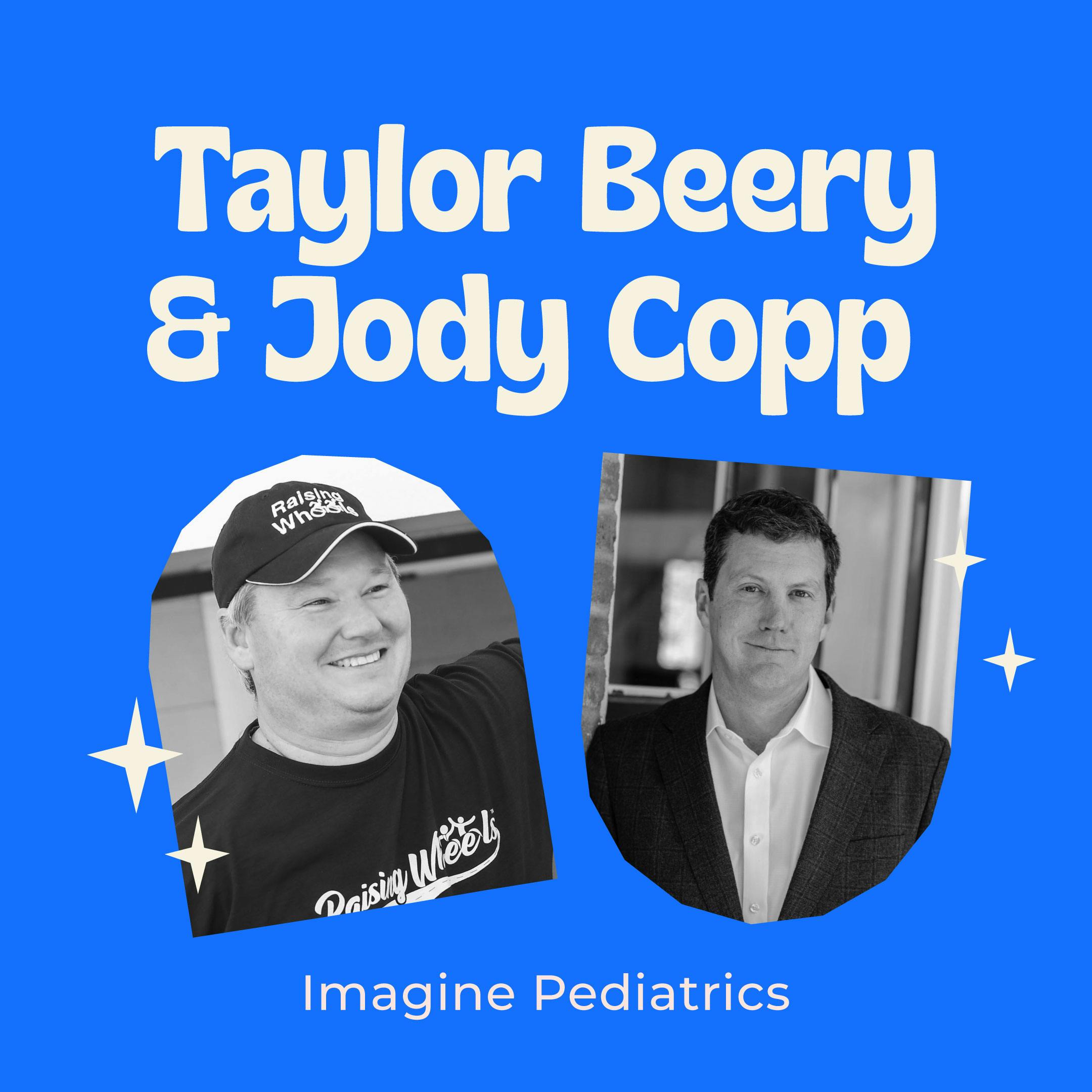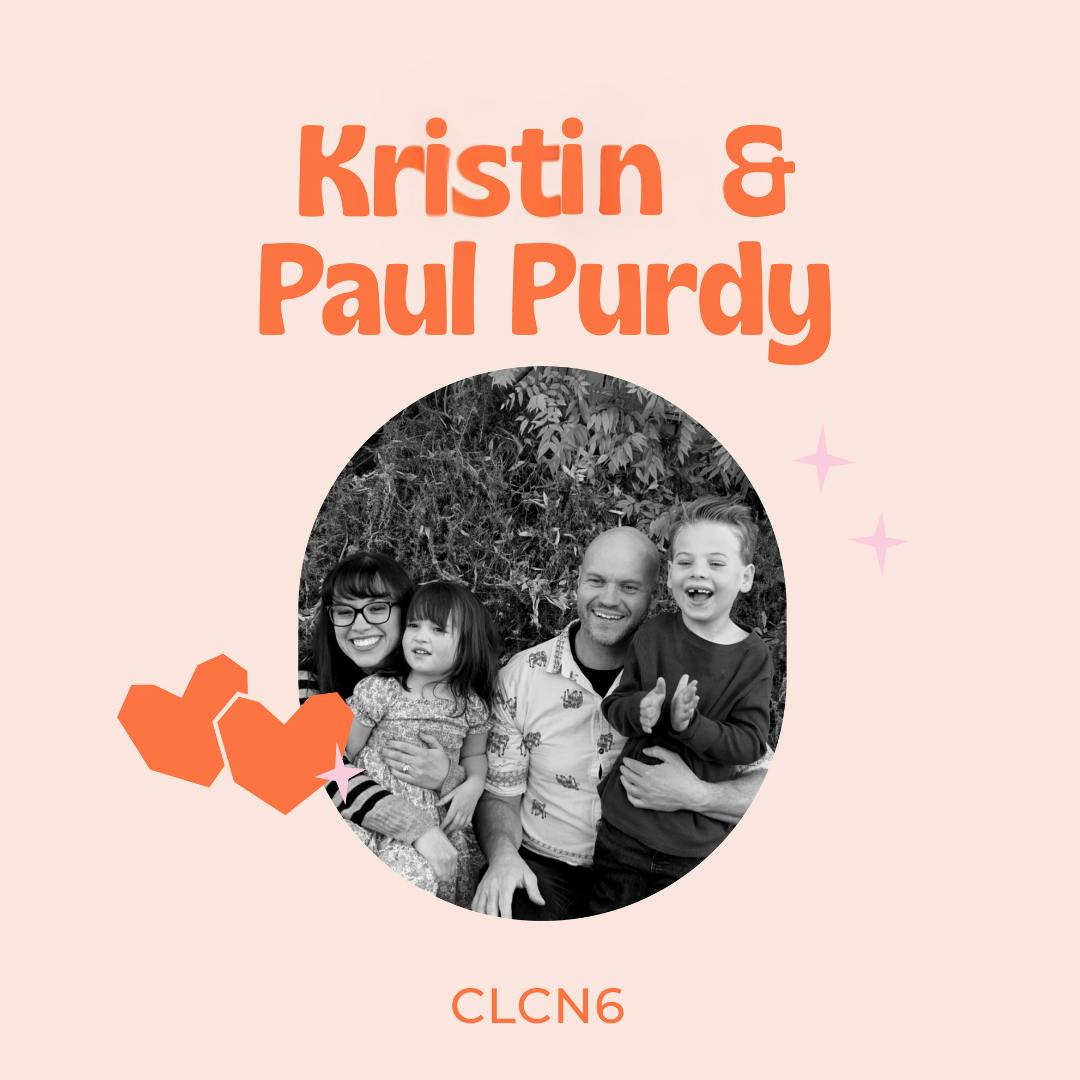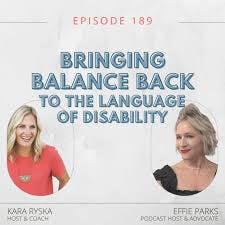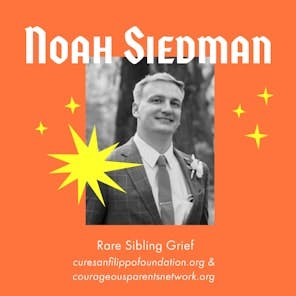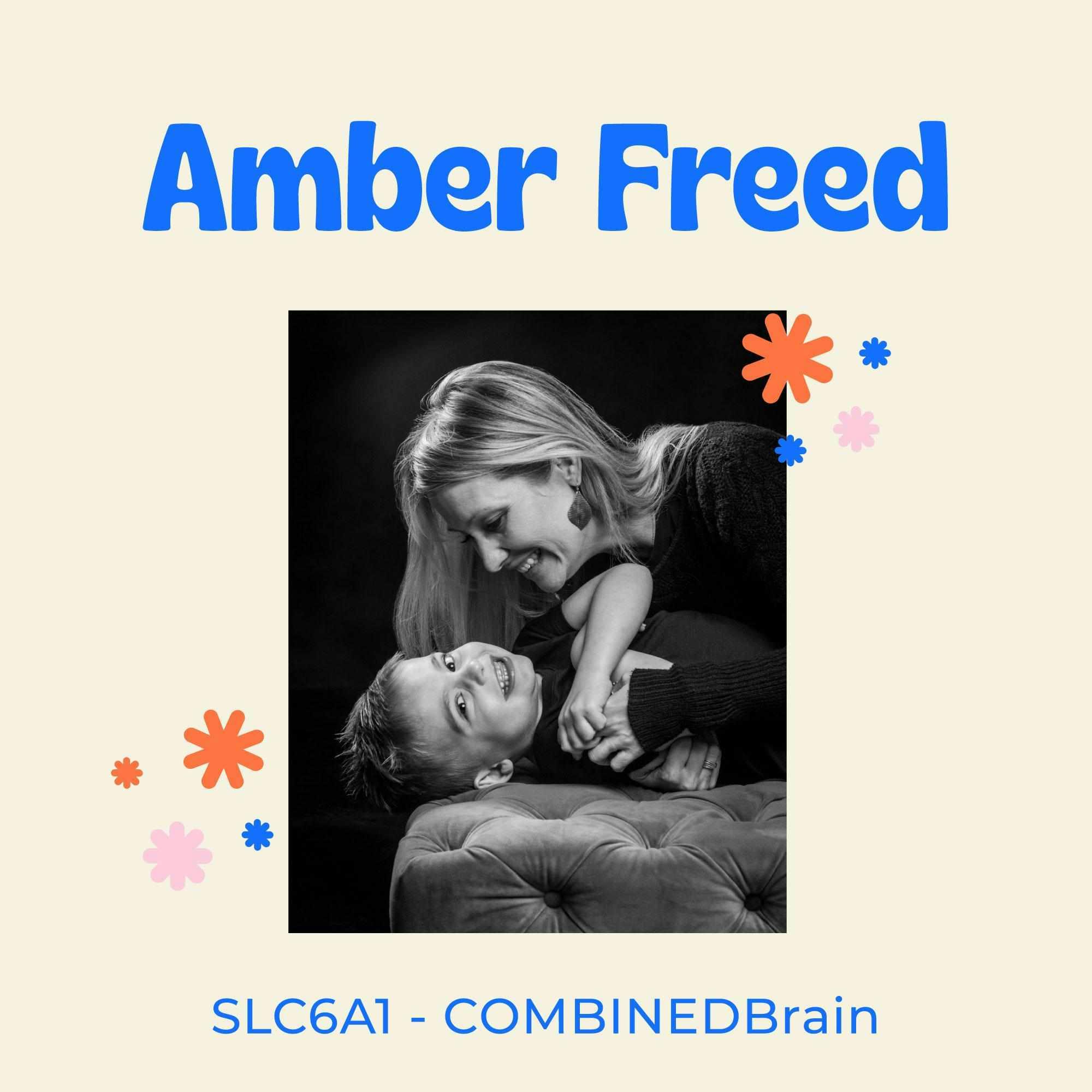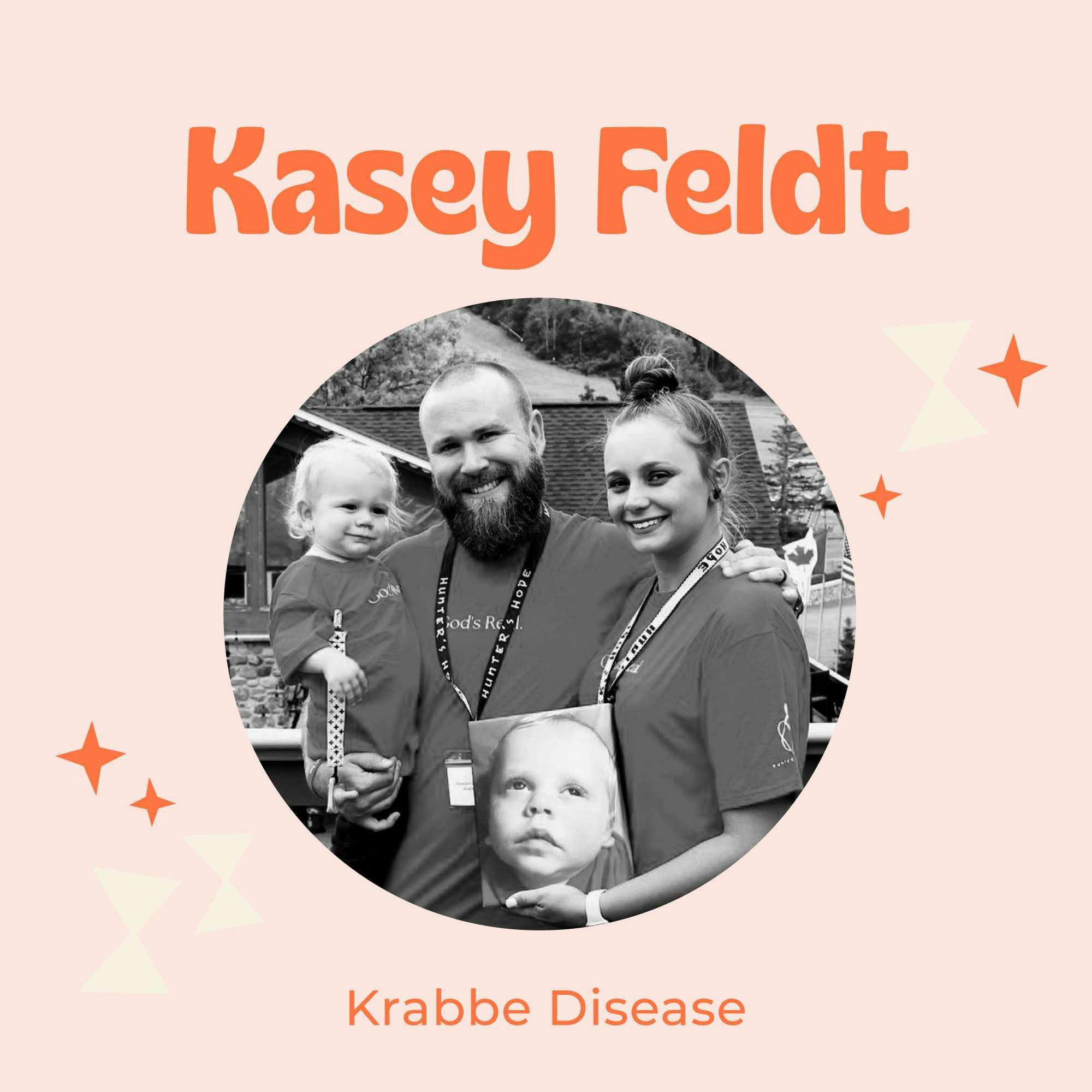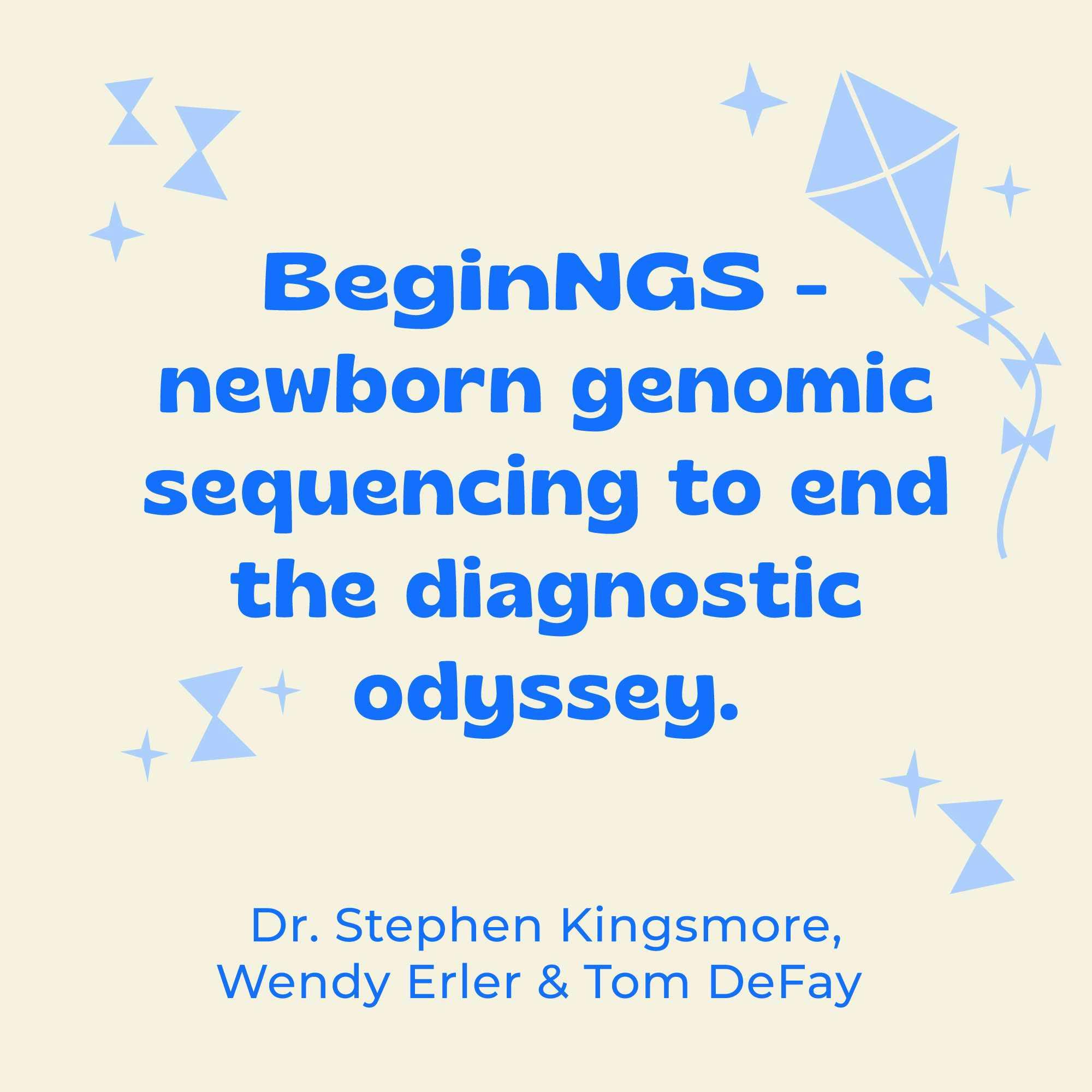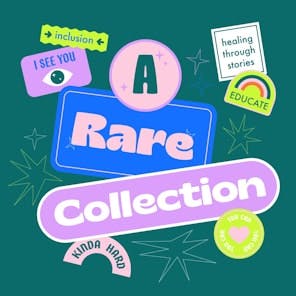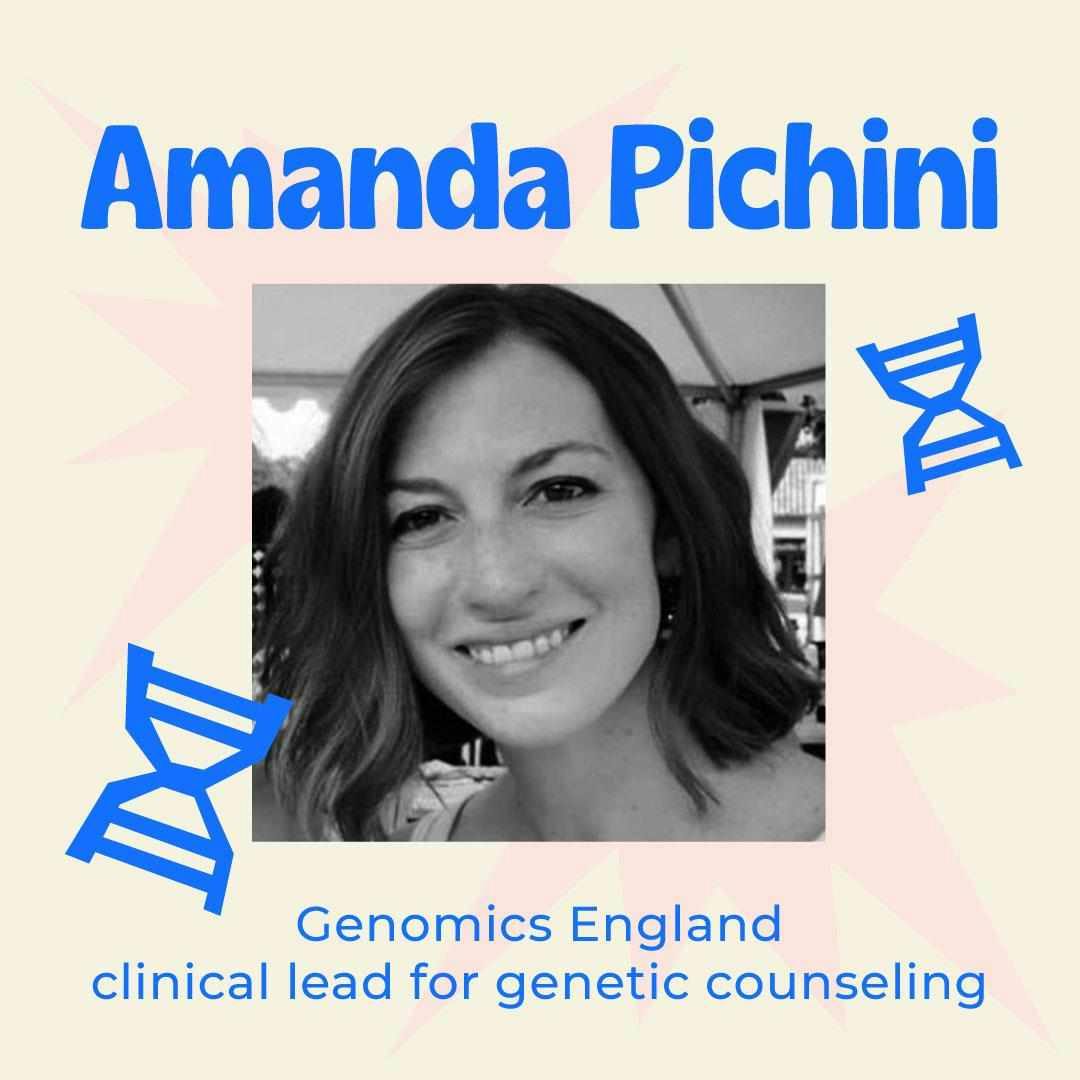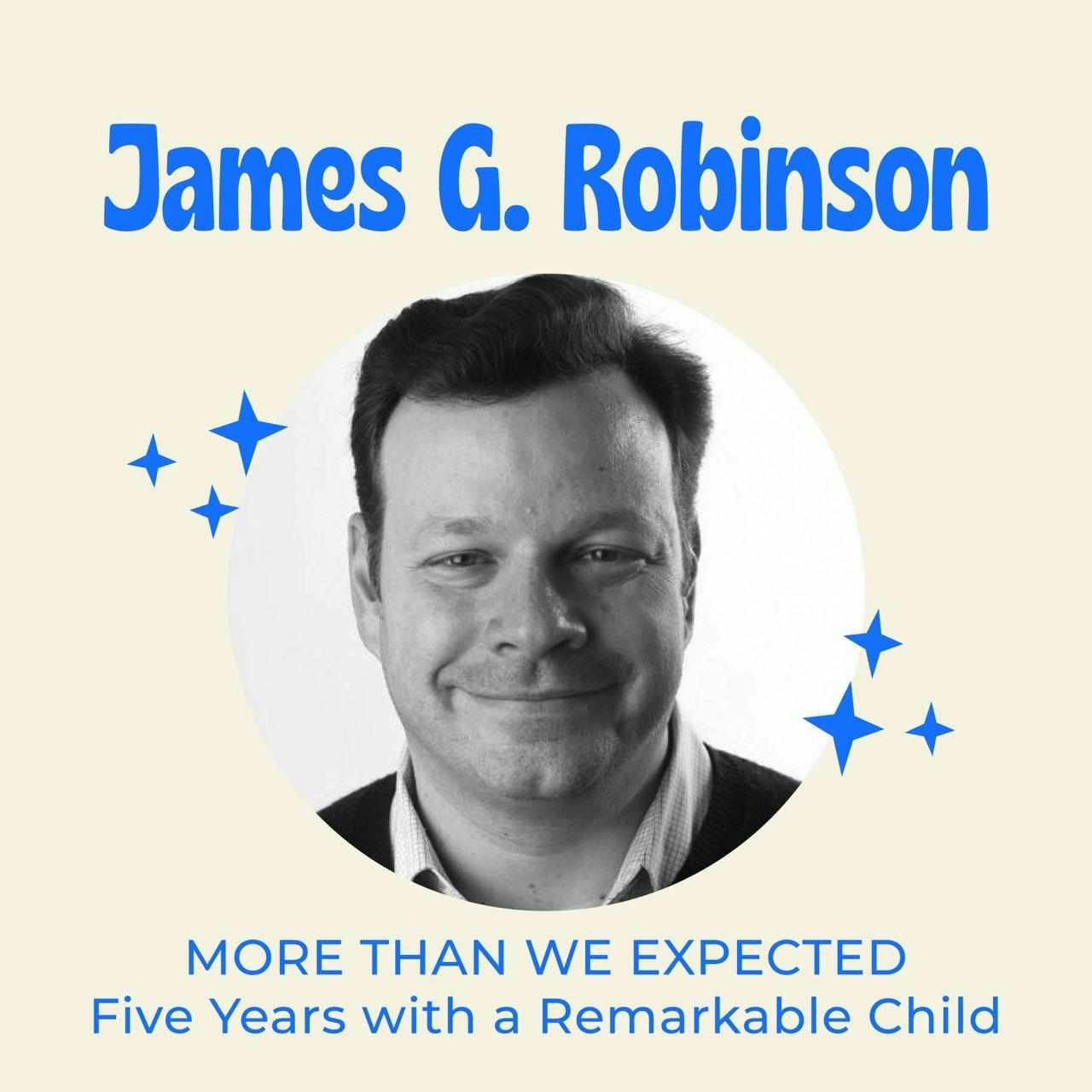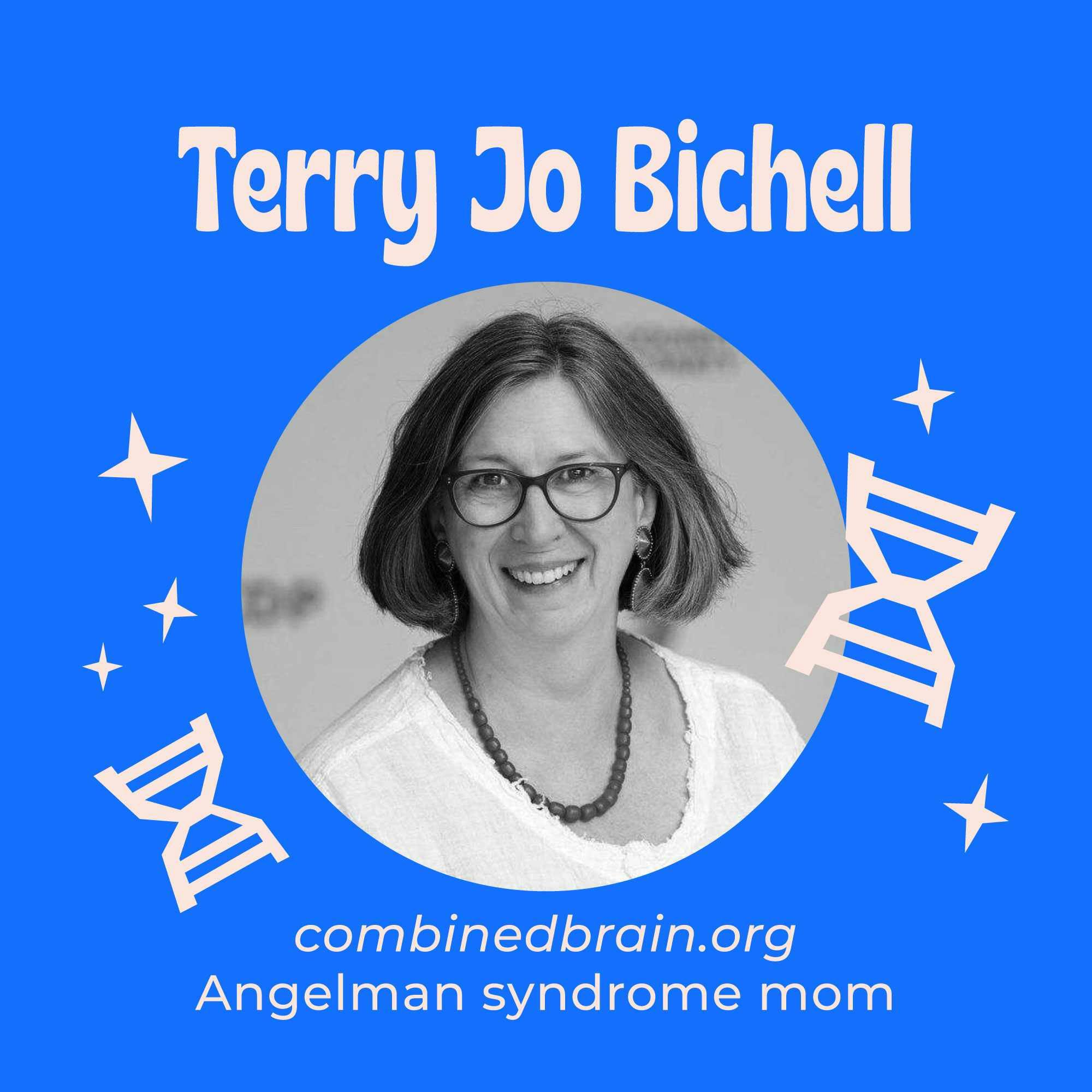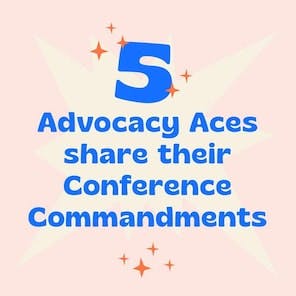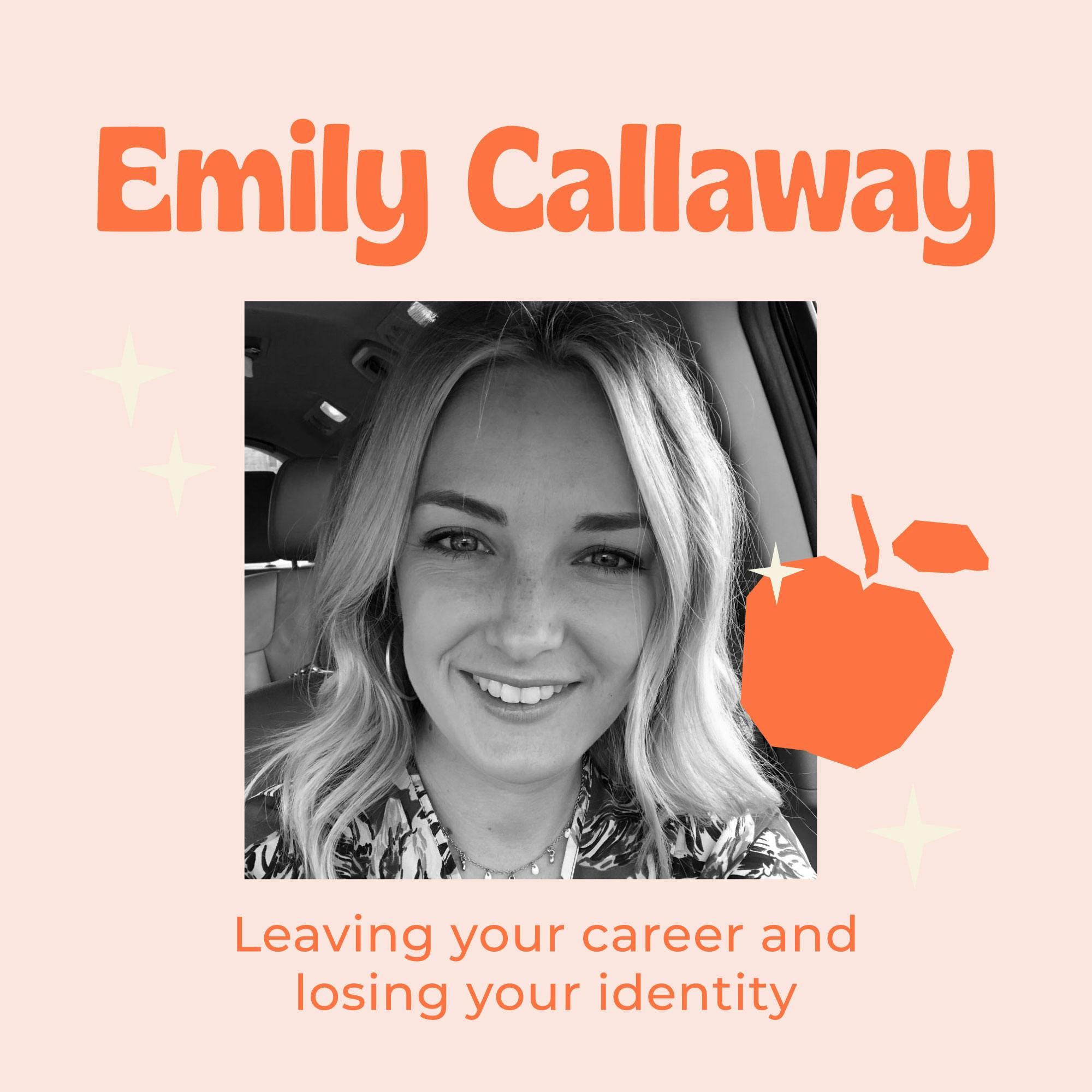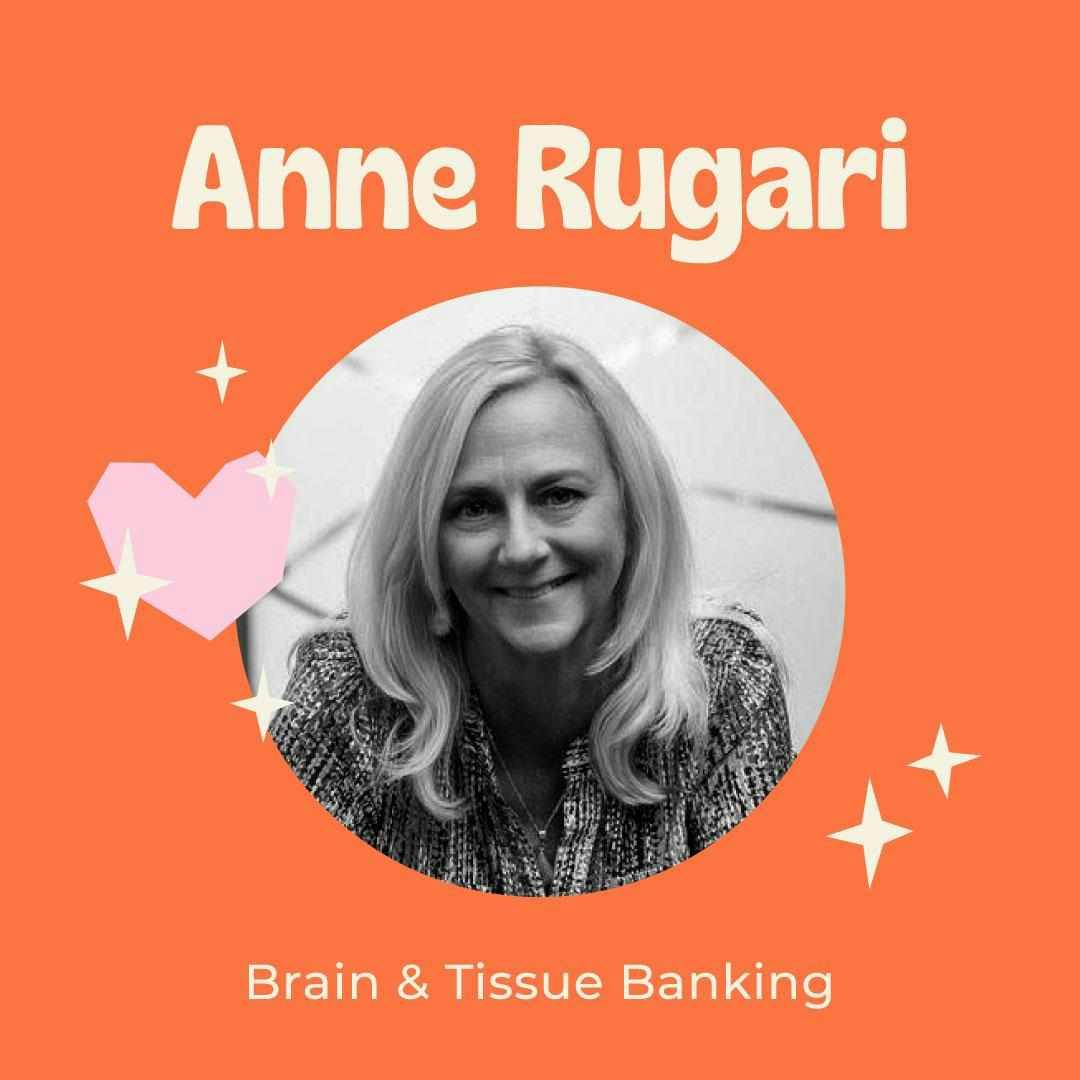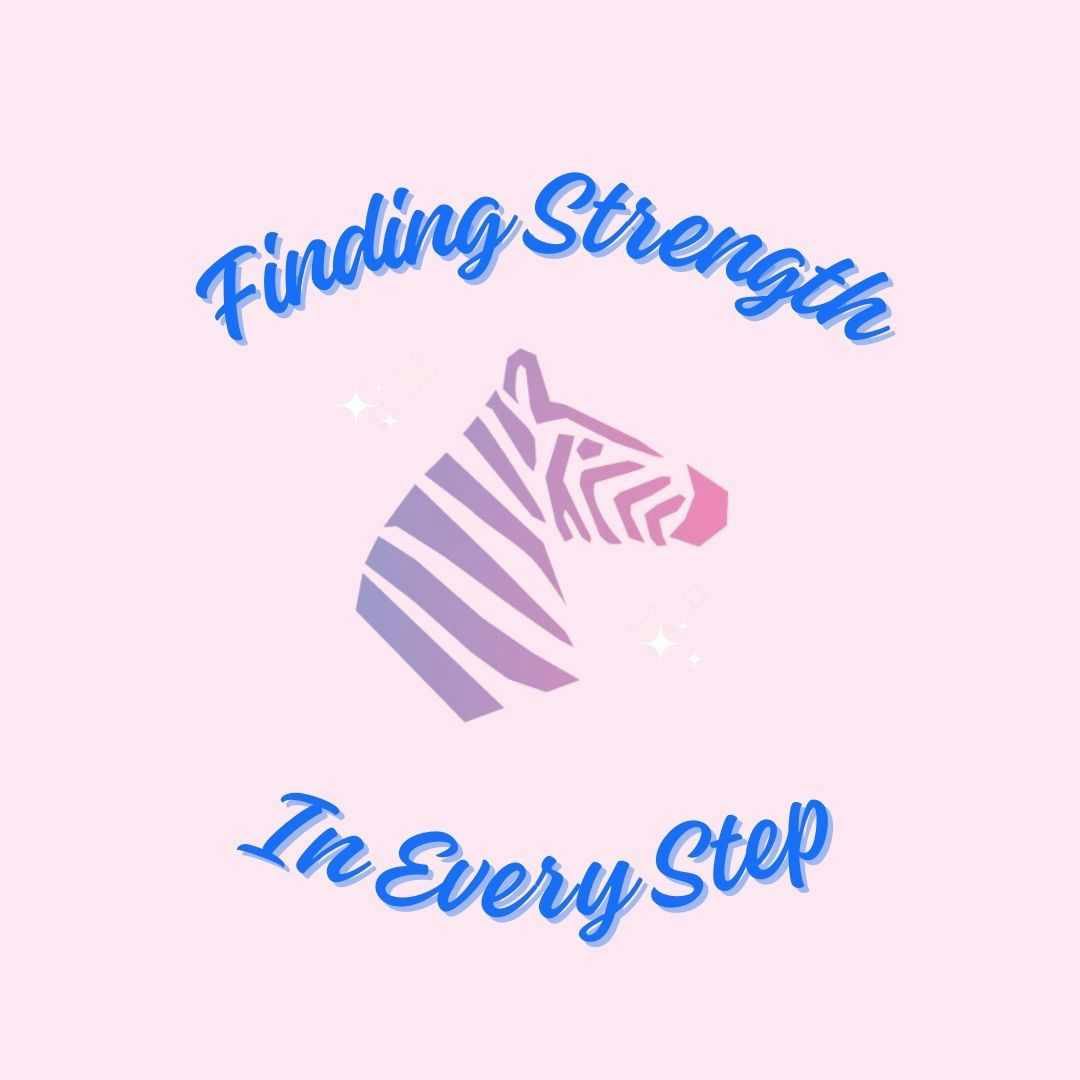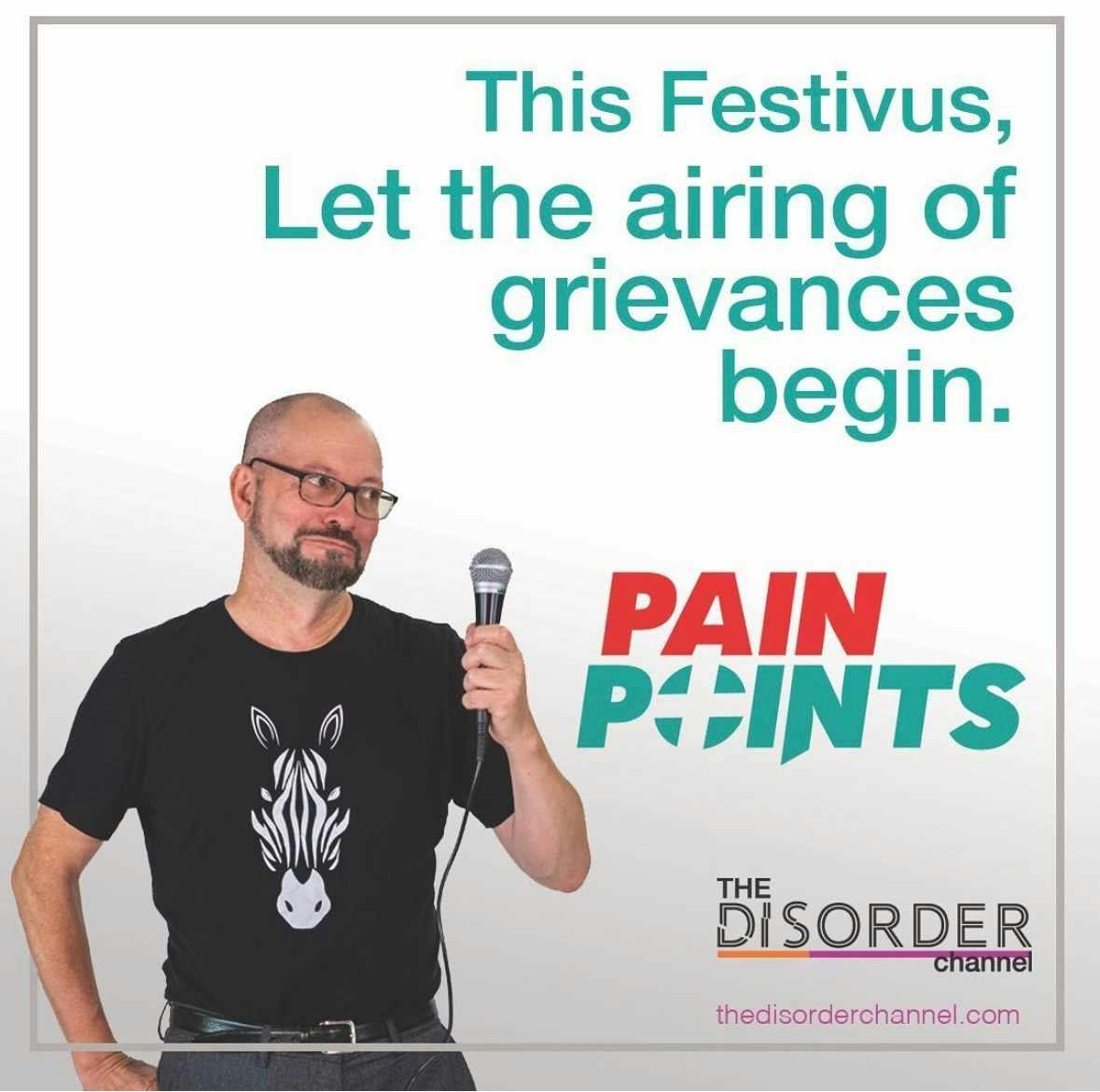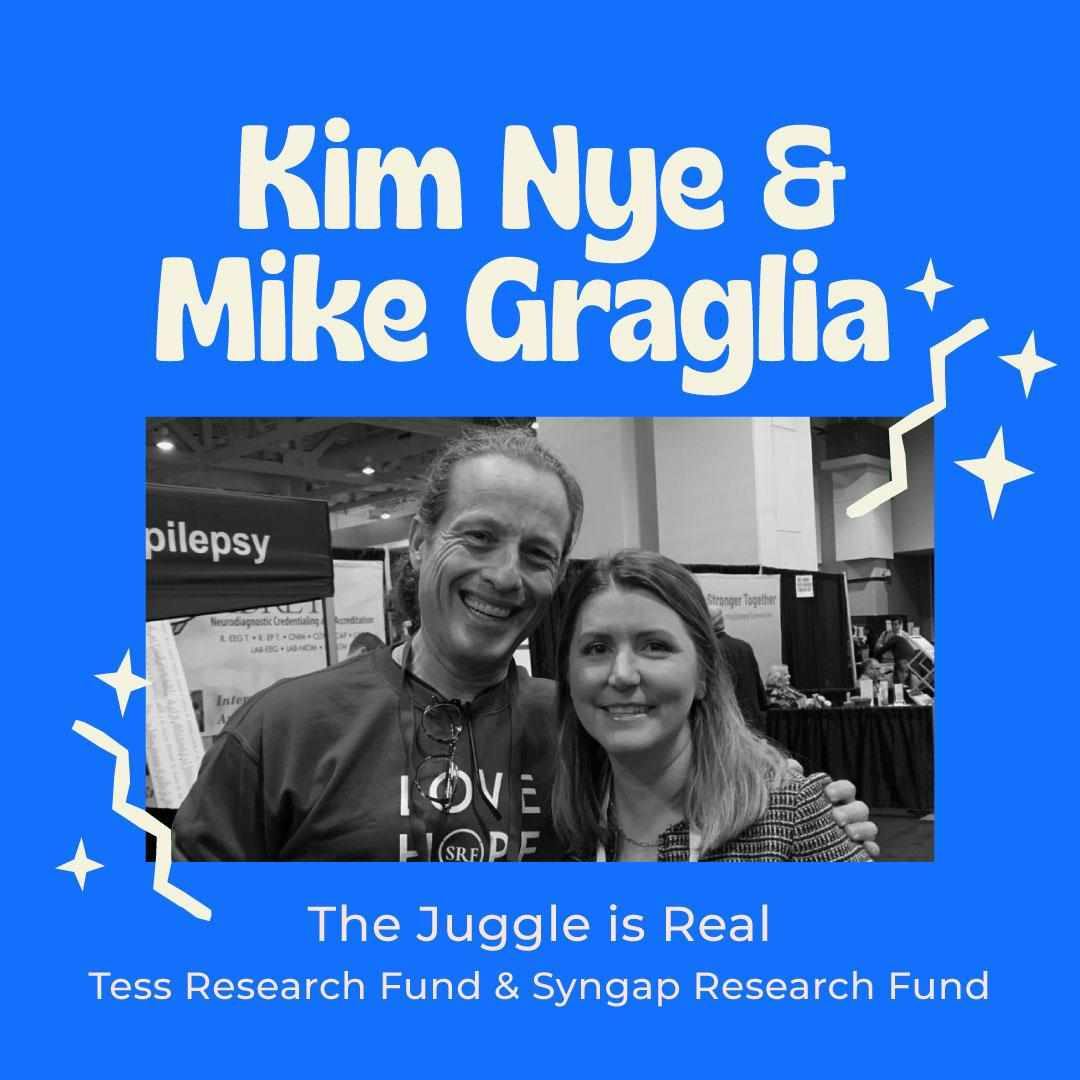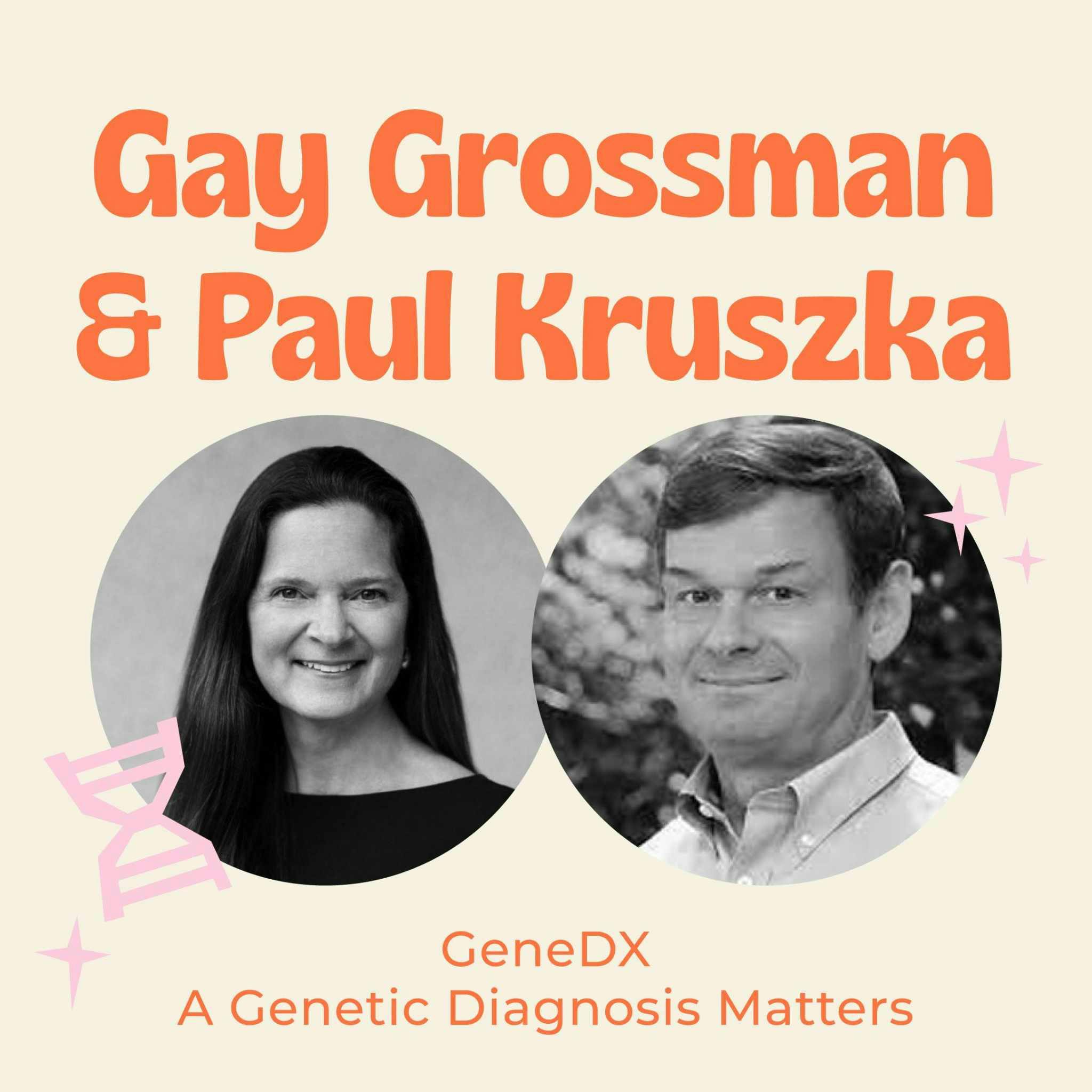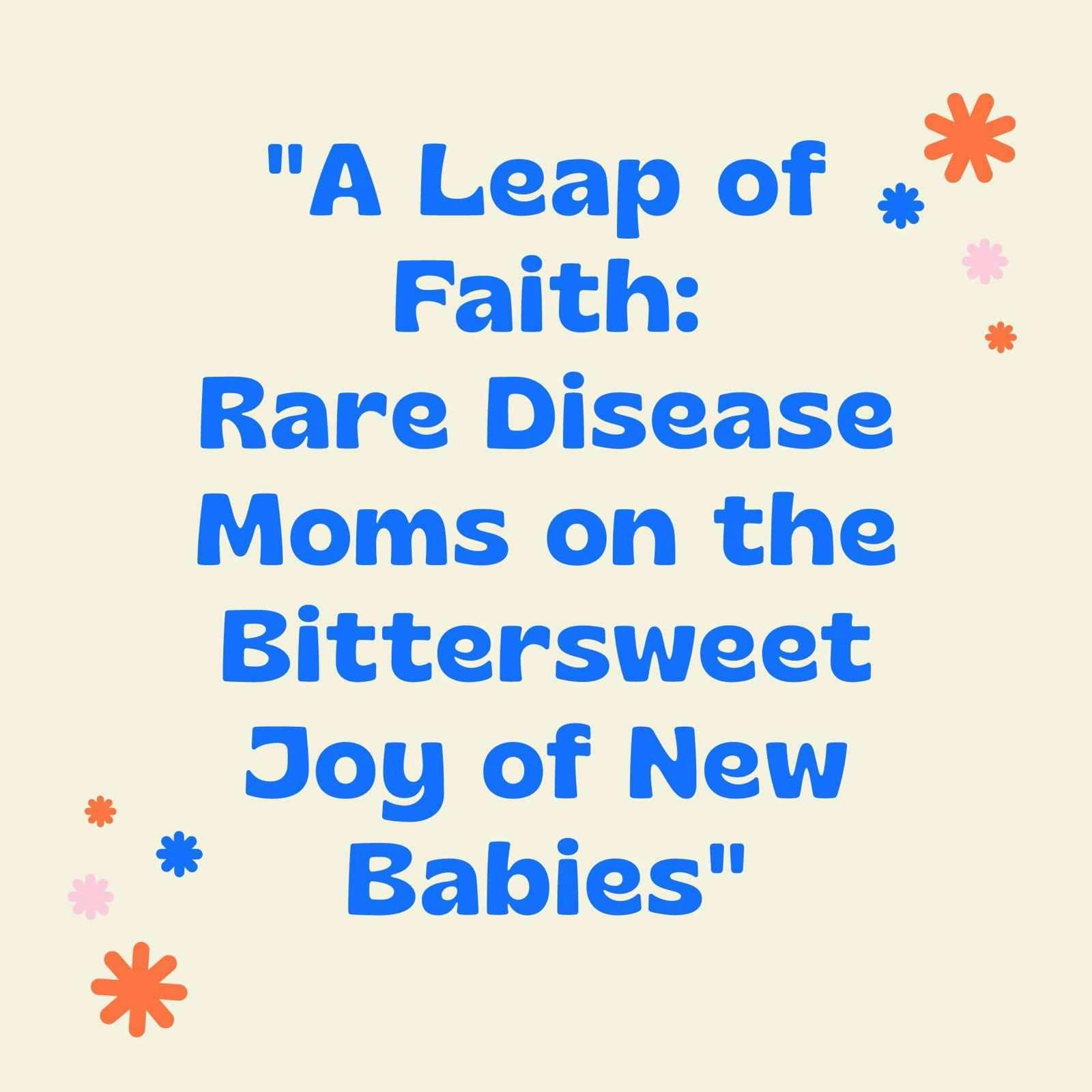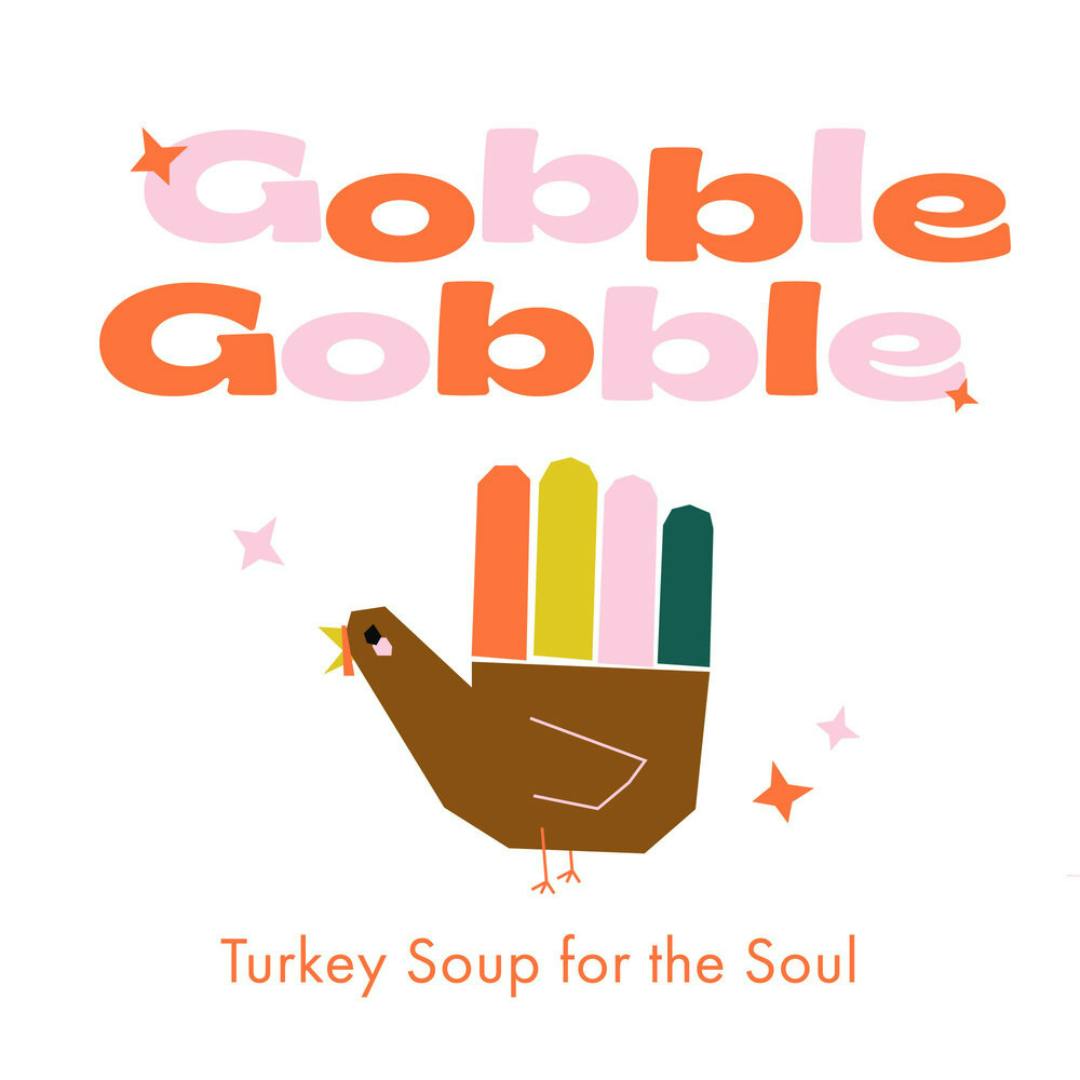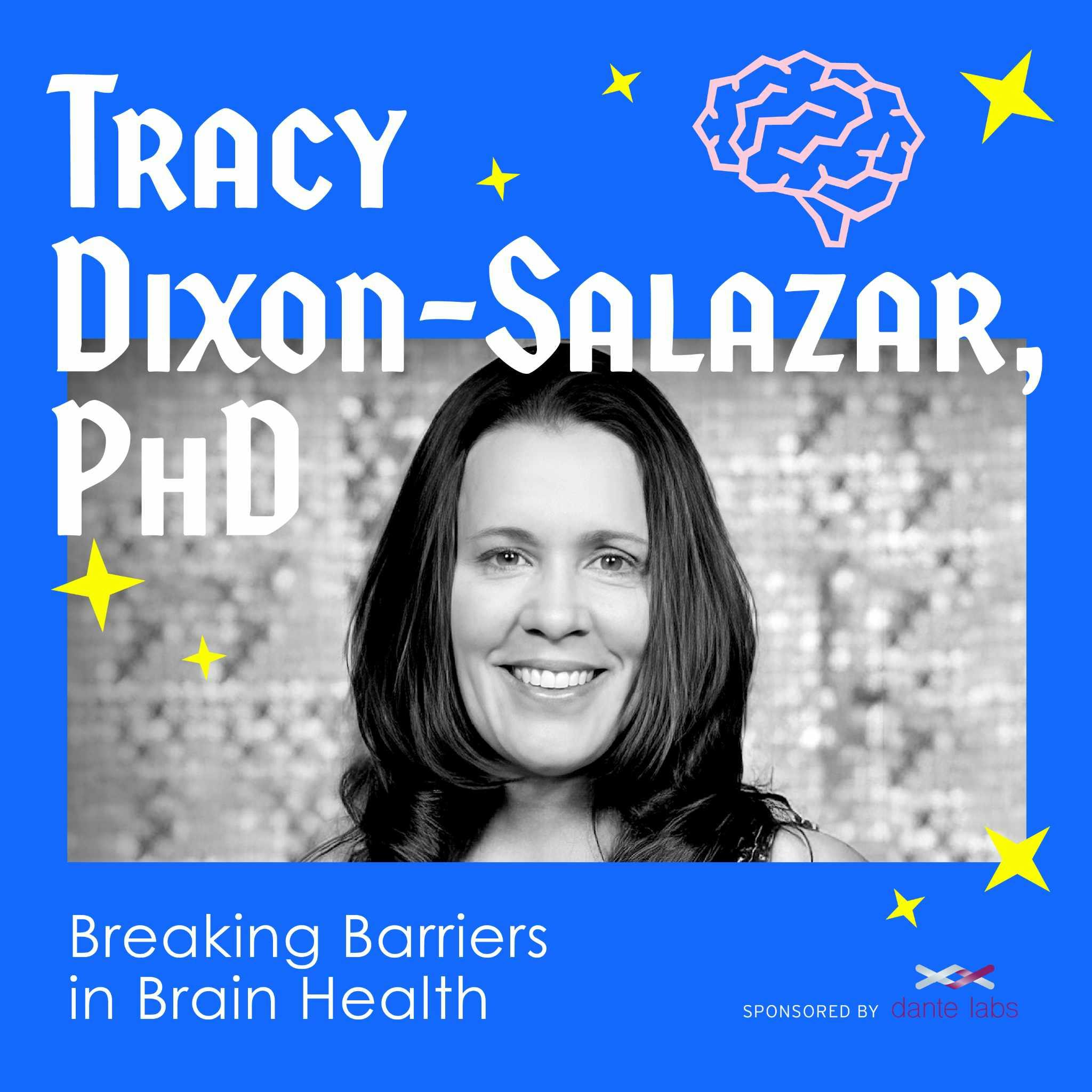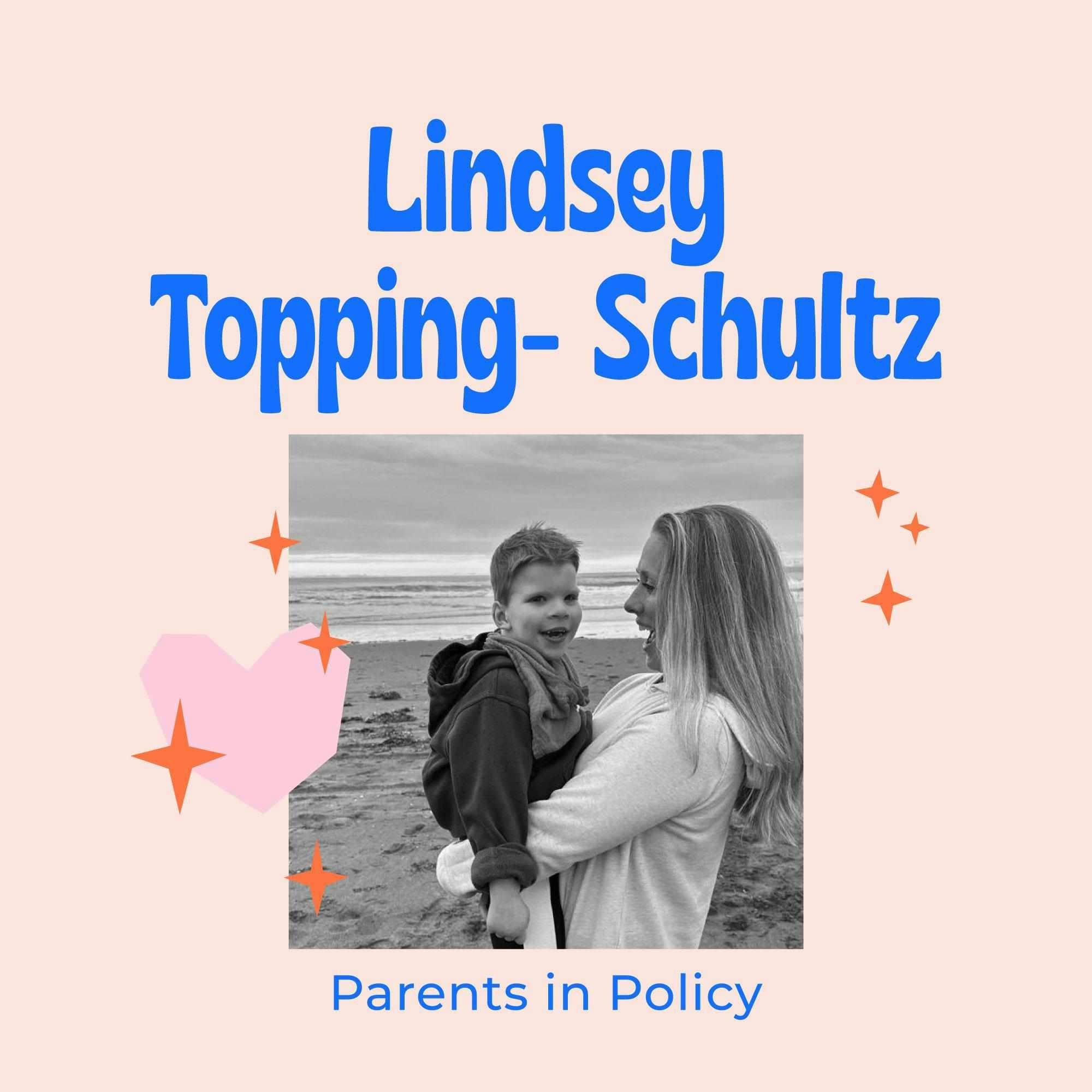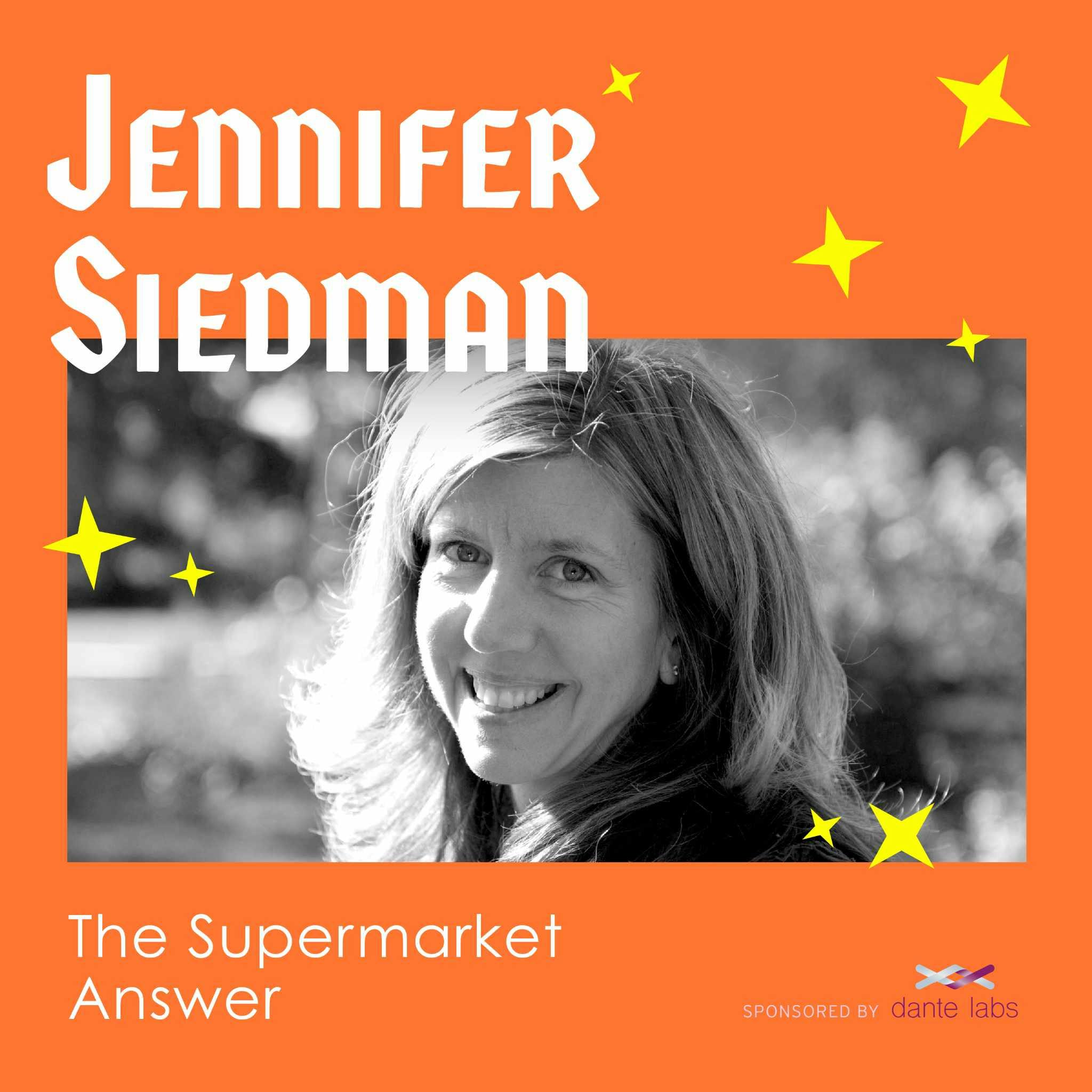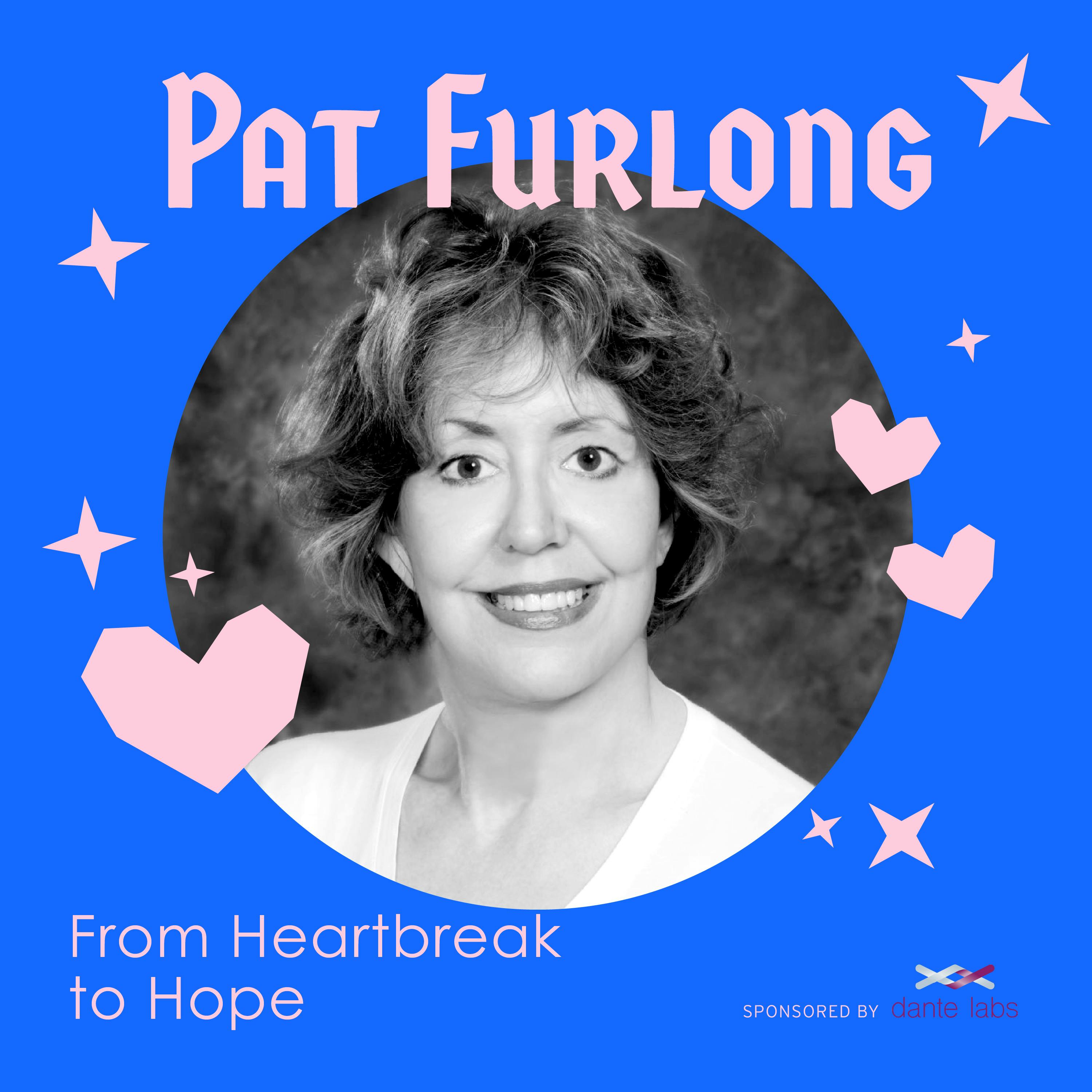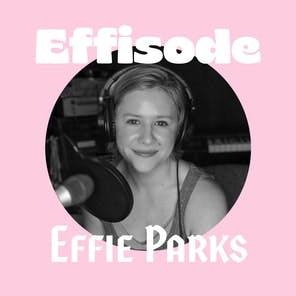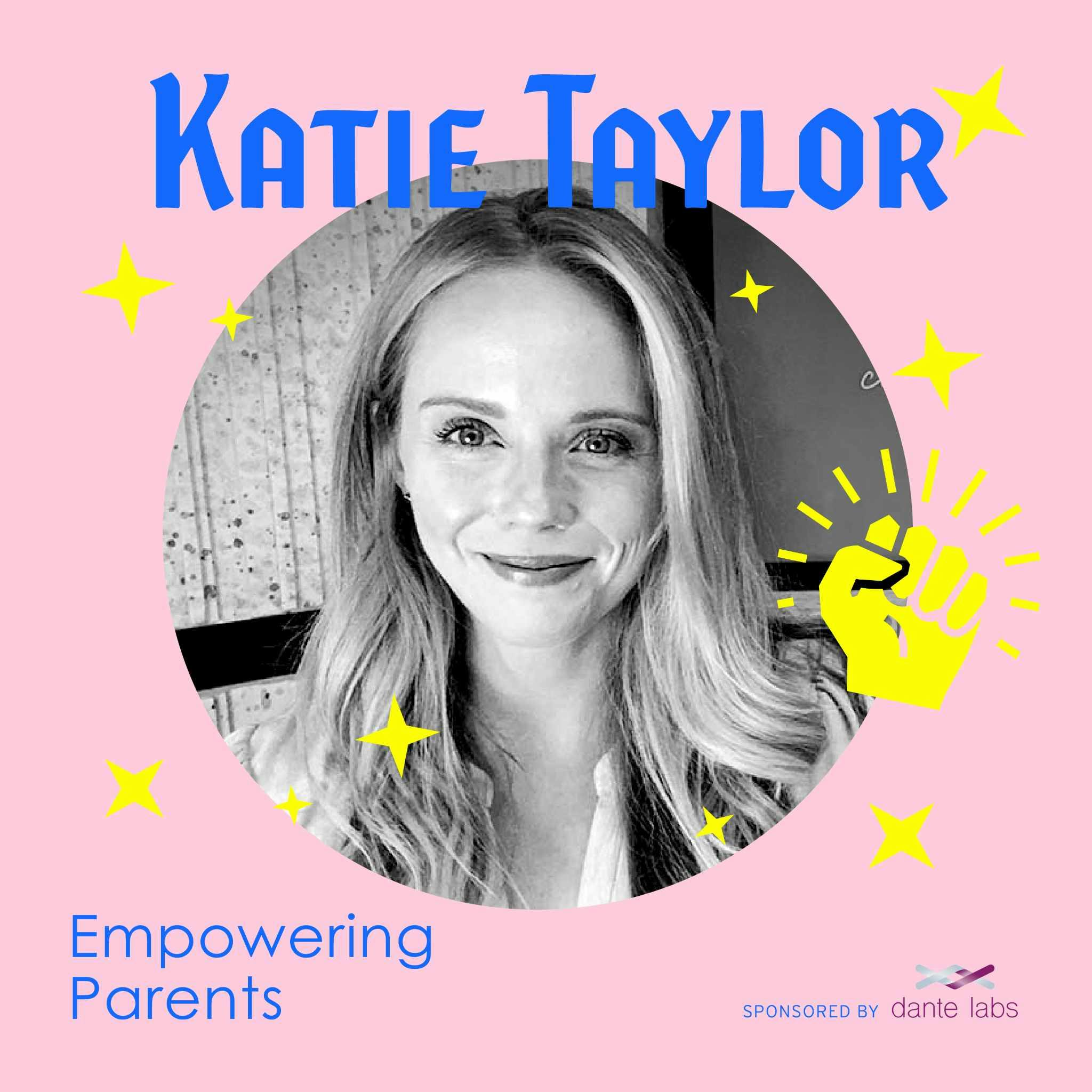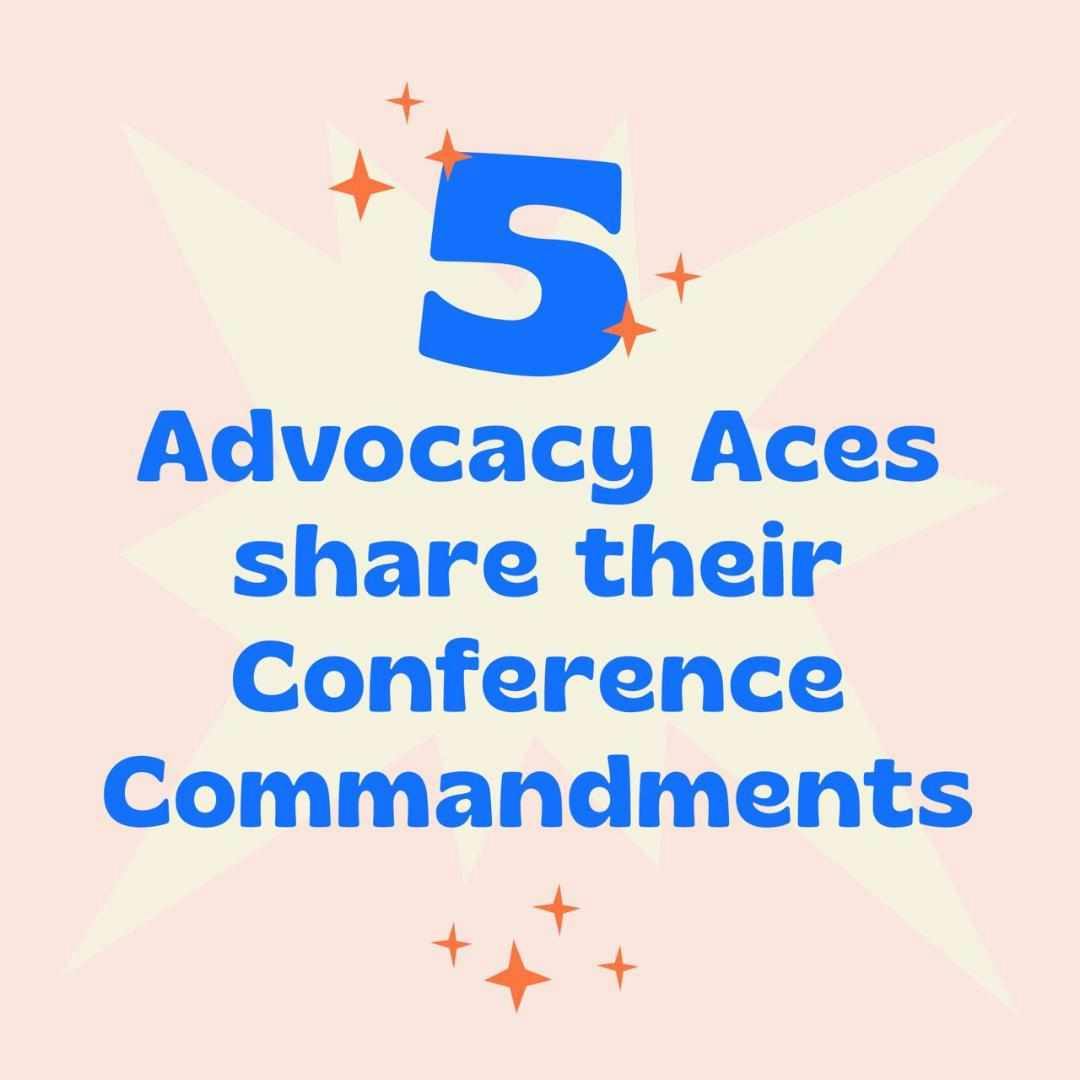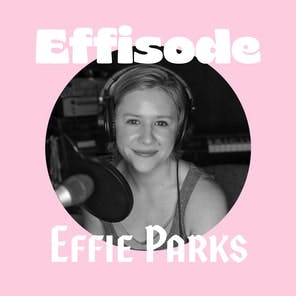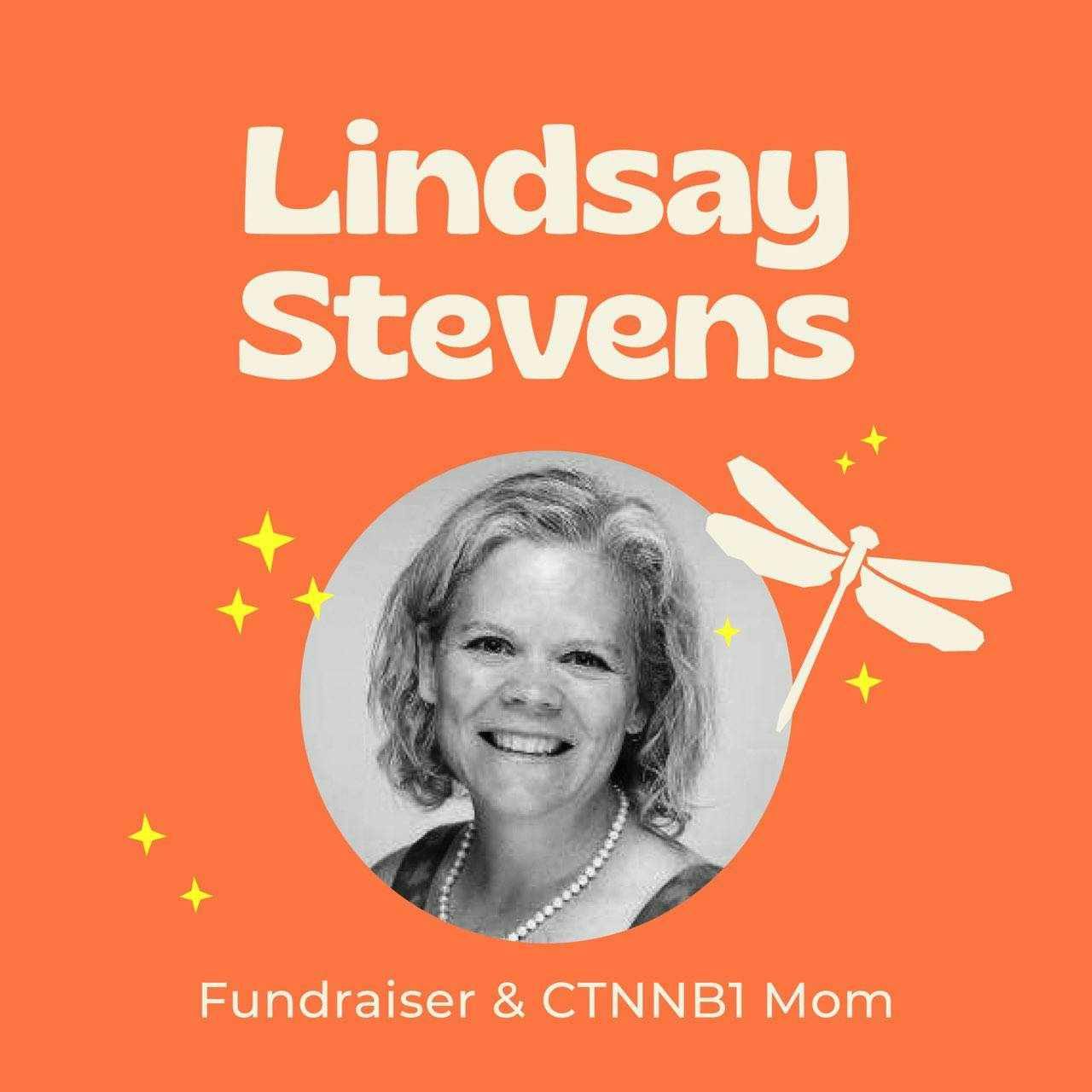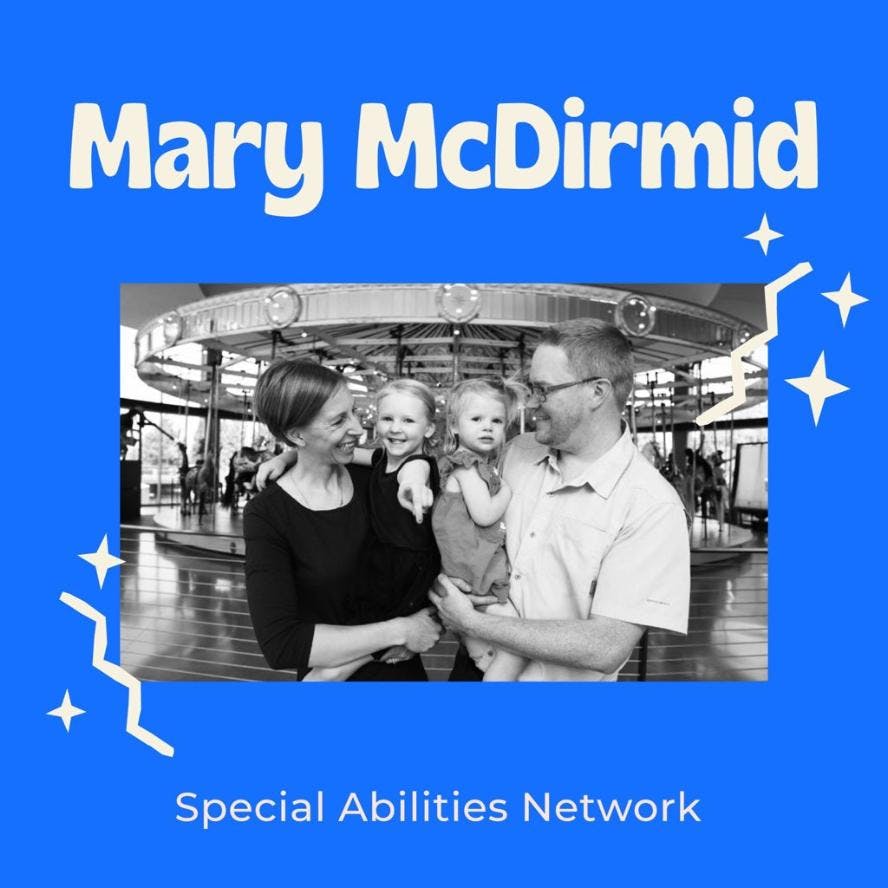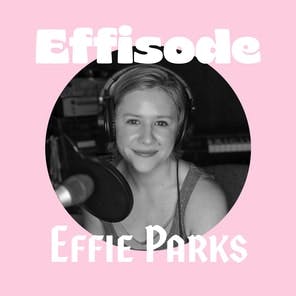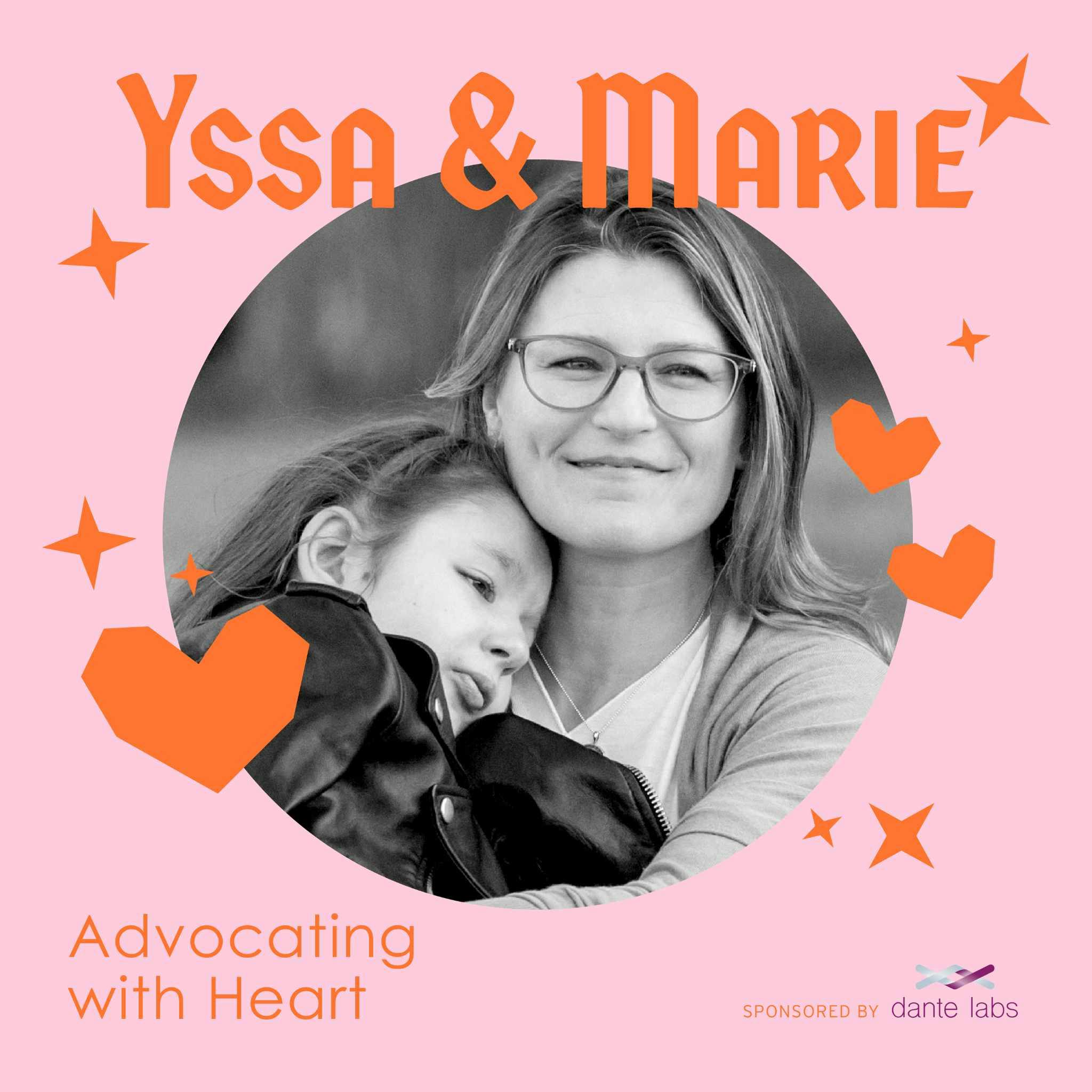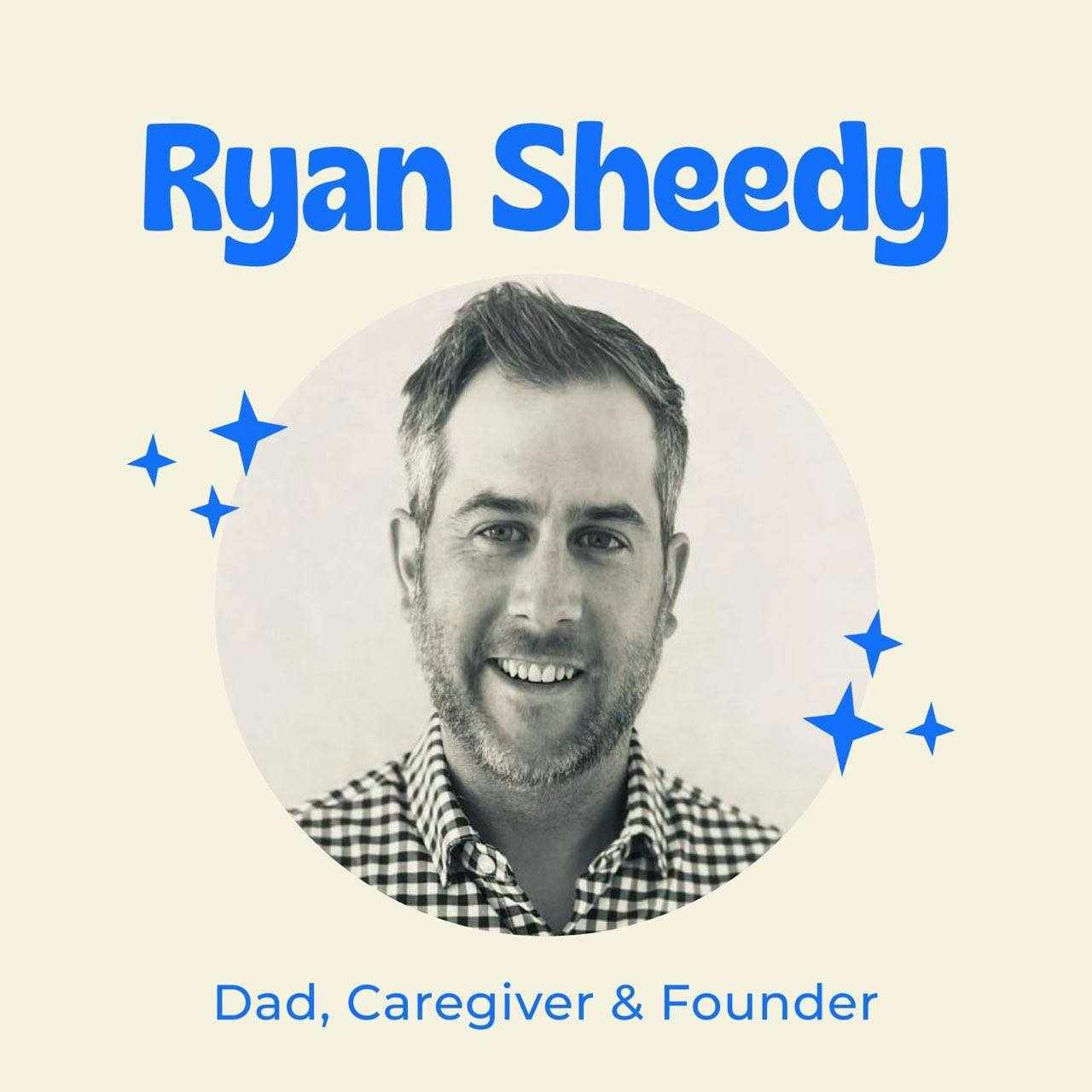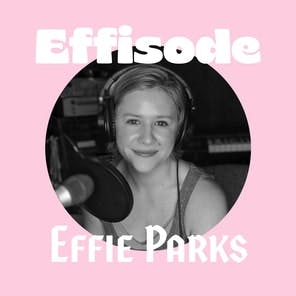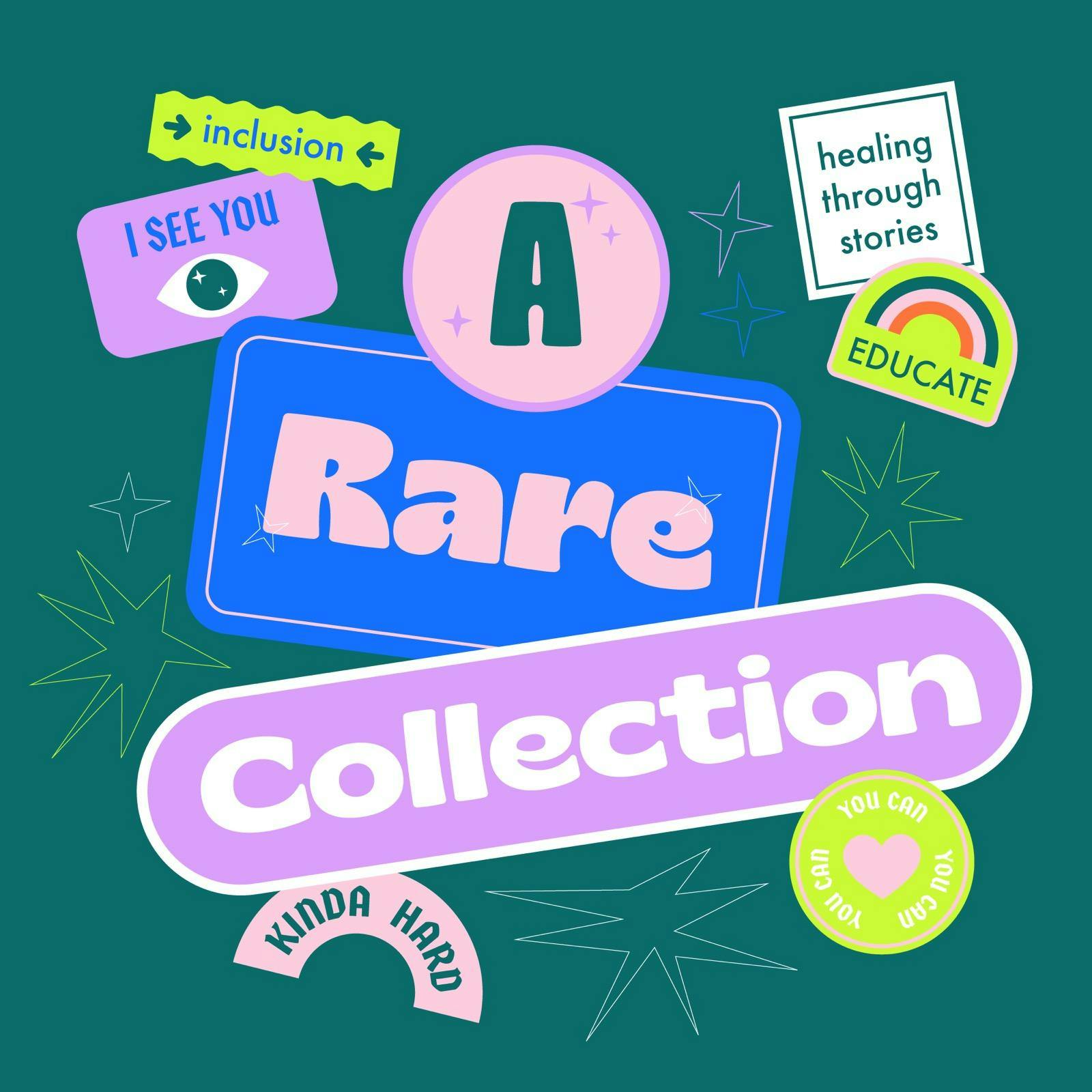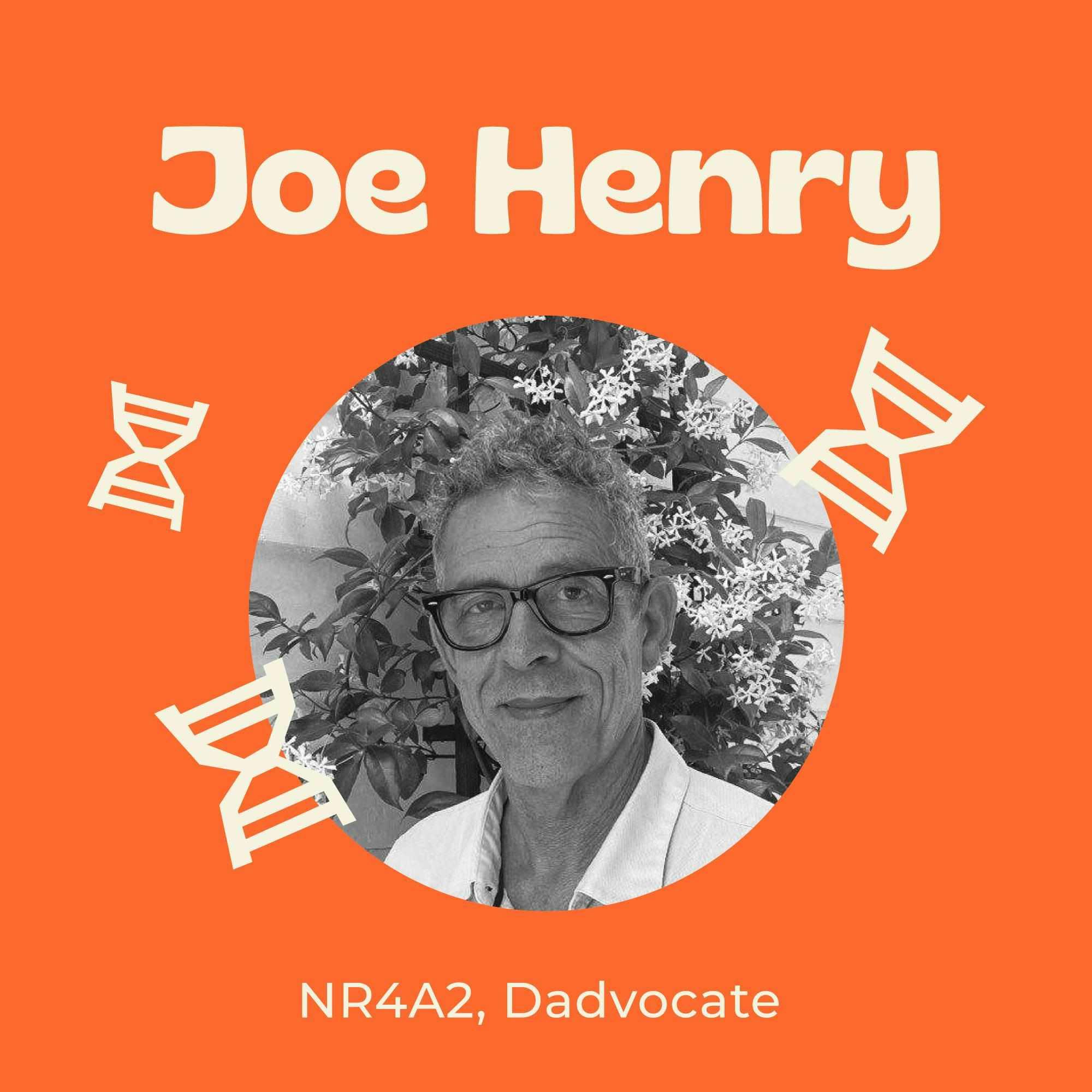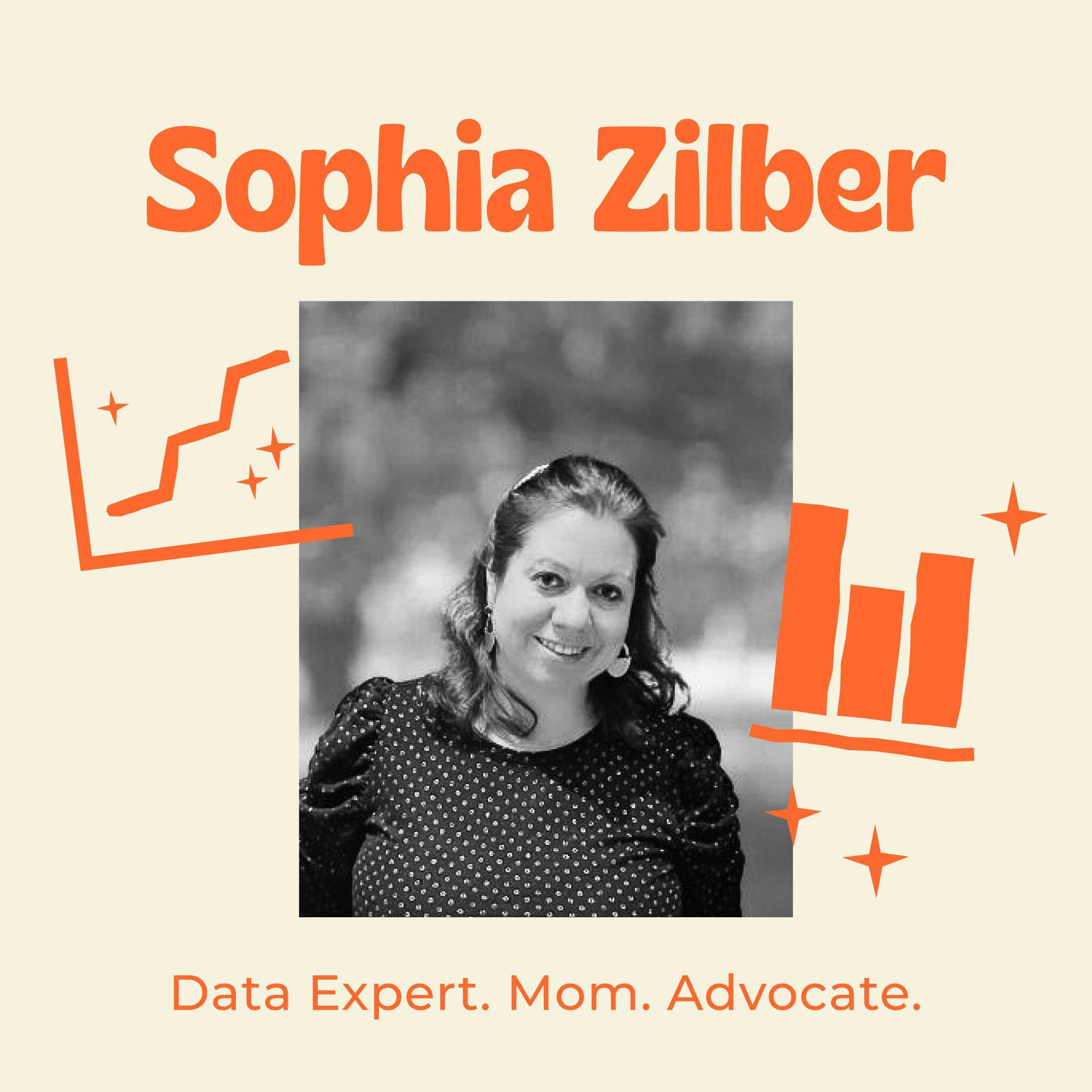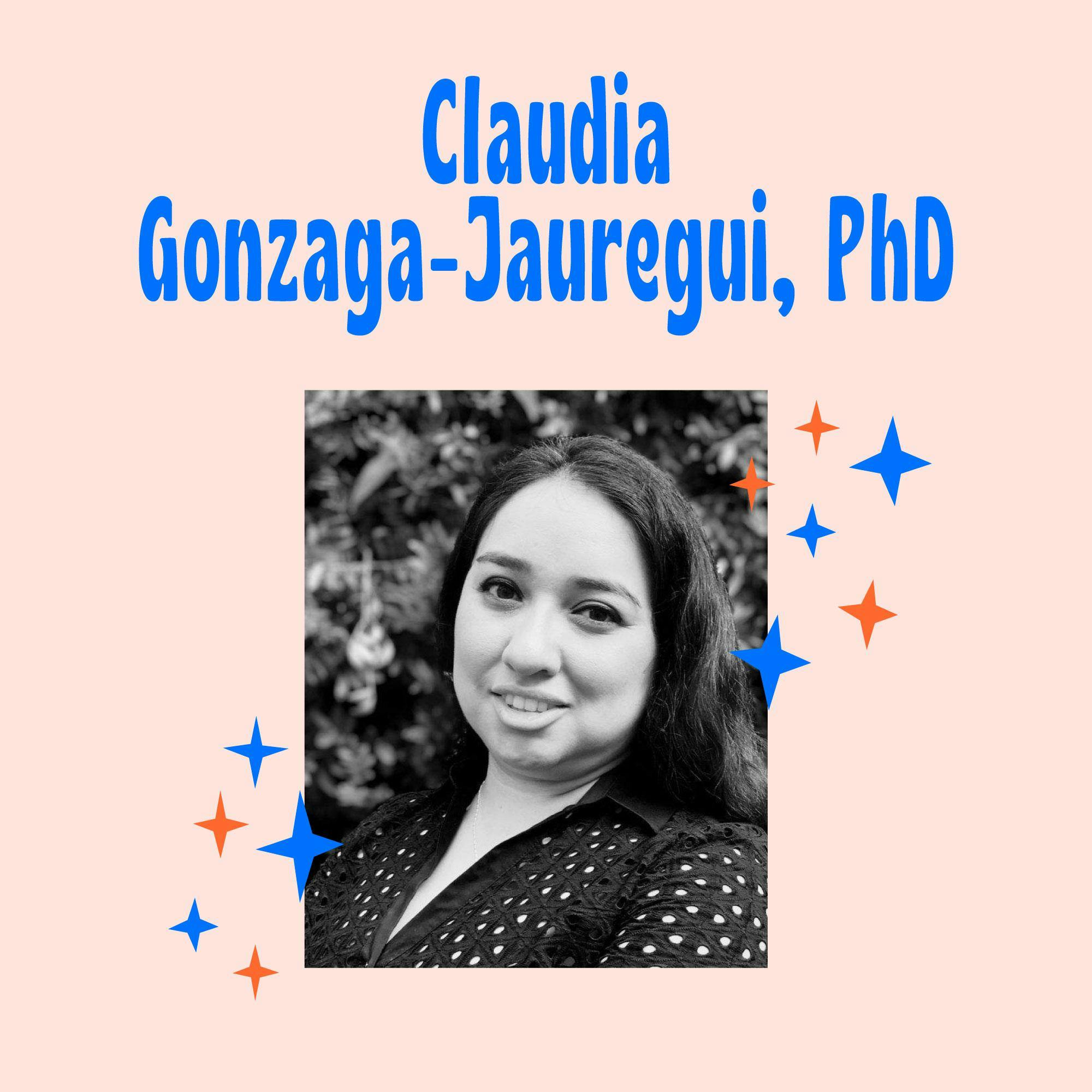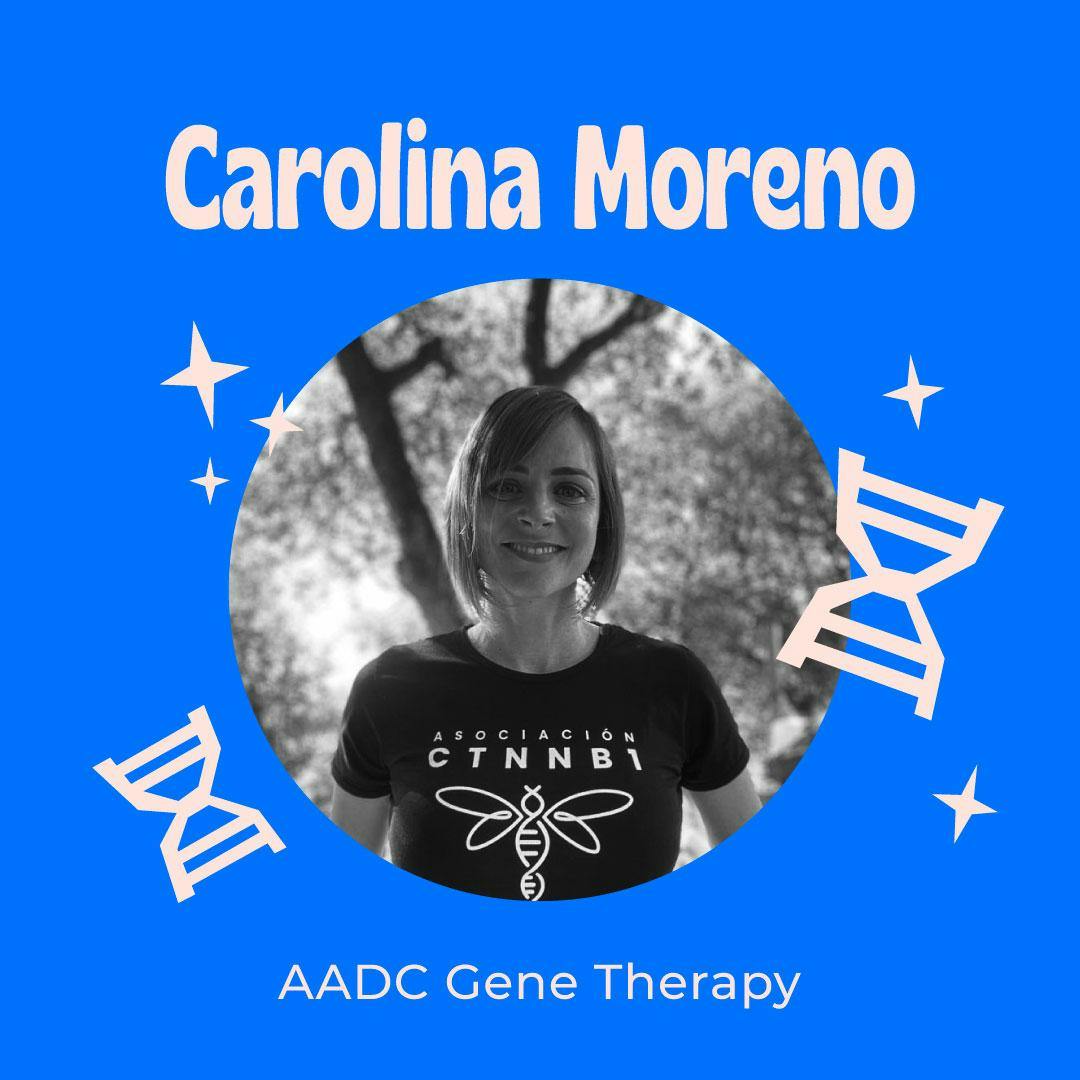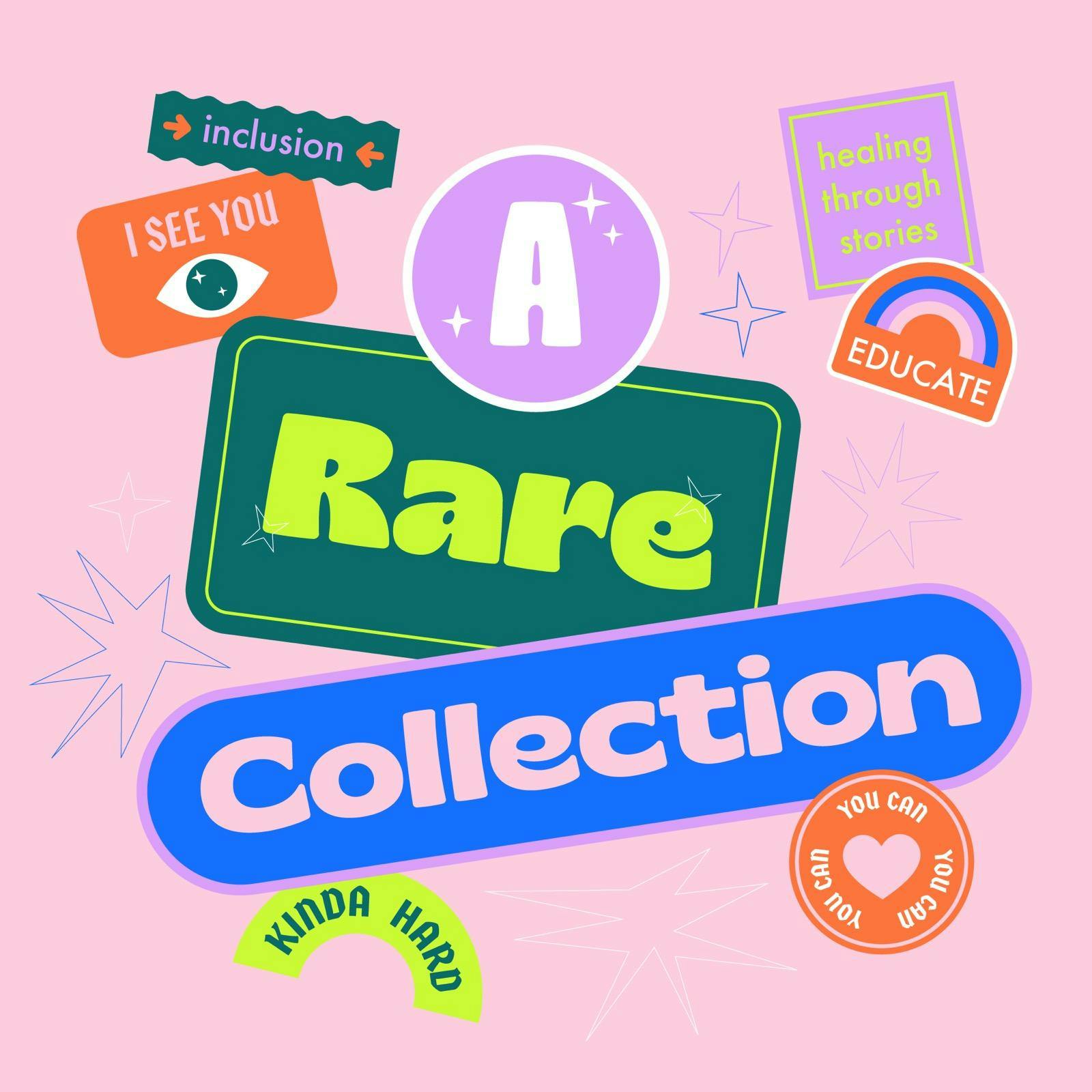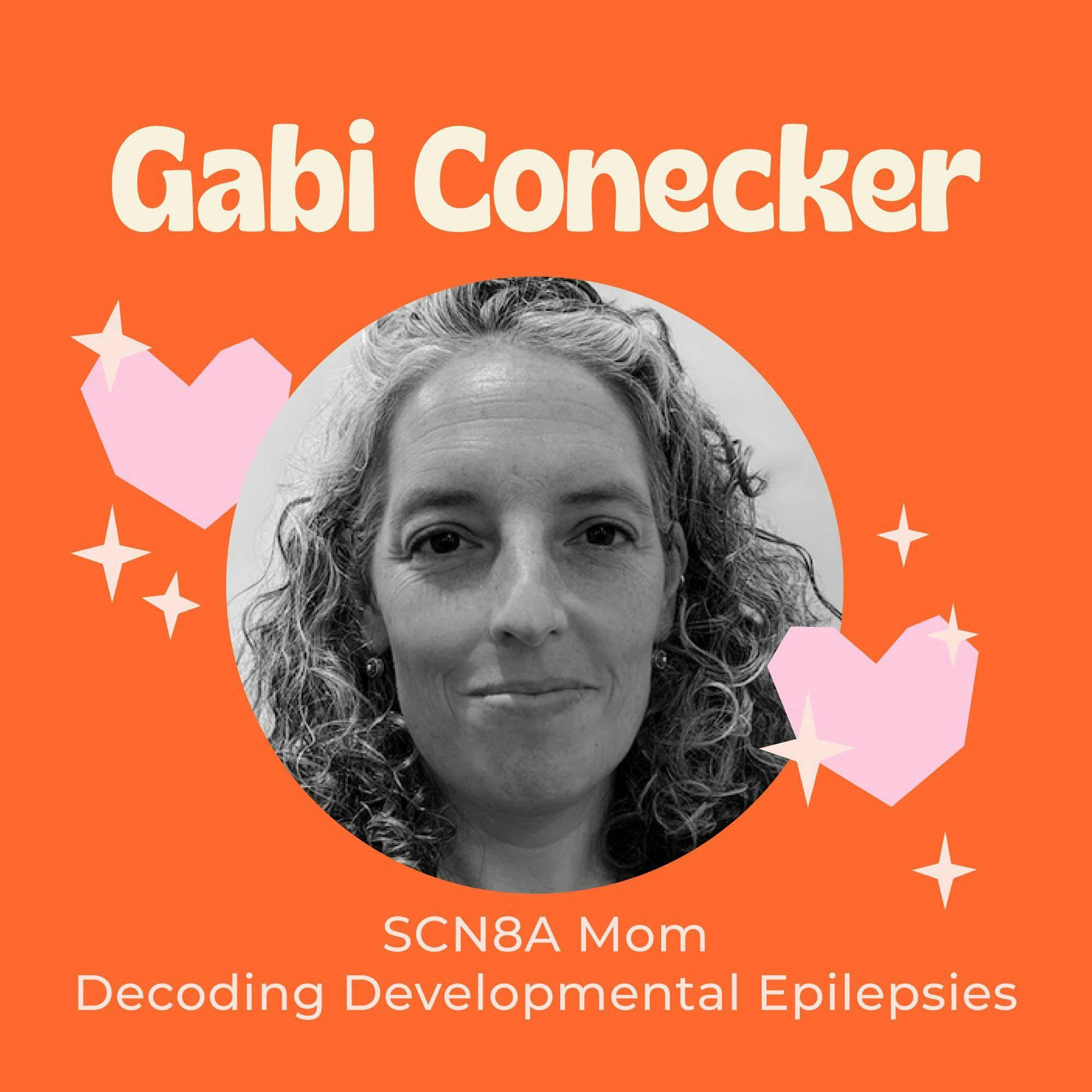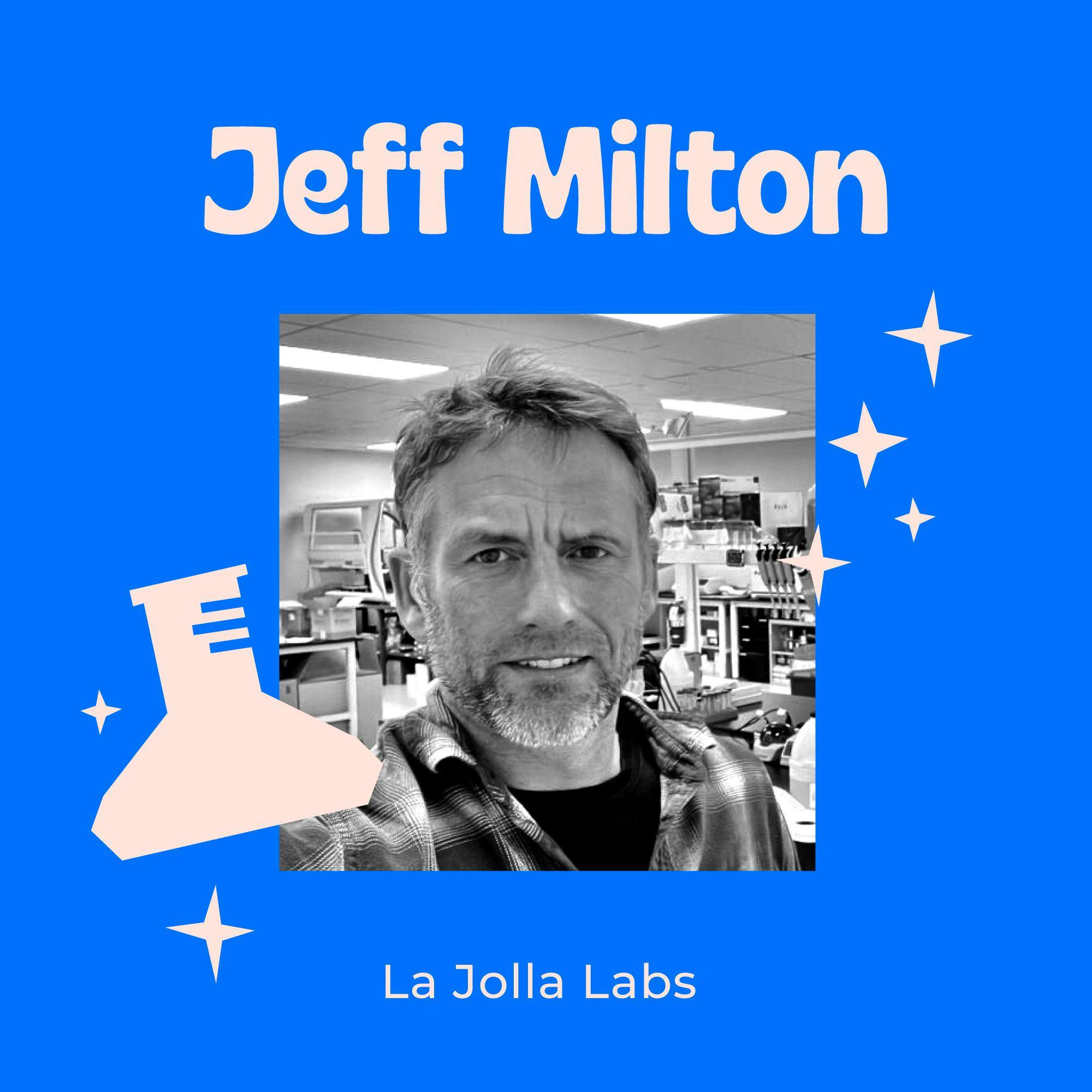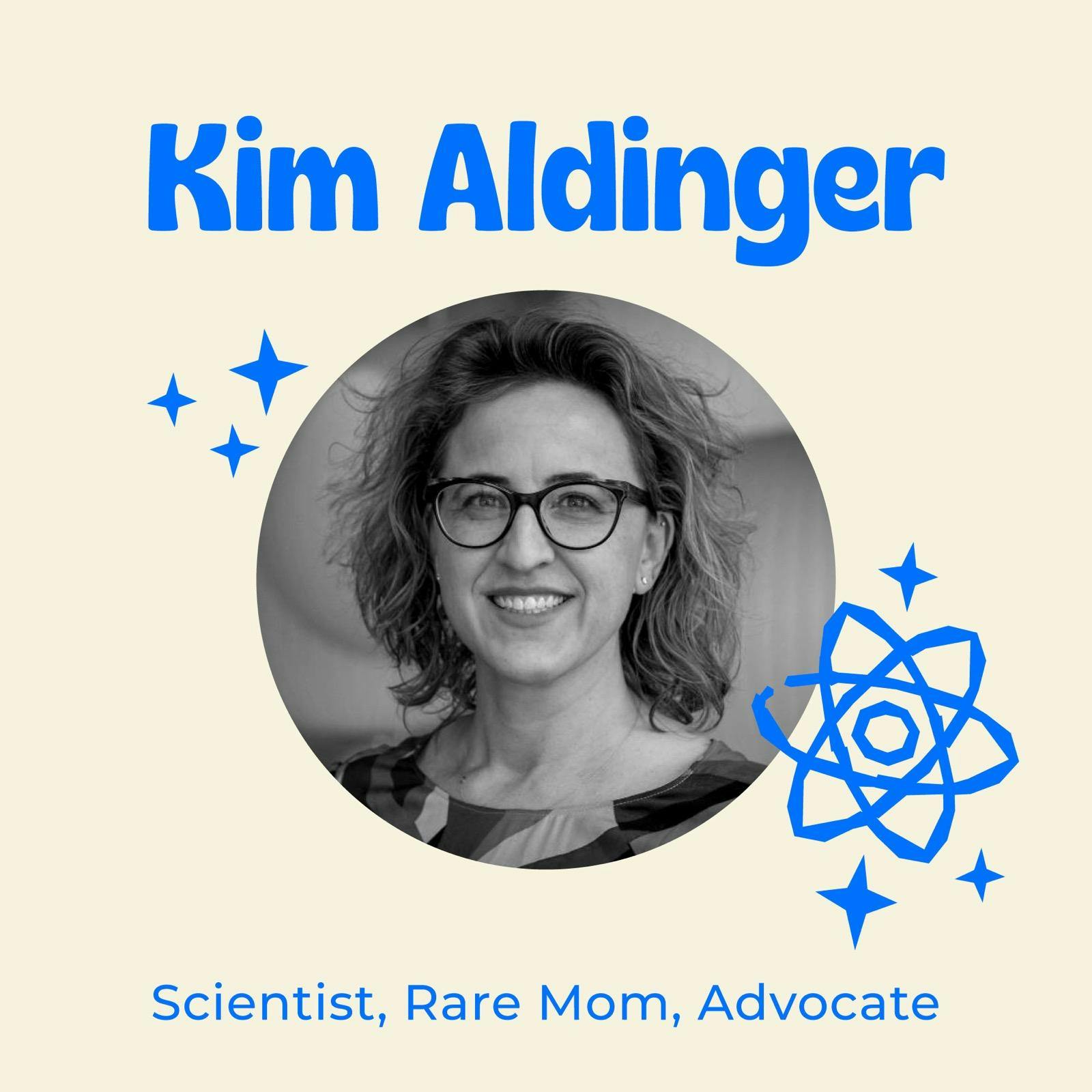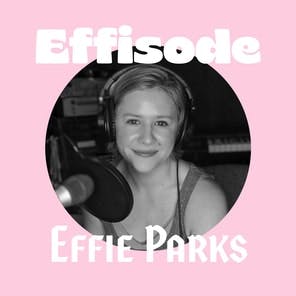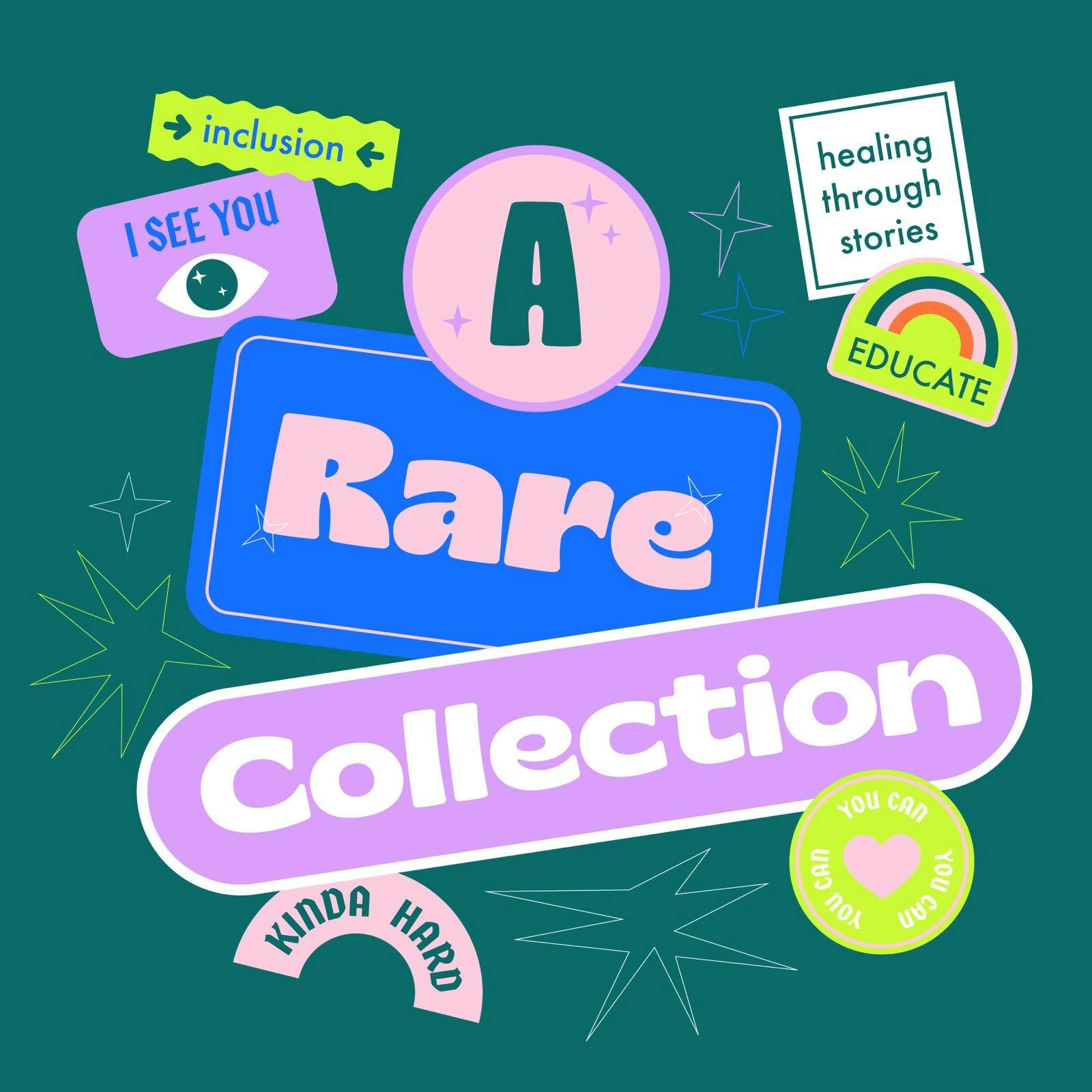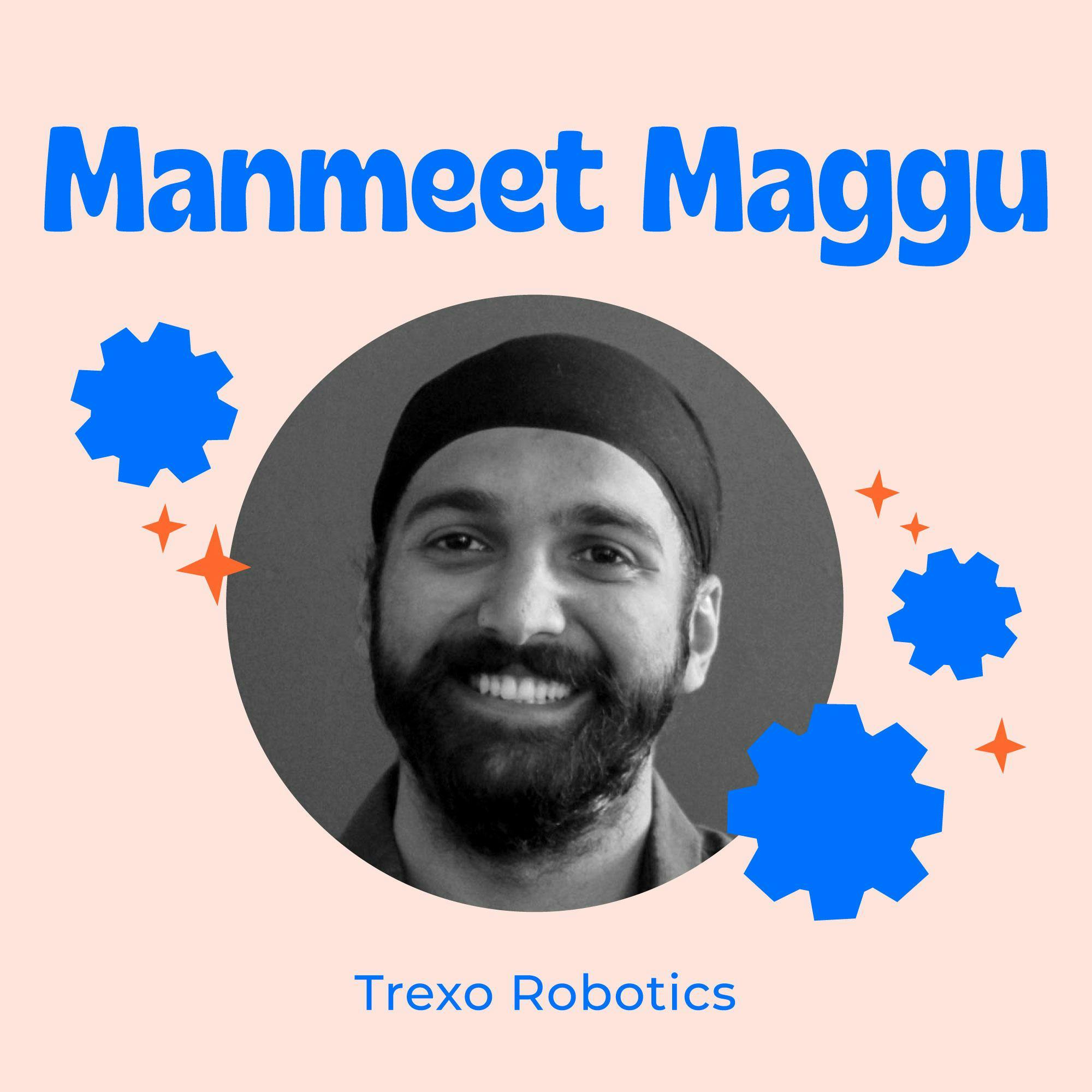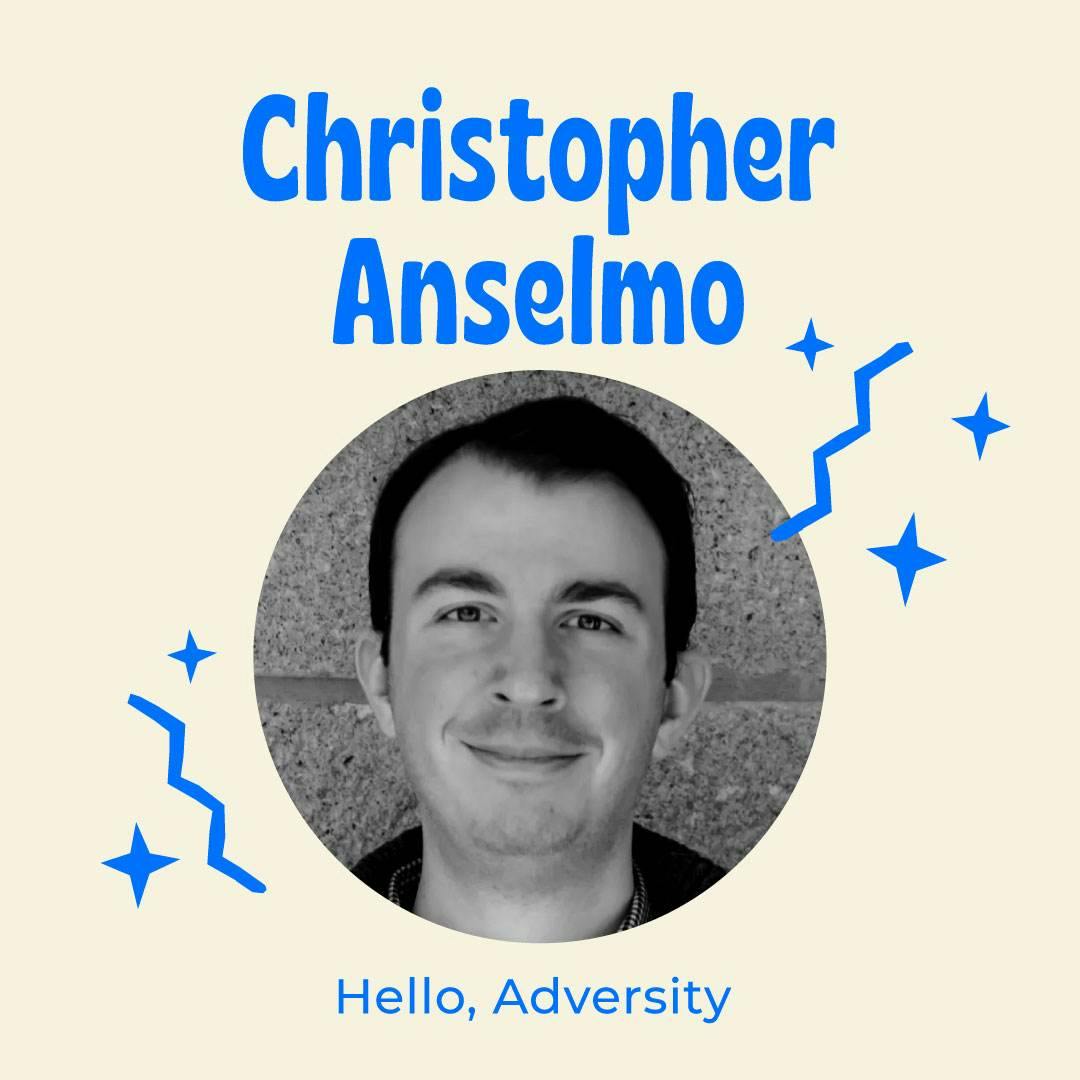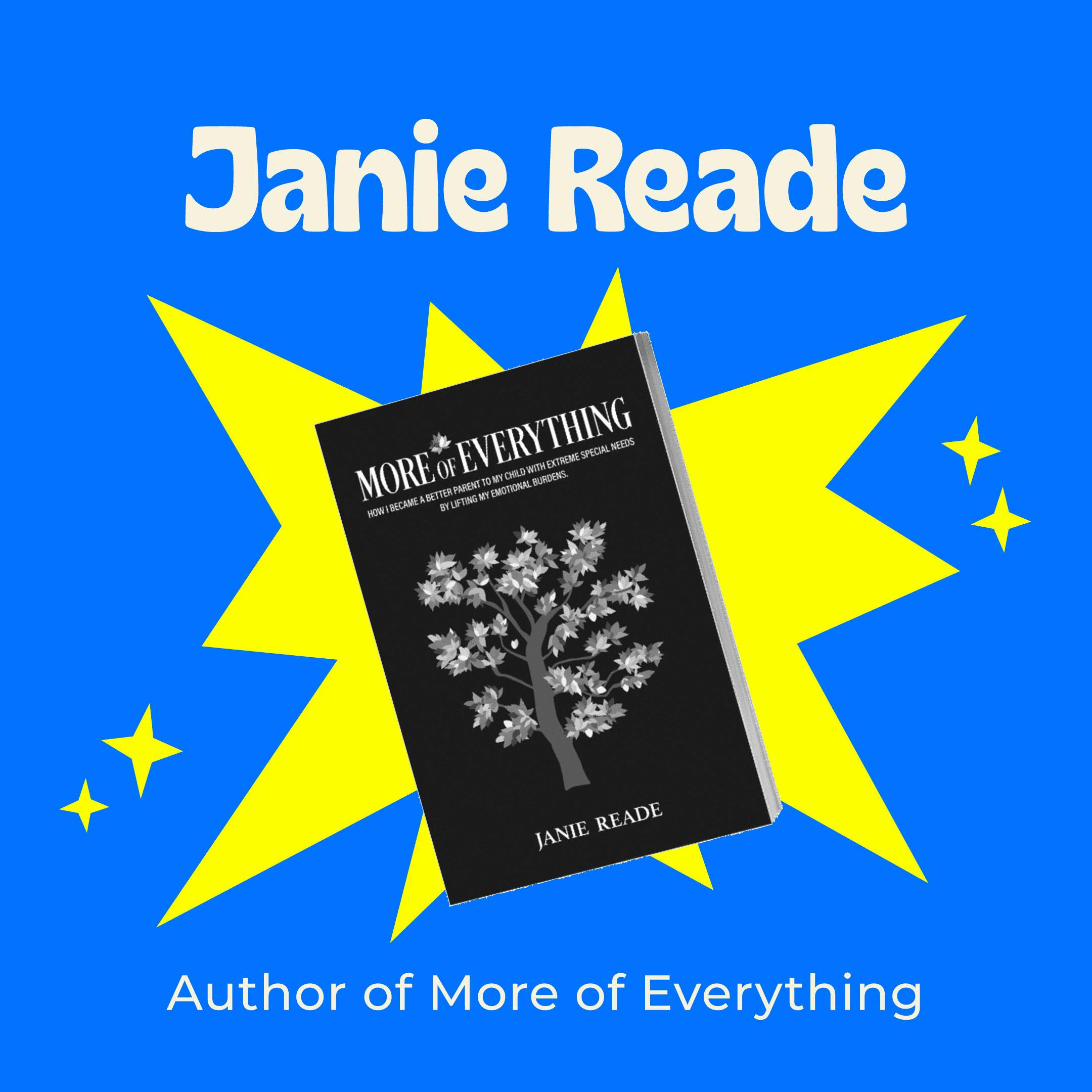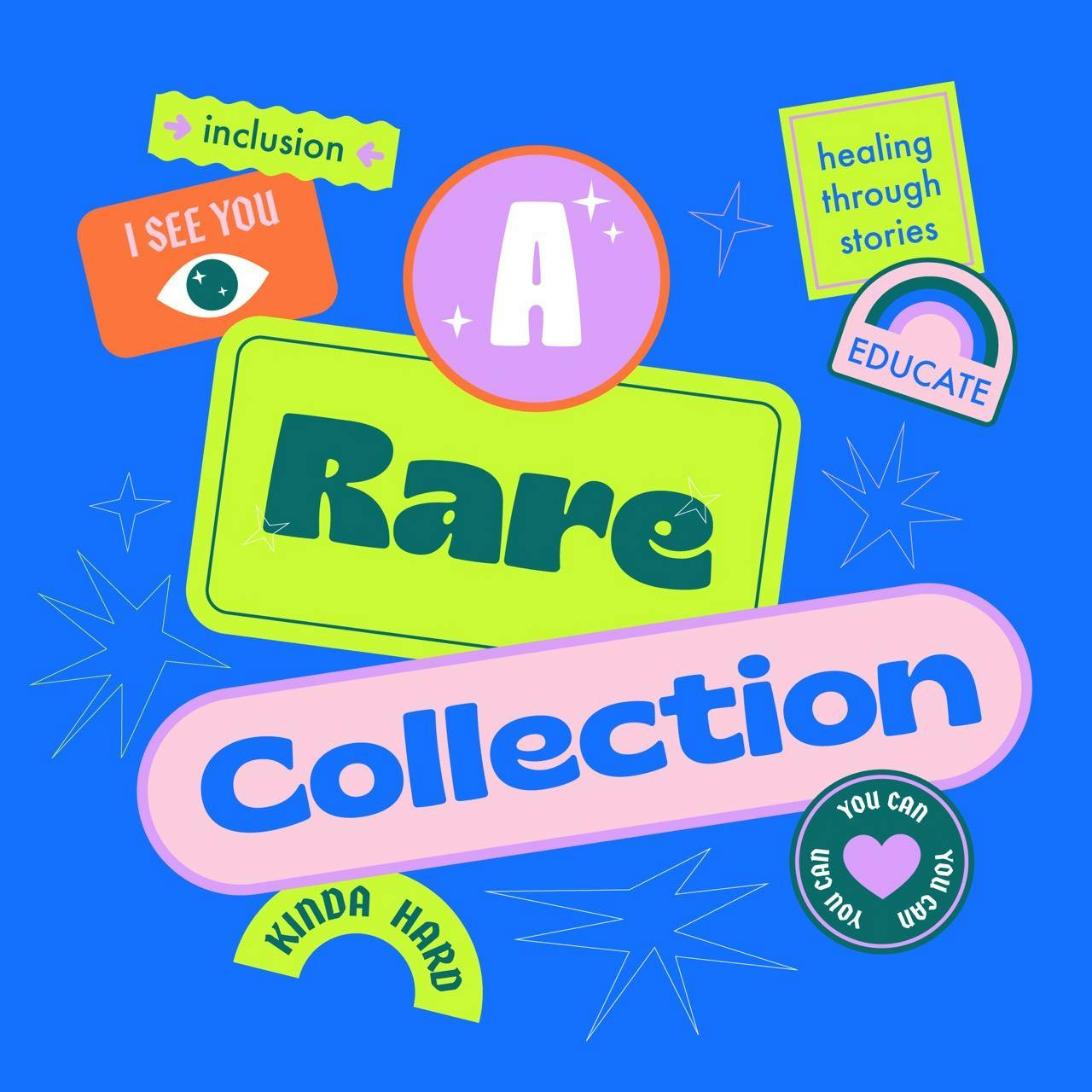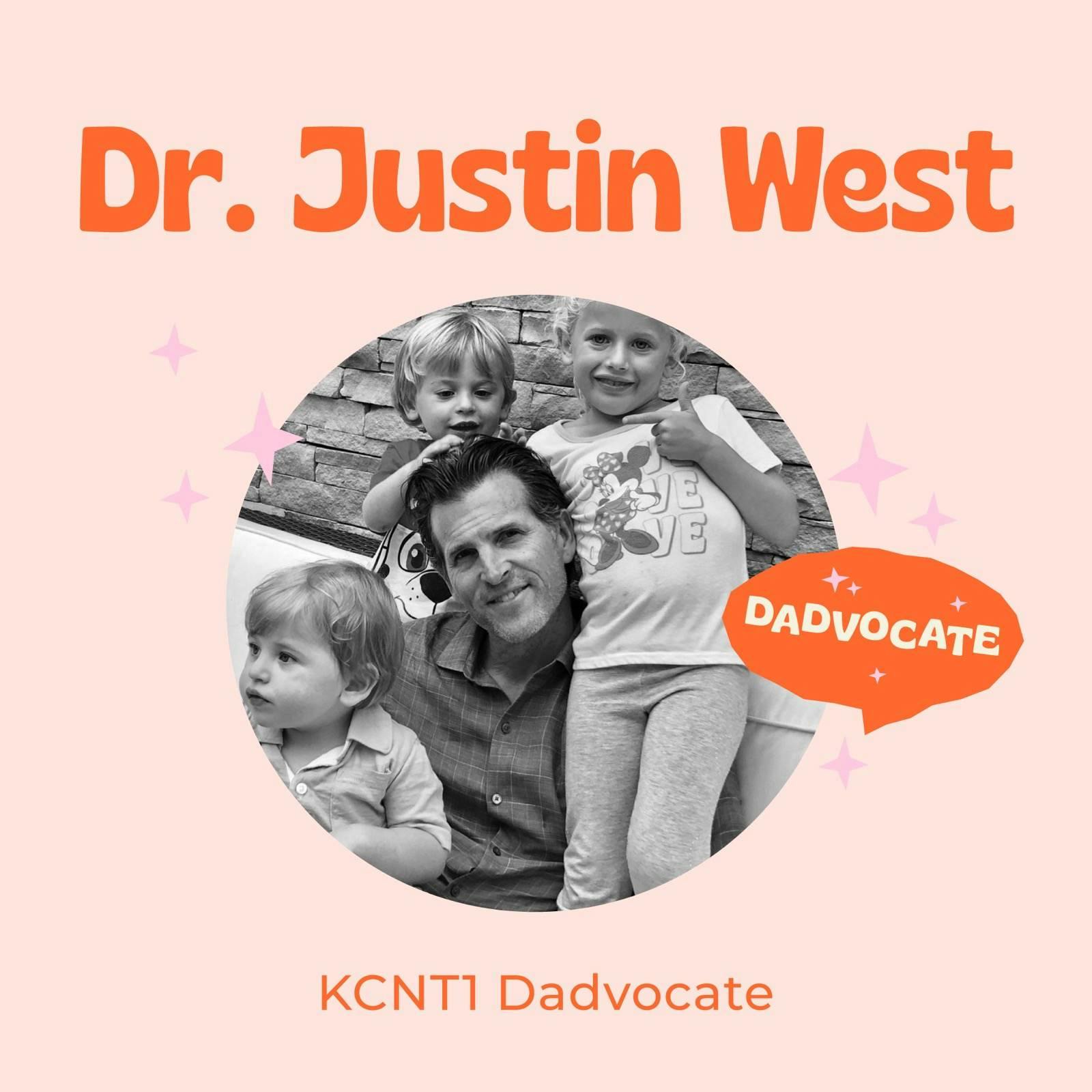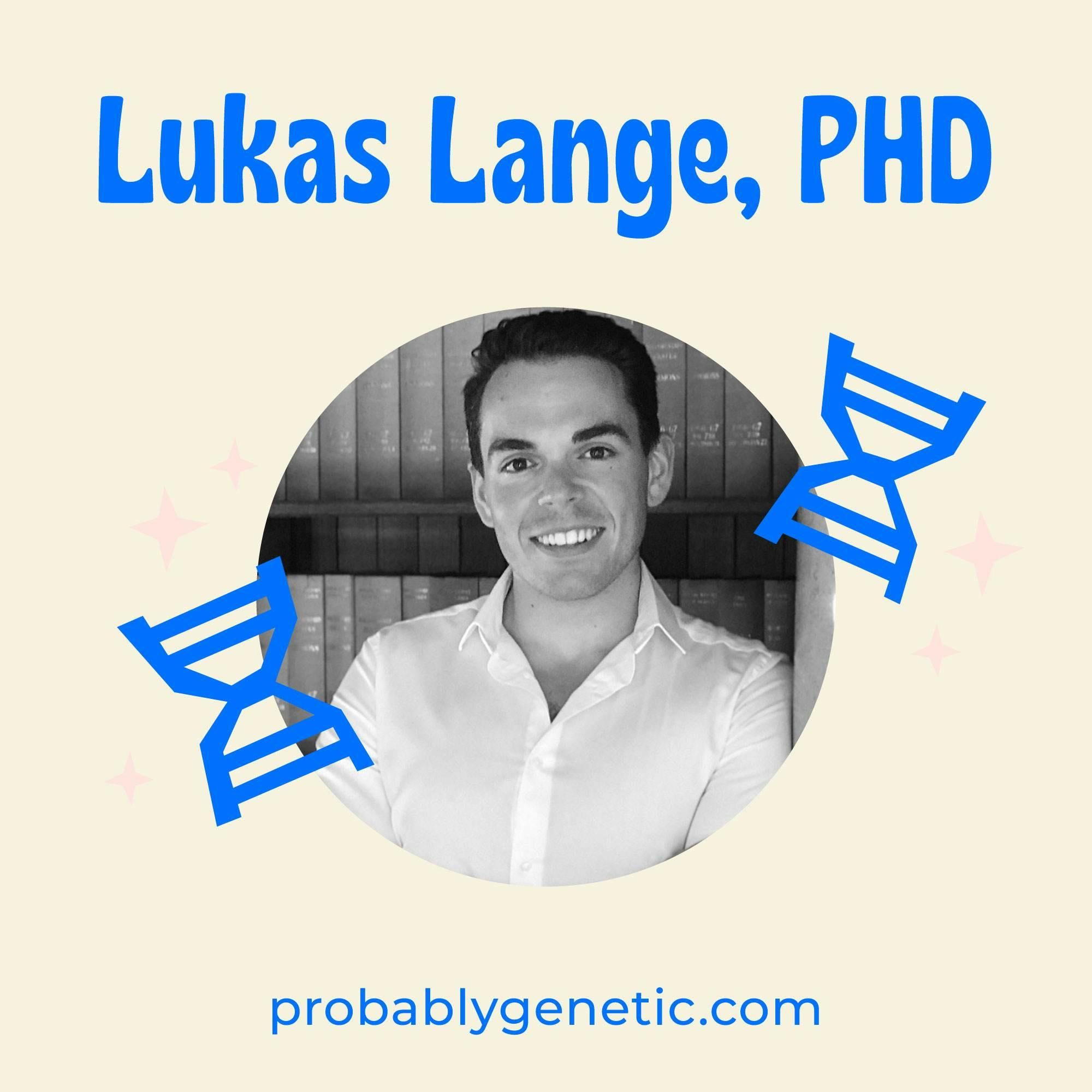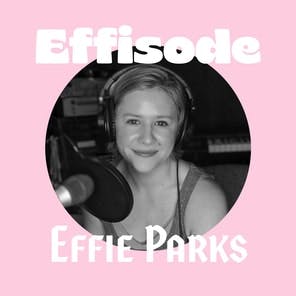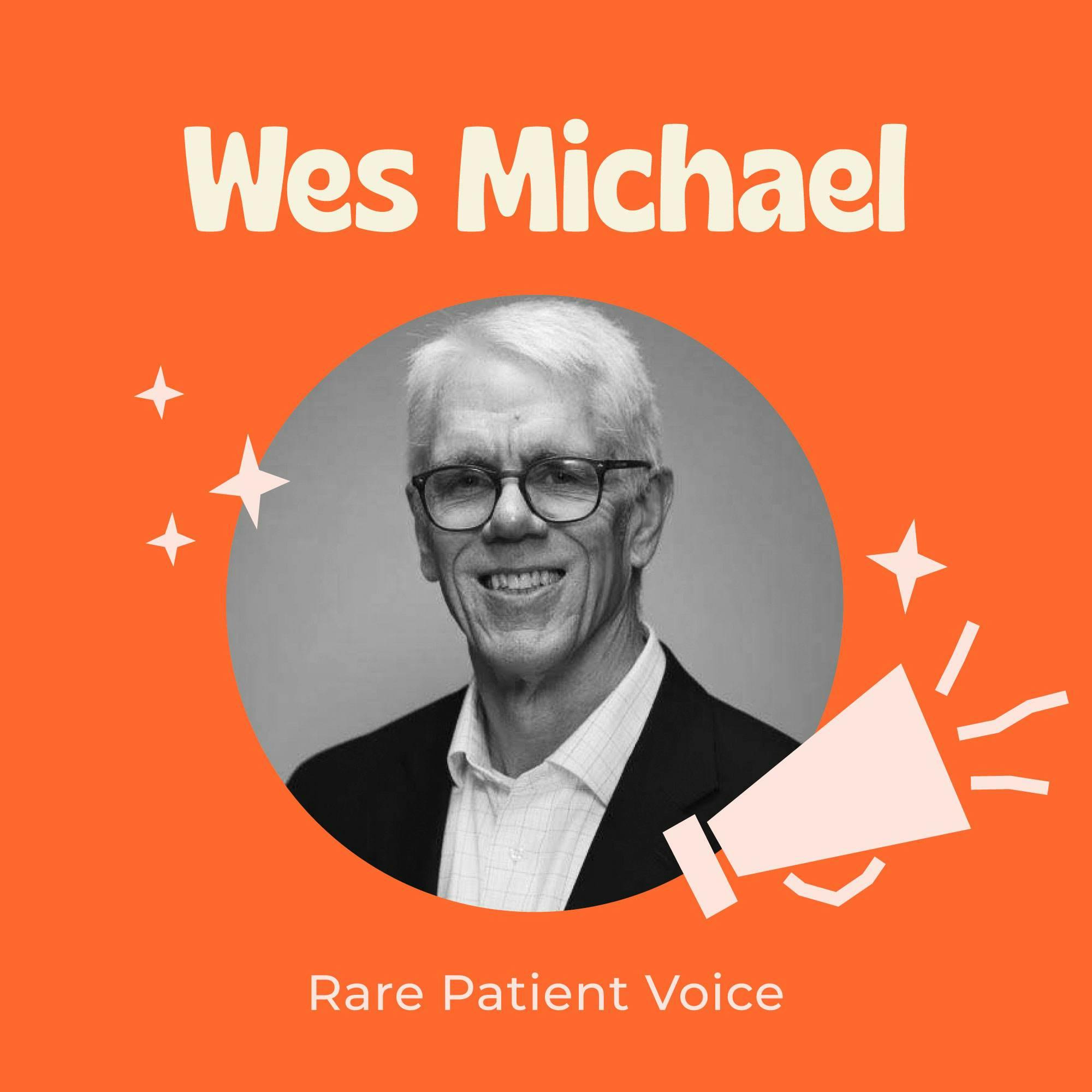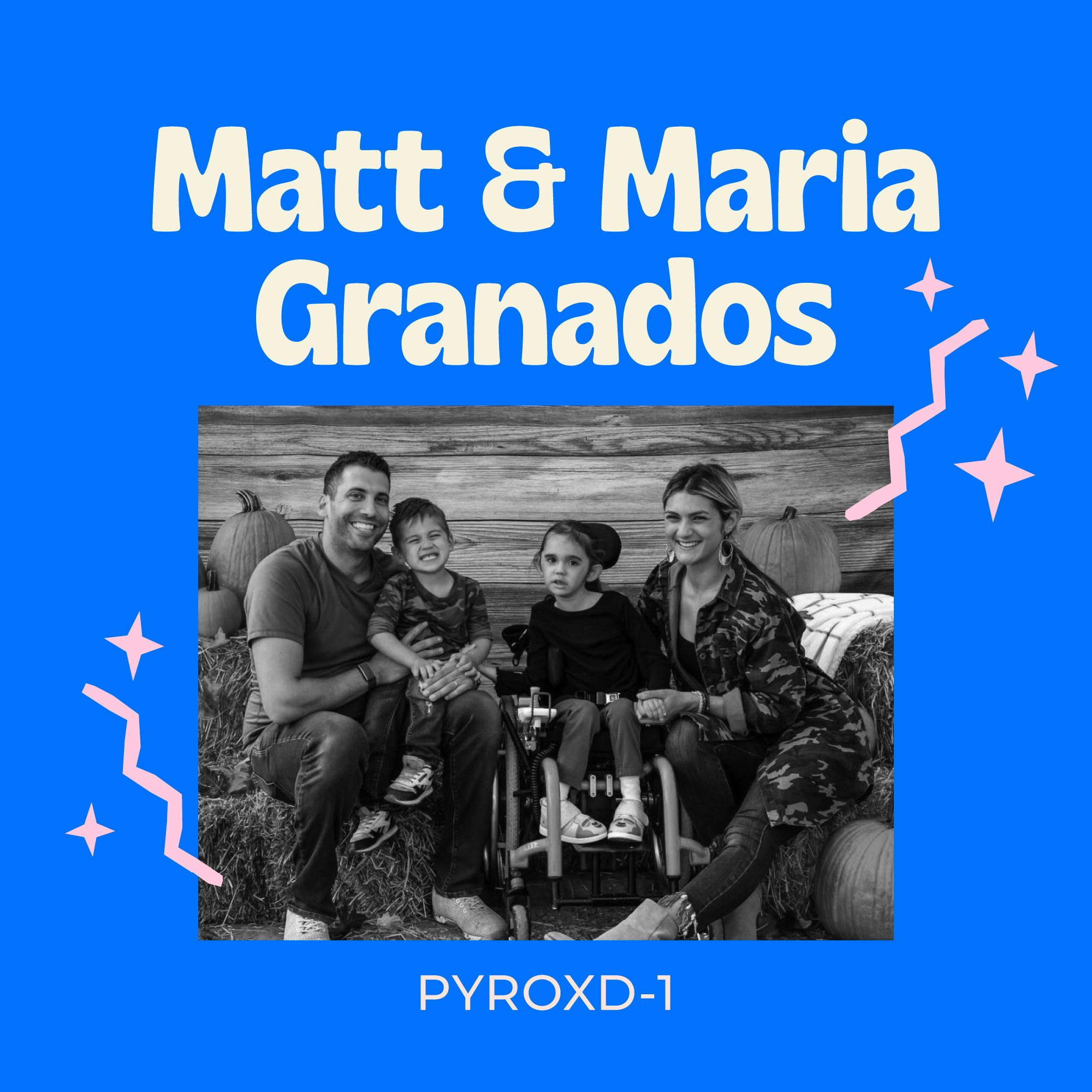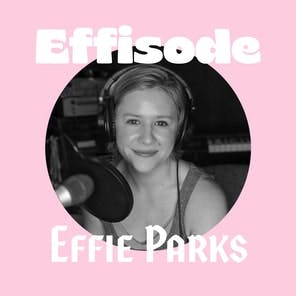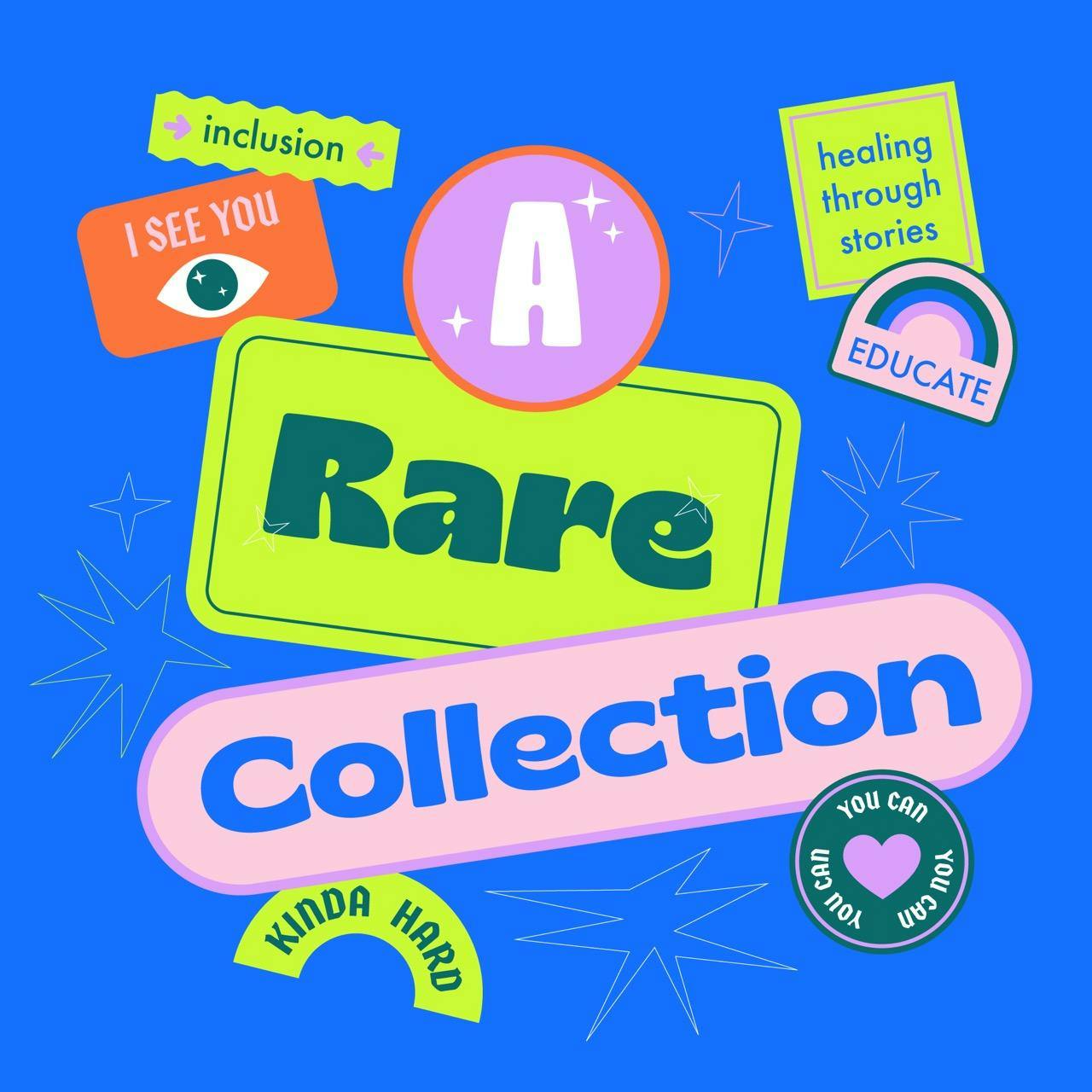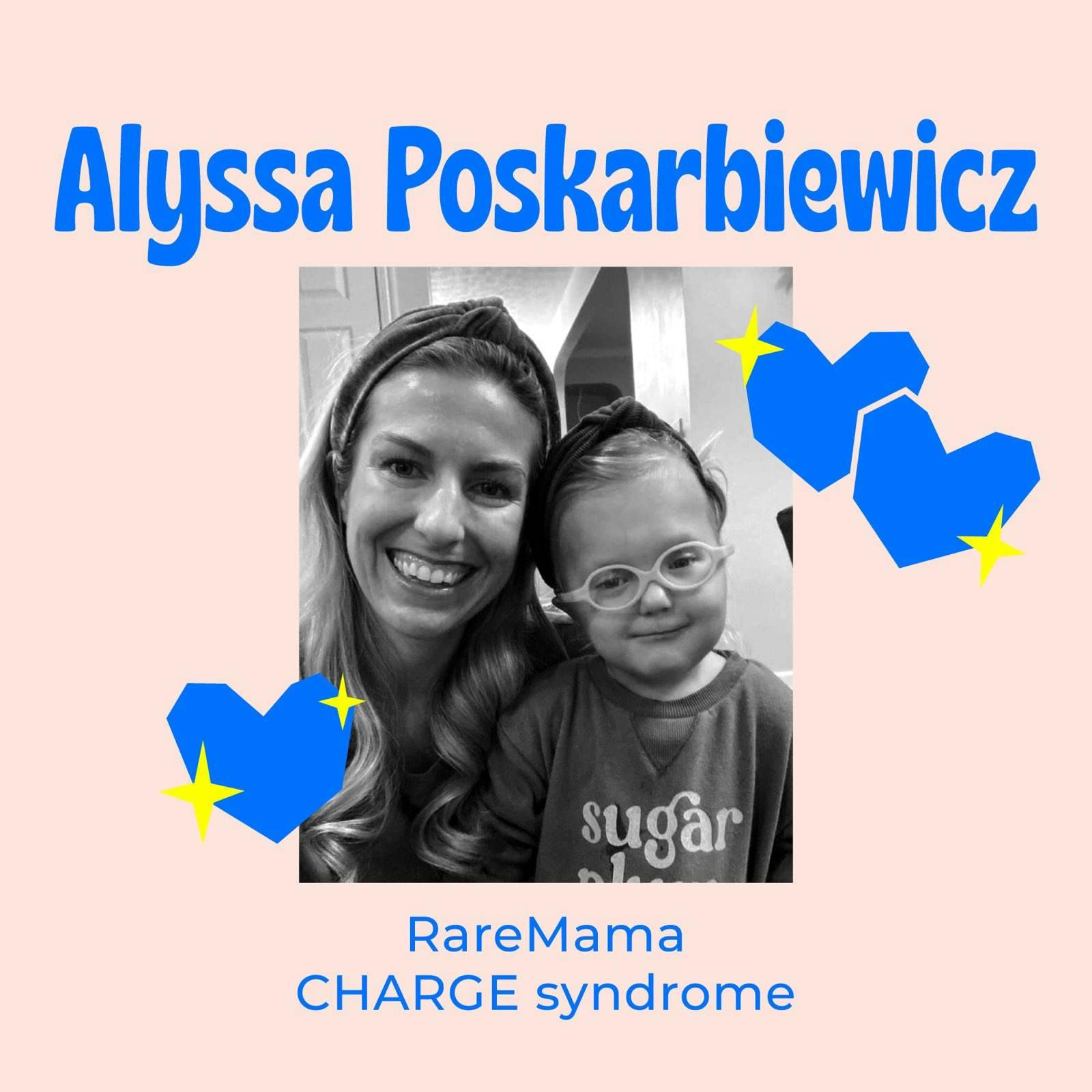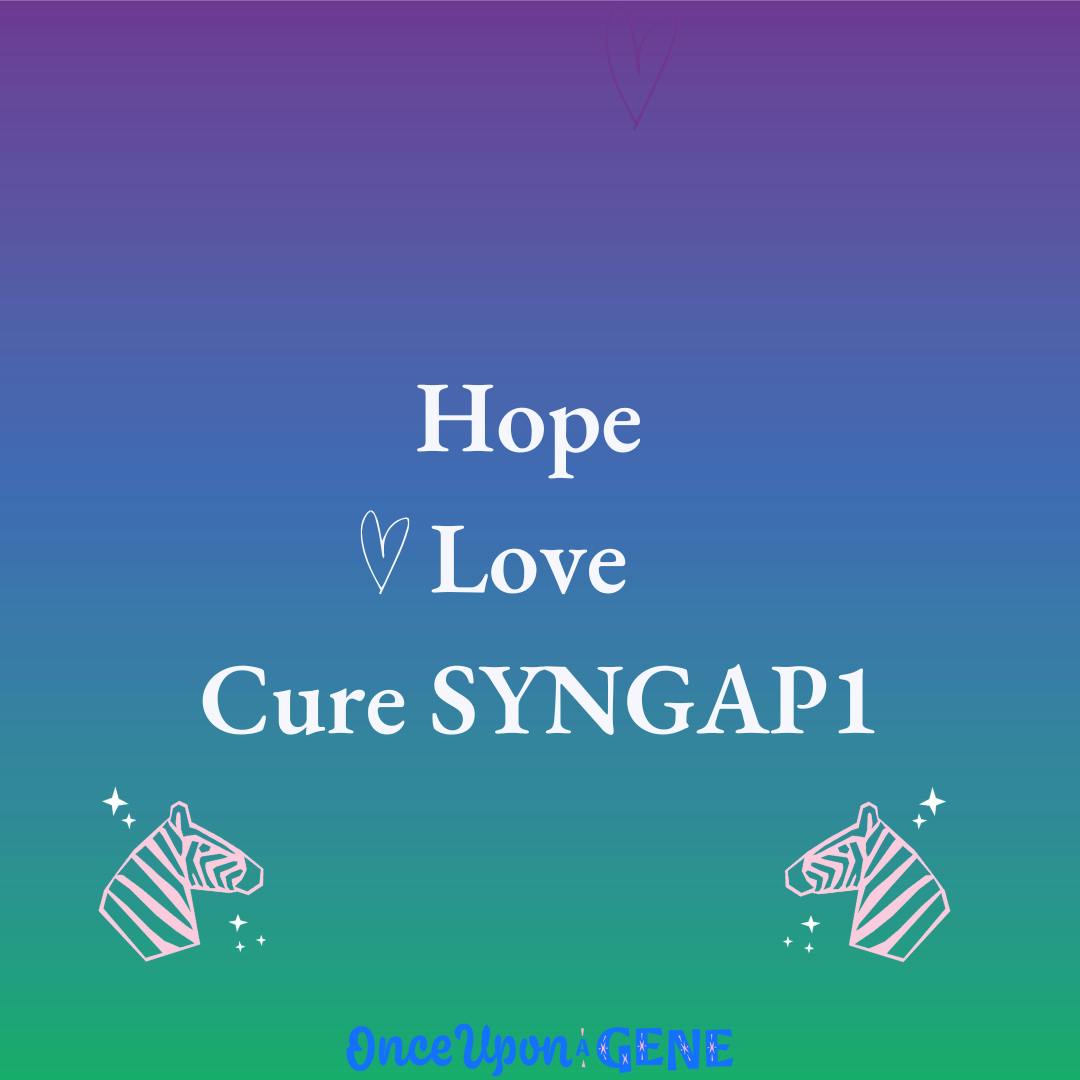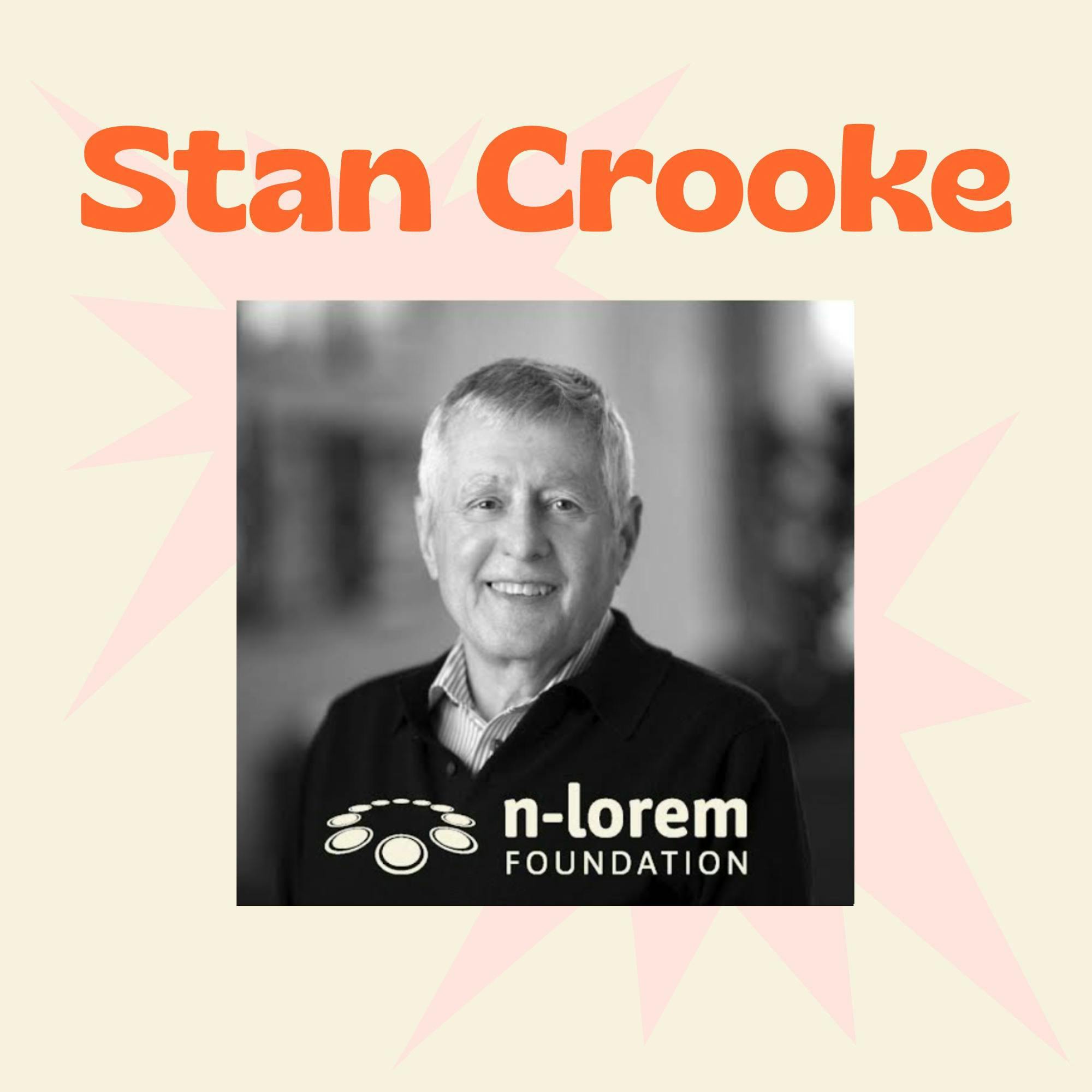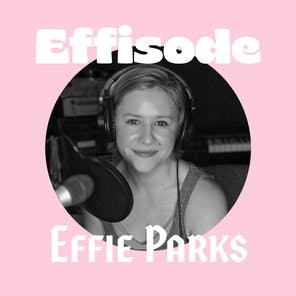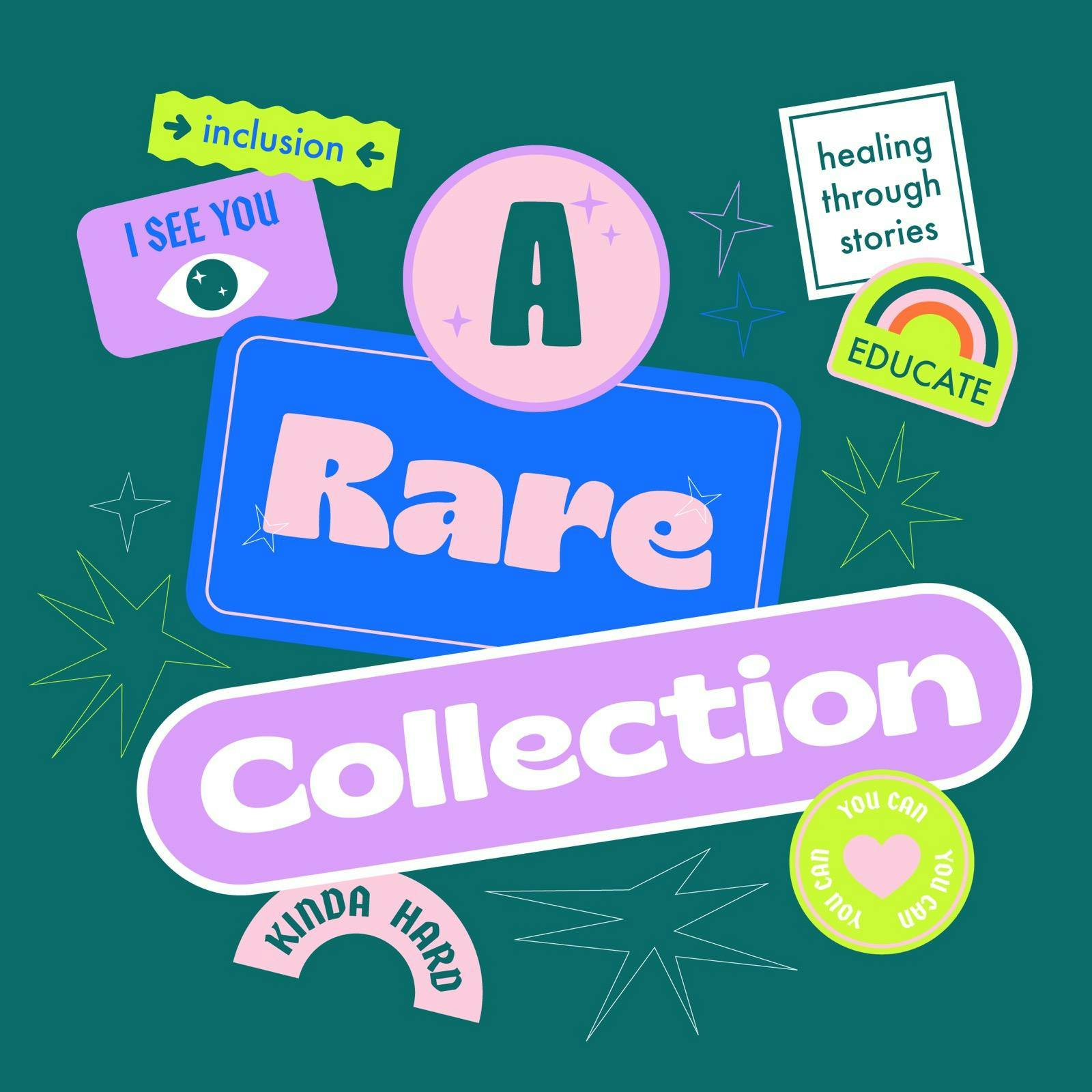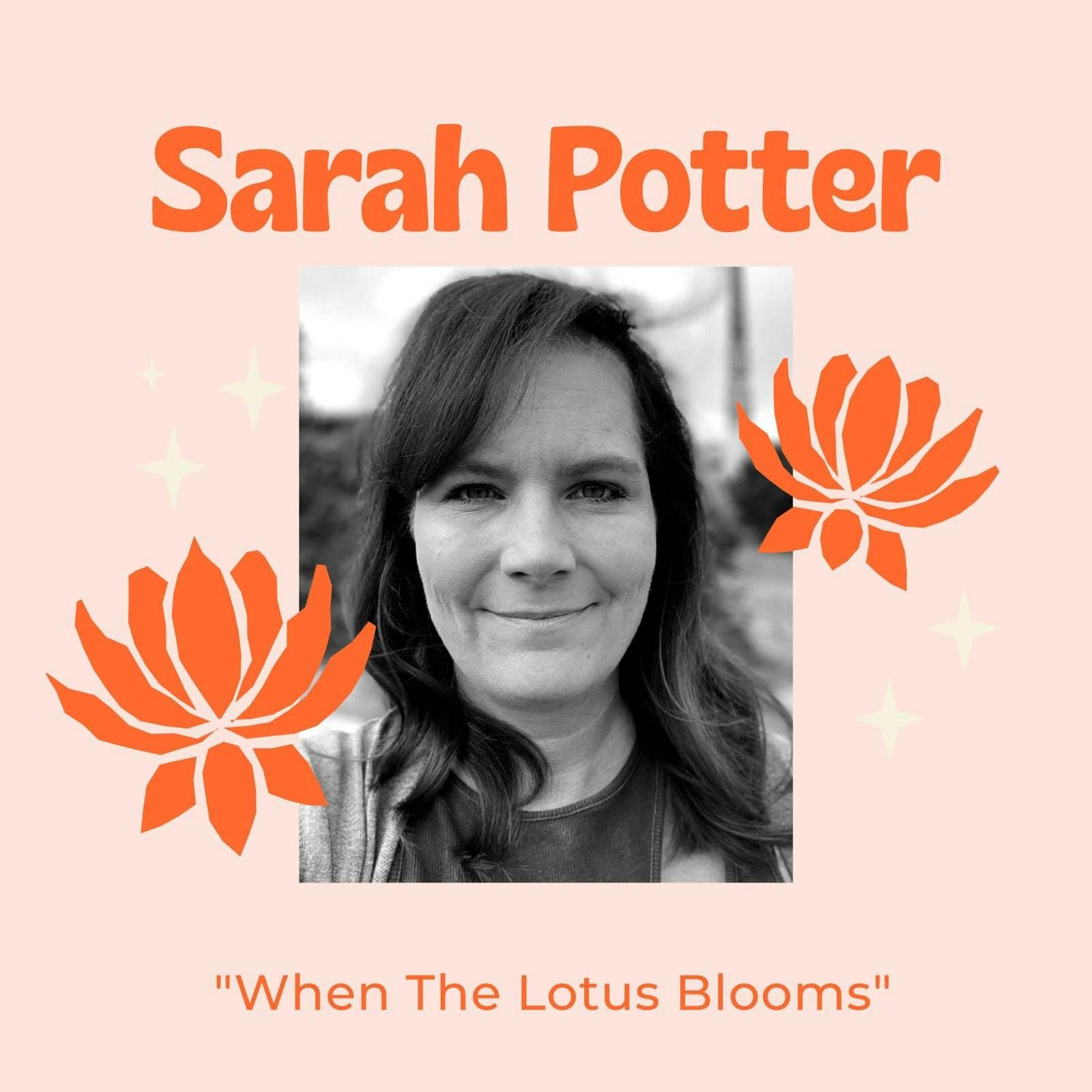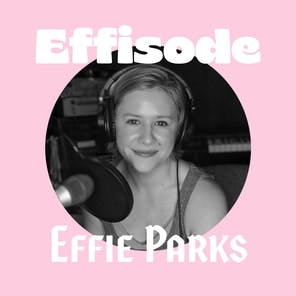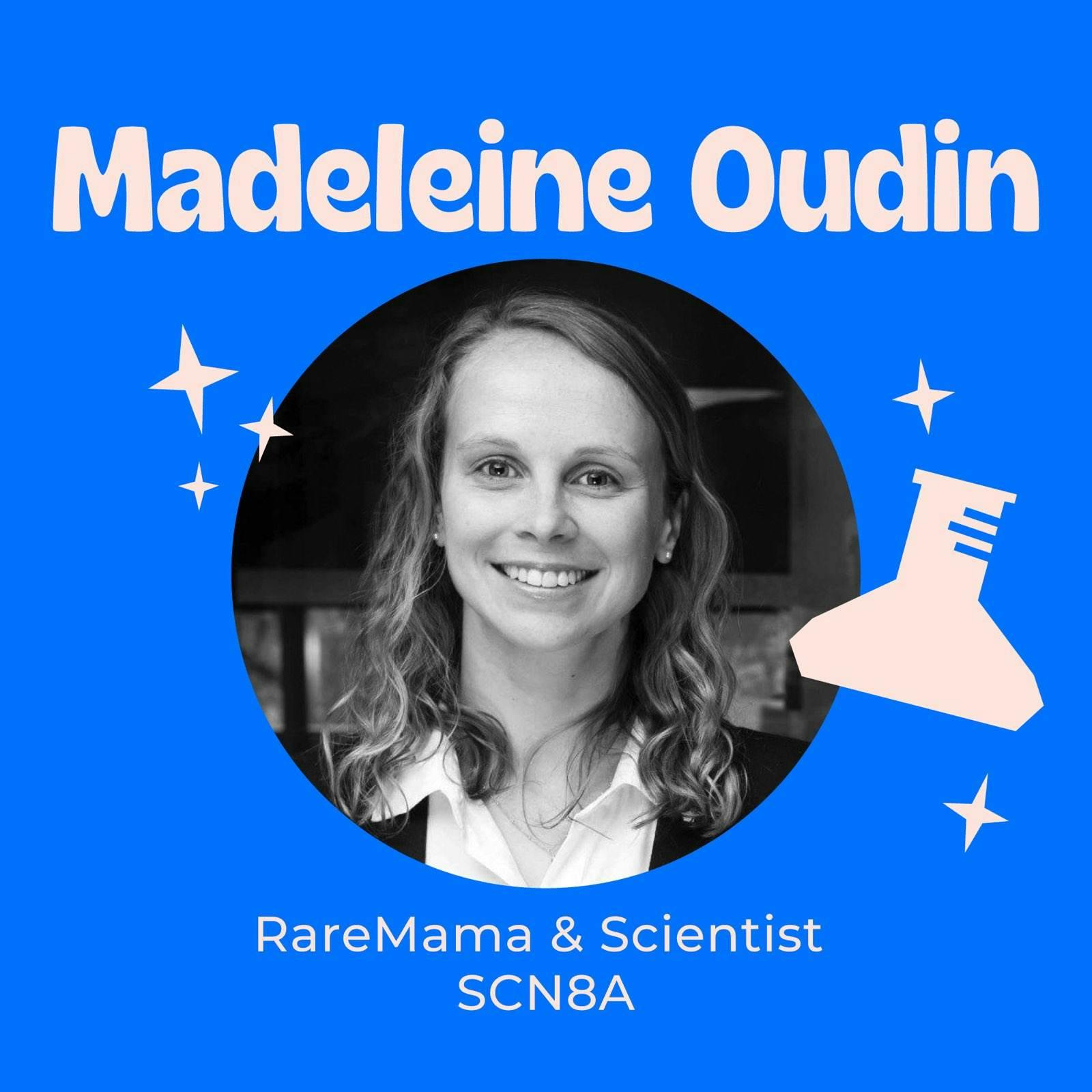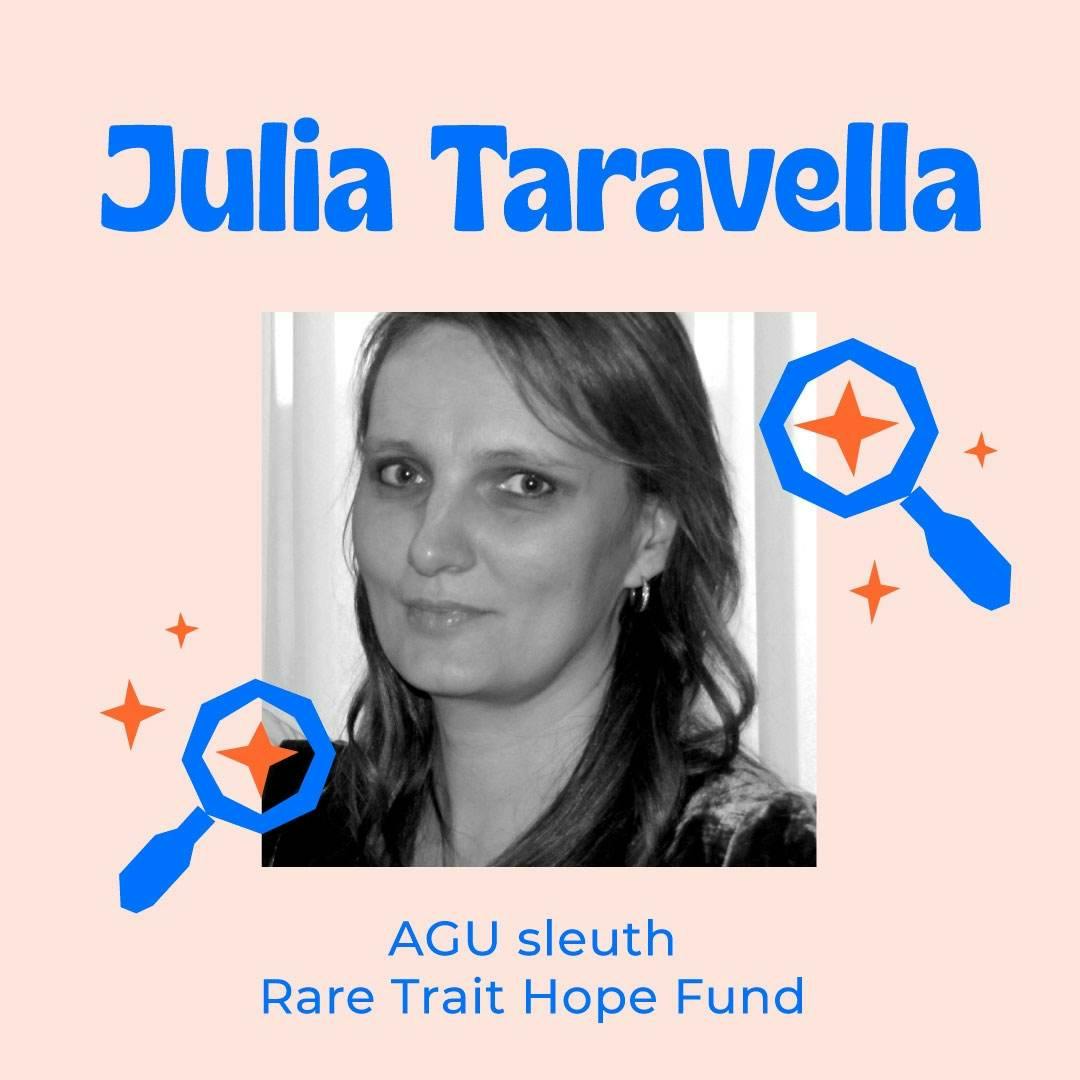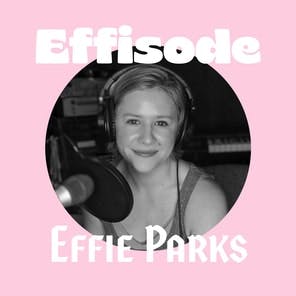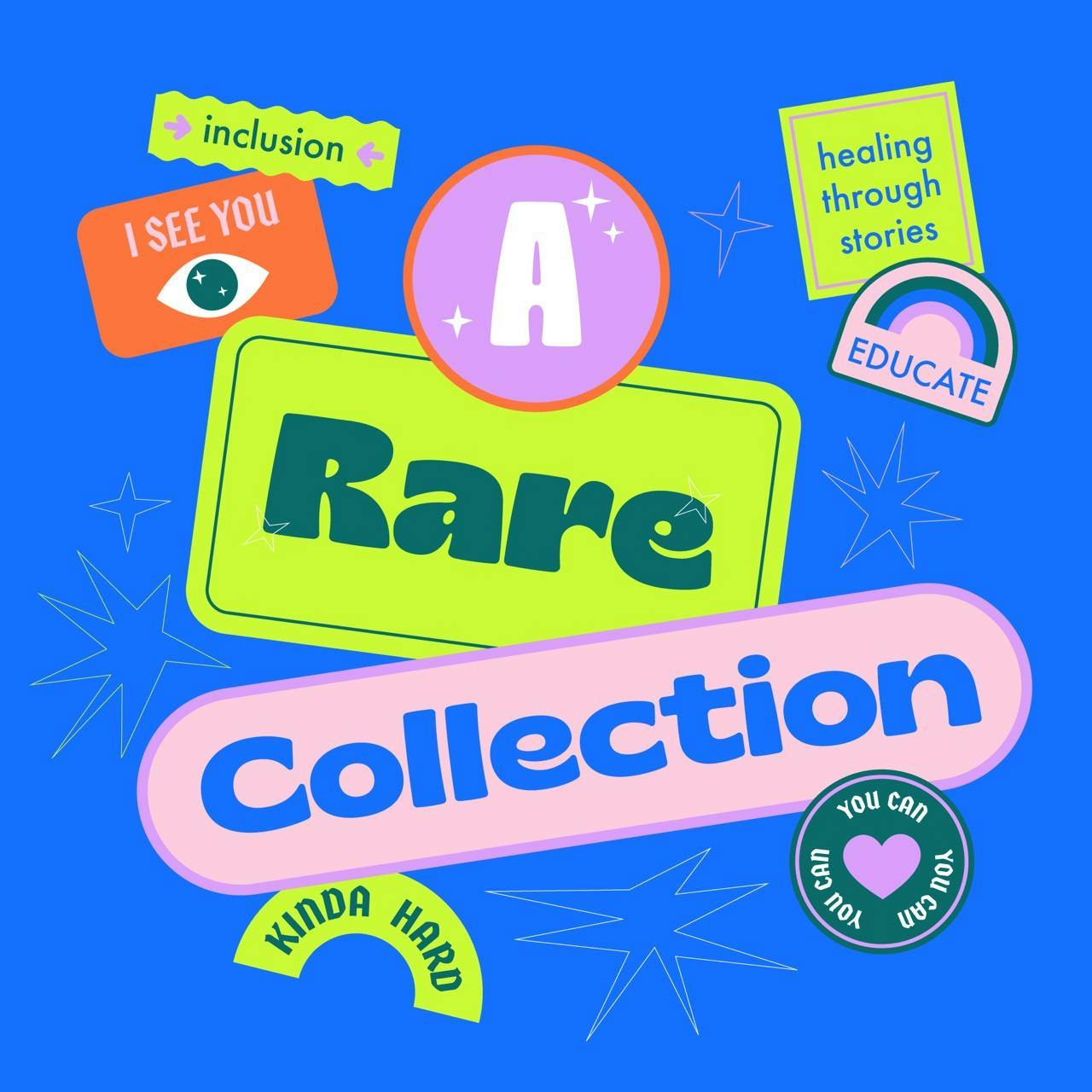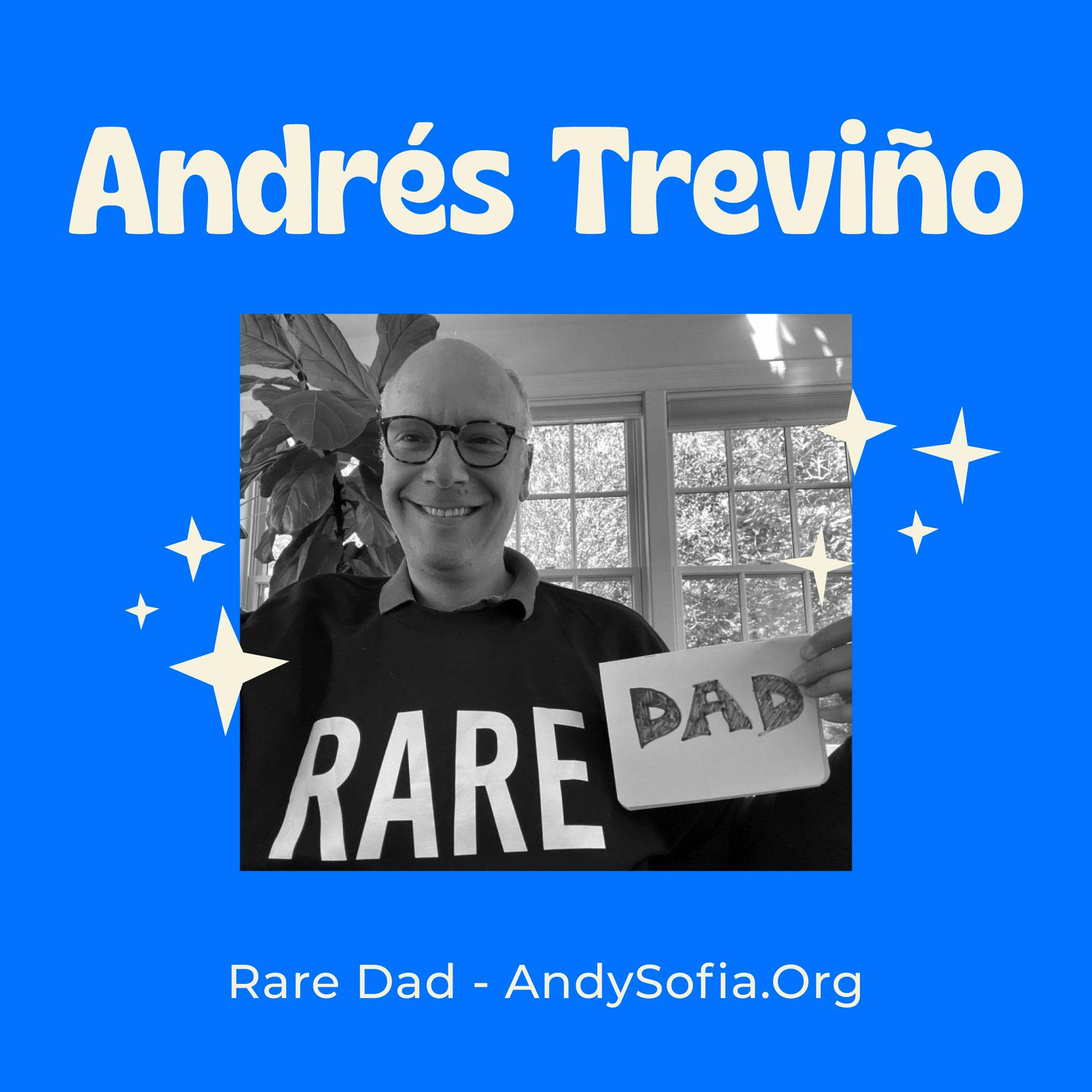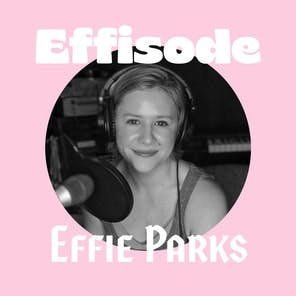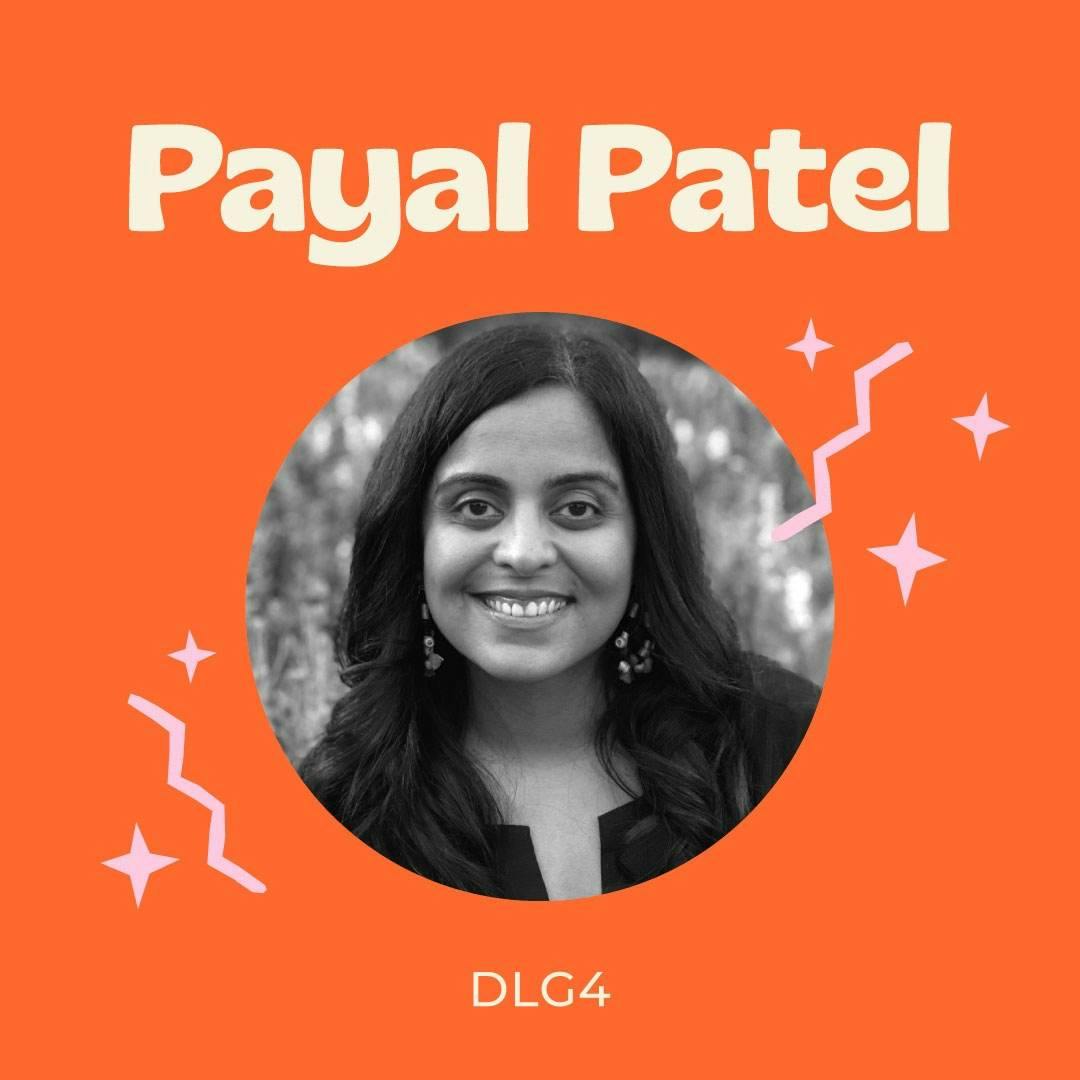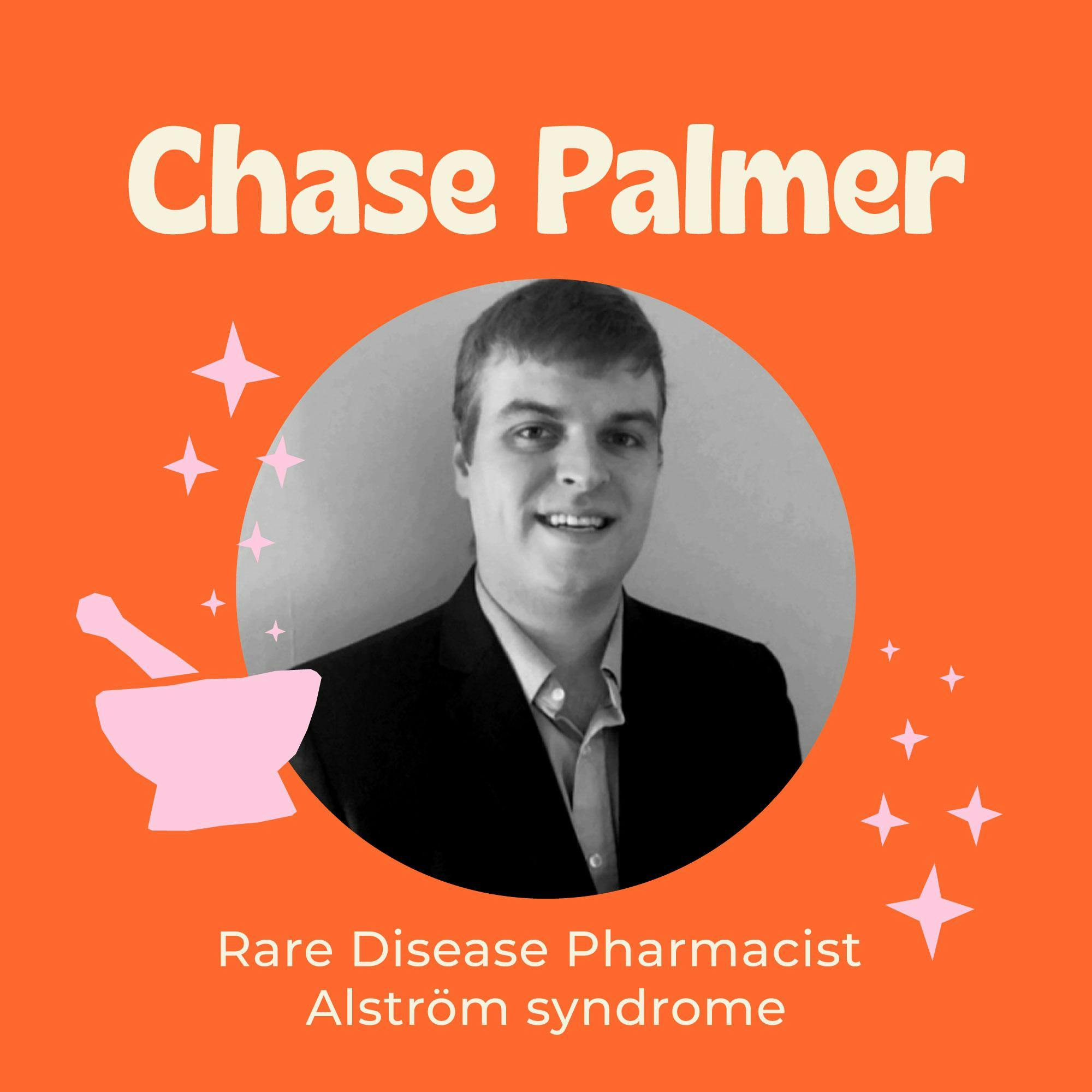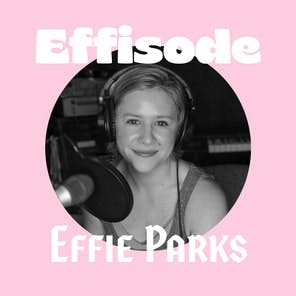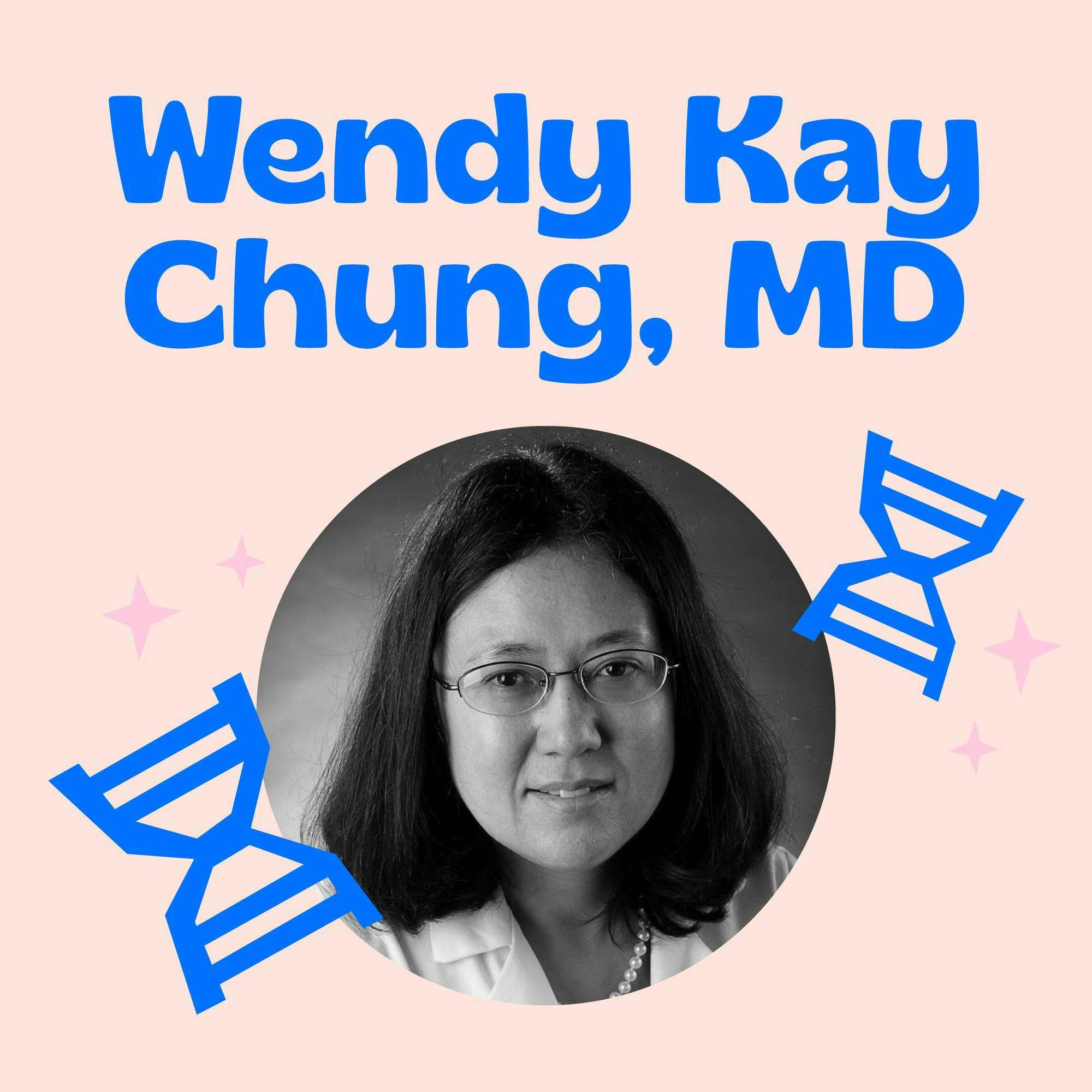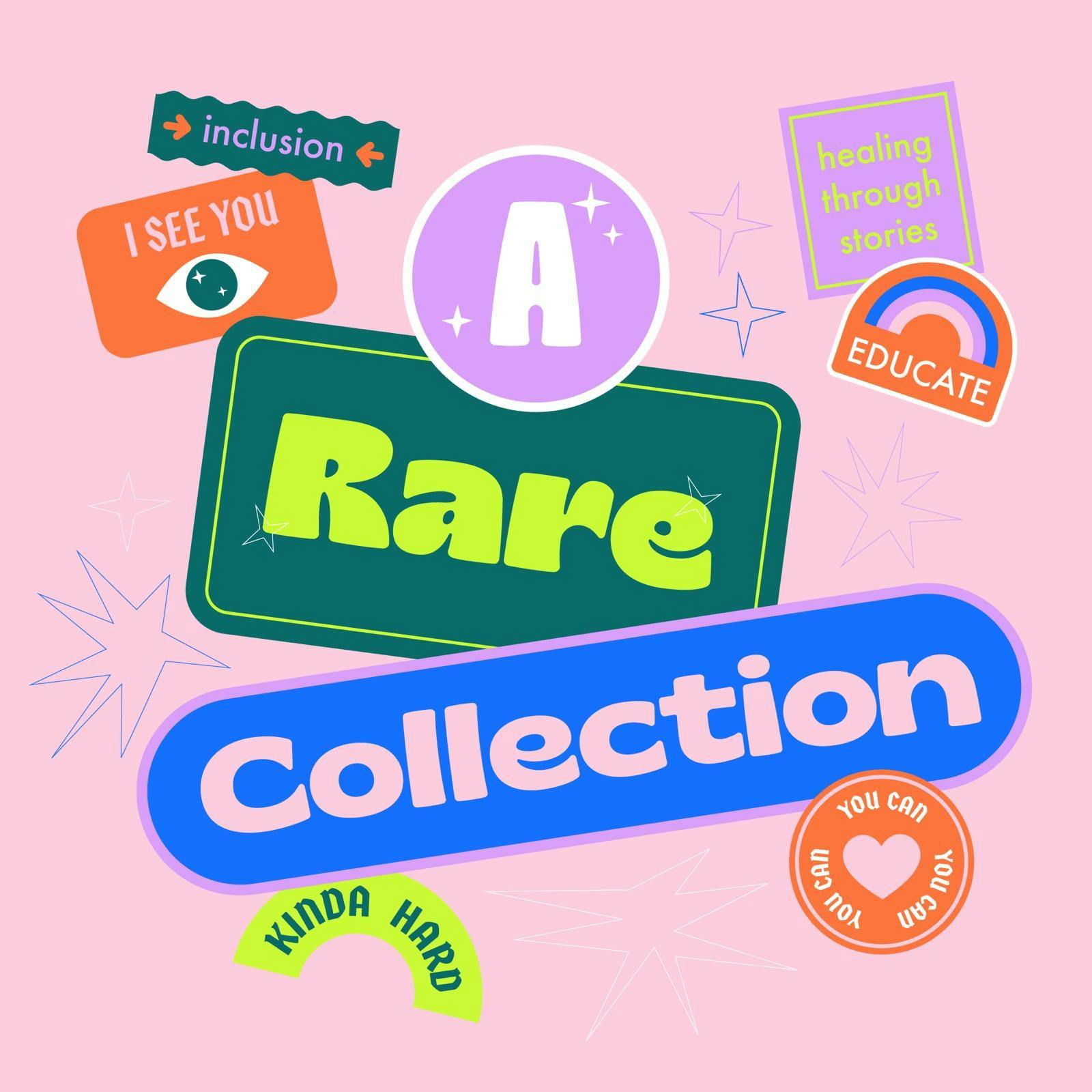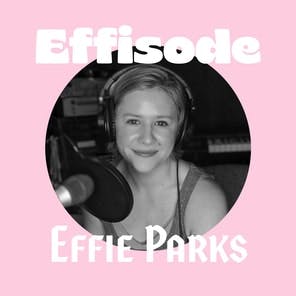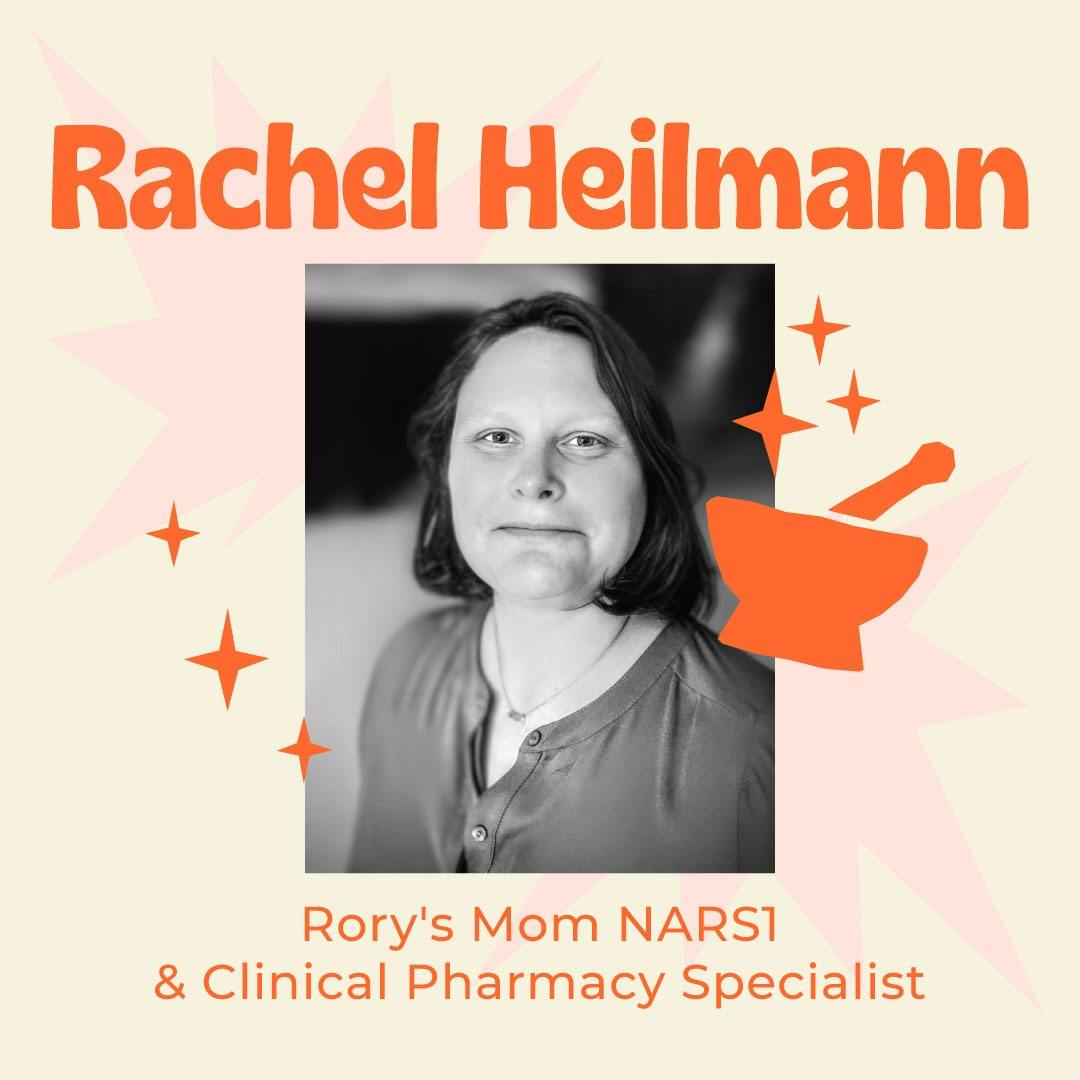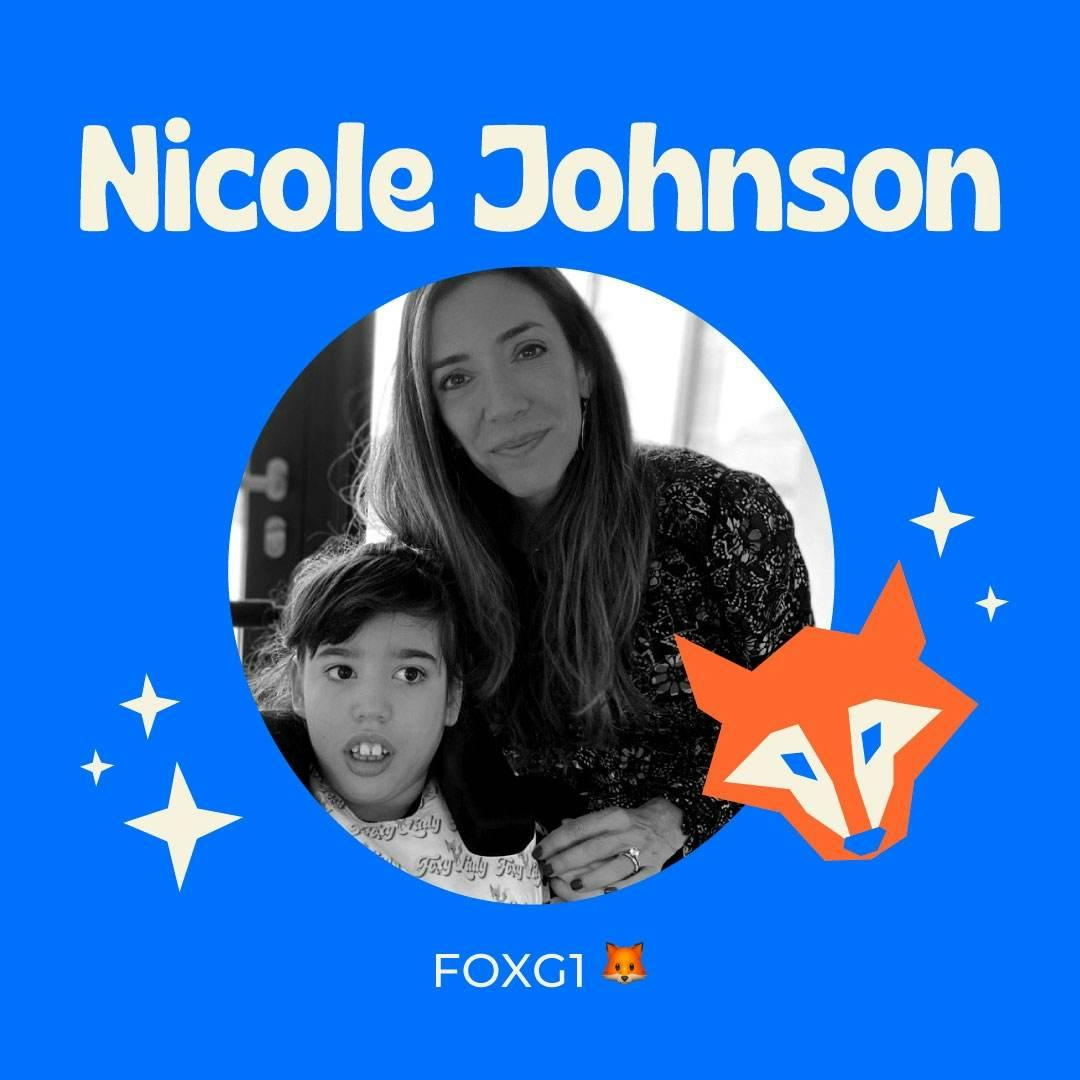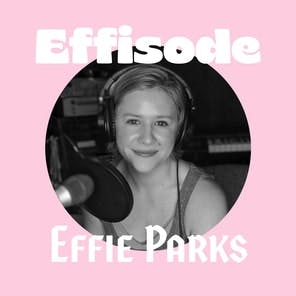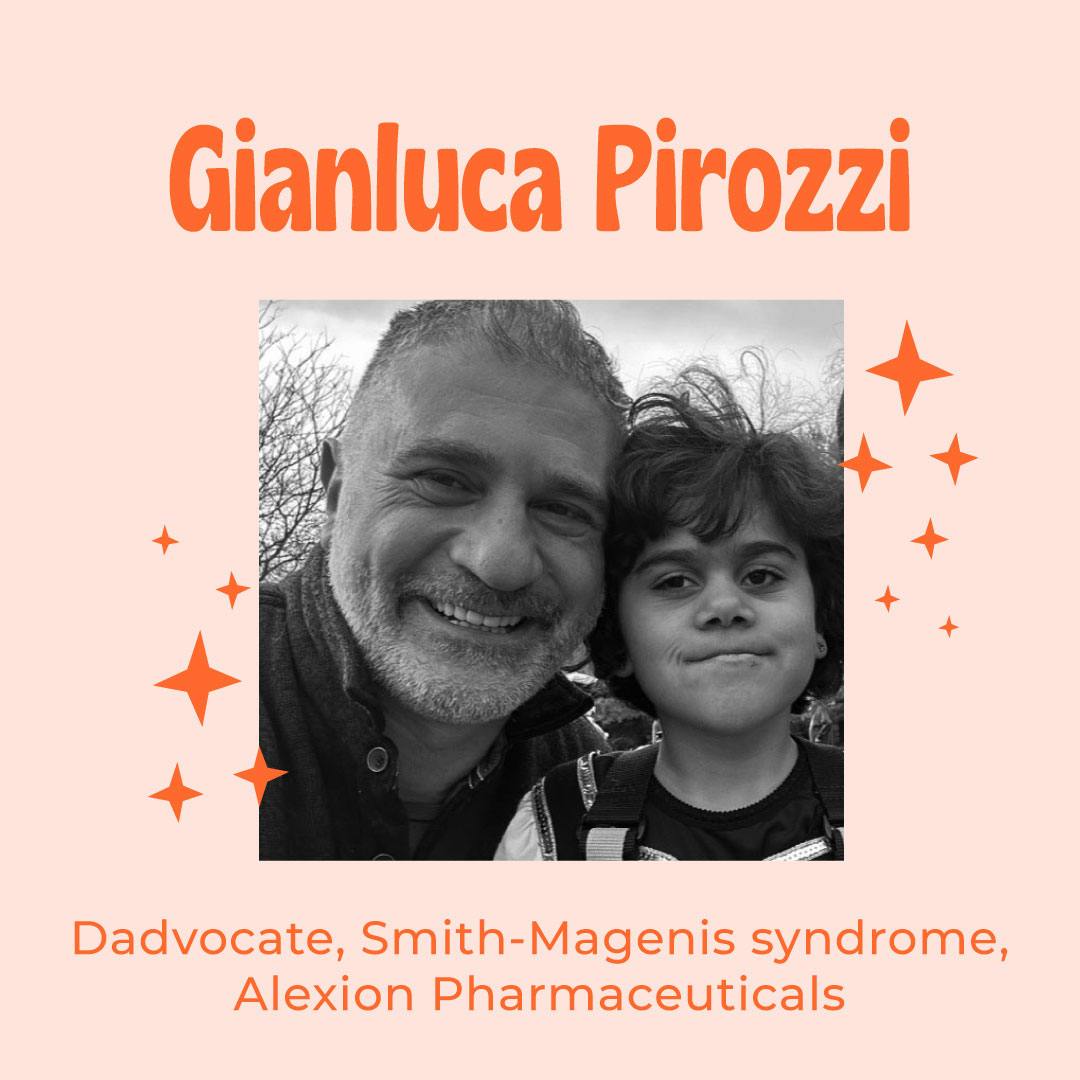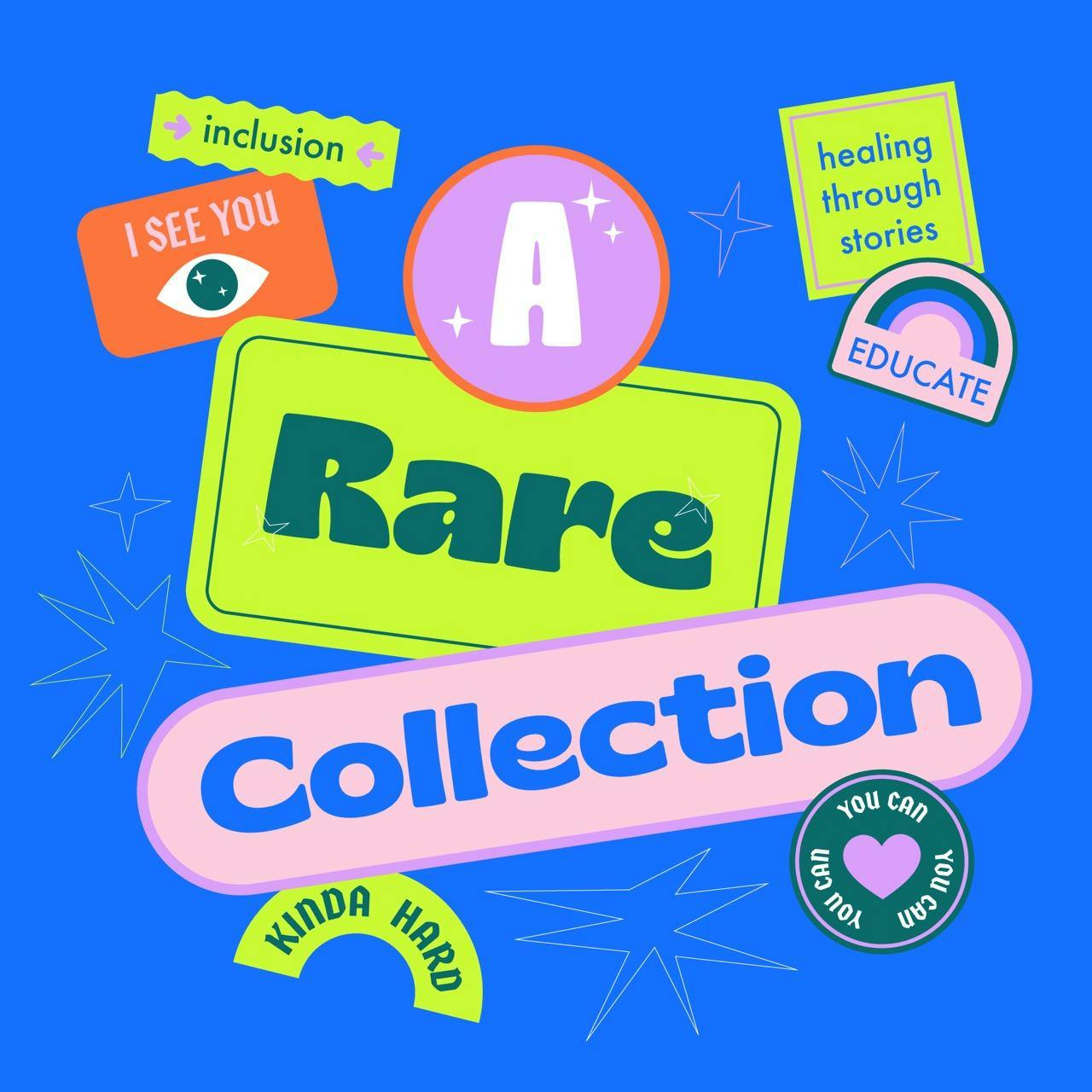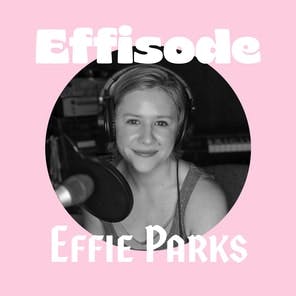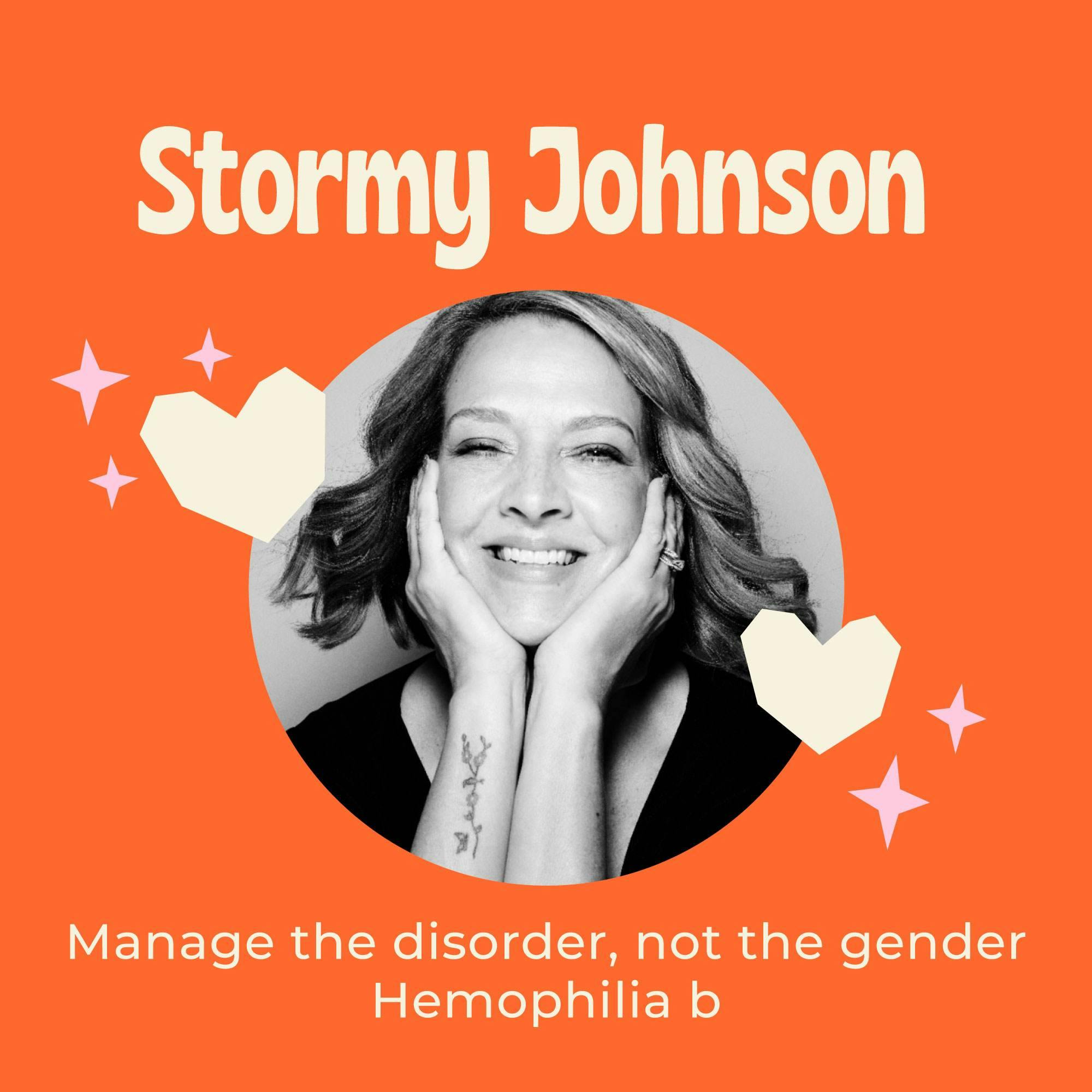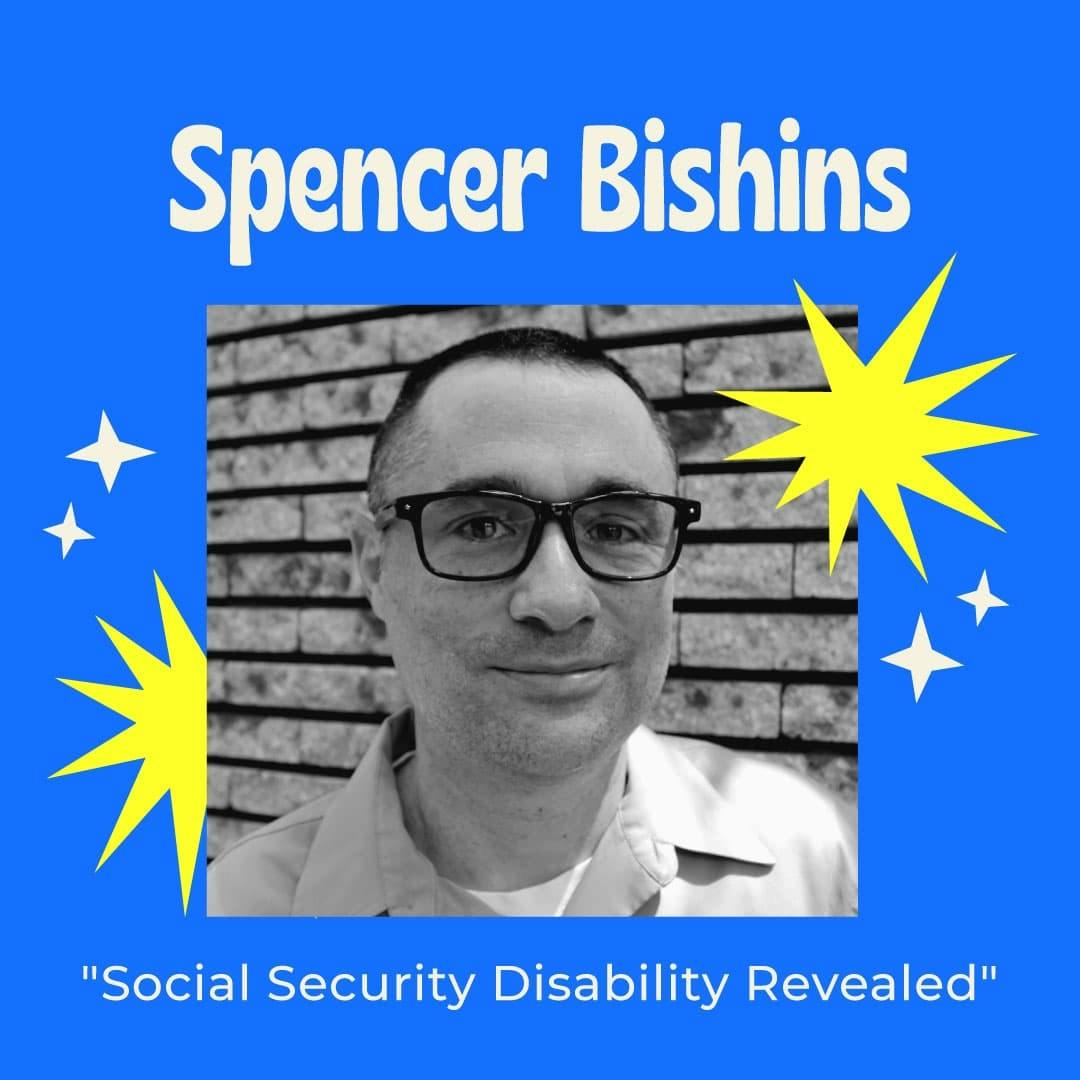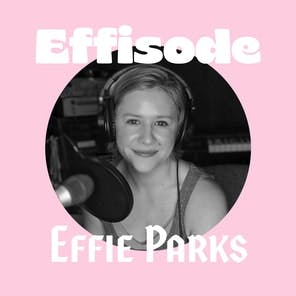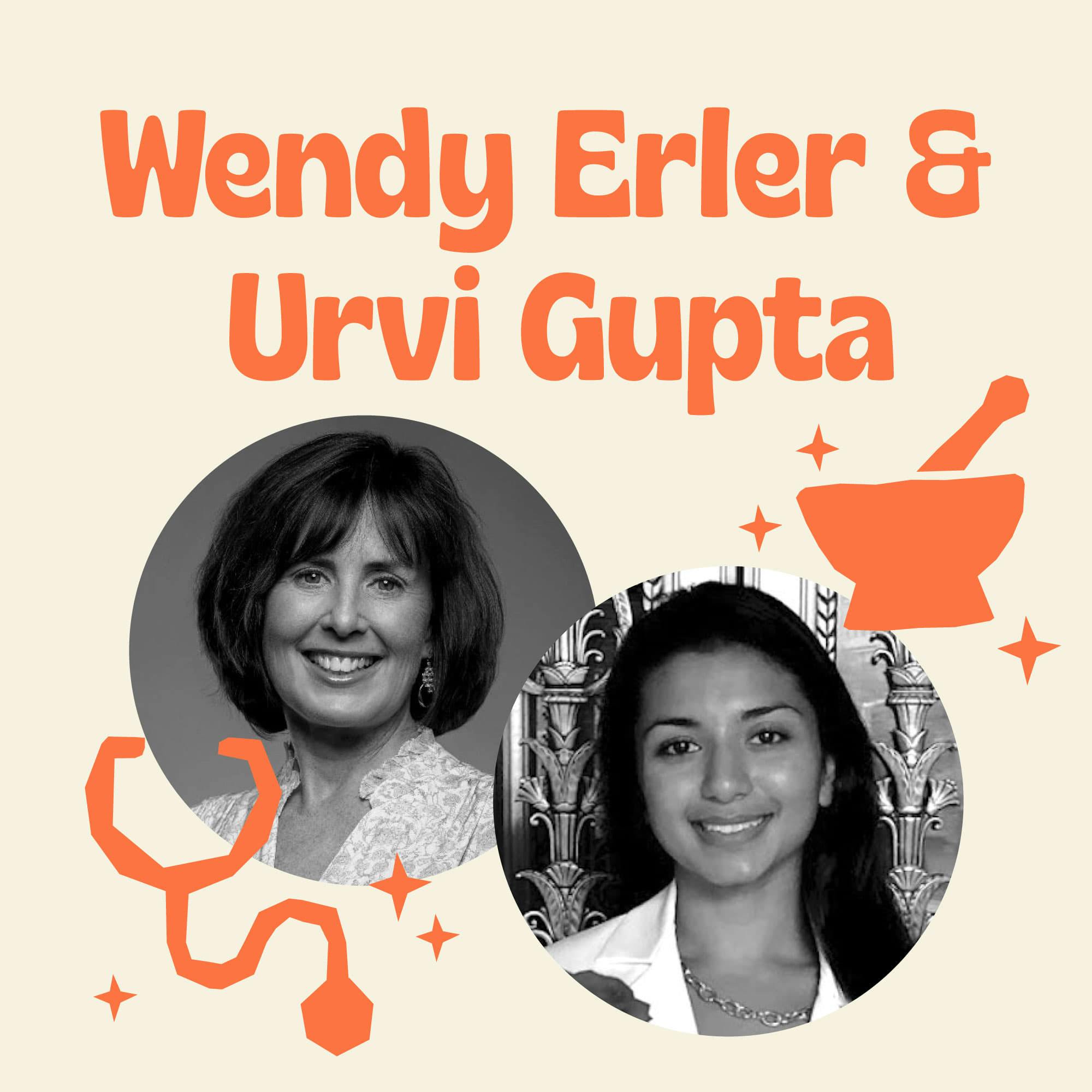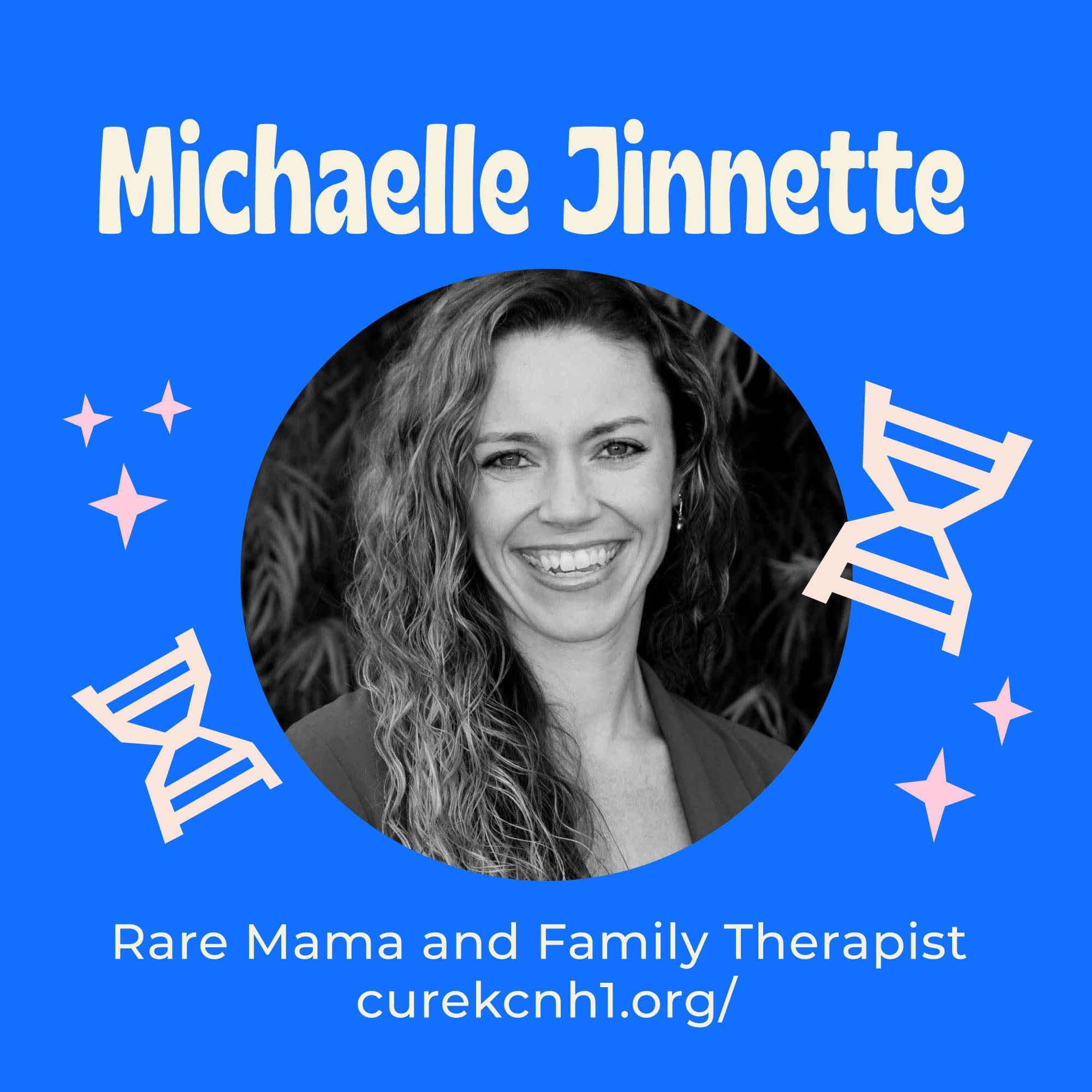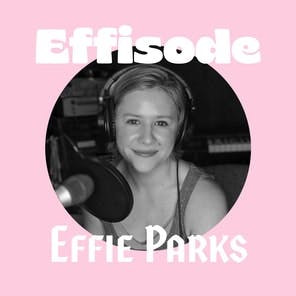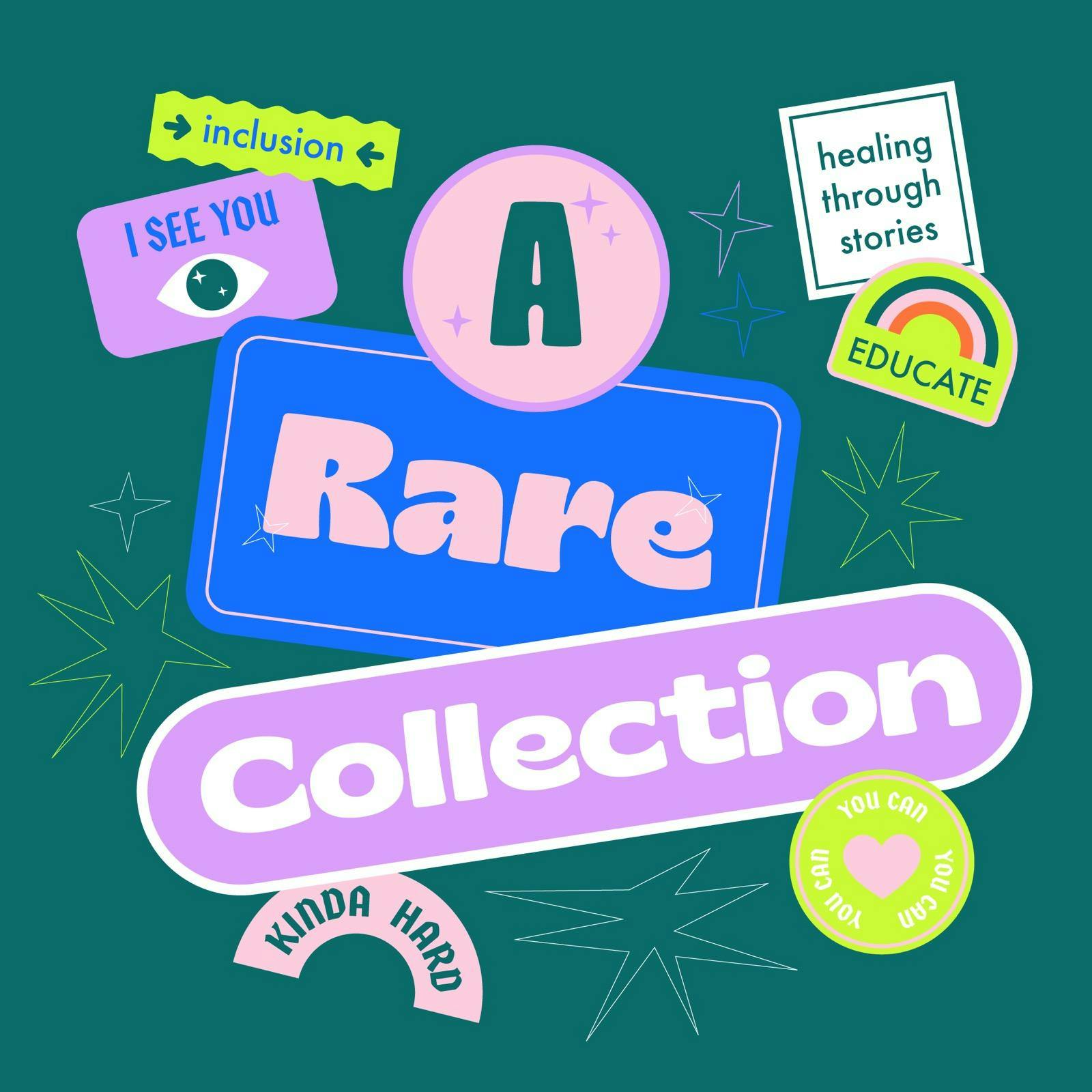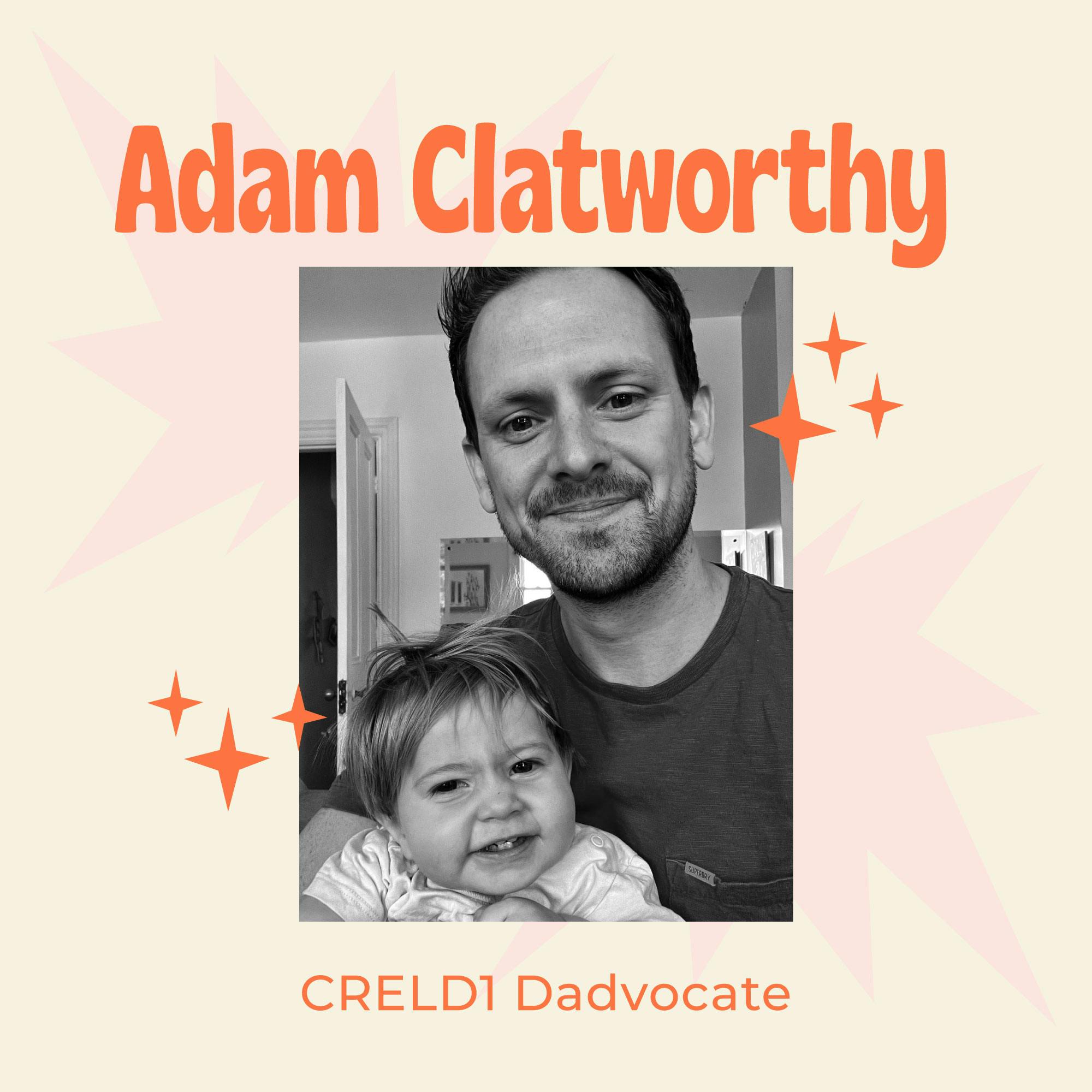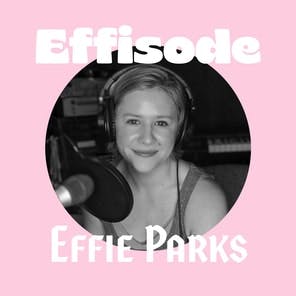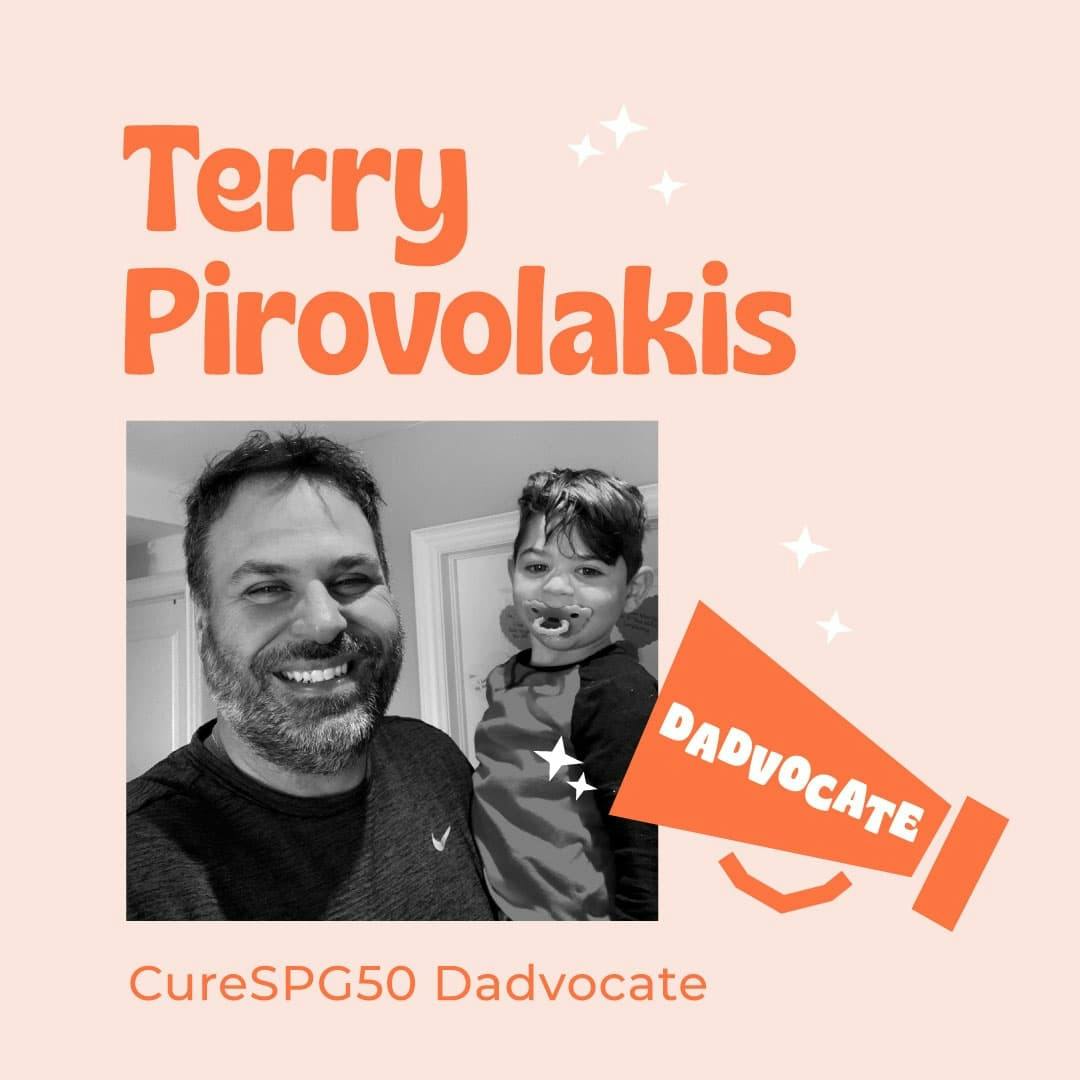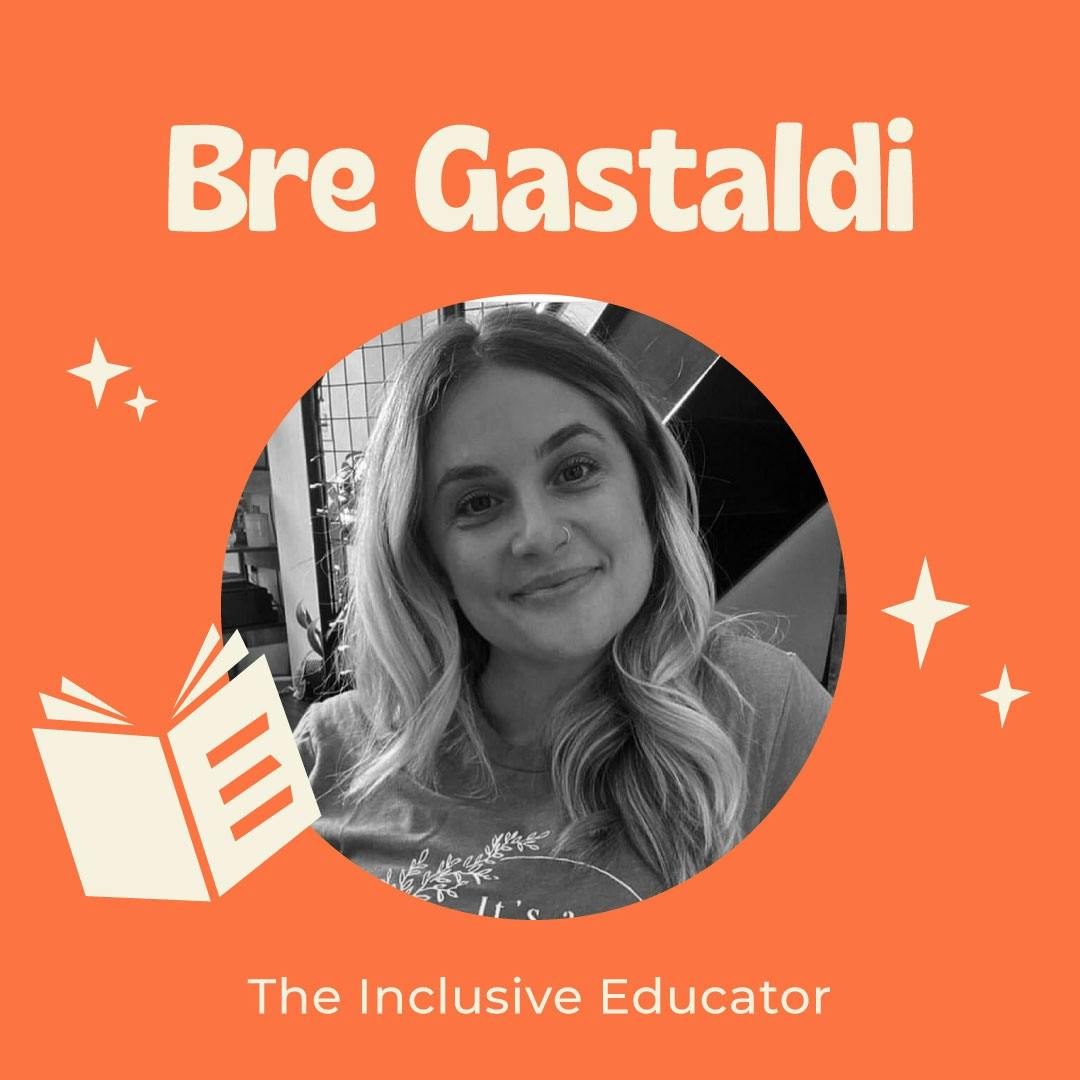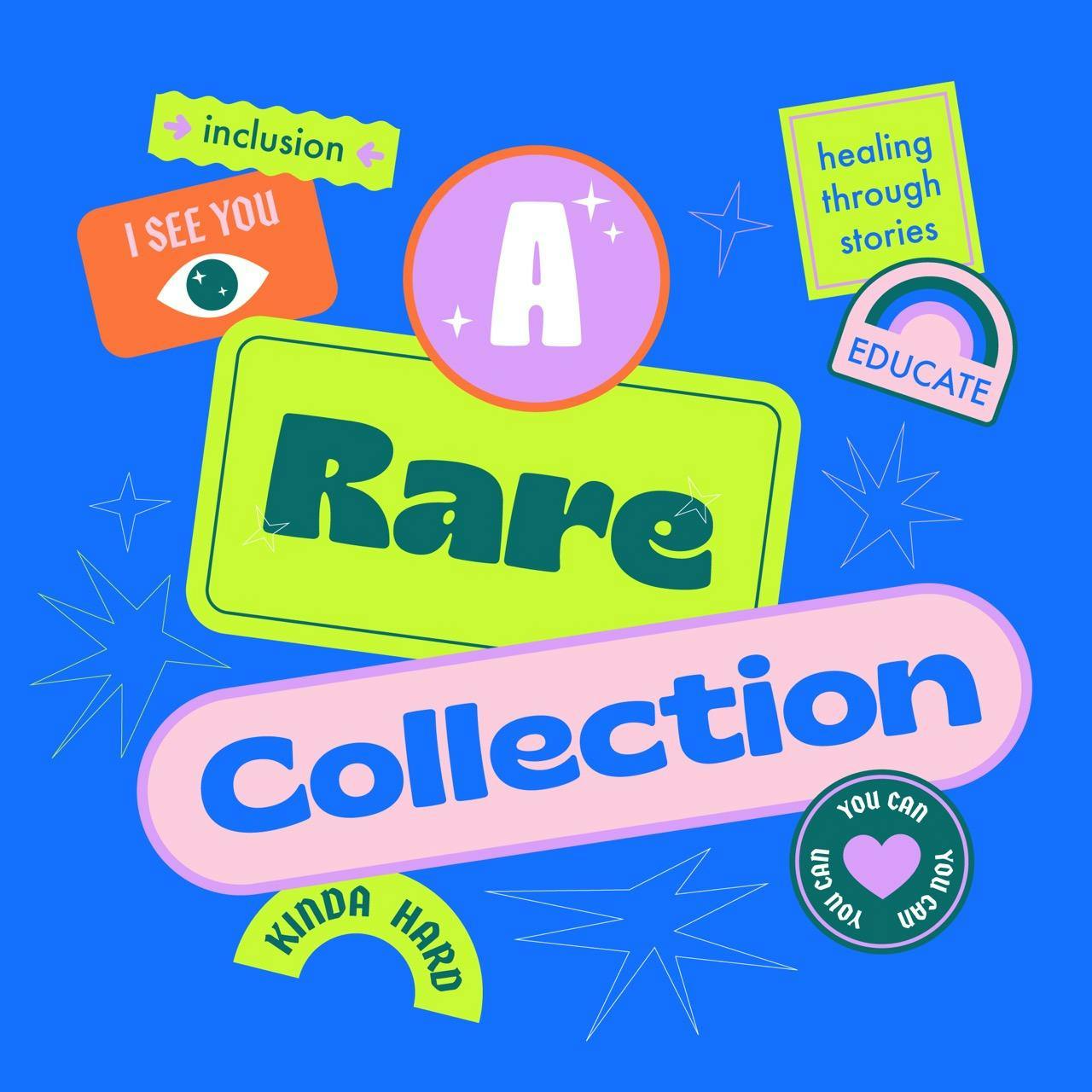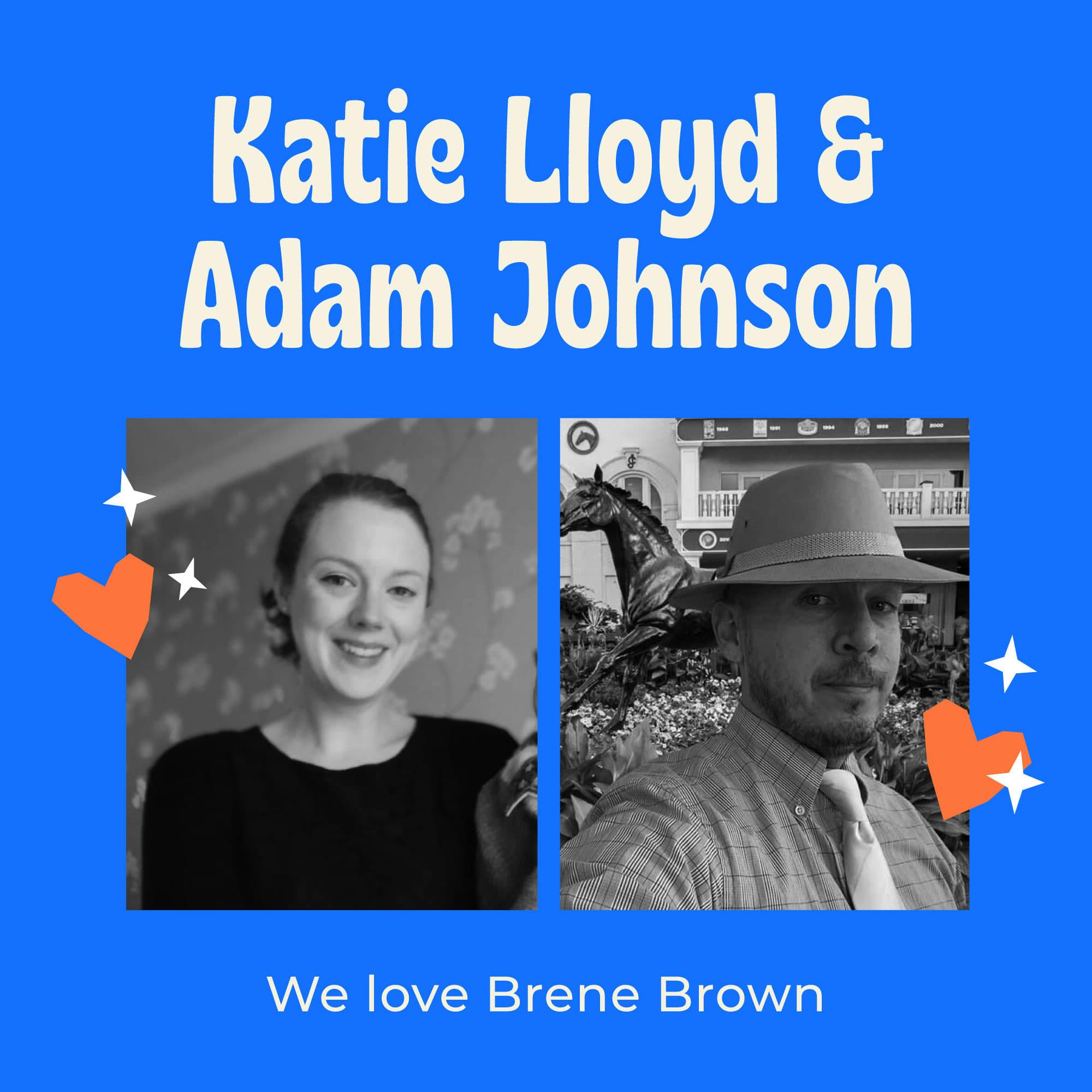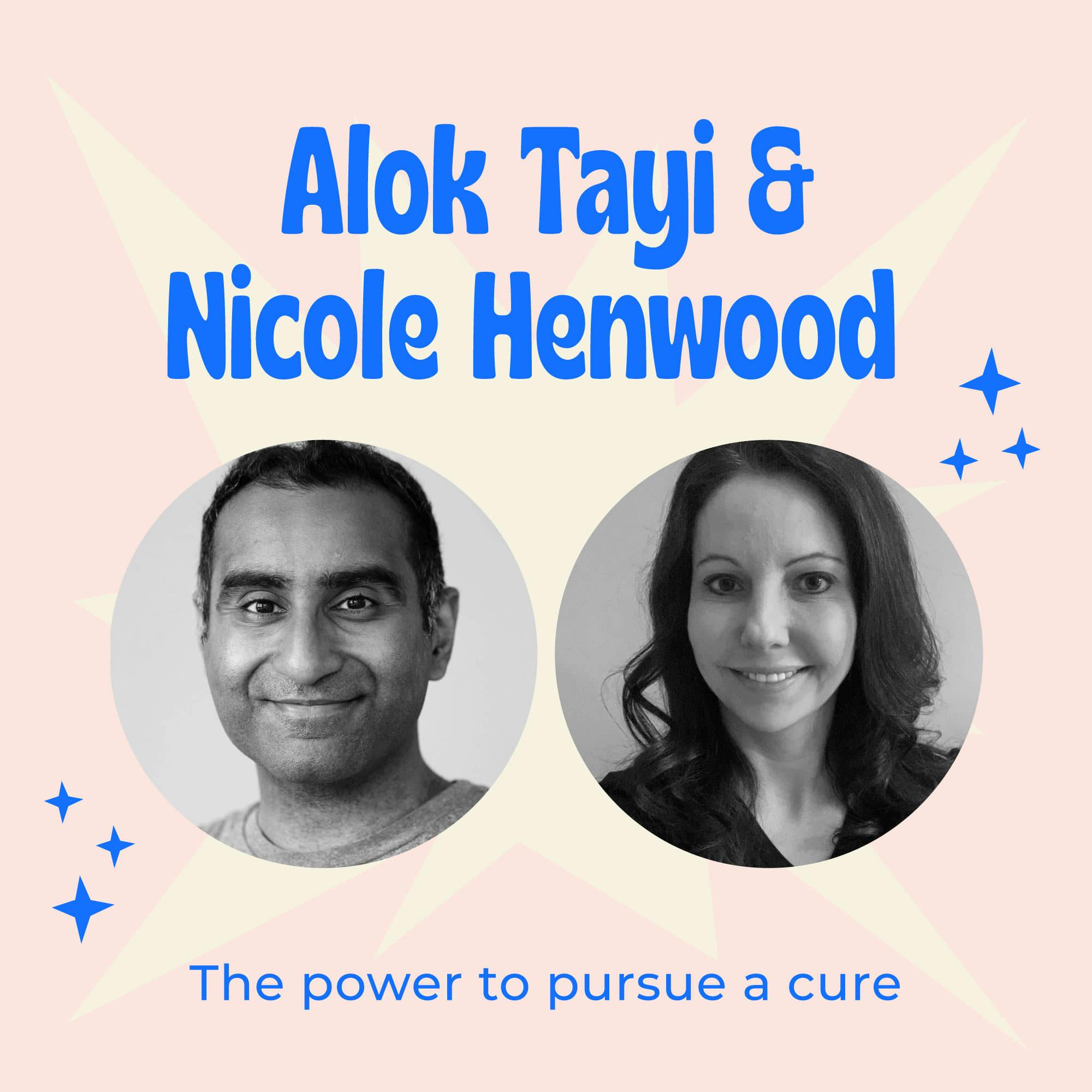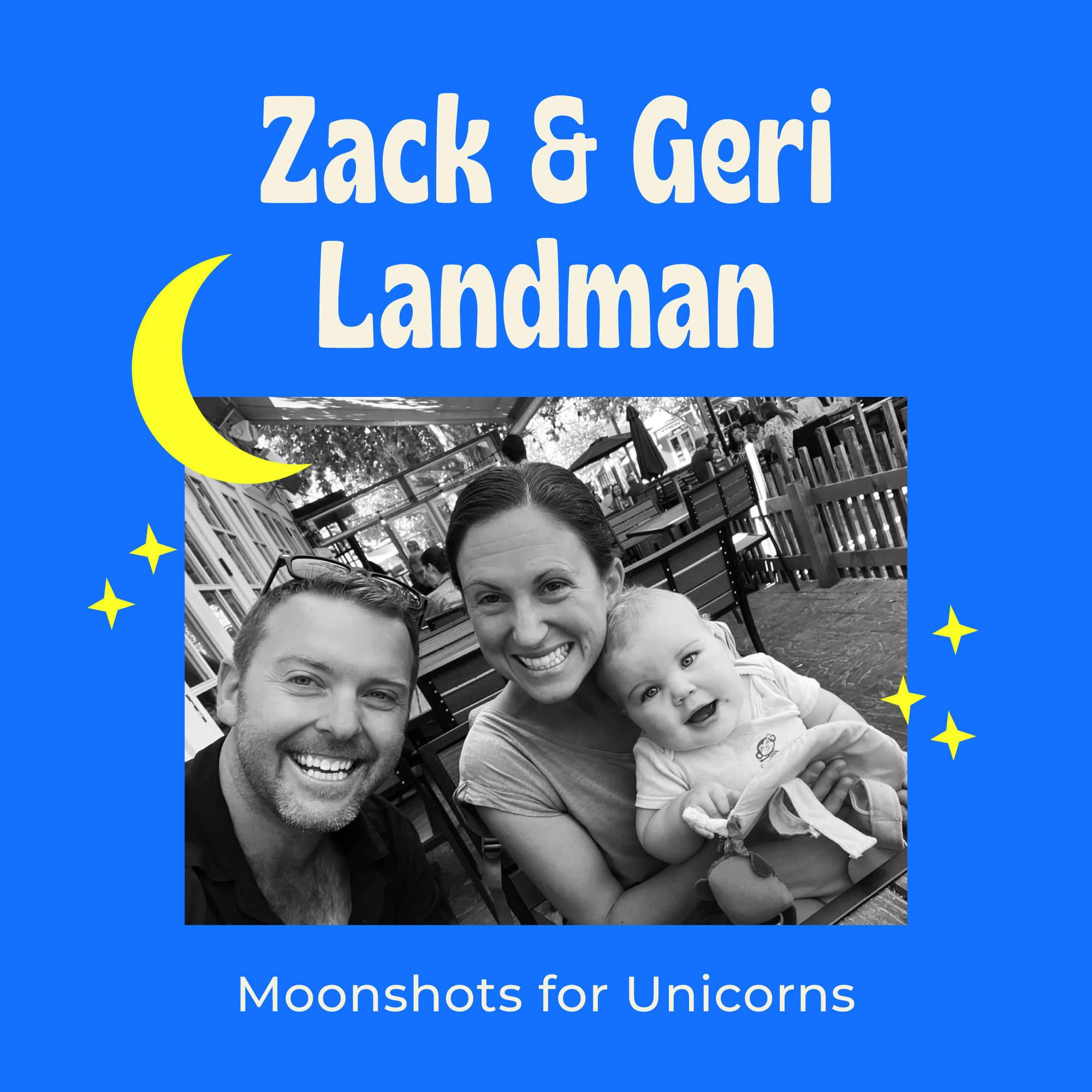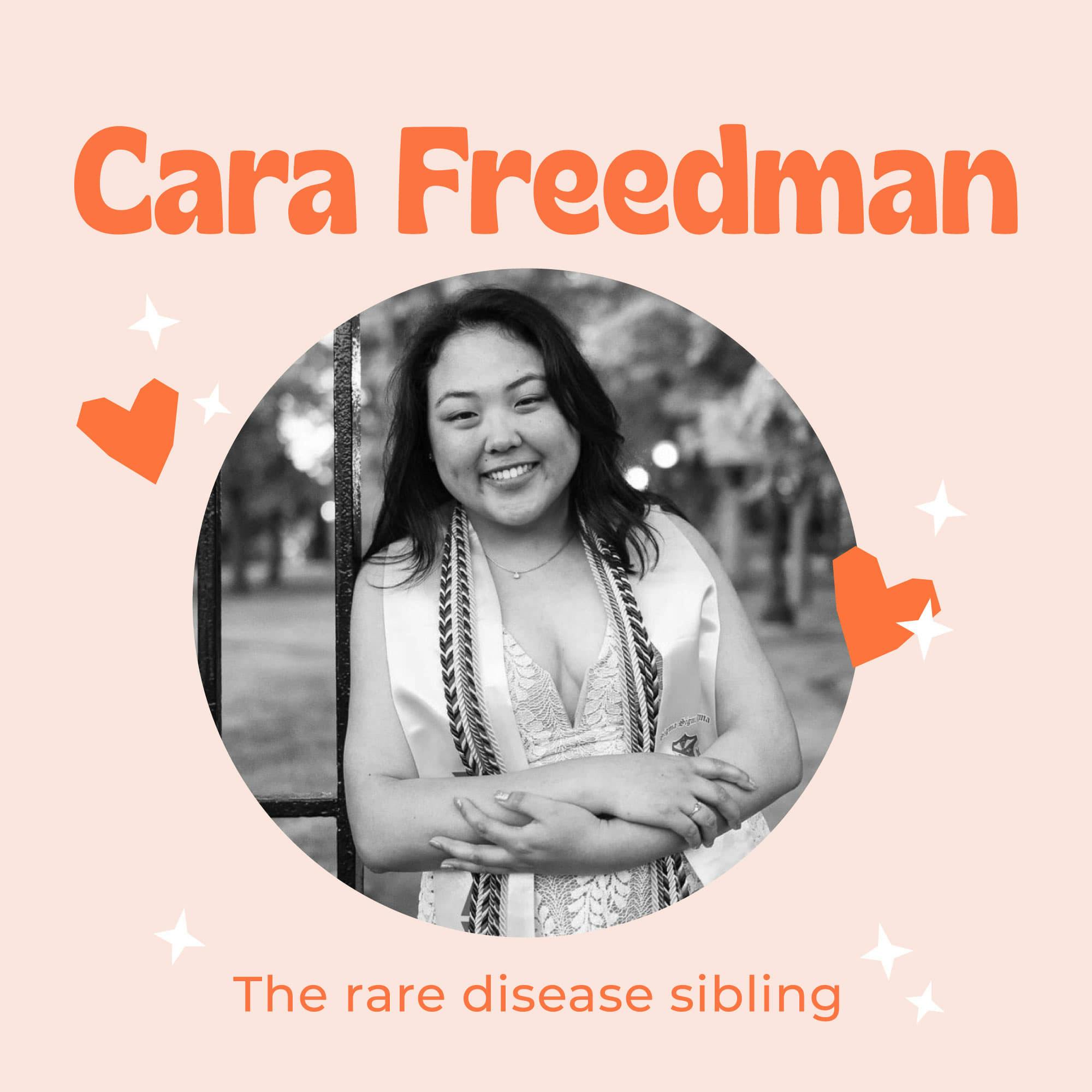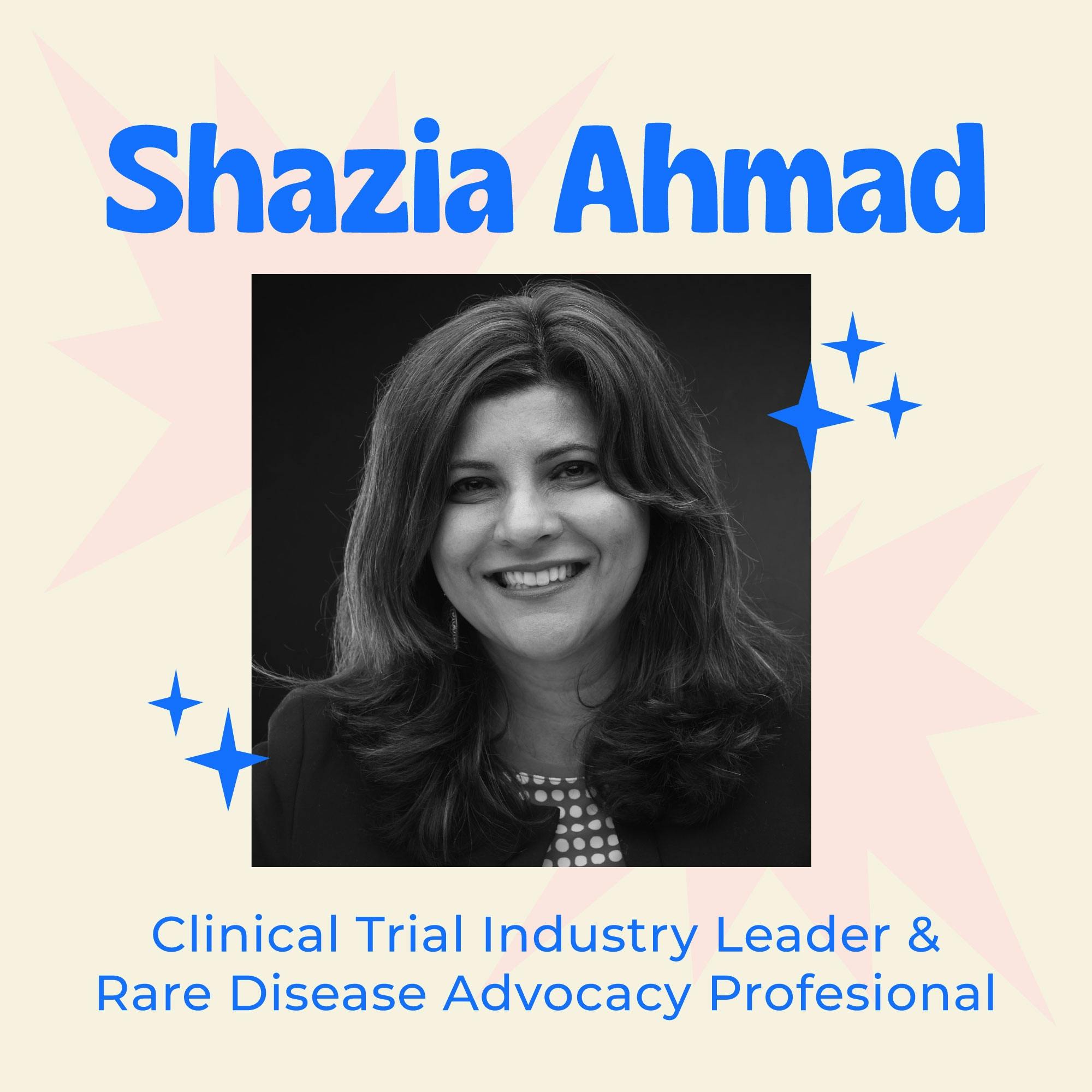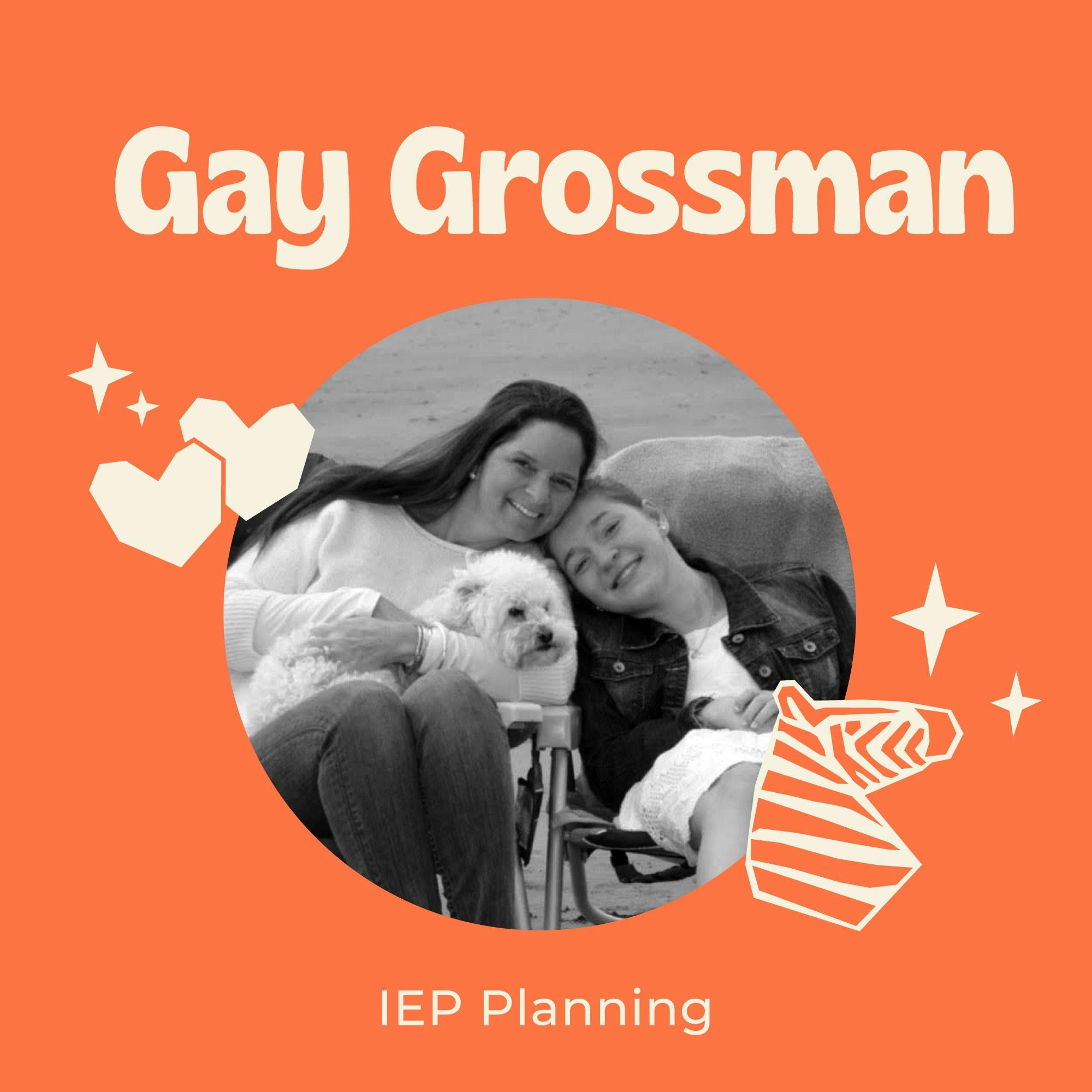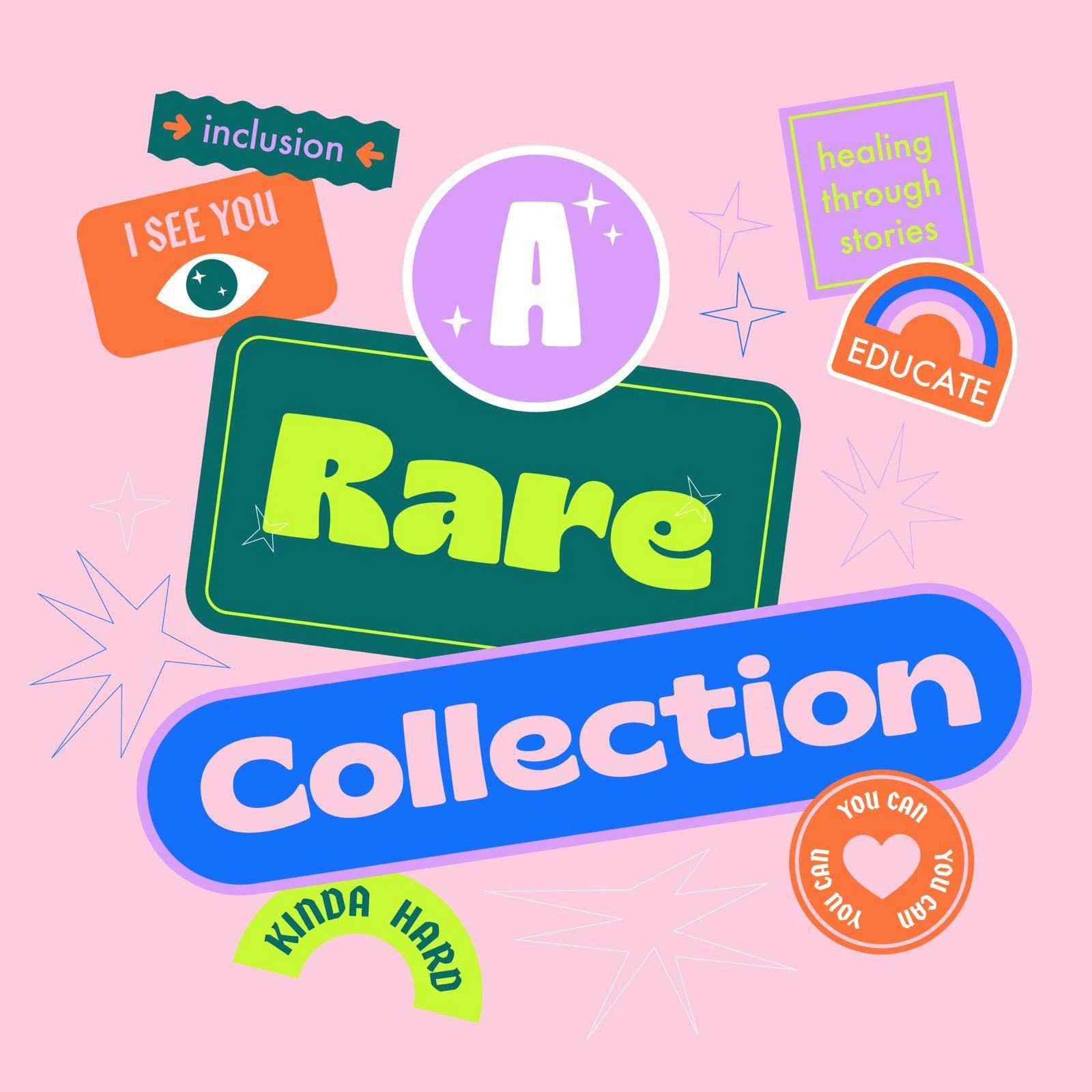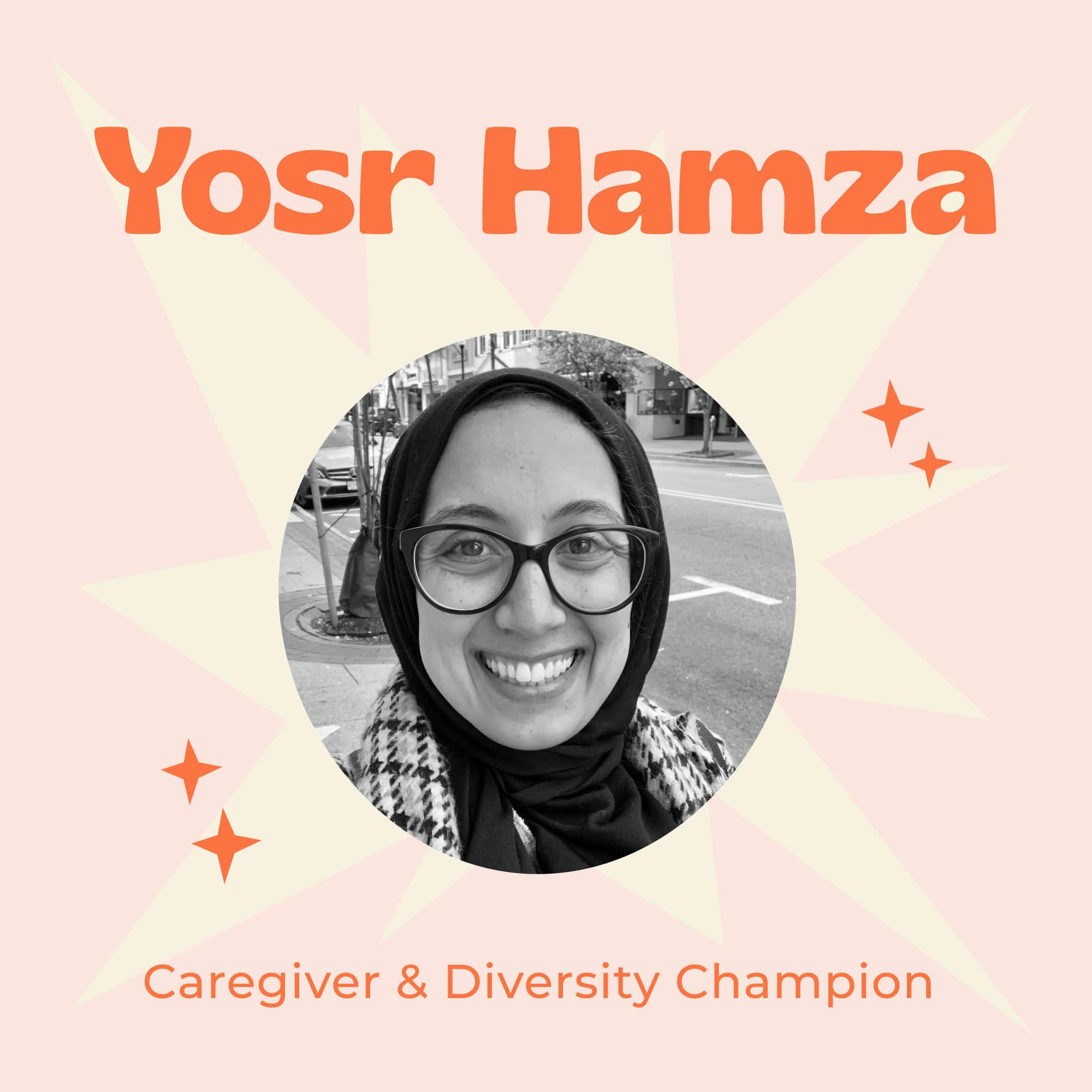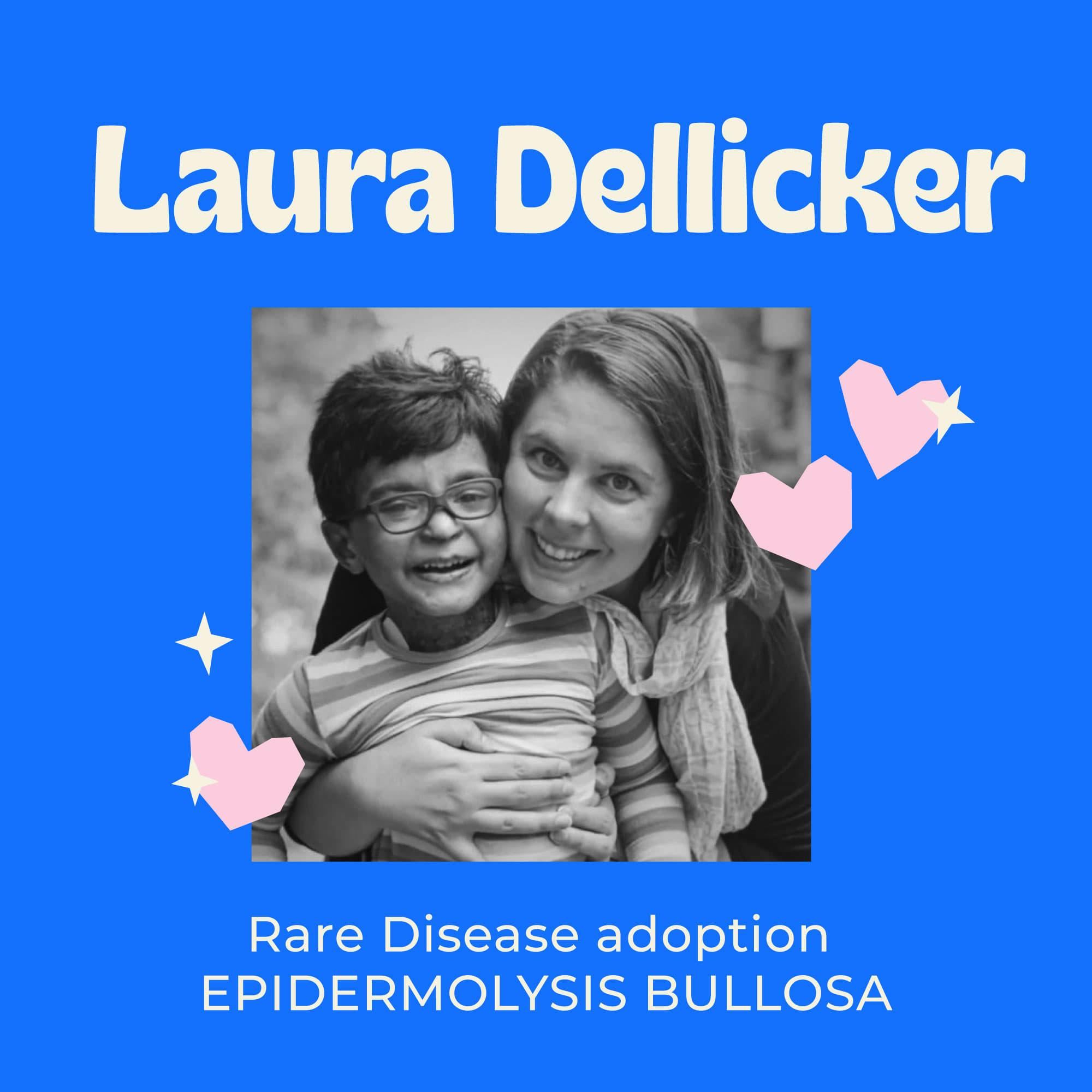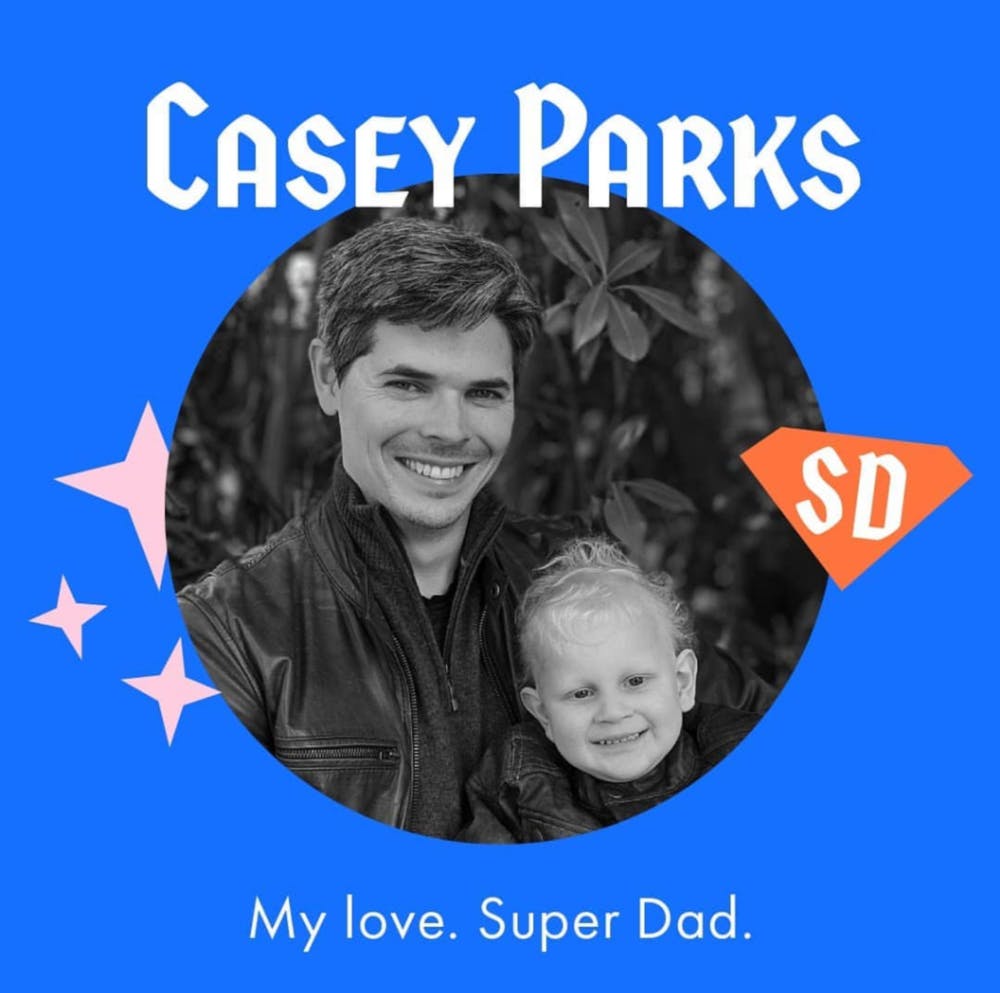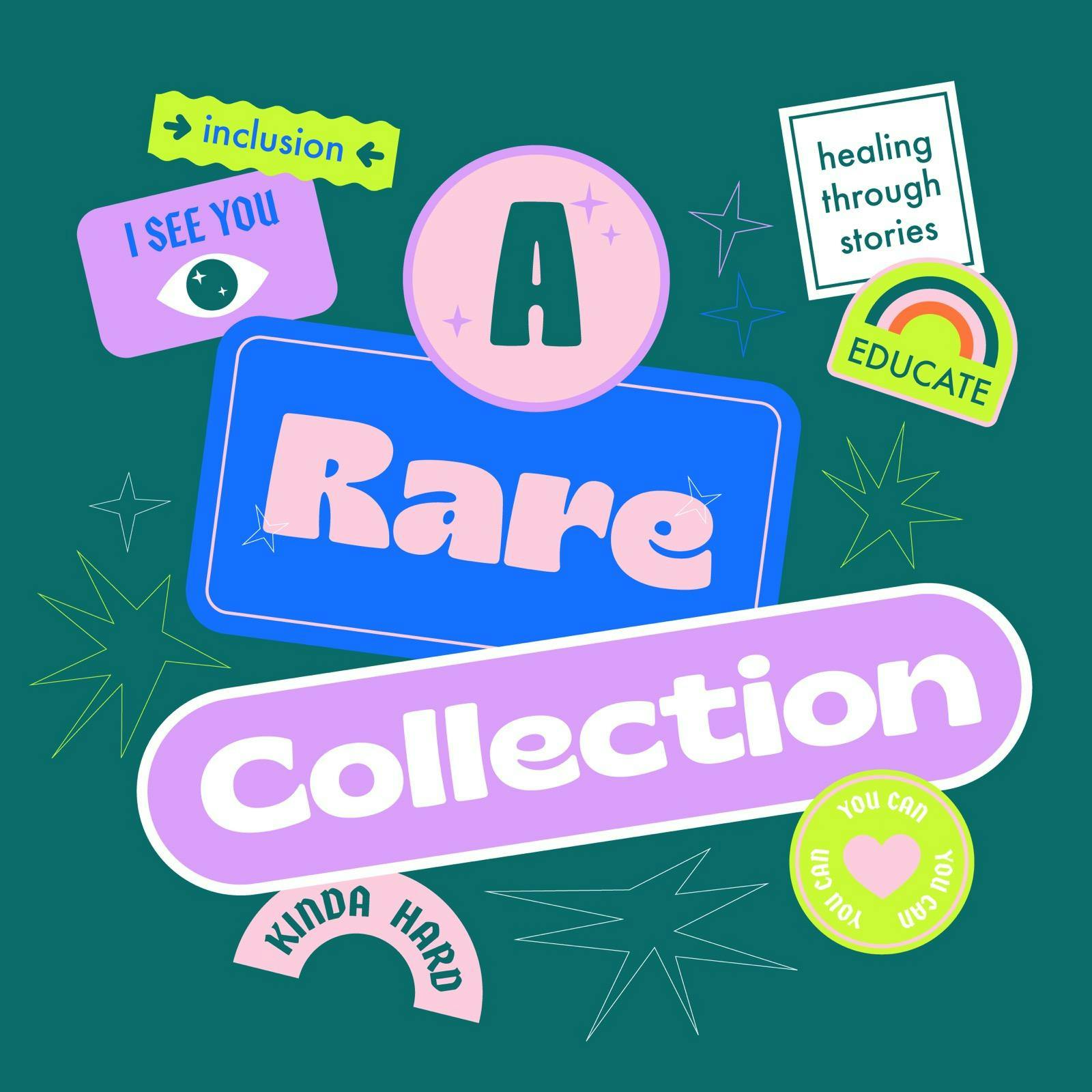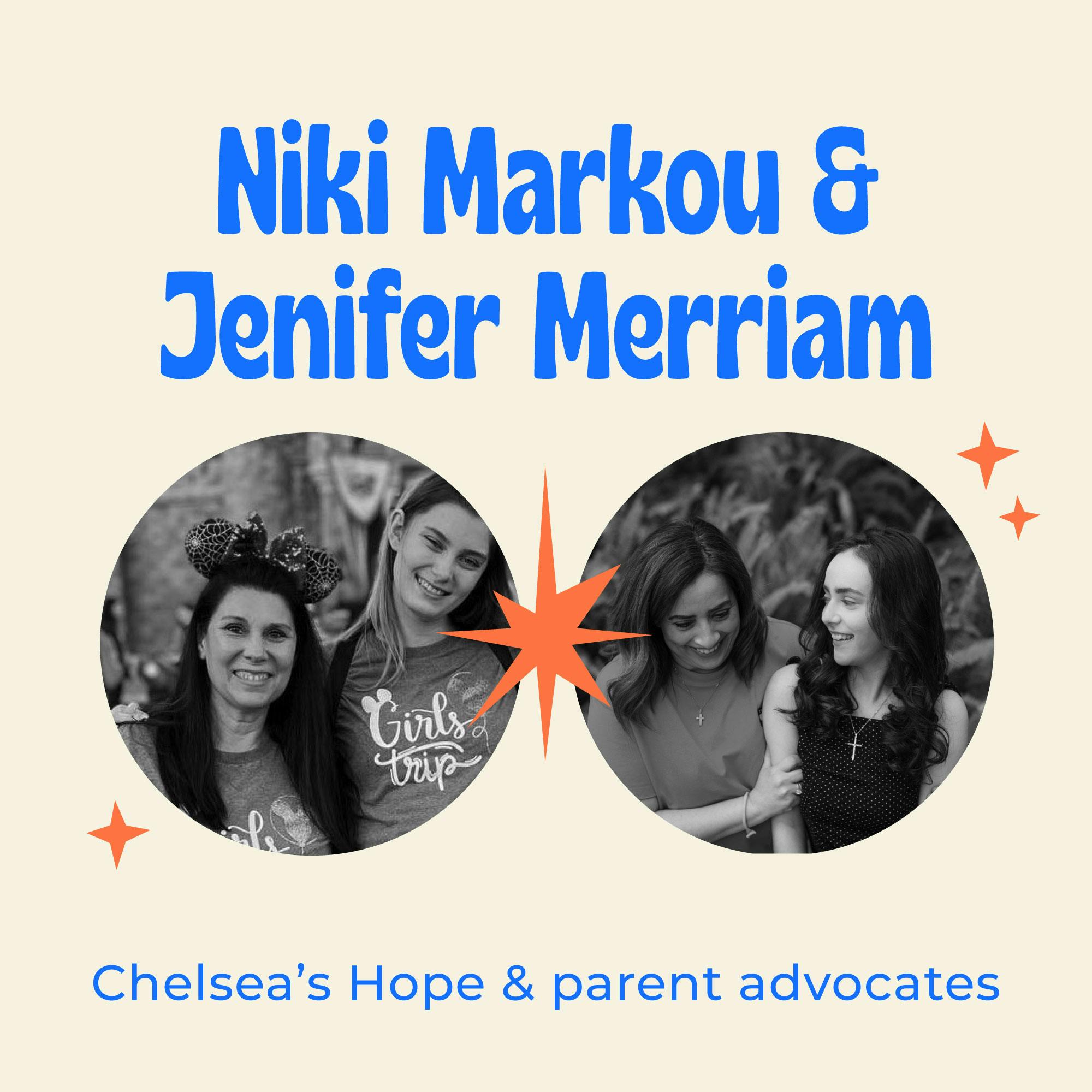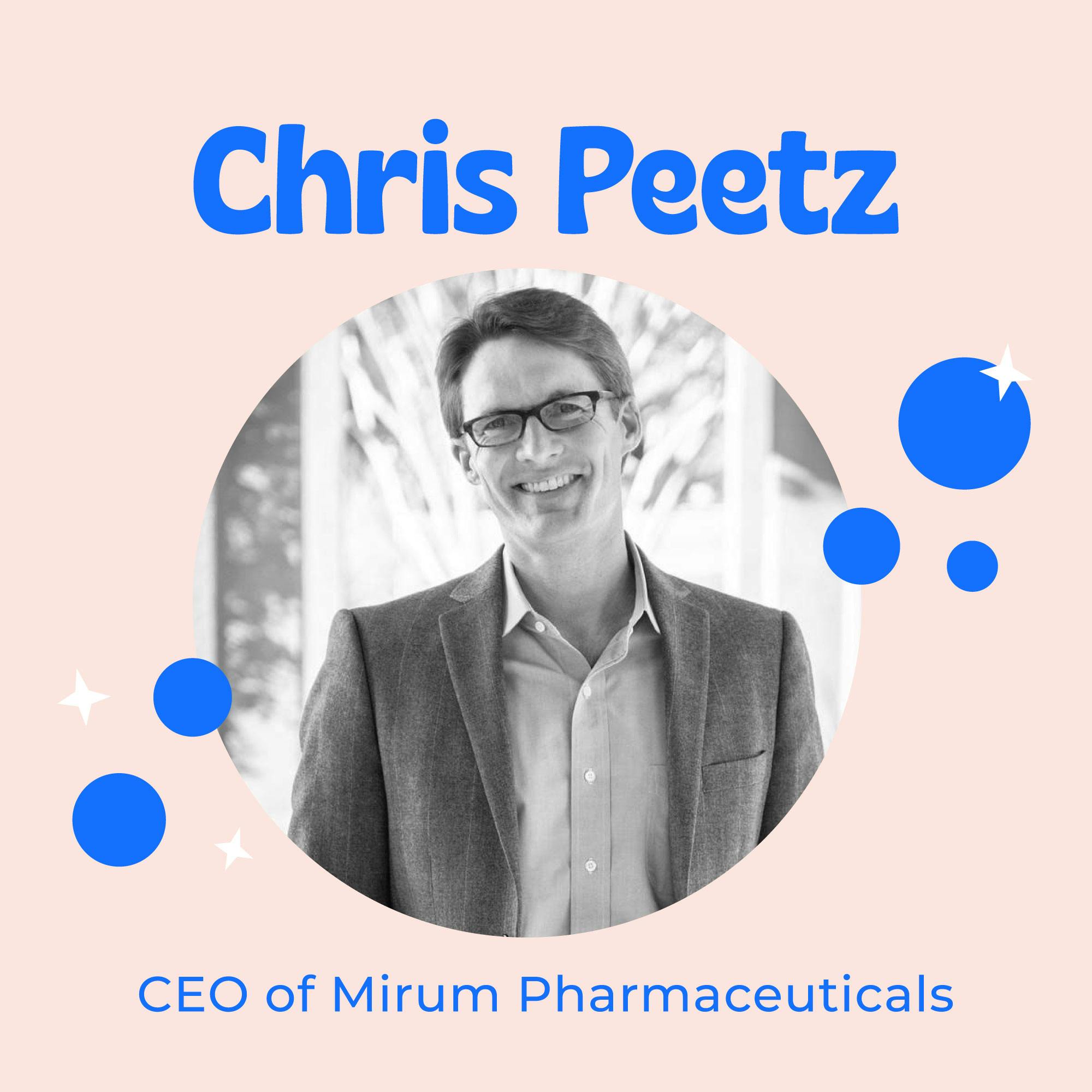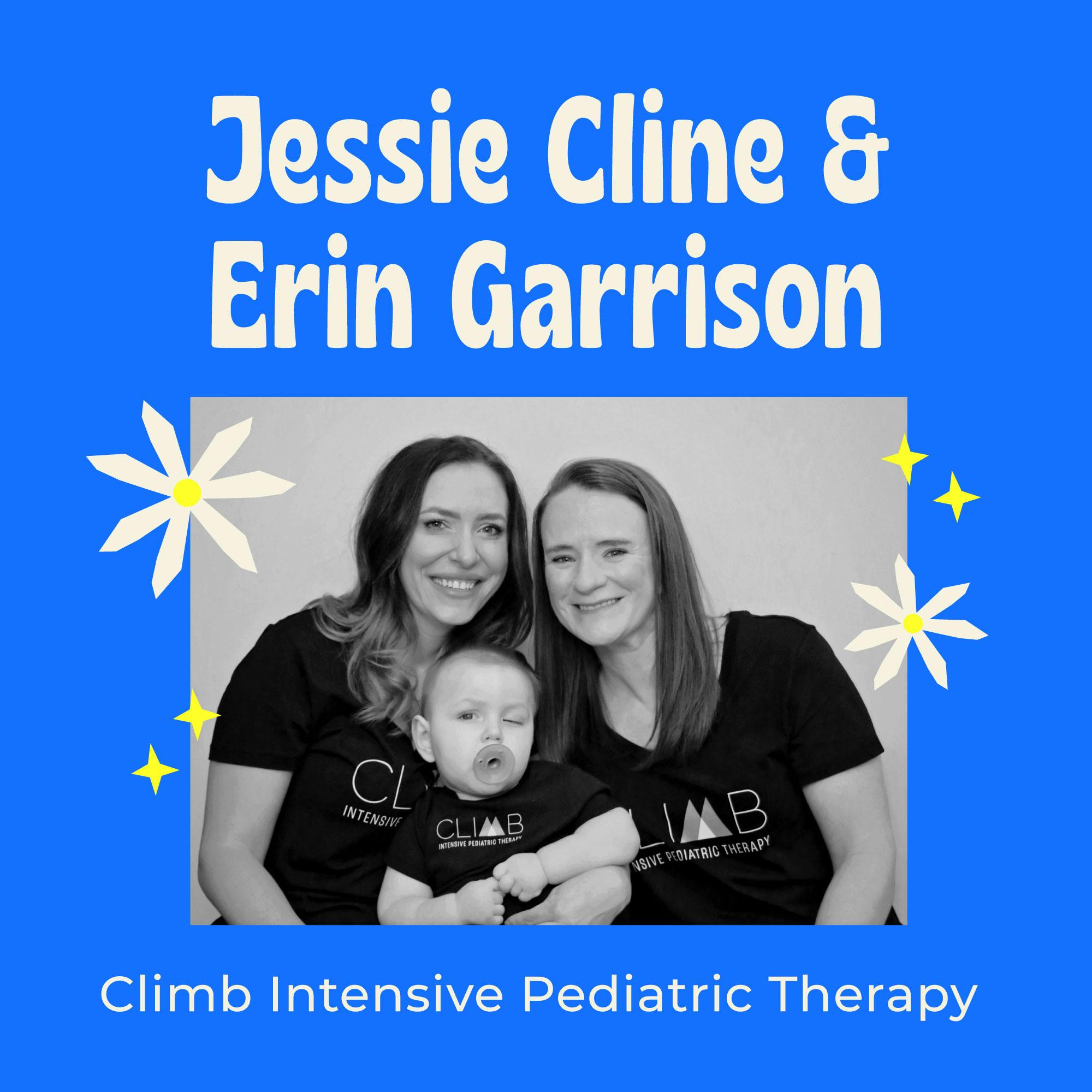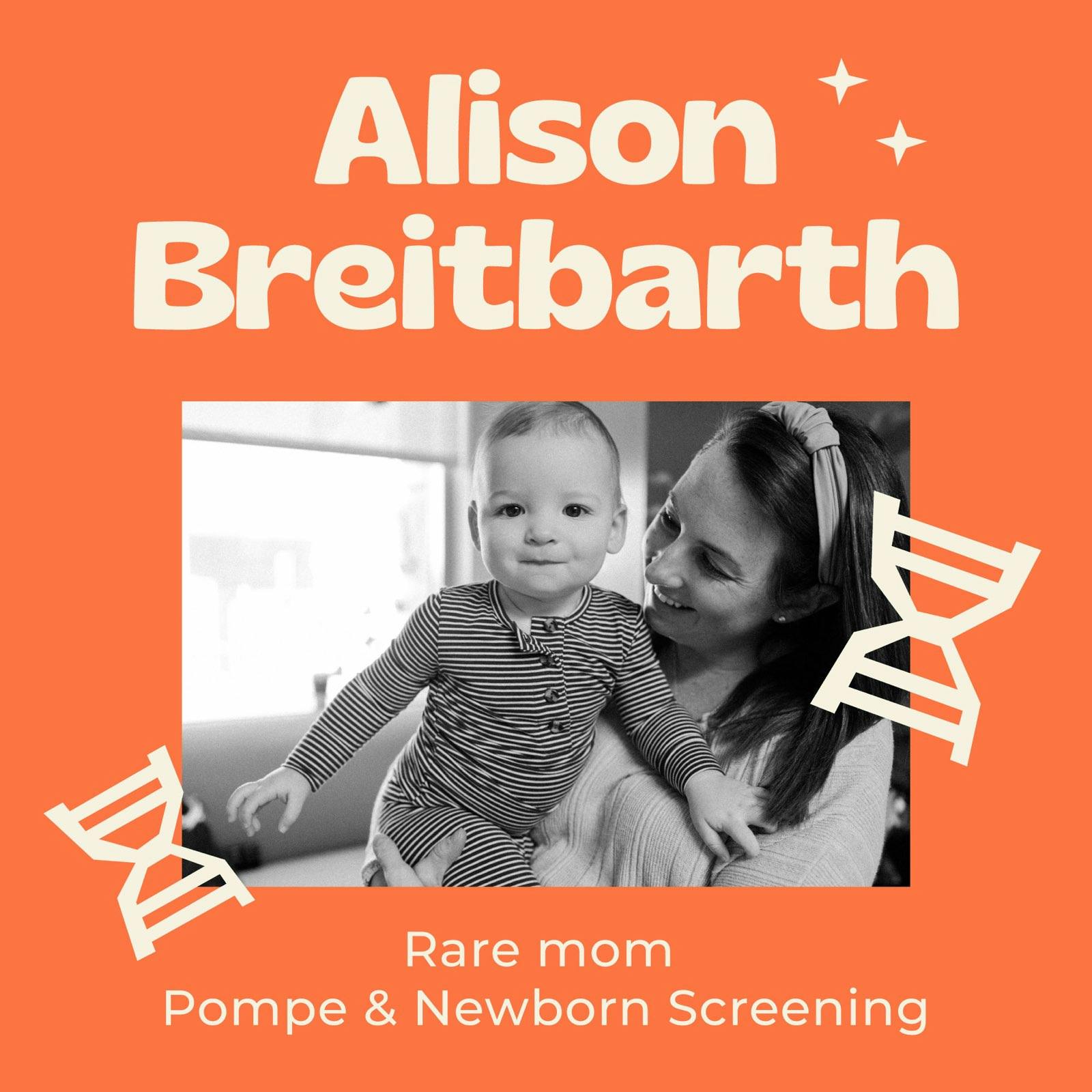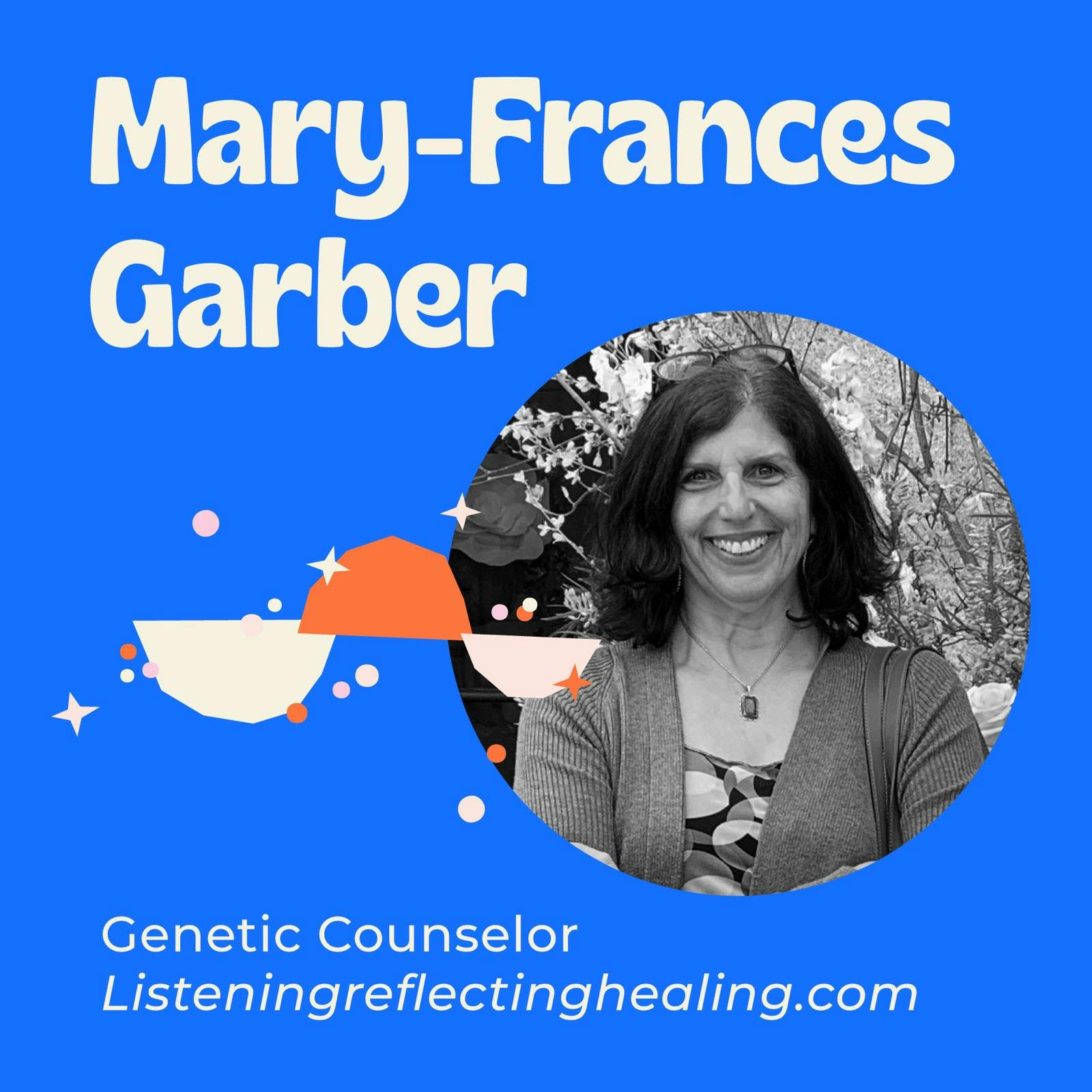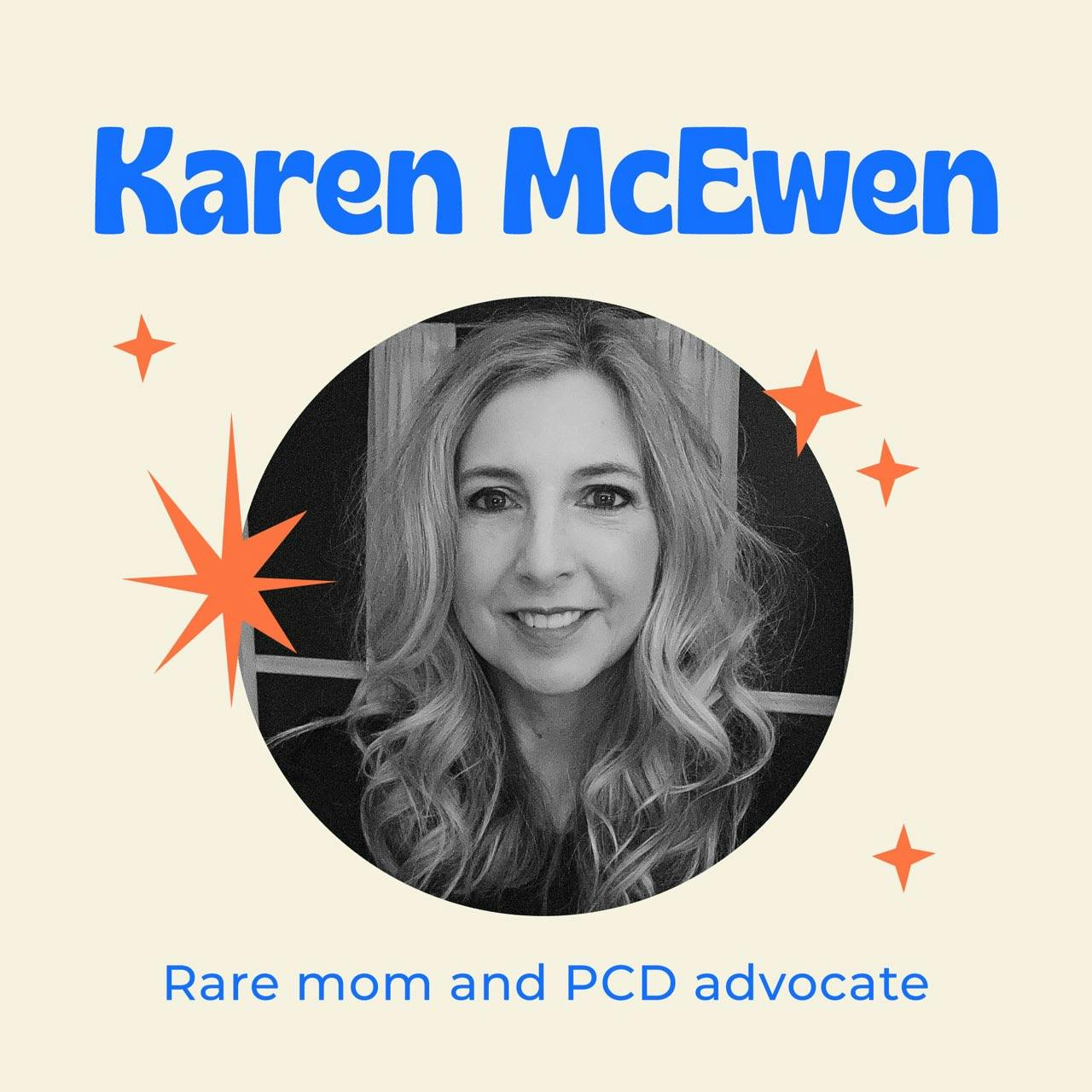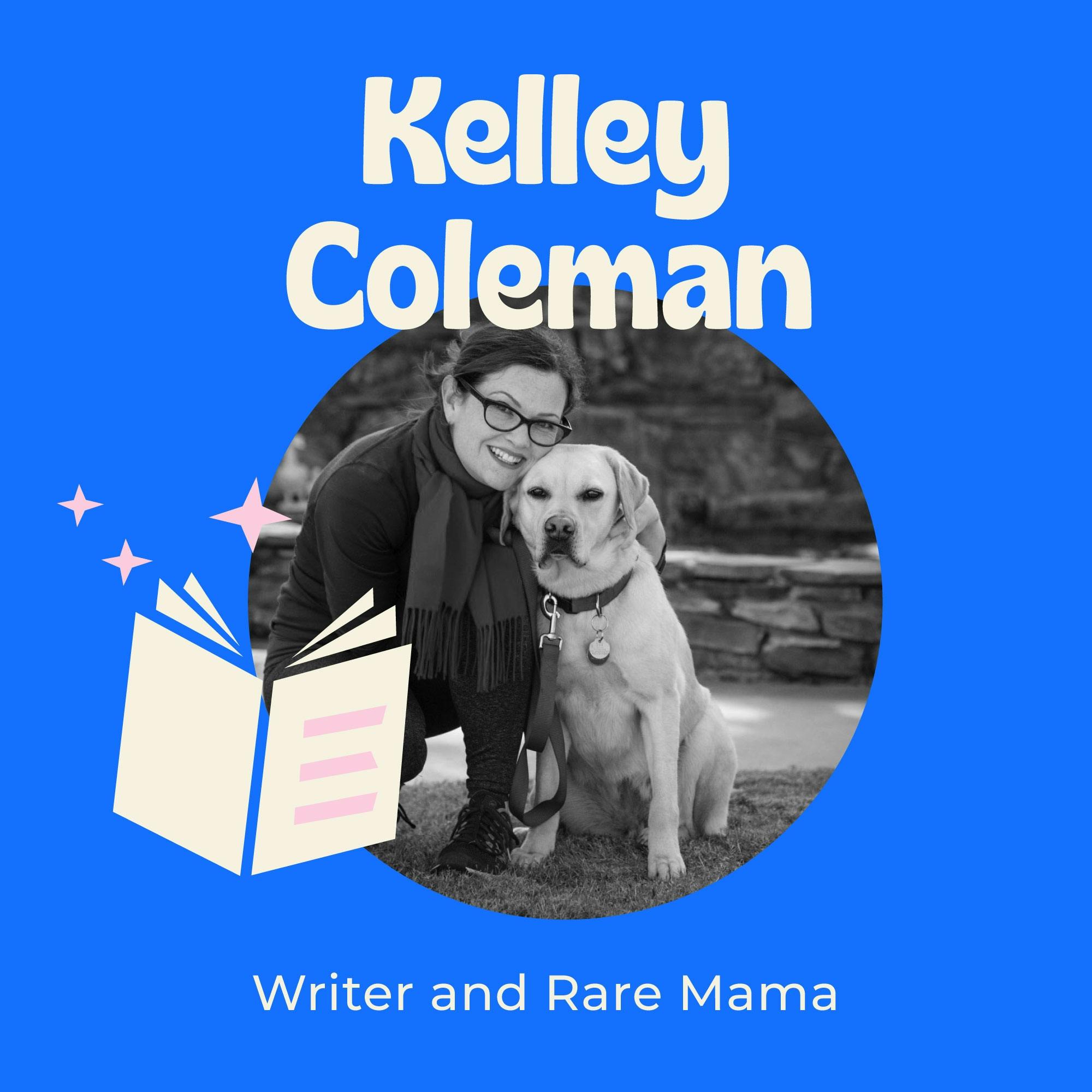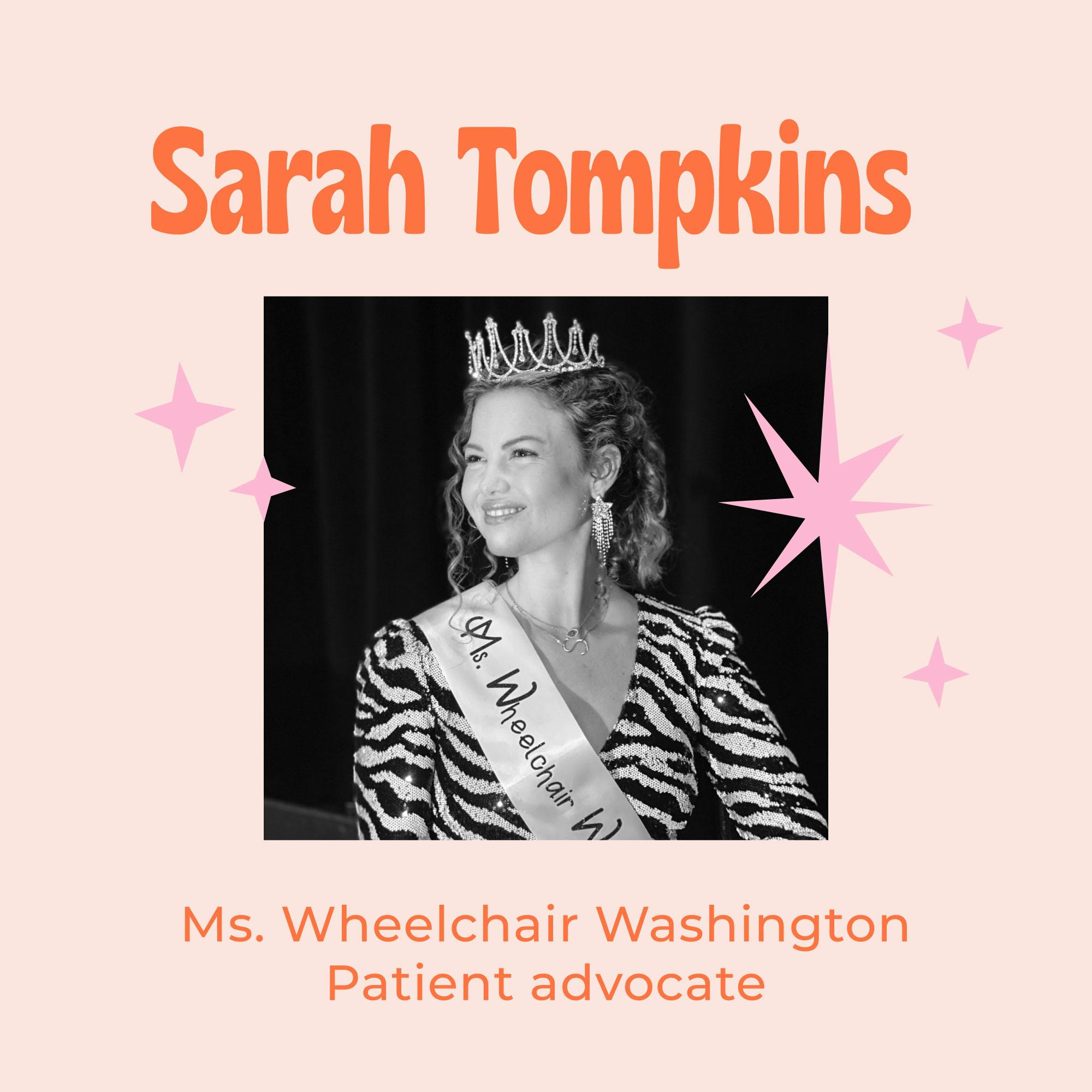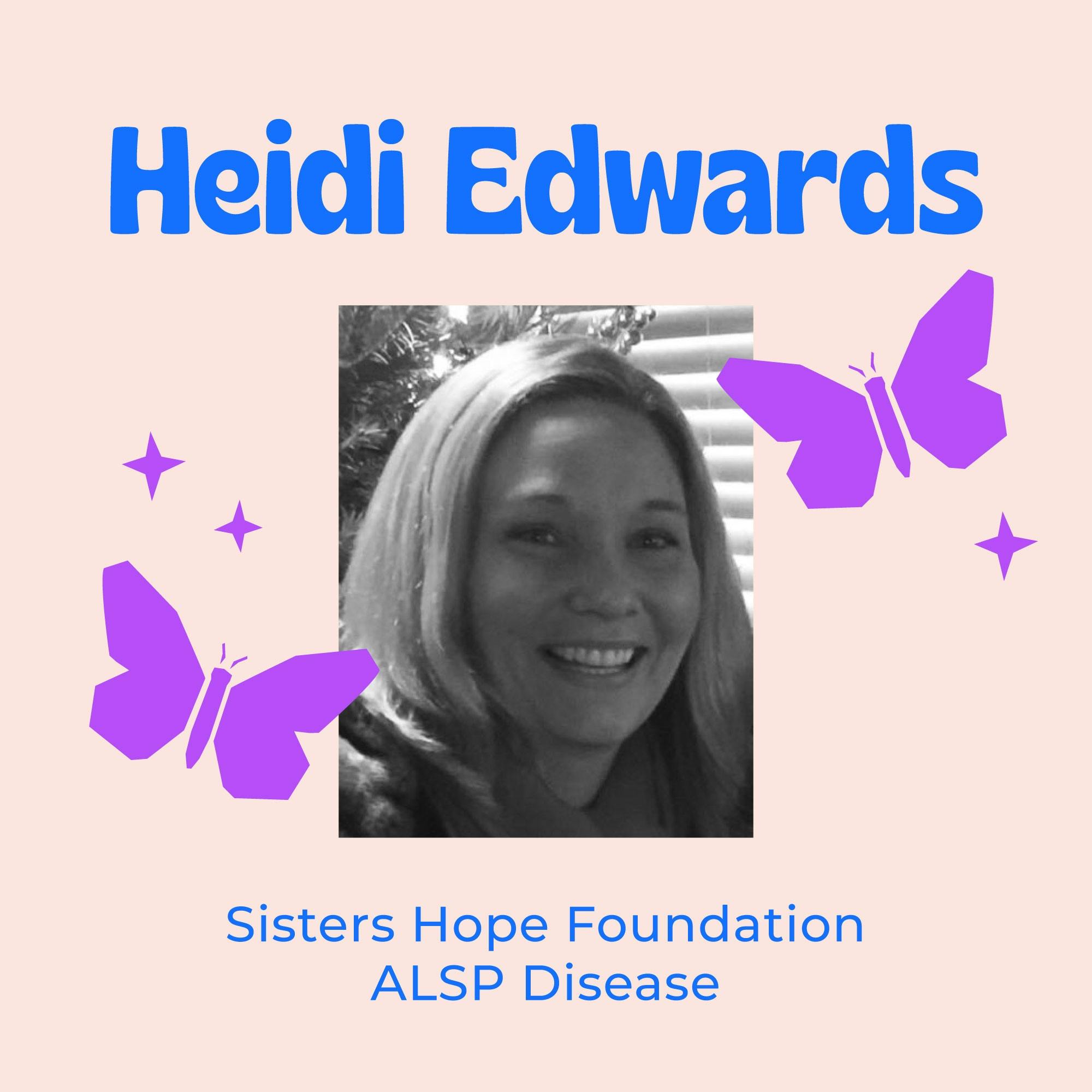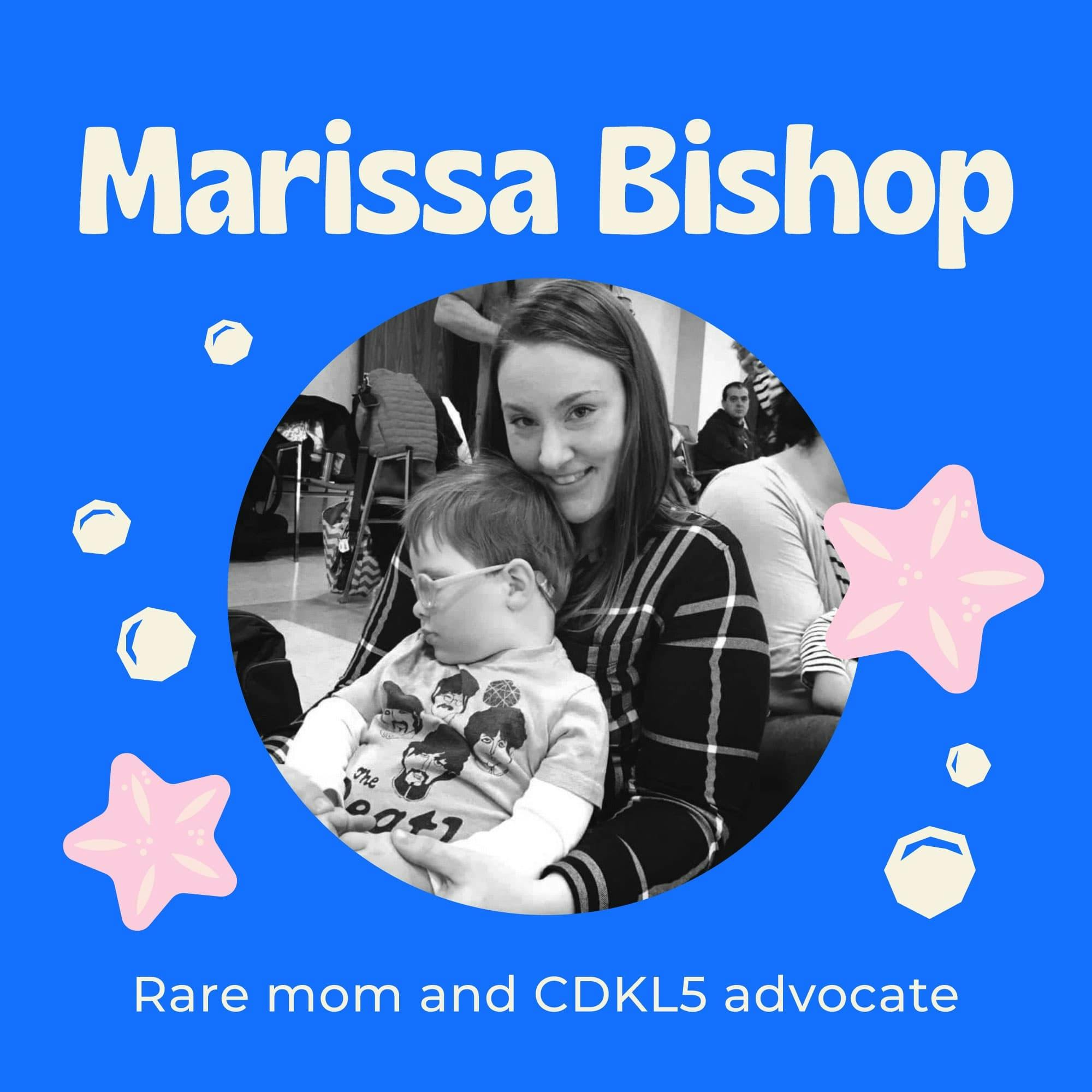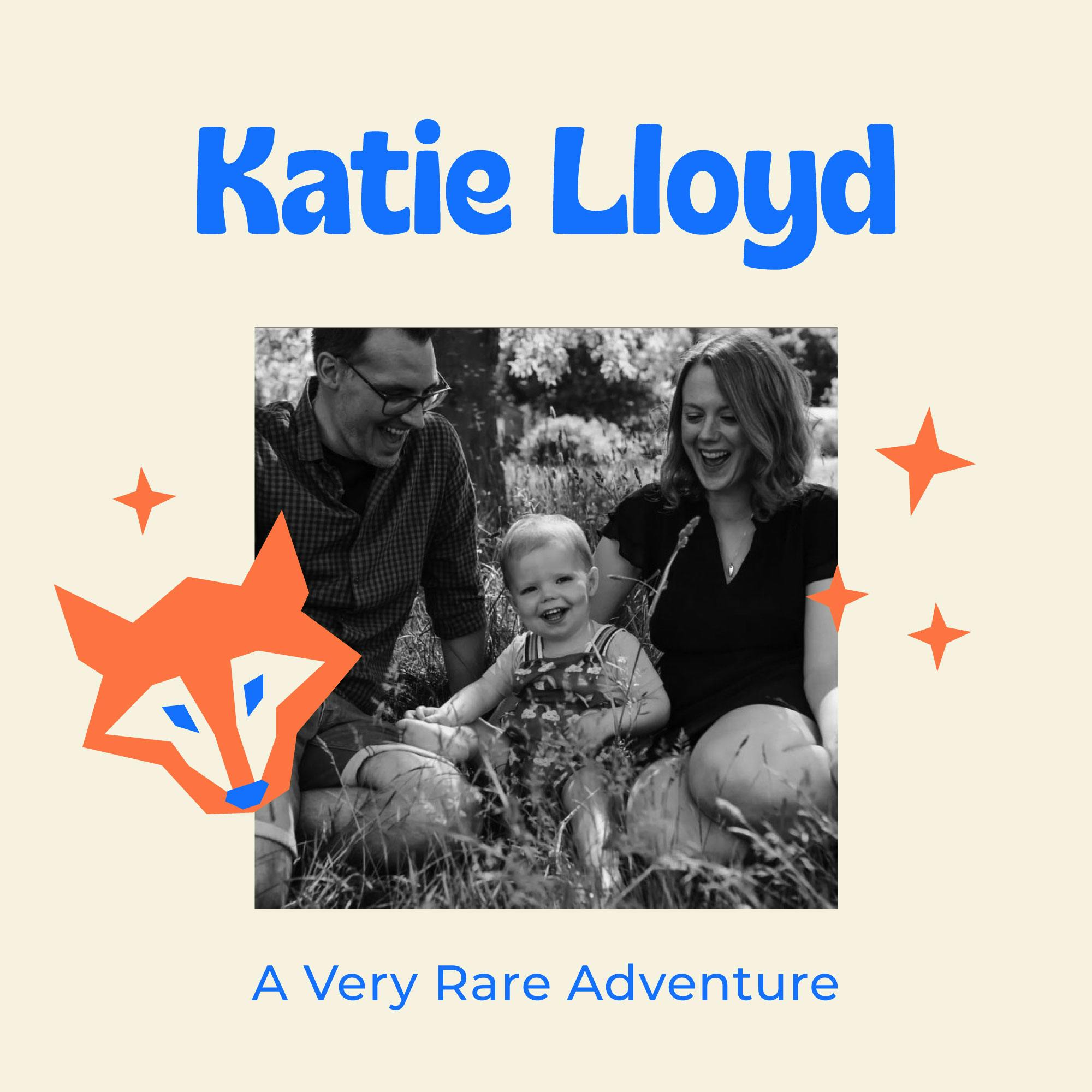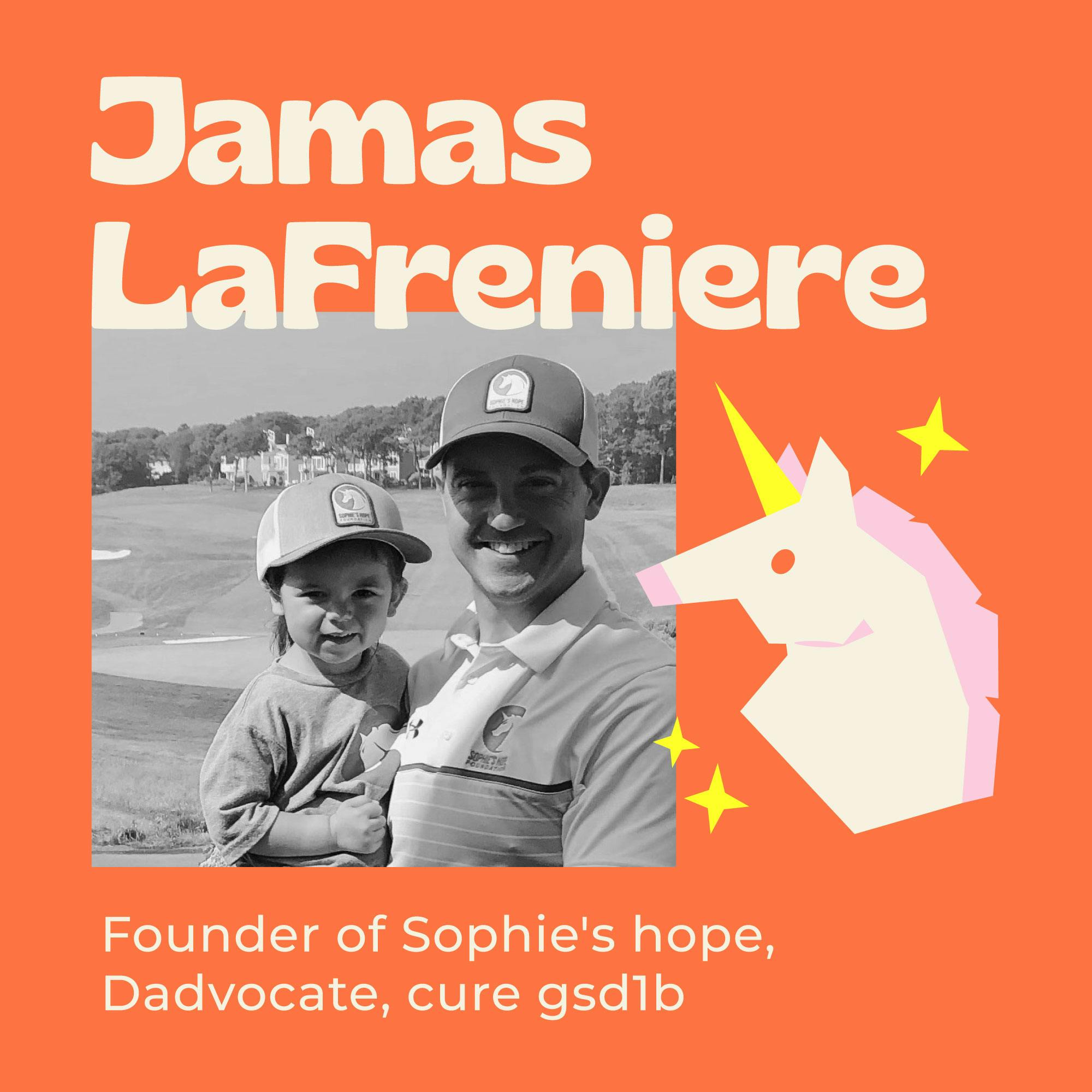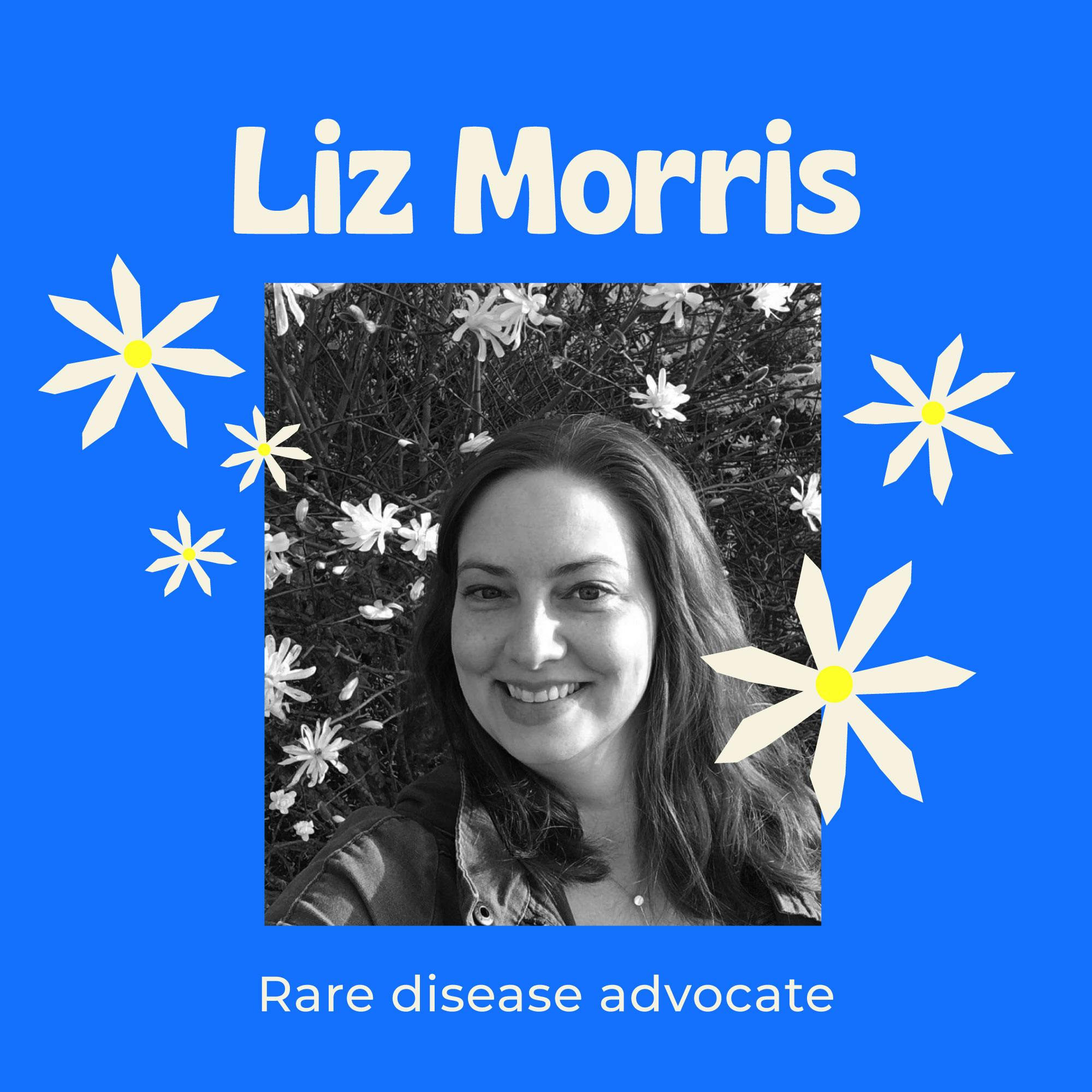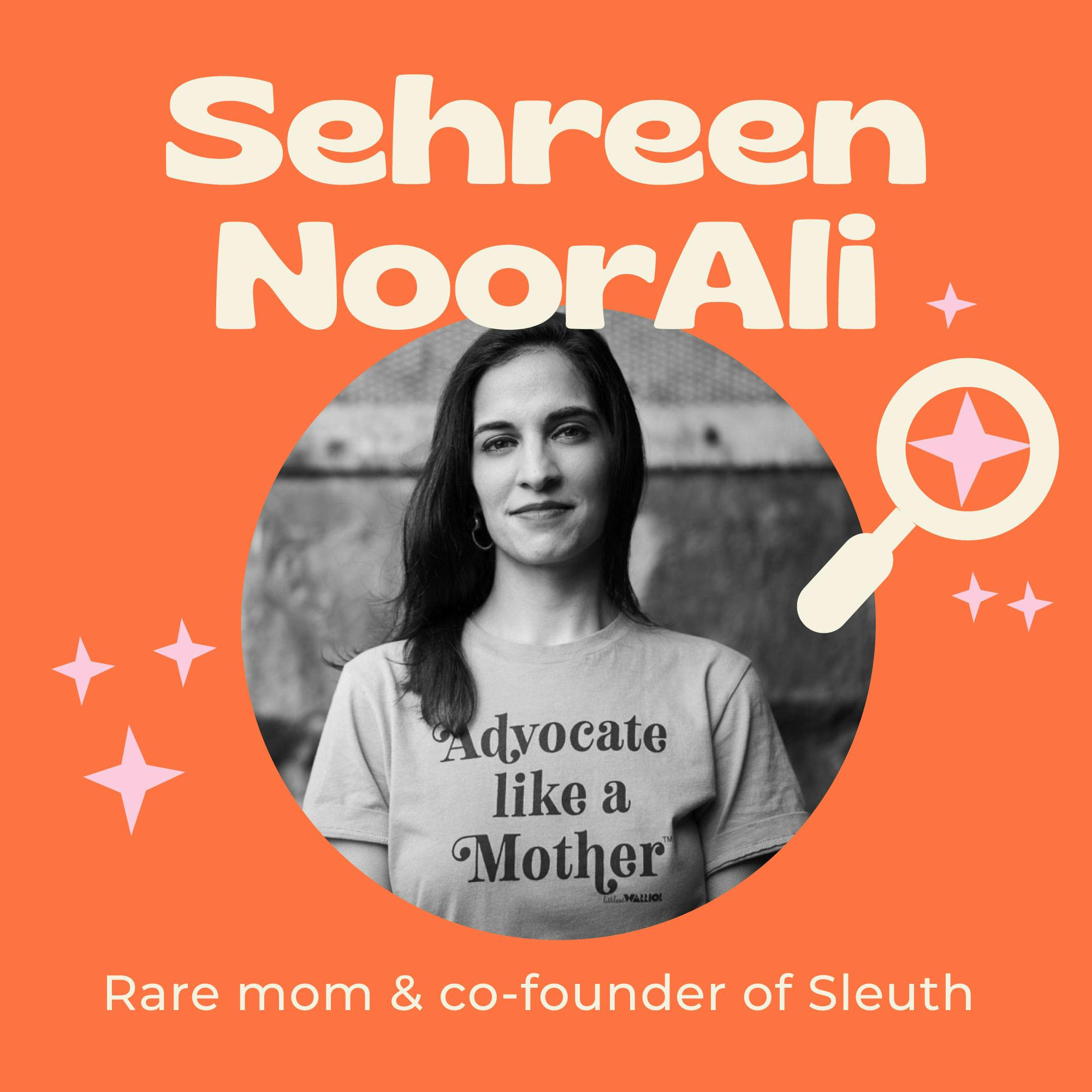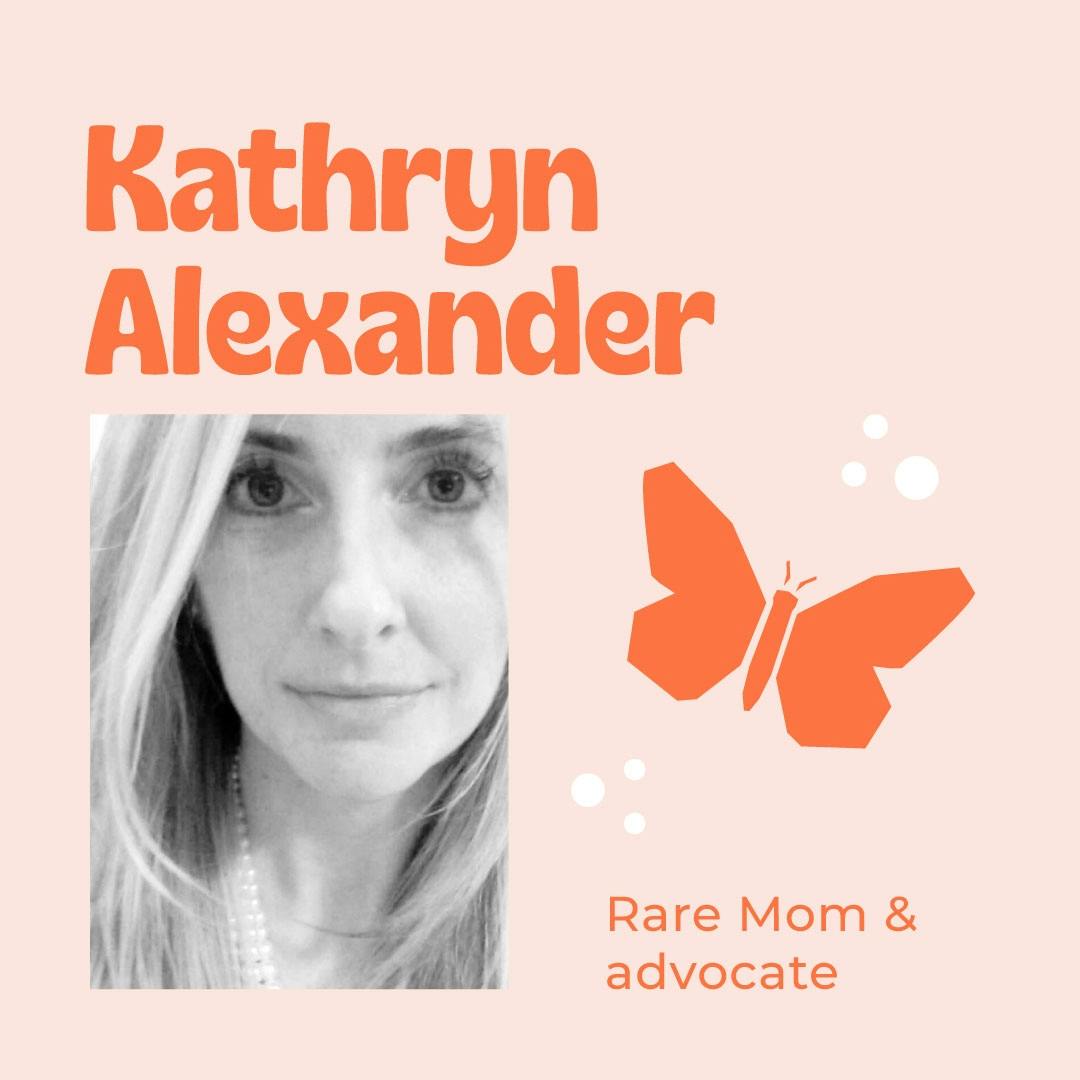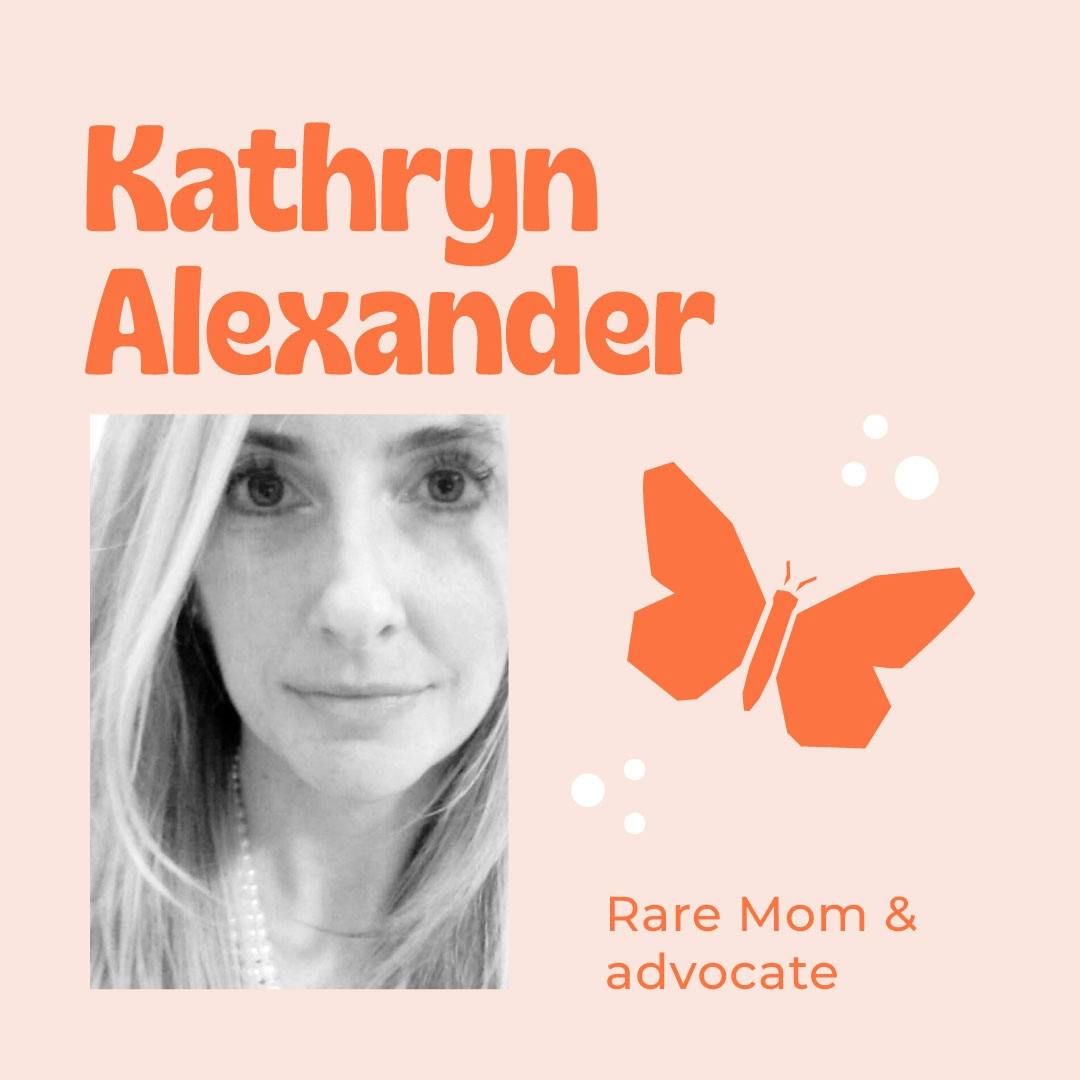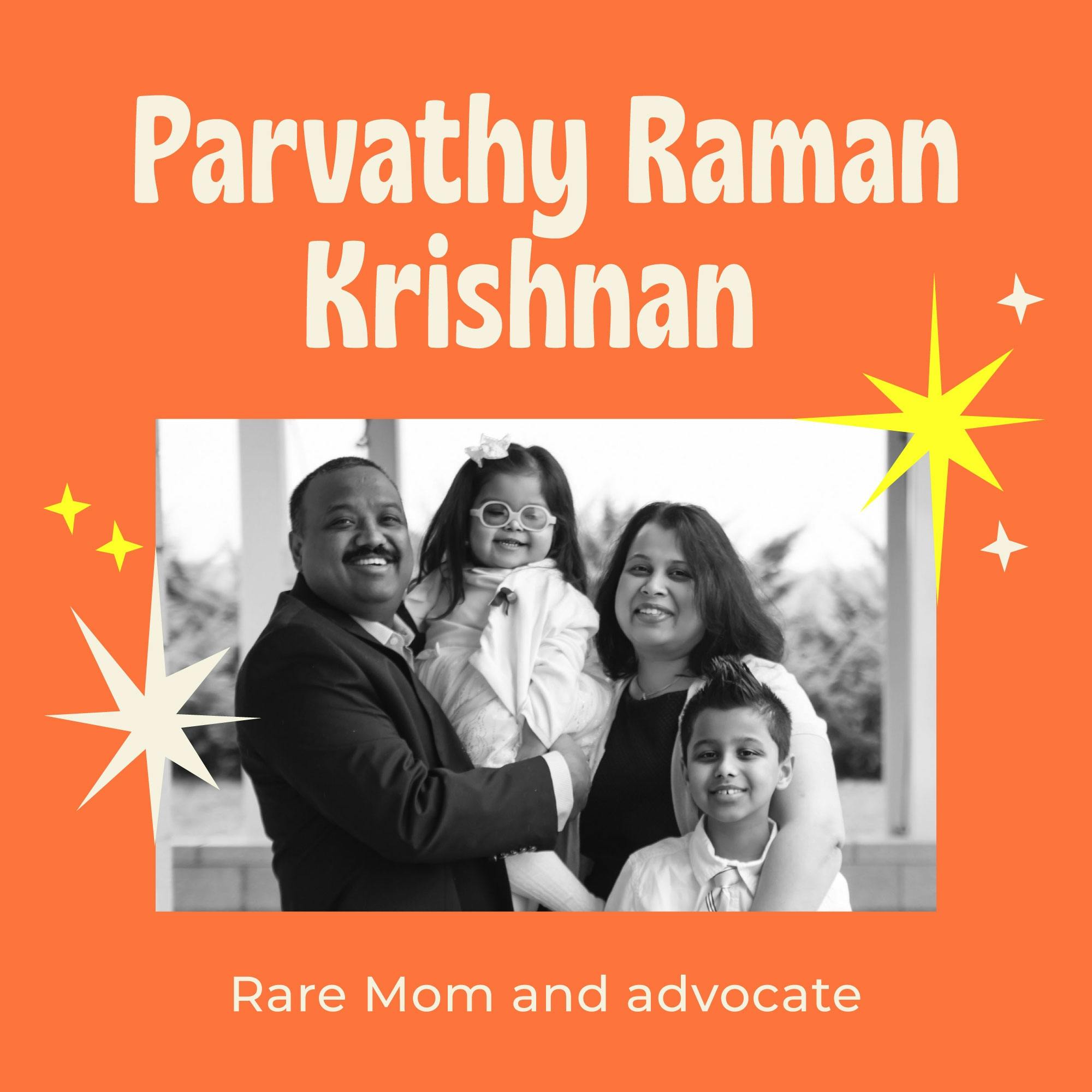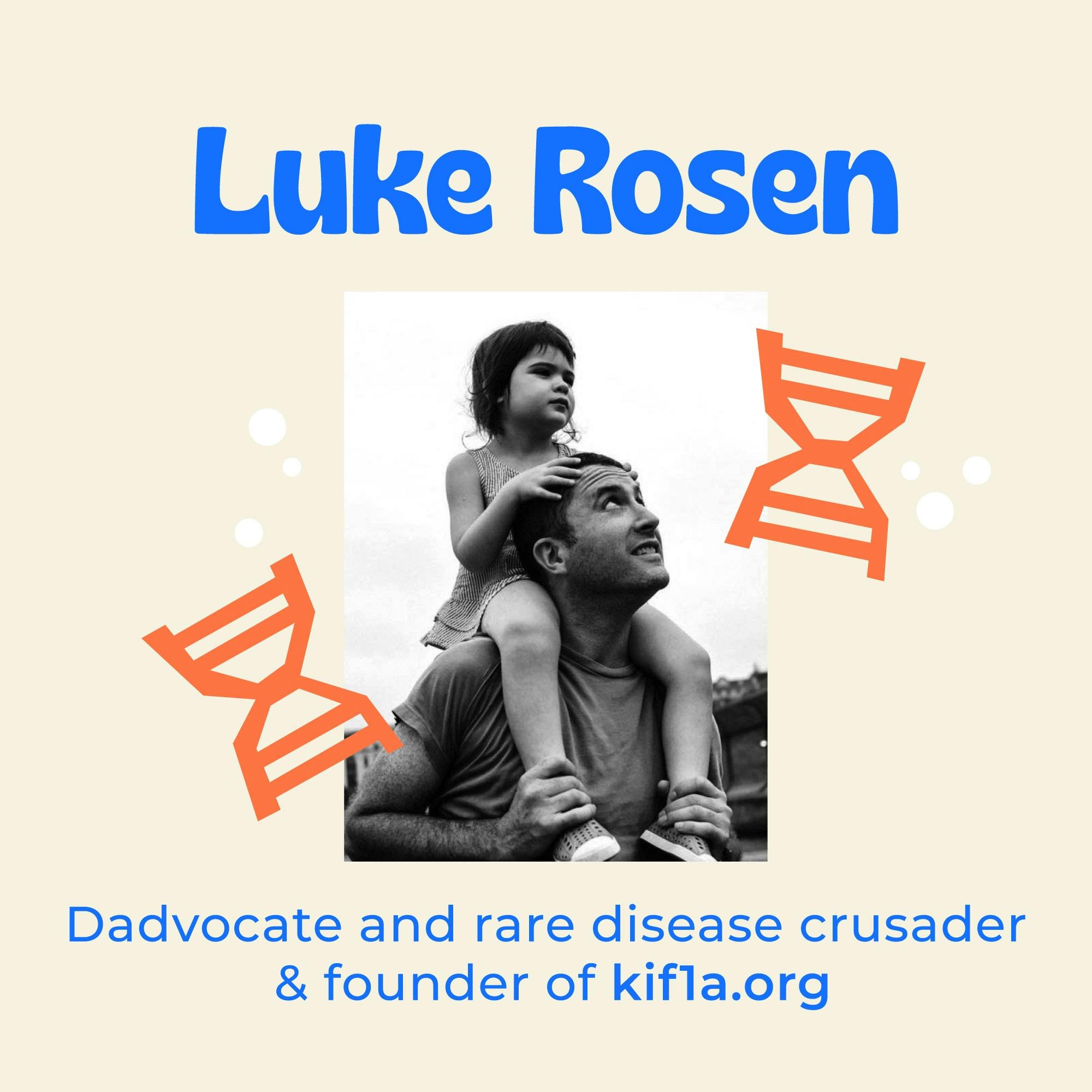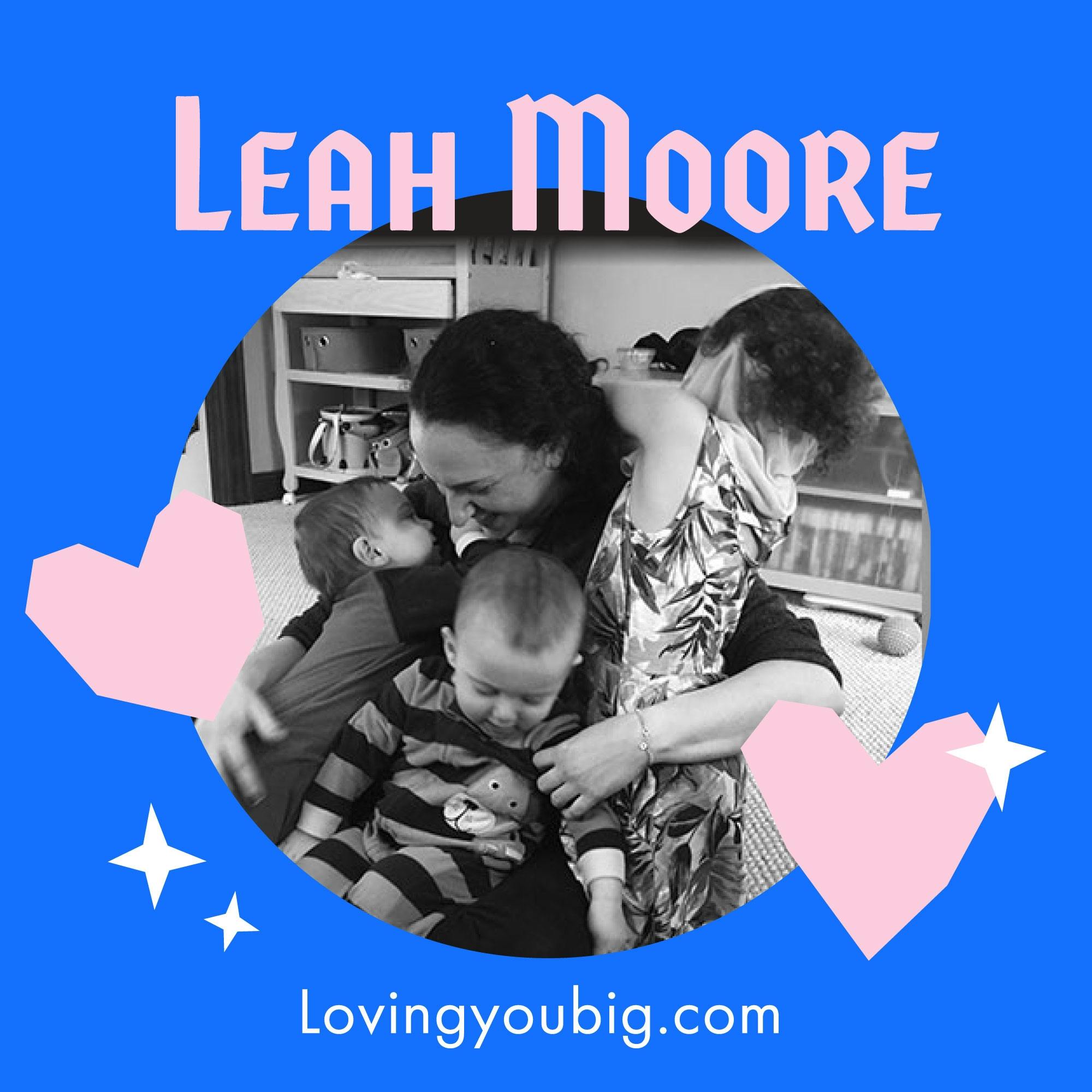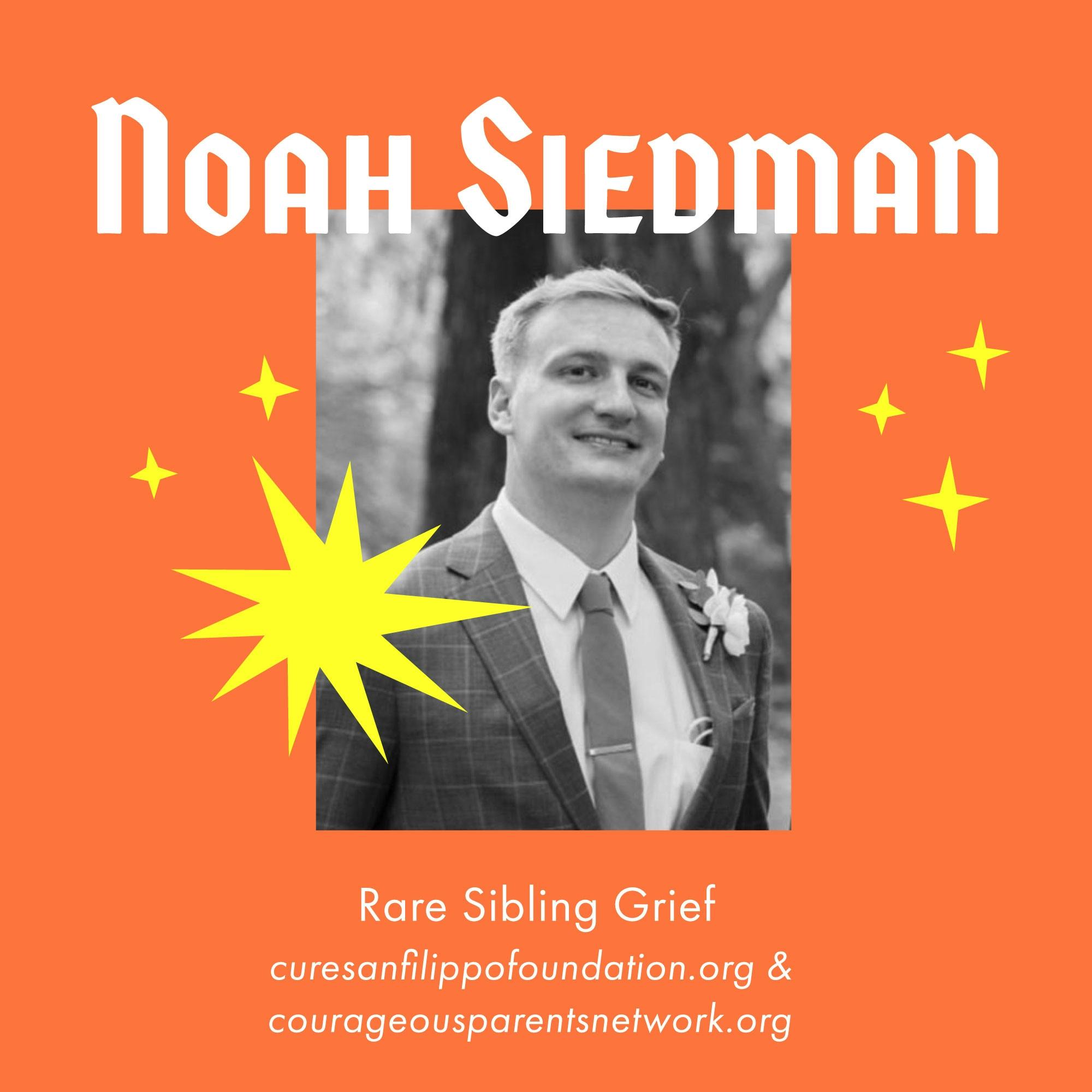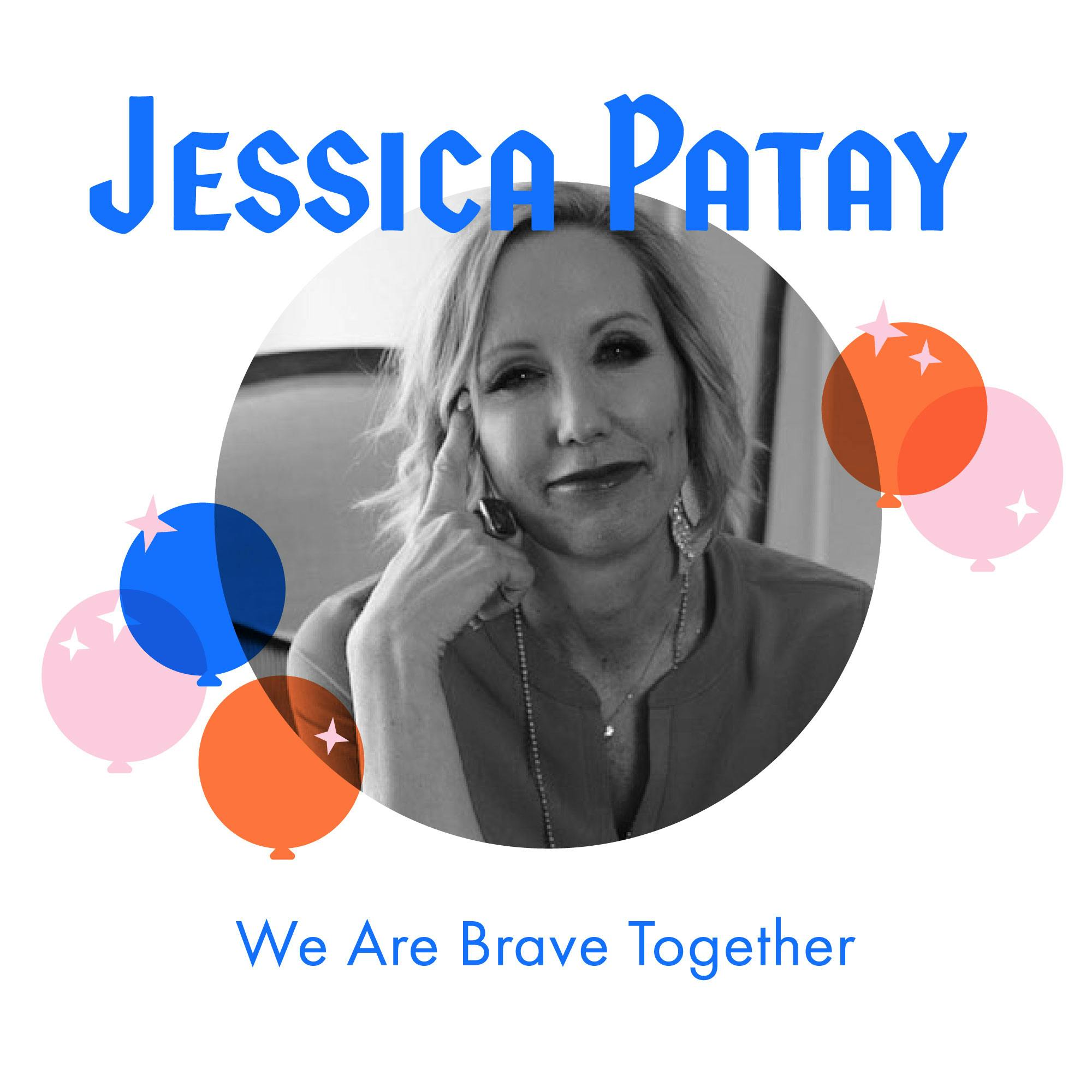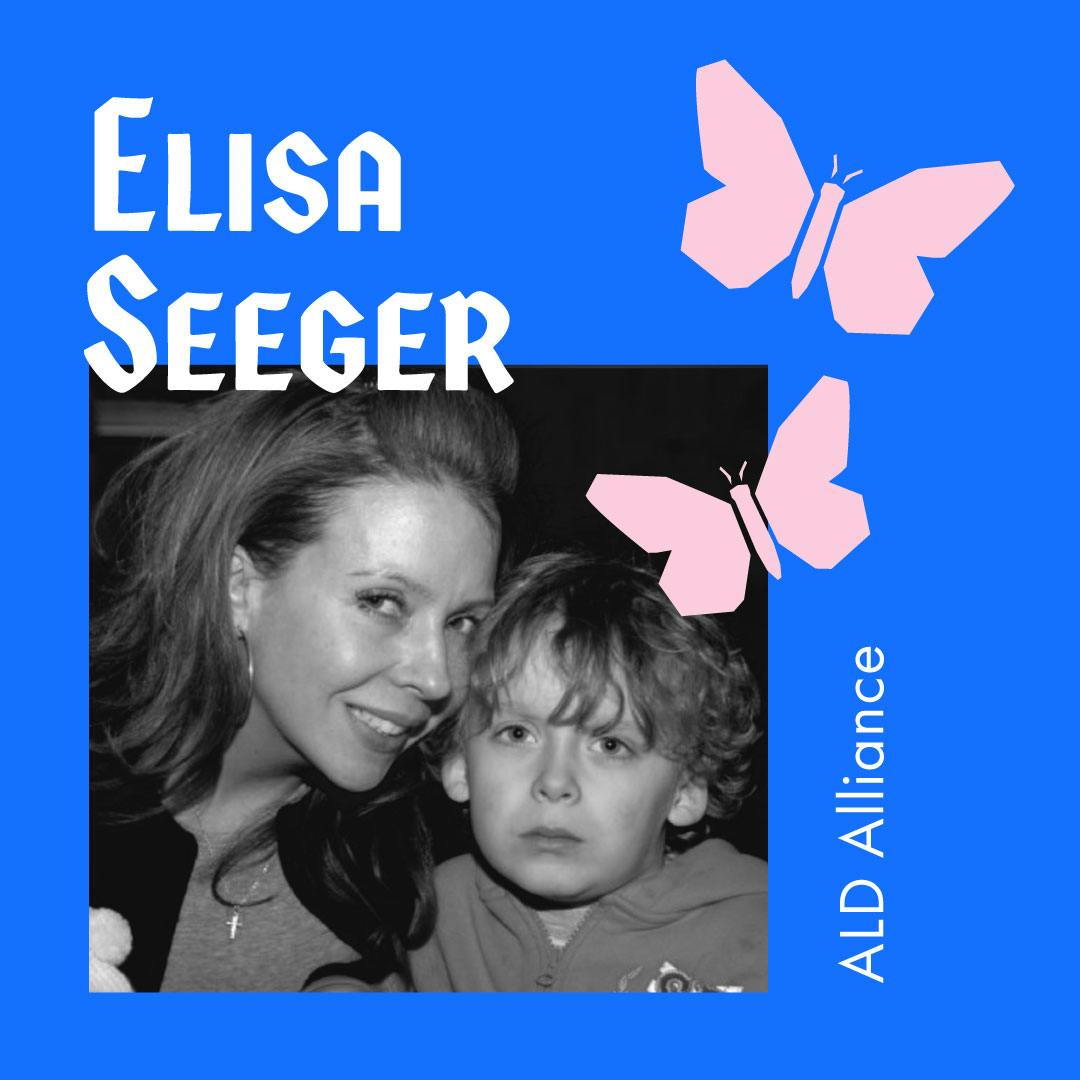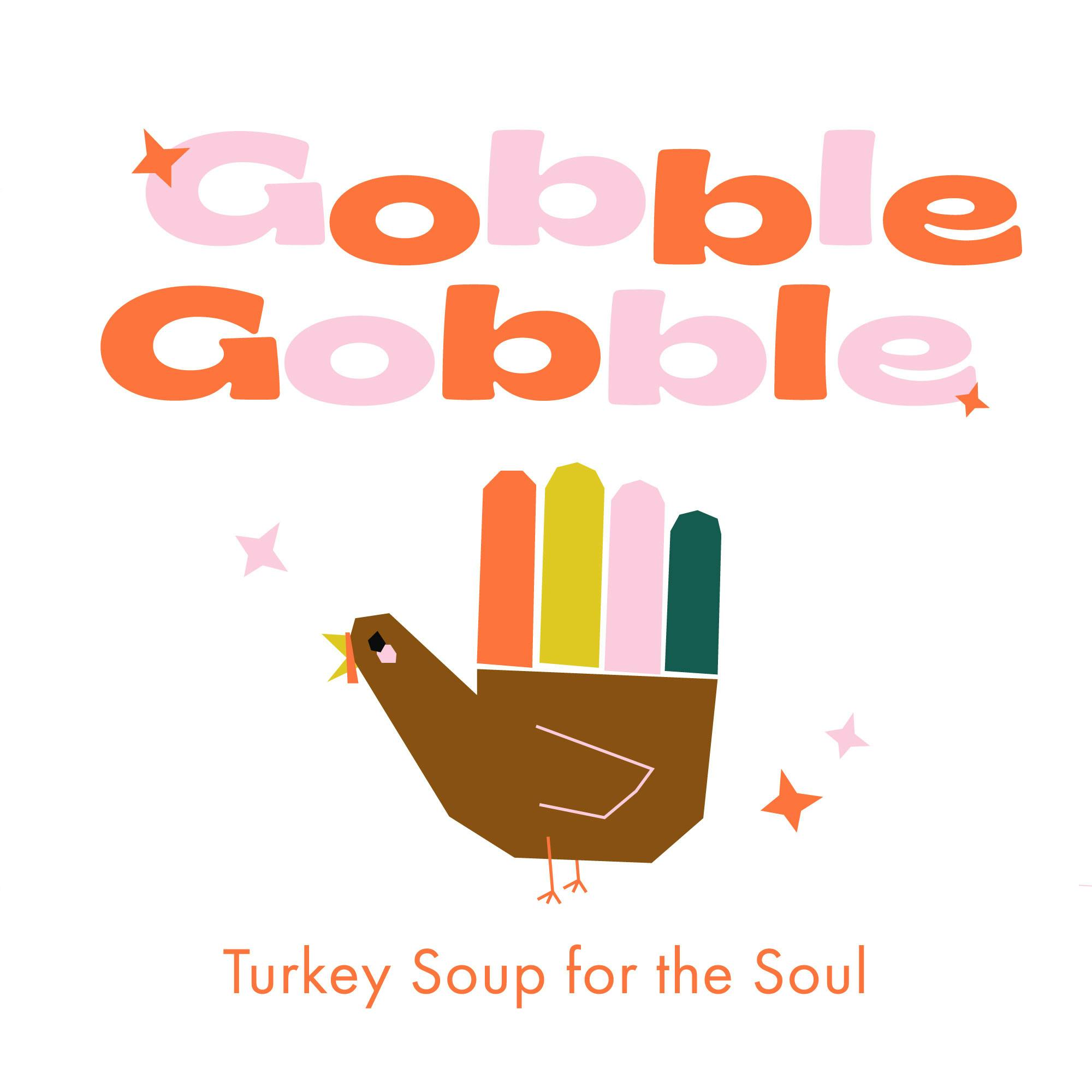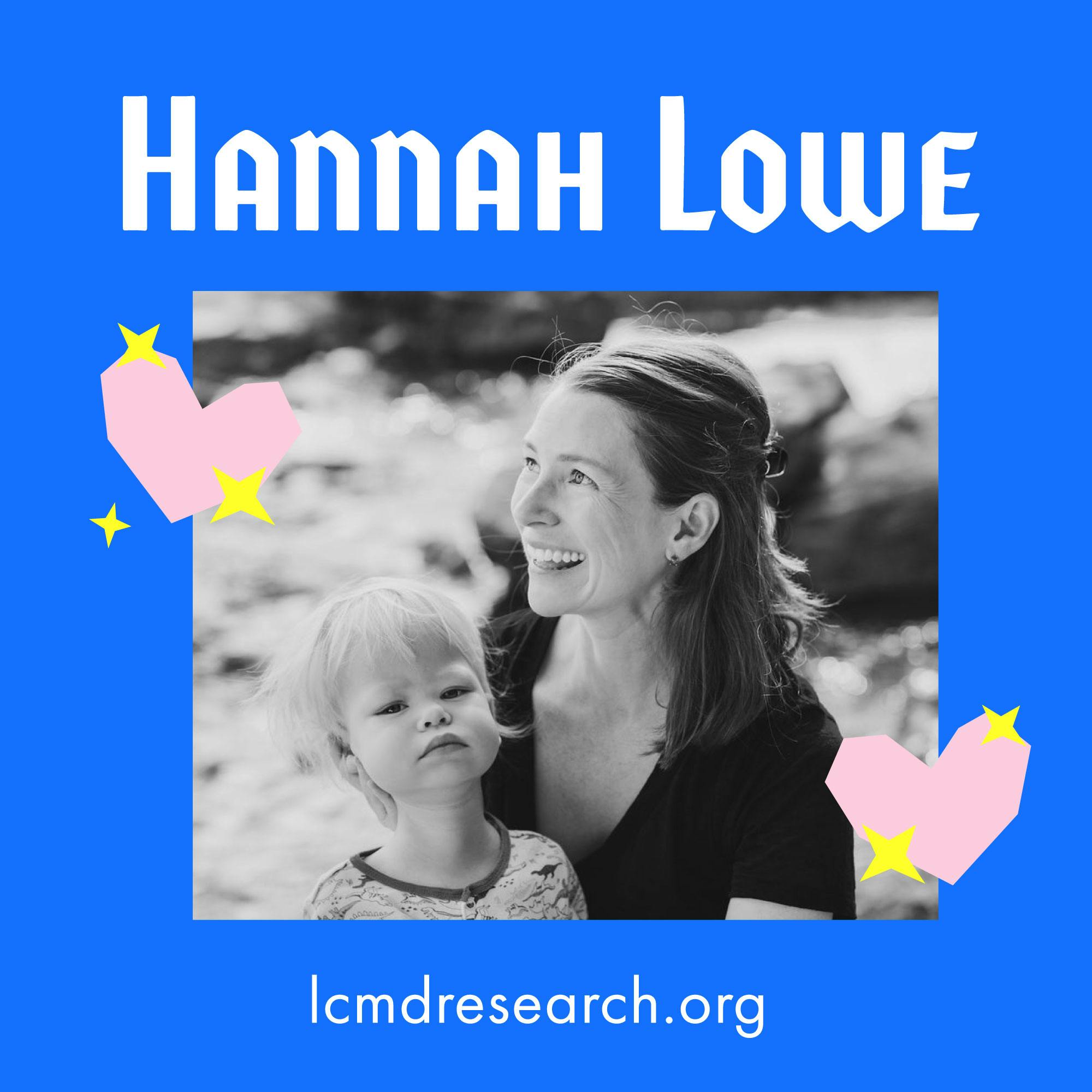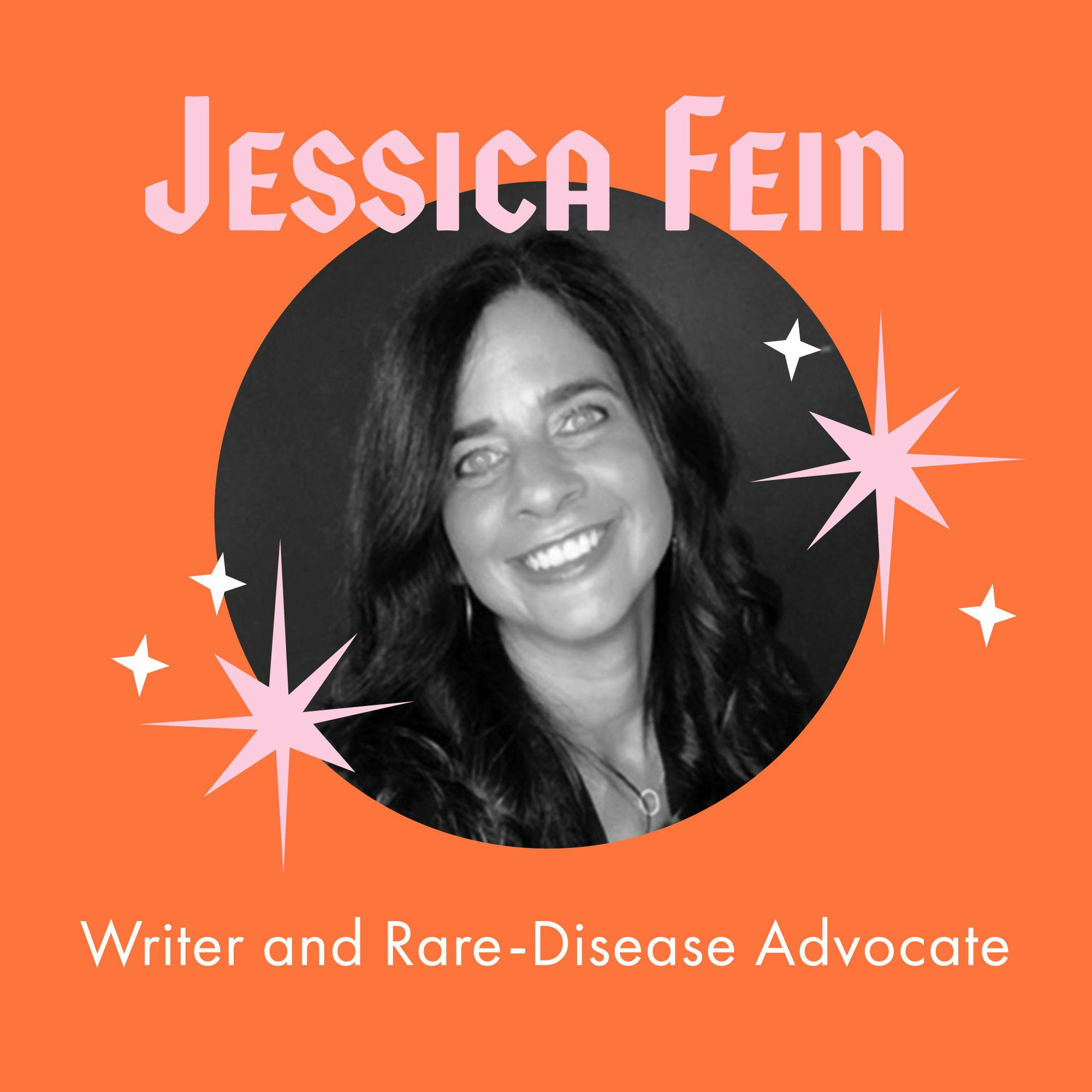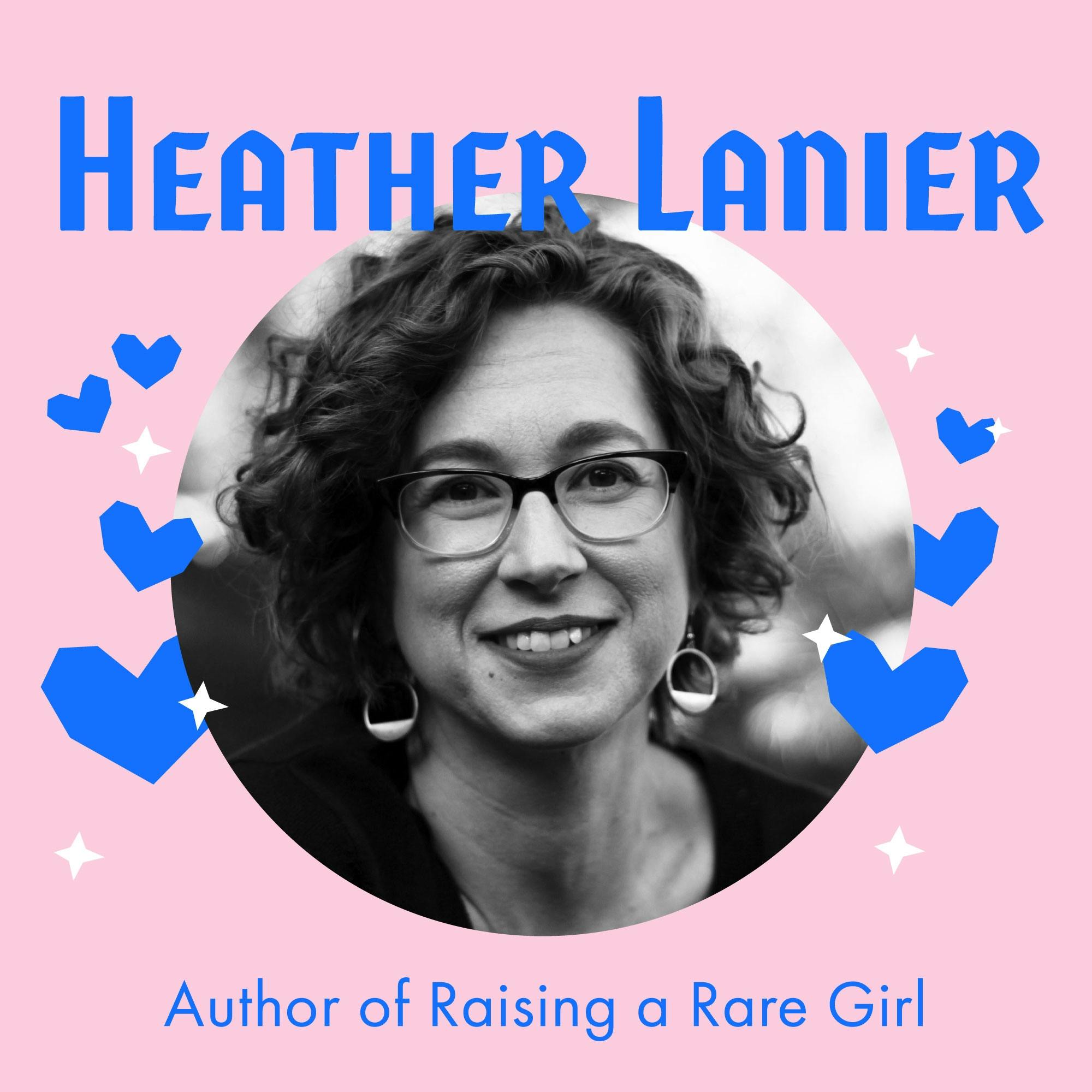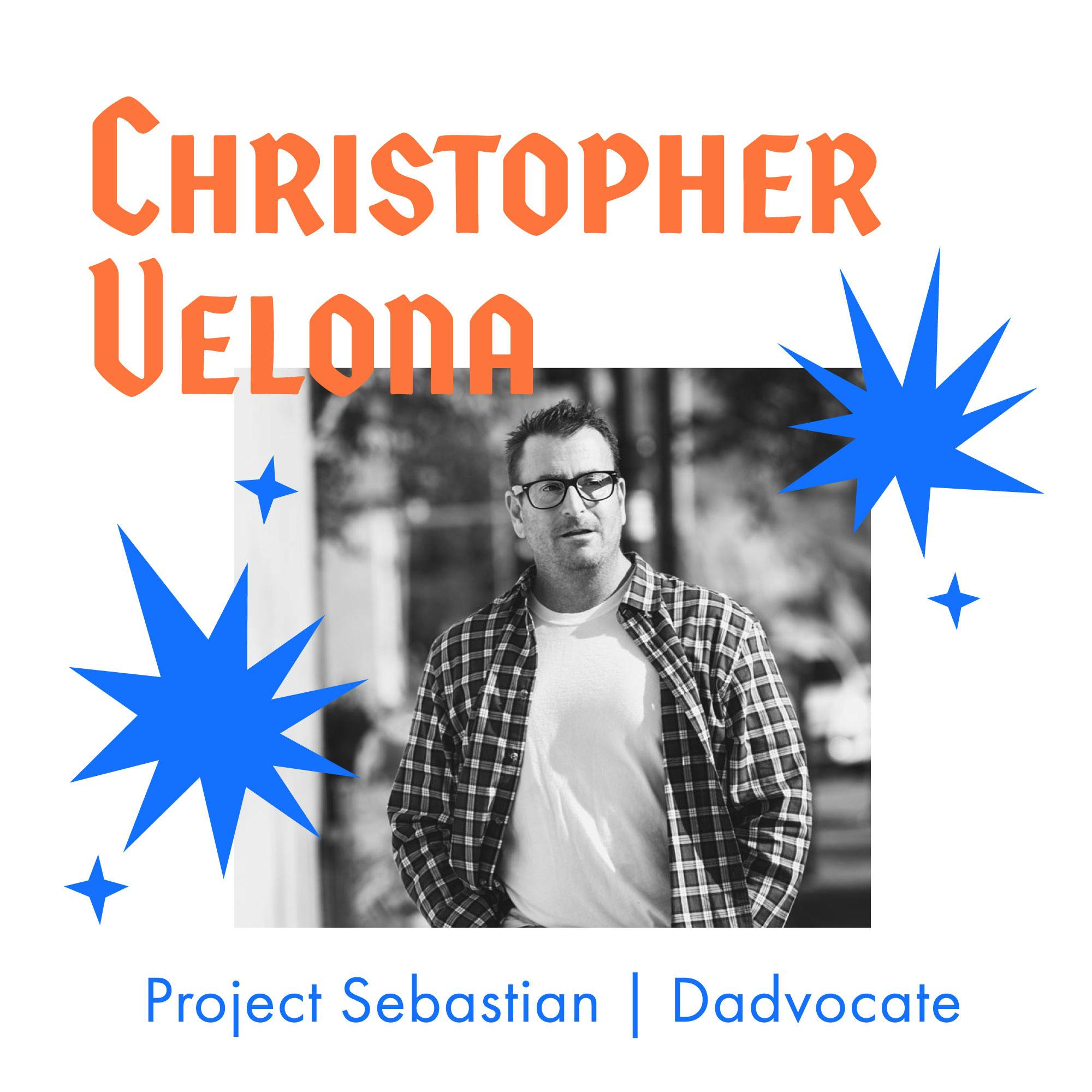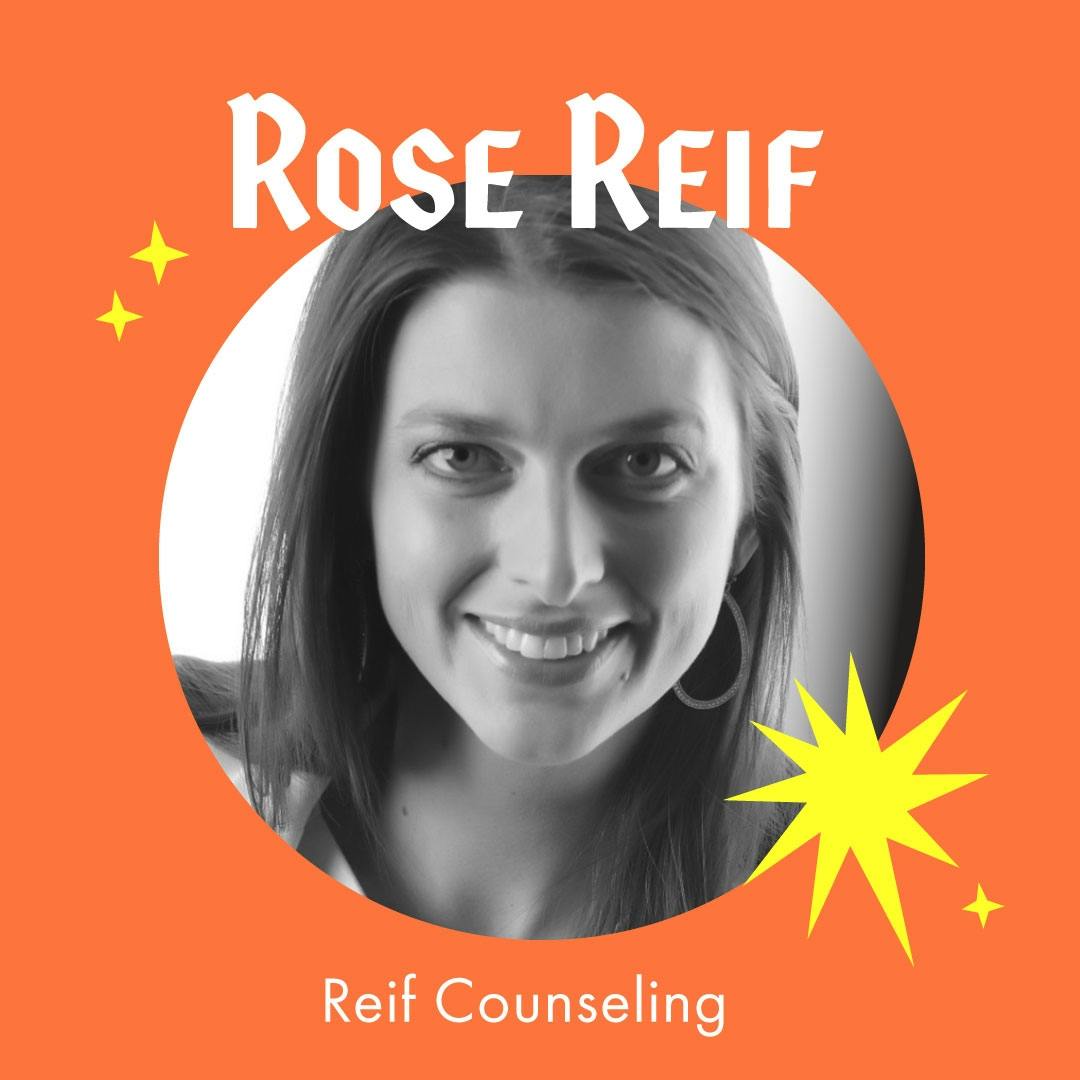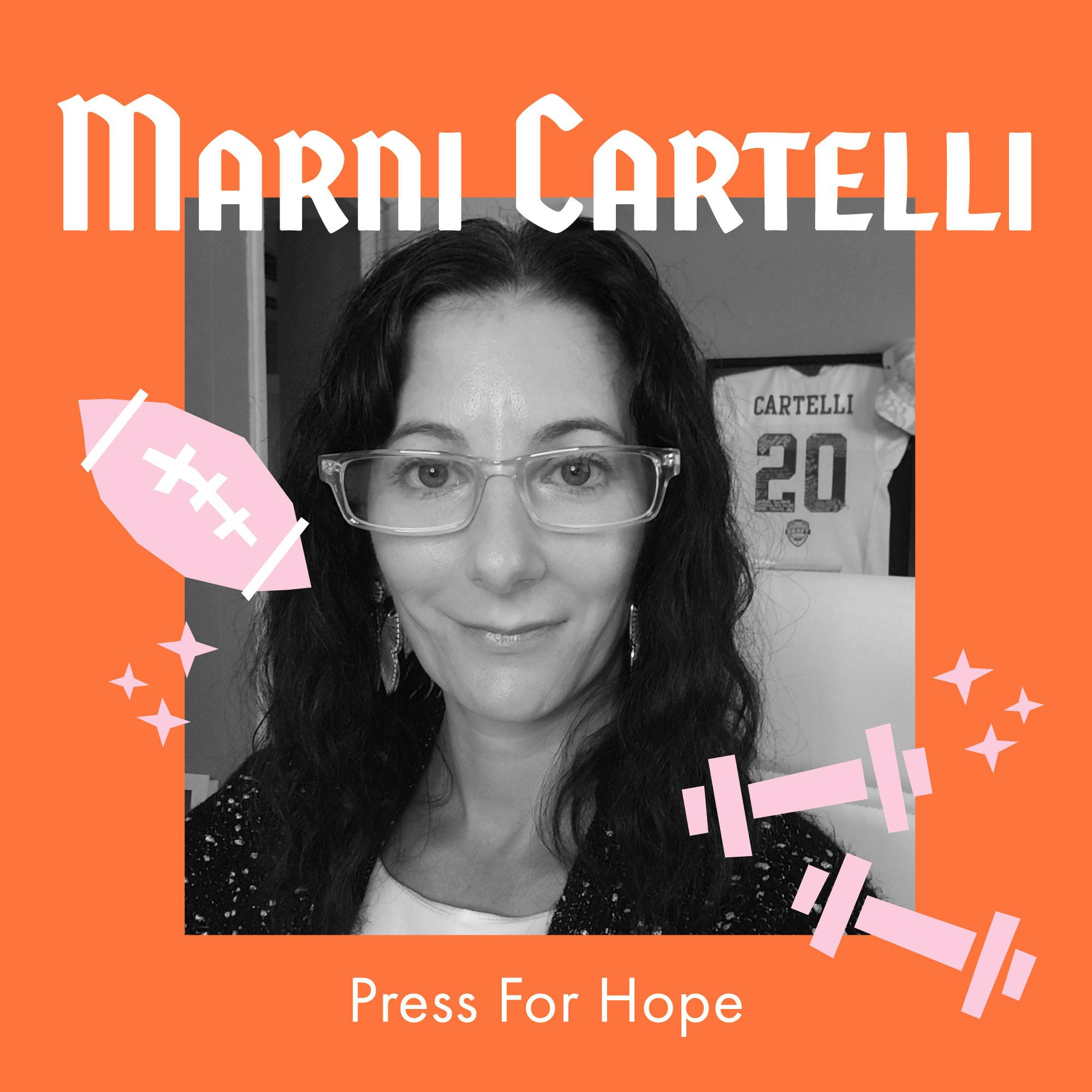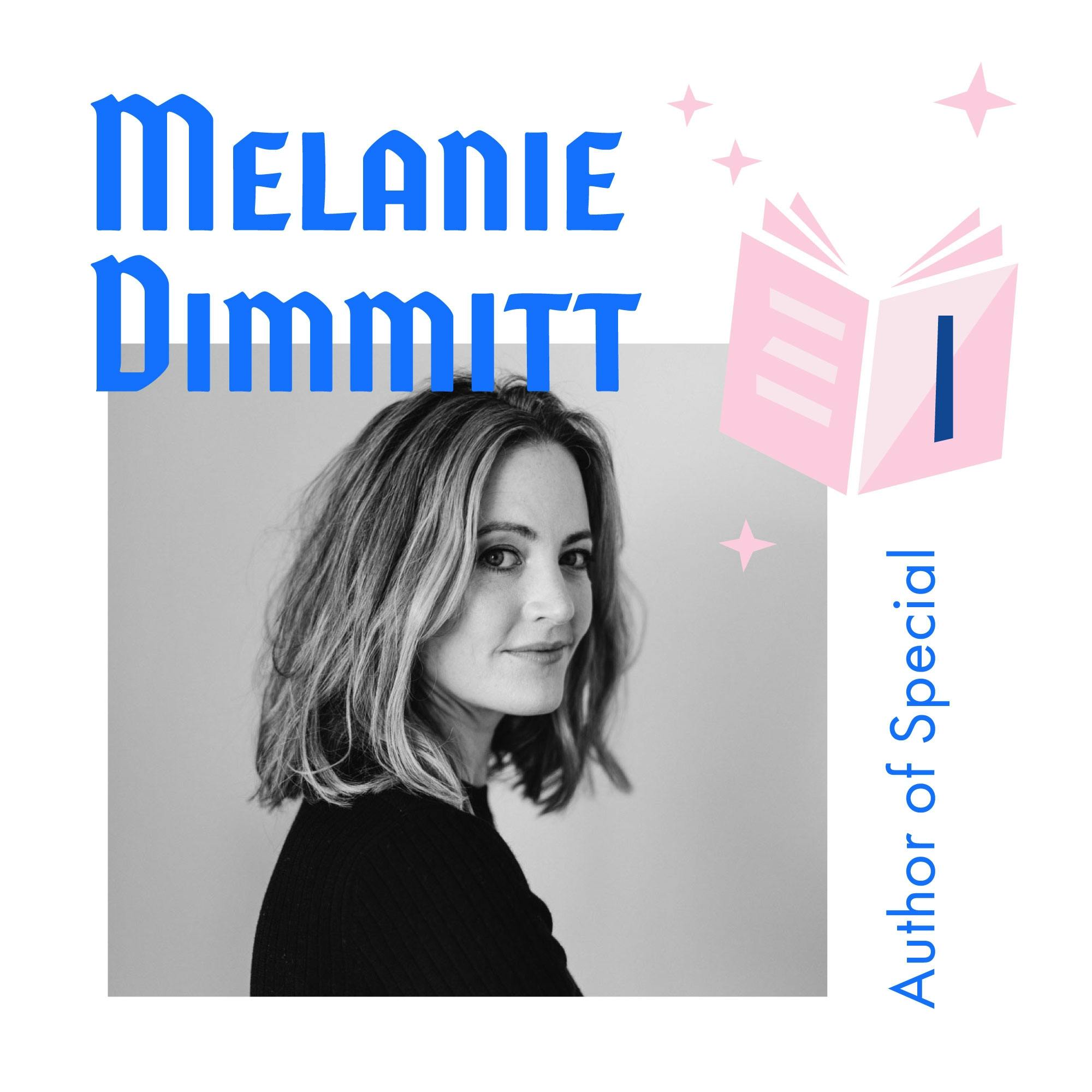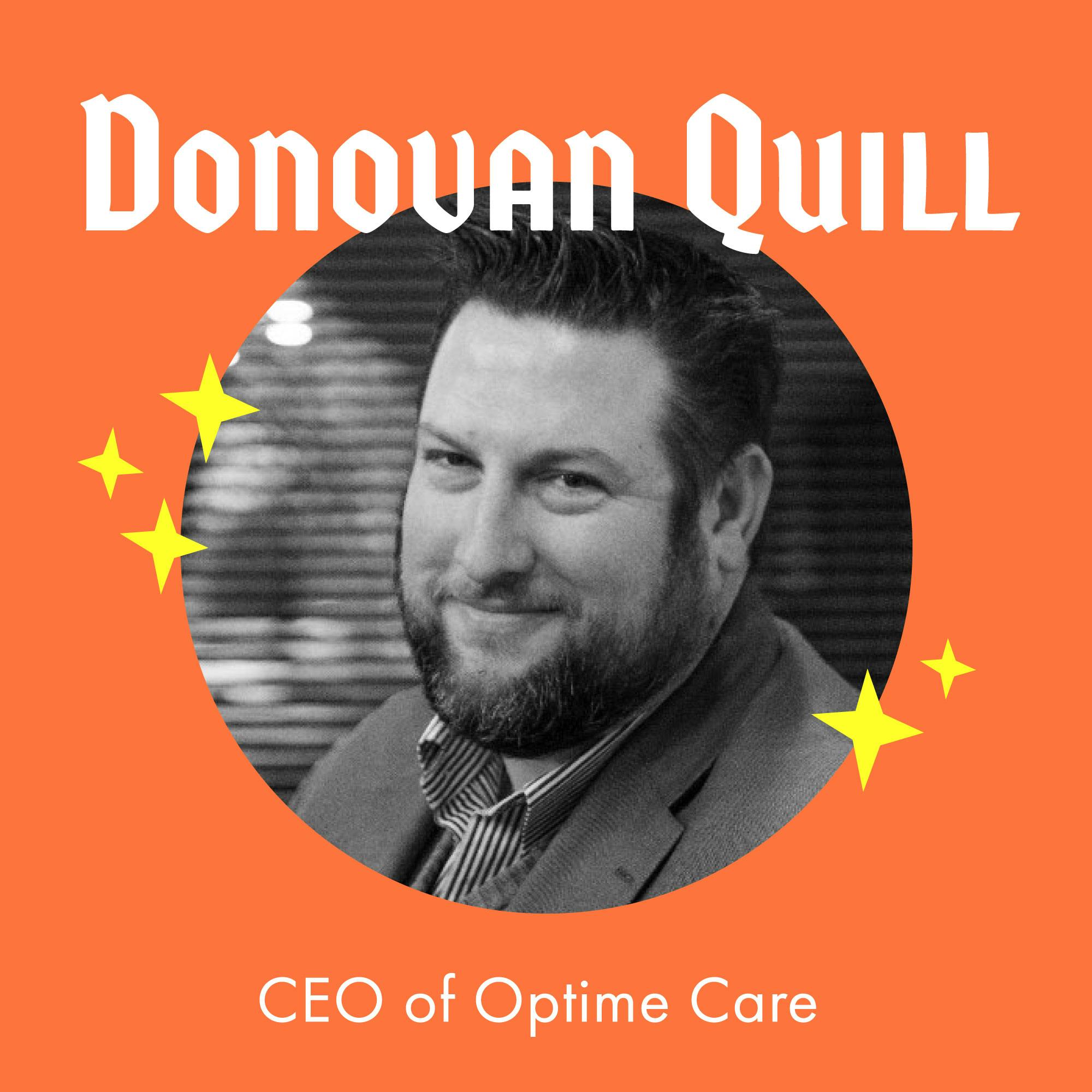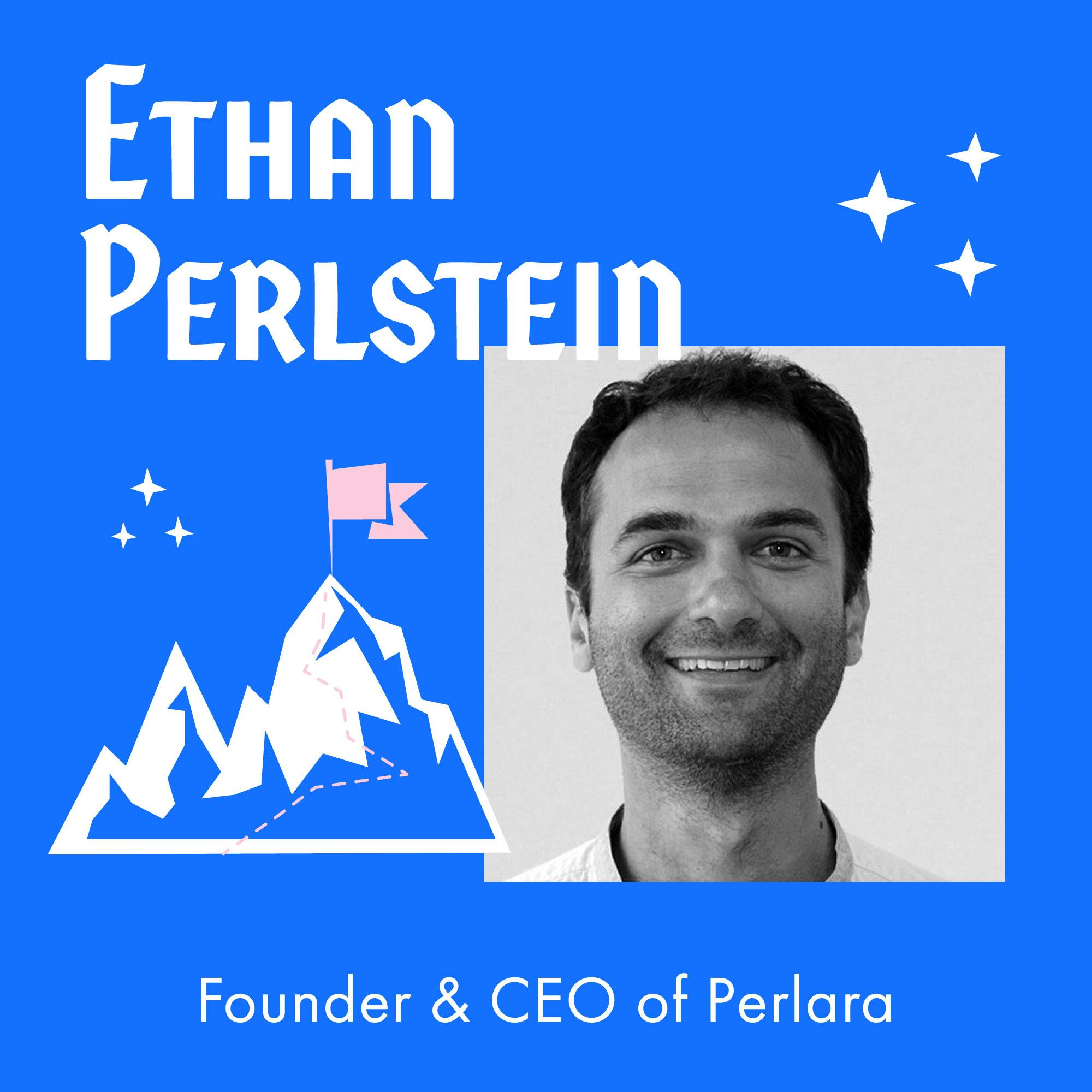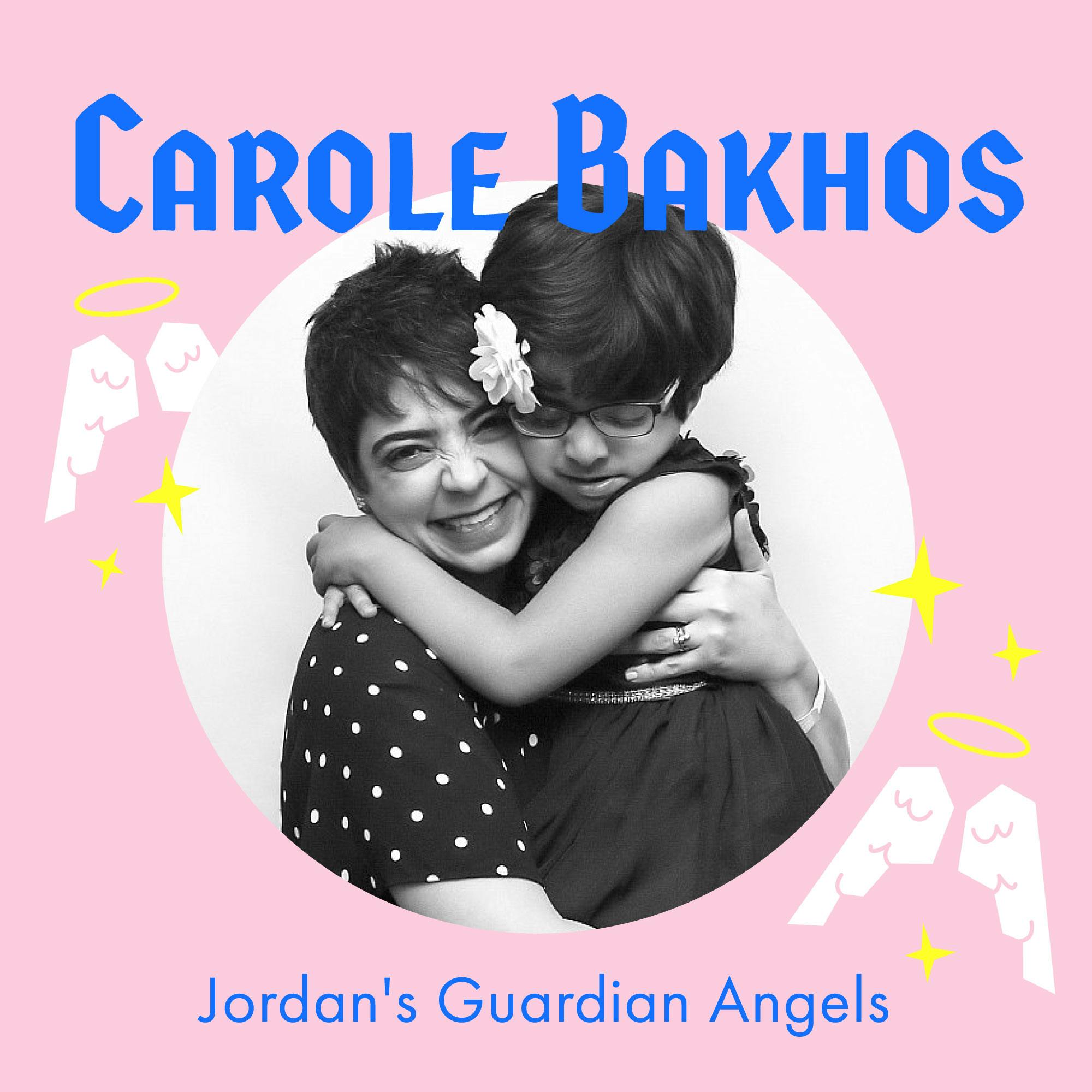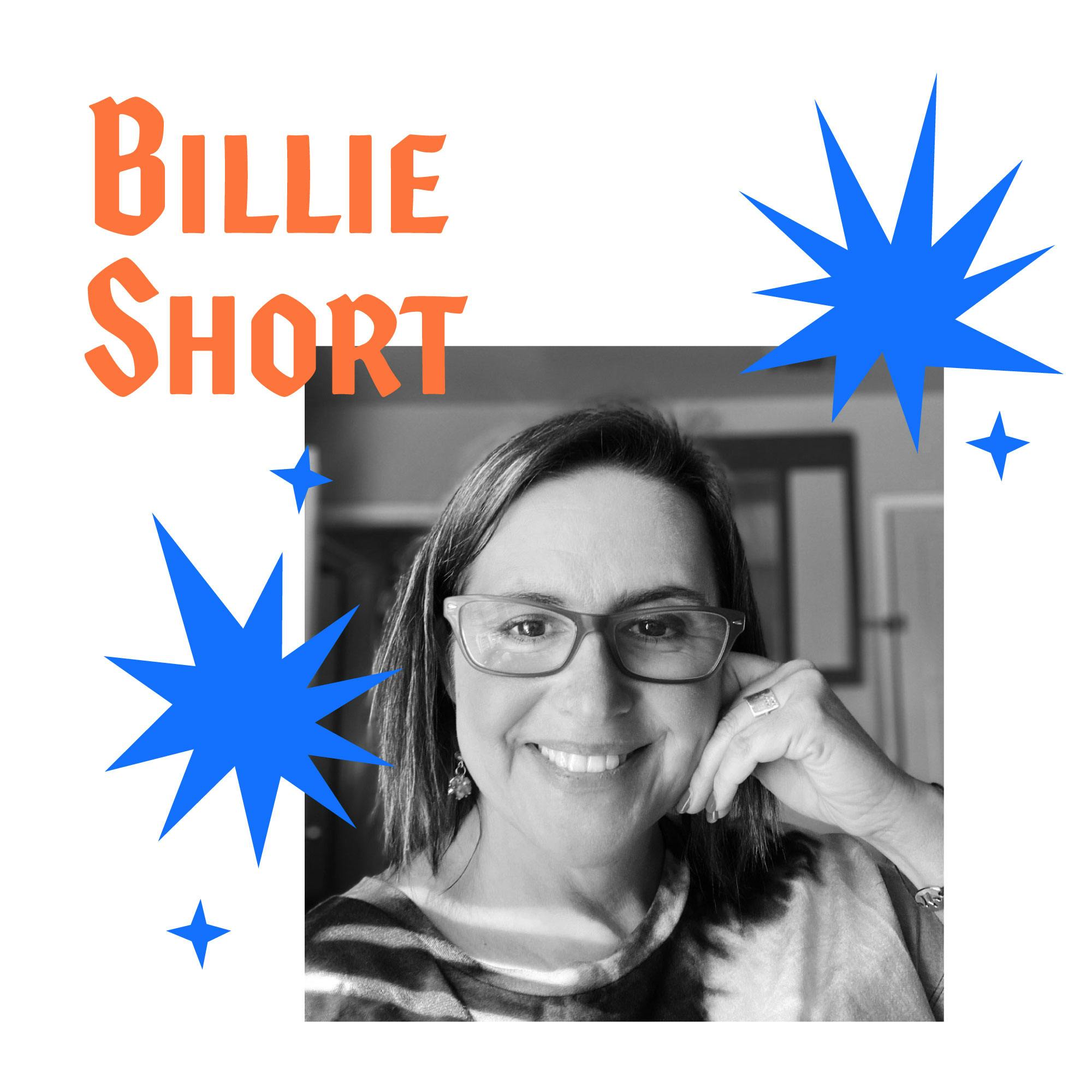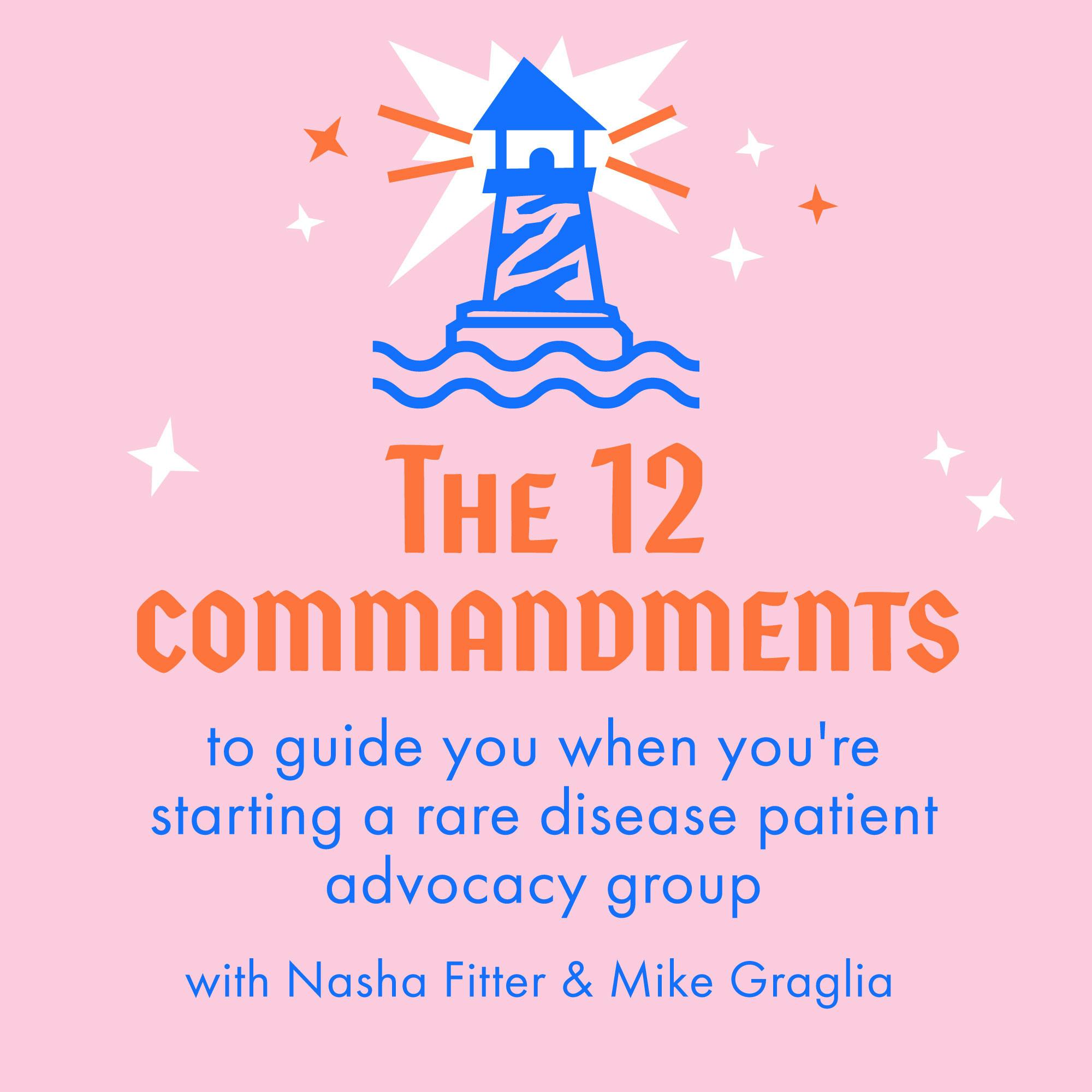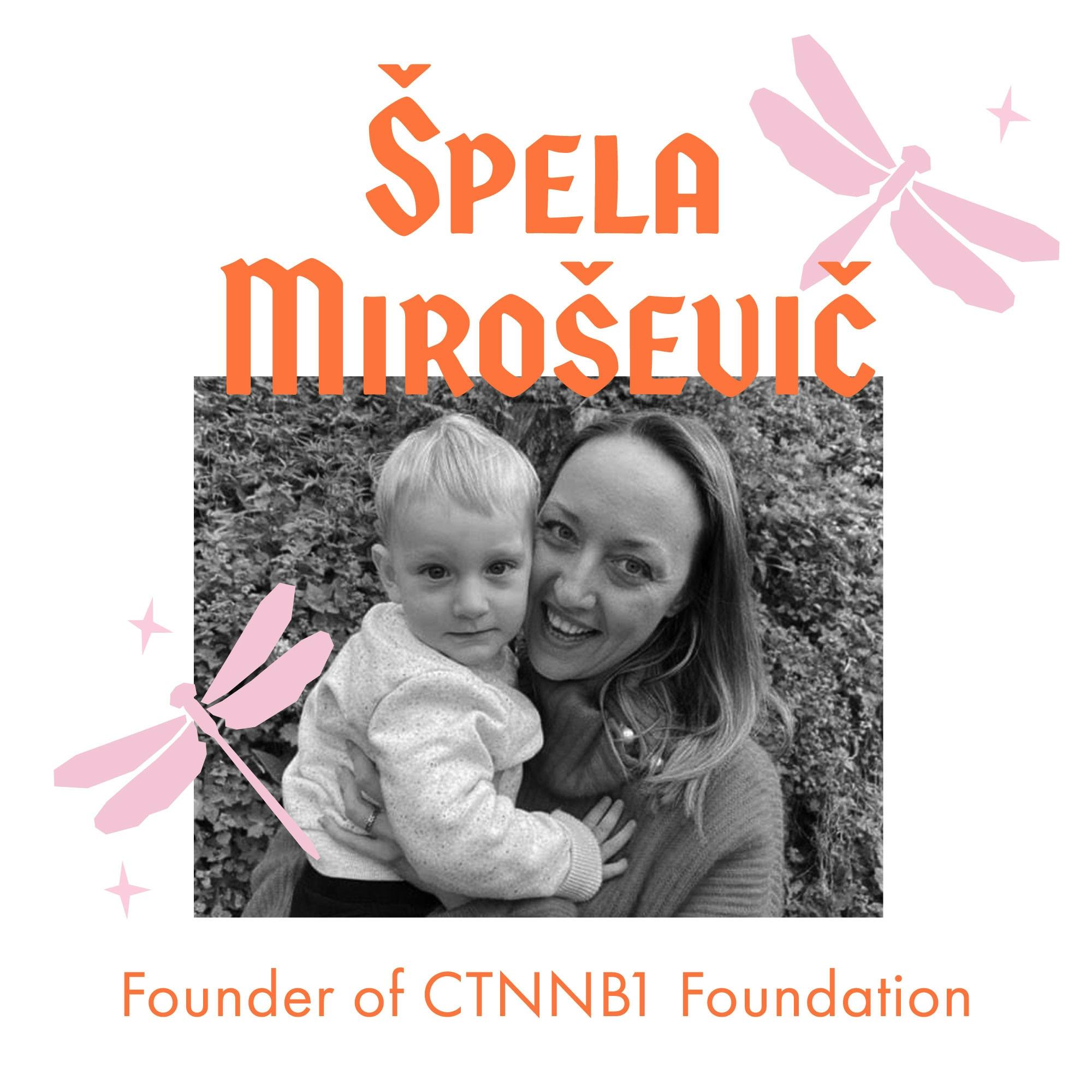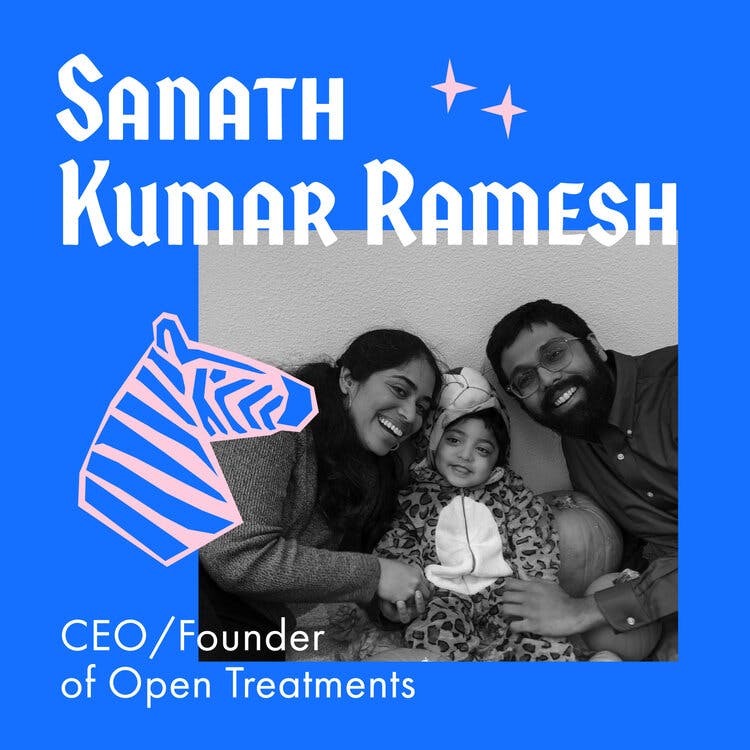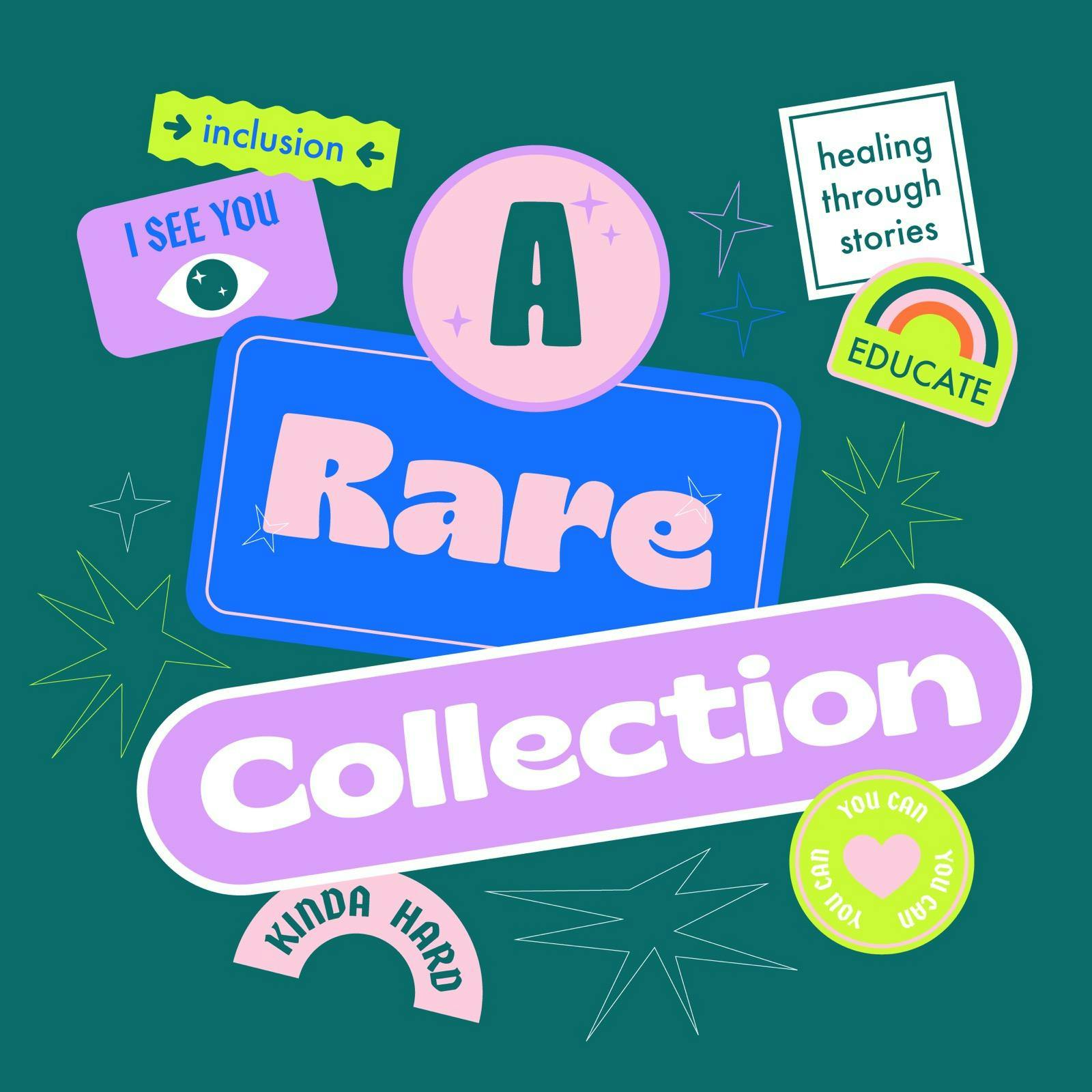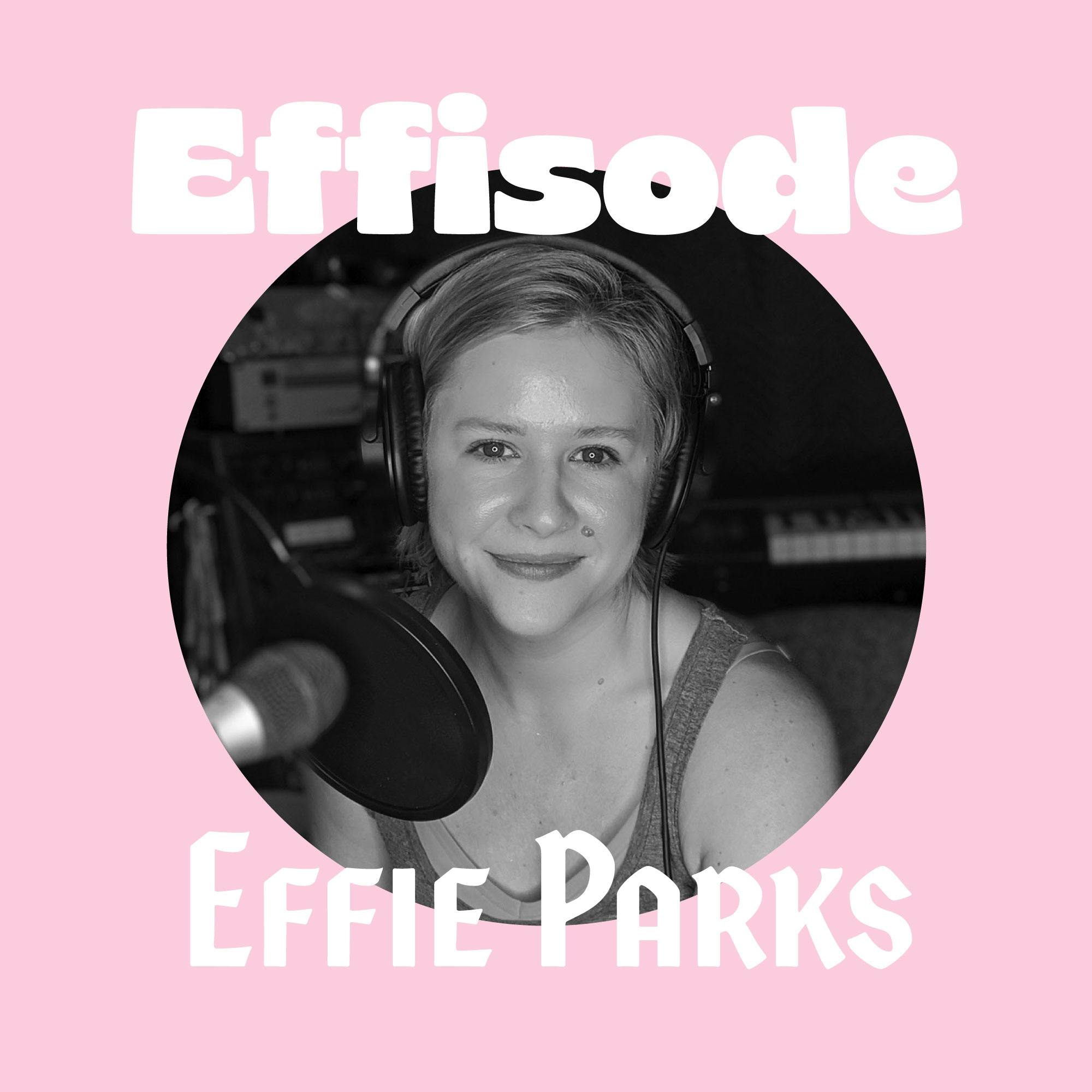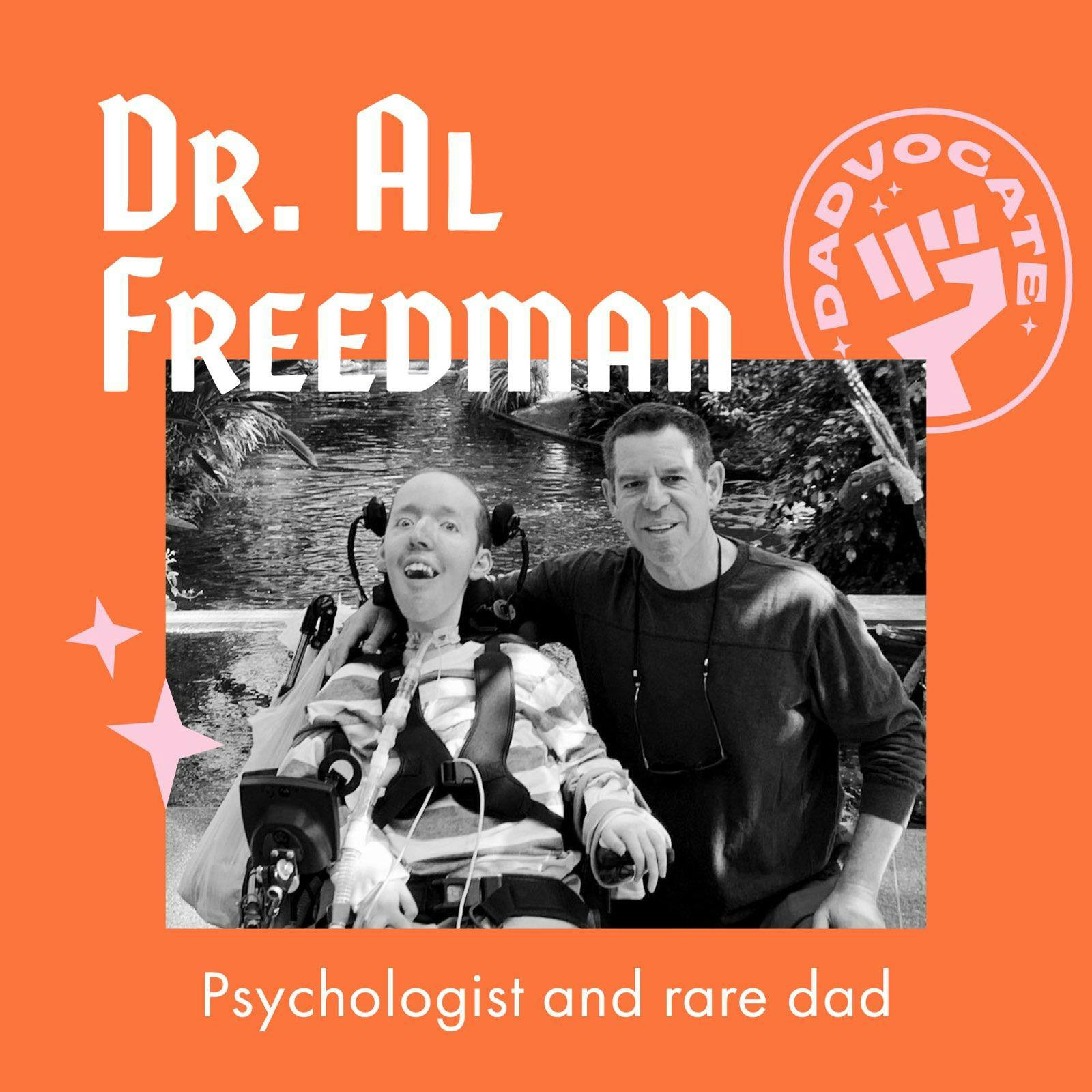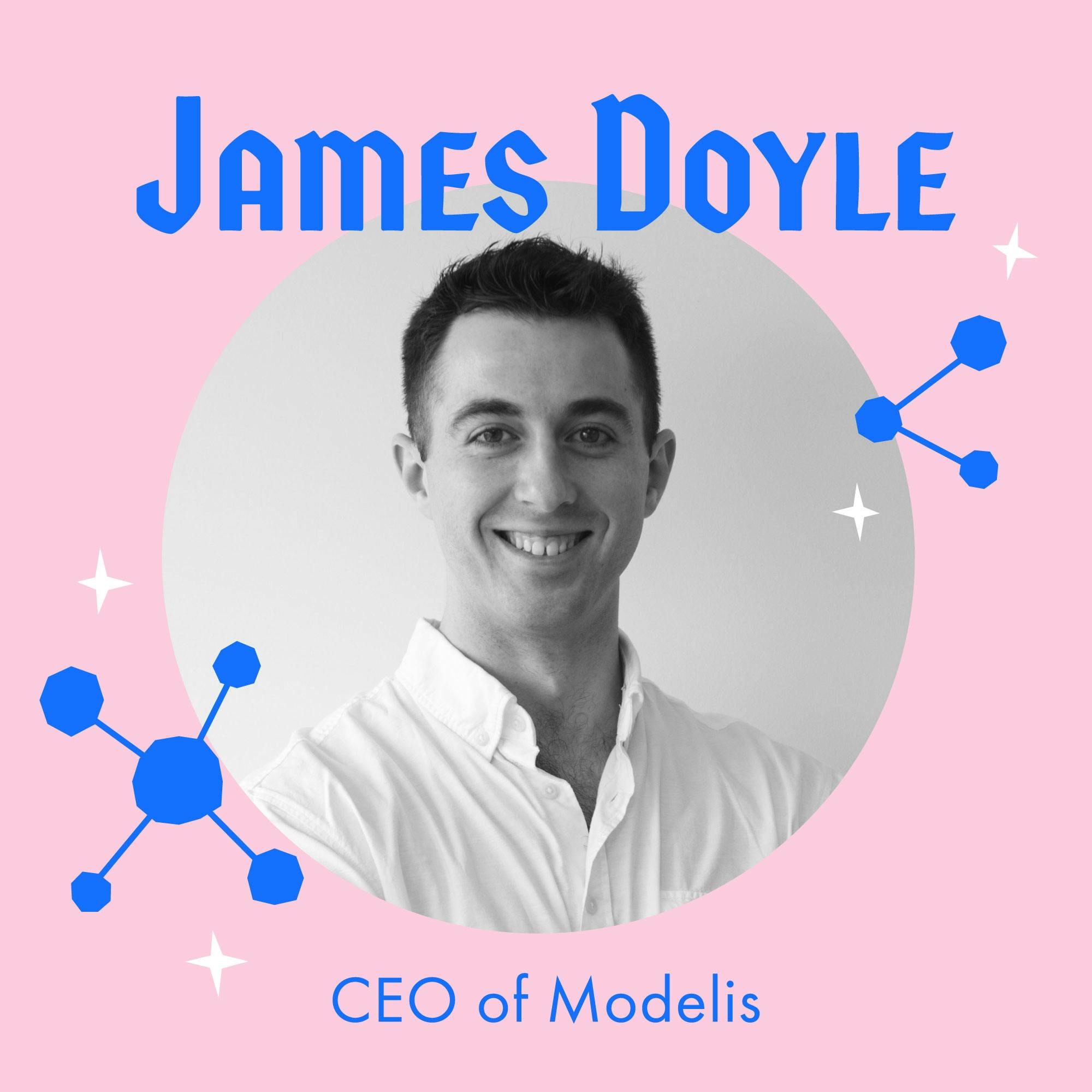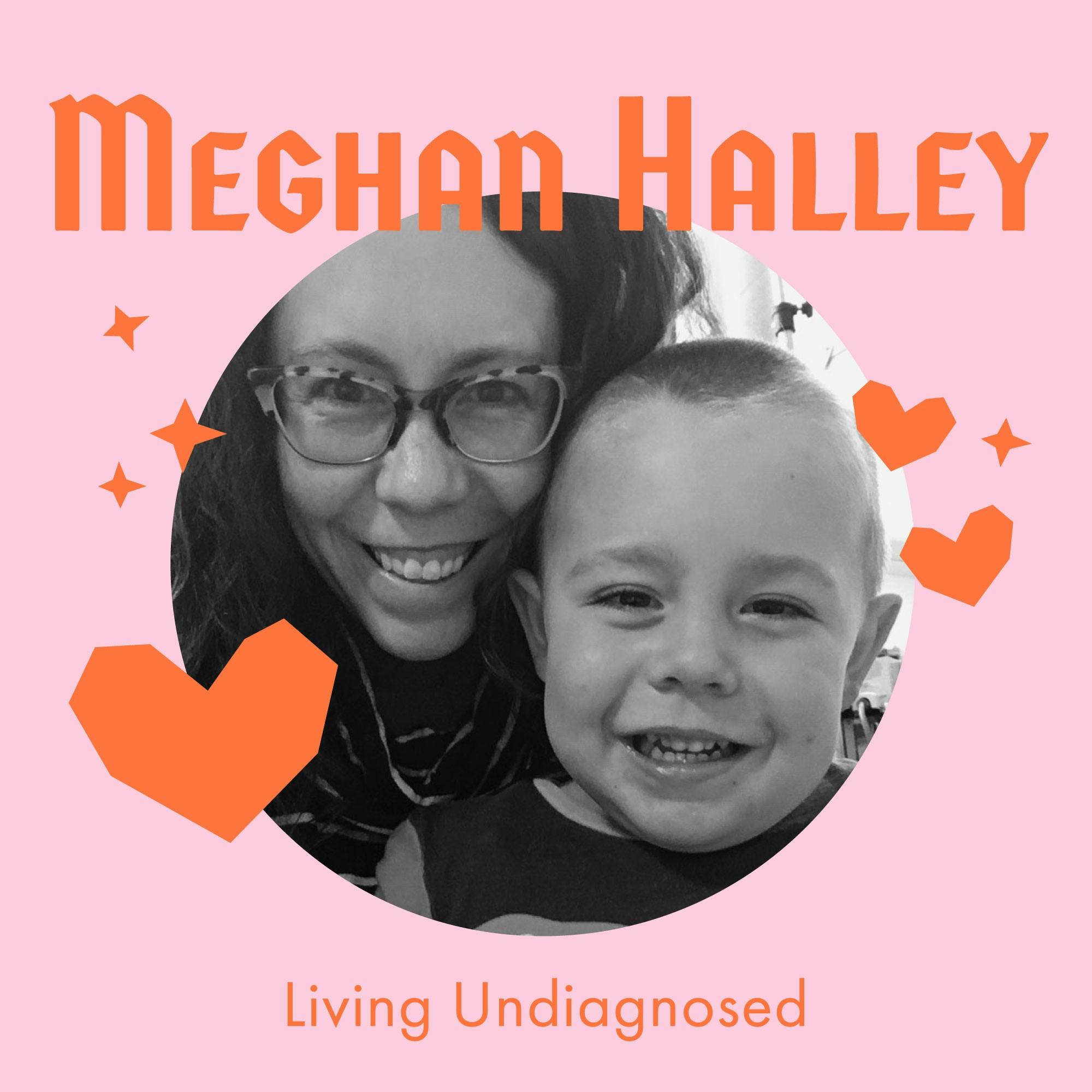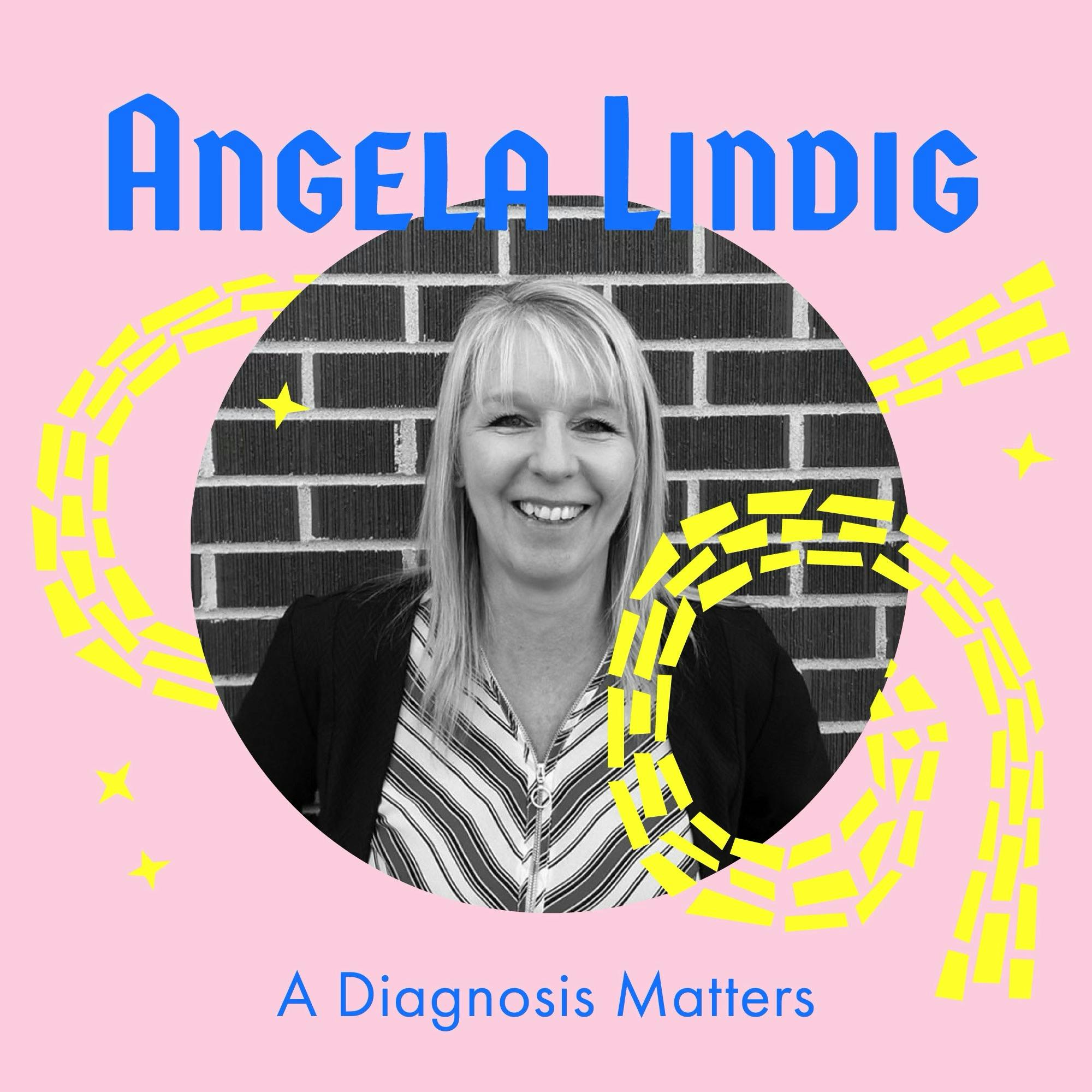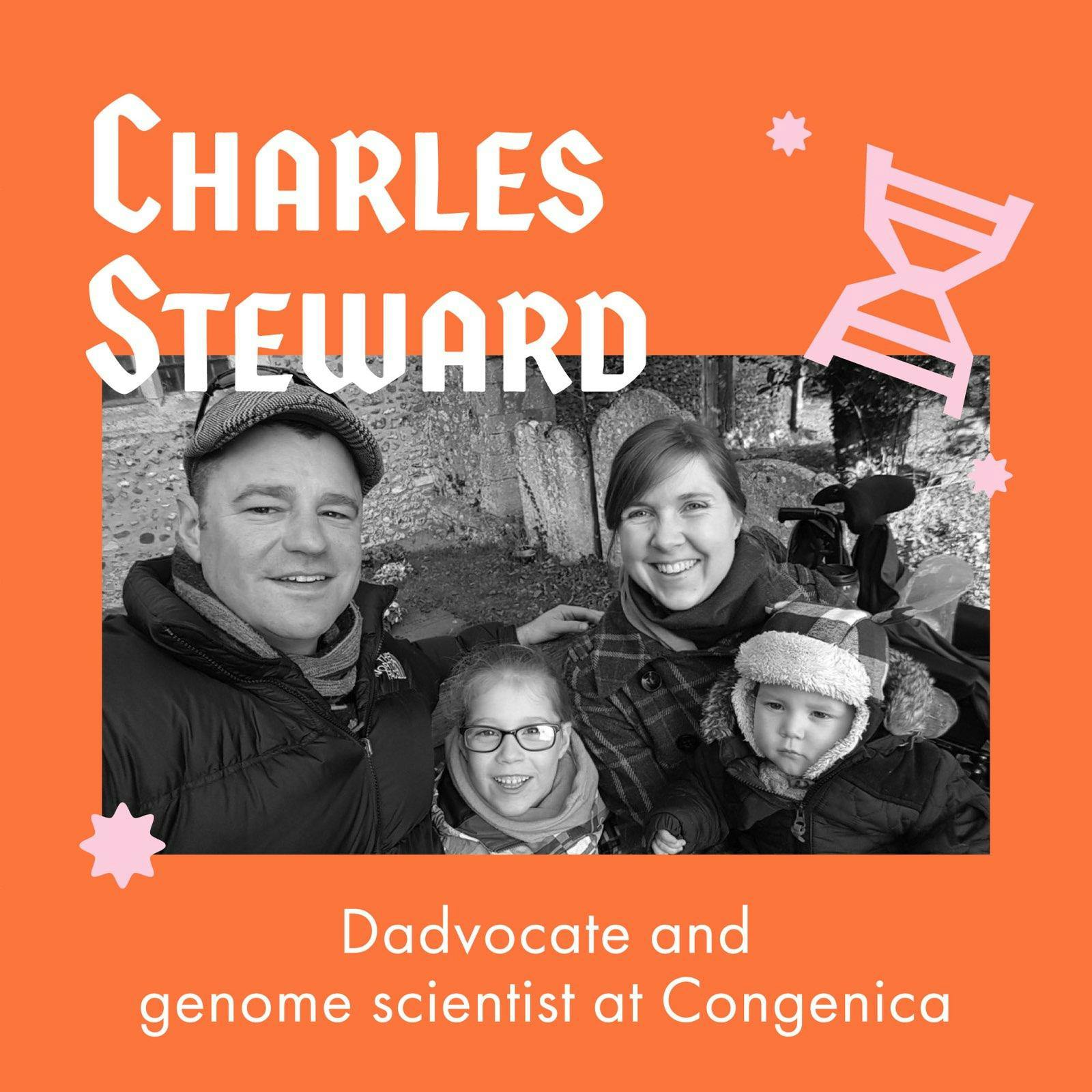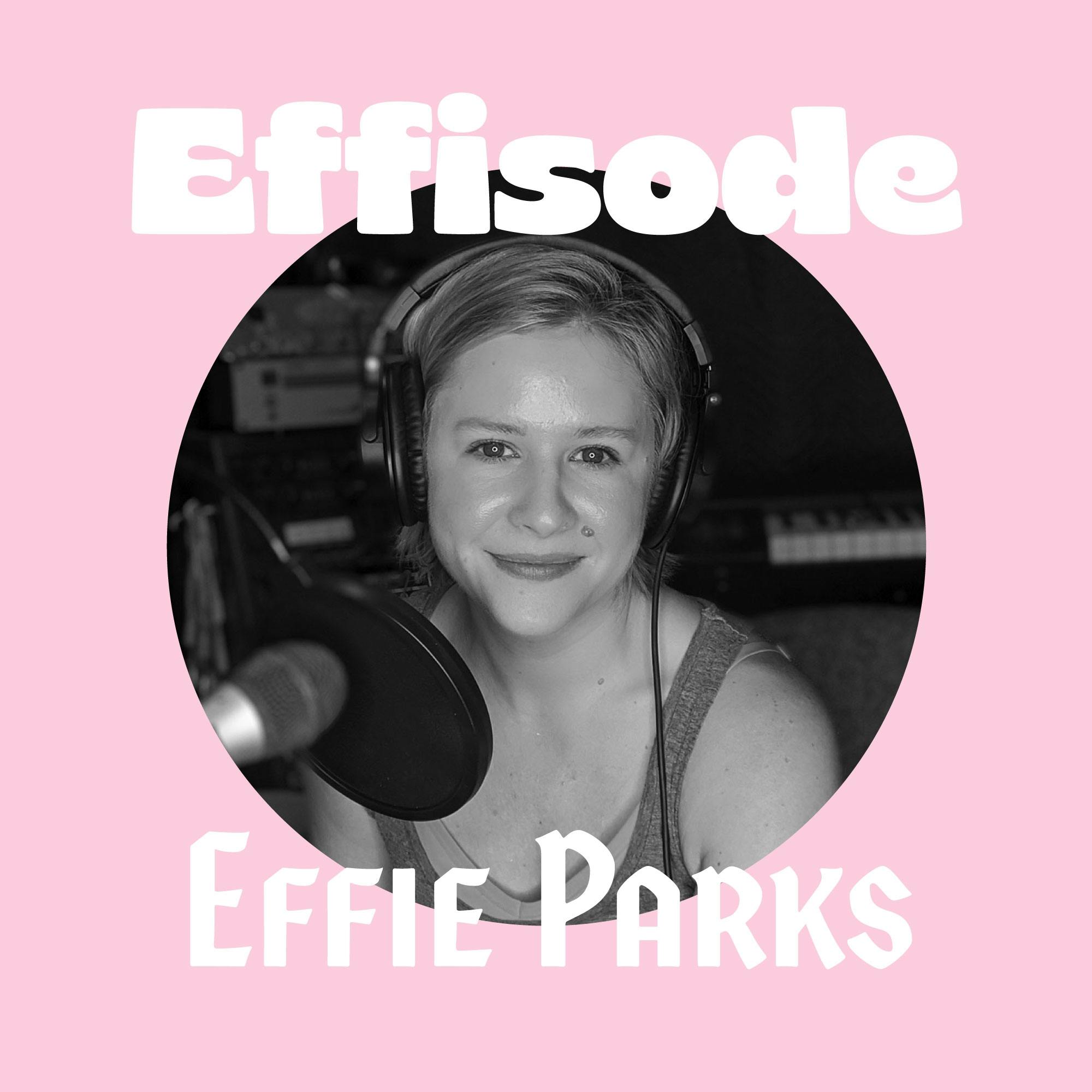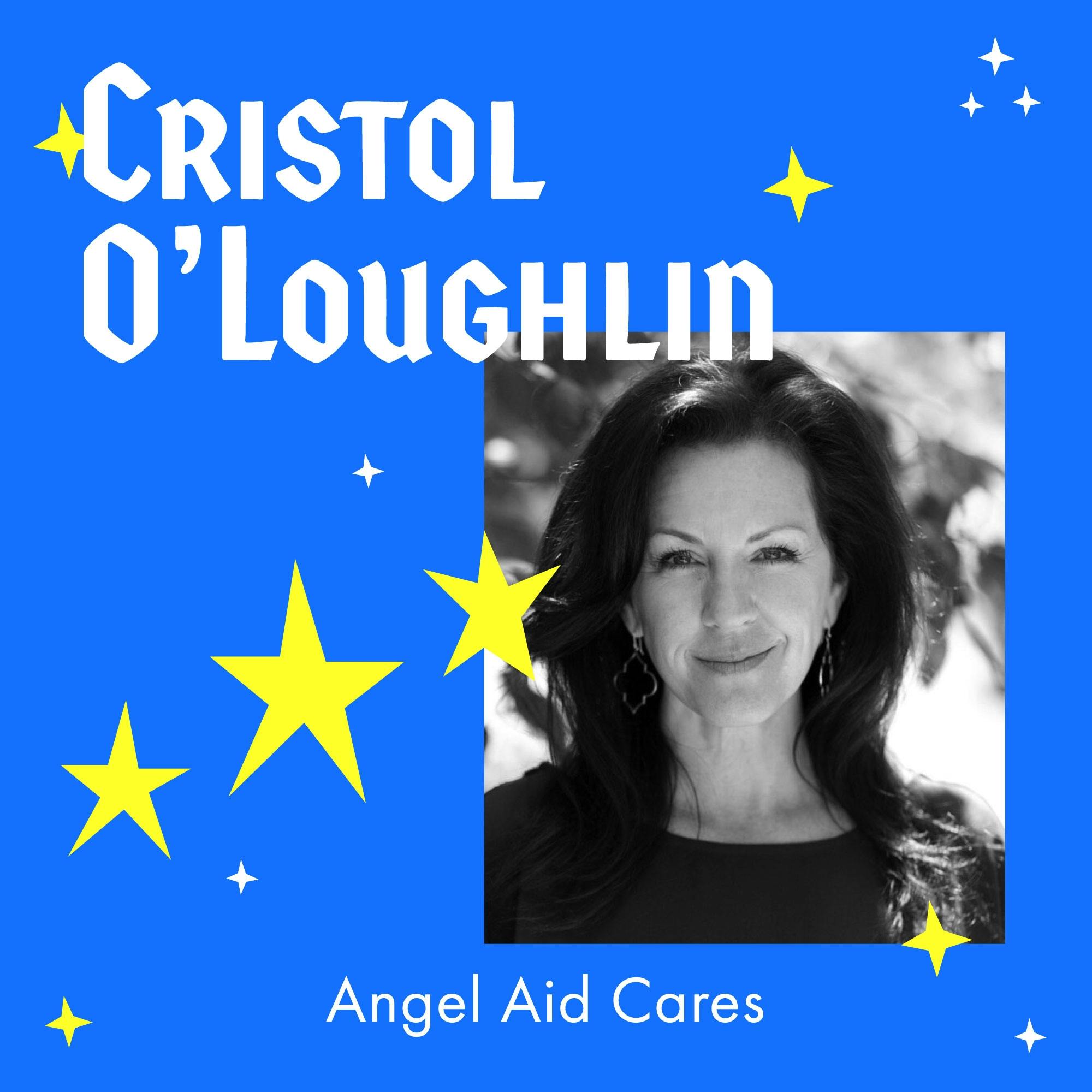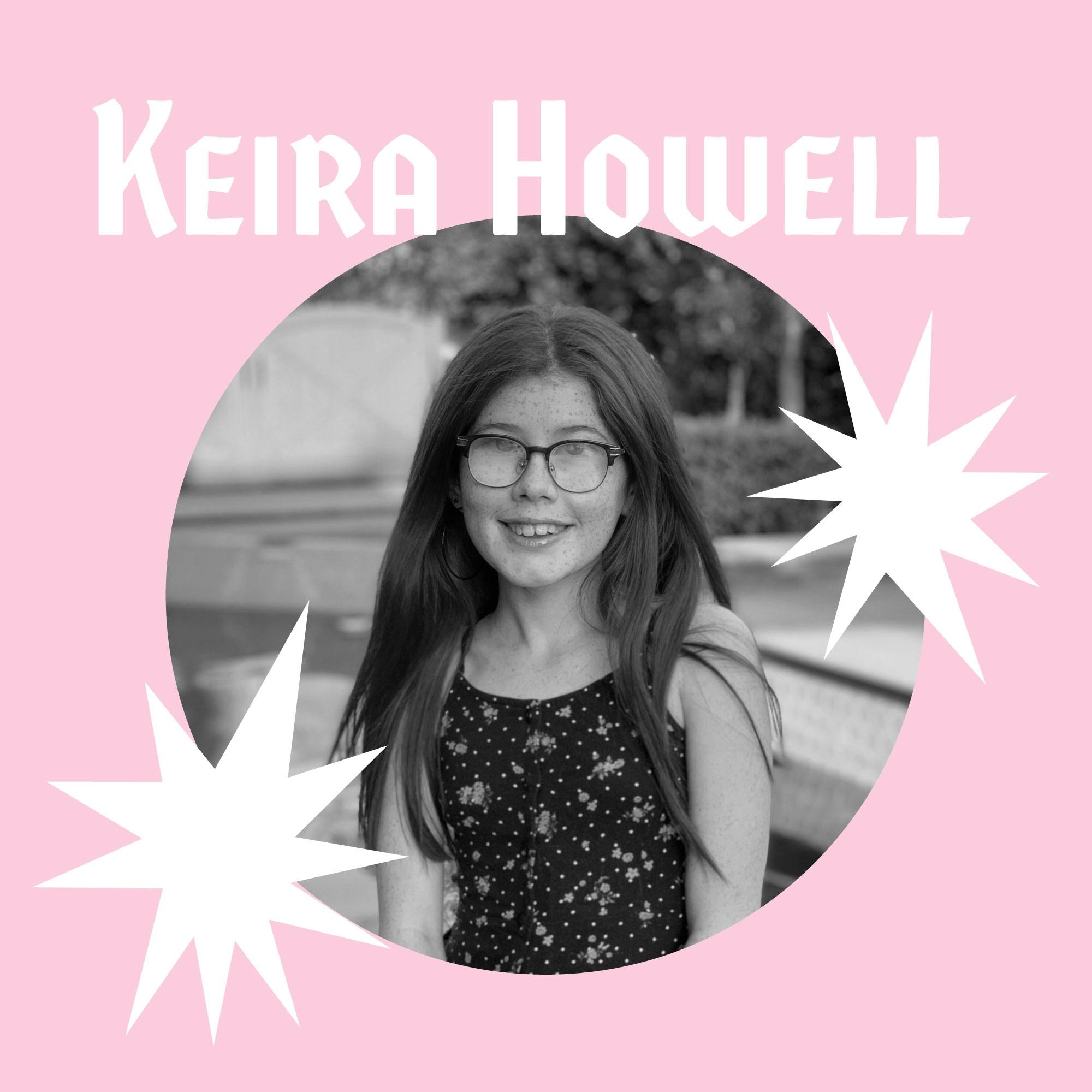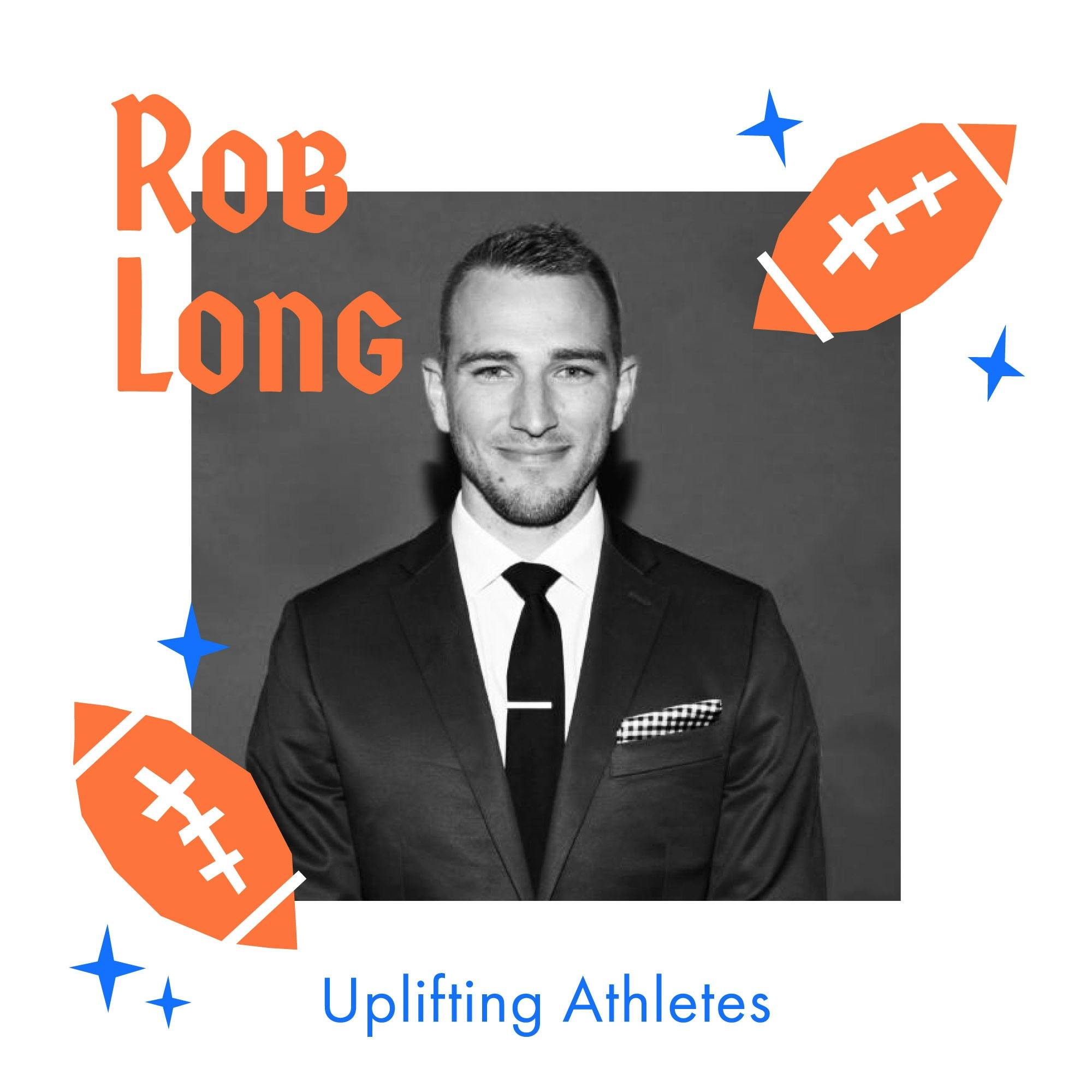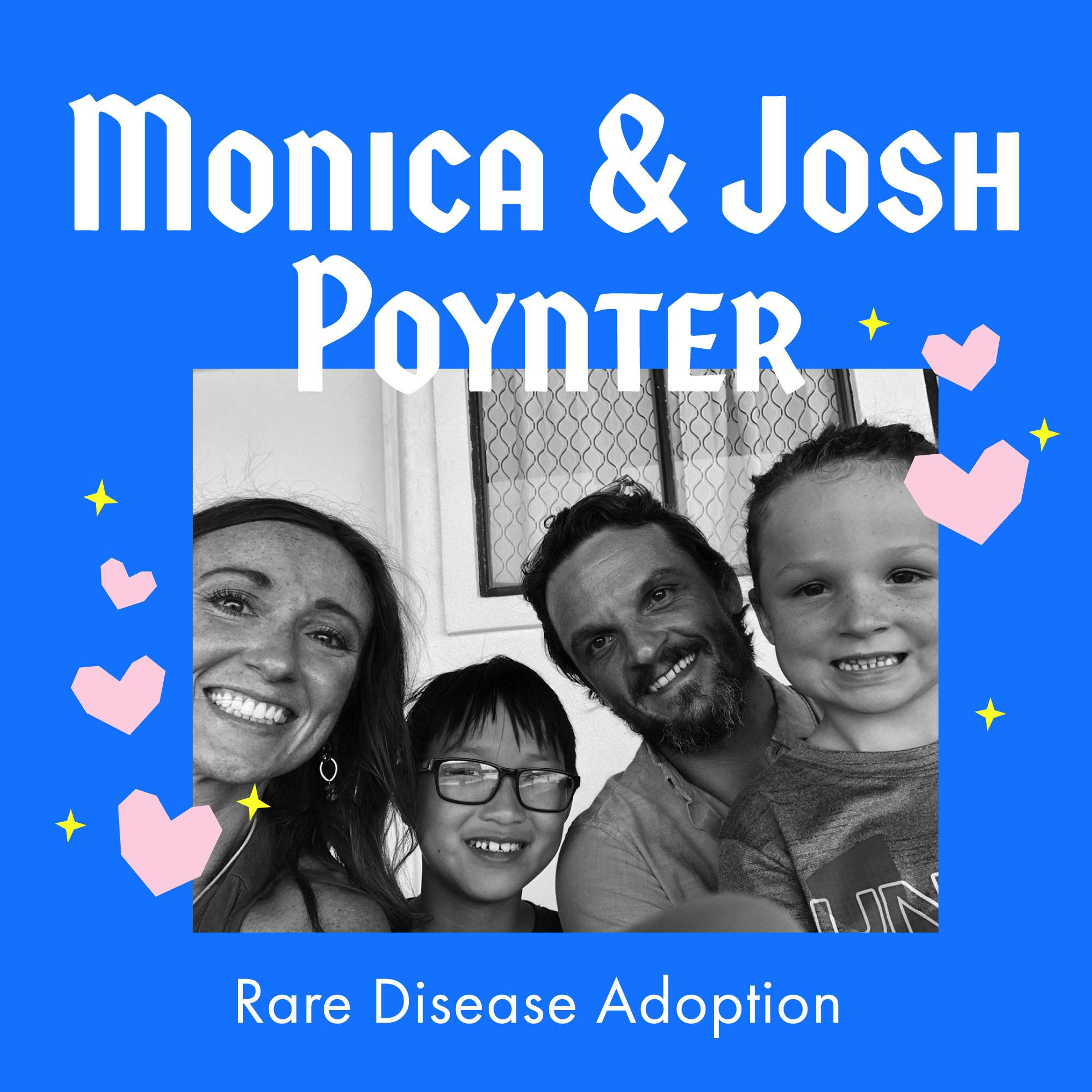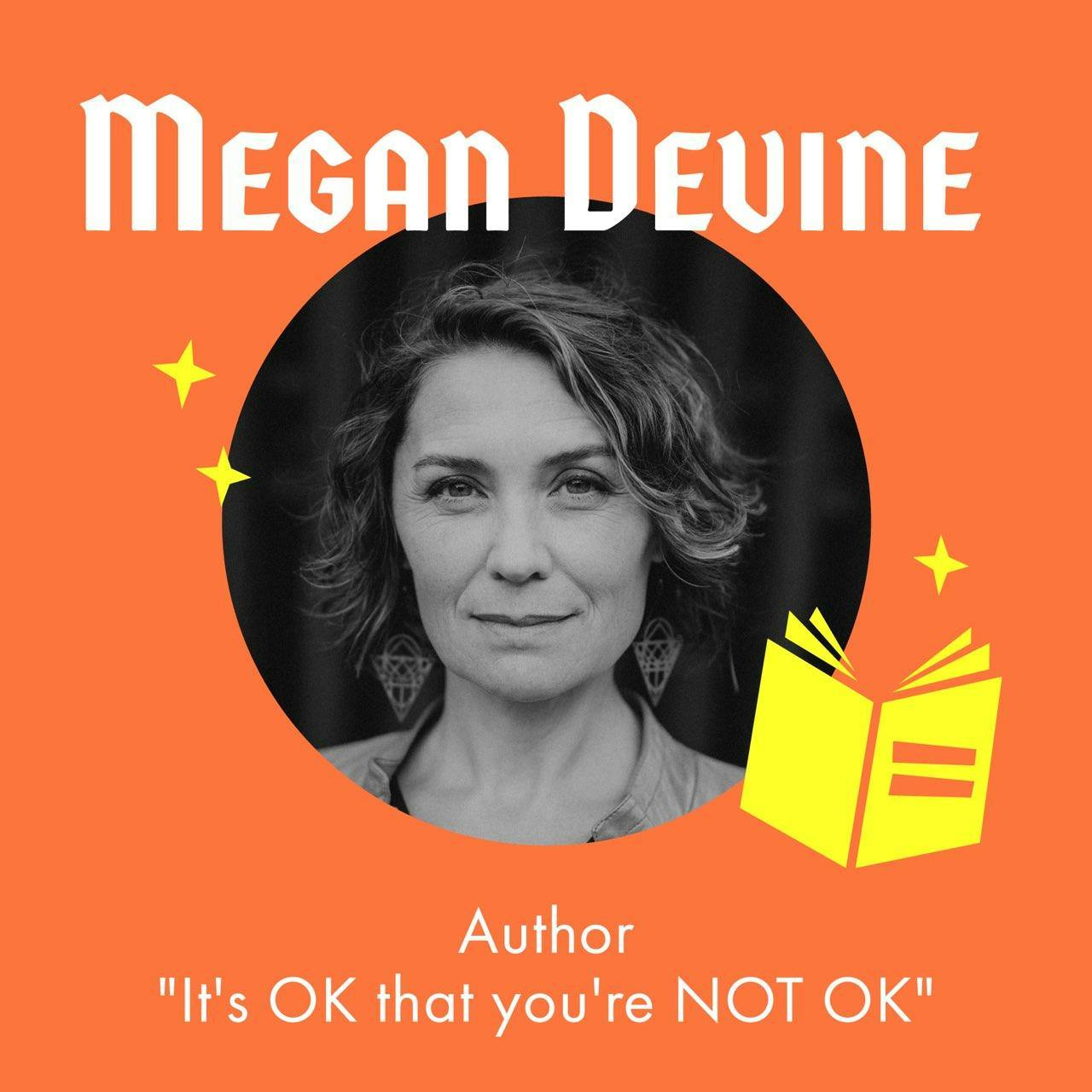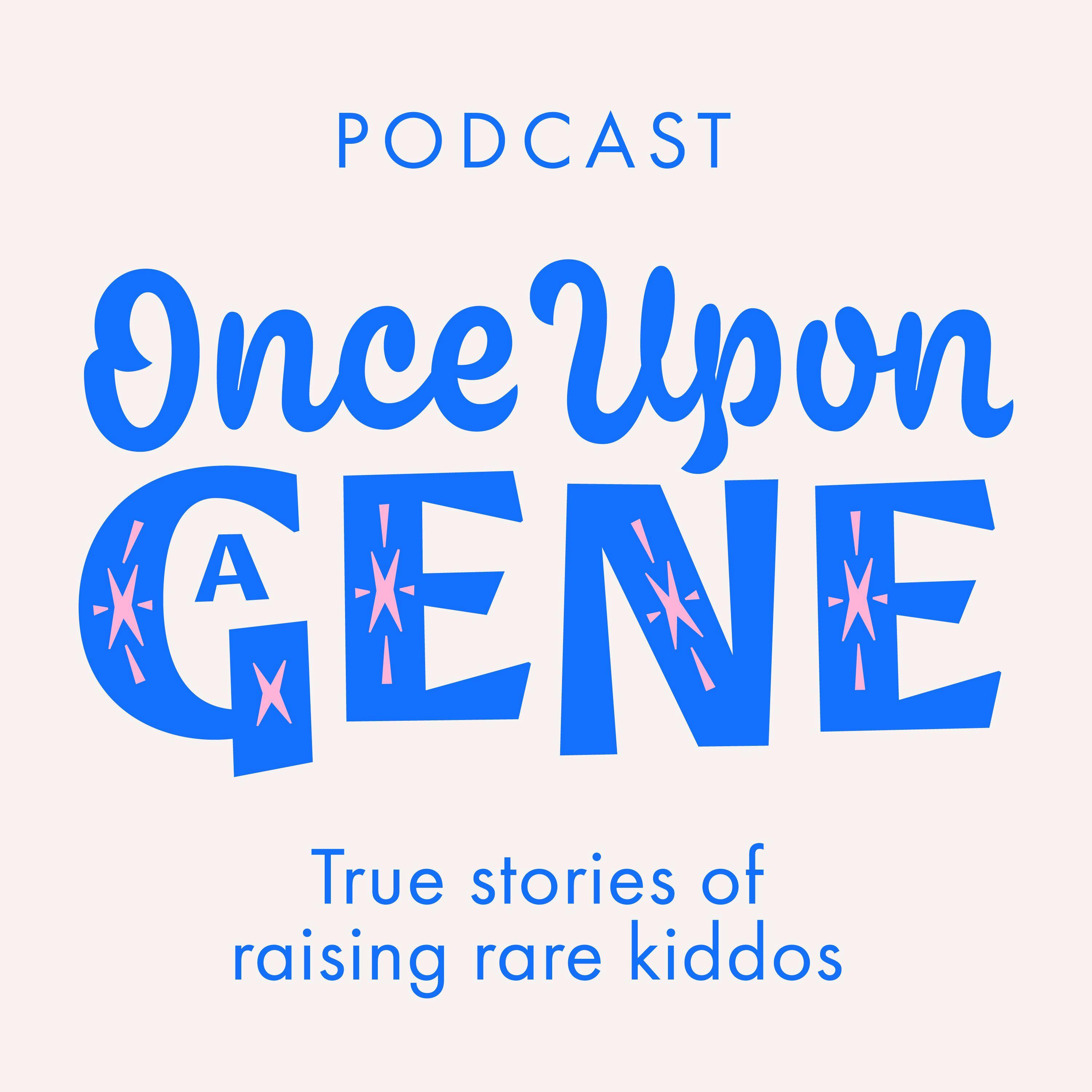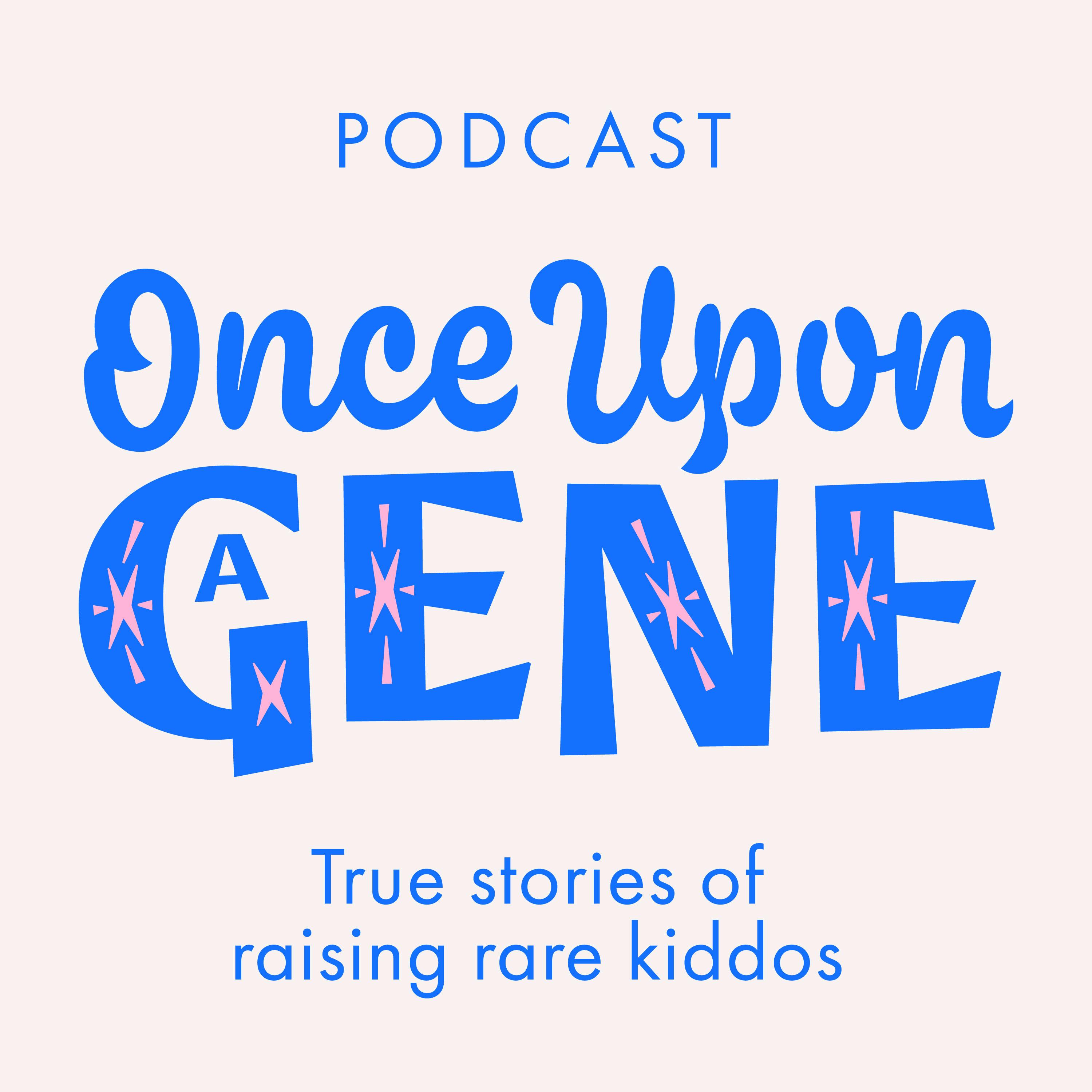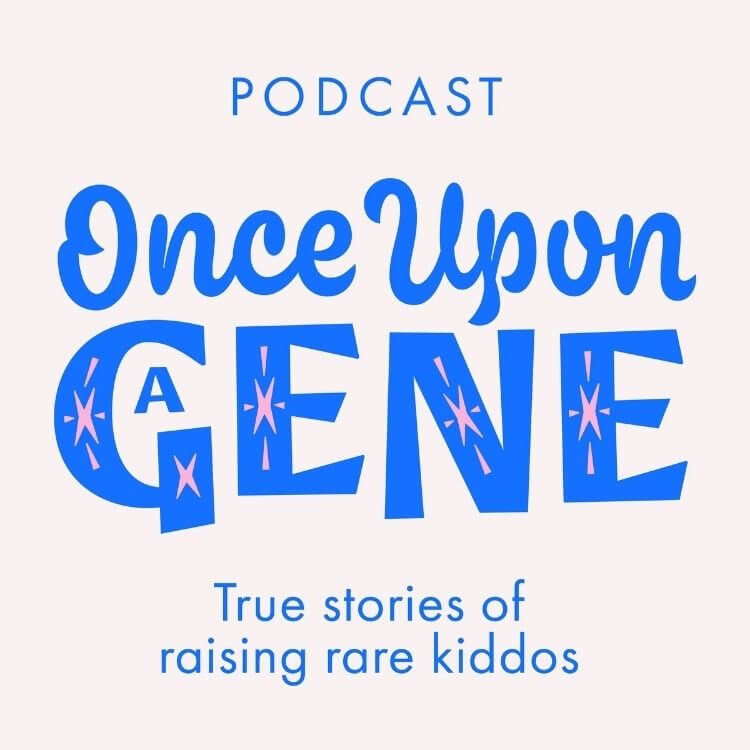
Once Upon A Gene
True stories of raising rare kiddos
All Episodes
Navigating the Complexities of Grief: How One Mother’s Grief Birthed a Supportive Community with, Heather Straughter.
In this heartfelt conversation, Heather Straughter shares her
profound journey through grief after the loss of her son, Jake. She discusses
the pivotal moments that shaped her path, the importance of community support,
and the ongoing nature of grief. Heather reflects on the complexities of
acknowledging loss, the unexpected triggers that can arise, and her evolving
perspective on grief hierarchies. Through her experiences, she emphasizes the
significance of finding one's own way to cope and the power of humor in
navigating the dark moments of grief. In this conversation, Heather Straughter
shares her personal journey through grief after the loss of her son, Jake. She
discusses societal expectations surrounding grief, the dual nature of grief as
both painful and transformative, and the importance of community support.
Heather also talks about the creation of her podcast, 'A Place of Yes,' aimed
at sharing stories of families dealing with similar challenges, and her mission
to help families navigate the complexities of caring for children with special
needs. The conversation emphasizes the need for compassion, understanding, and
proactive support for grieving families.
Follow:
Jake's Help From Heaven
A Place Of Yes Podcast on Instagram
Chapters
00:00 Introduction and Personal Connection
01:41 The Impact of Grief on Life Choices
02:50 Navigating Grief and Community Support
08:21 The Ongoing Nature of Grief
10:33 The Complexity of Grief and Acknowledgment
12:26 Triggers and Unexpected Moments of Grief
15:59 The Hierarchy of Grief
18:23 Coping Mechanisms and Humor in Grief
22:09 The Dark Side of Grief
24:22 Unspoken Aspects of Grief
26:07 Finding Your Own Path in Grief
29:20 Navigating Grief: Societal Expectations and Personal Experiences
32:43 The Dual Nature of Grief: Pain and Growth
36:47 Creating a Supportive Community: The Birth of a Podcast
42:06 Expanding the Mission: Helping Families Beyond Local Boundaries
54:16 Words of Comfort: Supporting Grieving Families
March 27, 2025
Reimagining Pediatric Healthcare: How Imagine Pediatrics is Revolutionizing In-Home Medical Care for Medically Complex Kids and Lightening the Load for Families – Taylor Beery and Jody Copp
Reimagining Pediatric Care with Imagine Pediatrics
For families of medically complex kids, the healthcare system often feels broken—long hospital stays, insurance battles for basic needs, and constant caregiving without real support. But what if there was a better way?
In this episode, I’m joined by Taylor Beery, co-founder of Imagine Pediatrics, Jody Copp, a full-time rare disease dad of two boys with Combined oxidative phosphorylation deficiency type 13 associated with a mutation in the PNPT1 gene and whose family has experienced firsthand the impact of their care model. Imagine Pediatrics is changing the game by providing 24/7, in-home, virtual-first medical care designed to keep kids safe at home—not in the hospital.
He also has a rad foundation that we will chat about in a future episode: Raising Wheels Foundation
If you are in Texas, Florida, and District of Columbia you have access to Imagine Pediatrics!
We discuss:
 The problems with the current healthcare system for medically complex kids
The problems with the current healthcare system for medically complex kids
 Why "safe days at home" should be the goal of pediatric care
Why "safe days at home" should be the goal of pediatric care
 How Imagine Pediatrics partners with families rather than making them fight for care
How Imagine Pediatrics partners with families rather than making them fight for care
 The economic case for home-based care and why insurance should want this model
The economic case for home-based care and why insurance should want this model
 Walker’s legacy— how Taylor’s son inspired a movement to improve pediatric healthcare Kids Join the Fight
Walker’s legacy— how Taylor’s son inspired a movement to improve pediatric healthcare Kids Join the Fight
 Listen now & share with families who need this
Listen now & share with families who need this
 The problems with the current healthcare system for medically complex kids
The problems with the current healthcare system for medically complex kids
 Why "safe days at home" should be the goal of pediatric care
Why "safe days at home" should be the goal of pediatric care
 How Imagine Pediatrics partners with families rather than making them fight for care
How Imagine Pediatrics partners with families rather than making them fight for care
 The economic case for home-based care and why insurance should want this model
The economic case for home-based care and why insurance should want this model
 Walker’s legacy— how Taylor’s son inspired a movement to improve pediatric healthcare Kids Join the Fight
Walker’s legacy— how Taylor’s son inspired a movement to improve pediatric healthcare Kids Join the Fight
 Listen now & share with families who need this
Listen now & share with families who need this
March 20, 2025
How a Service Dog Helped a Child with CACNA1C-Related Disorder (Timothy Syndrome) Gain Independence – with Sue Bresnahan
Service dogs are often associated with guiding the blind or assisting with mobility, but their impact goes far beyond traditional roles. In this episode, I’m joined by Sue Bresnahan, a pediatric nurse and rare mom, whose son has CACNA1C-related disorder (Timothy Syndrome). When they welcomed Yammy, his service dog, into their family, everything changed. Yammy didn’t just provide companionship—he unlocked a level of independence and confidence that Sue never imagined possible for her son.
Sue shares their journey, the process of getting a service dog, and why families of kids with disabilities should consider this life-changing support. If you’ve ever wondered how a service dog could help a child beyond the traditional reasons, this episode is for you.
In This Episode, We Discuss:
 Sue’s journey as a rare mom and navigating CACNA1C-related disorder (Timothy Syndrome)
Sue’s journey as a rare mom and navigating CACNA1C-related disorder (Timothy Syndrome)
 The unexpected ways service dogs can support kids with disabilities
The unexpected ways service dogs can support kids with disabilities
 How Yammy transformed her son’s independence and confidence
How Yammy transformed her son’s independence and confidence
 The process of getting and training a service dog
The process of getting and training a service dog
 What families should know before pursuing a service dog
What families should know before pursuing a service dog
 Overcoming challenges and misconceptions about service dogs
Overcoming challenges and misconceptions about service dogs
 Advice for families considering a service dog
Resources & Links:
Advice for families considering a service dog
Resources & Links:
 Learn more about CACNA1C-related disorder (Timothy Syndrome)
Learn more about CACNA1C-related disorder (Timothy Syndrome)
 Service Dog Organizations & Resources - ECAD
Service Dog Organizations & Resources - ECAD
 Connect with Sue Bresnahan - Instagram
Connect with Sue Bresnahan - Instagram
 Want to support Once Upon a Gene? Leave a review on Apple Podcasts & share this episode!
Want to support Once Upon a Gene? Leave a review on Apple Podcasts & share this episode!
 Sue’s journey as a rare mom and navigating CACNA1C-related disorder (Timothy Syndrome)
Sue’s journey as a rare mom and navigating CACNA1C-related disorder (Timothy Syndrome)
 The unexpected ways service dogs can support kids with disabilities
The unexpected ways service dogs can support kids with disabilities
 How Yammy transformed her son’s independence and confidence
How Yammy transformed her son’s independence and confidence
 The process of getting and training a service dog
The process of getting and training a service dog
 What families should know before pursuing a service dog
What families should know before pursuing a service dog
 Overcoming challenges and misconceptions about service dogs
Overcoming challenges and misconceptions about service dogs
 Advice for families considering a service dog
Resources & Links:
Advice for families considering a service dog
Resources & Links:
 Learn more about CACNA1C-related disorder (Timothy Syndrome)
Learn more about CACNA1C-related disorder (Timothy Syndrome)
 Service Dog Organizations & Resources - ECAD
Service Dog Organizations & Resources - ECAD
 Connect with Sue Bresnahan - Instagram
Connect with Sue Bresnahan - Instagram
 Want to support Once Upon a Gene? Leave a review on Apple Podcasts & share this episode!
Want to support Once Upon a Gene? Leave a review on Apple Podcasts & share this episode!
March 6, 2025
Unlocking Rare Disease Diagnoses with PacBio’s Long-Read Sequencing – A Conversation with CEO Christian Henry
I’m joined by Christian Henry, CEO of PacBio, a company leading the way in high-accuracy long-read sequencing. We break down what that means in simple terms, how this technology is helping families solve their diagnostic odyssey, and why some genetic tests miss key information that PacBio can detect. Plus, if you've already had whole genome sequencing without finding an answer, Christian explains why it might be time to take another look.
We also dive into the future of genetic testing, what needs to change for sequencing to become a routine part of medical care, and how families and advocates can help drive progress forward.
This episode is all about hope, science, and the relentless pursuit of answers. Happy Rare Disease Day, and thank you for being part of this incredible community!
Topics Covered:
 What is long-read sequencing, and how is it different from traditional genetic testing?
What is long-read sequencing, and how is it different from traditional genetic testing?
 How PacBio’s technology is solving rare disease mysteries faster and more accurately.
How PacBio’s technology is solving rare disease mysteries faster and more accurately.
 Why some families don’t get answers from whole genome sequencing—and why they should consider trying again.
Why some families don’t get answers from whole genome sequencing—and why they should consider trying again.
 The biggest barriers to making genetic testing more accessible and routine in rare disease care.
The biggest barriers to making genetic testing more accessible and routine in rare disease care.
 How long-read sequencing could help lead to future treatments, not just diagnoses.
How long-read sequencing could help lead to future treatments, not just diagnoses.
 What the next five years of genomic sequencing could look like.
What the next five years of genomic sequencing could look like.
 How rare disease families and advocacy groups can collaborate with PacBio to accelerate discoveries.
Resources & Links:
How rare disease families and advocacy groups can collaborate with PacBio to accelerate discoveries.
Resources & Links:
 Learn more about PacBio and long-read sequencing: https://www.pacb.com/
Learn more about PacBio and long-read sequencing: https://www.pacb.com/
 Follow PacBio on X: @PacBio
Follow PacBio on X: @PacBio
 More about Rare Disease Day: www.rarediseaseday.org
More about Rare Disease Day: www.rarediseaseday.org
 Join the Conversation!
Have you been on a diagnostic odyssey? Have questions about genetic testing? Share your thoughts and experiences with me on Instagram
Join the Conversation!
Have you been on a diagnostic odyssey? Have questions about genetic testing? Share your thoughts and experiences with me on Instagram
 Listen & Subscribe:
Don’t forget to subscribe so you never miss an episode! If you love the show, leave a review—it helps more rare disease families find these conversations.
Listen & Subscribe:
Don’t forget to subscribe so you never miss an episode! If you love the show, leave a review—it helps more rare disease families find these conversations. 
 What is long-read sequencing, and how is it different from traditional genetic testing?
What is long-read sequencing, and how is it different from traditional genetic testing?
 How PacBio’s technology is solving rare disease mysteries faster and more accurately.
How PacBio’s technology is solving rare disease mysteries faster and more accurately.
 Why some families don’t get answers from whole genome sequencing—and why they should consider trying again.
Why some families don’t get answers from whole genome sequencing—and why they should consider trying again.
 The biggest barriers to making genetic testing more accessible and routine in rare disease care.
The biggest barriers to making genetic testing more accessible and routine in rare disease care.
 How long-read sequencing could help lead to future treatments, not just diagnoses.
How long-read sequencing could help lead to future treatments, not just diagnoses.
 What the next five years of genomic sequencing could look like.
What the next five years of genomic sequencing could look like.
 How rare disease families and advocacy groups can collaborate with PacBio to accelerate discoveries.
Resources & Links:
How rare disease families and advocacy groups can collaborate with PacBio to accelerate discoveries.
Resources & Links:
 Learn more about PacBio and long-read sequencing: https://www.pacb.com/
Learn more about PacBio and long-read sequencing: https://www.pacb.com/
 Follow PacBio on X: @PacBio
Follow PacBio on X: @PacBio
 More about Rare Disease Day: www.rarediseaseday.org
More about Rare Disease Day: www.rarediseaseday.org
 Join the Conversation!
Have you been on a diagnostic odyssey? Have questions about genetic testing? Share your thoughts and experiences with me on Instagram
Join the Conversation!
Have you been on a diagnostic odyssey? Have questions about genetic testing? Share your thoughts and experiences with me on Instagram
 Listen & Subscribe:
Don’t forget to subscribe so you never miss an episode! If you love the show, leave a review—it helps more rare disease families find these conversations.
Listen & Subscribe:
Don’t forget to subscribe so you never miss an episode! If you love the show, leave a review—it helps more rare disease families find these conversations. 
February 27, 2025
Prioritizing Caregiver Health: Gut Health, Stress, and Sustainable Wellness for Parents of Kids with Disabilities – with Integrative Health Practitioner & CTNNB1 Mom, Fraser Bridgeman
As caregivers, we give everything to our kids—but where does that leave us? Burnt out, exhausted, and running on fumes. If you’ve ever felt like you don’t even know where to start when it comes to your own health, this episode is for you.
I’m talking with Fraser Bridgeman, a fellow CTNNB1 mom and a functional integrative health practitioner, about the small but powerful changes we can make to support our own well-being. Fraser understands the unique challenges rare disease caregivers face—chronic stress, poor sleep, inflammation, and running on adrenaline for years at a time. She’s sharing practical, realistic ways to prioritize your health so you can show up for your child without running yourself into the ground.
In this episode, we discuss:
 The most common health issues caregivers face (and how stress affects the gut, sleep, and hormones)
The most common health issues caregivers face (and how stress affects the gut, sleep, and hormones)
 How to make small, sustainable changes—even when you’re overwhelmed
How to make small, sustainable changes—even when you’re overwhelmed
 Easy food swaps to support energy, gut health, and stress resilience
Easy food swaps to support energy, gut health, and stress resilience
 Practical ways to improve sleep and manage cortisol levels
Practical ways to improve sleep and manage cortisol levels
 How movement, breathwork, and mindfulness can help regulate a taxed nervous system
How movement, breathwork, and mindfulness can help regulate a taxed nervous system
 The mindset shift that will help you prioritize your own health without guilt
Listen now and take the first step toward caring for yourself—because you matter, too.
Follow Fraser on Instagram
Fraser's Integrative Health Website
The mindset shift that will help you prioritize your own health without guilt
Listen now and take the first step toward caring for yourself—because you matter, too.
Follow Fraser on Instagram
Fraser's Integrative Health Website
 The most common health issues caregivers face (and how stress affects the gut, sleep, and hormones)
The most common health issues caregivers face (and how stress affects the gut, sleep, and hormones)
 How to make small, sustainable changes—even when you’re overwhelmed
How to make small, sustainable changes—even when you’re overwhelmed
 Easy food swaps to support energy, gut health, and stress resilience
Easy food swaps to support energy, gut health, and stress resilience
 Practical ways to improve sleep and manage cortisol levels
Practical ways to improve sleep and manage cortisol levels
 How movement, breathwork, and mindfulness can help regulate a taxed nervous system
How movement, breathwork, and mindfulness can help regulate a taxed nervous system
 The mindset shift that will help you prioritize your own health without guilt
Listen now and take the first step toward caring for yourself—because you matter, too.
Follow Fraser on Instagram
Fraser's Integrative Health Website
The mindset shift that will help you prioritize your own health without guilt
Listen now and take the first step toward caring for yourself—because you matter, too.
Follow Fraser on Instagram
Fraser's Integrative Health Website
February 20, 2025
Breaking the Silence: Growing Up with Sickle Cell, Facing Pain, and Finding Strength Through Advocacy with James Griffin
In this powerful episode of Once Upon a Gene, I sit down with James Griffin, author of Breaking Silence: Living With Sickle Cell Anemia. Diagnosed at just two years old, James spent much of his life keeping his condition a secret, fearing how others would perceive him. He faced excruciating pain, hospitalizations, and the daily challenges of living with a chronic illness—all while navigating school, friendships, and a world that often didn’t understand his struggles.
Now, as an advocate and author, James is using his voice to raise awareness, empower others with sickle cell disease, and push for better care, research, and understanding. In this conversation, he shares what it was like growing up with sickle cell, the language he’s learned to use in emergency rooms to be taken seriously, and how he found the courage to finally open up about his diagnosis.
Whether you or a loved one are affected by sickle cell disease, or you simply want to hear an inspiring story about resilience and advocacy, this episode is for you.
January 30, 2025
Lighting the Way: A Story of Love, Friendship, and Finding New Dreams – CERT1 w/ Samantha & Wesley Rogers
In this inspiring episode of Once Upon a Gene, I sit down with Samantha and Wesley Rogers, founders of Lottie’s Light Foundation, and proud parents of the incredible Lottie, who lives with a CERT1 mutation. The Rogers share the heartfelt story of how their journey with Lottie led to the creation of a foundation dedicated to empowering families, fostering connections, and encouraging others to find strength in the face of challenges.
We explore how their mission encourages fighting for meaningful friendships, dreaming new dreams, and discovering untapped capacity for love and purpose. This conversation will leave you uplifted, motivated, and ready to celebrate the light that shines in every rare journey.
Highlights:
The heartfelt origin story of Lottie’s Light Foundation.
Insights into Lottie’s personality, resilience, and the joy she brings to those around her.
How the foundation inspires families to fight for friendships and redefine their dreams.
Samantha and Wesley’s advice on finding your capacity in the hardest moments.
Tips for building friendships and community in the rare disease world.
A reminder of the power of community and the importance of showing up for Rare Disease Day.
Mentioned in This Episode:
Lottie’s Light Foundation Website
Rare Disease Day 2025 in San Diego – Event details coming soon!
Tips for building friendships and community in the rare disease world.
Call to Action:
Let’s spread the light! Share this episode with your friends and community to celebrate the resilience, strength, and brilliance of the rare disease journey. If you’re in San Diego or feeling adventurous, join us for Rare Disease Day 2025! Details coming soon.
As always, don’t forget to rate, review, and subscribe to Once Upon a Gene. Your support helps bring these powerful stories to more ears!
January 23, 2025
Preconception & Prenatal Genetic Testing 101: A Conversation with Genetic Counselor, Natalie Richheimer
In this episode, I sit down with Natalie Richheimer, a genetic counselor at JScreen, to dig into the world of preconception and prenatal genetic testing. We explore the basics of carrier screening, how to interpret results, and the importance of genetic counseling for both new and experienced parents—especially those who already have a child with a rare disease. Natalie also sheds light on Variants of Uncertain Significance (VUS) and offers insight into talking with family members about genetic risks and results.
Throughout our chat, Natalie emphasizes that knowledge truly is power when it comes to family planning and navigating the complexities of genetic information. We discuss strategies for deciding between natural pregnancy, IVF with genetic screening, and other alternatives, helping you feel more confident and informed about your options.
Whether you’re just beginning your journey or seeking clarity in the midst of it, this episode offers valuable perspectives and heartfelt advice. Join us as we learn how to take charge of our genetic health and family-planning decisions with compassion and confidence.
Finally, don’t forget about the Once Upon a Gene Revival—an uplifting event designed to support, educate, and connect rare disease caregivers. Registration is open now on my website.
Links:
JScreen Genetic Testing Instagram
Once Upon A Gene Revival
January 16, 2025
Transforming Pediatric Rare Disease Research: Dr. Ramin Eskandari on Neurosurgery, Biorepositories, and Empowering Families and Medical Teams to Save Residual Samples
Show Notes: Transforming Pediatric Rare Disease Research with Dr. Ramin Eskandari
In this episode, I’m joined by Dr. Ramin Eskandari, a pediatric neurosurgeon at MUSC who is revolutionizing rare disease research through his innovative work with biorepositories. Dr. Eskandari shares how his dedication to helping children and families has driven him to create a system that collects and preserves valuable CNS samples—residual materials that would otherwise be discarded. We discuss the incredible impact of these efforts on the future of rare disease therapeutics and how families can play an active role in advancing research.
Highlights:
Dr. Eskandari’s Path to Pediatric Neurosurgery
The Inspiration Behind the Biorepository Project
What Are Biorepositories and Why They Matter
Advocating for Residual Sample Collection
Overcoming Challenges in Setting Up a Biorepository
Data Sharing and Expanding Access
Scaling This Initiative to Other Institutions
Links:
Combined Brain
The Medical University of South Carolina
January 9, 2025
Eight Years of Searching: A Determined Family’s Quest to Cure an Ultra-Rare CLCN6 Mutation with Kristin & Paul Purdy
Links & Resources:
Follow Their Journey on Social Media
Facebook: Paxtons Pioneers
Instagram: Paxtons_Pioneers
KCAL News Story
Watch the in-depth feature on their family’s advocacy here: KCAL Rare Disease Coverage
January 2, 2025
Chasing Glimmers – From Grief to Glitter: Parenting Through Infantile MLD and Embracing Life’s Full Spectrum – with Megan Gillet
Chasing Glimmers, is all about finding the small, hopeful moments that shine through the darkest of times. Like you, Katie and I know how challenging the rare disease journey can be, but we also believe in the incredible power of connection, bravery and positivity. We'll share inspiring stories from the community, life lessons we've learned and explore how glimmers light our way forward. Let's chase those glimmers together!
EPISODE HIGHLIGHTS:
Effie & Katie welcome guest Megan Gillet. Her daughter, Nellie, endures terminal Infantile MLD. Megan shares her unique journey of embracing life in all its vibrant complexity. Megan opens up about living with grief, disability, parenting challenges, fashion passions, crafting pursuits, and her love of nature—without confining herself to a single niche. She explains what it means to let life unfold authentically, finding the courage to sidestep society’s labels and expectations.
Through candid conversation, Megan reveals her family’s determination to savor each moment, knowing that some of the hardest challenges lie ahead. It’s a powerful reminder that truly living isn’t about fitting into a box, but rather about spilling beyond its edges, leaving a trail of color, hope, and hard-won joy. Tune in for an inspiring glimpse into a life that refuses simple definitions—and learn how you, too, can find beauty and meaning in every shade of your own journey.
December 19, 2024
The Gift of Grace: A Holiday Heart-to-Heart for Caregivers
Dear Friends,
The holidays can be a beautiful time of connection, joy, and celebration—but for caregivers, it can also be a season that amplifies the weight we carry every day. The expectations, the comparisons, the logistics of making life work for our kids—it all feels louder somehow.
This episode is my friendship letter to you, my fellow caregivers, during this holiday season. It’s for the days when the to-do lists are endless, the appointments keep coming, and the social invitations feel more isolating than joyful. It’s for the moments when you catch yourself scrolling through social media, comparing your life to others, and questioning if you’re doing enough—or if you’re enough.
Spoiler: You are.
I recorded this as a 10-minute refuge for you—a place to breathe, to feel seen, and to remind yourself that you are not alone. Together, we’re navigating the chaos, the exhaustion, and the love that grounds it all.
If you’re like me, you might feel the weight of it all a little more during this time of year. Maybe you’re thinking about your child’s progress or lack thereof, or the struggle to attend even the simplest gatherings without feeling out of place. I see you. I feel you. And I hope this episode feels like a warm hug and a reminder that you’re doing an extraordinary job in an extraordinary situation.
Every day you carry your child—physically, emotionally, and mentally—is a gift. It’s heavy, yes. But it’s also rooted in a love that’s unshakable.
Take a moment, my friend. This one is for you.
With love and gratitude,
Effie  P.S. If this episode resonates, share it with another caregiver who might need it. We’re stronger when we remind each other we’re not alone.
P.S. If this episode resonates, share it with another caregiver who might need it. We’re stronger when we remind each other we’re not alone.
 P.S. If this episode resonates, share it with another caregiver who might need it. We’re stronger when we remind each other we’re not alone.
P.S. If this episode resonates, share it with another caregiver who might need it. We’re stronger when we remind each other we’re not alone.
December 12, 2024
Grateful Reflections for Epilepsy Awareness Month: Parents Share Love, Lessons, and Insights from the Dravet Syndrome Community
2024 DSF Biennial Family & Professional Conference
June 20th to June 22nd. This three-day gathering united all those committed to improving the lives of individuals with Dravet syndrome – including families, caregivers, clinicians, researchers, and biopharmaceutical professionals. It provided a platform for fostering new relationships and collaborations among families and professionals alike.
Recorded sessions from the conference can be accessed on demand by both virtual and in-person registrants through December 31, 2024.
conference@dravetfoundation.org
November 27, 2024
Ready for Take Off: Mission for Accessible Air Travel & Disability Advocacy, with Mindy Henderson
Episode Highlights:
Mindy Henderson, a powerful advocate for disability rights and the Director & Editor-In-Chief of MDA's Quest Media. Mindy shares her journey of breaking barriers in the skies, working tirelessly to make air travel more accessible for wheelchair users and the broader disability community. She delves into practical tips for navigating travel with a wheelchair-using child, explains the importance of universal design, and discusses how sharing your story can be a catalyst for change.
Mindy also talks about her book, The Truth About Things That Suck, and the role of mindset in overcoming adversity. Packed with inspiration and actionable advice, this episode is a must-listen for anyone looking to make the world more accessible, one step—or one flight—at a time.
Links:
Connect with Mindy Henderson on LinkedIn: LinkedIn Profile
Learn more about MDA Quest: mdaquest.org
Mindy's book - The Truth About Things That Suck: Amazon Link
Tammy Duckworth - Every Day is a Gift: Amazon Link
Get Involved and Take Action:
Share your story on social media to raise awareness.
Join disability advocacy groups to support accessible travel policies.
Tune in and join us in supporting accessible, inclusive travel!
Airplane Travel Tips from a One Million Mile Traveler
The recent passage of the FAA Reauthorization Act
November 14, 2024
Beginners Guide to Rare Disease – Wisdom from Others Who Have Been There
A collection of voicemails from rare disease parents who relate to you situation.
September 19, 2024
Navigating Physical and Emotional Stress and Noticing Where It Shows Up In Our Body As A Rare Disease Caregiver – With Christy Foster
ONCE UPON A GENE - EPISODE 239
Navigating Physical and Emotional Stress and Noticing Where It Shows Up In Our Body As A Rare Disease Caregiver - With Christy Foster
Joining me today is my sister, Christy Foster. We're talking about caregiver stress, stress-related pain, how and why it shows up, and how to cope.
EPISODE HIGHLIGHTS
How does chronic stress affect us physically?
The muscle tissue is our body represents our emotional holding and our bone structure represents our thinking mind. Muscle tissue holds us up and helps us move and stay flexible. When there's stress or trauma, pain can happen and without attention, the body will become significant. When we're in pain, it's difficult to care for kids, sleep, and go to work. Things compound and things start spinning, leading to a flight or fight response. It's important to be able to recognize when that pattern shows up and what to do about it before it consumes you, so that you're affected physically less often.
What techniques can help with jaw tension and pain?
The jaw holds our teeth, moves up and down to chew, and somatically, the joint of the jaw represents flexibility and adaptability. When joints become rigid, there's a pattern of resistance to change and emotional inflexibility. Keeping your mouth shut when you're experiencing strong emotions, like anger, can cause jaw pain because of bearing down and swallowing, creating tension in the muscles and joint over time. Expressing to the degree that you can is healing because the emotion comes up and out.
As a long-term caregiver, how do you build resiliency?
Connection will help support your nervous system and will help you to better regulate. It's important to have connection with someone who isn't going to fix you, who will be there when you need to release and vent, that you can talk to about your emotions around grief, rage, sadness or shame, because it takes the edge off and it softens the hit.
How do we take notice of our pain and tension and take action?
We all have access to nature, whether it's a plant in your home or a backyard area. At least once a day, notice nature— the color, sound, feeling. This helps to get in the visceral sense of feeling versus surviving and being in the mind and thinking. Connect with your people to create a sense of safety and understanding. When our systems feel safe, they can relax. Get rest and, if needed, get the help you need to make time for rest. Any type of meditation or breath work that are mind-body geared are helpful, even if uncomfortable, because feeling the feeling helps to move that energy out of you. Exercise in any way possible to get you into your body, which will help you come out of your mind and the emotional looping that can happen. Self-care is essential, even in little pieces of time. Put your hand on your heart and connect to the feeling of love, compassion and gratitude. Research shows this act of mindfulness and experiencing gratitude helps the body settle into a more regulated state.
LINKS & RESOURCES MENTIONED
ONCE UPON A GENE - EPISODE 029 - Put Your Own Oxygen Mask on First
https://effieparks.com/podcast/008-tanjs-akayy-jr78y-ja2e8-zanza-njkxy-83esr-z2wkz-kx2a4-3zgjf-9n7e6-f4dl9-34pey-khhl4-plbpy-y5jw6-w4tay-9d7t9-4rf34-3ct68
My Intuitive Body Website
https://christyfoster.co/
Christy Foster on Instagram
https://www.instagram.com/christy.f13/
Sinéad Quinn
https://www.instagram.com/sineadquinnofficial/
Rare Breathing Room
https://www.facebook.com/p/Annie-Lambert-True-You-with-Neora-100070644768526/?_rdr
CONNECT WITH EFFIE PARKS
Website
https://effieparks.com/
Twitter
https://twitter.com/OnceUponAGene
Instagram
https://www.instagram.com/onceuponagene.podcast/?hl=en
Built Ford Tough Facebook Group
https://www.facebook.com/groups/1877643259173346/
August 15, 2024
Are You Worried About Your Baby’s Development – Enroll in Project FIND-OUT – You May Qualify for Free Whole Genome Sequencing
ONCE UPON A GENE - EPISODE 233
Are You Worried About Your Baby's Development - Enroll in Project FIND-OUT - You May Qualify for Free Whole Genome Sequencing
LINKS AND RESOURCES MENTIONED
Project Findout
https://projectfindout.org/
CONNECT WITH EFFIE PARKS
Website
https://effieparks.com/
Twitter
https://twitter.com/OnceUponAGene
Instagram
https://www.instagram.com/onceuponagene.podcast/?hl=en
Built Ford Tough Facebook Group
https://www.facebook.com/groups/1877643259173346/
July 4, 2024
Bringing Balance Back to the Language of Disability from The Special Needs Mom Podcast with Kara Ryska
Connect with Kara, host of The Special Needs Mom Podcast:
Instagram: https://www.instagram.com/thespecialneedsmompodcast/
Website: https://www.kararyska.com/
Coaching Opportunities
Pathway to Peace {Group Coaching Program}: Schedule a Consult or Contact Me
Join The Special Needs Mom Podcast Community FaceBook Group!! Click here to Request to Join
April 25, 2024
The Bravery of the Brokenhearted – A Big Brothers Perspective on Grief From the Loss of a Sibling with Sanfilippo Syndrome with Noah Siedman
ONCE UPON A GENE - EPISODE 225
The Bravery of the Brokenhearted - A Big Brothers Perspective on Grief From the Loss of a Sibling with Sanfilippo Syndrome with Noah Siedman
Noah Siedman was a big brother to Ben who had Sanfilippo Syndrome, a devastating disease that leads to childhood dementia and premature death. He joins me to talk about his sibling experience and dealing with grief.
EPISODE HIGHLIGHTS
As a sibling under potential pressure to not be a burden, do you still carry those feelings even after Ben's passing?
It's hard as a sibling to see everything your parents are facing that's out of your control. As a sibling, there's a need to be on top of your own care and your own emotions. There were no casual complaints in my family growing up. It was either a disaster or business as usual. Filling in that middle space where you have a bad day and want to talk about it didn't exist. We've had to work on that as a family because that's not how we've functioned.
What coping mechanisms help you to write and talk about your experience?
I came to the realization that I was going to be emotionally vulnerable, which is uncomfortable. Knowing I would have to talk about my experience and brother, I had to accept it, put it out front, and get really good at talking about it comfortably. I got more comfortable talking about the progression of my brother's disease and my feelings around him, and I used it as a shield.
What would you say to the young person who is living the same life you were living and what questions should people ask that person?
The first thing that I would say, and maybe the best thing to ask that person, is about their roles. When do you feel like a sibling? When do you feel like a caregiver? When do you feel like you're an advocate? When do you feel like you are just you? I got stuck in trying to be a lot of those things at once, where the easiest role to ignore was being just me. But everything you push down morphs into something worse. Frustration turns into resentment, fear turns into trepidation, sadness becomes melancholy.
What are the misconceptions people have about death?
The biggest problem with grief is that no amount of experience is applicable. It defies the ability to be prepared for it or to use your past to help you cope. I don't think grief gets easier, I think you get better at it. Those that try to give advice to people that are grieving are hanging on to the idea that that time will heal. It's not that your grief goes away, it's that you get better at it.
How has your relationship with your sister changed?
Ben's death brought us closer and we do a good job of communicating despite handling things differently. There's no right or wrong way to navigate life with a sibling who has a genetic disorder, so we don't judge each other and we're honest with each other.
As a parent, how do you help siblings to have a better experience?
Abandon the idea that you owe siblings normalcy. My parents put a lot of effort into delivering normal childhood experiences. Instead, put that energy into helping your children articulate what they want. More important than chasing normal is helping siblings decide what's important to them and how to pursue it.
LINKS & RESOURCES MENTIONED
ONCE UPON A GENE - Episode 109 - A Rare Collection - What I Know For Sure with Noah Siedman, Grayson Skibington and Nash Hawkins
https://effieparks.com/podcast/episode-109-what-i-know-for-sure
CONNECT WITH EFFIE PARKS
Website
https://effieparks.com/
Twitter
https://twitter.com/OnceUponAGene
Instagram
https://www.instagram.com/onceuponagene.podcast/?hl=en
Built Ford Tough Facebook Group
https://www.facebook.com/groups/1877643259173346/
April 11, 2024
BeginNGS – Newborn Genomic Sequencing to End the Diagnostic Odyssey with Dr. Stephen Kingsmore, Wendy Erler and Tom DeFay
ONCE UPON A GENE - EPISODE 221
BeginNGS - Newborn Genomic Sequencing to End the Diagnostic Odyssey with Dr. Stephen Kingsmore, Wendy Erler and Tom DeFay
I'm joined by Dr. Stephen Kingsmore, Wendy Erler and Tom DeFay to discuss BeginNGS, a ground-breaking initiative that stands at the forefront of genetic sequencing and rare disease diagnosis.
EPISODE HIGHLIGHTS
What led to the creation of BeginNGS?
Rare genetic diseases are an immense health ecosystem challenge- receiving a timely diagnosis. On average, it takes 4.8 years to diagnose a child with a genetic disease, and meanwhile, symptoms continue to worsen and the disease progresses. The goal of BeginNGS is to prevent or reduce the impact on children with rare genetic diseases, minimizing suffering, cost and delay of diagnosis.
Why is BeginNGS an important initiative to support?
Anyone connected to the rare disease community shares the same vision for a world where every rare disease patient receives the right effective treatment at the right time. That starts with changing the diagnostic odyssey and ensuring early, fast diagnosis.
What is the mission of the BeginNGS Consortium?
The BeginNGS Consortium is a partnership of pharmaceutical and biotech companies, sharing a vision of the right effective treatment at the right time. Our vision is ultimately to ensure every baby born in the United States has the opportunity to be screened for rare disorders. What differentiates this program and the consortium is that the patient communities have been represented from the beginning and the patient population communities has been impressive. Some of our working groups are led by members of the patient community to make sure that what's delivered is valuable to the patients.
What are the major pain points to leveraging newborn screening for preventable disorders and broad use of rapid diagnostic genome sequencing?
Pediatricians rarely order genome sequencing. We estimate only 2% of children who need the testing get it. Additionally, even when testing is ordered, it doesn't always translate into optimal treatments and there can still be delays in life-saving treatments.
What does the future look like for BeginNGS?
The BeginNGS Consortium is comprised of rare disease advocacy organizations, parent support groups, healthcare systems, policy makers, experts in academic medicine, biotech companies developing new genome sequencing methods and pharmaceutical companies developing new treatments for rare genetic diseases. We hope to increase the size of the consortium so we can grow the organization and capture every voice and represent every genetic disease. Another strong aspiration is to raise grant support and funding to complete and deploy our pivotal clinical trial.
LINKS AND RESOURCES MENTIONED
BeginNGS
https://radygenomics.org/begin-ngs-newborn-sequencing/
Alexion
https://alexion.com/
ONCE UPON A GENE - EPISODE 213 - Finding Strength In Every Step
https://effieparks.com/podcast/episode-213-finding-strength-in-every-step
Frontiers 2024 Conference
https://radygenomics.org/frontiers-conference/
CONNECT WITH EFFIE PARKS
Website
https://effieparks.com/
Twitter
https://twitter.com/OnceUponAGene
Instagram
https://www.instagram.com/onceuponagene.podcast/?hl=en
Built Ford Tough Facebook Group
https://www.facebook.com/groups/1877643259173346/
March 14, 2024
A Rare Collection – From Financial Strain to Supportive Gain – A Call For Action
ONCE UPON A GENE - EPISODE 220
A Rare Collection - From Financial Strain to Supportive Gain - A Call For Action
There's power in storytelling- for the listener and the storyteller. A Rare Collection is a monthly series featuring people from the rare disease community, sharing a story with a common theme.
EPISODE HIGHLIGHTS
Katie Scheid
The beginning of my care-giving journey was filled with trauma, disbelief and a complete re-shaping of the life I knew. My daughter Millie is three and a half years old and I am her full-time, unpaid caregiver. She suffered a severe stroke just before she was born, resulting in complete care for the rest of her life. She is blind, can't sit or hold her head up, can't speak or control her body's movements. She's tube-fed and has over 50 seizures each day. In Washington, kids like Millie, whose needs qualify for in-home care, can have any person be their hired care-giver, except a parent. Millie was assessed and allocated for 185 hours per month of paid, in-home care-giving to alleviate the burden on us as her primary care-givers. After 6 months, we didn't receive a single applicant. I quit my job to be her care-giver and we've struggled to live on one income since. Parents Empowering Parents of Washington (PEPWA) is a group of over 550 advocate members working to change the laws in Washington. We are leading the fight to access the service our kids qualify for and we demand better for ourselves and our kids.
Lindsey Topping-Schuetz
On January 10th, I testified before the Washington State House Committee on Human Services, Youth and Early Learning in favor of HB2184. This legislation would authorize payment of parental care-givers of minor children with developmental disabilities. January 10th is a significant day for my family. Seven years ago, my husband and I would leave the hospital for the first time with our son, Owen. He spent 103 days in the NICU. We walked down the hallway lined with staff and family, everyone clapping and cheering. Owen came home dependent on oxygen and a feeding tube. He would have dozens of episodes a day that left him struggling to breathe. At three years old, Owen was granted hours to pay someone other than my husband or I to care for him. It's nearly impossible to utilize these hours because there's a shortage of nurses and they're not provided with the medical training required to care for my son. Care-giving a child like Owen goes well beyond parenting. The financial hardship has burdened our entire extended family. HB2184 has the ability to change the lives of families like mine. It is time for Washington to acknowledge the work of parent care-givers in the same way as all other care-givers.
Emily Holloway
I'm the mom of four children and I live in Virginia. Our daughter Chloe was diagnosed with a rare disease of her lymphatic system. While her life was seemingly normal for the first eight years, we drove head first into the medical world when she began showing signs of the disease. Working full time wasn't realistic, so I left my teaching career and our family income was cut in half. Chloe receives g-tube feedings and several medications, she needs assistance bathing and walking, she attends weekly therapy sessions and she requires a lot of care. I was given the opportunity to become her paid care-giver and I was thrilled to be home caring for Chloe, contributing to our finances, an opportunity that ended when the pandemic and medical lockdown concluded. Medicaid believes care-takers now need to head back to work and hire care-takers for their children. Additionally, there's a maximum amount of care hours a child can receive, regardless of their needs. The best interest of children is missing from these regulations. We hope our legislators will allow the parents who know their children best, love them the most and are the biggest advocates for their well-being, to remain their care-takers and receive a small reimbursement to help pay living expenses.
March 7, 2024
A Rare Collection – Five Advocacy Aces Share Their Conference Commandments
ONCE UPON A GENE - EPISODE 201
A Rare Collection - Five Advocacy Aces Share Their Conference Commandments
EPISODE HIGHLIGHTS
Melissa Hioco, STXBP1
DO:
Offer a family hospitality room where parents can see the broadcast and stay involved in the conference.
Provide sibling spaces and make them feel special.
Spend the extra money to provide a buffet dinner and a kid's buffet with kid-friendly food.
Ask for discounts on everything.
Find a local AV company who will work within your budget.
Create sponsorship tiers and ask for sponsorship.
Provided one-on-one genetic counseling to families at no cost.
Provide social opportunities for families to connect with researchers.
Utilize an event center with a hotel for accessibility.
Research if a city or state has incentives available when holding events there.
DON’T:
Offer childcare because it's a liability.
Provide a plated dinner because it's logistically complex.
Accept the initial quote you're provided without trying to negotiate costs.
Use the hotel's AV company because the cost will be higher.
Trish Flanagan, HNRNPH2
DO:
Invite not just impacted families to your event, but also the researchers carrying out studies about your rare disease.
Poll your community about event location, dates that work best, and discussion topics.
Provide speakers with plenty of notice when inviting them to a conference.
Make sure your event space adequately supports the patient and families' needs.
Be transparent about the cost, inclusions and exclusions of the event.
DON’T:
Don't leave the research team to organize and schedule patient assessments without your input.
Don't overlook having an interpreter and special equipment that may be needed.
Amy Fenton Parker, BDSRA
DO:
If your budget allows, utilize a professional conference planning team.
Include a family reunion reception or party so families can reconnect.
Schedule separate break-out sessions for moms, dads, siblings, and other caregivers.
Use a technology provider who will make suggestions for the best outcomes and to make your conference dynamic.
Explore pre-recorded sessions and livestreams.
Offer a breakfast buffet so guests start their day off right.
Provide trained professionals for childcare and make parents aware of the offering.
Take advantage of area professionals who can offer services at the conference.
Create a planning committee to brainstorm ideas and help on the day of the event.
Utilize your board to assist with speakers
Kara Kilroy, JdVS
DO:
Make space for families to connect and share.
Manage volunteers well, meeting with them in advance to communicate plans and coordination.
Spend money on AV to ensure you have the right set-up in-person and also capture recordings and/or livestreams.
Sit with families and take everything in, enjoying the moment and appreciating all your hard work.
Have a planning committee.
DON’T:
Don't expect perfection and be ready to roll with changes and pivot.
If you provide childcare, ensure you have options for different age groups and different needs so parents get the most out of their attendance.
Ashley Point, KdVS
DO:
Recruit volunteers.
Find a host family in the local area to accept shipments, recommend local services and companies and connect you with volunteers.
Work with an event site company who understands your needs and who can negotiate costs on your behalf.
Fundraise, fundraise, fundraise. Ask, ask, ask.
Set a budget early, but stay flexible.
Set a rough agenda based on what's important to your community.
Be sure to allow for time for families to gather together and add breaks during the event.
LINKS AND RESOURCES MENTIONED
STXBP1
HNRNPH2
BDSRA
JdVS
KdVS
ONCE UPON A GENE - EPISODE 200 - Fundraising Strategies for Patient Advocacy Organizations Raising Money for Rare Disease Research with Lindsay Stevens
February 1, 2024
Beyond the Crossroads- Rebuilding and Reclaiming Identity After Sacrificing Careers for Caregiving with Emily Crawford
ONCE UPON A GENE - EPISODE 215
Beyond the Crossroads- Rebuilding and Reclaiming Identity After Sacrificing Careers for Caregiving with Emily Crawford
Emily Crawford left her lifelong dream job of being a teacher to surrender to the demands of care-giving. She joins me to discuss identity loss and metamorphosis after becoming a parent to a medically complex child.
EPISODE HIGHLIGHTS
Can you tell us about your family?
I have four children— Chloe is my middle child. The first eight years of Chloe's life was seemingly normal and she hit all the expected milestones. At eight years old she started presenting unique symptoms and she was eventually diagnosed with a rare, life-threatening illness of her lymphatic system, called central conducting lymphatic anomaly (CCLA).
How has Chloe's diagnosis affected your career and how did the shift affect your sense of personal identity?
I wanted to be a teacher my whole life. Right before Chloe was diagnosed, I was at the pinnacle of my career, being recognized as teacher of the year, presenting at teaching conferences and I loved living my passion. Immersed very quickly and suddenly into the medical parenting world, I had to give up my career teaching. It's a personal struggle not to be teaching and the shift has been difficult. The shift was dark and isolating and I felt like I didn't have anything to contribute to the conversations with teacher friends. I wasn't connected to anyone else around me and I also experienced jealousy in my marriage because my partner was still able to work.
How have you adapted to your new role?
The biggest part of my journey has been to take part in mental health therapy, which has been really helpful for me. I get to the gym every day and I am part of the OUAG walk group. I look for pockets of time where I can do things for myself, like walking the parking lot when my daughter is in therapy sessions. I have leaned into my network of friends who have put in the time to learn about what I'm going through and I make time to have dinner or to see a movie with them. My children are my #1 priority, but I am Emily and I stay connected to myself the best I can.
Can you share about your recognition as a CPN Parent Champion?
I found CPN when I was researching pediatric palliative care and I knew my teaching skills would lend well to the Parent Champion opportunity. That role has led me to my people. We're all doing big things, parenting, doing the hard stuff and we can relate well to each other.
LINKS AND RESOURCES MENTIONED
Walking Club Facebook Group
https://www.facebook.com/onceuponagene.podcast/
Courageous Parents Network
https://courageousparentsnetwork.org/
CONNECT WITH EFFIE PARKS
Website
https://effieparks.com/
Twitter
https://twitter.com/OnceUponAGene
Instagram
https://www.instagram.com/onceuponagene.podcast/?hl=en
Built Ford Tough Facebook Group
https://www.facebook.com/groups/1877643259173346/
January 18, 2024
Pain Points on the Disorder Channel with Daniel DeFabio and Bo Bigelow -This Festivus, Let the Airing of Grievances Begin
ONCE UPON A GENE - EPISODE 212
Special pop up episode from our friends Daniel DeFabio and Bo Bigelow from the Disorder Channel - Pain Points
https://www.rarediseasefilmfestival.com/
www.thedisordercollection.com
https://www.facebook.com/rarediseasefilmfestival
https://www.instagram.com/disorderrarediseasefilms/
https://www.linkedin.com/company/disorder-the-rare-disease-film-festival/
DISORDER: The Rare Disease Film Festival
December 21, 2023
A Leap of Faith – Rare Disease Moms on the Bittersweet Joy of New Babies
ONCE UPON A GENE - EPISODE 209
A Leap of Faith - Rare Disease Moms on the Bittersweet Joy of New Babies
I'm joined by two new, rare moms, Emily and Katie, to discuss the topic of having additional children after you've had a child with a rare disease.
EPISODE HIGHLIGHTS
How did your experience with your first born children's genetic conditions shake your hopes and fears about having a second child?
Once you connect with the rare disease world and learn about all of the rare disease possibilities, you know rare isn't so rare. The second pregnancy is different because you're aware of the chance that something can happen more than once and your eyes are open to the potential outcomes.
Does having the knowledge the second time take away from the joy?
It definitely does. We had genetic testing done on our second child and it was terrifying until we got results. Throughout the entire pregnancy, I didn't feel safe.
Did you wish you had a typical experience and did you feel bad for feeling that way?
You expect challenges to happen again, and it's a self-preservation mentality, not wanting to set yourself up to be disappointed. I do feel guilty about wanting a typical parenting experience, but that's what everyone wants. That's not to say that you don't love and appreciate your parenting experience with your child who has disabilities. We don't want to see our children suffer and we don't want to suffer as parents.
What is your best advice for families thinking about having another child?
It's important for parents to acknowledge all of their feelings and the complexities of their feelings. It's complicated, so reach out to other people you know who have been through it. Talking to others will help to solidify your decision to continue growing your family, despite how terrifying it might feel.
CONNECT WITH KATIE
A Very Rare Adventure
https://averyrareadventure.com/
Instagram
https://www.instagram.com/averyrareadventure
CONNECT WITH EMILY
Instagram
https://www.instagram.com/emily_amerson_/
LINKS AND RESOURCES MENTIONED
ONCE UPON A GENE - EPISODE 151 - Rare Friends Forever - Hanging Out and Showing Some Love to Brene Brown with Katie Lloyd and Adam Johnson
https://effieparks.com/podcast/episode-151-rare-friends-forever
ONCE UPON A GENE - Episode 125 - A Very Rare and Very Real Adventure with DeSanto-Shinawi Syndrome Mom and Author of a Very Rare Adventure Katie Lloyd
https://effieparks.com/podcast/episode-125-katie-lloyd
ONCE UPON A GENE - EPISODE 205 - Mastering the Art of the Supermarket Answer When Someone Asks, How Are You with Jennifer Siedman
https://effieparks.com/podcast/episode-205-mastering-the-art-of-the-supermarket-answer
CONNECT WITH EFFIE PARKS
Website
https://effieparks.com/
Twitter
https://twitter.com/OnceUponAGene
Instagram
https://www.instagram.com/onceuponagene.podcast/?hl=en
Built Ford Tough Facebook Group
https://www.facebook.com/groups/1877643259173346/
November 30, 2023
Turkey Soup for the Soul
Background Music Credits:
Title: Sensual Folk
Author: Scott Holmes https://freemusicarchive.org/music/Scott_Holmes/inspiring-background-music
Source: Free Music Archive https://freemusicarchive.org/music/Scott_Holmes/inspiring-background-music
Licence: CC BY-NC https://creativecommons.org/licenses/by-nc/4.0/
November 23, 2023
Effisode – The Irony of it All
Intro Music:
Title: Storybook
Author: Scott Holmes https://freemusicarchive.org/music/Scott_Holmes/inspiring-background-music
Source: Free Music Archive https://freemusicarchive.org/music/Scott_Holmes/inspiring-background-music
License: CC BY-NC https://creativecommons.org/licenses/by-nc/4.0/
October 24, 2023
These Two Rare Disease Parents Never Met Until Now and Have Everything In Common – Chronic Compassion Chronicles with Kim Gilsdorf and Daniel DeFabio
ONCE UPON A GENE - EPISODE 203
These Two Rare Disease Parents Never Met Until Now and Have Everything In Common - Chronic Compassion Chronicles with Kim Gilsdorf and Daniel DeFabio
Rare disease parents, Kim Gilsdorf and Daniel DeFabio, join me for a deeply emotional and thought-provoking conversation about grief. They both lost their sons, both named Lucas and they've shared much of the same rare disease journey with countless moments of emotions, challenges and unexpected moments of strength. We'll discuss their grief, exploring how they've managed to hold onto anger and tenderness simultaneously. We'll also talk about the complexities of supporting those who are grieving and how the term "ritualized chronic compassion" plays a role in their healing.
EPISODE HIGHLIGHTS
When it comes to the death of a child, how can contradictory feelings co-exist post-death?
Positive feelings and negative feelings take turns, one giving way to another. Being a parent after you've lost a child is both beauty and terror. The hardest part is accepting where you are. There's a sense of relief no longer having the burden of care-giving, but that comes with a feeling of betraying your child because the price you paid for not doing the work is not having your child anymore, which is an unbearable price to pay.
In the context of grief and parents who have lost a child, how have you navigated and managed your anger and held onto tenderness?
Anger is looked at as a negative emotion we shouldn't have, but the feeling is just like any other feeling and is sometimes a necessary, healthy response. Considering the purpose of each emotion, acknowledge and make space for it, followed by the work of each. Tenderness helps me to listen intentionally where anger acts as an energy. You can't just be angry or stay in a state of anger, but anger can fuel advocacy and drive your actions for good. While it's tempting to place blame, it helps to resist taking anger into blame, acknowledging that sometimes there's not a reason for things happening and there's no one or nothing to blame. Safety is an illusion and the absence of safety, we can be so angry, but what we can give our children and ourselves is tenderness. It's a great paradox, being in the face of injustice, having the response of being tender and angry.
What do you want to leave grieving parents with?
Grief starts for many on diagnosis day and ritualized chronic compassion can start then, even if death isn't on the horizon. Sadness isn't scary when you stay present in grief, because when you make time for it, with sadness comes love.
LINKS AND RESOURCES MENTIONED
Grief
https://grief.com/
Healing through the Dark Emotions: The Wisdom of Grief, Fear, and Despair
https://www.amazon.com/Healing-Through-Dark-Emotions-Despair/dp/1590301013
We Need to Ritualize Chronic Compassion - August 26, 2023
https://www.rarediseasefilmfestival.com/blog
Kimberly Gilsdorf on CPN
https://courageousparentsnetwork.org/blog/author/kimberly-gilsdorf/
Daniel DeFabio on CPN
https://courageousparentsnetwork.org/blog/author/daniel-defabio/
The Disorder Channel
https://www.thedisordercollection.com/
Dante Labs
https://us.dantelabs.com/
CONNECT WITH KATIE
Facebook
https://www.facebook.com/childlifeoncall
Instagram
https://www.instagram.com/childlifeoncall/
TikTok
https://www.tiktok.com/@childlifeoncall
CONNECT WITH EFFIE PARKS
Website
https://effieparks.com/
Twitter
https://twitter.com/OnceUponAGene
Instagram
https://www.instagram.com/onceuponagene.podcast/?hl=en
Built Ford Tough Facebook Group
https://www.facebook.com/groups/1877643259173346/
October 19, 2023
Utilizing Child Life Specialists – Empowering Rare Disease and Medically Complex Families in Hospitals Nationwide with Child Life On Call Founder – Katie Taylor
ONCE UPON A GENE - EPISODE 202
Utilizing Child Life Specialists - Empowering Rare Disease and Medically Complex Families in Hospitals Nationwide with Child Life On Call Founder - Katie Taylor
Katie Taylor is a child life specialist and Founder of Child Life On Call, who is working to close the resource gap through the intersection of child life services and technology. Her mission is to educate, empower and bring rare disease families the support they never knew they needed. We're talking about how to harness the power and magic of your child life specialist's expertise and about the immense value they can bring to your rare disease journey.
EPISODE HIGHLIGHTS
What is a child life specialist?
We are psychosocial care and child development experts who work in healthcare and our job is to look at the whole family system with a child development lens and determine how we can best support families, equip them with tools and coping skills and make them feel like confident advocates in challenging situations.
What inspired the inception of Child Life On Call?
I was a child life specialist working at a small hospital with little resources for connecting parents. I first started the podcast to serve as a tool to connect parents and a platform for parents to share their experience and resources. With more apparent gaps, I knew I had to continue striving to fill it.
What do child life specialists do in a hospital and what gaps exist?
Typically we're procedure or diagnosis based and we're there to help prepare and support children and families during diagnosis and equip them with the education, tools and resources necessary in those situations. We also have non-clinical responsibilities such as training other staff and teaching child development and how to serve families. We also sit on pain management and bereavement committees and weigh in with a family-centered focus. Unfortunately, there are more families in need of support than there are child life specialists and there are multiple demands of our jobs, clinical and non-clinical. Through Child Life On Call, I'm trying to ensure families come to the hospital and have access to the Child Life On Call App and they can easily access resources they may need.
What are your future goals for Child Life On Call?
It's not health equity when one family gets a child life specialist and another family doesn't. We are working to sell the app to hospitals, which doesn't replace child life specialists, but it gives parents the resources they need. We're currently in one hospital and we'll be in three by the end of the year.
LINKS AND RESOURCES MENTIONED
Child Life on Call
https://childlifeoncall.com/
Child Life On Call Podcast
https://childlifeoncall.com/podcast/
My Mejo App
https://app.mymejo.com/
Dante Labs
https://us.dantelabs.com/
CONNECT WITH KATIE
Facebook
https://www.facebook.com/childlifeoncall
Instagram
https://www.instagram.com/childlifeoncall/
TikTok
https://www.tiktok.com/@childlifeoncall
CONNECT WITH EFFIE PARKS
Website
https://effieparks.com/
Twitter
https://twitter.com/OnceUponAGene
Instagram
https://www.instagram.com/onceuponagene.podcast/?hl=en
Built Ford Tough Facebook Group
https://www.facebook.com/groups/1877643259173346/
October 12, 2023
Effisode – 2023 SynGAP Cannonball for a Cure
Music credits:
Title: Storybook
Author: Scott Holmes https://freemusicarchive.org/music/Scott_Holmes/inspiring-background-music
Source: Free Music Archive https://freemusicarchive.org/music/Scott_Holmes/inspiring-background-music
Licence: CC BY-NC https://creativecommons.org/licenses/by-nc/4.0/
October 3, 2023
Navigating Parenthood as a Rare Mom – Expert Insights into Special Needs Financial Planning with Mary McDirmid from Special Abilities Network
ONCE UPON A GENE - EPISODE 199
Navigating as a Rare Mom - Expert Insights into Special Needs Financial Planning with Mary McDirmid from Special Abilities Network
Mary McDirmid is a rare mom and Chief Inclusion Officer at Special Abilities Network. She has a passion for advocating for families like ours— families with children who have disabilities and rare diseases. She's here to talk us through the uncomfortable topic of financial and future planning for our rare families.
EPISODE HIGHLIGHTS
How do parents approach planning for their children's future when things feel so uncertain?
If you don't have the capacity to think about it, the first thing to do is to figure out what you can do to create space and capacity. Triage anything that's causing a lot of stress so you can move from caregiver mode to parent mode.
What's the importance of planning when you have a child with disabilities or rare disease?
The importance is that if a child is on any type of state or federal benefit, we want to ensure they keep those benefits. When they turn 18, they're legally an adult and they can only have a certain amount of assets in their name. There's only a couple places we can put money to help them save and not have funds count against their asset limits. It's important to also be able to supplement financial care when you're no longer around. The importance is keeping your child benefit-eligible and to ensure your child is cared for.
What is your advice for parents who don't have the financial resources to save for their child's future?
Apply for state benefits and leverage those resources to find funds. Think about other resources such as family members who can contribute. Examine how your family is spending money and reflect on your personal spending habits to see if there's somewhere to save.
How can families advocate for change around policy and providing better care for our kids?
If you're up for the fight, you have the time, and you have the capacity, think about what you want to achieve, be clear in your ask and be prepared to follow up. If you're considering taking something on, ask yourself if the project benefits from your special skill or expertise, if it serves the community you represent, and what / who you want to be held accountable to.
LINKS & RESOURCES MENTIONED
Dante Labs
https://us.dantelabs.com/
Special Abilities Network
https://specialabilitiesnetwork.com/
TSC Alliance
https://www.tscalliance.org/
State Disability Resource Guides
https://truenorthdisabilityplanning.com/idd-roadmaps
TUNE INTO THE ONCE UPON A GENE PODCAST
Spotify
https://open.spotify.com/show/5Htr9lt5vXGG3ac6enxLQ7
Apple Podcasts
https://podcasts.apple.com/us/podcast/once-upon-a-gene/id1485249347
Stitcher
https://www.stitcher.com/podcast/once-upon-a-gene
Overcast
https://overcast.fm/itunes1485249347/once-upon-a-gene
CONNECT WITH EFFIE PARKS
Website
https://effieparks.com/
Twitter
https://twitter.com/OnceUponAGene
Instagram
https://www.instagram.com/onceuponagene.podcast/?hl=en
Built Ford Tough Facebook Group
https://www.facebook.com/groups/1877643259173346/
Interested in advertising on Once Upon a Gene? Email advertising@bloodstreammedia.com for more information!
September 21, 2023
Effisode – The Unconventional Toothfairy
Music Credits:
Title: Storybook
Author: Scott Holmes https://freemusicarchive.org/music/Scott_Holmes/inspiring-background-music
Source: Free Music Archive https://freemusicarchive.org/music/Scott_Holmes/inspiring-background-music
Licence: CC BY-NC https://creativecommons.org/licenses/by-nc/4.0/
September 19, 2023
Advocating with Heart – Striking the Balance Between Medical Insights and Personal Narratives – A Tribute to Valerie Marie with RING14 Co-Founder Yssa Dean DeWoody
ONCE UPON A GENE - EPISODE 198
Advocating with Heart - Striking the Balance Between Medical Insights and Personal Narratives - A Tribute to Valerie Marie with RING14 Co-Founder Yssa Dean DeWoody
Yssa Dean DeWoody is an incredible advocate and mom, sharing her journey through the intricate world of rare disease advocacy. She unveils the concept of transitioning between the Valerie side, where medical realities are confronted, and the Marie side, where the personal essence of her daughter shines.
EPISODE HIGHLIGHTS
Can you share about your connection to the rare disease world?
Our journey in the rare disease world started about 18 years ago with the birth of our third daughter, Valerie Marie. At three months old, she started having seizures and she was quickly diagnosed with RING14 Chromosome. We had the opportunity to attend an international family conference and it set us on a path to what it was like to be part of the rare disease community. I was inspired by the research and the idea that I could contribute to the community.
Can you tell us about Valerie Marie and why you're so intentional about differentiating between Valerie and Marie separately?
My daughter's full name is Valerie Marie. My family refers to my daughter as Marie. Doctors always referred to her as Valerie. In time, it personified different aspects of my daughter where Marie was my daughter and her personality, her likes and dislikes. Valerie took on the more clinical presentation of her symptoms. If someone called my daughter Valerie, I knew they knew her in a medical sense and I had to create value around her by informing them who she was as a person.
What is your advice for families who want to share their stories effectively with a balance of objectivity and emotion?
Whether it's at an IEP meeting at your child's school, a fundraising talk, or a speech at a large conference, it's best to start in the emotional realm with a hook that draws people in. Start with a personal story that invites the audience into your world in a personal way. Transition into a more scripted conversation guided by organized thoughts, clear ideas and a clear ask. It helps to have a clear outline in advance and know what you want out of it.
Can you share why you donated Valerie's brain to research and what the potential impact is on the rare disease community?
At a research workshop, several experts emphasized the importance of brain donation in the event of a tragedy. There are so many critical questions with RING Chromosomes that might be answered from Valerie's brain donation. As a leader of the foundation with a heart for research, we chose to honor her life and continue her legacy in a way that could impact the community and inform research strategies.
LINKS & RESOURCES MENTIONED
Dante Labs
https://us.dantelabs.com/
RING14 USA
https://ring14usa.com/
TUNE INTO THE ONCE UPON A GENE PODCAST
Spotify
https://open.spotify.com/show/5Htr9lt5vXGG3ac6enxLQ7
Apple Podcasts
https://podcasts.apple.com/us/podcast/once-upon-a-gene/id1485249347
Stitcher
https://www.stitcher.com/podcast/once-upon-a-gene
Overcast
https://overcast.fm/itunes1485249347/once-upon-a-gene
CONNECT WITH EFFIE PARKS
Website
https://effieparks.com/
Twitter
https://twitter.com/OnceUponAGene
Instagram
https://www.instagram.com/onceuponagene.podcast/?hl=en
Built Ford Tough Facebook Group
https://www.facebook.com/groups/1877643259173346/
Interested in advertising on Once Upon a Gene? Email advertising@bloodstreammedia.com for more information!
September 14, 2023
Rare Disease Dad Chronicles – From Stay-At-Home Fatherhood to My Mejo Co-Founder A Journey Through Costello Syndrome and Parenthood Challenges with Dadvocate – Ryan Sheedy
ONCE UPON A GENE - EPISODE 197
Rare Disease Dad Chronicles - From Stay-At-Home Fatherhood to My Mejo Co-Founder A Journey Through Costello Syndrome and Parenthood Challenges with Dadvocate - Ryan Sheedy
Ryan Sheedy is a dadvocate and the Co-Founder of My Mejo. He shares his journey of courage and determination to provide a service for the rare disease community through My Mejo and of being a rare dad.
EPISODE HIGHLIGHTS
Can you tell us about your journey as a rare disease dad?
My wife and I found out unexpectedly that we were having twins and that has been the theme of our journey-- you can think and prepare for what will happen and then throw it out the window because you're not in control. Reynolds and Campbell are five and a half years old. We weren't aware of complications with the twins, my wife had a scheduled c-section and we were excited to meet our babies. When they were born, it wasn't the joyous moment we imagined experiencing because both babies immediately experienced complications. That began our journey of a lot of unanswered questions, research, praying, hoping and tests.
What was the motivation for starting the My Mejo platform?
During the time in the NICU and trying to keep all the information organized and detailing it for sharing, I drafted the idea to solve the problem of remembering everything and connecting the dots. I created a one pager of all Reynolds' key information and I'd provide it to all new providers and therapists. Reynolds was the inspiration for the platform, but I'm inspired daily by the people I get to meet because of the platform. We launched in June 2022 and today we have 1,400 users using the platform across the country.
How does the My Mejo platform work?
My Mejo allows you to collect and consolidate all the information you may need into one place and allows caregivers to provide all the information relating to a child to healthcare professionals or other caretakers. We have a section called Getting to Know Me where parents can note personal details that humanize medical encounters. We work on simplicity everyday- on keeping the platform super simple and very useful. Instead of information being scattered across different places, My Mejo allows you to organize information in a format that is easy on the eye in a version that can be downloaded into a .pdf file, journal, playbook or through text or email with controllable access rights. I should also mention that the platform is completely free for families to use.
LINKS & RESOURCES MENTIONED
Mejo
https://www.mymejo.com/
Global Genes 2023 RARE Advocacy Summit
https://globalgenes.org/event/rare-advocacy-summit/
Costello Syndrome Family Network
https://costellosyndromeusa.org/
Dante Labs
https://us.dantelabs.com/
International Rett Syndrome Foundation
https://www.rettsyndrome.org/
My Rett Ally
https://myrettally.mymejo.com/
TUNE INTO THE ONCE UPON A GENE PODCAST
Spotify
https://open.spotify.com/show/5Htr9lt5vXGG3ac6enxLQ7
Apple Podcasts
https://podcasts.apple.com/us/podcast/once-upon-a-gene/id1485249347
Stitcher
https://www.stitcher.com/podcast/once-upon-a-gene
Overcast
https://overcast.fm/itunes1485249347/once-upon-a-gene
CONNECT WITH EFFIE PARKS
Website
https://effieparks.com/
Twitter
https://twitter.com/OnceUponAGene
Instagram
https://www.instagram.com/onceuponagene.podcast/?hl=en
Built Ford Tough Facebook Group
https://www.facebook.com/groups/1877643259173346/
Interested in advertising on Once Upon a Gene? Email advertising@bloodstreammedia.com for more information!
September 7, 2023
Effisode – Summer Camp for Medically Complex Kids
Intro music credited to:
Title: Storybook
Author: Scott Holmes https://freemusicarchive.org/music/Scott_Holmes/inspiring-background-music
Source: Free Music Archive https://freemusicarchive.org/music/Scott_Holmes/inspiring-background-music
License: CC BY-NC https://creativecommons.org/licenses/by-nc/4.0/
September 5, 2023
A Rare Collection – Schools Out for the Summer
ONCE UPON A GENE - EPISODE 196
A Rare Collection - School’s Out for the Summer
There's power in storytelling- for the listener and the storyteller. A Rare Collection is a monthly series featuring people from the rare disease community, sharing a story with a common theme.
EPISODE HIGHLIGHTS
Karen Pratt
When school lets out for the summer, it's stressful and I have to prepare in advance because I depend on school care for my sons so I can work. I recently received a call that my son Jack would be getting a nurse. Unfortunately, we have been through several nurses who weren't well suited for my son's care. It's been frustrating to not have the help that's desperately needed. My oldest son Luke doesn't qualify for nursing, despite not being able to walk or talk, depending solely on adult care. It's been another stressful summer without sufficient help, balancing all the demands of caring for them at home, working and doing the other things I need to do.
Julie Anderson
While other families are opening their pools and planning getaways, my husband and I are planning for our daughter's summer and navigating the effects of CTNNB1. Summer has become synonymous with stress and anxiety for our family. We've noticed that our daughter's meltdowns increase in frequency during school breaks, particularly over summer break. She thrives on structure and the stimulation school provides. We can't provide the same structure, stimulation and attention she receives from aids and teachers at school. We've learned to plan ahead, feel our feelings, adapt and move forward. We found ways to make the summer enjoyable and we've even planned time for ourselves.
Jennifer Spina
When I think back to my carefree childhood summers, I recall swimming, running through the woods and exploring with friends. Summer break looks different now. The world is generally inaccessible for a child with physical and cognitive disabilities. The uncertainty and planning for a parent is intimidating and isolating. It's hard to be different and stared at. It can be painful to be surrounded by the able-bodied comparison of your child. For a long time, I avoided situations and places that would trigger me. During a neighbor's backyard gathering, I realized that I didn't want to be the reason Nora couldn't experience true inclusion and relationships with our neighborhood children.
CONNECT WITH EFFIE PARKS
Website
https://effieparks.com/
Twitter
https://twitter.com/OnceUponAGene
Instagram
https://www.instagram.com/onceuponagene.podcast/?hl=en
Built Ford Tough Facebook Group
https://www.facebook.com/groups/1877643259173346/
July 27, 2023
Anecdotes From a Rare Disease Dad of an Adult Son with NR4A2 with Joe Henry
ONCE UPON A GENE - EPISODE 195
Anecdotes From a Rare Disease Dad of an Adult Son with NR4A2 with Joe Henry
Joe Henry is a rad dadvocate of an adult son with NR4A2 and he's been around the block a time or two, here to share reflections and stories from his journey, spreading hope to all the parents who feel hopelessness.
EPISODE HIGHLIGHTS
Can you share about your son and diagnosis journey?
My wife and I had some fertility issues and finally had our son Franklin. When he wasn't meeting any of his milestones, we started down the diagnostic path, seeing a neurologist, getting an MRI and limited genetic testing to the extent that it was available 27 years ago. Franklin was diagnosed with Pervasive Developmental Disorder (PDD), which today falls under the umbrella of autism. More recently, we had additional genetic testing done and results revealed my son has NR4A2 related syndrome.
What motivated you to have additional genetic testing done after so long and what did that change for you?
There's an old Russian proverb that says "trust, but verify" and I have always been the type of person who prefers to go to the source to verify and not go by what someone tells me. Over the years, I've read many books that have helped me to navigate where I'm going. When I first got the diagnosis, I couldn't focus on anything else and with time I learned more and more. Now that I have an accurate diagnosis and better understanding, I can reflect back on his struggles and better understand the reasons why those things happened.
In your opinion, what should parents focus less energy on and refocus elsewhere that you've found valuable on your own journey?
I'd say to quit worrying about the future. Live for the moment. Love your partner and don't stress the little things because everything will work out. The future might get better, it might get worse, but either way, our experiences make us better people. Personally, I'm more compassionate than I used to be due to the trials and tribulations with my son. Things that happen to us, happen for facets we wouldn't think and can help us be better.
LINKS & RESOURCES MENTIONED
Simons Searchlight
https://www.simonssearchlight.org/
Dr. Temple Grandin's Books
https://www.templegrandin.com/templegrandinbooks.html
Autism: Explaining the Enigma by Uta Frith
https://www.amazon.com/Autism-Explaining-Enigma-Uta-Frith/dp/0631229019
Oliver Sacks Books
https://www.oliversacks.com/books-by-oliver-sacks/
IFTT
https://ifttt.com/
Google Alerts
https://www.google.com/alerts
Real Anthony Fauci: Bill Gates, Big Pharma, and the Global War on Democracy and Public Health (Children’s Health Defense)
https://www.amazon.com/Real-Anthony-Fauci-Democracy-Childrens/dp/1510766804
Genetics for Dummies
https://www.amazon.com/Genetics-Dummies-Tara-Rodden-Robinson/dp/0470551747
Going Down the Steps with a Gun in his Hands
https://www.aprilhenry.com/my-great-grandfather-the-killer.html?fbclid=IwAR12kpKGX-T6oYwEY54d2i5fNuPGD3Zv1G5wk9h3MxDlnuO-ohMAPnqrtRw
TUNE INTO THE ONCE UPON A GENE PODCAST
Spotify
https://open.spotify.com/show/5Htr9lt5vXGG3ac6enxLQ7
Apple Podcasts
https://podcasts.apple.com/us/podcast/once-upon-a-gene/id1485249347
Stitcher
https://www.stitcher.com/podcast/once-upon-a-gene
Overcast
https://overcast.fm/itunes1485249347/once-upon-a-gene
CONNECT WITH EFFIE PARKS
Website
https://effieparks.com/
Twitter
https://twitter.com/OnceUponAGene
Instagram
https://www.instagram.com/onceuponagene.podcast/?hl=en
Built Ford Tough Facebook Group
https://www.facebook.com/groups/1877643259173346/
Interested in advertising on Once Upon a Gene? Email advertising@bloodstreammedia.com for more information!
July 20, 2023
A Guide for Rare Disease Patient Advocacy Groups – Choosing and Designing a Patient Registry with Sophia Zilber
ONCE UPON A GENE - EPISODE 194
A Guide for Rare Disease Patient Advocacy Groups - Choosing and Designing a Patient Registry with Sophia Zilber
Sophia Zilber has 28 years of experience in the pharmaceutical industry and she's a patient registry expert, volunteering her expertise to help the rare disease community in memory of her daughter who died from a mitochondrial disease called Leigh's syndrome.
EPISODE HIGHLIGHTS
Can you tell us about yourself and your experience as a rare mom?
My personal experience with rare disease started 6 years ago when my daughter was born with Leigh's syndrome. She became very sick at about three weeks old and she died a month later. Professionally, I work in data analysis for clinical trials in the pharmaceutical industry. Since the loss of my daughter, I have used my knowledge to help with patient registry data. I'm also currently on the board for the Cure Mito Foundation.
What is a patient registry?
A patient registry is a collection of data that describes a specific disease which can be used for purposes such as clinical trials, research on the disease, understanding a disease burden, examining how people use the healthcare system or to look at the natural history of the disease. There are many valuable reasons to have a patient registry.
How do you determine the most valuable information to include in a patient registry?
Understand the scope and what your group can realistically achieve. Think about what you want to get out of the registry, whether or not the data is accessible, if you want to recruit patients for clinical trials or if you will share insights with the community.
For small groups without money, how do they start a registry?
When it comes to data, less is more. If you have a smaller data set with information relevant to the disease that shows specific findings about the disease, the quality of the data will be better. I recommend that every group has an advisor who can analyze the data dictionary, assess and understand it, and advise the appropriate format of the data based on the goals of the group. When you have data available in a good format, you can share insights and use the registry to advance the group's goals, and it doesn't have to cost a lot.
What advice do you have for groups who have a registry, but don't know what to do with it?
Don't wait for researchers to take interest in the data because there's a lot you can do with it on your own. If you have data you can access and draw insights from, share that within the community to raise awareness. Print posters and share them at conferences. If you have the resources, write a paper to distribute. Make sure companies who do clinical trials know you have a registry. Know your data because the better you know your data, the more others will see the value in your findings. When you use your registry to show a community standing together, there's more interest in studying your disease.
LINKS & RESOURCES MENTIONED
2023 Global Genes Week in RARE
https://globalgenes.org/week-in-rare/
Cure Mito Foundation
https://www.curemito.org/
Phuse
https://phuse.global/
Sophia Zilber on Linkedin
https://www.linkedin.com/in/sophiazilber
Patient Foundations Guide to Starting a Registry:
https://phuse.s3.eu-central-1.amazonaws.com/Deliverables/Emerging+Trends+%26+Technologies/Patient+Foundations+Guide+to+Starting+a+Registry.pdf
Patient Registry Transparency Checklist for Patient Foundations:
https://phuse.s3.eu-central-1.amazonaws.com/Deliverables/Emerging+Trends+%26+Technologies/Patient+Registry+Transparency+Checklist+For+Patient+Foundations.pdf
Myths vs. Facts about Patient Registries:
https://phuse.s3.eu-central-1.amazonaws.com/Deliverables/Emerging+Trends+%26+Technologies/Myths+VS+Facts+About+Patient+Registries.pdf
Interested in advertising on Once Upon a Gene? Email advertising@bloodstreammedia.com for more information!
July 13, 2023
From the Rare Disease Bunker to Many More Birthdays – A Tale of a Gene Therapy that Cures her Daughter with AADC Deficiency – The First Spanish Patient – with Carolina Moreno
ONCE UPON A GENE - EPISODE 192
From the Rare Disease Bunker to Many More Birthdays - A Tale of a Gene Therapy that Cures her Daughter with AADC Deficiency - The First Spanish Patient - with Carolina Moreno
Enjoy this presentation by rare disease mom, Carolina Moreno, which she originally shared at the 2023 International CTNNB1 conference held in Spain.
LINKS & RESOURCES MENTIONED
Ahora sí, te quiero tal como eres / Now yes, I love you as you were
https://neret.cat/producte/ahora-si-te-quiero-tal-como-eres/
Columbus Foundation
https://fundacioncolumbus.org/
First patient treated for AADC deficiency with gene therapy by Columbus Foundation
https://fundacioncolumbus.org/first-patient-treated-for-aadc-deficiency-with-gene-therapy-by-columbus-foundation/
June 22, 2023
SCN8A Rare Mom – The Inch Stone Project and DEE-P Connections – Creating Better Tools, Resources and Research for the Most Severely Affected Families with Gabi Conecker
ONCE UPON A GENE - EPISODE 190
SCN8A Rare Mom - The Inch Stone Project and DEE-P Connections - Creating Better Tools, Resources and Research for the Most Severely Affected Families with Gabi Conecker
Gabi Conecker is an incredible advocate who has worked in the rare disease space for over 10 years. She's accomplished a lot, all while caring for her for her son Elliot with SCN8A and a severe variant of epilepsy.
EPISODE HIGHLIGHTS
Where does your rare disease journey begin?
My son Elliot was diagnosed with SCN8A in 2014, and there were only about ten known cases in the world. We founded Wishes for Elliot as a way of doing something when nothing was being done. It has evolved into the International SCN8A Alliance and we are focused on research, advancing the field, providing resources and supporting families.
What is DEE and DEE-P?
Developmental and epileptic encephalopathies (DEEs), is a hard to control form of epilepsy that cannot be treated with the drugs currently on the market, accompanied by developmental delays and/or regression. Developmental Epileptic Encephalopathy-Project (DEE-P) was formed to break through the isolation families face while researching their children's symptoms and challenges, to facilitate connections and share critical resources with families facing similar challenges.
What is the Inchstone Project?
The Inchstone Project is a multidisciplinary group of consumers, stakeholders, researchers and clinicians collaborating to accelerate outcome measures development. We came together to address an unmet need and to identify and develop tools to measure patient response to therapies. Our goal is to release a survey soon around head control so we can begin measuring and capturing data. We will continue to test and adapt the tools in preparation for clinical trials.
How can parents and other patient advocacy groups get involved?
Visit our website and get in touch with me. For the Inchstone Project, we want to get as many families involved as possible so that when we're developing tools, your voice is heard and you can ensure your child is included.
LINKS & RESOURCES MENTIONED
2023 CTNNB1 Natural History Study, Family Meeting, and Research Conference
https://www.curectnnb1.org/research/research-conference/
Wishes for Elliot
https://www.wishesforelliott.com/
International SCN8A Alliance
https://scn8aalliance.org/
SCN8A Unraveled
https://scn8aalliance.org/scn8a-unraveled/
DEE-P Connections
https://deepconnections.net/resource-center-main/
Inchstone Project
https://deepconnections.net/inchstone-project/
TUNE INTO THE ONCE UPON A GENE PODCAST
Spotify
https://open.spotify.com/show/5Htr9lt5vXGG3ac6enxLQ7
Apple Podcasts
https://podcasts.apple.com/us/podcast/once-upon-a-gene/id1485249347
Stitcher
https://www.stitcher.com/podcast/once-upon-a-gene
Overcast
https://overcast.fm/itunes1485249347/once-upon-a-gene
CONNECT WITH EFFIE PARKS
Website
https://effieparks.com/
Twitter
https://twitter.com/OnceUponAGene
Instagram
https://www.instagram.com/onceuponagene.podcast/?hl=en
Built Ford Tough Facebook Group
https://www.facebook.com/groups/1877643259173346/
Interested in advertising on Once Upon a Gene? Email advertising@bloodstreammedia.com for more information!
June 8, 2023
Effisode – Are We The Actors
Intro Music Credits:
Title: Storybook
Author: Scott Holmes https://freemusicarchive.org/music/Scott_Holmes/inspiring-background-music
Source: Free Music Archive https://freemusicarchive.org/music/Scott_Holmes/inspiring-background-music
Licence: CC BY-NC https://creativecommons.org/licenses/by-nc/4.0/
May 23, 2023
A Rare Collection – Keep Digging
ONCE UPON A GENE - EPISODE 187
A Rare Collection - Keep Digging
There's power in storytelling- for the listener and the storyteller. A Rare Collection is a monthly series featuring people from the rare disease community, sharing a story with a common theme.
EPISODE HIGHLIGHTS
Angela, Mom to Yiannis with IRF2BPL, a neurodegenerative disorder
When Yiannis was born on a Saturday evening in July 2020, we knew immediately that something wasn't right. He was whisked away to the NICU and nobody could tell us what was happening. Yiannis was in the NICU for more than two weeks without answers. After 18 months, a neurologist started to piece the puzzle together. Through whole exome sequencing, we found Yiannis had two ultra rare fatal progressive neurodegenerative disorders, IRF2BPL and LSM1. We started a foundation, Yellow for Yiannis, to be a leading resource forIRF2BPL funding and for the support of other families that are enduring this disease.
Katie, Mom to Beau with KIF1A, a neurodegenerative disorder
On December 17th, 2021, just shy of a month after his second birthday, our son was diagnosed with KIF1A, a super rare genetic condition that affects about 400 people in the world. We had a healthy, happy pregnancy leading to a pretty uncomplicated birth. Beau met all of his milestones and he was a healthy baby. When discrepancies in his communication, social skills, gross motor and fine motor skills developed, Beau was diagnosed with KIF1A through genetic testing. I encourage any parents who don't feel okay with a diagnosis to keep digging and keep pushing for the safety of your child.
Dana, Sister to Jason and Sean with BCAP31
After years of genetic testing, it was revealed that my brothers Jason, age 21, and Sean, age 18, were both missing six pairs of their x chromosome. There's no cure for what my brothers have. They're the oldest documented case and most families I've met since have received a diagnosis for their kids around 3 years old. It was at that age when my mom noticed that Jason wasn't hitting his milestones.
Kelly, Mom to Emma with dopamine transporter deficiency syndrome (DTDS)
When my daughter was 2 months old, I started noticing she was missing milestones. I sought out a complex care pediatrician who started running tests and lab work. Emma received a cerebral palsy diagnosis, but I couldn't accept this diagnosis and sought out other opinions. After a genetic panel on neurotransmitters a genetic counselor revealed the real diagnosis- dopamine transporter deficiency syndrome. Had we settled for the CP diagnosis, we wouldn't have known that our daughter's life expectancy was only late adolescence or that a gene therapy clinical trial will be available.
CONNECT WITH EFFIE PARKS
Website
https://effieparks.com/
Twitter
https://twitter.com/OnceUponAGene
Instagram
https://www.instagram.com/onceuponagene.podcast/?hl=en
Built Ford Tough Facebook Group
https://www.facebook.com/groups/1877643259173346/
May 18, 2023
The Tréxō Robot and the Many Benefits of this Technology for Kids with Disabilities with the Founder and CEO Manmeet Maggu
ONCE UPON A GENE - EPISODE 186
The Tréxō Robot and the Many Benefits of this Technology for Kids with Disabilities with the Founder and CEO Manmeet Maggu
Manmeet Maggu is the Founder & CEO of Tréxō Robotics. Manmeet’s commitment to helping children with cerebral palsy walk drove the vision for Tréxō. An engineer and MBA by training, Manmeet has previously worked in several technical and project management roles before inventing a device called Tréxō, a robotic walker used in therapy programs. He joins me on this episode for a deep dive into the device.
EPISODE HIGHLIGHTS
What is the origin of your vision for the Tréxō device?
I have a background in robotics, but the history of Tréxō begins when I found out my nephew was diagnosed with cerebral palsy and learned he wouldn't be able to walk. I convinced my friends to help build a prototype for my nephew to help him walk. We worked hard, flew the device to India to try it with my nephew and it didn't work. We made a few more changes and tried again and it allowed him to take a few steps, which proved technology could be a bridge to improving access in his life. Other families started inquiring about getting a Tréxō for their child and that's when the company was born, with the goal of enabling walking for any child that wished to do so.
How does the Tréxō work?
The Tréxō is designed around an existing walker called a Rifton Dynamic Pacer. The Rifton is the base support structure and we design the robotic legs that attach onto the Rifton. The Rifton provides support and the legs provide the power to walk. Full control is in the hands of the parent or caretaker, operated by a tablet interface. There are different modes for each child's needs and abilities. Sensors on the device detect the user's initiation, if they're helping or resisting and where in the gait they're helping. There are a lot of features built into the system which allows for the maximum potential benefit from physical therapy, walking and exercise.
How do families obtain a Tréxō for home use?
If you want to buy the Tréxō, it costs $35K-$40K, but it can also be leased for around $1K per month on a 12 month lease. Many families use fundraisers, grants or Make-A-Wish. We are starting to get some insurance coverage as well. Families can look at the fundraising and grant resources on our website.
LINKS & RESOURCES MENTIONED
Fundraising and Grant Resources
https://www.trexorobotics.com/category/resources/
Tréxō Robotics Website
https://www.trexorobotics.com/
Wish-to-Walk
https://www.trexorobotics.com/make-a-wish-and-trexo-robotics/
Find a clinical location with a Tréxō
https://www.trexorobotics.com/trexo-locations/
TUNE INTO THE ONCE UPON A GENE PODCAST
Spotify
https://open.spotify.com/show/5Htr9lt5vXGG3ac6enxLQ7
Apple Podcasts
https://podcasts.apple.com/us/podcast/once-upon-a-gene/id1485249347
Stitcher
https://www.stitcher.com/podcast/once-upon-a-gene
Overcast
https://overcast.fm/itunes1485249347/once-upon-a-gene
CONNECT WITH EFFIE PARKS
Website
https://effieparks.com/
Twitter
https://twitter.com/OnceUponAGene
Instagram
https://www.instagram.com/onceuponagene.podcast/?hl=en
Built Ford Tough Facebook Group
https://www.facebook.com/groups/1877643259173346/
Interested in advertising on Once Upon a Gene? Email advertising@bloodstreammedia.com for more information!
May 11, 2023
The Outlet – How Chris Anselmo Used Writing to Connect with Other Rare Disease Families and Come to Terms with His Own Diagnosis of Limb-Girdle Muscular Dystrophy
ONCE UPON A GENE - EPISODE 185
The Outlet - How Chris Anselmo Used Writing to Connect with Other Rare Disease Families and Come to Terms with His Own Diagnosis of Limb-Girdle Muscular Dystrophy
Chris Anselmo is an avid writer and communicator living with Limb-Girdle Muscular Dystrophy, which has undoubtedly contributed to how adaptable, resilient and compassionate he is.
EPISODE HIGHLIGHTS
What has your diagnosis journey been like since the onset of symptoms?
I have Limb-Girdle Muscular Dystrophy Type 2B and I was diagnosed at 18 years old as a result of a car accident my senior year of high school. I was getting ready to be discharged from the hospital when a doctor said routine blood work revealed my creatine kinase levels were elevated and they thought I may have suffered an internal injury they weren't aware of. With more x-rays, they couldn't find anything internally, but they sent me for further testing. I was eventually diagnosed with Dysferlinopathy, was told I wouldn't have any symptoms and that I would be fine so long as I didn't do anything incredibly strenuous. A few years later, I started developing symptoms and began to think it was the disease I had been diagnosed with years before. I saw a neurologist and received confirmation that the disease was progressing earlier than expected.
How did the reality of your diagnosis impact you?
I expected the symptoms to come much later in life, not when they did. It was a lot to handle the magnitude of the diagnosis and also the time of life that I was in, in my early twenties, living with college friends. I could imagine my friends advancing in life and their careers, getting married and having kids, buying homes and traveling, and my day-to-day was consumed with abilities I was losing. I didn't reach out for help and I should have. I didn't handle it well and I wasn't the best version of myself. I was in a dark place and felt frustrated, jealous and stuck.
What helped to change your perspective and help you connect with community?
Writing for me is like what exercise is for others. It was the outlet I needed and it had become something that has helped me to process my emotions. Writing became therapy and also helped people close to me to understand what I was going through, more honestly than what I would share in conversation. What I went through was traumatic and difficult and it was important to have an outlet, to understand what was happening in a way that allowed me to take control and share my story. Writing has also helped me to connect with other people who I have things in common with.
LINKS & RESOURCES MENTIONED
ONCE UPON A GENE - EPISODE 183 - Wishing Well
https://effieparks.com/podcast/episode-183-wishing-well
Born a Hero Foundation
https://www.bornahero.org/
Rare Disease Fair
https://rarediseasefair.com/
The Muscular Dystrophy Association
https://www.mda.org/
Rare Disease Dadvocate Blog
https://rarediseasedad.com/
Sidewalks and Stairwells
https://sidewalksandstairwells.com/
Hello, Adversity
https://helloadversity.substack.com/
To the Boy Who Stared at Me After I Fell on My Crutches - The Mighty
https://themighty.com/topic/dysferlinopathy/to-the-boy-who-stared-at-me-after-i-fell-on-my-crutches/
TUNE INTO THE ONCE UPON A GENE PODCAST
Spotify
https://open.spotify.com/show/5Htr9lt5vXGG3ac6enxLQ7
Apple Podcasts
https://podcasts.apple.com/us/podcast/once-upon-a-gene/id1485249347
Stitcher
https://www.stitcher.com/podcast/once-upon-a-gene
Overcast
https://overcast.fm/itunes1485249347/once-upon-a-gene
CONNECT WITH EFFIE PARKS
Website
https://effieparks.com/
Twitter
https://twitter.com/OnceUponAGene
Instagram
https://www.instagram.com/onceuponagene.podcast/?hl=en
Built Ford Tough Facebook Group
https://www.facebook.com/groups/1877643259173346/
Interested in advertising on Once Upon a Gene? Email advertising@bloodstreammedia.com for more information!
May 4, 2023
More of Everything – How I Became a Better Parent to My Child With Extreme Special Needs By Lifting My Emotional Burdens With SYNGAP1 Mom – Janie Reade
ONCE UPON A GENE - EPISODE 184
More of Everything - How I Became a Better Parent to My Child With Extreme Special Needs By Lifting My Emotional Burdens With SYNGAP1 Mom - Janie Reade
Janie Reade is an author and mom to three adult sons, one with a severe neurodevelopmental disorder caused by a mutation in the SYNGAP1 gene. We'll talk about her unique perspective as a parent and also about her book, More of Everything: How I Became a Better Parent to My Child with Extreme Special Needs by Lifting My Emotional Burdens.
EPISODE HIGHLIGHTS
Tell us about yourself and your family.
I am married with three adult sons. Joey is our second child and he lives in a group home. When he was younger, he wasn't developing as he should and started biting his hand. When he was little, he wasn't hurting himself, but as he aged stress made biting worse and there was little I could do to help. After he went to a group home, he stopped biting a couple days later.
Can you talk about your book?
The goal of the book was to show who I am and how I think. The first portion of the book is a series of vignettes starting at age four, going through age 21. At the end of each is a looking back section where I summarize about that time and a lesson section about my takeaways. I also talk later in the book about acceptance and frustration. Finally, I talk about parent coaching, which is what I do.
Growing up with Joey, did either of your other two sons grow up and go into a compassionate-led career?
No, but they're both very compassionate and emotionally-aware people. My oldest son volunteered as a peer counselor when he was in high school. It was a way for him to talk to people and help them through problems. He has a very emotionally deep soul. My youngest son has always been very inclusive and a connector of people. After Joey moved and I was very sad, my oldest son told me that our family was a group project and that, just like in a group project, we had to do what was best for everyone.
How did you find community support and what did it change for you?
I tried support groups and they weren't a good fit due to the severe intellectual disability my son has. When he was younger, I was told he would catch up, so I didn't fit in an intellectual disability group either. I didn't find people for a long time.
LINKS & RESOURCES MENTIONED
The Two Disabled Dudes Podcast - Episode 215 – Birthday Parties Can Be Tough
https://twodisableddudes.com/215-birthday-parties-can-be-tough-with-guest-host-effie-parks/
The Disorder Channel
https://www.thedisordercollection.com/
Emotional Agility: Get Unstuck, Embrace Change, and Thrive in Work and Life
https://www.amazon.com/Emotional-Agility-Unstuck-Embrace-Change/dp/1592409490
More of Everything: How I Became a Better Parent to My Child with Extreme Special Needs by Lifting My Emotional Burdens
https://www.amazon.com/More-Everything-extreme-special-emotional-ebook/dp/B0BQ2C7HNL
Janie Reade Website
https://janiereade.com/
TUNE INTO THE ONCE UPON A GENE PODCAST
Spotify
https://open.spotify.com/show/5Htr9lt5vXGG3ac6enxLQ7
Apple Podcasts
https://podcasts.apple.com/us/podcast/once-upon-a-gene/id1485249347
Stitcher
https://www.stitcher.com/podcast/once-upon-a-gene
Overcast
https://overcast.fm/itunes1485249347/once-upon-a-gene
CONNECT WITH EFFIE PARKS
Website
https://effieparks.com/
Twitter
https://twitter.com/OnceUponAGene
Instagram
https://www.instagram.com/onceuponagene.podcast/?hl=en
Built Ford Tough Facebook Group
https://www.facebook.com/groups/1877643259173346/
Interested in advertising on Once Upon a Gene? Email advertising@bloodstreammedia.com for more information!
April 27, 2023
A Rare Collection – Wishing Well
ONCE UPON A GENE - EPISODE 183
A Rare Collection - Wishing Well
There's power in storytelling- for the listener and the storyteller. A Rare Collection is a monthly series featuring people from the rare disease community, sharing a story with a common theme.
EPISODE HIGHLIGHTS
Wendy Erler
It's my privilege to work in patient advocacy within the rare disease community. The people who have come into my life have impacted me, people have opened their hearts and shared vulnerable moments, fears and wishes. Over the last 20 years, my work has immersed me in rigorous science, clinical research, data and people driven to help patients and find treatments for rare diseases. But it's the families and parents who have fueled me to do more and champion their voices everyday. A wishing well is a term from European folklore, describing wells where spoken wishes are granted. When I asked an 11 year old boy, who lost his ability to walk, what he wished for, he wished to hold a spoon and feed himself so his mom could eat her own dinner. The power of wishing is fundamental in the rare disease community and we can all learn from the families that have boundless optimism and resilience.
Tom D’Amato
I work in patient advocacy and I'm a rare dad. The rare journey has been isolating, confusing and has led to some dark days. I found through therapy and working in the rare disease community that you can control your reactions and response in emergency mode. You can control how you care for yourself, your child and your spouse. I wish to never forget to never forget the beauty that comes from this journey. As I stand in front of the wishing well, reflecting on my wish for my family and the rest of the rare disease community, I wish to embrace the strength, wisdom and happiness that comes from this journey.
Sophia Cacciatore
I have the best job in the world where I get to meet the most incredible people with the fiercest minds and hearts. I get to build bridges and break down walls to make a little magic. I'm a space-maker. Just like Snow White singing in the wishing well, I will always be an echoing voice for families. I will echo all of your wishes until they roar so loudly that your wishes are answered.
CONNECT WITH EFFIE PARKS
Website
https://effieparks.com/
Twitter
https://twitter.com/OnceUponAGene
Instagram
https://www.instagram.com/onceuponagene.podcast/?hl=en
Built Ford Tough Facebook Group
https://www.facebook.com/groups/1877643259173346/
April 20, 2023
Effisode – The Ultimate Rare Disease Resource Guide
Intro Music:
Title: Storybook
Author: Scott Holmes https://freemusicarchive.org/music/Scott_Holmes/inspiring-background-music
Source: Free Music Archive https://freemusicarchive.org/music/Scott_Holmes/inspiring-background-music
Licence: CC BY-NC https://creativecommons.org/licenses/by-nc/4.0/
April 18, 2023
Helping Undiagnosed Patients Who Experience Symptoms of Rare Diseases Find Answers with Free Genetic Testing in a Matter of Weeks with Probably Genetic CEO Lukas Lange
ONCE UPON A GENE - EPISODE 181
Helping Undiagnosed Patients Who Experience Symptoms of Rare Diseases Find Answers with Free Genetic Testing in a Matter of Weeks with Probably Genetic CEO Lukas Lange
Lukas Lange is the CEO and Founder of Probably Genetic. They seek to give genetic testing to families who are experiencing symptoms of a rare genetic disorder. Go to probablygenetic.com, fill out a survey, and see if you qualify for a free genetic test so we can get more patients diagnosed who have been in buckets and under umbrellas for too long.
EPISODE HIGHLIGHTS
What led you to specialize in rare disease?
I became fascinated by genetics, knew it was a field I wanted to be involved in and two professors I worked with were rare disease icons. One of them built the 100,000 Genomes Project, which is the largest rare disease study on the planet.
How was Probably Genetic born?
When I was working on the 100,000 Genomes Project as a PhD student, I needed patients' phenotypes in a structured format so I could figure out what was causing their disease when I analyzed their genome. The idea I had was that if we could develop an algorithm, we could flag undiagnosed patients and share that insight with their doctor for further testing. With re-energized inspiration from a parent, our core idea shifted to develop phenotype technology which parents or patients would contribute to, and couple that with a telemedicine genetic testing service so undiagnosed patients receive a test kit and subsequent clinical lab report to share with their provider.
Can you talk about the first survey on autism?
The mission of the company is to diagnose 200 million rare genetic disease patients. We think there are about 40 million people on the planet who have a rare disease, and at least 50% of them aren't diagnosed. There are many rare diseases for which autism is part of the phenotype, but there's a large underdiagnosis rate. Children with an autism diagnosis often don't have genetic testing, but for a lot of conditions that present with autism symptoms, we have a good chance at finding rare disease through testing.
What is the most rewarding aspect of starting Probably Genetic?
It's really hard to build the type of technology and service we're building. It requires raising a lot of money, recruiting really smart people, and understanding compliance constraints so that you can make the service safe for people. It took a long time and took a real toll on my personal mental health also. We eventually got to this point where, as a team, we had a huge sense of accomplishment realizing we made a difference in a life based on this crazy idea we had. In this particular case, this patient had an ultra rare mitochondrial disorder that comes with very severe muscle weakness where patients lose their ability to breathe independently. This person saw an ad for our service on Facebook while they were hospitalized on a ventilator. It was bittersweet-- the sweet side of it being that we were able to find this person, get them an answer and get them a clinical lab report. It was great proof of concept for us, but also unbelievable that no one initiated genetic testing for this patient before then.
LINKS & RESOURCES MENTIONED
Seattle Rare Disease Fair & Summit 2023 Registration
https://app.smartsheet.com/b/form/14aefca977cd43548885a2d1b4f1f2d5
100,000 Genomes Project
https://www.genomicsengland.co.uk/initiatives/100000-genomes-project
The Disorder Channel
https://www.thedisordercollection.com/
Probably Genetic
https://www.probablygenetic.com/
Email Lukas
lukas@probablygenetic.com
CONNECT WITH EFFIE PARKS
Website
https://effieparks.com/
Twitter
https://twitter.com/OnceUponAGene
Instagram
https://www.instagram.com/onceuponagene.podcast/?hl=en
Built Ford Tough Facebook Group
https://www.facebook.com/groups/1877643259173346/
Interested in advertising on Once Upon a Gene? Email advertising@bloodstreammedia.com for more information!
April 6, 2023
Effisode – There’s No Crying In Baseball
Intro music:
Title: Storybook
Author: Scott Holmes https://freemusicarchive.org/music/Scott_Holmes/inspiring-background-music
Source: Free Music Archive https://freemusicarchive.org/music/Scott_Holmes/inspiring-background-music
Licence: CC BY-NC https://creativecommons.org/licenses/by-nc/4.0/
April 4, 2023
Patients and Caregivers Being Compensated to Tell Their Stories and Get Connected to Research Opportunities with Rare Patient Voice Founder Wes Michael
ONCE UPON A GENE - EPISODE 180
Patients and Caregivers Being Compensated to Tell Their Stories and Get Connected to Research Opportunities with Rare Patient Voice Founder Wes Michael
Wes Michael is the Founder of Rare Patient Voice, which connects families and caregivers of rare and non-rare diseases with opportunities to share their stories and their opinions with companies and researchers by participating in all types of studies— surveys, phone interviews, bulletin boards, focus groups, clinical trials, and more.
EPISODE HIGHLIGHTS
Can you tell our friends listening a little about what you do?
I started a company called Rare Patient Voice almost 10 years ago now. What we do is invite patients and caregivers to take part in studies, phone or Zoom interviews, online surveys, or online focus groups for our clients, who typically are working on behalf of the pharma companies, device companies or academics. They want to know what patients are thinking and patients are compensated for their participation, currently at a rate of $100 / hour. We go out to patient events, walks, conferences and fundraisers and invite them to join. When we get a request that matches their condition or disease category, we'll send them an email and we serve as the matchmaker.
What inspired you to start Rare Patient Voice?
My background was not in healthcare. I was involved in market research for Wheaties and Cheerios. But then I moved into the healthcare field 30 or so years ago, and I was very excited because companies there were just learning to talk to patients. They started advertising drugs directly to the patients on TV. We were contacted by a company that was in the rare disease space— they worked in hemophilia. They explained there were very few patients, but they were very important to them and they wanted to learn from them through surveys and interviews. We were asked to build a panel, so we went to the National Hemophilia Foundation, had a booth and table, we talked to people and asked if they were interested in sharing their opinions. A couple years later, we were approached by a different company that also worked in hemophilia and they also wanted to access the patient panel. It got me thinking about creating a group of people that could be invited to studies for numerous companies and include different conditions and diseases. Now we represent 750+ diseases.
Do you help guide patients and caregivers from the beginning to help them tell their story?
Our clients are the moderators and they'll prep people and make sure they're comfortable. To prepare for an interview, you just bring your opinions. You don't have to do any special studying or research. The key is to be honest because you don't have to impress anybody. They just want to know the truth.
How can listeners sign up?
People can sign up on the website by providing specific information which is kept confidential. They'll get a double opt-in email and it's as simple as that.
LINKS & RESOURCES MENTIONED
Rare Patient Voice Website
https://rarepatientvoice.com/
TUNE INTO THE ONCE UPON A GENE PODCAST
Spotify
https://open.spotify.com/show/5Htr9lt5vXGG3ac6enxLQ7
Apple Podcasts
https://podcasts.apple.com/us/podcast/once-upon-a-gene/id1485249347
Stitcher
https://www.stitcher.com/podcast/once-upon-a-gene
Overcast
https://overcast.fm/itunes1485249347/once-upon-a-gene
CONNECT WITH EFFIE PARKS
Website
https://effieparks.com/
Twitter
https://twitter.com/OnceUponAGene
Instagram
https://www.instagram.com/onceuponagene.podcast/?hl=en
Built Ford Tough Facebook Group
https://www.facebook.com/groups/1877643259173346/
Interested in advertising on Once Upon a Gene? Email advertising@bloodstreammedia.com for more information!
March 30, 2023
Take Part Founders and PYROXD-1 Parents – Matt and Maria Granados
ONCE UPON A GENE - EPISODE 179
Take Part Founders and PYROXD-1 Parents - Matt and Maria Granados
Matt and Maria Granados are the parents of 4-year-old Natalie, who suffers from a rare form of muscular dystrophy called PYROXD-1. They are the founders of the Take Part Foundation which helps to fund research for rare pediatric conditions.
EPISODE HIGHLIGHTS
Can you tell us a little bit about yourselves and your family?
We are a family of four, almost five, with one on the way. Natalie is our oldest daughter and she has a very rare form of muscular dystrophy that is labeled by the gene called PYROXD-1. She has a little brother named Ziggy who just turned four. And I am pregnant with the next little brother. Matt and I have been married for almost eight years. We are entrepreneurs at heart, so we have owned our own businesses for quite some time. We started a foundation for our daughter when we found there wasn't much known about her condition, and we wanted to know more and do all we could.
Can you tell us a little bit about PYROXD-1?
To describe Natalie's condition, gravity is her worst enemy. She has complete movement, but can't stand, can't sit herself up and can't roll herself over. Nat's condition as a whole is a genetic mutation that's causing her muscles not to act the way they should. Very little is known about the PYROXD-1 gene, so much of the research our foundation funds is for Nat's gene. We're also focused on providing more genetic testing for people who can't afford it.
What was the initial funding focus and the first step you took that inspired the foundation?
When we were given the dollar amount that they needed, we knew we could help raise the money. When you're a parent of a child with a rare condition, you're hyper-focused on just their condition, so we never considered so many other people affected by rare disorders. When we realized that rare wasn't all that rare, we started thinking about how we could help more people. When we started Take Part, we also started Warrior Page to help parents tell their story no matter their technical background. We can't fund every single rare condition, but Warrior Pages can help every parent and it's completely free on our website.
What do families do and how do they take advantage of Take Part as a resource?
Our mission is to take existing medical research that's in infant stages, aimed at rare pediatric diseases, and we help fund it until it gets to the point where other major funding organizations can get involved. A huge part of what we do is to provide resources for families and parents to tell their story. We came up with these three ways that people can take part. If you're listening to this and you have a kid with a rare condition, go to our website and create a Warrior Page. If you don't have a rare condition, but know someone who does, share this resource with that family.
LINKS & RESOURCES MENTIONED
Take Part Foundation
https://take-part.org/
Warrior Page
https://take-part.org/warrior/
Life Date Guide (use code ONCEUPONAGENE)
https://www.lifepulseinc.com/personal-resources/lifedate/
Life Pulse Planner (use code WARRIORFAM)*
https://www.lifepulseinc.com/personal-resources/the-executive-lp-planner/
*Email Matt@LifePulseinc.com with the subject ONCE UPON A GENE for planner tips
TUNE INTO THE ONCE UPON A GENE PODCAST
Spotify
https://open.spotify.com/show/5Htr9lt5vXGG3ac6enxLQ7
Apple Podcasts
https://podcasts.apple.com/us/podcast/once-upon-a-gene/id1485249347
Stitcher
https://www.stitcher.com/podcast/once-upon-a-gene
Overcast
https://overcast.fm/itunes1485249347/once-upon-a-gene
CONNECT WITH EFFIE PARKS
Website
https://effieparks.com/
Twitter
https://twitter.com/OnceUponAGene
Instagram
https://www.instagram.com/onceuponagene.podcast/?hl=en
Built Ford Tough Facebook Group
https://www.facebook.com/groups/1877643259173346/
Interested in advertising on Once Upon a Gene? Email advertising@bloodstreammedia.com for more information!
March 23, 2023
Effisode – Wheelchairs and Walls
Intro music by Scott Holmes
Title: Storybook
Author: Scott Holmes https://freemusicarchive.org/music/Scott_Holmes/inspiring-background-music
Source: Free Music Archive https://freemusicarchive.org/music/Scott_Holmes/inspiring-background-music
Licence: CC BY-NC https://creativecommons.org/licenses/by-nc/4.0/
March 21, 2023
A Rare Collection – Exhausted and Energized
ONCE UPON A GENE - EPISODE 178
A Rare Collection - Exhausted and Energized
There's power in storytelling- for the listener and the storyteller. A Rare Collection is a monthly series featuring people from the rare disease community, sharing a story with a common theme.
EPISODE HIGHLIGHTS
Annie Kennedy, Rare disease advocate with the EveryLife Foundation
I have a quote in my office that says "she took her power back without permission". As I stood in the back of the legislative conference during Rare Disease Week, the opening speaker asked a room full of more than 600 advocates to, by a show of hands, show who was in Washington for the very first time for Rare Disease Week to advocate on Capitol Hill. I realized that more than 50% of the room was raising their hands and I immediately thought of that quote. More than 50% of that room was taking their power back for the very first time. That was exhilarating. There were many other exhilarating moments throughout the week. While the week was absolutely exhausting, full of meetings, documentary screenings and conferences, it was exhilarating. More than 600 advocates traveled and came together for an exhilarating week during Rare Disease Week, advocated together and shared stories. We took our power back and changed the rare disease landscape forever.
Sarita Edwards, Rare mama and co-founder of The E.WE Foundation
Our son, Elijah, was diagnosed in utero with the rare disease Edwards Syndrome, or Trisomy 18. Events like Rare Disease Week are important to me because it's an opportunity to raise awareness about Elijah's diagnosis and champion legislation we believe can help families like ours. Several weeks ago, I celebrated Rare Disease Week, alongside 600 rare disease advocates and 300 patient organizations in Washington, DC. To say I was energized is an understatement. The days were long and full of content and conversations, and though I was energized, I was also exhausted. I was exhausted watching advocates push themselves to limits on behalf of the rare community. It was exhausting walking from building to building, speaking with legislators who are in charge of the decisions that affect our day-to-day lives. I was exhausted thinking about how much we believe all of this makes a difference, and hopeful it actually does. Exhaustion is the evidence of my energy being used properly. I was exhausted, but I'm energized and I'm just getting started as a rare disease advocate.
Abbey Hauser, Ehlers-Danlos patient and Rare Disease Advocate and Board Member with Team Telomere
There were two versions of me that existed in Washington, DC last week. There was the excited, engaged, educated and enthusiastic patient advocate. There was also the rare disease patient who laid alone on their hotel room floor at the end of each night, taking extra pain medications, hoping that the next day would go better for their body. Both versions are equal and valid to my story, yet most people only see the excited and engaged advocate that I am. I know the quiet moments that I laid on my hotel room floor are part of what makes me such a powerful patient advocate. I left Washington, DC exhausted beyond words and my body was pushed to its limits. Being a patient is hard, but being energized is worth the exhaustion.
LINKS & RESOURCES MENTIONED
The E.WE Foundation
https://theewefoundation.org/about/
Team Telomere
https://teamtelomere.org/
EveryLife Foundation
https://everylifefoundation.org/
CONNECT WITH EFFIE PARKS
Website
https://effieparks.com/
Twitter
https://twitter.com/OnceUponAGene
Instagram
https://www.instagram.com/onceuponagene.podcast/?hl=en
Built Ford Tough Facebook Group
https://www.facebook.com/groups/1877643259173346/
March 16, 2023
Real Rare Mama Shop Talk – Deciding What We Share About Our Lives and Recognizing How Far We’ve Come with Each Passing Year with Alyssa Poskarbiewicz CHARGE Syndrome Mom
ONCE UPON A GENE - EPISODE 177
Real Rare Mama Shop Talk - Deciding What We Share About Our Lives and Recognizing How Far We've Come with Each Passing Year with Alyssa Poskarbiewicz CHARGE Syndrome Mom
Alyssa Poskarbiewicz is a mom to a daughter Lenny, who has CHARGE syndrome. I actually got to meet her in person last spring and she's beautiful inside and out. I think you'll enjoy our conversation, but also go on to listen to all the past Once Upon a Gene episodes, especially the once-monthly storytelling episodes, which Alyssa has contributed to.
EPISODE HIGHLIGHTS
What are your concerns and how do you decide what to share about Lenny online?
It's personal for everybody. There are times that I feel a need to share personally and times when I pull back. Interestingly, people will often reach out when I'm not sharing to make sure everything is okay. I wasn't someone to share personal things before, but I needed a different level of support and this journey looked different than it did when I had my first child. I didn't have friends with children in the NICU or born with serious medical concerns. I didn't know anyone with a personal experience with a rare genetic disease. I used social media to seek out resources, podcasts and communities, which has been helpful to me and allowed me to open up more.
How do you move through situations or moments when people make comments that bother you?
This is a practice and it takes time to get here. I started trauma and processing therapy last fall and I've found it to be tremendously helpful because I was very easily triggered by hurtful comments before. I have made a lot of progress in letting comments slide, but I'm still working towards this practice that really depends on whether or not I'm in a good place and how my daughter is doing at the time. Sometimes I can brush things off and sometimes things strike me and I need to vent and talk through my feelings.
Can you talk more about the type of trauma therapy you do and what you've taken away from it?
When we were in the NICU, we were assigned a therapist and I first connected with her. She would come in casually to talk through the diagnosis and things coming up in the hospital. She would also come in to talk with us at subsequent hospital stays. She recommended trauma therapy to me, so I found a therapist. We started with EMDR- reprocessing because I was experiencing a lot of PTSD. We did several sessions of EMDR, which I found to be helpful. Then we moved on to general processing, talking through things, processing emotions and moving forward.
LINKS & RESOURCES MENTIONED
ONCE UPON A GENE - Episode 139 - Remember Who You Are
https://effieparks.com/podcast/139-remember-who-you-are
Courageous Parents Network
https://courageousparentsnetwork.org/
Emotional Agility: Get Unstuck, Embrace Change, and Thrive in Work and Life
https://www.amazon.com/Emotional-Agility-Unstuck-Embrace-Change/dp/1592409490
TUNE INTO THE ONCE UPON A GENE PODCAST
Spotify
https://open.spotify.com/show/5Htr9lt5vXGG3ac6enxLQ7
Apple Podcasts
https://podcasts.apple.com/us/podcast/once-upon-a-gene/id1485249347
Stitcher
https://www.stitcher.com/podcast/once-upon-a-gene
Overcast
https://overcast.fm/itunes1485249347/once-upon-a-gene
CONNECT WITH EFFIE PARKS
Website
https://effieparks.com/
Twitter
https://twitter.com/OnceUponAGene
Instagram
https://www.instagram.com/onceuponagene.podcast/?hl=en
Built Ford Tough Facebook Group
https://www.facebook.com/groups/1877643259173346/
Interested in advertising on Once Upon a Gene? Email advertising@bloodstreammedia.com for more information!
March 9, 2023
Love, Hope and Cure SYNGAP
Background music by:
Title: Living Life
Author: Scott Holmes https://freemusicarchive.org/music/Scott_Holmes/inspiring-background-music
Source: Free Music Archive https://freemusicarchive.org/music/Scott_Holmes/inspiring-background-music
Licence: CC BY-NC https://creativecommons.org/licenses/by-nc/4.0/
February 28, 2023
Every Patient Matters – Discovering, Developing, and Providing Experimental ASO Treatments to Nano-Rare Patients for Free with n-Lorem Founder and CEO Stan Crooke
ONCE UPON A GENE - EPISODE 175
Every Patient Matters - Discovering, Developing, and Providing Experimental ASO Treatments to Nano-Rare Patients for Free with n-Lorem Founder and CEO Stan Crooke
Stan Crooke is the Founder and CEO of the n-Lorem Foundation. He's also the Founder and former CEO of Ionis Pharmaceuticals, the leader in RNA-targeted therapeutics. Under his leadership at Ionis, he pioneered development of the revolutionary antisense technology platform and created one of the largest, most advanced pipelines in the biotechnology industry. His foundation is now using this technology to discover, develop and provide personalized, experimental antisense oligonucleotide medicines to nano-rare patients for free, for life.
EPISODE HIGHLIGHTS
What do you do at n-Lorem?
With antisense oligonucleotides (ASOs), we design chemically modified pieces of genetic information and those pieces of genetic information allow us to target a specific RNA, which is the molecule that gets transcribed from your DNA to make the protein that makes cells work. Because we now understand that code very well, and because we have a lot of experience, we can be very rational, efficient and inexpensive compared to traditional drug development. In a nano-rare patient, a patient with a unique mutation in a single gene, we begin with this incredible advantage. We can create a genetic medicine for many of these genes and mutations and do that very rapidly and inexpensively and provide medicines for free to patients.
What criteria does a family need to meet to become a n-Lorem candidate?
The patient has to have a disease with a mutation that is present in no more than 30 patients in the world. By definition, our patients are truly unique and extremely rare. Patients also have to be genotypically and phenotypically characterized fully. A patient has to have a qualified research physician who can do all the work to understand what's wrong with the patient and then treat the patient with an experimental medicine after we make it.
How are some of your patients doing on the drug created for them?
The first patient that was treated with a personalized ASO that we were involved in was an 18 year old German named Anna who has a rare form of ALS. It manifests itself typically in early teens, and untreated is extremely rapidly fatal. Anna was desperately ill when the ASO treatment was started and we weren't sure if we'd even get the ASO to her before in enough time. She recovered and did remarkably well. She's now walking up multiple flights of stairs on her own with no ventilator. She has a speaking tube so her mom can hear her talk for the first time in almost three years. She's also planning to go to school. Anna even wrote a personal note to me, and for a patient with ALS to have the fine motor coordination to do that is really quite astonishing.
Where do you think we're going be in 5 to 10 years with personalized medicine?
We look forward to being able to treat thousands of patients, which means we'll also be learning incredible amounts from each of these patients. We are committed to sharing what we learn and we'll have our first annual meeting of investigators, patients, and parents this year. As we learn more, then I think there will be more interest in this space, and as we create a model of quality, others can follow. I hope that as n-Lorem succeeds, we serve as a model for others to follow, and we drive policy changes that will enable more people, more technologies and more organizations to come to the aid of patients who are unserved.
LINKS & RESOURCES MENTIONED
https://www.mi-reporter.com/opinion/show-your-stripes-to-honor-rare-disease-day-on-feb-28/
https://www.nlorem.org/
https://www.ionispharma.com/
https://twodisableddudes.com/
https://www.ultragenyx.com/rare-entrepreneur-bootcamp/
https://open.spotify.com/episode/14RO0pNneHdpYxSqEzk1l7
February 23, 2023
Honoring a Husbands Legacy by Finishing His Work on a Documentary About Rare Disease Acute Flaccid Myelitis and Her Own Grief Along the Way with Sarah Potter
ONCE UPON A GENE - EPISODE 173
Honoring a Husband’s Legacy by Finishing His Work on a Documentary About Rare Disease Acute Flaccid Myelitis and Her Own Grief Along the Way with Sarah Potter
Sarah Potter's husband Scott got sick and passed away while he was in the middle of creating a documentary about a rare disease called Acute Flaccid Myelitis and the families affected by it. Sarah has immersed herself into film making to finish Scott's documentary, all while working through her grief. The film is called When The Lotus Blooms and it will be released in Fall 2023.
EPISODE HIGHLIGHTS
Can you tell us about your rare disease and grief journey?
My husband was working on a film about a rare disease called Acute Flaccid Myelitis (AFM), sharing the stories of affected families not having answers about the cause or treatment. We experienced something similar when my husband had a medical event and was hospitalized for several months before we lost him in July 2020. Because he was so passionate, I knew the story had to continue to be told. It's been a wonderful way for me to honor his legacy and do the good in the rare disease community that he set out to do.
What is your husband's connection to the AFM community?
He was active in our local live storytelling community where there were monthly storytelling events and that's where he met a professor with an expertise in epidemiology. When she learned my husband was a filmmaker, she approached him with a story of a mom in her network who had a little boy with AFM and she asked for his thoughts on how to create a film to make an impact and create change around the disease. He was hooked and worked for the better part of a year to gain funding and do research before the filming began.
How does your grief align with families in the rare disease community?
There are a lot of parallels and I have the ability to connect with them, understanding what it's like to be going along with your day-to-day and suddenly something changes in a split second that your world is different.
What advice do you have for families who want to make a film?
If you have a desire to tell your story, think about your takeaway, audience, how you want them to feel and what you want them to do. Everyone in the rare disease community has two elements of a wonderful story-- something unique and something inspiring. If you have an engaged patient advocacy community, I would recommend crowdfunding to fund the film production.
LINKS & RESOURCES MENTIONED
Sarah Potter on Twitter
https://mobile.twitter.com/storyofthelotus/with_replies
How to Carry What Can't Be Fixed: A Journal for Grief
https://www.amazon.com/How-Carry-What-Cant-Fixed/dp/1683643704
It's OK That You're Not OK: Meeting Grief and Loss in a Culture That Doesn't Understand
https://www.amazon.com/Its-That-Youre-Not-Understand/dp/1622039076/ref=tmm_pap_swatch_0?_encoding=UTF8&qid=&sr=
Megan Devine on Facebook
https://www.facebook.com/refugeingrief
Megan Devine on Instagram
https://www.instagram.com/refugeingrief/
Becky Sansbury on Twitter
https://twitter.com/AftrTheShock
After the Shock: Getting You Back On the Road to Resilience When Crisis Hits You Head On
https://www.amazon.com/After-Shock-Getting-Resilience-Crisis/dp/0692447571
The Rare Disease Film Festival
https://www.rarediseasefilmfestival.com/
Follow the AFM Documentary
https://afmfilm.com
CONNECT WITH EFFIE PARKS
Website
https://effieparks.com/
Twitter
https://twitter.com/OnceUponAGene
Instagram
https://www.instagram.com/onceuponagene.podcast/?hl=en
Built Ford Tough Facebook Group
https://www.facebook.com/groups/1877643259173346/
Interested in advertising on Once Upon a Gene? Email advertising@bloodstreammedia.com for more information!
February 9, 2023
From Cancer Biologist to Rare Disease Mom – Digging Into the Data to Better Understand SCN8A with Madeleine Oudin PhD – Professor of Biomedical Engineering at Tufts
ONCE UPON A GENE - EPISODE 172
From Cancer Biologist to Rare Disease Mom - Digging Into the Data to Better Understand SCN8A with Madeleine Oudin PhD - Professor of Biomedical Engineering at Tufts
Madeleine Oudin is a scientist and Tiampo Family Assistant Professor at Tufts University. Her daughter Margo has two de novo mutations in the SCN8A gene, which causes epilepsy. She's navigating life as a rare, working mom and sharing her knowledge in an understandable and accessible way for other rare parents.
EPISODE HIGHLIGHTS
Can you tell us about the epilepsy conference you just attended?
The SCN8 community organizes the conference for clinicians, researchers and families every year at the American Epilepsy Society meeting. There were over 35 families in attendance who have children with SCN8A and it was amazing to meet everyone in real life.
What advice do you have for parents who aren't sure about attending a conference?
Meeting other people has made a big difference for me and I encourage others to find their people. Going to gatherings can lead to finding resources and there's value in connecting to others and learning more about a disease. Community is everything.
As a scientist and now a rare parent, how do you look through the microscope differently?
The impact of genetic testing surprised me in how vital it is when it comes to rare genetic diseases. When Margo had her first seizure and had genetic testing, the results helped to connect us to community. Genetic testing is vital for families to connect them to resources.
What work have you done in the SCN8A community to help other families understand the disease and advance the treatment progress?
Science communication is something I'm passionate about. Since becoming a rare mom, I started an Instagram account where I explain the science of the diagnosis and break it down so the information is accessible to everyone. I recently did a webinar breaking down the different treatment strategies for SCN8A.
Can you talk about Margo's acceptance to n-Lorem?
We applied with our neurologist and were accepted into the foundation to develop custom Antisense oligonucleotide (ASO) treatments. In parallel, we're doing treatments in my lab on a mouse and mouse cells, testing out different ASOs to see if we can gain any additional insights.
LINKS & RESOURCES MENTIONED
ONCE UPON A GENE - Episode 139 - Remember Who You Are
https://effieparks.com/podcast/139-remember-who-you-are
Margot_thebrave on Instagram
https://www.instagram.com/margot_thebrave/
SCN8A Alliance
https://scn8aalliance.org/
American Epilepsy Society
https://www.ilae.org/
The n-lorem Foundation
https://www.nlorem.org/
SCN8A Unraveled
https://www.youtube.com/playlist?list=PL-RngxzecxdLsaJFQyerqqfGLarDe9MUt
TUNE INTO THE ONCE UPON A GENE PODCAST
Spotify
https://open.spotify.com/show/5Htr9lt5vXGG3ac6enxLQ7
Apple Podcasts
https://podcasts.apple.com/us/podcast/once-upon-a-gene/id1485249347
Stitcher
https://www.stitcher.com/podcast/once-upon-a-gene
Overcast
https://overcast.fm/itunes1485249347/once-upon-a-gene
CONNECT WITH EFFIE PARKS
Website
https://effieparks.com/
Twitter
https://twitter.com/OnceUponAGene
Instagram
https://www.instagram.com/onceuponagene.podcast/?hl=en
Built Ford Tough Facebook Group
https://www.facebook.com/groups/1877643259173346/
Interested in advertising on Once Upon a Gene? Email advertising@bloodstreammedia.com for more information!
February 2, 2023
Never Give Up – Two Decades of Struggles From Diagnosing Their Children to Starting a Clinical Trial For Aspartylglucosaminuria with Rare Mom Julia Taravella
ONCE UPON A GENE - EPISODE 171
Never Give Up - Two Decades of Struggles From Diagnosing Their Children to Starting a Clinical Trial For Aspartylglucosaminuria with Rare Mom Julia Taravella
Julia Taravella is a mom to two adult children, Alexander and Daniel, and she's the founder of the Rare Trait Hope Fund. Julia's sons didn't have a diagnosis for 16 years until she went above and beyond to seek out answers and use the genetic data available to her to reveal a diagnosis of Aspartylglucosaminuria (AGU), a rare, fatal, lysosomal storage disorder.
EPISODE HIGHLIGHTS
Can you tell us about your sons and their diagnosis journey?
Alexander and Daniel are 22 and 27. In kindergarten and first grade, Daniel was doing below average. Daniel was 5 years old when his brother Alexander was born. Alexander started early intervention, but started to have the same delays as Daniel. Having two children presenting the same developmental delays, I suspected it was genetic, but it was difficult to get genetic testing at that time. I sought consultations with physicians and specialists, the boys underwent testing, and all results revealed they were within the expected range. A direct-to-consumer genetic test came out on the market and I bought two of them for my husband and I, figuring there may be something uncovered through our DNA. We went on to test both kids and close relatives too and the results were inconclusive. I dug deeper by downloading all of the data from the testing website and went back to doctors with it, but I wasn't taken seriously. I found a person in bioinformatics who agreed to analyze and clean up the data. When the data was returned, I took genetics classes for 6 months, wrote a program to analyze the data and determined my sons had AGU. The diagnosis was confirmed by doctors through further blood and urine testing.
What did you do after getting a diagnosis?
I attended a conference and connected with new families with other glycoprotein lysosomal diseases and it helped to meet them. I had hope that something could be done and I frantically started writing emails to anyone I could find in the published AGU literature. I wrote about 200 emails and through those emails I connected with a Finnish doctor who invited me to go to Finland to meet with her. We stopped in Germany on the way and connected with a biochemist to discuss potential treatment options.
What should everyone watch out for when developing gene therapy programs?
It's important to have a signed sponsorship agreement about how research and funding is handled without knowing what you'll get in return. Take small steps and don't invest everything you've raised at once to test if you'll receive the results you want within the time frame you've set. Step-by-step developments will help develop a rapport with your researcher to develop trust and gain understanding about where funding goes. Also be sure to understand who is working on what and maintain open lines of communication with everyone.
LINKS & RESOURCES MENTIONED
Rare Trait Hope Fund
https://www.raretrait.com/
23andMe
https://www.23andme.com/
ONCE UPON A GENE - EPISODE 154 - A Groundbreaking Gene Therapy In Record Time to Cure His Son with SPG50 Sets a New Course For Future Rare Disease Treatments with Terry Pirovalakis
https://effieparks.com/podcast/episode-154-terry-pirovolakis-groundbreaking-gene-therapy
CONNECT WITH EFFIE PARKS
Website
https://effieparks.com/
Twitter
https://twitter.com/OnceUponAGene
Instagram
https://www.instagram.com/onceuponagene.podcast/?hl=en
Built Ford Tough Facebook Group
https://www.facebook.com/groups/1877643259173346/
Interested in advertising on Once Upon a Gene? Email advertising@bloodstreammedia.com for more information!
January 26, 2023
A Rare Collection – New Beginnings
ONCE UPON A GENE - EPISODE 170
A Rare Collection - New Beginnings
There's power in storytelling- for the listener and the storyteller. A Rare Collection is a monthly series featuring people from the rare disease community, sharing a story with a common theme.
EPISODE HIGHLIGHTS
Noelle
When your child has a progressive, degenerative disease, you learn that every moment is precious and to roll with the punches. My son Logan has a rare genetic disorder called Sanfilippo Syndrome, a progressive and fatal disorder that causes mental and physical deterioration. Children lose the ability to perform skills such as walking, talking and swallowing. There's not currently a treatment or cure. The day Logan was diagnosed, I learned life doesn't always go as planned. The picture perfect future planned in my head was gone. I grieved my child and the future I thought we would have. I was scared of the new future and I closed myself off emotionally. I can't change what the future holds for Logan, but I don't want to miss up on feeling the love, joy, and even the sadness that comes along with this new beginning. I live in the moment and when something goes wrong in life, I yell "plot twist" and move on.
Frances
In Emily Rapp Black's memoir, The Still Point of the Turning World, she describes parents of terminally ill children as dragon parents. Like medieval map makers inscribing unknown regions of the world, we represent a parent's worst fear- the grief of receiving a death sentence for their child. My daughter Violet passed all of her newborn screenings in the hospital, but I soon became concerned with how sleepy she was and how difficult she was to feed. Our pediatrician referred us to a neurologist who ordered a brain ultrasound and genetic testing, but the results didn't offer any answers. With more symptoms developing, I sought out more opinions and Violet was finally diagnosed with a rare and fatal mitochondrial disease called pyruvate dehydrogenase complex deficiency (PDCD). My transition and new beginning as a dragon mom had already begun as I flew around every last corner of the internet hunting for answers, ready to breathe fire upon anyone who tried to harm my daughter. Violet is a powerful unicorn teacher and I am her fierce and loyal dragon.
Patrick
My son Calum has rare chromosome abnormalities. His first seizure was scary and opened a chapter full of new beginnings. As his dad, this chapter taught me to be grateful and to have a perspective that allows me to celebrate every moment I can. Calum's first seizure was an awakening. I realized that I needed more opportunities and experiences with my kids and to focus more on them and less on myself and my work. We celebrate every day like the new day it is and Calum has given me that perspective.
CONNECT WITH EFFIE PARKS
Website
https://effieparks.com/
Twitter
https://twitter.com/OnceUponAGene
Instagram
https://www.instagram.com/onceuponagene.podcast/?hl=en
Built Ford Tough Facebook Group
https://www.facebook.com/groups/1877643259173346/
January 19, 2023
Happiness Is Meant to Be Shared with Author, Storyteller, and NEMO Dadvocate Andrés Treviño
ONCE UPON A GENE - EPISODE 169
Happiness Is Meant to Be Shared with Author, Storyteller, and NEMO dadvocate Andrés Treviño
Andrés Treviño is a dadvocate, author and storyteller. His story is full of twists and turns and even moving across countries to save his child. I had the pleasure of meeting him in person at the Global Genes Patient Advocacy Summit and I'm thrilled that you get to meet him too, because happiness is meant to be shared.
EPISODE HIGHLIGHTS
Can you tell us where your story begins?
Andy and Sophia are the reason I got into advocacy. Andy was born in Mexico City with a condition called NEMO in 1999. Within 48 hours of birth, he developed a life-threatening infection and he wasn't able to fight the infection without IV antibiotics. My wife and I quickly became experts in extreme parenting, living in the hospital for almost 1000 days with Andy, battling infections of his nervous system, bones, GI tract, sinus and skin. We found a hopeful solution in moving to Boston. In Mexico City, we received a diagnosis of bad luck, but after a couple months at Boston Children's Hospital, we got a real diagnosis and real answers. In 2004, our daughter Sophia was born. Cells were gathered from her umbilical cord and at a couple months old, additional blood was taken from her bone marrow. The bone marrow and umbilical cord stem cells were used in a complex procedure to replace Andy's affected cells.
How are Andy and Sophia now?
Andy is 23 and graduating college in December. He is studying Communications. Sophia just recently started college. They have a very special bond. We also have a third daughter Tanya who is 13 and a blessing.
What motivated your decision to do the work you're doing?
My career was originally in professional communications, but after what we lived through, I wanted to help others facing similar situations and facing rare disease. I get to meet so many people in the rare disease community that inspire me with their resiliency.
What are your tips for someone who wants to tell their story?
Think of six words that explain your story, like "happiness is meant to be shared", which is what I use to share my story. This gives you a starting point. Canned stories, or those that are read from a script, doesn't convey a story told from the heart. A raw story is sharing something very difficult and emotional which makes listeners feel bad for you, but it doesn't leave them compelled to do something. A well-told story is crafted, moments are selected to connect with the audience and practiced instead of read. Positive stories move people and make others feel hope.
LINKS & RESOURCES MENTIONED
The Disorder Channel
https://www.thedisordercollection.com/
Andy & Sofia: Stem cells, scientific miracles and one fit savior
https://www.amazon.com/Andy-Sofia-scientific-miracles-savior/dp/0615422373
Living Proof Advocacy
https://www.livingproofadvocacy.com/
TUNE INTO THE ONCE UPON A GENE PODCAST
Spotify
https://open.spotify.com/show/5Htr9lt5vXGG3ac6enxLQ7
Apple Podcasts
https://podcasts.apple.com/us/podcast/once-upon-a-gene/id1485249347
Stitcher
https://www.stitcher.com/podcast/once-upon-a-gene
Overcast
https://overcast.fm/itunes1485249347/once-upon-a-gene
CONNECT WITH EFFIE PARKS
Website
https://effieparks.com/
Twitter
https://twitter.com/OnceUponAGene
Instagram
https://www.instagram.com/onceuponagene.podcast/?hl=en
Built Ford Tough Facebook Group
https://www.facebook.com/groups/1877643259173346/
Interested in advertising on Once Upon a Gene? Email advertising@bloodstreammedia.com for more information!
January 12, 2023
Being Brave, Curious and Motivated to Help Make a Difference with DLG4 Research Mama Payal Patel
ONCE UPON A GENE - EPISODE 168
Being Brave, Curious and Motivated to Help Make a Difference with DLG4 Research Mama Payal Patel
I met Payal Patel at the 2022 Global Genes Patient Advocacy Summit. She's digging in and getting things done, she really impresses me and you have to meet her. You'll definitely be seeing more of this rare mom.
EPISODE HIGHLIGHTS
What led up to your attendance at the Global Genes conference last year?
My daughter was diagnosed with a rare disease in July 2022. I had just met another mom whose child had a mutation on the same gene and she mentioned the Global Genes conference. I decided to go, but upon arrival, I felt really out of place not knowing anyone there. I didn't know what to do and I wasn't confident in putting myself out there to network. I told my husband that I was going to fly home and he convinced me to stay and see what happened, and I'm glad I stayed. It was a magical three days of networking, learning and meeting mentors.
How did you find the courage to go to the Global Genes summit after getting a diagnosis only a couple months earlier?
When I got the diagnosis, I wasn't in a good head space, but the idea of doing nothing scared me more than taking the leap of going to the conference. It was a good starting point to go and see what others were doing for their kids and it was the best decision I made. I made so many connections with rare disease advocates that have helped me to get to where I am.
How did you teach yourself about DLG4 and determine your next steps?
A month after diagnosis, I shared the information within my network on Facebook and asked for help. I asked specifically for scientists, doctors and geneticists to help and so many people stepped up. A friend invited me to visit her in the lab to explain the science around how proteins work. Another friend who is a genetics counselor met with me. I attended the Global Genes summit, but I also kept researching and figuring out what to do next. I read blogs, listen to podcasts, talk to patient advocacy groups, network and ask questions.
What are you planning for right now?
I feel strongly after talking to doctors and patient advocacy groups, that I want to do a drug repurposing screen for our gene. I'm taking things one step at a time-- the most obvious is a drug repurposing screen that isn't going to cost an amount of money I can't raise and it'll be impactful in the short-term for anyone impacted by DLG4. Looking at the big picture, my confidence takes a hit, so I'm taking things one day at a time, understanding that I can't control the variables of the future.
LINKS & RESOURCES MENTIONED
ONCE UPON A GENE - Episode 094 - The 12 Commandments to guide you when you're starting a rare disease patient advocacy group. With Nasha Fitter and Mike Graglia
https://effieparks.com/podcast/episode-094-mike-and-nasha
Save the Date for the 2023 RARE Patient Advocacy Summit
https://globalgenes.org/event/rare-patient-advocacy-summit/
TUNE INTO THE ONCE UPON A GENE PODCAST
Spotify
https://open.spotify.com/show/5Htr9lt5vXGG3ac6enxLQ7
Apple Podcasts
https://podcasts.apple.com/us/podcast/once-upon-a-gene/id1485249347
Stitcher
https://www.stitcher.com/podcast/once-upon-a-gene
Overcast
https://overcast.fm/itunes1485249347/once-upon-a-gene
CONNECT WITH EFFIE PARKS
Website
https://effieparks.com/
Twitter
https://twitter.com/OnceUponAGene
Instagram
https://www.instagram.com/onceuponagene.podcast/?hl=en
Built Ford Tough Facebook Group
https://www.facebook.com/groups/1877643259173346/
Interested in advertising on Once Upon a Gene? Email advertising@bloodstreammedia.com for more information!
January 5, 2023
Care Team Prescription – The Importance of Clinical Pharmacists with Chase Palmer
ONCE UPON A GENE - EPISODE 167
Care Team Prescription - The Importance of Clinical Pharmacists with Chase Palmer
Chase Palmer is a pharmacist on the board of Alström Syndrome International. In rare disease, we need all the help we can get, and he's motivated and he's jumped right in to share his voice. He’s been dubbed the rare disease pharmacist– and I think it’s going to stick.
EPISODE HIGHLIGHTS
Can you introduce yourself and tell us how you became involved in rare disease as a pharmacist?
In 2020 I started working with a nonprofit called Alström Syndrome International. We work with persons living with Alström syndrome, which is a rare genetic disorder that affects almost every cell and organ in the body, starting with blindness and deafness and leading to major organ failure. I was approached by ASI to become a member of the board and began meeting with patients living with rare disorders. I've been trying to learn more and more as time goes on to hopefully treat and cure Alström syndrome and other rare disorders.
What does it mean to practice as a clinical pharmacist?
A clinical pharmacist is a hospital pharmacist or a pharmacist with a specialty. Some clinical pharmacists work in a specialization like cardio or infectious disease. They work with patients in a hospital, acute care setting or ambulatory care setting to monitor medications and understand side effects and interactions to provide the best quality of life possible.
What approach can pharmacists be in helping to manage the care of kids with rare disease?
For patients taking multiple medications, I think it's important to have a pharmacist on the care team who is monitoring drug interactions to ensure medications aren't negatively affecting organs and making sure they're safe and effective, making things better and not worse.
Do you have any advice for getting drugs covered by insurance companies?
Insurance can be a major barrier and they may require patients to try alternative medications first. If that happens, make sure the insurance company's preferred medication is going to have the same positive result and not have any interactions with other medications or side effects. Sometimes a doctor can submit a pre-authorization and get medications covered that way.
Do you recommend that patient advocacy groups connect with pharmacists as board consultants?
I think it's a good idea to have a pharmacist on the board and it can be really progressive and allows for multi-disciplinary care for rare diseases and genetic disorders. A pharmacist can help to manage medications, consult with other advocacy groups and other pharmacists and optimize care. I think they play an important role in moving rare disease forward and meeting the needs of patients.
LINKS & RESOURCES MENTIONED
Alström Syndrome International
https://www.alstrom.org/
Voices of the People - The Alström Syndrome Journey
https://vimeo.com/770936312
TUNE INTO THE ONCE UPON A GENE PODCAST
Spotify
https://open.spotify.com/show/5Htr9lt5vXGG3ac6enxLQ7
Apple Podcasts
https://podcasts.apple.com/us/podcast/once-upon-a-gene/id1485249347
Stitcher
https://www.stitcher.com/podcast/once-upon-a-gene
Overcast
https://overcast.fm/itunes1485249347/once-upon-a-gene
CONNECT WITH EFFIE PARKS
Website
https://effieparks.com/
Twitter
https://twitter.com/OnceUponAGene
Instagram
https://www.instagram.com/onceuponagene.podcast/?hl=en
Built Ford Tough Facebook Group
https://www.facebook.com/groups/1877643259173346/
Interested in advertising on Once Upon a Gene? Email advertising@bloodstreammedia.com for more information!
December 29, 2022
A Rare Collection – Holiday Cheer
ONCE UPON A GENE - EPISODE 165
A Rare Collection - Holiday Cheer
There's power in storytelling- for the listener and the storyteller. A Rare Collection is a monthly series featuring people from the rare disease community, sharing a story with a common theme.
EPISODE HIGHLIGHTS
Jessica Johnson
I love holiday cookies, parties, and gift-giving, but my best source of holiday cheer is my son. He is the definition of festive and his excitement is infectious, inspiring feelings of cheer and joy. While he and I spent the day decorating our new Christmas tree, I was reminded of what's truly important during the holidays-- being with my family, seeing my son filled with pure joy and happiness despite his challenges. The holidays can bring about stress, anxiety and sadness for many families. For those families finding themselves in a hard season, remember you're not alone and it will get better. However small or insignificant, define your own holiday cheer.
Ed Gabler
Growing up, the holidays meant a real tree in the corner of the living room, tied to each wall so the cats wouldn't knock it over. My dad read 'Twas the Night Before Christmas to all of us kids and on New Year's Eve. After my children were born, my wife and I started new traditions. Now as a grandparent, we share traditions with our daughter's family, but it looks a little different. Our grandson Cole was diagnosed with SYNGAP1 and making holiday cheer has required some adaptations and improvising. Cole's mom and dad created traditions to include everyone. They focus on the small wins, the smiles and laughs Cole shares when he's happy or excited. Rare holiday cheer is special.
Anthony Royal
As far back as I can remember, the holidays have never been a joyous occasion for me. In South Carolina, the holidays were warm-- no fluffy, white snow or kids speeding downhill on sleds. As a kid with un-diagnosed ADHD and anxiety, having more family around meant more people around to be mad at me for something. I was never keen on Santa either. My wife goes all out on decorations with five Christmas trees in the house, lights, holidays signs and swag along the halls. My son also loves the holidays. He has CTNNB1 syndrome with symptoms that make life difficult for him, many of which have only added to my holiday depression in the past years. My son's excitement for the holidays has helped me to love them again. You could say my heart has grown three sizes since he was born.
CONNECT WITH EFFIE PARKS
Website
https://effieparks.com/
Twitter
https://twitter.com/OnceUponAGene
Instagram
https://www.instagram.com/onceuponagene.podcast/?hl=en
Built Ford Tough Facebook Group
https://www.facebook.com/groups/1877643259173346/
December 15, 2022
Effisode – Presents, Portraits and Beyond the Diagnosis
Intro music by Scott Holmes
December 13, 2022
The Clinical Pharmacist – Why They Are A VIP For Our Care Team and How We Can Get to Know Them – With NARS1 Rare Disease Mom – Rachel Heilmann
ONCE UPON A GENE - EPISODE 164
The Clinical Pharmacist - Why They Are A VIP For Our Care Team and How We Can Get to Know Them - With NARS1 Rare Disease Mom - Rachel Heilmann
Rachel Heilmann is a rare mom and founder of The Rory Belle Foundation, which was started in honor of her daughter who had NARS1. She's also a clinical pharmacist on a mission to make a difference for our kids and advocate for palliative care for rare families.
EPISODE HIGHLIGHTS
Can you tell us about yourself and your family?
In my past life, I was a clinical pharmacy specialist. My daughter Rory Belle was born in October 2019 and she was hospitalized for failure to thrive. She was 8 months old when she was diagnosed with NARS1. My daughter passed away in February 2021 from NARS1.
What is a clinical pharmacist?
A clinical pharmacist is someone who works alongside care providers to help improve the care for patients. I was residency trained after pharmacy school to gain extra skills and expertise to practice to my fullest potential and to work with physicians and nursing partners to administer care.
How do we as parents get you on our team?
Inquire to see if there is a clinical pharmacist or clinical pharmacy specialist available at your facility to refer you to so you can ask any questions you have.
When it comes to consent, what can be leveraged?
Consent is the golden seal of documentation when understanding your risks and benefits and providing protection for a prescriber and parents. I always tried to outline for the prescriber the benefit and risks of a medication for a patient to make conversations easier between the prescriber and the patient. As a parent, if you have documentation for drug repurposing, provide that data and ask the prescriber what the concerns are and open up the conversation so that you can balance benefits and risks. And if needed, ask if there's a clinical pharmacist available to add to the conversation.
How do we create awareness and make this a standard of care to have a clinical pharmacist on our team?
I think the first thing is to ask for the resource when you're at appointments. I'd like to see more legislative efforts. There are states that leverage their pharmacies to work under protocol that allows them to practice more freely. With the pipeline of therapies coming out, like gene therapy and repurposing with FDA labeling, these things need to be handled in a deliberate fashion. If you keep asking, people will start partnering.
What advice do you have for families?
The most important takeaways are not to take no for an answer and ask your doctor to connect you with a clinical pharmacy specialist if you need help pushing conversations forward.
LINKS & RESOURCES MENTIONED
The Rory Belle Foundation
https://www.therorybellefoundation.org/
Varient App
https://www.varientapp.com/
TUNE INTO THE ONCE UPON A GENE PODCAST
Spotify
https://open.spotify.com/show/5Htr9lt5vXGG3ac6enxLQ7
Apple Podcasts
https://podcasts.apple.com/us/podcast/once-upon-a-gene/id1485249347
Stitcher
https://www.stitcher.com/podcast/once-upon-a-gene
Overcast
https://overcast.fm/itunes1485249347/once-upon-a-gene
CONNECT WITH EFFIE PARKS
Website
https://effieparks.com/
Twitter
https://twitter.com/OnceUponAGene
Instagram
https://www.instagram.com/onceuponagene.podcast/?hl=en
Built Ford Tough Facebook Group
https://www.facebook.com/groups/1877643259173346/
Interested in advertising on Once Upon a Gene? Email advertising@bloodstreammedia.com for more information!
December 8, 2022
How Far We’ve Come – A Look at the FOXG1 Research and Family Conference with Rare Mama and Co Founder Nicole Johnson
ONCE UPON A GENE - EPISODE 163
How Far We've Come - A Look at the FOXG1 Research and Family Conference with Rare Mama and Co Founder Nicole Johnson
FOXG1 Research Foundation Co-Founder and rare mom, Nicole Johnson, shares takeaways from the November FOXG1 Syndrome Science Symposium & Parents Conference.
EPISODE HIGHLIGHTS
Can you tell us about your daughter Josie and about starting the FOXG1 Foundation?
Josie is 11 years old and she is the cutest little girl. She's amazing in that she has FOXG1 syndrome and can't do much, and yet she's the happiest, most joyful little girl and I feel blessed to have her in my world. My mission is to give Josie and every child with FOXG1 syndrome the healthy life they deserve. On the diagnostic journey, I was blogging and that's how I met Nasha Fitter after her daughter was diagnosed. We teamed up with other FOXG1 parents across the world and formed the FOXG1 Research Foundation in 2017.
What were your top highlights and takeaways from the FOXG1 Syndrome Science Symposium & Parents Conference?
We hosted two conferences in one and the first was a science symposium where scientists from all over the world met privately in Florida to present their data. I couldn't believe how much science was underway. Seeing how far we've come on the science-front was really incredible, as was the promising data that was uncovered. It was clear that this isn't a job for the scientists involved-- they are invested in helping all children with FOXG1 to live a life without suffering. The parent's conference was a blend of clinicians, scientists and FOXG1 parents that all came together to learn from each other-- to connect, learn and inspire. There was a lot of information and a lot of inspiration.
What advice do you have for patient advocacy leaders in motivating their caregiver and patient population to better understand their disease, get involved and participate in fundraising?
There's a lot we want to say to parents to communicate the work that's being done to improve their children's lives, but it's a challenge because people see things quickly and go on about their day. My best advice is to let the work speak for you. For anyone starting or running a patient organization, it is hard to reach your whole community and convince your whole community to get involved, but the more work you do, the more parents will see the work that's being done.
What advice do you have for advocacy leaders who want to hold a conference?
If you're thinking about doing it, absolutely do it. We were able to get sponsors which allowed us to do a travel scholarship and that helped parents to come, removing the burden of cost. When we were deciding on a venue, we looked at where the majority of the families lived and chose a place that doubled as a vacation. I recommend choosing a vacation-type location that adds an extra level of enjoyment.
LINKS & RESOURCES MENTIONED
FOXG1 Foundation
https://foxg1research.org/
ONCE UPON A GENE - Episode 094 - The 12 Commandments to guide you when you're starting a rare disease patient advocacy group with Nasha Fitter and Mike Graglia
https://effieparks.com/podcast/episode-094-mike-and-nasha
ONCE UPON A GENE - EPISODE 047 - Ciitizen - Take Control of Your Own Medical Records and Advance Research with Nasha Fitter
https://effieparks.com/podcast/episode-47-ciitizen-nasha-fitter
Ciitizen
https://www.ciitizen.com/
Josie's Journey Blog
https://josiedevin.blogspot.com/
Pam Skillman
https://foxg1research.org/resources
Nikki McIntosh
https://raremamas.com/
Dr. Allyson Berent
https://cureangelman.org/about-fast
Race to 100K
https://foxg1research.kindful.com/foxg1-awareness-2022
FOXG1 Research Foundation YouTube
https://www.youtube.com/@FOXG1Research/videos
Interested in advertising on Once Upon a Gene? Email advertising@bloodstreammedia.com for more information!
December 1, 2022
A Rare Collection – Beep, Beep, Beep
ONCE UPON A GENE - EPISODE 161
A Rare Collection - Beep Beep Beep
There's power in storytelling- for the listener and the storyteller. A Rare Collection is a monthly series featuring people from the rare disease community, sharing a story with a common theme.
EPISODE HIGHLIGHTS
Brittany Stineman
Emergency vehicles headed towards us and the sound of the vehicles coming to save my child's life played on repeat. The tears were different this time. They were tears of joy, gratitude and hope. Nash was born with an ultra-rare genetic condition called SMARD1. He was 11 months old when he was diagnosed, with a life expectancy of only 13 months and there were no treatments. No option was not an option. We started a non-profit called SmashSMARD and we focused on developing a treatment for SMARD1. We celebrated Nash's third birthday in a major way. The same emergency responders who have saved his life on multiple occasions joined the birthday parade celebrating a milestone we never imagined we'd reach.
Matt Hay
In elementary school, the nurse conducted hearing tests in class. Each student took a turn wearing the headphones while the nurse turned several knobs, and each would raise a hand a dozen or so times to acknowledge they heard the beeps. When it was my turn, she only played a few beeps, or so I thought. Later in high school, I applied to the United States Military Academy. During the physical, the doctor played the familiar tones, scribbled some notes in my file and said the Army would be sending me a letter to explain what I needed to know. When the letter arrived, I learned that I failed my physical due to substandard auditory acuity and I wasn't qualified to serve in the Army. A few years into college, I could no longer hear well enough to use the phone. When I saw an audiologist, I was referred to a neurologist and MRI results revealed I had bilateral acoustic neuromas on my hearing nerves. I was diagnosed with Neurofibromatosis type 2 (NF2), a rare neurological disorder.
Erin Reoyo
Beep, beep, beep sounds the familiar driver of the garbage truck right outside my son's room. She looks for him in the window, but he's not there to wave and cheer as she picks up the bins. I know how much my son adores the garbage truck driver and it's clear she adores him too. She doesn't know he lives with a rare, catastrophic epilepsy called Dravet Syndrome. I've never shared my son's story with the driver. Perhaps I want to spare her the worry and grief that comes with caring for someone with Dravet Syndrome.
Amanda Griffith Atkins
When you were three years old, your backpack was bigger than you as you went up the steep stairs of the big yellow bus, off to your first day at preschool. Your school was equipped to care for kids with disabilities and you were safe with teachers that understood your disability. There was a lot to celebrate, but I lost something that day realizing our safe and quiet days at home were over. I waited eagerly at the end of the school day, listening for the beep-beep of the bus, and I ran out to take you into my arms. Can you believe it was ten years ago when you first stepped onto the bus? A lot has changed since then and you're nearly as tall as me now. Although your disability will never allow you to live on your own, the bus represents freedom and independence, taking you to your own world of friends, teachers and staff who love and celebrate you.
CONNECT WITH EFFIE PARKS
Website
https://effieparks.com/
Twitter
https://twitter.com/OnceUponAGene
Instagram
https://www.instagram.com/onceuponagene.podcast/?hl=en
Built Ford Tough Facebook Group
https://www.facebook.com/groups/1877643259173346/
November 17, 2022
A Mom’s Advocacy For Her Son Who Has Hemophilia B Led to Her Own Diagnosis – With Stormy Johnson
ONCE UPON A GENE - EPISODE 160
A Mom's Advocacy For Her Son Who Has Hemophilia B Led to Her Own Diagnosis - With Stormy Johnson
Stormy Johnson has a son diagnosed with hemophilia. She was told she was just a carrier for the disorder. This assumption, born from the fact that mostly men are diagnosed with hemophilia, meant she didn't have answers for symptoms that were plaguing her. Other hemophilia patients encouraged her to dig deeper, which led to an even tougher road of being seen by medical professionals. Stormy is storming the castle to let everyone know that women are in fact more than carriers- she's an advocate doing great work for women with bleeding disorders.
EPISODE HIGHLIGHTS
Can you share your son's diagnosis journey?
When I was young, I was aware of my male cousins with something wrong with their blood, but that's all I knew. When my son was three, he had his tonsils removed and he had complications in recovery that led to emergency surgery. Initially doctors thought maybe he had a bleeding disorder, but he was released after a few days. A couple months later, he had blood in his urine that I attributed to a kidney blockage he had recently had. At a pediatrician's appointment, she recalled a patient with a bleeding disorder and she thought it was a good idea to check into things further. After my son was diagnosed, I realized what my cousins had was also hemophilia and that it affected others in my family as well- male and female.
How did you find out you also had Hemophilia B?
When I would lose molars as a kid, I would bleed a lot. I also bruised easily. I had a laparoscopy when I was 18, which required a blood transfusion. There were always signs, but it was never questioned. After my son was diagnosed, I had testing done and took the results to the treatment center my son went to and I was referred. I was 47 when I got diagnosed.
What has motivated you to become an advocate?
I found my voice at just the right time. I was terrified of speaking or talking to doctors, but I've learned so much through my experiences. Advocating is from my heart and it's not about me. Everything I do is for the community and it's been an amazing journey for me and my family.
What is your advice for women or even girls who may be listening and need tips for advocating for themselves and their healthcare concerns?
It's very important to keep good notes and record everything. Speak to parents, siblings and family members who can shed light on childhood health matters or other family health history. Most importantly, don't give up. Fire your doctor and find another doctor. There's always someone out there who will fight with you, you just have to find them.
LINKS & RESOURCES MENTIONED
Portraits of Progress
https://www.portraitsofprogress.com/
Bad Blood
https://www.imdb.com/title/tt1773294/
BloodStream Media
https://www.bloodstreammedia.com/
Remember the Girls
https://rememberthegirls.org/
Sisterhood for Women Who Bleed on Facebook Group
https://m.facebook.com/groups/235001807617544
Sisterhood for Women Who Bleed on Instagram
https://www.instagram.com/vwd_hemo_sisterhood/
TUNE INTO THE ONCE UPON A GENE PODCAST
Spotify
https://open.spotify.com/show/5Htr9lt5vXGG3ac6enxLQ7
Apple Podcasts
https://podcasts.apple.com/us/podcast/once-upon-a-gene/id1485249347
Stitcher
https://www.stitcher.com/podcast/once-upon-a-gene
Overcast
https://overcast.fm/itunes1485249347/once-upon-a-gene
CONNECT WITH EFFIE PARKS
Website
https://effieparks.com/
Twitter
https://twitter.com/OnceUponAGene
Instagram
https://www.instagram.com/onceuponagene.podcast/?hl=en
Built Ford Tough Facebook Group
https://www.facebook.com/groups/1877643259173346/
Interested in advertising on Once Upon a Gene? Email advertising@bloodstreammedia.com for more information!
November 10, 2022
Social Security Disability Revealed – Why It’s So Hard to Access Benefits and What You Can Do About It with Spencer Bishins
ONCE UPON A GENE - EPISODE 159
Social Security Disability Revealed - Why It's So Hard to Access Benefits and What You Can Do About It with Spencer Bishins
Spencer Bishins has a Master's degree in economics and a law degree, but after working for SSA for more than 10 years, he shifted his expertise to demystifying the complicated disability system. His first book, Social Security Disability Revealed: Why It's So Hard to Access Benefits and What You Can Do About It, explores the obstacles disability claimants face as they navigate the benefits system.
EPISODE HIGHLIGHTS
Can you tell us about your career and what motivated you to write your book?
After law school, I accepted a job with the Social Security Administration. The SSA system sometimes feels like a computer is deciding a person's case. That's partly because the rules can be very strict and partly because they're monitoring how many cases are being paid to over a million people that file for social security disability benefits every year. Feeling like a claimant is a statistic, moving through an in-personal process where their story is lost can be frustrating. The purpose of the book is to help people understand the process better and know how to deal with situations that may arise during the process.
What is the difference between SSI and SSDI?
There are two social security disability programs. Social security tax paid through payroll funds the retirement program, but it also funds the SSDI program. SSDI is only for adults, but adults can also apply for the SSI program if they don't qualify for SSDI benefits. SSI payout is a lot lower payout and a lot stricter. Kids can also receive SSI based on the standard of impairment and functioning, as referenced in the ruling SSR 09-2P to SSR 09-8P. If a child has been approved for SSI, as they approach adulthood, you'll be notified that the child will undergo an evaluation to determine if they're able to work and they may lose their benefits. If a parent has worked and earned SSDI benefits, their adult child can file a claim on their parent's earning record through a program called Disabled Adult Child (DAC) claim. The wage-earner has to be deceased, retired or disabled and in some way a social security recipient themselves.
For parents who care for their children full time and can no longer work, how can they benefit from social security disability?
If you've worked long enough to earn social security credits, you may have SSDI coverage. Filing a disability claim if you've paid into the system is called an entitlement and you're entitled to receive benefits if you qualify. You can talk to a social security representative if you're considering filing a claim for yourself as a parent. If you're approved for SSDI, you can also get access to Medicare.
CONNECT WITH SPENCER
Facebook
https://www.facebook.com/BishinsPublishing/
Instagram
https://www.instagram.com/bishinspublishing/
Twitter
https://twitter.com/bishinspub
LINKS & RESOURCES MENTIONED
Determining Childhood Disability – Documenting a Child's Impairment-Related Limitations
https://www.ssa.gov/OP_Home/rulings/ssi/02/SSR2009-02-ssi-02.html
Bishins Publishing
https://www.bishinspublishing.com/
Social Security Disability Revealed: Why It's So Hard to Access Benefits and What You Can Do About It
https://www.amazon.com/Social-Security.../dp/B0B5PQ6ZYD
CONNECT WITH EFFIE PARKS
Website
https://effieparks.com/
Twitter
https://twitter.com/OnceUponAGene
Instagram
https://www.instagram.com/onceuponagene.podcast/?hl=en
Built Ford Tough Facebook Group
https://www.facebook.com/groups/1877643259173346/
Interested in advertising on Once Upon a Gene? Email advertising@bloodstreammedia.com for more information!
November 3, 2022
Medical Student – Urvi Gupta Joins the Global Genes Rare Compassion Program with Alexions Patient Advocacy Champion Wendy Erler
ONCE UPON A GENE - EPISODE 158
Medical Student - Urvi Gupta Joins the Global Genes Rare Compassion Program with Alexions Patient Advocacy Champion Wendy Erler
Wendy Erler is passionate about the caregiver and patient voice being at the forefront of her work at Alexion Pharmaceuticals. Urvi Gupta is a second year medical student, working with the rare disease community to shape her professional path forward in the medical field. In this episode, I talk with Wendy Erler and Urvi Gupta about the Global Genes Rare Compassion Program.
EPISODE HIGHLIGHTS
Wendy, can you tell us about yourself?
I lead the patient advocacy team at Alexion, a pharmaceutical company focused on rare diseases. We work with physicians, patients, families and caregivers and my job is focused on elevating that partnership and bringing the patient and caregiver voice into everything we do.
Urvi, can you share how you became involved with the rare disease community?
In a class called Clinical Correlation, we had a patient visit and they mentioned the Global Genes Rare Compassion Program, which matches up medical students with patients who have rare diseases to allow them to learn from each other. I've had three patient partners through that program and it's been amazing and inspiring to network with everyone in the rare disease community.
Urvi, how essential do you think it is to experience a true doctor-patient relationship already?
So many patients say their course of treatment varies greatly based on how well their doctor listens to them. I think that's so important when it comes to rare diseases because it's not something you see often and when a patient presents a unique set of symptoms, they can't be brushed off. It's been helpful to experience and come to understand that the patient's perspective is the one that matters and what will help get a diagnosis.
Urvi, in what ways are you interested in raising awareness of the rare disease community?
I would advise all medical students interested in rare disease to join the Global Genes Rare Compassion Program. There are a lot of other rare disease organizations always looking for help and there's likely a perspective you can offer.
LINKS & RESOURCES MENTIONED
Global Genes Rare Compassion Program
https://globalgenes.org/compassion/
Alexion Pharmaceuticals
https://alexion.com/
Connor B. Judge Foundation
https://www.connorbjudgefoundation.org/
CONNECT WITH WENDY & URVI
Wendy Erler
https://www.linkedin.com/in/wendyerler/
Urvi Gupta
https://www.linkedin.com/in/urvigupta1/
TUNE INTO THE ONCE UPON A GENE PODCAST
Spotify
https://open.spotify.com/show/5Htr9lt5vXGG3ac6enxLQ7
Apple Podcasts
https://podcasts.apple.com/us/podcast/once-upon-a-gene/id1485249347
Stitcher
https://www.stitcher.com/podcast/once-upon-a-gene
Overcast
https://overcast.fm/itunes1485249347/once-upon-a-gene
CONNECT WITH EFFIE PARKS
Website
https://effieparks.com/
Twitter
https://twitter.com/OnceUponAGene
Instagram
https://www.instagram.com/onceuponagene.podcast/?hl=en
Built Ford Tough Facebook Group
https://www.facebook.com/groups/1877643259173346/
October 27, 2022
The Effects of Rare Disease on Relationships and How to Cope When You and Your Partner Have Different Strategies with KCNH1 Founder and Rare Mama Michaelle Jinnette
ONCE UPON A GENE - EPISODE 157
Episode 157 - The Effects of Rare Disease on Relationships and How to Cope When You and Your Partner Have Different Strategies with KCNH1 Founder and Rare Mama Michaelle Jinnette
Michaelle Jinette is a wife and the mom to four boys. Her last son was born with a rare disease and she started a foundation to find and help create a therapy for kids with KCNH1 related disorders. She is also a marriage and family therapist and we're talking with her about the mental aspects of the rare disease world.
EPISODE HIGHLIGHTS
What advice do you have for parents at the beginning of the rare disease journey?
Find a balance of allowing yourself time to process and grieve, but try to move forward and cope in healthy ways. Find what grounds you, stay present, limit negative thoughts of the future and reach out for support from professions, friends and family.
When stuck in the comparison phase, what advice do you have for parents to move beyond that?
Have perspective and be intentional about seeking and having gratitude. Bitterness will isolate you, so choose gratitude and choose to shift your focus to the abilities your child does have, to joy, to your support system, or anything else.
What tips do you have for maintaining a healthy marriage?
Marriage and marriage with young kids is hard to begin with without the added complexity and stress of having kids with extra needs. You have to choose your priorities and set boundaries to focus on them. Carve time out for yourself and your spouse by hiring or asking for help. When you are together, be present and not on your phone or distracted otherwise.
In the way that men and women handle things differently, how can we ensure there's not a resulting resentment?
Very frequently in relationships, there's one partner who is less comfortable with emotional connections and one partner pushing for more emotional connections. With major stressors or grief around diagnosis and health issues, women may feel like men won't talk openly and they feel isolated, when in fact, studies have shown that in conflict or emotional situations, men are dis-regulated. They're overwhelmed, but they cope by avoiding, shutting down and withdrawing. It's important to remember that while your partner may be withdrawn or holding back feelings, that doesn't mean they don't care. Try to have conversations at times when tension isn't high.
LINKS & RESOURCES MENTIONED
Clubhouse Gene Fixers
https://www.clubhouse.com/club/thegenefixers
TUNE INTO THE ONCE UPON A GENE PODCAST
Spotify
https://open.spotify.com/show/5Htr9lt5vXGG3ac6enxLQ7
Apple Podcasts
https://podcasts.apple.com/us/podcast/once-upon-a-gene/id1485249347
Stitcher
https://www.stitcher.com/podcast/once-upon-a-gene
Overcast
https://overcast.fm/itunes1485249347/once-upon-a-gene
CONNECT WITH EFFIE PARKS
Website
https://effieparks.com/
Twitter
https://twitter.com/OnceUponAGene
Instagram
https://www.instagram.com/onceuponagene.podcast/?hl=en
Built Ford Tough Facebook Group
https://www.facebook.com/groups/1877643259173346/
October 20, 2022
A Rare Collection – Batten Down the Hatches
ONCE UPON A GENE - EPISODE 156
A Rare Collection - Batten Down the Hatches
There's power in storytelling- for the listener and the storyteller. A Rare Collection is a monthly series featuring people from the rare disease community, sharing a story with a common theme.
EPISODE HIGHLIGHTS
My best friend- Kelly Vandewerker
Prior to 2015, I lived a life unaffected by rare disease. When Effie became pregnant, I hosted her baby shower and couldn't wait for her baby to be born. I had a three year old and one year old at the time and imagined them being best friends, going to summer camp together, and spending summers together on our boat. When Ford was born, we knew something wasn't quite right and over the months that followed, he was placed on a feeding tube and made regular trips to the ER. When we had our scheduled girls weekends, Effie didn't want to talk about it- she was angry. As her friend, I didn't know how to support her and outside of sending meals, I didn't know what she needed. When Ford got his CTNNB1 diagnosis, it empowered Effie to stand up and fight. She knew what Ford was up against, she found a tribe of people and she found her voice. With that, she was able to share how her friends and family could support her and her family. I found my passion in helping Ford through fundraising, advocating, building programs and helping schools write grants to fund programs. When it comes to rare diseases, we're all learning and there are a lot of unanswered questions, so support research, support your friends and love on all the amazing rare kiddos.
Best friend to Parvathy Raman Krishnan- Sri Vidhya
Parvathy and I attended school together in India from kindergarten through 12th grade. We knew each other by name and nothing more and came to the United States at different times. When my husband and I learned Parvathy and her husband lived close to us, we met with them and immediately had a spark between our families- like we knew each other forever. As our friendship grew blissfully, Parvathy's husband broke the devastating news to us that their oldest child had been diagnosed with a rare disease. My husband and I didn't know how to respond, whether to ask questions or give their family space. We decided to stay quiet, masking our heavy hearts. I started researching medical terms and gaining understanding so I could talk to my friend. It brought depth to our relationship and it gave us a bigger purpose. I'm always in awe of Parvathy and her husband's grit and determination to handle things, to inspire the world- spreading the message that nothing is too big to handle, merely by living their life everyday.
CONNECT WITH EFFIE PARKS
Website
https://effieparks.com/
Twitter
https://twitter.com/OnceUponAGene
Instagram
https://www.instagram.com/onceuponagene.podcast/?hl=en
Built Ford Tough Facebook Group
https://www.facebook.com/groups/1877643259173346/
October 13, 2022
CRELD1 Dadvocate Paying the Ultimate Price – Seeking Diagnosis for His Two Children, and Raising Awareness with Adam Clatworthy
ONCE UPON A GENE - EPISODE 155
CRELD1 Dadvocate Paying the Ultimate Price - Seeking Diagnosis for His Two Children, and Raising Awareness with Adam Clatworthy
Adam Clatworthy is a passionate advocate and blogger with a focus on the importance of the caregiver voice and how much expertise we, as parents, caregivers and patients bring to the table.
EPISODE HIGHLIGHTS
Can you tell us about your family?
My wife is a pediatric nurse and I work in communications. We have a daughter named Daisy who will be 7 years old soon and a son named Alfie who is 17 months. We lost my daughter Lola just over a year ago. Our rare disease journey started with Lola and we didn't know what it was until about 18 months ago. When she was born, there were things that initially worried us and then her first seizure happened when she was 4 months old. Despite seeing several specialists over the following months, doctors didn't know what was causing Lola's symptoms. After Alfie began displaying the same symptoms as Lola, we went back to the geneticist and we were able to confirm the condition they both had was CRELD1.
Reflecting on what you know now about Lola's medical care, how do you approach Alfie's appointments?
We feel heard and our neurologist recently presented a case study about the importance of listening to parents as part of the diagnosis phase. He reached out to us to understand as much as possible. When we talk about Alfie's treatment options, we feel heard when we share what did and didn't work for Lola. We're also exploring therapeutic and more natural remedies as well, so we're more resistant to trying multiple drugs and we seek out experts in fields that support the use of supplements and more natural remedies. While those remedies aren't always recognized in the general medical population, we have pushed to get guidance from the right people and bring it all together to work the best it can for Alfie.
What has been your experience connecting with other rare disease dads?
I find that it's a struggle for men to talk about things and it's helpful to have an outlet to get things off your chest, vent, and get the pain and anger out of your head. Since starting the journey with Lola, I have lost touch with a lot of my friends because they didn't know how to be around me. There are a lot of moms in the rare disease community, which is great for my wife, but there aren't a lot of dads in the support groups.
LINKS AND RESOURCES MENTIONED
Global Genes Patient Advocacy Summit Recordings
https://www.cvent.com/
CRELD1 Warriors Website
https://www.creld1.com/
TUNE INTO THE ONCE UPON A GENE PODCAST
Spotify
https://open.spotify.com/show/5Htr9lt5vXGG3ac6enxLQ7
Apple Podcasts
https://podcasts.apple.com/us/podcast/once-upon-a-gene/id1485249347
Stitcher
https://www.stitcher.com/podcast/once-upon-a-gene
Overcast
https://overcast.fm/itunes1485249347/once-upon-a-gene
CONNECT WITH EFFIE PARKS
Website
https://effieparks.com/
Twitter
https://twitter.com/OnceUponAGene
Instagram
https://www.instagram.com/onceuponagene.podcast/?hl=en
Built Ford Tough Facebook Group
https://www.facebook.com/groups/1877643259173346/
Once Upon a Gene TV
https://www.thedisordercollection.com/
October 6, 2022
A Groundbreaking Gene Therapy In Record Time to Cure His Son with SPG50 Sets a New Course For Future Rare Disease Treatments with Terry Pirovalakis
ONCE UPON A GENE - EPISODE 154
A Groundbreaking Gene Therapy In Record Time to Cure His Son with SPG50 Sets a New Course For Future Rare Disease Treatments with Terry Pirovalakis
Terry Pirovolakis is a rare disease crusader and father to Michael, who has SPG50. He made a gene therapy for his son in only 18 months. The work he has done will also transform the way rare diseases are treated. He's hosting free monthly 101, 102 and 103 gene therapy courses to help other families advance their programs. Learn more by visiting Terry's website, cureSPG50.org or by connecting with him on social media.
EPISODE HIGHLIGHTS
Can you share a little bit about Michael's diagnosis?
Michael was born healthy, but wasn't hitting milestones like my other children. We learned through testing that he had a disease called Spastic Paraplegia Type 50 (SPG50). Shortly after the diagnosis, we began researching and reading articles, we flew to meet with experts in gene therapy and signed a contract a month later to start a gene therapy program which kicked off our journey.
Is there a point where it's too late for gene therapy?
I don't think it's ever too late for gene therapy. My perspective is that if children can get it from 1-6 months old, gene therapy can be a cure. After that, gene therapy becomes less of a cure and more of a treatment. Unfortunately for Michael, gene therapy is a treatment and not a cure, but our goal is to cure kids by getting SPG50 on the newborn screening panel so we can cure kids- not treat them.
What is your advice for other families who are on a journey to fund gene therapy and drug development?
Families have to understand that a lot of money has to be raised and they have to be willing to give up a lot to get the money you need. You have to have a solid family and the right team. Get your community involved, get friends and family involved and think outside the box to spread awareness about your disease. I encourage families to take my classes and reach out to me throughout the gene therapy and drug development journey.
CONNECT WITH TERRY
Website
https://www.curespg50.org/
Facebook
https://www.facebook.com/CureSPG50
Instagram
https://www.instagram.com/cure_spg50/
Twitter
https://twitter.com/CureSPG50
Email
info@CureSPG50.org
TUNE INTO THE ONCE UPON A GENE PODCAST
Spotify
https://open.spotify.com/show/5Htr9lt5vXGG3ac6enxLQ7
Apple Podcasts
https://podcasts.apple.com/us/podcast/once-upon-a-gene/id1485249347
Stitcher
https://www.stitcher.com/podcast/once-upon-a-gene
Overcast
https://overcast.fm/itunes1485249347/once-upon-a-gene
CONNECT WITH EFFIE PARKS
Website
https://effieparks.com/
Twitter
https://twitter.com/OnceUponAGene
Instagram
https://www.instagram.com/onceuponagene.podcast/?hl=en
Built Ford Tough Facebook Group
https://www.facebook.com/groups/1877643259173346/
Once Upon a Gene TV
https://www.thedisordercollection.com/
September 29, 2022
Improving Inclusion Practices in Schools with the Inclusive Educator – Bre Gastaldi
ONCE UPON A GENE - EPISODE 153
Improving Inclusion Practices in Schools with the Inclusive Educator - Bre Gastaldi
Bre Gastaldi is known as the Inclusive Educator and she teaches school districts how to implement inclusive practices. She's also a special education teacher. She joins me for a discussion on diversity and inclusion in all aspects of education and the school setting.
EPISODE HIGHLIGHTS
Can you tell us about yourself and your work as an inclusion expert?
I got into special education by way of my own neurodivergence. I was diagnosed with ADHD in middle school, studied psychology as an undergrad and I started understanding myself better and fell in love with psychology and working with kids. I got my masters degree and began teaching, eventually becoming an inclusion specialist. I was also looking for ways to include my students in a variety of activities. My students excelled because of it, the school culture shifted and I began working with other teachers and administrators to improve inclusion practices. I have since branched off and became the Inclusive Educator.
What is the biggest misconception around inclusion?
Inclusion isn't a program because true inclusion exists within your child's general education classroom- it's not a class they go to. If only certain students can be in an inclusion program, it isn't inclusive. Inclusion is an undeniable sense of belonging from the time a child walks into a classroom. It's a feeling of belonging and being valued and celebrated.
How does inclusion affect a general education student?
A 2008 analysis of several studies found that inclusion had a neutral to positive impact on neurotypical students in 81% percent of studies. When there's an inclusive classroom and culture, all students are learning more. School districts doing a good job being inclusive reveals an increase of graduation rates. Inclusion impacts general education students in that they improve in academics, but they're also socializing with a reduced sense of fear, they generally have a stronger self esteem and better sense of self.
What are your top tips for inclusion?
Let your child lead because they will tell you one way or another when they're ready to participate more. As a parent, be intentional about making positive connections with the multidisciplinary team. If your child isn't being included, start slowly with focusing on what their interests are.
LINKS & RESOURCES MENTIONED
The Inclusive Educator Website
https://www.theinclusiveeducator.com/
Connect with Bre on Instagram
https://www.instagram.com/the_inclusive_educator/
TUNE INTO THE ONCE UPON A GENE PODCAST
Spotify
https://open.spotify.com/show/5Htr9lt5vXGG3ac6enxLQ7
Apple Podcasts
https://podcasts.apple.com/us/podcast/once-upon-a-gene/id1485249347
Stitcher
https://www.stitcher.com/podcast/once-upon-a-gene
Overcast
https://overcast.fm/itunes1485249347/once-upon-a-gene
CONNECT WITH EFFIE PARKS
Website
https://effieparks.com/
Twitter
https://twitter.com/OnceUponAGene
Instagram
https://www.instagram.com/onceuponagene.podcast/?hl=en
Built Ford Tough Facebook Group
https://www.facebook.com/groups/1877643259173346/
Once Upon a Gene TV
https://www.thedisordercollection.com/
September 22, 2022
A Rare Collection – Underestimated
ONCE UPON A GENE - EPISODE 152
A Rare Collection - Underestimated
There's power in storytelling- for the listener and the storyteller. A Rare Collection is a monthly series featuring people from the rare disease community, sharing a story with a common theme.
EPISODE HIGHLIGHTS
Ryan Sheedy, Dad to Reynolds
When I think about the word underestimate, I think about an underdog. As a kid my favorite movie was Rudy, the story of Daniel Ruettiger, a young man determined to play football for the University of Notre Dame. Rudy was too small, didn't have the grades to go to college and he was dyslexic. Now that I'm a dad, I love this movie even more because my son Reynolds is a real-life Rudy. He was diagnosed with an ultra rare disease called Costello Syndrome at 18 months old. Reynolds has spent 103 days in the hospital, has undergone countless surgeries, his medical team consists of 30 doctors and with an ultra rare disease, he is incredibly complex and medically fragile. Reynolds never quits, he inspires many and reminds me to never underestimate the power of determination.
Stephen Hager, Dad to Emma
When we were pregnant with our daughter, we underestimated how she would completely define who I was. When a neurologist explained her condition to us and said she would only live a few more months, we underestimated how resilient she would be. We underestimated the bureaucratic red tape we would encounter to get equipment and services. When we got services, we underestimated how draining it would be to take her to therapy five days a week. I underestimated how hard this life would be and how often I would need support. I also underestimated how readily people would offer support.
Christopher Andrade, Dad to Logan
My wife Katie and I are raising three children. I always knew I wanted children, but underestimated how much I would love them. I love my children fiercely. Logan was diagnosed with Noonan Syndrome at a year old. Regardless of his condition, he was still my perfect son and nothing would change that. It was a struggle to get through the six months after Logan's diagnosis. I underestimated how painful it would be to be a parent. I remember the day the oncologist told us our son had cancer. I underestimated how painful it is to watch our children hurt and struggle, enduring things they shouldn't have to. It was brutally hard. When it came to his heart surgery, I underestimated what it would be like to see him after and the journey to recovery. When I started advocating online, I underestimated the toll it would take on me.
CONNECT WITH EFFIE PARKS
Website
https://effieparks.com/
Twitter
https://twitter.com/OnceUponAGene
Instagram
https://www.instagram.com/onceuponagene.podcast/?hl=en
Built Ford Tough Facebook Group
https://www.facebook.com/groups/1877643259173346/
September 15, 2022
Rare Friends Forever – Hanging Out and Showing Some Love to Brene Brown with Katie Lloyd and Adam Johnson
ONCE UPON A GENE - EPISODE 151
Rare Friends Forever - Hanging Out and Showing Some Love to Brene Brown with Katie Lloyd and Adam Johnson
Adam "Dadvocate" Johnson and Katie Lloyd are on the podcast, joining me for a lighthearted chat about Brené Brown, a research professor who has spent the past two decades studying courage, vulnerability, shame, and empathy.
EPISODE HIGHLIGHTS
Adam, what are some of your favorite quotes and why?
One that stands out in terms of transitioning into the rare disease space is from Daring Greatly and says, "What we know matters, but who we are matters more." This was impactful to me because when rare disease happened and I was losing my career, transitioning into survival mode, I had to find myself again and remember that who I was mattered more.
Katie, can you share a quote that has impacted you?
It's very scary to be vulnerable and it reminds me of the quote, "Tell the story of who you are with your whole heart." Last time I was on the podcast, I shared vulnerable thoughts and feelings and later worried about who would hear them. This quote reminds me that it's important to open up and share and that it helps others feel they're not alone. Brene talks a lot about shame and says, "Shame is the fear of disconnection." When we are vulnerable, especially talking about rare disease, we connect and we feel more open and less ashamed.
LINKS & RESOURCES MENTIONED
Episode 125 - A Very Rare and Very Real Adventure with DeSanto-Shinawi Syndrome Mom and Author of a Very Rare Adventure Katie Lloyd
https://effieparks.com/podcast/episode-125-katie-lloyd
Episode 052 - Adam Johnson - Rare Disease Dad on Mitochondrial Myopathy and Owning Your Story
https://effieparks.com/podcast/episode-052-adam-johnson-mitochondrial-myopathy
Brené Brown, TEDxHouston: The power of vulnerability
https://www.ted.com/talks/brene_brown_the_power_of_vulnerability
Dare to Lead
https://brenebrown.com/book/dare-to-lead/
Atlas of the Heart
https://brenebrown.com/book/atlas-of-the-heart/
Brené Brown: Atlas Of The Heart on HBO Max
https://www.hbomax.com/series/urn:hbo:series:GYivWaAXEZMLDwwEAAACz
Daring Greatly: How the Courage to Be Vulnerable Transforms the Way We Live, Love, Parent, and Lead
https://www.amazon.com/Daring-Greatly-Courage-Vulnerable-Transforms/dp/1592408419
Parents As Rare Podcast
https://rarediseasedad.com/parents-as-rare-my-pod
A Very Rare Adventure Blog
https://averyrareadventure.com/
The Imaginary Dad Podcast on YouTube
https://www.youtube.com/channel/UCxSX6fMdpfcruG_Tt3JJ0TQ/featured
TUNE INTO THE ONCE UPON A GENE PODCAST
Spotify
https://open.spotify.com/show/5Htr9lt5vXGG3ac6enxLQ7
Apple Podcasts
https://podcasts.apple.com/us/podcast/once-upon-a-gene/id1485249347
Stitcher
https://www.stitcher.com/podcast/once-upon-a-gene
Overcast
https://overcast.fm/itunes1485249347/once-upon-a-gene
CONNECT WITH EFFIE PARKS
Website
https://effieparks.com/
Twitter
https://twitter.com/OnceUponAGene
Instagram
https://www.instagram.com/onceuponagene.podcast/?hl=en
Built Ford Tough Facebook Group
https://www.facebook.com/groups/1877643259173346/
Once Upon a Gene TV
https://www.thedisordercollection.com/
September 8, 2022
Rare Disease Families Have Plenty of Hope – They Need Help with Drug Development with NF2 Biosolutions Found – Nicole Henwood and Vibe Bio Co-Founder Alok Tayi
ONCE UPON A GENE - EPISODE 150
Rare Disease Families Have Plenty of Hope - They Need Help with Drug Development with NF2 Biosolutions Found - Nicole Henwood and Vibe Bio Co-Founder Alok Tayi
Alok Tayi is a seasoned scientist and co-founder of Vibe Bio. Alok started Vibe Bio because the biggest obstacle in treating patients with overlooked diseases isn’t finding potential treatments — it’s funding them. Together we speak with Nicole Henwood, a rare mother, physician and president of NF2 Biosolutions, partnering with Vibe Bio to create Merlin Therapeutics, one of the first biotechs leveraging crypto's economic and coordination tools to fund research and drug development.
EPISODE HIGHLIGHTS
Nicole, can you introduce yourself?
I am a physician and my 11 year-old son AJ was diagnosed with neurofibromatosis type two (NF2) when he was 6 years old. I realized very quickly that what was available for treatment was not what I wanted to be available for my son. I founded a 501c3 charity called NF2 BioSolutions, focused on accelerating gene therapy research for NF2.
Alok, can you introduce yourself?
Last year my daughter was born very sick and spent a long time suffering in the hospital. The condition she has is common and the biology behind it is well understood, but there were no therapeutic options available to her. That’s what motivated me to create Vibe Bio, which will give patients more ownership over the drug development process and a community to support them along the way.
Vibe Bio is considered a DAO, what does this mean?
A decentralized autonomous organization (DAO) is a digital collective of individuals focused on a common mission, and the actions of this collective are mediated by voting and governance through a token that we all hold. Vibe Bio is building a community of patients, scientists and partners to help identify and vet potential treatments in the rare disease space. We then actually fund the drug development activities from those programs using cryptocurrency token sales.
Can you tell us about your partnership between NF2 Biosolutions and Vibe Bio?
We’re excited to announce two partnerships with NF2 Biosolutions and Chelsea’s Hope, which are focused on NF2 and Lafora. These patient groups have developed a community of patients, caregivers and scientific leaders in the space. The challenge is that they’re able to show that medicines work in a pre-clinical context, but they lack the capital to get them into a clinical trial. There’s a lot of excitement around the work that we’re doing because we’re hoping to show how the patient and community driven model allows us to advance medicines and unlock the development of candidate treatments.
LINKS & RESOURCES MENTIONED
Global Genes Patient Advocacy Summit
https://globalgenes.org/event/rare-patient-advocacy-summit/
Vibe Bio
https://www.vibebio.com/
NF2 Biosolutions
https://nf2biosolutions.org/
Merlin Therapeutics
https://merlintherapeutics.com
Chelsea’s Hope
https://chelseashope.org/
TUNE INTO THE ONCE UPON A GENE PODCAST
Spotify
https://open.spotify.com/show/5Htr9lt5vXGG3ac6enxLQ7
Apple Podcasts
https://podcasts.apple.com/us/podcast/once-upon-a-gene/id1485249347
Stitcher
https://www.stitcher.com/podcast/once-upon-a-gene
Overcast
https://overcast.fm/itunes1485249347/once-upon-a-gene
CONNECT WITH EFFIE PARKS
Website
https://effieparks.com/
Twitter
https://twitter.com/OnceUponAGene
Instagram
https://www.instagram.com/onceuponagene.podcast/?hl=en
Built Ford Tough Facebook Group
https://www.facebook.com/groups/1877643259173346/
Once Upon a Gene TV
https://www.thedisordercollection.com/
September 1, 2022
Together We Can Cure Single-Gene Disorders Starting with PGAP3 – Moonshot – An Ambitious and Innovative Project with Geri and Zach Landman
ONCE UPON A GENE - EPISODE 149
Together We Can Cure Single-Gene Disorders Starting with PGAP3 - Moonshot - An Ambitious and Innovative Project with Geri and Zach Landman
Zachary and Geri Landman are the parents of Lucy, who was born with PGAP3 during the pandemic. They're brilliant and driven, seeking treatments through their nonprofit, Moonshot for Unicorns.
EPISODE HIGHLIGHTS
Can you share a little bit about Lucy?
Lucy is our adorable 14 month old daughter, born during the pandemic. Initially she was growing and developing like our two older daughters. When we began introducing food in a baby chair, Lucy would slump over. We weren't too concerned, but our pediatrician later referred us to a neurologist who recommended physical therapy. Lucy later underwent MRIs, a nerve conduction study, EEG to look for seizures and a spinal tap to look for potential infections or neurotransmitter deficiencies. After a final genetic test returned results, we were notified that Lucy had two bad copies of her PGAP3 gene. Because it was an ultra-rare diagnosis, there were no treatments, no therapies and no research around potential clinical trials.
What inspired you to start Moonshot for Unicorns?
We didn't want any rare disease parents to go to bed the night of their diagnosis feeling the way we did- that there were no treatments and cures. A week after Lucy was diagnosed, we went into action mode, read every scientific paper available, emailed every author of every paper, learned all the details we could and started making connections with other families. We started Moonshot for Unicorns with a focus on PGAP3, but the goal is to develop therapies for the other single gene disorders that don't currently have treatments. Today, gene therapy is underway for PGAP3 and we're also doing drug repurposing work.
What has been your experience with drug repurposing so far?
The labs are independent companies, some academic and some for profit, and you put your experiment in the queue and they give you a cost and timelines, which can vary and stretch out over months. We were told it could be up to 9 months until the lab would get to our experiment, so we started exploring the idea of a pop up lab. Going this route has given us a hands-on ability, we get regular updates and the possibilities are endless.
LINKS & RESOURCES MENTIONED
Moonshots for Unicorns
https://www.moonshotsforunicorns.org/
@lucythepgap3goose on Instagram
https://www.instagram.com/lucythepgap3goose/
Little Zebra Fund
https://littlezebrafund.org/
TUNE INTO THE ONCE UPON A GENE PODCAST
Spotify
https://open.spotify.com/show/5Htr9lt5vXGG3ac6enxLQ7
Apple Podcasts
https://podcasts.apple.com/us/podcast/once-upon-a-gene/id1485249347
Stitcher
https://www.stitcher.com/podcast/once-upon-a-gene
Overcast
https://overcast.fm/itunes1485249347/once-upon-a-gene
CONNECT WITH EFFIE PARKS
Website
https://effieparks.com/
Twitter
https://twitter.com/OnceUponAGene
Instagram
https://www.instagram.com/onceuponagene.podcast/?hl=en
Built Ford Tough Facebook Group
https://www.facebook.com/groups/1877643259173346/
Once Upon a Gene TV
https://www.thedisordercollection.com/
August 25, 2022
Rare Disease Siblings, The Glass House Children – Bulletproof and Shattered – With SMA Sibling Cara Freedman
ONCE UPON A GENE - EPISODE 148
Rare Disease Siblings, The Glass House Children - Bulletproof and Shattered - With SMA Sibling Cara Freedman
August is Spinal Muscular Atrophy (SMA) Awareness Month and sibling Cara Freedman joins me to discuss her experience growing up with her older brother Jack.
EPISODE HIGHLIGHTS
Can you tell us about your family?
I'm 22 years old and just graduated college with a degree in biochemistry and molecular biology. My older brother passed away in October from SMA Type 1. He was wonderful, always had a smile on his face and acted like he didn't have a care in the world.
What was it like to be the sibling to Jack growing up?
Before I went to school, I didn't know that having a brother like Jack was out of the norm. Attending school changed everything when I realized my peers noticed Jack in a way I hadn't before. It made me feel different and I isolated myself for a bit. If 22 year old me went back to elementary school, I'd do something and stand up for myself. I treated Jack like a normal older brother, he teased me, I ignored him, he'd run me over with his wheelchair, and we did the typical sibling things.
What helped you cope when you were growing up?
When I met people, it helped me feel normal to withhold that I had a brother with a rare disorder so they could get to know me first. It helped me to gain power back. I also spent a lot of time by myself, learning who I was and learning that I didn't rely heavily on anyone else.
What boundaries did you have growing up to protect your mental health?
Something that helped was accepting that it was okay to want to get away to be alone and separate myself from chaos. It was also common for me to reserve medical talk for only when it was necessary. I did my best to remind myself that it was okay not to fit into a sibling mold and feel what I needed to feel.
What effect has growing up with Jack had on you as an adult?
I gained patience for myself and others and empathy through caring for other people. I find myself to be an empath and feel a lot of what other people feel, mostly because I could never feel what Jack and I always want to get into other people's shoes and understand who they are. I still care too much about what others think about me.
LINKS & RESOURCES MENTIONED
Global Genes Patient Advocacy Summit
https://globalgenes.org/event/rare-patient-advocacy-summit/
Episode 090 - Mental Health and chronic stress with Rare Disease Dad and Psychologist Al Freedman, Ph.D
https://www.bloodstreammedia.com/once-upon-a-gene-episodes/episode-090-mental-health-and-chronic-stress-with-rare-disease-dad-and-psychologist-al-freedman-phd
NORD
https://rarediseases.org/
TUNE INTO THE ONCE UPON A GENE PODCAST
Spotify
https://open.spotify.com/show/5Htr9lt5vXGG3ac6enxLQ7
Apple Podcasts
https://podcasts.apple.com/us/podcast/once-upon-a-gene/id1485249347
Stitcher
https://www.stitcher.com/podcast/once-upon-a-gene
Overcast
https://overcast.fm/itunes1485249347/once-upon-a-gene
CONNECT WITH EFFIE PARKS
Website
https://effieparks.com/
Twitter
https://twitter.com/OnceUponAGene
Instagram
https://www.instagram.com/onceuponagene.podcast/?hl=en
Built Ford Tough Facebook Group
https://www.facebook.com/groups/1877643259173346/
Once Upon a Gene TV
https://www.thedisordercollection.com/
August 18, 2022
A Rare Collection – Easier Said Than Done
ONCE UPON A GENE - EPISODE 147
A Rare Collection - Easier Said Than Done
There's power in storytelling- for the listener and the storyteller. A Rare Collection is a monthly series featuring people from the rare disease community, sharing a story with a common theme.
EPISODE HIGHLIGHTS
Katie Stevens, Executive Director of Team Telomere
It's back to school season which has me thinking about how the education system so often fails the most vulnerable children. In 2015, we moved from Idaho to Boston. My son was set to be the sixth patient in the world to undergo a clinical trial for people with Telomere Biology Disorders. We had been searching for the best treatment for my son for years. His body was no longer able to fight viruses and infections, he couldn't stop bleeding and he didn't have enough red blood cells to keep him from feeling easily winded. He was a 12 year old boy whose day-to-day was filled with worry and he just wanted to be "normal". Getting your child an education when critically ill or disabled is easier said than done. I'm thankful for the teachers that stood up for my child. Education for the most vulnerable children of our society shouldn't be dismissed.
Parvathy Krishnan, Foundation Alliance Manager at Global Genes
As a child I was always told nothing was impossible and everything would be okay if I saw the positive. I truly believed the ups and downs of life were part of the journey and I just had to see the positive. When I had my first child, I had my parenting journey mapped out and anticipated ups and downs. It was instead filled with potholes, car crashes and train wrecks. It was hard to see the positive when everything seemed bleak. Through our diagnostic odyssey, and through various aggressive treatments taking place concurrently for both of my children, it was hard to find the positive and I felt like I was failing. Hope was a mirage. I felt a medical breakthrough was the only positive that would give me closure. But I was wrong. A smile from my children was the positive I needed. While it's easier said than done to find the positive, even when it feels impossible, remember to turn on the light and hope that this too shall pass.
Becky Tilley, Koolen De Vries Syndrome
I'm a passionate writer and advocate. In all the articles and blogs I've written, you'll see the common sentiment to celebrate your uniqueness, be yourself, and enjoy being you. In real life, that's challenging to do. The symptoms of Koolen De Vries Syndrome that myself and my two youngest children share can vary from mild, to moderate, to severe. I grew up with learning disabilities. I was an easy target for bullies. I never learned what it was to love and celebrate what made me different and this is something I want for my children. I want them to be empowered in who they are. For them to do that, I need to be an example, especially as a mom that shares the same syndrome. I feel a responsibility to them to celebrate being unique and inspire my children to do the same.
CONNECT WITH EFFIE PARKS
Website
https://effieparks.com/
Twitter
https://twitter.com/OnceUponAGene
Instagram
https://www.instagram.com/onceuponagene.podcast/?hl=en
Built Ford Tough Facebook Group
https://www.facebook.com/groups/1877643259173346/
August 11, 2022
Ensuring that the Patient and Caregiver Voice are Part of Clinical Trial Design and Engagement – Bridging the Gap with Industry with Shazia Ahmad
ONCE UPON A GENE - EPISODE 145
Ensuring that the Patient and Caregiver Voice are Part of Clinical Trial Design and Engagement - Bridging the Gap with Industry with Shazia Ahmad
Shazia Ahmad is the Senior Director and Head of Patient and Physician Services at UBC. She earned a BS in psychology and neurobiology from the University of Maryland and has over 20 years of experience in the therapeutic development industry.
EPISODE HIGHLIGHTS
Can you talk about your work designing clinical trials?
I started my career at the NIH as a Research Coordinator and that's where my work in rare diseases and infectious disease started. I worked closely with patients, parents, caregivers, and care partners. At UBC I've been involved in heading up the patient services division which handles patient advocacy and stakeholder engagement. What invigorates my passion for the rare disease space is my own personal journey. I have a daughter with Kawasaki disease (KD). Because we received a diagnosis in a timely way before going into phase two of KD, we were able to get treatment for her to recover completely. It left a mark on me in my career moving forward to focus on integrating advocacy and understanding the patient journey, and the impact on the families in any program that I would support in healthcare moving forward.
Why should families seek out clinical trials?
I think it's so important for families to understand the impact that their participation could make in participating in clinical trials because it's hope and a possible treatment. But most importantly, it's helping the overall patient community for that particular diagnosis, which is huge and it's critical.
What transformational changes are you seeing around designing trials and gathering a more diverse population?
As I work on clinical trials, I'm seeing more advocacy organizations partnering with the industry and making an impact early on. I'm also seeing a lot of the new technologies coming out for improving diagnosis, creating more communication, education and awareness about rare diseases in general, not just clinical trials. There's a lot of good collaboration going on within patient communities.
What are the gaps with industry right now and how do we bridge that with advocacy?
Industry is starting to do a better job in understanding the journey and bringing that into design and implementation. What often happens is they complete the clinical trial and sometimes that awareness and continuous conversation with that patient community is not ongoing. We need more community building within industry to keep those communities engaged and there are gaps there. We also need more sponsors to work together. There's so much that we could do if we really conquer some of these rare diseases together and come together as a community to create a bridge where we can learn from each other.
LINKS & RESOURCES MENTIONED
Global Genes Patient Advocacy Summit
https://globalgenes.org/event/rare-patient-advocacy-summit/
UBC
https://ubc.com/
Shazia Ahmad - Linkedin
https://www.linkedin.com/in/shaziakahmad
TUNE INTO THE ONCE UPON A GENE PODCAST
Spotify
https://open.spotify.com/show/5Htr9lt5vXGG3ac6enxLQ7
Apple Podcasts
https://podcasts.apple.com/us/podcast/once-upon-a-gene/id1485249347
Stitcher
https://www.stitcher.com/podcast/once-upon-a-gene
Overcast
https://overcast.fm/itunes1485249347/once-upon-a-gene
CONNECT WITH EFFIE PARKS
Website
https://effieparks.com/
Twitter
https://twitter.com/OnceUponAGene
Instagram
https://www.instagram.com/onceuponagene.podcast/?hl=en
Built Ford Tough Facebook Group
https://www.facebook.com/groups/1877643259173346/
Once Upon a Gene TV
https://www.thedisordercollection.com/
July 28, 2022
Effisode – CTNNB1 Awareness Day – Rare Disease Family Meet-Up
Intro music by Scott Holmes
July 26, 2022
Summer Surfing – Get On Top of the IEP Wave – Things You Can Do This Summer to Make Next Year Better with Gay Grossman
ONCE UPON A GENE - EPISODE 144
Summer Surfing - Get On Top of the IEP Wave - Things You Can Do This Summer to Make Next Year Better with Gay Grossman
Gay Grossman is the co-founder of ADCY5.org and she's a mom to her 25 year old daughter Lilly who lives with a rare disease. She's been an advocate for everyone in the rare disease community for over 20 years. She shares her knowledge with us about IEP's and how to be the fiercest, most equipped advocates we can be.
EPISODE HIGHLIGHTS
What is the difference between 504 and IEP?
A 504 is the plan utilized to help kids that may need adaptations or accommodations in the classroom. An IEP is a federal document that has to be followed by school districts that provides individual support to a single child. An IEP is changed yearly and often to ensure a child has the accommodations needed to access their education.
How can parents prepare for and restructure IEP meetings?
Several people will be there and the first step is generally to go around the room reading reports about a child's diagnosis and challenges. Ahead of the meeting, request that all reports are provided a week before the meeting so you can create an agenda. Read the reports at home and create an agenda that begins with an overview of top needs and how to meet those needs.
Who writes an IEP and what should parents know about it?
The IEP is written by the school. Take the IEP home, review it and ensure you understand it before you sign it. An IEP is a legal contract, so it's important to document, take good notes, communicate through email, and cover yourself. You can call an IEP meeting any time of year, but avoid the end of the school year to maximize time and attention. It's okay to hire an advocate or attorney or invite a friend to be in attendance at the meetings.
What advice do you have for parents going into their first IEP?
If a goal doesn't seem measurable, it's not a goal you care about, or it's not a goal your child strives for, make a new goal. Focus on highlighting goals that are helpful so you can change goals that aren't helpful. Request a meeting with the school, visit the classroom to familiarize yourself, ensure the goals that you've prioritized are obtainable.
LINKS & RESOURCES MENTIONED
Global Genes Patient Advocacy Summit
https://globalgenes.org/event/rare-patient-advocacy-summit/
Individuals with Disabilities Education Act (IDEA)
https://sites.ed.gov/idea/
ADCY5.org
https://www.adcy5.org/
TUNE INTO THE ONCE UPON A GENE PODCAST
Spotify
https://open.spotify.com/show/5Htr9lt5vXGG3ac6enxLQ7
Apple Podcasts
https://podcasts.apple.com/us/podcast/once-upon-a-gene/id1485249347
Stitcher
https://www.stitcher.com/podcast/once-upon-a-gene
Overcast
https://overcast.fm/itunes1485249347/once-upon-a-gene
CONNECT WITH EFFIE PARKS
Website
https://effieparks.com/
Twitter
https://twitter.com/OnceUponAGene
Instagram
https://www.instagram.com/onceuponagene.podcast/?hl=en
Built Ford Tough Facebook Group
https://www.facebook.com/groups/1877643259173346/
Once Upon a Gene TV
https://www.thedisordercollection.com/
July 21, 2022
A Rare Collection – I Will Never Forget
ONCE UPON A GENE - EPISODE 148
A Rare Collection - I Will Never Forget
There's power in storytelling- for the listener and the storyteller. A Rare Collection is a monthly series featuring people from the rare disease community, sharing a story with a common theme.
EPISODE HIGHLIGHTS
Elli Brimble
As a researcher and genetic counselor, I work behind the scenes to help families craft their own stories. I met Nasha Fitter in 2016 when her daughter developed infantile spasms during a family vacation, resulting in an emergency flight home and hospitalization. The response to treatment was immediate, but an epilepsy gene panel result revealed that the spasms were caused by a change in one copy of the FOXG1 gene. Weeks later, Nasha and I would start corresponding about what resulted in a foundation dedicated to funding science and research for FOXG1 syndrome. Nasha quickly became an expert in biology, clinical trial readiness, drug development and fundraising. Today, Nasha and I work as partners, championing the product we built through this shared experience and all the ones that came after.
Kira Dineen
As a graduate student, studying to become a genetic counselor, I met a couple I will never forget that widened my perspective on rare diseases. In a prenatal setting, we're reviewing family health history and the mother of that baby shares that her biological niece has a rare disorder. The mother wanted to test her baby for the rare disorder her niece had and the father didn't want to do testing during pregnancy. The father highlighted how much joy the niece brought to the family and that he would want to have a child with the same disorder. As a student, it was a turning point to talk to someone who had such a positive and rewarding relationship with someone with a rare disease. I want to see more celebrations of rare diseases like this couple shared with me.
Abigail Turnwald
I'll never forget receiving the first positive genetic test result during graduate school. Just as the parents, I really hoped it would be negative and when I saw the positive result, my heart sank. I dialed their phone number, listened to the rings and hoped they didn't answer because I didn't want to deliver the news. I practiced what to say to make sure I had the words just right. I learned in graduate school that when you give a diagnosis, families will remember the words you said forever. This was the first diagnosis I gave and I will never forget. Some days I still think of the family and wonder if I said the right words and what would have made receiving the news easier. I know when I deliver a diagnosis, lives are forever changed and parents will never forget that moment, and neither will I.
CONNECT WITH EFFIE PARKS
Website
https://effieparks.com/
Twitter
https://twitter.com/OnceUponAGene
Instagram
https://www.instagram.com/onceuponagene.podcast/?hl=en
Built Ford Tough Facebook Group
https://www.facebook.com/groups/1877643259173346/
July 14, 2022
Half of the Day She's a Diversity Champion, the Other Half a Rare Disease Mom and Caregiver with Yosr Hamza
ONCE UPON A GENE - EPISODE 142
Half of the Day She's a Diversity Champion, the Other Half a Rare Disease Mom and Caregiver with Yosr Hamza
Yosr Hamza is a lawyer, caregiver, and mom and she joins us to talk about what it's like to be a parent to a child with a rare disease in the Middle East, where rare disease isn't as accepted or normalized.
EPISODE HIGHLIGHTS
How have you navigated having a child with a rare disease and discovered your powerful voice to embrace your child?
For an entire year, I didn't share my secret that my son had a rare disease outside of my family. I was my own judge and was scared of anyone judging my capability to work and manage everything. I had to embrace it on my own first before I could grow stronger and move past wanting to hide something that makes me who I am. I now see it from the perspective that if someone can't embrace it, that's on them, not me. I wouldn't be able to embrace my own diversity and be my most authentic self without going through what I have with my child and his journey.
What tools and resources helped you to move through the initial emotions after your child was born?
One thing I've learned through my journey is to really feel every feeling. I no longer fight back sadness, when I'm down, when I can't do something. It can take a day or two sometimes, but the importance is recognizing when I need to take a break and take time to care for myself. If you're not okay, you can't care for anyone else. I learned that I don't delegate well, but I eventually learned to recognize who was around me, willing to support me and I prepared ideas of things I was able to delegate. It's also been important for me to keep an open mind and not decide in advance what my journey should look like. Being very career oriented, having a plan for myself, it was difficult to realize that I no longer need to win, but I just have to stay in the race.
As a caregiver, what are your goals for yourself and your child?
I hope to have a space for caregivers and children like my son in my region. It's unfortunate that there are no resources and we have to fight for everything. There are no nurseries or schools and it creates a need for support. The help and resources are not here and the government isn't investing in it. I'm being vocal about this to hopefully inspire other parents to speak out. I hope by sharing my story, I can connect with someone who can help me make a change and create a voice for caregivers.
LINKS & RESOURCES MENTIONED
Global Genes Patient Advocacy Summit
https://globalgenes.org/event/rare-patient-advocacy-summit/
Mejo
https://www.mymejo.com/
The Caregiver Lawyer on Instagram
https://www.instagram.com/thecaregiverlawyer/channel/?hl=en
TUNE INTO THE ONCE UPON A GENE PODCAST
Spotify
https://open.spotify.com/show/5Htr9lt5vXGG3ac6enxLQ7
Apple Podcasts
https://podcasts.apple.com/us/podcast/once-upon-a-gene/id1485249347
Stitcher
https://www.stitcher.com/podcast/once-upon-a-gene
Overcast
https://overcast.fm/itunes1485249347/once-upon-a-gene
CONNECT WITH EFFIE PARKS
Website
https://effieparks.com/
Twitter
https://twitter.com/OnceUponAGene
Instagram
https://www.instagram.com/onceuponagene.podcast/?hl=en
Built Ford Tough Facebook Group
https://www.facebook.com/groups/1877643259173346/
Once Upon a Gene TV
https://www.thedisordercollection.com/
July 7, 2022
A Rare Mama Bear – Being a Single Parent and Adopting a Rare Disease Child with Epidermolysis Bullosa
ONCE UPON A GENE - EPISODE 141
A Rare Mama Bear - Being a Single Parent and Adopting a Rare Disease Child with Epidermolysis Bullosa
Laura Dellicker is a hardworking mom who adopted a little boy named Salim four years ago. Salim has a rare disease called Epidermolysis Bullosa (EB). Laura shares her story of rare disease adoption and what inspired her decision.
EPISODE HIGHLIGHTS
Can you tell us about Salim?
My son Salim is 7 years old and he has two unrelated genetic conditions. I adopted Salim from India four years ago and I was aware of his primary diagnosis of Epidermolysis Bullosa, which means his skin doesn't adhere to his body.
What was your motivation to adopt Salim despite his rare disease?
I knew I wanted to adopt a child with EB after being involved in the ED world for 10 years prior after my friend's son was born with EB. Moreso, I knew Salim was my son and he just happened to be born on the other side of the world and I just did what I had to do to bring him home.
Where have you found support and community?
There is a wonderful adoptive community and I have a lot of friends who have adopted kids from India. We've managed to even stay in touch with some of Salim's friends from India. I do sometimes feel a little out of place because there's no one in the adoptive community with either of Salim's genetic conditions, and I've not found another parent who has adopted as a single parent in the rare disease community.
What wisdom do you have for others considering adopting a child with medical complexities?
Kids can look terrifying on paper, but they're so worth it. They mostly need love and family. It's worth it in the joy they have in experiencing the world. This isn't an easy road, but it's worth it and will force you to re-evaluate things and not take things for granted.
LINKS & RESOURCES MENTIONED
Effisode 050 - Global Genes RARE Disease Patient Advocacy Summit
https://effieparks.com/podcast/effisode-050-global-genes-rare-disease-patient-advocacy-summit
Global Genes Patient Advocacy Summit
https://globalgenes.org/event/rare-patient-advocacy-summit/
@teamsupersalim on Instagram
https://www.instagram.com/teamsupersalim/
TUNE INTO THE ONCE UPON A GENE PODCAST
Spotify
https://open.spotify.com/show/5Htr9lt5vXGG3ac6enxLQ7
Apple Podcasts
https://podcasts.apple.com/us/podcast/once-upon-a-gene/id1485249347
Stitcher
https://www.stitcher.com/podcast/once-upon-a-gene
Overcast
https://overcast.fm/itunes1485249347/once-upon-a-gene
CONNECT WITH EFFIE PARKS
Website
https://effieparks.com/
Twitter
https://twitter.com/OnceUponAGene
Instagram
https://www.instagram.com/onceuponagene.podcast/?hl=en
Built Ford Tough Facebook Group
https://www.facebook.com/groups/1877643259173346/
Once Upon a Gene TV
https://www.thedisordercollection.com/
June 30, 2022
Effisode – Global Genes RARE Disease Patient Advocacy Summit
Intro music by Scott Holmes
June 28, 2022
A Rare Collection – Remember Who You Are
ONCE UPON A GENE - EPISODE 139
A Rare Collection - Remember Who You Are
There's power in storytelling- for the listener and the storyteller. A Rare Collection is a monthly series featuring people from the rare disease community, sharing a story with a common theme.
EPISODE HIGHLIGHTS
Madeleine Oudin
When her daughter Margo was born, Madeleine couldn't wait to take her on adventures across the world. As Margo's due date approached, Madeleine had already applied for her passport and received it by the time she was only two months old. Her first trip to France was booked when she was three months old. Just two days before the trip, Margo had her first seizures and she was diagnosed with epilepsy. When Margo's genetic testing results were processed, she was diagnosed with two mutations in the SCN8A gene, one of a number of genes that can cause epilepsy. Despite Margo's medical complexities, extra planning and equipment, Madeleine has made her dreams of enjoying the magic of adventures with her family come true.
Alyssa Poskarbiewicz
As a new mom to a son, Alyssa embraced her new title of mom. When she became a mom to her daughter, born six weeks early, her experience was much different. At just a couple days old, Alyssa learned that her daughter had multiple medical complexities. She had her first surgery at only five days old and was diagnosed with CHARGE syndrome. Navigating hospital life, forced to face painful and gut-wrenching moments, motherhood didn't look like Alyssa imagined.The expectation of what motherhood would look like wasn't reflected in being a mom to her daughter- it was terrifying. Shifting roles from mom to her son and mom to her daughter is complicated, messy, confusing and exhausting, but it's changed Alyssa. Her son made her a mom, but her daughter makes her a better mom.
Kaitlin Walden
We're not just rare disease parents. We're still individuals who long for things, who need to feel fulfilled and nurtured. As a parent of a medically complex child, Kaitlin found herself losing touch with who she was, and instead, found herself navigating a world of advocacy and living the life of an active duty military spouse. The journey with rare kids is hard work and nothing detracts from the sacrifices that have to be made, but we're capable of being someone else too. Don't lose sight of your seed in the garden, water it, nurture it, and let it blossom.
Erin Monast
Early in her rare disease parenting journey, Erin recalls the guilt of doing anything besides parenting. After redefining the meaning of self care, Erin rediscovered the voice inside- the one saying "I'm still here". Self care is doing anything that makes you feel most like yourself. Erin now puts herself at the top of the list so she can be better at all that she does. Listen to the voice inside and let it guide you back to the truest version of you.
CONNECT WITH EFFIE PARKS
Website
https://effieparks.com/
Twitter
https://twitter.com/OnceUponAGene
Instagram
https://www.instagram.com/onceuponagene.podcast/?hl=en
Built Ford Tough Facebook Group
https://www.facebook.com/groups/1877643259173346/
June 16, 2022
Advancing Therapies for Rare Liver Diseases and Alagille Syndrome with FDA Approved LIVMARLI with Chris Peetz – CEO of Mirum Pharmaceuticals
ONCE UPON A GENE - EPISODE 137
Advancing Therapies for Rare Liver Diseases and Alagille Syndrome with FDA Approved LIVMARLI with Chris Peetz - CEO of Mirum Pharmaceuticals
Chris Peetz is the CEO of Mirum Pharmaceuticals, a pharmaceutical company focused on rare liver diseases. They work closely with patients and advocacy groups and have genuine connections which reinforces their sense of urgency to create treatments for liver-related diseases and help to make lives better.
EPISODE HIGHLIGHTS
How was Mirum founded?
Our current programs include two different medicines. LIVMARLI (maralixibat) is for the treatment of cholestatic pruritus in patients with Alagille syndrome (ALGS) and another is currently in development for other liver conditions. These programs were being developed by a larger company who decided not to work further on the program. Our co-founder had a relationship with families involved with the clinical studies of maralixibat and, upon seeing how good the patients were doing, decided to start the company and get the program back on course.
What does LIVMARLI do and what symptoms does it treat for Alagille patients?
LIVMARLI is an oral liquid medicine that blocks the absorption of bile acids in the GI tract. In clinical studies, we've seen the itch that patients experience improves.
How do you decide what rare diseases to focus on and what's in the Mirum pipeline?
We're currently focused on broadening access to LIVMARLI for ALGS patients and taking what we've learned and applying it to other liver diseases that have similar issues with bile acids.
How can rare disease advocacy groups help to push to get treatments approved?
The impact patient groups have in working through the regulatory process is massive. They play a big role in providing a voice and awareness to help educate regulators. Patient groups do a lot to educate regulators, but also researchers so they can better understand the complex aspects of a rare disease.
LINKS & RESOURCES MENTIONED
Once Upon a Gene TV
https://www.thedisordercollection.com/
ONCE UPON A GENE - EPISODE 036 - Anna Laurent on Alagille Syndrome and Her Road to Advocacy
https://effieparks.com/podcast/episode-36-anna-laurent-alagille-syndrome
Mirum Pharmaceuticals
https://mirumpharma.com/
Mirum Access Plus
https://www.livmarli.com/
The Alagille Syndrome Alliance
https://alagille.org/
ClinicalTrials
https://clinicaltrials.gov/
TUNE INTO THE ONCE UPON A GENE PODCAST
Spotify
https://open.spotify.com/show/5Htr9lt5vXGG3ac6enxLQ7
Apple Podcasts
https://podcasts.apple.com/us/podcast/once-upon-a-gene/id1485249347
Stitcher
https://www.stitcher.com/podcast/once-upon-a-gene
Overcast
https://overcast.fm/itunes1485249347/once-upon-a-gene
CONNECT WITH EFFIE PARKS
Website
https://effieparks.com/
Twitter
https://twitter.com/OnceUponAGene
Instagram
https://www.instagram.com/onceuponagene.podcast/?hl=en
Built Ford Tough Facebook Group
https://www.facebook.com/groups/1877643259173346/
June 2, 2022
The Value of Intensive Therapy for Kids with Disabilities with Jessie Cline and Erin Garrison of Climb Intensive Pediatric Therapy
ONCE UPON A GENE - EPISODE 136
The Value of Intensive Therapy for Kids with Disabilities with Jessie Cline and Erin Garrison of Climb Intensive Pediatric Therapy
Jessie Cline is the Founder of Climb Intensive Pediatric Therapy and Erin Garrison is a Physical Therapist. Sometimes when you need something done (or always in the world of rare disease) you have to do it yourself. Together, Jessie and Erin have joined forces to offer physical therapy and dynamic movement intervention (DMI) services to children to help them reach therapeutic goals quicker than through typical therapeutic interventions. Climb Intensive Pediatric Therapy is the first and only pediatric therapy clinic in Tennessee to offer DMI therapy services.
EPISODE HIGHLIGHTS
What inspired you to take Crew's early intervention therapy to an intensive level of therapy?
The early intervention model is to train, educate and equip parents.Crew was responsive to the therapy he was receiving and needed the intensive therapy to jump start and boost his therapy progress so we could further build on that.
What is the science behind intensive therapy?
Intensive therapy is two to three hours of therapy everyday, five days a week, for several weeks at a time. When you work through therapy at that intense level, while it's hard, you see more drastic results sooner. The brain is challenged by repetition and stimulated to open up new neuro pathways.
What inspired you to open Climb Intensive Pediatric Therapy?
When I was with Crew at LEAP Pediatric Physical Therapy, there was a sense of community and it was a safe space to allow kids to interact. When I returned to Tennessee, Erin and I began collaborating on how we could create that same community here with the best experience and care for kids and their parents.
What services does Climb Intensive Pediatric Therapy offer?
We currently offer DMI therapy services and physical therapy. We're hoping to also add speech therapy, feeding therapy and occupational therapy services soon.
CONNECT WITH CLIMB
Website
https://www.climbintensive.com/
Facebook
https://www.facebook.com/Climb-Intensive-Pediatric-Therapy-101004829103700
Instagram
https://www.instagram.com/climb_intensive_peds_therapy/
LINKS & RESOURCES MENTIONED
Rare and Relatable on Discord
https://discord.com/invite/7UFUPAFs8K
LEAP Pediatric Physical Therapy
https://www.leappedtherapy.com/
NAPA Center
https://napacenter.org/
TUNE INTO THE ONCE UPON A GENE PODCAST
Spotify
https://open.spotify.com/show/5Htr9lt5vXGG3ac6enxLQ7
Apple Podcasts
https://podcasts.apple.com/us/podcast/once-upon-a-gene/id1485249347
Stitcher
https://www.stitcher.com/podcast/once-upon-a-gene
Overcast
https://overcast.fm/itunes1485249347/once-upon-a-gene
CONNECT WITH EFFIE PARKS
Website
https://effieparks.com/
Twitter
https://twitter.com/OnceUponAGene
Instagram
https://www.instagram.com/onceuponagene.podcast/?hl=en
Built Ford Tough Facebook Group
https://www.facebook.com/groups/1877643259173346/
May 26, 2022
A Rare Collection – Up At Night
ONCE UPON A GENE - EPISODE 135
A Rare Collection - Up at Night
There's power in storytelling- for the listener and the storyteller. A Rare Collection is a monthly series featuring people from the rare disease community, sharing a story with a common theme.
EPISODE HIGHLIGHTS
Mike Gralia, Dad to Tony and Founder of the Syngap Research Fund
Mike recalls the nights insomnia kept him awake, looking at Tony as he rested, and wondering what his life would hold. In the darkness of night, his fears had the freedom to emerge. Tony wouldn't sleep without hours of walking the hall, singing and rocking. Then he'd wake up in the middle of the night crying. Mike and his wife had demanding jobs and the lack of sleep took its toll. When he was three years old, Tony began having seizures and he was diagnosed within a year with SynGAP1, which causes major sleep disturbances. Each day as the sun sets, Mike knows he's going to watch the rerun of a series he knows all too well.
Jennifer Sills, Mom to Jules and Founder of CSNK2A1 Foundation
Jules, who has Okur-Chung Neurodevelopmental Syndrome (OCNDS), suffers from a severely disrupted sleep pattern. Jennifer shares of her loneliest nights, staring at the computer, searching for answers for Jules and an explanation for her symptoms. After Jules was diagnosed, the late night internet searches continued and revealed there were no OCNDS resources. Now, the nights aren't as lonely, as Jennifer has discovered over 190 families affected by OCNDS worldwide. She finds comfort in her community and knows she's not the only parent suffering from crushing fatigue. She finds comfort in reflecting on all that Jules has taught her about having purpose and perspective.
Charlene Son Rigby, Mom to Juno and Founder of SDXBP1 Foundation
As a night owl in college, Charlene spent countless hours hanging out with friends. After college, being a night owl leant itself well to life in the startup world. She prided herself on only sleeping 5 to 6 hours a night with so much to do. After having kids, nights became quiet and peaceful, a time to focus on projects and creative work. When her daughter Juno was diagnosed with SDXBP1 disorder, her nights turned into hours of worry and researching medical papers. Nights were driven by urgency to help Juno and driven by fear for her future. But nights were also driven by optimism and a belief that science could and would help.
Sunita Malepati, CACNA1A Foundation
Sunita was told when she had her first child, sleep when the baby sleeps, but she was never good at taking that advice. Sunita pulls a second shift, staying up late, trying to figure out how to cure her daughter's rare disease, a CACNA1A-related disorder. After receiving a diagnosis, Sunita turned her grief and despair into hope and action. The CACNA1A Foundation became her second shift. As a rare disease patient advocacy organization, the foundation is focused on finding treatments and cures for the CACNA1A community by building a collaborative network of patients, families, clinicians and scientists.
CONNECT WITH EFFIE PARKS
Website
https://effieparks.com/
Twitter
https://twitter.com/OnceUponAGene
Instagram
https://www.instagram.com/onceuponagene.podcast/?hl=en
Built Ford Tough Facebook Group
https://www.facebook.com/groups/1877643259173346/
May 19, 2022
The Critical Role of Newborn Screening – Rare Mom Alison Breitbarth and Infantile Pompe Disease
ONCE UPON A GENE - EPISODE 134
The Critical Role of Newborn Screening - Rare Mom Alison Breitbarth and Infantile Pompe Disease
Alison Breitbarth's son was the first baby in the state of Indiana to be screened for Pompe Disease and receive a positive result. She joins me to talk about the importance of newborn screening.
EPISODE HIGHLIGHTS
Where does your diagnosis journey begin?
Ten days after my son Grant was born, I received a call about results from his newborn screening that indicated he was flagged for Pompe Disease and they were doing further testing. We met with the genetic counselor and learned Grant had the infantile onset form of Pompe Disease, which is the most severe form. Because he was diagnosed through newborn screening, he was able to receive his first infusion at three weeks old and never had a symptom of the disease before treatment. Today, he's doing really well.
What is the current treatment for Pompe Disease?
An infusion takes about 5 hours and Grant receives them once a week. He will receive his 55th infusion this week and will have them for the rest of his life, or until another treatment becomes available.
What questions do you get from your older son and how do you address them?
We've always been honest with Connor, but not gone into much detail. He knows Grant needs medicine every week to keep him healthy. He hasn't asked a lot of questions, but he's starting to understand that everyone has different needs. For example, we've talked about how Connor has Hemophilia, so we have compared how he bruises easily and Grant doesn't.
What is it like integrating with the Pompe Disease community with a child who was diagnosed through newborn screening with immediate treatment options?
There are other kids who were diagnosed through newborn screening, but had symptoms right away. The Pompe Disease community is amazing and I've connected with amazing parents who have given me the hope I've needed in the past year.
What are your plans for advocacy?
We're in the beginning stages of starting a foundation to raise awareness, help with fundraising efforts for Pompe research, and help families who need assistance getting to see a specialist. International Pompe Day is April 15th and we hope to share more by then.
LINKS & RESOURCES MENTIONED
Seattle Rare Disease Fair
www.rarediseasefair.com
ONCE UPON A GENE - Episode 119 - One of the Youngest Children to be Given Treatment for Spinal Muscular Atrophy I with Kathryn Alexander
https://effieparks.com/podcast/episode-119-kathryn-alexander
CONNECT WITH EFFIE PARKS
Website
https://effieparks.com/
Twitter
https://twitter.com/OnceUponAGene
Instagram
https://www.instagram.com/onceuponagene.podcast/?hl=en
Built Ford Tough Facebook Group
https://www.facebook.com/groups/1877643259173346/
May 12, 2022
The Unique Expertise of a Genetic Counselor – Helping Rare Disease Individuals and Families Navigate Through Complex Emotions and Circumstances Like Guilt, Grief, and Shame with Mary-Francis Garber
ONCE UPON A GENE - EPISODE 133
The Unique Expertise of a Genetic Counselor - Helping Rare Disease Individuals and Families Navigate Through Complex Emotions and Circumstances Like Guilt, Grief, and Shame with Mary-Francis Garber
Mary-Francis Garber is a Genetic Counselor who has a private practice where she offers support to patients and families affected by a rare disease diagnosis. We discuss emotional responses to grief, shame and guilt.
EPISODE HIGHLIGHTS
Where does your career in genetic counseling begin?
I was fortunate to get into the program at Sarah Lawrence College, where the field of genetic counseling originated. I wanted to be a medical provider with a focus on helping people understand genetics. I also enjoyed the counseling side and focused my early career in high-risk obstetrics. I opened my personal practice to provide ongoing supportive care to patients, parents and families who are experiencing something related to genetics, during pregnancy, in pediatric settings or as adults.
How do you help a parent who feels an overwhelming guilt after their child is diagnosed?
I sit with them, I'm present and I listen. Guilt is self-imposed and it's easy to get stuck in guilt and the early stages of depression after a diagnosis. Sometimes it takes time, but my hope is that someone can eventually see that the guilt they feel isn't necessarily the appropriate emotion. I remind patients to be good to themselves and to journal about why they feel guilt so they can take the feelings from their heart and head, put it on the paper and expel or release it.
How is feeling ashamed different from guilt?
Parents sometimes feel ashamed as a result of thoughts they've had about their child. We're all human and we have faults. When we're tired or overwhelmed, we have negative thoughts. Feeling ashamed, just like feeling guilty, isn't justified when you're trying to do your best.
What advice can you share for supporting someone who is going through a genetic diagnosis?
My patients often don't want to share their news because they don't want to be pitied and they don't want to get questioned, especially when they can't answer a lot of questions themselves. Just be there, listen, reflect on what they say, validate their feelings and try not to bombard them with questions.
LINKS & RESOURCES MENTIONED
Listening Reflecting Healing
listeningreflectinghealing.com
Varient App
https://www.varientapp.com/
Once Upon a Gene TV
https://www.thedisordercollection.com/
ONCE UPON A GENE - EPISODE 114 - The Bravery of the Brokenhearted - A Big Brothers Perspective on Grief From the Loss of a Sibling with Sanfilippo Syndrome with Noah Siedman
https://effieparks.com/podcast/episode-114-noah-siedman
National Society of Genetic Counselors
nsgc.org
TUNE INTO THE ONCE UPON A GENE PODCAST
Spotify
https://open.spotify.com/show/5Htr9lt5vXGG3ac6enxLQ7
Apple Podcasts
https://podcasts.apple.com/us/podcast/once-upon-a-gene/id1485249347
Stitcher
https://www.stitcher.com/podcast/once-upon-a-gene
Overcast
https://overcast.fm/itunes1485249347/once-upon-a-gene
May 5, 2022
Rare Disease Caregiving Post Childhood with Rare Mom and Primary Ciliary Dyskinesia Advocate Karen McEwen
ONCE UPON A GENE - EPISODE 132
Rare Disease Caregiving Post Childhood with Rare Mom and Advocate Karen McEwen
Karen McEwen has an 18 year old daughter with laryngeal cleft primary ciliary dyskinesia (PCD). Her and her daughter have been active advocates through speaking, writing and support groups. They're also fundraising for the PCD Foundation and working to get a PCD clinic at major hospitals in every state.
EPISODE HIGHLIGHTS
Tell us about your family and your daughter Elana.
My daughter Elana is 18 years old and a freshman in college. She has a rare disease called primary ciliary dyskinesia (PCD). I have another daughter, Madison, who is 11 years old and she's healthy. When Elana was born, she coughed before she cried. The doctors said she had fluid in her lungs from birth and that it wasn't anything to worry about. Two days later, she went for a check-up and she was sent for an x-ray. Since then, she's suffered from repeated pneumonia, bronchitis, ear infections, sinus infections and other upper respiratory problems. Elana has had over 60 surgeries, has been hospitalized over 100 times and she's had to get hearing aids as a result of the disease. She's been so resilient through everything.
Is it difficult for kids to get diagnosed with PCD?
The PCD Foundation has a goal of establishing a PCD clinic in every state. For a PCD diagnosis, the process of collecting samples is very precise and requires special equipment. Having a clinic in each state would provide easier access to diagnostic procedures. Elana and I have spoken at several hospital family day events, medical schools and at rare disease day hoping to spread awareness about PCD and ease the diagnosis journey for affected families.
How have things changed with Elana being grown and away at college?
I feel like I've been fired. Now that she's 18, she wants to take the lead on her own appointments. After taking her to hundreds of doctors appointments and being through all the hospitalizations, picking her up from school- it was weird to watch her pull out of the driveway and go to an appointment without me.
What superpowers do you feel you have?
I can learn a lot of new things and do things I never thought possible. Being on this journey with Elana, I've had to learn medical terms, learn how to care for her, research and figure out how to conduct fundraisers, speak at medical conferences and our state capitol.
LINKS & RESOURCES MENTIONED
PCD Foundation
https://pcdfoundation.org/
TUNE INTO THE ONCE UPON A GENE PODCAST
Spotify
https://open.spotify.com/show/5Htr9lt5vXGG3ac6enxLQ7
Apple Podcasts
https://podcasts.apple.com/us/podcast/once-upon-a-gene/id1485249347
Stitcher
https://www.stitcher.com/podcast/once-upon-a-gene
Overcast
https://overcast.fm/itunes1485249347/once-upon-a-gene
CONNECT WITH EFFIE PARKS
Website
https://effieparks.com/
Twitter
https://twitter.com/OnceUponAGene
Instagram
https://www.instagram.com/onceuponagene.podcast/?hl=en
Built Ford Tough Facebook Group
https://www.facebook.com/groups/1877643259173346/
April 28, 2022
Kelley Coleman – Author of You will Feel Better – A Guidebook for Rare Disease Parents
ONCE UPON A GENE - EPISODE 131
Kelley Coleman - Author of You will Feel Better - A Guidebook for Rare Disease Parents
Kelley Coleman is a mom and writer who is creating a series of books and other helpful resources for parents who are raising kids with disabilities. Be sure to tune in if you've been thinking about adding a service dog to your family because Kelley shares her experience of growing their family by one service dog named Heddie.
EPISODE HIGHLIGHTS
Can you tell us about your upcoming book release?
The book is called You Will Feel Better which is an honest, real-life guide to doing life with a child with a disability. It's an actionable guide, a handbook that includes step-by-step questions and templates. My goal is to have my book in every doctor's office so when a family receives a diagnosis, there's a starting point for the parents.
What have you discovered you shouldn't waste your energy on?
Google. If you are going to research things online on your own, be very focused, determine your best resources and know when to stop. I'm a compulsive list maker and it's helpful to make lists of what I can control and what I can't control. If something isn't controllable, let go of it so you can zero in on what you can control and what you want to be doing.
When did you become connected with the Undiagnosed Diseases Network and what has your experience been?
We first connected with them through our geneticist. It's been a great opportunity for us to get genetic testing and connect with a community without a diagnosis. There's a possibility that dots can be connected by way of other families or doctors with such a far-reaching network. I believe if we are to get a diagnosis, the UDN is our path to get it.
CONNECT WITH KELLEY
Website
https://www.kelleycoleman.com/
Facebook
https://www.facebook.com/kelley.coleman.56
Instagram
https://www.instagram.com/hellokelleycoleman/
LINKS & RESOURCES MENTIONED
Canine Companions
https://canine.org/
Varient App
https://www.varientapp.com/
Undiagnosed Diseases Network
https://undiagnosed.hms.harvard.edu/
TUNE INTO THE ONCE UPON A GENE PODCAST
Spotify
https://open.spotify.com/show/5Htr9lt5vXGG3ac6enxLQ7
Apple Podcasts
https://podcasts.apple.com/us/podcast/once-upon-a-gene/id1485249347
Stitcher
https://www.stitcher.com/podcast/once-upon-a-gene
Overcast
https://overcast.fm/itunes1485249347/once-upon-a-gene
CONNECT WITH EFFIE PARKS
Website
https://effieparks.com/
Twitter
https://twitter.com/OnceUponAGene
Instagram
https://www.instagram.com/onceuponagene.podcast/?hl=en
Built Ford Tough Facebook Group
https://www.facebook.com/groups/1877643259173346/
April 21, 2022
A Rare Collection – Penny For Your Thoughts
ONCE UPON A GENE - EPISODE 130
A Rare Collection - Penny for your Thoughts
There's power in storytelling- for the listener and the storyteller. A Rare Collection is a monthly series featuring people from the rare disease community, sharing a story with a common theme.
EPISODE HIGHLIGHTS
Drie Barr, Physical Therapist
A physical therapist is a movement therapist, an expert in body mechanics, movement pattern and providing diagnoses of the musculoskeletal system. While not an expert in language, Drie has learned through her experiences that communication is more than words strung together into sentences. Communication can present in the form of a variety of sounds, vocalizations, gestures, sign language, facial expressions, eye gaze, body language, laughter, tears and many other ways. In addition to her job diagnosing musculoskeletal impairments and teaching functional movement patterns, modern language skills are deeply intertwined and connected in the work. Movement is language and everyone has something to say. It's up to all of us to listen beyond words, to listen with the eyes and the heart.
Miaya Allen, Speech and Language Pathologist
Miaya has been a Speech and Language Pathologist for 16 years. Working with children with a variety of abilities and challenges has taught her about the power of resiliency and human spirit. Working with their families and caregivers has taught her the power of trust, patience and extending yourself grace. She shares her best advice with her patients' parents— Being a parent is the best and hardest job you will ever have, so enjoy the wins, try not to get stuck on the losses, and trust the process, be patient and extend yourself grace.
Sarah Putt, Podcaster and Founder of OT 4 Lyfe
Sarah works as an Occupational Therapist in home-based early intervention. Going into a client's home makes for a unique and special experience, becoming familiar with where they live, but also meeting the people closest to them. Being aware of their daily routines makes supporting families easier when they need it. To all the parents and families out there who work with therapists in their homes, know this is more than a job to us. We do the work we do because it's who we are and it's a calling. Your child and your family touch our lives and forever change us.
Alissa Hughes, Rare Mom, Speech and Language Pathologist and Founder of Purposeful Play Everyday
Being an SLP, that comes so naturally. Here is what I know. I love to read. I love to write. I love to rhyme and play and sing. Words, they are my everything. I love watching your kids grow and teaching you everything I know so you can teach them too. I love when the light bulb flickers and I can see they understand. I won't stop until they do. And if they still can't quite yet, I'll try something new. Again and again until the breakthrough. Because we all need to communicate and I'll do whatever it takes to share that gift with you. Gestures, sounds, pictures or signs. Or smiles in your eyes. You show me what works best and I will do the rest. It's just so black and white to me as your SLP.
LINKS & RESOURCES MENTIONED
OT 4 Lyfe
https://ot4lyfe.com/
Purposeful Play Everyday
https://www.alissahughesslpllc.com/
Drie Barr - Napa Center
https://napacenter.org/our-team/adrienne-barr/
Miaya Allen
https://www.linkedin.com/in/miaya-allen-824ab789
April 14, 2022
Self Care for Your Healthcare with Ehlers Danlos Patient and Miss Wheelchair Washington – Sarah Tompkins
ONCE UPON A GENE - EPISODE 129
Self Care for Your Healthcare with Ehlers Danlos Patient and Miss Wheelchair Washington - Sarah Tompkins
Miss Wheelchair Washington, Sarah Tompkins has Ehlers Danlos Syndrome (EDS), she does extensive rare disease advocacy work, and centers her messaging around her slogan- practice self care for your healthcare.
EPISODE HIGHLIGHTS
Tell us about your EDS journey and advocacy work.
I'm an Ehlers Danlos Syndrome and chronic pain patient and rare disease, disability rights and invisible disabilities advocate. I've been fortunate to be able to advocate through the Rare Disease Legislative Advocates, Rare Disease Week and Rare Across America programs to grow my patient advocacy and gain confidence, validation and healing from hearing others' experiences. I've learned that being a patient advocate is part of my self care because while I'm advocating for others, I'm also advocating for myself, sharing my story and feeling heard. I encourage everyone to be their own best advocate in any way that's meaningful to them.
Was there a time you didn't have the confidence to advocate for yourself?
A few days after receiving a genetic diagnosis, I went to a support group and met a friend who taught me how to be my own best advocate and she really lit the torch for me. My friend later passed suddenly and unexpectedly as a result in large part to a lack of awareness and advocacy for EDS. That really lit a fire in me to continue advocating with the passion that was passed down to me. After a doctor disregarded my symptoms and concerns based on my appearance, it made me want to advocate more about EDS.
Tell us about Miss Wheelchair.
The Miss Wheelchair USA promotes glamour, self-confidence and community services celebrating accomplishments of women with disabilities. The Dane Foundation organizes the Miss Wheelchair pageant. Their mission is to provide for the unique needs of individuals with physical and developmental disabilities.
How do you pursue advocacy despite what you're going through?
A recent surgery resulted in a more difficult and intense recovery than I expected. In needing more care giving than usual and feeling out of control of my own health, I realized the toll it took on my mental health. Through my Miss Wheelchair Washington message of practicing self care for your healthcare, I meant that to mean that as patients we may not realize we can be our own best caregivers and advocates. The same is true for caregivers who give so much of themselves to others and how hard it is to put their own self care first. Self care is important for everyone regardless of health, diagnosis and abilities. Everyone has the power to improve their self care by being their own best care givers and advocates by practicing kindness and compassion we'd offer others in our position, but sometimes struggle to give ourselves.
CONNECT WITH SARAH
Instagram @sarestthezebra
https://www.instagram.com/sarestthezebra/
Email sarah.tompkins@edsnw.com
sarah.tompkins@edsnw.com
LINKS & RESOURCES MENTIONED
2022 CNP Virtual Family Symposium Registration
https://secured.societyhq.com/bch/2022/
The Dane Foundation
http://www.thedanefoundation.org/
Miss Wheelchair USA
https://www.mswheelchairusa.org/
Miss Wheelchair USA on Instagram
https://www.instagram.com/mswheelchairusa/
Sponsor Sarah’s Pageant (Sponsor Your Favorite National Finalist > Sarah Tompkins)
http://thedanefoundation.org/eventsprograms/sponsormwusafinalists.html
April 7, 2022
Sisters’ Hope Foundation President and Founder Heidi Edwards on Recognizing ALSP Symptoms and the Importance of Genetic Testing
ONCE UPON A GENE - EPISODE 128
Sisters’ Hope Foundation President and Founder Heidi Edwards on Recognizing ALSP Symptoms and the Importance of Genetic Testing
Heidi Edwards, President and Founder of Sisters’ Hope Foundation, has a family history of adult-onset leukoencephalopathy with axonal spheroids and pigmented glia (ALSP). She's on a mission through the work of Sisters’ Hope Foundation to advocate and spread awareness for ALSP patients.
EPISODE HIGHLIGHTS
Where did your ALSP journey begin?
Twenty years ago, my aunt was the first to become sick with what we know now was ALSP. We've since had five family members pass away from the disease. I've lost two sisters and started Sisters’ Hope Foundation to honor my sisters, my mom and her siblings, to raise awareness and educate people about ALSP and to connect people affected by the disease. My family now has two additional people who have been diagnosed with the CS1FR gene mutation.
What is ALSP and what are the symptoms?
ALSP is a rare, progressive neurological disease that causes changes to specific areas of the brain. Mutations occur in the CS1FR gene. It's an autosomal dominant genetic, which means a child of a parent with the gene has a 50% chance of inheriting the gene and contracting the illness. ALSP causes dementia and movement issues, and early onset symptoms include personality changes like depression, memory issues or seizures. As ALSP progresses, it causes movement issues, slow movement, difficulty walking, tremors or muscle stiffness. In early stages, it affects the left side of the body and the entire body with disease progression.
Can you tell us about ALSP Awareness Month?
The month of March is ALSP Awareness Month, which is also my and my twin sister Holly's birthday month. Holly designated the entire month of March as our birthday month and we spent the time celebrating and having fun. March also signifies new beginnings with the start of Spring and joy of the longer days after the shorter, colder months. For all these reasons, I thought March was the perfect month for spreading ALSP awareness. This month we kicked off a campaign called Bridging the Gap in ALSP Awareness. We had four bridges lit up pink and purple in Massachusetts and we're contacting everyone in the neurology field to educate them and raise awareness of this rare disease that doesn't have a cure.
LINKS & RESOURCES MENTIONED
2022 CNP Virtual Family Symposium Registration
https://secured.societyhq.com/bch/2022/
Symposium Questions / Inquiries
Jill.Mudarri@childrens.harvard.edu
Sisters’ Hope Foundation
https://sistershopefoundation.com/
ALSP Awareness Month
https://sistershopefoundation.com/events/alsp-awareness-month/
TUNE INTO THE ONCE UPON A GENE PODCAST
Spotify
https://open.spotify.com/show/5Htr9lt5vXGG3ac6enxLQ7
Apple Podcasts
https://podcasts.apple.com/us/podcast/once-upon-a-gene/id1485249347
Stitcher
https://www.stitcher.com/podcast/once-upon-a-gene
Overcast
https://overcast.fm/itunes1485249347/once-upon-a-gene
CONNECT WITH EFFIE PARKS
Website
https://effieparks.com/
Twitter
https://twitter.com/OnceUponAGene
Instagram
https://www.instagram.com/onceuponagene.podcast/?hl=en
Built Ford Tough Facebook Group
https://www.facebook.com/groups/1877643259173346/
March 31, 2022
Building a Different Kind of Motherhood Experience Than We Had Anticipated with CDKL5 Deficiency Disorder Mom and Founder of Art For Hope Love Cure, Marissa Bishop
ONCE UPON A GENE - EPISODE 127
Building a Different Kind of Motherhood Experience Than We Had Anticipated with CDKL5 Deficiency Disorder Mom and Founder of Art For Hope Love Cure, Marissa Bishop
Marissa Bishop's son Gregory was born with CDKL5 Deficiency Disorder (CDD), a rare neurological disease that causes a variety of symptoms including seizures and cortical visual impairment. Marissa is a board member for the International Foundation for CDKL5 Research (IFCR) and started Art For Hope|Love|Cure to raise money for CDKL5 Deficiency Disorder research.
EPISODE HIGHLIGHTS
Can you tell us about Gregory?
Gregory is almost 6 years old and my only child. He's handsome, laid back and a great snuggler! He lives with CDKL5 Deficiency Disorder (CDD), which is a developmental and epileptic encephalopathy. His brain is missing a protein essential for healthy brain function. Being his mom has challenged me in ways I never could have imagined, but he's a wonderful little boy.
How did you connect with the rare disease community and get involved in advocacy?
I asked our early intervention provider to help me connect with other moms who had kids that weren't typically developing. CDKL5 has a support group for parents on Facebook and I've been able to find friendships there with other moms who have sons that are Gregory's age.
Can you share about Art For Hope|Love|Cure?
Gregory doesn't have a lot of functional finger skills or function vision, so doing toddler crafts wasn't practical, but what worked best to be creative was painting on canvas. I began using Gregory's creations to raise awareness and fundraise for CDKL5. I started Art For Hope|Love|Cure on social media, took the artwork to craft shows which helped me talk to people about CDKL5. The creative endeavor has been fun and has served multiple purposes- giving Gregory and I something special we do together, raise awareness and raise funds. I'm always in search of ways to embrace Gregory's rare disease and bring richness to our lives and this has brought a lot of joy to me.
CONNECT WITH MARISSA
Art For Hope|Love|Cure Website
https://artforhopelovecure.wixsite.com/cdkl5
Instagram @artforhopelovecure
https://www.instagram.com/artforhopelovecure/?hl=en
Facebook @artforhopelovecure
https://www.facebook.com/artforhopelovecure
LINKS & RESOURCES MENTIONED
CDKL5 Parents Support Group
https://www.facebook.com/groups/CDKL5/
International Foundation for CDKL5 Research (IFCR)
https://www.cdkl5.com/
Beyond the Diagnosis
https://www.beyondthediagnosis.org/
NORD (National Organization for Rare Disorders)
https://rarediseases.org/
ONCE UPON A GENE - EPISODE 056 - Rare Leader Patricia Weltin, CEO, Beyond the Diagnosis
https://effieparks.com/podcast/episode-056-patricia-weltin-beyond-the-diagnosis
NAC Rare Caregivers Guidebook
https://drive.google.com/file/d/1ucr96wjmFGDFYqaKzrlkpDi_SAK4M7lA/view?usp=sharing
TUNE INTO THE ONCE UPON A GENE PODCAST
Spotify
https://open.spotify.com/show/5Htr9lt5vXGG3ac6enxLQ7
Apple Podcasts
https://podcasts.apple.com/us/podcast/once-upon-a-gene/id1485249347
Stitcher
https://www.stitcher.com/podcast/once-upon-a-gene
Overcast
https://overcast.fm/itunes1485249347/once-upon-a-gene
CONNECT WITH EFFIE PARKS
Website
https://effieparks.com/
Twitter
https://twitter.com/OnceUponAGene
Instagram
https://www.instagram.com/onceuponagene.podcast/?hl=en
Built Ford Tough Facebook Group
https://www.facebook.com/groups/1877643259173346/
March 24, 2022
A Rare Collection – Unexpected Findings
ONCE UPON A GENE - EPISODE 126
A Rare Collection - Unexpected Findings
There's power in storytelling- for the listener and the storyteller. A Rare Collection is a monthly series featuring people from the rare disease community, sharing a story with a common theme.
EPISODE HIGHLIGHTS
Katheron Intson
Katheron started her PhD in basic neuroscience as a learning and memory researcher. She shares her experience of GRIN1 and how when patients became involved, her work transformed and unexpected findings resulted in advances for GRIN1 patients. Her experience helped develop a skillset which helped in the development of an app that helps users discover what treatments are helpful according to other user's data. Variant's goal is to connect families with better medication and to be a liaison between pharma and rare disease patients by proving the benefit from the development of new medicines and cures.
Caitlin Nichols
Caitlin studied cancer biology in graduate school and investigated a potential strategy to treat cancer for her thesis. One of the challenges of chemotherapy is that it kills cancer cells, but also damages other tissue which leads to patient side effects. The ideal cancer treatment would target tumor cells specifically, leaving the rest of the body unaffected. Caitlin spent weeks preparing in the lab before testing an experiment. Despite ideal, expected data resulting from the experiment, there were some unexpected findings that came from her personal reflections.
Kim Aldinger
As a scientist, Kim appreciates unexpected results. As a parent of twins with special needs, unexpected findings have been devastating. Kim's twins were born early at 33 weeks and 3 days. Most premature babies have a lazy eye that can be easily treated. But when Kim's daughter was 8 months old, she underwent a series of tests that revealed her daughter was expected to be blind- an unexpected finding that changed her life.
TUNE INTO THE ONCE UPON A GENE PODCAST
Spotify
https://open.spotify.com/show/5Htr9lt5vXGG3ac6enxLQ7
Apple Podcasts
https://podcasts.apple.com/us/podcast/once-upon-a-gene/id1485249347
Stitcher
https://www.stitcher.com/podcast/once-upon-a-gene
Overcast
https://overcast.fm/itunes1485249347/once-upon-a-gene
CONNECT WITH EFFIE PARKS
Website
https://effieparks.com/
Twitter
https://twitter.com/OnceUponAGene
Instagram
https://www.instagram.com/onceuponagene.podcast/?hl=en
Built Ford Tough Facebook Group
https://www.facebook.com/groups/1877643259173346/
March 17, 2022
A Very Rare and Very Real Adventure with DeSanto-Shinawi Syndrome Mom and Author of a Very Rare Adventure – Katie Lloyd
ONCE UPON A GENE - EPISODE 125
A Very Rare and Very Real Adventure with DeSanto-Shinawi Syndrome Mom and Author of a Very Rare Adventure - Katie Lloyd
Katie Lloyd is a mama to Kasper, who has a rare genetic disorder called DeSanto-Shinawi syndrome and she's joining me to talk about postpartum depression and mental health. Be sure to check out her blog, A Very Rare Adventure.
EPISODE HIGHLIGHTS
Can you tell us about Kasper?
Kasper is almost three years old and he has DeSanto-Shinawi syndrome. Kasper is most affected by hypotonia, he's non verbal, he has the dysmorphic facial features that are specific to the disease and developmental delays. Kasper had infantile spasms which aren't common for children with his syndrome, which makes him even more rare.
When did Kasper begin experiencing infantile spasms?
He was 9 months old when they started and we knew something wasn't right despite our pediatrician suggesting otherwise. We were able to record an episode and we sent it to the pediatrician who referred us to a neurologist. Following an EEG, he started anti-seizure medicine and the spasms went away within days.
What has the rare disease journey been like for you so far?
In the beginning, I became very exhausted due to a lack of sleep and being home all day with an unhappy baby. It was hard as a mom, not being able to solve the problem and knowing something wasn't right. I started feeling sad and crying all the time. Comparing experiences with my friends, I began wondering what I was doing wrong and thinking I wasn't made to be a mother. I can be gentler and more compassionate looking back now, but at the time it was very hard.
What has helped you have a sense of acceptance?
Getting the diagnosis helped because before it, I felt so lost. I was stuck thinking it must be me, I must be doing something wrong or I was to blame, so having answers helped me to rationalize that and free myself from blame.
What is your advice for parents who are feeling the symptoms of anxiety or depression and feel ashamed to speak out?
Don't hide it, find a friend or a support group to confide in. Talk to your doctor and seek out services. Just don't suffer in silence.
CONNECT WITH KATIE
Instagram @averyrareadventure
https://www.instagram.com/averyrareadventure/?hl=en
LINKS & RESOURCES MENTIONED
A Very Rare Adventure Website
https://averyrareadventure.com/
Rare and Relatable on Discord
https://discord.com/invite/7UFUPAFs8K
ONCE UPON A GENE - Episode 117 - A Rare Collection - New Beginnings
https://effieparks.com/podcast/episode-117-new-beginnings
TUNE INTO THE ONCE UPON A GENE PODCAST
Spotify
https://open.spotify.com/show/5Htr9lt5vXGG3ac6enxLQ7
Apple Podcasts
https://podcasts.apple.com/us/podcast/once-upon-a-gene/id1485249347
Stitcher
https://www.stitcher.com/podcast/once-upon-a-gene
Overcast
https://overcast.fm/itunes1485249347/once-upon-a-gene
CONNECT WITH EFFIE PARKS
Website
https://effieparks.com/
Twitter
https://twitter.com/OnceUponAGene
Instagram
https://www.instagram.com/onceuponagene.podcast/?hl=en
Built Ford Tough Facebook Group
https://www.facebook.com/groups/1877643259173346/
March 10, 2022
Adapting and Collaborating to Help Bring a Cure to GSD1B with Sophie's Hope Foundation Founder and Dadvocate Jamas LaFreniere
ONCE UPON A GENE - EPISODE 124
Adapting and Collaborating to Help Bring a Cure to GSD1B with Sophie's Hope Foundation Founder and Dadvocate Jamas LaFreniere
Jamas LaFreniere is the rad dad to Sophie, who has an ultra-rare glycogen storage disease called GSD1B. He’s also the founder of Sophie’s Hope Foundation and CureGSD1b.
EPISODE HIGHLIGHTS
Tell us about Sophie's diagnosis and the foundation you started.
Sophie just turned 4 years old and was diagnosed with GSD1B just before she turned 2 years old. We started Sophie's Hope Foundation a couple months after diagnosis with the intention of leveraging our network to raise money. CureGSD1b is a patient advocacy organization which was started to bring together doctors, patients, researchers and collaborators.
How do you balance fatherhood, marriage and business?
It's hard and there's no way around that. My wife Margot is an incredible teammate and best advocate for Sophie. Margot takes a lot of pressure off me and I try to do the same for her and the balance works despite it being a strain.
What has been a difficult experience on your journey to raise money and awareness for GSD1B?
Making the pivot to start CureGSD1b came with a realization that I was responsible for driving a research plan, building a GSD network, collecting data and making impactful decisions. I had to acknowledge my strengths and weaknesses and remind myself that I'm doing my best to make progress.
What is your fundraising strategy?
I don't enjoy fundraising, but the reason we're doing it is to cure my daughter and thousands of other kids. We do an annual golf tournament, which stabilizes us financially for the year. Having a lynchpin event is important because people will get burned out if you continually ask for money. The golf tournament will likely always be our flagship event and we can add other fundraising events throughout the year.
LINKS & RESOURCES MENTIONED
Once Upon a Gene TV
https://www.thedisordercollection.com/
Courageous Parents Network
https://courageousparentsnetwork.org/
Sophie’s Hope Foundation
https://sophieshopefoundation.org/
CureGSD1b
https://curegsd1b.org/
Support Margot in the 2022 Boston Marathon
https://www.givengain.com/cc/sophieshope2022bostonmarathon/
ONCE UPON A GENE - Episode 094 - The 12 Commandments to guide you when you're starting a rare disease patient advocacy group with Nasha Fitter and Mike Graglia
https://effieparks.com/podcast/episode-094-mike-and-nasha
TUNE INTO THE ONCE UPON A GENE PODCAST
Spotify
https://open.spotify.com/show/5Htr9lt5vXGG3ac6enxLQ7
Apple Podcasts
https://podcasts.apple.com/us/podcast/once-upon-a-gene/id1485249347
Stitcher
https://www.stitcher.com/podcast/once-upon-a-gene
Overcast
https://overcast.fm/itunes1485249347/once-upon-a-gene
CONNECT WITH EFFIE PARKS
Website
https://effieparks.com/
Twitter
https://twitter.com/OnceUponAGene
Instagram
https://www.instagram.com/onceuponagene.podcast/?hl=en
Built Ford Tough Facebook Group
https://www.facebook.com/groups/1877643259173346/
March 3, 2022
Figuring Out How to Infuse Meaning in the Days After the Loss of a Child and the Daunting Task of What the Hell to do Now with Liz Morris
ONCE UPON A GENE - EPISODE 123
Figuring Out How to Infuse Meaning in the Days After the Loss of a Child and the Daunting Task of What the Hell to do Now with Liz Morris
Liz Morris is a guest blogger on the Courageous Parents Network and a fellow Seattle rare mom who lost her son Colson to mitochondrial disease in 2020.
EPISODE HIGHLIGHTS
In your most recent blog, you spoke about obligation and purpose. How has your obligation as Colson's mom and as his full time caregiver changed as a mom now who has a lot of time.
I loved being Colson's mom and thrived in the intense clarity of knowing how to care for him, keep him safe and advocate for him. I had other things to do, but it was all secondary to caring for Colson. Now that he's gone, I know how intensely and passionately I can focus on things and how meaningful that can be. Now that Colson is gone, my day can be dull and I'm trying to figure out how to direct the same level of energy and purpose into something useful, particularly for parents in the thick of caregiving.
Have you experienced a fundamental transformation as a rare disease mom and then after losing Colson?
When Colson was alive, my world expanded and I learned a lot about non-normative ways of living and I learned of others living in those spaces. I've been trying to hold onto that expansive mindset. Grief will either crumble me, or this part of our story can expand my empathy, resilience and relationships.
Do you still want to associate with other rare parents?
I want to stay connected to families in the rare disease community. When I spend time with friends with children like Colson, I feel close to him. I enjoy watching the community blossom and grow and seeing the level of support and care people have for each other. We started palliative care when Colson was 7 months old and I like to stay engaged and continue advocating for palliative care because it's a powerful and transformative resource.
What's the difference between your grief when Colson was alive and your grief after he passed?
I had a lot of ambiguous grief when Colson was alive. I did a lot of active anticipatory grieving while he was alive, which helped me in the immediate aftermath of his death. I carried the grief I had before his death into the next phase of living without him. Palliative care really helped me through the decisions we made before he died. We feel that in the final moments when we had to make hard decisions, we were able to do so through an act of love, and our grief is mitigated in that we're not agonizing over our decisions.
LINKS & RESOURCES MENTIONED
Rare and Relatable on Discord
https://discord.com/invite/7UFUPAFs8K
Liz Morris - Courageous Parents Network
https://courageousparentsnetwork.org/blog/author/liz-morris
TUNE INTO THE ONCE UPON A GENE PODCAST
Spotify
https://open.spotify.com/show/5Htr9lt5vXGG3ac6enxLQ7
Apple Podcasts
https://podcasts.apple.com/us/podcast/once-upon-a-gene/id1485249347
Stitcher
https://www.stitcher.com/podcast/once-upon-a-gene
Overcast
https://overcast.fm/itunes1485249347/once-upon-a-gene
CONNECT WITH EFFIE PARKS
Website
https://effieparks.com/
Twitter
https://twitter.com/OnceUponAGene
Instagram
https://www.instagram.com/onceuponagene.podcast/?hl=en
Built Ford Tough Facebook Group
https://www.facebook.com/groups/1877643259173346/
February 24, 2022
Effisode – The Unicorns – Random Acts of Kindness in the Rare Community
Intro music by Scott Holmes
February 22, 2022
A Rare Collection – This Is Us
ONCE UPON A GENE - EPISODE 122
A Rare Collection - This is Us
There's power in storytelling- for the listener and the storyteller. A Rare Collection is a monthly series featuring people from the rare disease community, sharing a story with a common theme.
EPISODE HIGHLIGHTS
Because of You
Heather shares all the ways that she and her family are reminded of the bigger, more deeper meanings of life through, all thanks to her daughter Kate. Their faith has grown as they've learned to trust God more deeply and to let others help. Heather has learned to let go of her lifelong pursuit of perfection and the need to achieve. She's a better mother because she can let go of unrealistic expectations of herself. She's learned to be kinder to herself and how to define success differently. Kate's family is more grateful, more patient, more loving and more accepting of others. They have become part of a community who enriches their lives, supports them, and shows them how to advocate.
Reality Check
One moment you're cruising around town with your seasonal cold brew from Starbucks, and the next, you're crying in the frozen food section of the grocery store. Katie shares that she feels this way everyday as a special needs parent to Mary Kate. After witnessing another mother shopping with her children, Katie's reality hit hard. Mary Kate may never be able to grocery shop, walk independently through a store, be able to grab stuff and place it in the cart, or be independent enough to have the experience of shopping for her own food. With support from fellow moms, Katie realized that Mary Kate is going to do what she wants, when she wants. She will continue to hit milestones, and Katie will be there to help every step of the way.
All of Us
Brittany shares a story about her family and friends rallying around in support when her son Luca was hospitalized. Through a subsequent diagnosis, Brittany and her family have met therapists, specialists and doctors who serve as an amazing team and their community continues to grow. Their "us" is more than their family, more than their close friends— it includes the medical staff, therapy team and the other rare parents on the journey with them.
Our Village
Sophia's village extends beyond her husband and five children. The whole family, the grandparents and the family's church community has rallied around Sophia's son Davis who has CTNNB1. Their family and those close to them are a village dedicated to Davis' success and to finding a cure. They share tears, they share laughs and they're all on this journey together.
TUNE INTO THE ONCE UPON A GENE PODCAST
Spotify
https://open.spotify.com/show/5Htr9lt5vXGG3ac6enxLQ7
Apple Podcasts
https://podcasts.apple.com/us/podcast/once-upon-a-gene/id1485249347
Stitcher
https://www.stitcher.com/podcast/once-upon-a-gene
Overcast
https://overcast.fm/itunes1485249347/once-upon-a-gene
CONNECT WITH EFFIE PARKS
Website
https://effieparks.com/
Twitter
https://twitter.com/OnceUponAGene
Instagram
https://www.instagram.com/onceuponagene.podcast/?hl=en
Built Ford Tough Facebook Group
https://www.facebook.com/groups/1877643259173346/
February 17, 2022
How the Caregivers Mental Health and Physical Well-Being are Impacted Right Alongside Our Rare Disease Kiddos with Advocate and Co-Founder of Hello Sleuth – Sehreen Noor Ali
ONCE UPON A GENE - EPISODE 121
How the Caregivers Mental Health and Physical Well-Being are Impacted Right Alongside Our Rare Disease Kiddos with Advocate and Co-Founder of Hello Sleuth - Sehreen Noor Ali
Sehreen Noor Ali is the Co-Founder of Sleuth, a website that compiles stories and information from rare disease parents. It's a smart technology designed to identify resources, solutions and cures— a growing group of parents working together. Sehreen is talking with me about trauma resulting from medical uncertainty.
EPISODE HIGHLIGHTS
Can you share the medical trauma you've experienced?
My youngest daughter was hospitalized for over two months after surgery and went into inpatient rehabilitation afterwards. Then she was hospitalized again for a second surgery before she could go home. I cultivated tools and resources upon learning my daughter was going to need surgery and they served me well. But after we got home and I started to fray at the edges, I realized I was traumatized by the experience.
What most contributed to how you're feeling?
I was not prepared. My daughter also lost her swallow function and is now completely g-tube fed, which wasn't supposed to happen. Reconciling that while trying to act normal has contributed to my trauma.
What advice do you have for caregivers?
The thing I believe in most is that the caregiving you're doing means something really meaningful to other parents on similar journeys. I hope Sleuth is a place people will consider sharing their story because we know how powerful and helpful it can be to share your story.
LINKS & RESOURCES MENTIONED
Rare and Relatable on Discord
https://discord.com/invite/7UFUPAFs8K
Sleuth Website
https://hellosleuth.com/
TUNE INTO THE ONCE UPON A GENE PODCAST
Spotify
https://open.spotify.com/show/5Htr9lt5vXGG3ac6enxLQ7
Apple Podcasts
https://podcasts.apple.com/us/podcast/once-upon-a-gene/id1485249347
Stitcher
https://www.stitcher.com/podcast/once-upon-a-gene
Overcast
https://overcast.fm/itunes1485249347/once-upon-a-gene
CONNECT WITH EFFIE PARKS
Website
https://effieparks.com/
Twitter
https://twitter.com/OnceUponAGene
Instagram
https://www.instagram.com/onceuponagene.podcast/?hl=en
Built Ford Tough Facebook Group
https://www.facebook.com/groups/1877643259173346/
February 10, 2022
What Happens Now – Baby Boy is a Medical Miracle After Being Treated for Spinal Muscular Atrophy Type 1 with Kathryn Alexander
ONCE UPON A GENE - EPISODE 120
What Happens Now - Baby Boy is a Medical Miracle After Being Treated for Spinal Muscular Atrophy Type 1 with Kathryn Alexander
Kathryn Alexander joins me for a part two segment to further discuss her unique rare disease experience. Through newborn screening, her son Connor was diagnosed with Spinal Muscular Atrophy (SMA). It's one of the five percent of rare diseases that has a treatment and her son is among the youngest to receive it. She highlights the fear, isolation and guilt she feels as she moves beyond treatment.
EPISODE HIGHLIGHTS
How did Connor's diagnosis and cure affect you emotionally?
While you think you'd be relieved and thrilled to have a treatment so you could go on about your life, that wasn't my experience. He's living pre-symptomatically and he's able to do things that other children with his condition can't do, which is amazing. His therapy could last his whole life, but it also potentially couldn't. There are so many unknowns that it leaves me a nervous wreck and I don't have a sense of relief. I feel scared, confused and extremely isolated because no one else is in the position that I am. I also feel a lot of guilt that Connor received treatment when so many other children haven't.
What advice do you have for parents who feel separated from the rare disease community?
I like to practice the four A's- acknowledgement, acceptance, action and assessment. I think you have to abandon your definition of acceptance and redefine it for yourself. For me, acceptance is understanding something is true, it happened and it exists. Taking action helps me to feel like I'm making a difference, which helps me grieve, process and feel like I'm part of something even though I don't have a community of people around me who share my experience. This has helped me to make connections and has helped me in general.
LINKS & RESOURCES MENTIONED
Rare and Relatable on Discord
https://discord.com/invite/7UFUPAFs8K
ONCE UPON A GENE - Episode 119 - One of the Youngest Children to be Given Treatment for Spinal Muscular Atrophy I with Kathryn Alexander
https://effieparks.com/podcast/episode-119-kathryn-alexander
ONCE UPON A GENE - Episode 090 - Mental Health and chronic stress with Rare Disease Dad and Psychologist Al Freedman, Ph.D
https://effieparks.com/podcast/episode-090-rare-disease-dad-and-psychologist-al-freedman
EveryLife Foundation
https://everylifefoundation.org/
TUNE INTO THE ONCE UPON A GENE PODCAST
Spotify
https://open.spotify.com/show/5Htr9lt5vXGG3ac6enxLQ7
Apple Podcasts
https://podcasts.apple.com/us/podcast/once-upon-a-gene/id1485249347
Stitcher
https://www.stitcher.com/podcast/once-upon-a-gene
Overcast
https://overcast.fm/itunes1485249347/once-upon-a-gene
CONNECT WITH EFFIE PARKS
Website
https://effieparks.com/
Twitter
https://twitter.com/OnceUponAGene
Instagram
https://www.instagram.com/onceuponagene.podcast/?hl=en
Built Ford Tough Facebook Group
https://www.facebook.com/groups/1877643259173346/
February 3, 2022
One of the Youngest Children to be Given Treatment for Spinal Muscular Atrophy I with Kathryn Alexander
ONCE UPON A GENE - EPISODE 119
One of the Youngest Children to be Given Treatment for Spinal Muscular Atrophy I with Kathryn Alexander
Kathryn Alexander is the mother of three kids and her rare disease story starts when she gave birth to twins and a newborn screening on her son came back positive for Spinal Muscular Atrophy (SMA). It's one of the five percent of rare diseases that has a treatment and her son is the youngest to receive it.
EPISODE HIGHLIGHTS
Can you tell us about your family?
I am a mother of three little ones. I have a son named Jack who is 4 years old and twins who were born the first day of the pandemic lockdown in 2020. My twin son, Connor, was diagnosed with SMA Type 1 through newborn screening.
Did anyone educate you on opting into newborn screening?
I didn't know that newborn screening existed or that my son was getting screened. No one talked to me about the newborn screening for all these rare diseases or the treatments that exist. Getting the screening is important because if you get a diagnosis and begin treatment right away, your child has the best chance for successful intervention.
What do you hope to accomplish through sharing your story?
I want Connor's story to help other people to understand the importance of doing newborn screening and seeking urgent treatment. There aren't currently uniform guidelines across the country for newborn screening and I don't understand the ins and outs of why, but I'm figuring out how to use Connor's story to contribute to change. I have strong feelings around sharing my experience and it helps me cope.
How did you process the birth of twins, the pandemic, Connor’s diagnosis and beginning treatment all at once?
Losing someone close to me when I was younger helped me through my experience with Connor because I knew how to cope under extreme duress and I knew how to push and keep going. I keep my focus on the positive in situations and don't sweat the small stuff.
LINKS & RESOURCES MENTIONED
Wild: From Lost to Found on the Pacific Crest Trail by Cheryl Strayed
https://www.amazon.com/Wild-Found-Pacific-Crest-Oprahs-ebook/dp/B005IQZB14
Tiny Beautiful Things: Advice on Love and Life from Dear Sugar by Cheryl Strayed
https://www.amazon.com/Tiny-Beautiful-Things-Advice-Sugar/dp/0307949338
When Bad Things Happen to Good People by Harold Kushner
https://www.amazon.com/When-Things-Happen-Good-People/dp/1400034728
When Things Fall Apart: Heart Advice for Difficult Times by Pema Chodron
https://www.amazon.com/When-Things-Fall-Apart-Difficult/dp/1611803438
George Mumford Podcasts
https://georgemumford.com/press/
ONCE UPON A GENE - Episode 101 - Finding Beauty and Connection When Raising a Medically Complex Kiddo with Melanie Dimmitt - Author of Special
https://effieparks.com/podcast/episode-101-melanie-dimmitt-m9dga
ONCE UPON A GENE - EPISODE 059 - Palliative Care & Courageous Parents Network with Founder Blyth Lord
https://effieparks.com/podcast/episode-059-blyth-lord
Rare and Relatable on Discord
https://discord.com/invite/7UFUPAFs8K
The Disorder Channel
https://www.thedisordercollection.com/
EveryLife Foundation
https://everylifefoundation.org/
TUNE INTO THE ONCE UPON A GENE PODCAST
Spotify
https://open.spotify.com/show/5Htr9lt5vXGG3ac6enxLQ7
Apple Podcasts
https://podcasts.apple.com/us/podcast/once-upon-a-gene/id1485249347
Stitcher
https://www.stitcher.com/podcast/once-upon-a-gene
Overcast
https://overcast.fm/itunes1485249347/once-upon-a-gene
CONNECT WITH EFFIE PARKS
Website
https://effieparks.com/
Twitter
https://twitter.com/OnceUponAGene
Instagram
https://www.instagram.com/onceuponagene.podcast/?hl=en
Built Ford Tough Facebook Group
https://www.facebook.com/groups/1877643259173346/
January 27, 2022
Ambiguous Medical Plans – How to Figure Out a System Even When it Seems Impossible with Parvathy Raman Krishnan
ONCE UPON A GENE - EPISODE 118
Ambiguous Medical Plans - How to Figure Out a System Even When it Seems Impossible with Parvathy Raman Krishnan
Parvathy Krishnan joins me to discuss being an administrator for your kids and the uncertainty that stems from not having a care plan in place, like when you have an ultra-rare disease kid like she does. She has endured more than most on her rare parenting journey, yet she perseveres every day with courage to advocate and make a difference. To know her is to love her.
EPISODE HIGHLIGHTS
Tell me about your rare disease parenting journey.
About 8 years ago, my son began experiencing bloody stool and he had his first colonoscopy at 6 years old. He had polyps in his colon, so he continued having colonoscopies to see if he improved. Genetic testing didn't reveal any answers. At 8 years old, he had his first major surgery, a proctocolectomy to remove his large intestine and rectum and he got an ostomy bag. Through additional genetic testing, it was revealed that he had a rare condition called Constitutional Mismatch Repair Deficiency (CMMRD). Because it's such a rare disease, there's no treatment or standard of care. My daughter was born around the time my son was having his first colonoscopy done. When she was 6 months old, we were told she had a genetic condition called Bardet-Biedl syndrome (BBS). Through her lifetime, she was identified to have three additional rare diseases and passed away at 4 years old.
What does it feel like when a doctor says they don't have an answer or don't know what to do?
It feels honest. When they did genetic testing, we were told our son was the only patient with CMMRD in North Carolina. Then we went to Boston where we were told he was the only patient in the country. We went to Toronto where they run the largest research study on the condition and were told he was the only patient in the world. We realized it would be really difficult to put the puzzle pieces together with no other patients to fill the gaps. The condition is ultra rare and it's been difficult.
Is there hope in not knowing?
For us, knowledge is power. We didn't know the affected genes were in our family, but because of our children, five adults in our family now know they're carriers of the defective gene. It's powerful for them to have the information when planning for a family in the future. There’s hope in knowing because we can be proactive in our son’s treatment and screening.
What resources have you discovered to be helpful to care of your family?
It's okay to say no when you need to and ask questions before you say yes. My biggest support has been social media and connecting with other advocates that give me hope. We're all rare, but we're not that different. Our struggles and wins remain the same and in the end, we're all connected as patients or parents. Following others, despite their diagnosis or journey, helps me to keep things in perspective. Global Genes and Courageous Parents Network are both great resources and provide comfort as we move through grief.
LINKS & RESOURCES MENTIONED
Rare and Relatable on Discord
https://discord.com/invite/7UFUPAFs8K
The Disorder Channel
https://www.thedisordercollection.com/
Global Genes
https://globalgenes.org/
Courageous Parents Network
https://courageousparentsnetwork.org/
CPN Family Podcast Series
https://courageousparentsnetwork.org/podcasts
EveryLife Foundation
https://everylifefoundation.org/
CONNECT WITH EFFIE PARKS
Website
https://effieparks.com/
Twitter
https://twitter.com/OnceUponAGene
Instagram
https://www.instagram.com/onceuponagene.podcast/?hl=en
Built Ford Tough Facebook Group
https://www.facebook.com/groups/1877643259173346/
January 20, 2022
A Rare Collection – New Beginnings
ONCE UPON A GENE - EPISODE 117
A Rare Collection - New Beginnings
There's power in storytelling- for the listener and the storyteller. A Rare Collection is a monthly series featuring people from the rare disease community, sharing a story with a common theme. In this episode, guests share their stories of new beginnings.
EPISODE HIGHLIGHTS
Leah Moore
In the spring, Leah and her family planted flowers in the garden, but only one flower grew. The single sunflower signified rebirth in the world, but also in the family. After the flower was damaged, someone surprisingly sent a new sunflower in the mail for the family to plant. The generous gift also fostered a realization about supportive friends and the meaning of new beginnings.
Katie Lloyd
Katie spent the prior year deep in the trenches of grief with no diagnosis for her son. She was overwhelmed and not coping well. The year was really hard with a raging pandemic that separated her from family and support. It wasn't long after her son finally received a diagnosis, that Katie was making friends with people in the rare disease community all across the world. With the new year, Katie spent time to process her emotions around what she had been through so she could let them go, moving forward, embracing a new beginning of hope for her family.
Sean Baumstark
Sean shares stories of starting over, including after a diagnosis of Friedreich Ataxia disease, which robs him of his ability to speak, write and walk. Through his experiences, it's apparent to Sean that things change, and that just as routine as the sun rises, new beginnings will come, but not always as you expect. But every new beginning is an opportunity to assess himself, what's important and how he wants to navigate change. What he makes of new beginnings is where the new happens, where discipline matters and where life gets exciting.
Angela Rohaidy
When you become a mom to a child with a genetic difference, you become several different people- the nurse, therapist, pharmacist and advocate. As a mom and caregiver, Angela's self care took a back seat to her daughter Eloise. This year is a new beginning with a focus on her daughter's needs, but also herself.
TUNE INTO THE ONCE UPON A GENE PODCAST
Spotify
https://open.spotify.com/show/5Htr9lt5vXGG3ac6enxLQ7
Apple Podcasts
https://podcasts.apple.com/us/podcast/once-upon-a-gene/id1485249347
Stitcher
https://www.stitcher.com/podcast/once-upon-a-gene
Overcast
https://overcast.fm/itunes1485249347/once-upon-a-gene
CONNECT WITH EFFIE PARKS
Website
https://effieparks.com/
Twitter
https://twitter.com/OnceUponAGene
Instagram
https://www.instagram.com/onceuponagene.podcast/?hl=en
Built Ford Tough Facebook Group
https://www.facebook.com/groups/1877643259173346/
January 13, 2022
A Dads Fight to Survive Cancer and the Heavy Burdens of Rare Disease with Luke Rosen
ONCE UPON A GENE - EPISODE 116
A Dads Fight to Survive Cancer and the Heavy Burdens of Rare Disease with Luke Rosen
Luke Rosen is a dadvocate who founded the KIF1A organization to seek a cure for his daughter Susannah who was diagnosed with KIF1A. Luke shares personal details about his recent medical difficulties and opens the raw dialogue around what happens when a caregiver dies.
EPISODE HIGHLIGHTS
Can you tell us about your daughter and the KIF1A diagnosis?
Susannah was diagnosed at two years old with KIF1A and at the time we could only find about 15 people in the world and in literature who had the disease mutation. KIF1A is a neurodegenerative disease with no treatment or cure. We knew we had to find more kids, so my wife Sally and I started the KIF1A organization to pull a community of patients, researchers and clinicians together.
Can you share about the medical difficulties you're personally facing?
About 9 months ago, I thought I had kidney stones, which I had before. I took medication, got better and then I couldn't get out of bed one day because I was in so much pain. I went in for a CAT scan and I discovered that I had perforated diverticulitis. I had surgery, experienced some complications and went home after 5 days in the hospital. When I went back for my postoperative follow up appointment, the doctor told me a lot of cancer was removed during the surgery and that I had stage 3 colon cancer. I immediately started to think of Susannah and the research I was doing for her, wondering what would happen when I died.
As a man and dad, do you identify with keeping struggles to yourself or internalizing feelings?
I understand the idea of men going it alone, dealing with things independently, but I don't handle things that way. I always go to my father because he makes me a better father through his advice and guidance. My rocks to lean on are my father, my brother and my wife Sally and without them, I couldn't deal with everything myself. I think it's important to check in with yourself and remind those you love to check in with you too.
What would you share with other parents who can relate to your story?
For parents of rare disease kids, plan ahead and find a focused community so that if a storm does hit, the team of people around you can keep seeking treatment for your child without you. If you do that, you can relax a little, survive and enjoy the time you have left knowing the work will forge ahead.
LINKS & RESOURCES MENTIONED
KIF1A Website
https://www.kif1a.org/
TUNE INTO THE ONCE UPON A GENE PODCAST
Spotify
https://open.spotify.com/show/5Htr9lt5vXGG3ac6enxLQ7
Apple Podcasts
https://podcasts.apple.com/us/podcast/once-upon-a-gene/id1485249347
Stitcher
https://www.stitcher.com/podcast/once-upon-a-gene
Overcast
https://overcast.fm/itunes1485249347/once-upon-a-gene
CONNECT WITH EFFIE PARKS
Website
https://effieparks.com/
Twitter
https://twitter.com/OnceUponAGene
Instagram
https://www.instagram.com/onceuponagene.podcast/?hl=en
Built Ford Tough Facebook Group
https://www.facebook.com/groups/1877643259173346/
January 6, 2022
Create Conversation, Community, and Change with Author of Loving You Big – Leah Moore
ONCE UPON A GENE - EPISODE 115
Create Conversation, Community, and Change with Author of Loving You Big - Leah Moore
Leah Moore won a prestigious award for being teacher of the year in New York, she's the author of the memoir Loving You Big, and she's the parent of three kiddos, one of which was diagnosed with Cri du chat syndrome.
EPISODE HIGHLIGHTS
Can you share about yourself and your family?
I am a high school English and theater teacher in New York and I live in Westchester, which is north of the city with my three kids and my husband. Our ten year old daughter Jordan has a rare diagnosis called Cri du chat which is a deletion of the fifth chromosome. We also have twin boys who are now six, one which has an unnamed disability and the other has Idiopathic thrombocytopenic purpura (ITP), which is a rare autoimmune disease.
You talk about loving the disability out of Jordan. Was that the inspiration for your book?
I started writing because my students were doing a personal narrative assignment and they were struggling. To show them how to do it, I wrote what was intended to be a silly example, but what poured out of me was a piece about the irony of language and how I have words and Jordan doesn't. When I read it to them, I realized I was holding on to stories I needed to tell.
What ideas do you have for people to become inclusion allies?
It starts with avoiding staring at the playground, asking how to help, asking a person's name and asking someone to play. Saying hi is an easy first step.
How can we balance chronic stress with joy?
I personally believe that if we only stay in a negative place, it can color everything. I had to work at how to let it out. For me, it's through writing, through connecting to the people in my circle who I don't feel judgment from, or through watching Netflix on the couch. You have to do the work to figure out where you can let it out safely. I don't quite know the formula, I just know it's imperative.
How are you and your husband intentional about tending your marriage?
I think of the days of diagnosis and medical fears as the triage days. One of the fires I needed to put out was not my husband because he was able to take care of himself. And I realized at some point, we were just raising each other's children and our conversations were about milk and epilepsy medication. So I think it's a combination of three things- not taking on too much myself, having a life outside our children, and tapping into each other's humor.
LINKS & RESOURCES MENTIONED
Loving You Big Website
https://lovingyoubig.com/
Spotlight Series
https://lovingyoubig.com/spotlight-series/
Loving You Big book on Amazon
shorturl.at/brzP8
Emotional Agility book on Amazon
shorturl.at/jGL19
TUNE INTO THE ONCE UPON A GENE PODCAST
Spotify
https://open.spotify.com/show/5Htr9lt5vXGG3ac6enxLQ7
Apple Podcasts
https://podcasts.apple.com/us/podcast/once-upon-a-gene/id1485249347
Stitcher
https://www.stitcher.com/podcast/once-upon-a-gene
Overcast
https://overcast.fm/itunes1485249347/once-upon-a-gene
CONNECT WITH EFFIE PARKS
Website
https://effieparks.com/
Twitter
https://twitter.com/OnceUponAGene
Instagram
https://www.instagram.com/onceuponagene.podcast/?hl=en
Built Ford Tough Facebook Group
https://www.facebook.com/groups/1877643259173346/
December 30, 2021
The Bravery of the Brokenhearted – A Big Brothers Perspective on Grief From the Loss of a Sibling with Sanfilippo Syndrome with Noah Siedman
ONCE UPON A GENE - EPISODE 114
The Bravery of the Brokenhearted - A Big Brothers Perspective on Grief From the Loss of a Sibling with Sanfilippo Syndrome with Noah Siedman
Noah Siedman was a big brother to Ben who had Sanfilippo Syndrome, a devastating disease that leads to childhood dementia and premature death. He joins me to talk about his sibling experience and dealing with grief.
EPISODE HIGHLIGHTS
As a sibling under potential pressure to not be a burden, do you still carry those feelings even after Ben's passing?
It's hard as a sibling to see everything your parents are facing that's out of your control. As a sibling, there's a need to be on top of your own care and your own emotions. There were no casual complaints in my family growing up. It was either a disaster or business as usual. Filling in that middle space where you have a bad day and want to talk about it didn't exist. We've had to work on that as a family because that's not how we've functioned.
What coping mechanisms help you to write and talk about your experience?
I came to the realization that I was going to be emotionally vulnerable, which is uncomfortable. Knowing I would have to talk about my experience and brother, I had to accept it, put it out front, and get really good at talking about it comfortably. I got more comfortable talking about the progression of my brother's disease and my feelings around him, and I used it as a shield.
What would you say to the young person who is living the same life you were living and what questions should people ask that person?
The first thing that I would say, and maybe the best thing to ask that person, is about their roles. When do you feel like a sibling? When do you feel like a caregiver? When do you feel like you're an advocate? When do you feel like you are just you? I got stuck in trying to be a lot of those things at once, where the easiest role to ignore was being just me. But everything you push down morphs into something worse. Frustration turns into resentment, fear turns into trepidation, sadness becomes melancholy.
What are the misconceptions people have about death?
The biggest problem with grief is that no amount of experience is applicable. It defies the ability to be prepared for it or to use your past to help you cope. I don't think grief gets easier, I think you get better at it. Those that try to give advice to people that are grieving are hanging on to the idea that that time will heal. It's not that your grief goes away, it's that you get better at it.
How has your relationship with your sister changed?
Ben's death brought us closer and we do a good job of communicating despite handling things differently. There's no right or wrong way to navigate life with a sibling who has a genetic disorder, so we don't judge each other and we're honest with each other.
As a parent, how do you help siblings to have a better experience?
Abandon the idea that you owe siblings normalcy. My parents put a lot of effort into delivering normal childhood experiences. Instead, put that energy into helping your children articulate what they want. More important than chasing normal is helping siblings decide what's important to them and how to pursue it.
LINKS & RESOURCES MENTIONED
ONCE UPON A GENE - Episode 109 - A Rare Collection - What I Know For Sure with Noah Siedman, Grayson Skibington and Nash Hawkins
https://effieparks.com/podcast/episode-109-what-i-know-for-sure
CONNECT WITH EFFIE PARKS
Website
https://effieparks.com/
Twitter
https://twitter.com/OnceUponAGene
Instagram
https://www.instagram.com/onceuponagene.podcast/?hl=en
Built Ford Tough Facebook Group
https://www.facebook.com/groups/1877643259173346/
December 23, 2021
A Rare Collection – Lullabies
ONCE UPON A GENE - EPISODE 113
A Rare Collection- Lullabies
There's power in storytelling- for the listener and the storyteller. A Rare Collection is a monthly series featuring people from the rare disease community, sharing a story with a common theme. In this episode, grandparents share their lullaby stories.
EPISODE HIGHLIGHTS
Maria
In the classic lullaby, Hush Little Baby, when an item is broken, the mama will make it better. But there are things that a mama (or a grandma) can't fix. Emma was diagnosed at 6 months old and her parents’ and grandparents’ hopes and dreams went dark. The grief was all-consuming. There's no way to fix Emma, but her love is pure and perfect and her smile can light up the darkest night. Emma doesn't need to hush and grandma doesn't need to fix, but just be next to Emma along her journey.
Duane
When Emma was born, her grandfather, better known as her grandpopotamus, held her on his shoulder and sang the lullaby, Go to Sleep. Emma loves music and her grandfather brings her joy through singing. He strives to find the joy and light in Emma's world so he can broaden it and ensure she enjoys her life to the fullest.
Mariana
When her first child was born, Mariana realized she didn't know any lullabies. After her son had an accident, she learned the words to Hush Little Baby and sang it to comfort him in the hospital. As a grandmother, she continues singing Hush Little Baby to her grandchildren when she tucks them into bed. A lullaby isn't about how pretty your voice is, it's about your heart sharing comfort, care and love to a child that you get back a million times over.
Poppy
When taking care of his granddaughter Sloan, Poppy sang A Bushel and a Peck as he put her to bed. He sang that song to his own children hundreds of times, but this time was different. Sloan had just been diagnosed with a rare degenerative genetic disorder. The future will bring uncertainty and hardship. As Poppy sang, feelings of panic, worry and hopelessness took over. He loves her so much- a bushel and a peck.
Alice
Elijah is beating the odds, proving he has a purpose, blessing and encouraging every person he meets. His grandma has a message for him- to never stop singing his song, never stop dancing and never forget how much he is loved.
TUNE INTO THE ONCE UPON A GENE PODCAST
Spotify
https://open.spotify.com/show/5Htr9lt5vXGG3ac6enxLQ7
Apple Podcasts
https://podcasts.apple.com/us/podcast/once-upon-a-gene/id1485249347
Stitcher
https://www.stitcher.com/podcast/once-upon-a-gene
Overcast
https://overcast.fm/itunes1485249347/once-upon-a-gene
CONNECT WITH EFFIE PARKS
Website
https://effieparks.com/
Twitter
https://twitter.com/OnceUponAGene
Instagram
https://www.instagram.com/onceuponagene.podcast/?hl=en
Built Ford Tough Facebook Group
https://www.facebook.com/groups/1877643259173346/
December 16, 2021
Being Mindful of the Sibling Experience with Founder of We Are Brave Together – Jessica Patay
ONCE UPON A GENE - EPISODE 112
Being Mindful of the Sibling Experience with Founder of We Are Brave Together - Jessica Patay
Jessica Patay has three kids- one born with prader-willi syndrome. She joins me today to discuss the relationship and complexity of sibling's experiences and how she navigates the extra layer of parenting. She founded a nonprofit called We Are Brave Together, which hosts the Brave Together podcast. We Are Brave Together provides respite, community and mentoring for mothers raising children with disabilities and medical complexities.
EPISODE HIGHLIGHTS
Can you tell us about yourself and your family?
I've been married to my husband Chris for over 24 years and we have three kids. Luke is 21, Kate is 16, and Ryan is 18 and has prader-willi syndrome, a rare genetic disorder.
What was it like having a child with a rare genetic disorder before there was connection through social media?
I tried to keep up with email and chat groups, but I got overwhelmed with and would only pop in chats periodically to see what people were posting. I didn't know the beautiful connections I was missing like what you can form today. My husband and I joined prader-willi support groups, found our people very early in the journey, and we were able to create a tribe without the presence of social media.
What were your fears or hopes when having a third child?
Ryan was an easy baby and it left us wanting another child. We thought about Luke a lot and wondered if he'd grow up feeling like an only child. We wanted him to have another sibling and we wanted another child ourselves.
Have Luke and Kate had to grow up faster than most kids?
They've experienced crisis after crisis. They're amazing human beings who are resilient, wise, patient, loving and compassionate. It's really hard for siblings. We have tried, but there's no way of fully compensating for what they go through.
Do you discipline all of your kids equally?
Each kid is different, but Kate and Luke have been disciplined differently than Ryan because consequences don't work. I discipline on principle to demonstrate to Luke and Kate that Ryan does still have consequences despite them not changing his behavior.
Can you tell us about We Are Brave Together?
We are a 501c3 organization I launched in 2017 with the intent to combat the isolation and compassion fatigue that moms of children with disabilities or challenges face. Our focus is moms and we offer support groups, educational workshops, retreats and respite scholarships. We also launched a podcast, Brave Together.
LINKS & RESOURCES MENTIONED
We Are Brave Together Website
https://www.wearebravetogether.com/
Brave Together Podcast
https://www.wearebravetogether.com/podcast.html
TUNE INTO THE ONCE UPON A GENE PODCAST
Spotify
https://open.spotify.com/show/5Htr9lt5vXGG3ac6enxLQ7
Apple Podcasts
https://podcasts.apple.com/us/podcast/once-upon-a-gene/id1485249347
Stitcher
https://www.stitcher.com/podcast/once-upon-a-gene
Overcast
https://overcast.fm/itunes1485249347/once-upon-a-gene
CONNECT WITH EFFIE PARKS
Website
https://effieparks.com/
Twitter
https://twitter.com/OnceUponAGene
Instagram
https://www.instagram.com/onceuponagene.podcast/?hl=en
Built Ford Tough Facebook Group
https://www.facebook.com/groups/1877643259173346/
December 9, 2021
The Importance of Newborn Screening in Every State with ALD Alliance Founder Elisa Seeger
ONCE UPON A GENE - EPISODE 111
The Importance of Newborn Screening in Every State with ALD Alliance Founder Elisa Seeger
Elisa Seeger lost her son Aidan as a result of Adrenoleukodystrophy (ALD) disease. As she was sitting next to his hospital bed researching this awful disease, she learned of a newborn screening test for ALD which wasn't being utilized. Since Aidan has passed away, Elisa has been determined to ensure the ALD newborn screening test is used in every state. Thanks to her advocacy, New York and 24 other states are now testing. Now her efforts extend beyond ALD and she's working to get all diseases with a viable treatment available to be on newborn screening tests across the country.
EPISODE HIGHLIGHTS
Can you tell us about Aidan?
Aidan was born in 2004, perfectly healthy, giant blue eyes, full of life, and we had no reason to believe anything was wrong with him. He was walking at 10 months old, did well in school and played sports. In first grade, he started having some vision problems which prompted a diagnostic odyssey going from ophthalmologists to pediatric ophthalmologist to retina specialists and back to his pediatrician who recommended we see a neurologist. The neurologist didn't think anything was wrong, but ordered an MRI, and when the results of the MRI came back, Aidan was diagnosed with Adrenoleukodystrophy (ALD). ALD is an X-linked inherited metabolic condition, which most severely affects boys and men. Aidan was diagnosed with a cerebral form of ALD, which is the most severe. We began our mission to try to save his life, but he lost his life on April 29, of 2012.
Where is the gap of having a screening test for ALD and the fact that not one state in the country was using it on newborns?
That's what I've been working on and putting all of my efforts into. There are currently four conditions on the federal recommended uniform screening panel that are not being screened for nationwide. Those include MPS-1, Pompe, ALD and SMA. I've realized the primary reason why states don’t move forward is because they don't have the funding to do so. There are currently only 17 states testing for all the conditions. My efforts have been focused on trying to get appropriations from the federal government to go directly to the states so this problem can be fixed. We're asking for $15 million a year for every state to become Recommended Uniform Screening Panel (RUSP) compliant by 2025.
How has leading this crusade helped in the grieving process?
I'm grateful to have so many families in my life that I've met along the way and I feel they've all been touched by Aidan.
How can people help in these efforts and what can they do in their own states?
If anyone is interested, please reach out to me and I can share a one pager that explains what we're doing and where all the states stand. I need all the help I can get.
What has been a moment in your work over the last several years that's made you feel the closest to Aidan's memory?
The signing of his law which was 11 months to the day of his passing and was very spiritual for me. I know he had his hand in that. I get frustrated at times, but little signs from Aidan keep me going.
CONNECT WITH ELISA
Email
elisa@aldalliance.org
ALD Alliance Website
https://www.aldalliance.org/
LINKS & RESOURCES MENTIONED
Once Upon a Gene on Clubhouse
https://www.clubhouse.com/club/once-upon-a-gene
CONNECT WITH EFFIE PARKS
Website
https://effieparks.com/
Twitter
https://twitter.com/OnceUponAGene
Instagram
https://www.instagram.com/onceuponagene.podcast/?hl=en
Built Ford Tough Facebook Group
https://www.facebook.com/groups/1877643259173346/
December 2, 2021
Effisode – Grief and Joy are Mingling this Holiday Season
Intro music by Scott Holmes
November 30, 2021
Turkey Soup for the Soul and Stories About Rare Unicorns Who Show Up in Our Lives with Tyra Skibington and Tracey Beckett
ONCE UPON A GENE - EPISODE 110
Turkey Soup for the Soul and Stories About Rare Unicorns Who Show Up in Our Lives
In this special Thanksgiving episode, Tyra Skibington and Tracey Beckett share stories of rare unicorns— people who go above and beyond in the rare disease community.
Sam's Day
A story of a Christmas tree farmer named Ted who makes it possible for kids to spend a day on the farm with their families, enjoying wheelchair accessible hayrides, hot chocolate, and choosing their special Christmas tree.
A Beautiful Gift
A friend offered a stay at her ski resort condo over the New Year holiday. It was a beautiful gift and was just what the family needed to slow down, recharge, heal and connect.
Craig
When a family is blessed with a vehicle when they need it most, a chain of giving follows, bringing this story of generosity and kindness full circle.
A Lesson in Friendship
When a new girl moves into the neighborhood, her mother shows her the value and importance of being a good friend.
Our Daughter Harper
A story of Dr. Harper, who went above and beyond when a couple received an in-utero diagnosis. She helped them through their early diagnosis with kindness, empathy and respect.
A Little Goes a Long Way
Surrounded by medical staff, two in particular go above and beyond and stand out among the rest. It's the little things like good coffee and a special visit that make a hospital stay a little better for Jordan and her mom.
Darby's Birthday
Every year, a Certified Education Assistant delivers a custom jacket to Darby on her birthday which has been modified to be easily worn.
A New Bike
A story of angels gifting money to build a bike made especially for Ford. The donated bike makes Ford happy, but has also helped Ford to build muscles in his legs.
Abby's Blessings
A true unicorn friend, Abby's thoughtfulness, wisdom, kind and energetic spirit blesses those around her.
LINKS & RESOURCES MENTIONED
Move 2 Advocate
https://move2advocate.com/
Freedom Concepts
https://www.freedomconcepts.com
TUNE INTO THE ONCE UPON A GENE PODCAST
Spotify
https://open.spotify.com/show/5Htr9lt5vXGG3ac6enxLQ7
Apple Podcasts
https://podcasts.apple.com/us/podcast/once-upon-a-gene/id1485249347
Stitcher
https://www.stitcher.com/podcast/once-upon-a-gene
Overcast
https://overcast.fm/itunes1485249347/once-upon-a-gene
CONNECT WITH EFFIE PARKS
Website
https://effieparks.com/
Twitter
https://twitter.com/OnceUponAGene
Instagram
https://www.instagram.com/onceuponagene.podcast/?hl=en
Built Ford Tough Facebook Group
https://www.facebook.com/groups/1877643259173346/
November 25, 2021
A Rare Collection – Rare Disease Storytelling – What I Know For Sure with Noah Siedman, Grayson Skibington and Nash Hawkins
ONCE UPON A GENE - EPISODE 109
A Rare Collection - What I Know For Sure with Noah Siedman, Grayson Skibington and Nash Hawkins
There's power in storytelling- for the listener and the storyteller. A Rare Collection is a monthly series featuring people from the rare disease community, sharing a story with a common theme. Big brothers Noah Siedman, Grayson Skibington and Nash Hawkins share their sibling stories.
EPISODE HIGHLIGHTS
Noah Siedman
I'm afraid of losing my memories with my brother as I grow older. I'm afraid of letting his importance to me diminish in light of all of the new experiences that I get to have in his absence. My brother was a brilliant soul. His life meant growth, understanding and love for everyone. My name is Noah Seidman. My brother Ben had a rare genetic disorder called Sanfilippo syndrome and passed away seven years ago. I know for sure that I love my brother. And I know that I'm slowly figuring out how to be okay despite not knowing a lot else for sure.
Grayson Skibington
My sister Darby is two years younger than me and her diagnosis of Pallister-Killian syndrome is all I've ever known. For the first few years of my life, I was in the hospital a lot as the brother of a medically complex sister. I don't remember those days of course, but I have a scrapbook of pictures of me licking popsicles at the hospital. What I knew for sure back then, was patience equals popsicles. At age 17, I adapted to our family life by helping the best way I could. I stayed out of trouble, I did as I was asked, and I was positive and cheerful when the house needed it. Being a rare disease sibling can be complicated and messy. It can also be easy and wonderful. I don't take much for granted. I appreciate a helping hand and I will always be grateful for popsicles.
Nash Hawkins
Other homes don't have revolving doors of therapists. Other families go to restaurants and movies. We don't. However, my friends don't have a sister like mine who finds wonder in the mundane and whose belly laughs fills the room with joy, or a nonverbal brother who speaks volumes with his hugs and soul piercing stairs. Life with my siblings can be complicated and chaotic. Life with my unique family has taught me great things. I'm adaptable and resilient. Change, challenge and chaos do not faze me. I'm patient and empathetic. Because of my siblings, I recognize that disability is a diversity that colors our world in beautiful ways.
RESOURCES AND LINKS MENTIONED
https://courageousparentsnetwork.org/
https://curesanfilippofoundation.org/what-is-sanfilippo/
https://www.fam177a1.com
https://siblingsupport.org/sibshops/
https://pkskids.net/
TUNE INTO THE ONCE UPON A GENE PODCAST
Spotify
https://open.spotify.com/show/5Htr9lt5vXGG3ac6enxLQ7
Apple Podcasts
https://podcasts.apple.com/us/podcast/once-upon-a-gene/id1485249347
Stitcher
https://www.stitcher.com/podcast/once-upon-a-gene
Overcast
https://overcast.fm/itunes1485249347/once-upon-a-gene
CONNECT WITH EFFIE PARKS
Website
https://effieparks.com/
Twitter
https://twitter.com/OnceUponAGene
Instagram
https://www.instagram.com/onceuponagene.podcast/?hl=en
Built Ford Tough Facebook Group
https://www.facebook.com/groups/1877643259173346/
November 18, 2021
Finding Hope From Diagnosis to Action – LMNA Related Congenital Muscular Dystrophy – Hannah Lowe
ONCE UPON A GENE - EPISODE 108
Finding Hope: From Diagnosis to Action - LMNA Related Congenital Muscular Dystrophy - Hannah Lowe
Hannah Lowe is the President and Co-Founder of the L-CMD Research Foundation. Her son Austin has a rare form of muscular dystrophy (L-CMD) caused by a genetic mutation and she's urgently working to find a cure for her son and other kids like him.
EPISODE HIGHLIGHTS
Can you tell us about your children?
I have two sons— Ean who is four and Austin who is two. Last year, Austin was diagnosed with a rare disease resulting from a randomly occurring genetic mutation. He was about 6 months old when he was diagnosed. Austin wasn't gaining weight, so after 6 months he was admitted to the hospital to get a feeding tube to aid in nutrition. He was in the hospital for three weeks while they ran a series of tests to find the underlying cause of his low weight. Every test came back clear until the genetic tests came back. That's when it was discovered that Austin has a single point mutation on the LMNA gene which results in L-CMD, which is a rare form of muscular dystrophy.
What did you do after you got Austin's diagnosis?
After getting a new routine worked out, we turned our attention to figuring out what we can do. We started making connections, talking to everyone and gathering information. L-CMD has a fair amount of research happening for the gene itself because genetic mutations of the gene cause about 12 other diseases. Through networking, we connected with a group of other rare disease families working on treatments and cures for their own rare diseases. With some helpful connections, we took baby steps to start a nonprofit.
What roadblocks have you hit and what would you do differently?
The biggest roadblock is expectation versus reality. When we first started, researchers told us the pace of research is slower than the progression of the disease. We didn't accept that, but it has been a big mindset shift to know this is in fact the case.
CONNECT WITH THE L-CMD RESEARCH FOUNDATION
L-CMD Research Foundation Website
https://www.lcmdresearch.org/
L-CMD Research Foundation on Instagram
https://www.instagram.com/lcmd.foundation/
L-CMD Research Foundation on Facebook
https://www.facebook.com/LCMD.foundation
L-CMD Research Foundation on Twitter
https://twitter.com/foundationlcmd
RESOURCES AND LINKS MENTIONED
Discord Chat
https://discord.com/invite/7UFUPAFs8K
ONCE UPON A GENE - Episode 104 - A Rare Collection- Stories of Courage with Felix Townsin, Erica Jolene Stearns, Mahrynn McLaughlin and Brianna Colquitt
https://effieparks.com/podcast/episode-104-rare-collection-courage
Givebutter
https://givebutter.com/
TUNE INTO THE ONCE UPON A GENE PODCAST
Spotify
https://open.spotify.com/show/5Htr9lt5vXGG3ac6enxLQ7
Apple Podcasts
https://podcasts.apple.com/us/podcast/once-upon-a-gene/id1485249347
Stitcher
https://www.stitcher.com/podcast/once-upon-a-gene
Overcast
https://overcast.fm/itunes1485249347/once-upon-a-gene
CONNECT WITH EFFIE PARKS
Website
https://effieparks.com/
Twitter
https://twitter.com/OnceUponAGene
Instagram
https://www.instagram.com/onceuponagene.podcast/?hl=en
Built Ford Tough Facebook Group
https://www.facebook.com/groups/1877643259173346/
November 11, 2021
The Joy Doesn't Need to be Ambiguous Even Though The Grief is with Rare Merrf Disorder Mom – Jessica Fein
ONCE UPON A GENE - EPISODE 107
The Joy Doesn't Need to be Ambiguous Even Though The Grief Is - Rare MERRF Syndrome Mom Jessica Fein
Jessica Fein is the mom to three children. Her middle child, 15 year old Dalia, has MERRF Syndrome, a rare form of mitochondrial disease. This degenerative disease has affected her being able to talk, walk or eat like she was able to do when she was younger.
EPISODE HIGHLIGHTS
Can you share a little bit about your children?
We adopted three children from Guatamala— Jojo, Dalia and Theo. Dalia's birth mother is the only mother we've met. The first time we met her was when we went to adopt Dalia. A couple years later when we went back to Guatamala to adopt Theo, Dalia's birth mother wanted to meet with us. In just two years, her health had declined, but they weren't sure why. Years later when Dalia was diagnosed with MERRF Syndrome, we learned the condition is maternally inherited and what had made her birth mother so sick in such a short period of time.
What has Dalia's diagnostic journey been like?
At first, Dalia developed normally. At about two years old, her speech was delayed and her toddling was wobbly. I was reassured she was fine, I'd call for early intervention again and we repeated this cycle for a while. Finally a doctor agreed to do a hearing test, which showed mild to moderate hearing loss and Dalia had to get hearing aids. Since Dalia was adopted, we weren't sure of the root cause of her hearing loss, so we did genetic testing. With the blood work results, Dalia's disease was immediately identified as myoclonic epilepsy with ragged red fibers (MERRF).
When you imagined your family's future after adopting three children and then it changed so drastically with Dalia's diagnosis, what truths did you realize?
I re-imagined my dreams once when we weren't able to have biological children. I was able to embrace a new dream and realize that in many ways adopting would be more interesting and adventurous. The re-imagining still unfolds because things continue to change with a degenerative disease. There's a sadness that for a long time, I didn't give myself permission to feel. More recently I became familiar with the idea of ambiguous grief— when you're grieving someone who is still alive or you're grieving parts of a person who is no longer here. It was freeing for me to understand I was grieving what I thought her life was going to be and what our lives were going to be.
How has the experience of being Dalia's mom helped you find purpose?
I feel committed to sharing Dalia's story and our story. Doing that has given me a lot of perspective and purpose. Part of my purpose is talking about it, raising awareness, sharing what I've learned and helping those who aren't as far along in their diagnosis journey. Dalia is such an amazing person and I want people to know her story.
RESOURCES AND LINKS MENTIONED
Once Upon Gene TV - Disorder Channel
https://www.thedisordercollection.com/
TUNE INTO THE ONCE UPON A GENE PODCAST
Spotify
https://open.spotify.com/show/5Htr9lt5vXGG3ac6enxLQ7
Apple Podcasts
https://podcasts.apple.com/us/podcast/once-upon-a-gene/id1485249347
Stitcher
https://www.stitcher.com/podcast/once-upon-a-gene
Overcast
https://overcast.fm/itunes1485249347/once-upon-a-gene
CONNECT WITH EFFIE PARKS
Website
https://effieparks.com/
Twitter
https://twitter.com/OnceUponAGene
Instagram
https://www.instagram.com/onceuponagene.podcast/?hl=en
Built Ford Tough Facebook Group
https://www.facebook.com/groups/1877643259173346/
November 4, 2021
Rare Book Club with Co-Host Patti Hall – Featuring Heather Lanier and Her Book, Raising a Rare Girl
ONCE UPON A GENE - EPISODE 106
Rare Book Club with Co-Host Patti Hall - Featuring Heather Lanier and Her Book, Raising a Rare Girl
Fellow rare moms, Patti Hall and Heather Lanier have shared their journeys in their memoirs. Patti is the author of Loving Large, a story about her experience raising her son who was diagnosed with a rare disease called acromegaly, also known as gigantism. Heather is the author of Raising a Rare Girl, about her daughter who has Wolf-Hirschhorn syndrome.
EPISODE HIGHLIGHTS
What is the synopsis of the book, Raising a Rare Girl?
I start the book talking about a phenomenon called super baby, which is a pressure in pregnancy culture to make a superbaby— a totally healthy prenatal environment encouraged by medicine and the culture at large. Fiona was born full term, but really small at 4 lbs.10oz and no one initially knew why. Three months later it was discovered that Fiona had an ultra-rare syndrome known as Wolf-Hirschhorn. I talk in the book about how I processed the diagnosis and what it meant to have a child with questionable development, how to advocate for Fiona and how to help her carve her way into the world.
How did you arrive at beautiful acceptance?
When someone would say something or make me feel like Fiona was broken, I looked to her and I saw that she was the most miraculous being in my life. Despite the noise around her, I knew Fiona was amazing. I returned to what I knew to be true of her and allowed her to be the light she is.
Did you receive responses from anyone outside of the rare community who read your book?
I get notes and emails from parents who thank me because they're early in their diagnosis journey and it serves as a roadmap. I appreciate the reviews from readers who are outside the world of parenting a disabled kid, like a teacher who said she thought she was open to her students, but realized she had a lot of work to do.
Did you have a moment when you realized the experts were asking you for advice?
I write about a time when Fiona had a fever and I thought we may need to see an immunologist. I'm waiting for the doctor, who was a very good doctor, to make the same conclusion. He turned to medical literature, struggling to spell Wolf-Hirschhorn, looking for anything about the immune system as it relates to the malformation. I knew kids with the syndrome often needed immune support and that was the moment when he started to trust me more.
RESOURCES AND LINKS MENTIONED
Episode 033 - Loving Large: A Mother's Rare Disease Memoir
https://effieparks.com/podcast/episode-33-loving-large
Loving Large: A Mother's Rare Disease Memoir
https://www.amazon.com/Loving-Large-Mothers-Disease-Memoir/dp/1459746368
Raising a Rare Girl
https://www.amazon.com/Raising-Rare-Girl-Heather-Lanier/dp/0525559639
TUNE INTO THE ONCE UPON A GENE PODCAST
Spotify
https://open.spotify.com/show/5Htr9lt5vXGG3ac6enxLQ7
Apple Podcasts
https://podcasts.apple.com/us/podcast/once-upon-a-gene/id1485249347
Stitcher
https://www.stitcher.com/podcast/once-upon-a-gene
Overcast
https://overcast.fm/itunes1485249347/once-upon-a-gene
CONNECT WITH EFFIE PARKS
Website
https://effieparks.com/
Twitter
https://twitter.com/OnceUponAGene
Instagram
https://www.instagram.com/onceuponagene.podcast/?hl=en
Built Ford Tough Facebook Group
https://www.facebook.com/groups/1877643259173346/
October 28, 2021
Raising a Son with Batten Disease and the Importance of Never Giving Up with Project Sebastian Founder Christopher Velona
ONCE UPON A GENE - EPISODE 105
Raising a Son with Batten Disease and the Importance of Never Giving Up with Project Sebastian Founder Christopher Velona
Christopher Velona is a rare dad on a mission, driving the goals of Project Sebastian. He joins me to share open, honest and vulnerable experiences from his life since his son Sebastian was diagnosed with Battens disease.
EPISODE HIGHLIGHTS
Can you tell us about your family?
I have two boys, ages 16 and 18, Gage and Sebastian. Sebastian has a rare disease called Batten disease variant CLN8. As a result of seizures, we were misdiagnosed with epilepsy. When Sebastian later had an onset of issues unrelated to epilepsy such as tripping, speaking, difficulty seeing and fine motor skill loss, we were referred for genetic testing and the diagnosis of Batten disease was confirmed.
What did you do with the diagnosis?
I did everything the doctor said not to do. I went to WebMD and Google, scouring the internet for Batten disease and reading all the horrible stories online. I was also going through a divorce at the time and I was very angry, sad, resentful and lost. As the diagnosis only further drove us apart, I didn't have the support of a partner.
What has helped you transition into being a single dad and managing Sebastian's diagnosis?
I had the support of my family and friends. I'm sober from drugs and alcohol for almost 26 years and I believe in Alcoholics Anonymous, applying the twelve steps to my daily life. With life-changing news, I had to really rely on my tools or face depression. I didn't want to believe it and it was challenging, which led to depression. I used the steps, went to meetings and was able to pull myself out of the depression. I found a mom that gave it to me straight- Kristen Gray from Charlotte and Gwenyth Gray Foundation. She has two children with Batten disease CLN6. She's been a great friend and great support system.
Can you tell us about Project Sebastian?
Currently, there's no cure for Batten disease, but there are treatments available to prolong the life of the child. Project Sebastian makes a lot of noise, attacking advocacy and research efforts from all sides. I called my government officials and we co-authored Senate Joint Resolution 25 for Batten Disease Awareness Weekend, which went through the California State Senate and House and unanimously passed. As a result, the first weekend in June is Batten Disease Awareness Weekend for the state of California.
RESOURCES AND LINKS MENTIONED
Charlotte and Gwenyth Gray Foundation
https://www.curebatten.org/
Neurogene
https://www.neurogene.com/
Project Sebastian Website
https://www.projectsebastian.org/
TUNE INTO THE ONCE UPON A GENE PODCAST
Spotify
https://open.spotify.com/show/5Htr9lt5vXGG3ac6enxLQ7
Apple Podcasts
https://podcasts.apple.com/us/podcast/once-upon-a-gene/id1485249347
Stitcher
https://www.stitcher.com/podcast/once-upon-a-gene
Overcast
https://overcast.fm/itunes1485249347/once-upon-a-gene
CONNECT WITH EFFIE PARKS
Website
https://effieparks.com/
Twitter
https://twitter.com/OnceUponAGene
Instagram
https://www.instagram.com/onceuponagene.podcast/?hl=en
Built Ford Tough Facebook Group
https://www.facebook.com/groups/1877643259173346/
October 21, 2021
A Rare Collection – Rare Disease Storytelling with Felix Townsin, Erica Jolene Stearns, Brianna Colquitt, and Mahrynn McLaughlin
ONCE UPON A GENE - EPISODE 104
A Rare Collection- Stories of Courage with Felix Townsin, Erica Jolene Stearns, Mahrynn McLaughlin and Brianna Colquitt
There's power in storytelling- for the listener and the storyteller. A Rare Collection is a monthly series featuring people from the rare disease community, sharing a story with a common theme. Felix Townsin, Erica Jolene Stearns, Mahrynn McLaughlin and Brianna Colquitt share stories of courage.
EPISODE HIGHLIGHTS
Felix Townsin
The day his sister lost her life to Blau Syndrome, Felix thought his world was over. Courage is the ability to do something that scares you or to have strength in the face of grief and pain. Felix knows he's learned to be courageous from Lexi, and he's learned that courage is moving through the pain with no shortcuts.
Erica Jolene Stearns
Erica learned courage at a young age. As she grew, having courage meant going to the swimming pool with trach tape covering her trach, assuming the risk of diving into the water, and answering inquiries about her scars. She frequently found courage in herself when confronted by bullies. It took courage to ignore them and strength to persevere through the pain, facing the bullies again and again every day. In adulthood, courage was wrong with her child and saying it over and over again when she felt no one was listening.
Mahrynn McLaughlin
Mahrynn shares a lesson from improv class. Leaning into living with her disability, Mahrynn sometimes feels too much or too little. In living with and not despite disability, she's learning to live courageously.
Brianna Colquitt
Brianna used her training in CPR when she found her neighbor unconscious. She researched the heart, the signs and symptoms of a heart attack, which later helped her to quickly notice the signs in her dad. Through these experiences, she began working with the American Heart Association and has pursued a career in nursing.
TUNE INTO THE ONCE UPON A GENE PODCAST
Spotify
https://open.spotify.com/show/5Htr9lt5vXGG3ac6enxLQ7
Apple Podcasts
https://podcasts.apple.com/us/podcast/once-upon-a-gene/id1485249347
Stitcher
https://www.stitcher.com/podcast/once-upon-a-gene
Overcast
https://overcast.fm/itunes1485249347/once-upon-a-gene
CONNECT WITH EFFIE PARKS
Website
https://effieparks.com/
Twitter
https://twitter.com/OnceUponAGene
Instagram
https://www.instagram.com/onceuponagene.podcast/?hl=en
Built Ford Tough Facebook Group
https://www.facebook.com/groups/1877643259173346/
October 14, 2021
How We Can Balance and Understand the Unique Struggles We Face with Caregiver Fatigue, Compassion Fatigue, and Decision Fatigue with Counselor Rose Reif
ONCE UPON A GENE - EPISODE 103
How We Can Balance and Understand the Unique Struggles We Face with Caregiver Fatigue, Compassion Fatigue and Decision Fatigue with Counselor Rose Reif
Rose Reif is a therapist with over 20 years experience specifically tailored to those with disabilities and caregivers and she's back to share her knowledge about the three types of fatigue we face and how we can find more balance.
EPISODE HIGHLIGHTS
What can we do as caregivers when the things we're doing for ourselves aren't enough?
Ask someone devoted to you and ask what they see you doing that could be delegated to someone else. Usually it's not the things you're doing for yourself that's a problem, but it's the things you're doing to maintain everyone else. While we as humans like routine, we also get bored easily, so consider if the things you're doing for yourself aren't fulfilling or valuable anymore.
How do you handle potentially negative feedback if you get it?
I encourage people to think of their lives as a compelling story where they're the hero. If we think of all the heroes we love, the characters have a guide and every hero needs a guide and truths along the way. Remember there's a reason you've gotten to the point you are where you're burned out and tired and acknowledge the greatness of having people in your life who speak honestly and make suggestions.
Can you explain what self care is?
It's not the weekend mountain retreat doing yoga. Self care is boring. Self care is sitting down and doing a budget at the beginning of the month so you have accountability, can make wise decisions for yourself and avoid money stress through the month. Self care is brushing your teeth, making yourself doctor's appointments and committing to little acts through the day to care for yourself.
What is compassion fatigue?
Compassion fatigue is when you experience a secondary traumatization, spending so much time with people who have gone through traumatic events that a person inherits the trauma experience. Compassion fatigue has physical ramifications in overall health and has a physical drain on the body. Compassion fatigue leads to an experience of trauma responses, dis-associating and going numb, losing the ability to care. Compassion fatigue is being newly studied in parents raising disabled kids.
Can you describe Decision Fatigue?
It has more to do with the decision maker and their wellbeing than the decision at hand. I encourage people to pre-make decisions and find ways to cut down on how many decisions you have to make in a day, especially where big decisions may be ahead.
RESOURCES MENTIONED
ONCE UPON A GENE - EPISODE 027 - Therapy Check-in with Rose Reif
Taking Care with Rose Reif on The Disorder Channel
Reif Counseling Services
TUNE INTO THE ONCE UPON A GENE PODCAST
Spotify
Apple Podcasts
Stitcher
Overcast
CONNECT WITH EFFIE PARKS
Website
Twitter
Instagram
Built Ford Tough Facebook Group
Once Upon a Gene on Clubhouse
October 7, 2021
Strength – How We View It, Define It and Move Through Life with Rare Disease and Chronic Illness with Marni Cartelli
ONCE UPON A GENE - EPISODE 102
Strength: How We View It, Define It and How It Changes As We Move Through Life With Rare Disease and Chronic Illness - Marni Cartelli
At a time in her life that everything felt out of control, Marni Cartelli took action. She is making changes for herself and our entire community, like the upcoming October 29th #Press4Hope Challenge.
EPISODE HIGHLIGHTS
How did you come into the world of rare disease and chronic illness?
I entered the rare disease community in 2015 when I had an accident at my job as an OR Scrub. My shoulder dislocated and the pain was more severe than it should have been, even after my shoulder was back in place. Over the next year, we searched for answers for why the pain was increasing and why my shoulder repeatedly dislocated. One day my arm went blue and cold and my doctor knew what it was- a rare condition called sympathetic dystrophy (RSD) or complex regional pain syndrome (CRPS).
What experiences left you feeling the most hopeless and defeated?
Soon after I finally had a diagnosis, I lost my job because of it. The other was through the course of fighting for treatments I needed, appeal after appeal. Going head first into advocacy was a wonderful way to connect to the rare disease community, but I did it without addressing the physical or mental challenges I was dealing with. When the pandemic hit and all my activities shut down which resulted in tremors, sweating, swelling, I couldn't dress and struggled to feed myself. I realized I never addressed my emotions, but buried them under things to do until I started on my journey of self-reflection that I never took the time to do after being diagnosed.
What led you to choose a course of self-reflection?
I was in a place to receive the message. Sometimes we hear things and we're not ready to hear them or take action, especially in the rare disease face. I realized I was done living my life in fear.
What is the #Press4Hope Challenge?
The #Press4Hope Challenge will be taking place on October 29th at TCBOOST Sports Performance in Chicago. It's a fundraising event for Uplifting Athletes where I will be lifting my max amount of weight as many times as possible in ten minutes with a goal of breaking Northwestern's record of 6,525 pounds. I want to press over 7,000 pounds for the more than 7,000 rare diseases identified in the community.
RESOURCES MENTIONED
ONCE UPON A GENE - Episode 095 - A Rare Collection- Skin in the Game with Adam Johnson, Nathan Peck and Marni Cartelli
https://effieparks.com/podcast/episode-095-rare-collection-skin-in-the-game
Barby Ingle
http://barbyingle.com/
Uplifting Athletes
https://www.upliftingathletes.org/
TCBOOST Sports Performance
https://tcboost.com/
CONNECT WITH MARNI CARTELLI
Marni on Instagram
https://www.instagram.com/purrr_fectlyrare/
Marni on Twitter
https://twitter.com/Purrfectly_Rare
CONNECT WITH EFFIE PARKS
Website
https://effieparks.com/
Twitter
https://twitter.com/OnceUponAGene
Instagram
https://www.instagram.com/onceuponagene.podcast/?hl=en
Built Ford Tough Facebook Group
https://www.facebook.com/groups/1877643259173346/
Once Upon a Gene on Clubhouse
https://www.joinclubhouse.com/club/once-upon-a-gene
September 30, 2021
Finding Beauty and Connection When Raising a Medically Complex Kiddo with Melanie Dimmitt – Author of Special – Antidotes to the Obsessions that Come with a Child's Disability
ONCE UPON A GENE - EPISODE 101
Finding Beauty and Connection When Raising a Medically Complex Kiddo with Melanie Dimmitt - Author of Special: Antidotes to the Obsessions that Come with a Child's Disability
Author Melanie Dimmit received her son's cerebral palsy (CP) diagnosis and she scoured the world for hope, stories, insight and companionship- desperate to know what she was up against and that everything was going to be okay. The result is her book, Special: Antidotes to the Obsessions that Come with a Child's Disability.
EPISODE HIGHLIGHTS
When you say not to feel ashamed of your feelings, what does that mean?
At the beginning, it's hard because you have thoughts and feelings that make you feel like a terrible person because most of us come to disability with no experience or knowledge. I thought my son having a cerebral palsy diagnosis was the worst thing that could ever happen to me or him and it felt like the end of the world. You think terrible things, you feel like you can't talk to anyone about how you're feeling, and you have layers and layers of guilt. Getting a diagnosis and learning that your child's life won't be how you imagined is a form of grief. All of this is normal. Give yourself time and don't beat yourself up as you process through the thoughts and feelings you initially have.
Were you good at processing your feelings and moving on?
I was good at being in denial and I didn't accept Arlo's disability for about six months. I began to see a psychologist who helped me to feel anger and sadness, to acknowledge how hard it is and that it's okay to feel how I feel. Professional help and connecting with other parents while writing my book helped me feel less alone.
What moments with Odie do you savor because of Arlo?
Everything. As she was growing up, it blew our minds how easily things came to her as we were working so hard with Arlo. Arlo is nonverbal, he doesn't roll, he doesn't sit and left to his own devices lies on the floor with a big smile on his face. He needs a lot of support, nothing comes easy and he's worked incredibly hard for head control, core strength and fine motor skills. There's a bitter-sweetness to Odie growing and hitting milestones, but having Arlo has made us more relaxed and better parents to Odie.
If you were asked to submit a story to your book today, what would it be?
Special is a gaping wound for me, though I'm glad it's there for parents just starting their journey. I feel entirely different now. The old me wouldn't want to hear the new me saying it's fine. I'd say to old me that I know I think people are pretending it's okay when it's not, and they're making the best of the scenario, but I promise that's not true. I promise you that you'll never wish this away. It's hard, unfair at times, times that Arlo is unwell and it's awful, but I wouldn't change any of it. Arlo is a phenomenal person, he's so much cooler than you can imagine. You are happier and more fulfilled than you ever would have been without Arlo.
RESOURCES MENTIONED
Special: Antidotes to the obsessions that come with a child's disability
https://www.amazon.com/Special-Antidotes-obsessions-childs-disability-ebook/dp/B07QPDQC27
TUNE INTO THE ONCE UPON A GENE PODCAST
Spotify
https://open.spotify.com/show/5Htr9lt5vXGG3ac6enxLQ7
Apple Podcasts
https://podcasts.apple.com/us/podcast/once-upon-a-gene/id1485249347
Stitcher
https://www.stitcher.com/podcast/once-upon-a-gene
Overcast
https://overcast.fm/itunes1485249347/once-upon-a-gene
CONNECT WITH EFFIE PARKS
Website
https://effieparks.com/
Twitter
https://twitter.com/OnceUponAGene
Instagram
https://www.instagram.com/onceuponagene.podcast/?hl=en
Built Ford Tough Facebook Group
https://www.facebook.com/groups/1877643259173346/
Once Upon a Gene on Clubhouse
https://www.joinclubhouse.com/club/once-upon-a-gene
September 23, 2021
A Rare Collection – Rare Disease Storytelling with Kyle Bryant, Jennifer Siedman, Liz Morris and Ashley Fortney Point
ONCE UPON A GENE - EPISODE 100
A Rare Collection- Because of You with Kyle Bryant, Jennifer Siedman, Liz Morris, and Ashley Fortney Point
There's power in storytelling- for the listener and the storyteller. A Rare Collection is a monthly series featuring people from the rare disease community, sharing a story with a common theme. Kyle Bryant, Jennifer Sideman, Liz Morris, and Ashley Fortney Point share stories of rare disease.
EPISODE HIGHLIGHTS
Kyle Bryant, Living with Friedreich’s Ataxia
Kyle was diagnosed with Friedreich’s Ataxia at age 17. It's a disease that affects balance and coordination and has symptoms of scoliosis, vision loss, hearing loss and life-shortening heart complications. At the time he was diagnosed, he ignored that his future would be much different than what he'd imagined. After a few years, he wanted to take a cross-country bike ride. Kyle reads a page from his book about how he convinced his parents to join him.
Jennifer Siedman, Mother to Ben
Jennifer loved a little boy with a rare disease called Sanfilippo Syndrome. That boy graced this Earth for 17 years with a big lion roar of a laugh and a gentle heart. He loved farms, tractors, baseball and chocolate donuts. His quiet determination convinced a researcher to pursue a treatment and because of it, there are other children today with Sanfilippo Syndrome who's future might look different than his. Jennifer knows who she is today because she was Ben's mother. Jennifer shares a story of her mother-in-law who, through her own determination, modeled the skills she would need to be the best mother and advocate she could be to Ben.
Liz Morris, Mother to Colson
The Pacific Northwest is abundantly beautiful. Seattle's true appeal is in it's wild spaces. Carkeek Park in northern Seattle is one of Liz's favorites with organic healing powers she needs. Trails lead through the lush woods, there's an expansive shoreline with built-in driftwood seating and open green hills overlooking the sea and mountains. Liz and her husband sat on the beach at Carkeek Park on a hazy August evening in 2016 and talked of their future. They talked of the future they wanted for their future child, which Liz was six months pregnant with. Colson was born in October 2016. He was impacted by mitochondrial disease, a genetic disorder that compromised his body's ability to turn food into energy. Liz shares a story of living with enough.
Ashley Fortney, Mother to Davis
In 2014, Ashley welcomed her son Davis into the world after a difficult pregnancy filled with many hospitalizations and much worry. From the start, the doctors thought there might be something different about Davis. Davis was diagnosed with Koolen-de Vries syndrome at age 7, but he's continued to grow, learn and prove that nothing can stop him. Ashley shares all the ways that Davis has helped the family grow and find support from others in the community and all the ways he makes the world a better place.
TUNE INTO THE ONCE UPON A GENE PODCAST
Spotify
https://open.spotify.com/show/5Htr9lt5vXGG3ac6enxLQ7
Apple Podcasts
https://podcasts.apple.com/us/podcast/once-upon-a-gene/id1485249347
Stitcher
https://www.stitcher.com/podcast/once-upon-a-gene
Overcast
https://overcast.fm/itunes1485249347/once-upon-a-gene
CONNECT WITH EFFIE PARKS
Website
https://effieparks.com/
Twitter
https://twitter.com/OnceUponAGene
Instagram
https://www.instagram.com/onceuponagene.podcast/?hl=en
Built Ford Tough Facebook Group
https://www.facebook.com/groups/1877643259173346/
September 16, 2021
Strength and Inspiration Found Through Rare Disease for Advocacy and a Patient First Movement with CEO of Optime Care – Donovan Quill
ONCE UPON A GENE - EPISODE 099
Strength and Inspiration Found Through Rare Disease for Advocacy and a Patient First Movement with CEO of Optime Care - Donovan Quill
Donovan Quill has made it his personal mission to help patients who suffer from an orphan disorder that has affected his entire family, Alpha-1 Antitrypsin Deficiency. His advocacy efforts have led to his role as the CEO and President of Optime Care, a nationally recognized pharmacy, distribution and patient management organization. Donovan is also the host of the Rare Voices podcast.
EPISODE HIGHLIGHTS
Can you tell us about the Alpha-1 Antitrypsin Deficiency?
Alpha-1 Antitrypsin Deficiency is a genetic disorder where the body doesn't make a protein that protects your lungs or liver from deterioration. Most of my family suffers from the lung effects of the disease, but my father had both the lung and liver related effects of the disease and passed away from liver failure. Most of my aunts and uncles passed away in their 40's from lung and liver components of Alpha-1 and my father passed away at 69 because of his treatment and the care model he managed and lived.
What was the defining moment that shaped how you run Optime Care?
My father had a bright light about him, was education focused and always wanting to learn and that rubbed off on me, learning as much as possible about the patients we serve and the disorders we work with. My parents instilled traits in me to do the right thing, make sure people are cared for, and treat everyone with respect. Diagnosis day is something my family experienced several times and it helps me to think about how patients react to and experience diagnosis and all that they go through. What rare patients go through on a daily basis has shaped what we are as a company, how we develop care plans and treat patients.
What is the most meaningful thing that has happened since starting your company?
I say the greatest metric we have is the relationships with our patients and the success of the company. The individuals who support the mission get letters from patients, invites to personal events like birthdays, holiday dinners and celebratory milestones. Patients stop in to see us when they're traveling in the area to meet their care coordinators and pharmacists. That's what has been the most rewarding for me, seeing the impact the care coordinators, pharmacists and nurses have on patients. It's a special, magical experience.
Can you talk about the Rare Voices Podcast?
Everyone has a voice and to really understand the rare disease world, you have to look at the patient perspective and also understand there's a lot that goes into bringing a drug to market, getting a drug covered or building a care program. So many people become their own advocates and push to bring about change in the world of rare disease, so we've found people to tell their story on the podcast. People aren't running away from their story, they're not hiding their story- they want to tell it and there's a mission behind it. The more we can get people to tell their story, the more awareness we can get around disorders and diseases that affect only a small number of patients. We want people to be aware of rare diseases that need more attention so we can get research, development and resources for finding treatments and cures.
RESOURCES MENTIONED
Once Upon a Gene on Clubhouse
https://www.joinclubhouse.com/club/once-upon-a-gene
Optime Care
https://www.optimecare.com/
Donovan Quill Linkedin
https://www.linkedin.com/in/donovan-quill-428a9211
Rare Voices Podcast
https://www.optimecare.com/rare-voices/
September 9, 2021
Five Common Errors Made by Recently Diagnosed, Emotionally Overwhelmed Families Without Monetary Resources or Connections with Perlara Founder and CEO – Ethan Perlstein
ONCE UPON A GENE - EPISODE 098
Five Common Errors Made by Recently Diagnosed, Emotionally Overwhelmed Families Without Monetary Resources or Connections with Perlara Founder and CEO - Ethan Perlstein
Ethan Perlstein is Founder of Perlara and on Clubhouse every Tuesday and Thursday in the Gene Fixers Club.
EPISODE HIGHLIGHTS
What inspired your work as an entrepreneurial scientist at Perlara?
It started at a professional crossroads when my sister received a rare disease diagnosis and it opened my eyes to the rare disease world. With a new personal connection to rare disease, having heard from patient groups on Twitter and being a professional crossroad, Perlara was born.
Talk about the relaunch of Perlara 2.0.
Originally Perlara 1.0 set out to be the first biotech public benefit company (PBC) with a patient-centered model, finding families and foundations to be drug co-developers. Perlara 2.0 revolves around cure sherpas and guided cures. Guided cures is the process of finding medicines for ultra-rare disease with cure sherpas- scientists who devote time to a family or foundation on their rare disease journey. At Perlara, we are acting as a marketplace to match up cure sherpas with families and foundations that need a guided cure.
How can patient groups create a self-sustaining financial model?
Crypto technology is being applied in the world of financing and there's over a trillion dollars of value sitting in crypto assets, mostly bitcoin. This could be put to work through communities staking liquidity pools and putting crypto to work. Communities could also issue coins in stock as a way to fund raise. Small communities can find creative ways to bypass traditional funding gatekeepers and access potential market value and put it to work. Pioneers are needed to explore crypto enabled crowd-funding. Taxes and pharma profits are another way to raise funds.
Funding follows the plan, not the other way around. What do you mean by that?
With a focus on a deliverable, project, tangible goal- something to fundraise around with a crowd-funding campaign. It's great energy, but the challenge is when you've spent the funds and didn't get the desired outcome. The temptation in the beginning is to take any action, but energy should be thrown into more than one project and have a bigger plan so you can fundraise for contingencies and access additional funding partners.
Where should parents seek out resources to begin fundraising and building a plan?
Perlara, along with other organizations, offers resources to start. The first resource should be the scientist who has dedicated their career to the gene responsible for the rare disease. Identify who the scientists are in the beginning and make those connections.
RESOURCES MENTIONED
Once Upon a Gene on Clubhouse
https://www.joinclubhouse.com/club/once-upon-a-gene
Gene Fixers Club
https://www.joinclubhouse.com/club/thegenefixers
Perlara
https://www.perlara.com/
Ethan Perlstein on Twitter
https://twitter.com/eperlste
CONNECT WITH EFFIE PARKS
Website
https://effieparks.com/
Twitter
https://twitter.com/OnceUponAGene
Instagram
https://www.instagram.com/onceuponagene.podcast/?hl=en
Built Ford Tough Facebook Group
https://www.facebook.com/groups/1877643259173346/
Once Upon a Gene on Clubhouse
https://www.joinclubhouse.com/club/once-upon-a-gene
September 2, 2021
A Mother's Story of Finding Your People, Accepting a Diagnosis and Loving Her Kid for Exactly Who She is with Jordan's Guardian Angels Mom – Carole Bakhos
ONCE UPON A GENE - EPISODE 097
A Mother's Story of Finding Your People, Accepting a Diagnosis and Loving Her Kid for Exactly Who She is with Jordan's Guardian Angels Mom - Carole Bakhos
Carole Bakhos' eight year old daughter Yara was diagnosed with Jordan's Syndrome five years ago. She shares how being Yara's mom has been an enabling journey of love, fear, joy and hope. Carol is the Project Manager for Jordan's Guardian Angels.
EPISODE HIGHLIGHTS
Can you tell us about your family?
We started on the rare disease journey when my daughter was two years old, diagnosed with a rare disease in the gene PPP2R5D, now known as Jordan's Syndrome. At the time, there were six children in the world who were known to have the disease, so we weren't given a lot of information. Our journey started as one of fear of the unknown and isolation. The diagnosis wasn't the end of our journey, but the start of a world of self-educating, learning and connecting. Now we have a global family that understand our experience.
How did meeting others help you take action and accept Yara's diagnosis?
You realize it's not just about your child, but it's much bigger than that and the impact becomes that much bigger, more powerful and rewarding.
Were you able to keep working or did you stay home to care for Yara full time?
The first three years, I tried to do it all— working and focusing on my career, meeting with Yara's therapists at lunch, coming home to work with Yara, staying up all night reading and researching, creating activities for her and obsessing over it all. I got used to this routine and one day I knew I had to stop. I took six months off to focus on Yara, getting research started, collecting data and organizing the group. It was a tough decision and I struggled with it. Fate was kind to me and I'm now able to channel my skill and passion into my work with Jordan's Guardian Angels, connect with other families and make a difference.
What are your tips for changing your perspective and mindset in these circumstances?
I remember a moment of sulking and I thought about Yara and realized I was letting a beautiful thing that came into my life be a source of pain. I didn't want her to bring me anything but joy. I decided to love and celebrate Yara and give her a chance to make me happy. While thinking of the future can sometimes feel overwhelming, I want to ensure I give Yara the opportunity to continue filling my heart with joy.
What work is Jordan's Guardian Angels doing?
Jordan's Guardian Angels was started by the Lang family after their daughter Jordan was diagnosed with what is now called Jordan's Syndrome. The foundation has put together a research team from ten institutions and we meet every other month to share updates on the work and treatments path. We were able to get a grant that launched our work forward and we continue to open doors and turn stones over. Jordan's Syndrome has now been connected to Epilepsy, Autism, Alzheimer's, Parkinson's and the work we're doing can potentially bring answers to all these sub groups too.
RESOURCES MENTIONED
Once Upon a Gene on Clubhouse
https://www.joinclubhouse.com/club/once-upon-a-gene
Jordan's Guardian Angels
https://jordansguardianangels.org/
A Rare Reality: the JGA Podcast
https://jordansguardianangels.org/a-rare-reality/
CONNECT WITH EFFIE PARKS
Website
https://effieparks.com/
Twitter
https://twitter.com/OnceUponAGene
Instagram
https://www.instagram.com/onceuponagene.podcast/?hl=en
Built Ford Tough Facebook Group
https://www.facebook.com/groups/1877643259173346/
Once Upon a Gene on Clubhouse
https://www.joinclubhouse.com/club/once-upon-a-gene
August 26, 2021
Finding Peace and New Energy to Dig Deeper After 18 Years Undiagnosed with Billie Short
ONCE UPON A GENE - EPISODE 096
Finding Peace and New Energy to Dig Deeper After 18 Years Undiagnosed with Billie Short
Billie Short is the mom of a 20 year old daughter that has an undiagnosed rare disease. She shares what it's like to be a caregiver with chronic stress.
EPISODE HIGHLIGHTS
Share a bit about yourself and your daughter.
I've been caring for my adult daughter Emily for 20 years. She was a typical baby when she was born and I had an easy birth. At about three months old, I noticed she wasn't meeting milestones and we started testing. We've continued testing and determined she has some sort of genetic anomaly and we don't know what it is. Emily is non-verbal and non-ambulatory and has a lot of the same symptoms of Rett Syndrome.
How do you embrace not having a diagnosis?
I'm at peace right now. If Emily never got a diagnosis, I would be okay. She is physically healthy and she's outgrown a lot of issues and I'm grateful for that. Recently, I've become more curious to seek answers as testing has changed, but not having a diagnosis offers some comfort in ignorance because I'm present focused and not diagnosis focused.
How have you managed your stress as a caretaker?
The first 18 years, I was bitter and angry. In the last 2 years, I've learned to find the calm in the chaos and the zen in the zoo. It's been a mind change because this is our life and it's a beautiful life. I embrace the chaos and roll with it. My husband has depression which was brought on in part when Emily was born. When Emily was 18, he was able to get the resources he needed and we were able to break through that. So many parents don't take time to take care of their own health because they're focused on their children and when something forces you to face it, you have to re-evaluate everything.
How do you feel healthier as a caregiver?
I started out trying to lose weight I gained over the years and I learned a lot about self-care and caregiver burnout. I learned to focus on my physical and mental well-being so that I could continue caring for Emily in the future. I also shifted my thinking of caring for Emily as a gift, not a burden. Changing the way I thought about caring for Emily really changed things. I'm a caregiver of myself first and ensure I'm rested, eating well and getting help from my resources so that I can be a caregiver to my daughter with an open heart, not resentment.
How did you implement better self-care?
I started turning the tv off and going to bed earlier so I could get up earlier and journal. I have an accountability group, I plan meals and plan as much as I can with my superpower- pivot and adapt. I know my plans may get interrupted, but I will figure out how to block time out later for it so it still happens. Part of my self-care has also been listening to podcasts which is getting me connected and helps me feel like I have the bandwidth to support other moms.
RESOURCES MENTIONED
Once Upon a Gene on Clubhouse
https://www.joinclubhouse.com/club/once-upon-a-gene
Conversation for Change
https://conversation4change.com/
CONNECT WITH EFFIE PARKS
Website
https://effieparks.com/
Twitter
https://twitter.com/OnceUponAGene
Instagram
https://www.instagram.com/onceuponagene.podcast/?hl=en
Built Ford Tough Facebook Group
https://www.facebook.com/groups/1877643259173346/
Once Upon a Gene on Clubhouse
https://www.joinclubhouse.com/club/once-upon-a-gene
August 19, 2021
A Rare Collection – Rare Disease Storytelling – Skin In the Game with Adam Johnson, Nathan Peck and Marni Cartelli
ONCE UPON A GENE - EPISODE 095
A Rare Collection- Skin in the Game with Adam Johnson, Nathan Peck and Marni Cartelli
There's power in storytelling- for the listener and the storyteller. A Rare Collection is a monthly series featuring three people from the rare disease community, sharing a story with a common theme. Adam Johnson, Nathan Peck and Marni Cartelli share stories of having skin in the game.
EPISODE HIGHLIGHTS
Adam Johnson, DadVocate
Adam made his way through the gates and into his field of dreams- Wrigley Field, home of the Chicago Cubs. He felt at home among forty thousand strangers, all his people coming together in one place, at one time for a common love and in support of a common hope. As the song "Take Me Out to the Ballgame" goes in Wrigleyville, fans root for the Cubs and if they don't win, it's a shame, but through dedication and persistence, Cub fans are still loyal fans through thick and thin. Adam shares that just as the Cubs have had bad days, he's too had bad days since he was diagnosed with a rare disease. Some days it seems he'll never win and some days the wins are among days of painful losses. The Cubs made it to the World Series in 2016 and won their first championship in 108 years. He holds on to hope that he'll step foot back in Wrigley Field with his children one day and that his rare disease will be cured. It's supposed to be hard. If it wasn't, everyone would do it. The hard is what makes it great. In spite of the losses, the victories along the way is what makes the hard great.
Nathan Peck, CureVCP
Nathan tells a story about being JV basketball in high school, having his front tooth broken off by another player. He was so angry that he threw the broken piece of tooth under the bleachers. But he got back in and finished out practice. Advocacy is about the skin in the game- having dedication, the want and desire to get it done together.
Marni Cartelli, CRPS Patient and Advocate
Marni credits football with saving her life. Marni was naturally loud as a child and her mom often said if she were the first born, she wouldn't have siblings. Her dad introduced her to football and she loved it. Marni and her husband share their love of football and have gone to an NFL game every year from the year they met until her rare disease symptoms onset. It's been six years since she's been able to carry on that tradition, four years since she tried to kill herself and three and a half years since her husband used her connection to football to help her back from the edge. Marni shares that her disease symptoms started and progressed very quickly. For months, she isolated herself, only seeing her specialists and husband. The disease progressed, leading to deeper depression. Marni's husband pushed to reconnect with her over football and it worked. Sundays eventually became less focused on the losses and treatment costs and all about dropped passes and crazy plays.
LINKS AND RESOURCES
Cure VCP Disease
https://www.curevcp.org/
DadVocate
https://rarediseasedad.com/about
Cure Mito Foundation
https://www.curemito.org/
Uplifting Athletes
https://www.upliftingathletes.org/
CONNECT WITH EFFIE PARKS
Website
https://effieparks.com/
Twitter
https://twitter.com/OnceUponAGene
Instagram
https://www.instagram.com/onceuponagene.podcast/?hl=en
Built Ford Tough Facebook Group
https://www.facebook.com/groups/1877643259173346/
August 12, 2021
Effisode – Rare and Relatable – Rare Disease Stories on Clubhouse with Effie Parks and Bo Bigelow
Intro music by Scott Holmes
August 10, 2021
The 12 Commandments to guide you when you're starting a rare disease patient advocacy group – With Nasha Fitter and Mike Graglia
ONCE UPON A GENE - EPISODE 094
With The Mike and Nasha Part II
FOXG1 advocate Nasha Fitter and SYNGAP1 advocate Mike Graglia are leaders in the rare disease community and two of the top parent leaders in the advocacy game. In this episode, they're sharing their knowledge, expertise and experiences in an information-packed masterclass on how to build a rare disease patient advocacy group, get funding and forge a path to a cure.
EPISODE HIGHLIGHTS
Where do you start?
The first thing to do is to build your team. If you've just been diagnosed and realized there isn't a patient group for your disease, build your team of other parents and recruit friends and family to help you. The next step is to build a scientific advisory board to go to for advice and guidance.
How do you make connections with parents and experts?
You'll have to do a lot with little knowledge or resources. As you build your team, encourage others to engage with their network and invite others to join the group. Strive to get roles filled for every category- clinician, geneticist, biotech and translational therapy.
How do you engage parents?
Repeat your message again and again and realize that getting to a cure isn't a race. Act as a lighthouse to get researchers, clinicians, diagnosed and un-diagnosed families to gather around a common goal. Use the tools within reach- podcasts, newsletters and social media as a digital lighthouse, sending signals out to the community. Get on every platform and engage patients.
What is a registry and how do you build one?
It's a legal entity that allows you to collect patient information and disease symptom data. The registry platform should be Institutional Review Board (IRB) approved, which means patients and caregivers have consented to information sharing so they can be counted as a patient and share their information with researchers. Once the registry platform is set up, use social media to explain the benefits and invite patients to join.
How do you develop a path to a cure?
Search for publications and contact the authors to discuss the research and inquire about developing a treatment. Understand the biology of the disease. If you don't have assets, think about the assets that mimic the core of the disease, making models of the disease for testing treatments and drugs and ensure finding are on open access. While you wait for biotech companies to test on your assets, you can create proof of concepts that make sense and are along your path to a cure.
How do you get the money you need?
It takes money and you'll need to raise money. You'll never know how much you can raise unless you ask. Invigorate the patient community to raise money and think big.
RESOURCES MENTIONED
ONCE UPON A GENE - EPISODE 047 - Ciitizen - Take Control of Your Own Medical Records and Advance Research with Nasha Fitter
https://effieparks.com/podcast/episode-47-ciitizen-nasha-fitter
ONCE UPON A GENE - EPISODE 041 - Time is Brain: SYNGAP Research Fund with Mike Graglia
https://effieparks.com/podcast/episode-41-syngap-research-fund
SynGAP10 Podcast
https://www.syngapresearchfund.org/syngap10-podcast
PubMed
https://pubmed.ncbi.nlm.nih.gov/
Global Genes
https://globalgenes.org/
COMBINEDBrain
https://www.combinedbrain.org/
SLC6A1 Connect - Amber Freed
https://slc6a1connect.org/
CONNECT WITH EFFIE PARKS
Website
https://effieparks.com/
Twitter
https://twitter.com/OnceUponAGene
Instagram
https://www.instagram.com/onceuponagene.podcast/?hl=en
Built Ford Tough Facebook Group
https://www.facebook.com/groups/1877643259173346/
August 5, 2021
Leading the World Gene Therapy Program for CTNNB1 With Fellow Rare Mama – Špela Miroševič
ONCE UPON A GENE - EPISODE 093
Leading the World Gene Therapy Program for CTNNB1 With Fellow Rare Mama - Špela Miroševič
Špela Miroševič is a fellow CTNNB1 mama to a two year old named Urban. She's done a lot of work to start a foundation for our CTNNB1 gene and get in front of scientists and researchers to find a treatment for our kids.
EPISODE HIGHLIGHTS
Can you tell me about Urban?
Urban just turned 2 years old. He was born a perfectly healthy boy. My labor was perfect, Urban was given a perfect Apgar score and for the first three months everything was fine. It was then that I realized he should be holding his head more than he was and that his movements weren't connected. When I took him to the doctor for a routine check-up, she identified that something was wrong and ordered a brain scan, which began the journey of getting a diagnosis.
What motivates you to accomplish all that you have for the CTNNB1 community?
The moments I feel angry and hopeless. In those moments, I research to get closer to the hope that we won't always live like this and we can overcome the difficulties and struggles. Even though nothing I've tried has helped Urban, it has brought me a sense of control. I can't control Urban's condition, but it gives me strength to do something to help him even when it's not really helping at the end of the day.
Can you tell me about the foundation you started?
I'm research focused in psycho-social interventions to improve the quality of cancer patient's lives through mindfulness and psychotherapy. I knew how to read articles and was studying biopsychology, so I had knowledge of hormones, transmitters and about biology. I wrote to Amber Freed, the Founder of SLC6A1 Connect, to learn more about developing gene therapy. She connected me with other parents who led me down the path of developing a gene therapy. I called the head neurologist at the pediatric hospital in Slovenia and told him I wanted to create a gene therapy and he agreed to help me. He connected me to a Slovenian researcher known for his gene therapy studies and only one month later we met to discuss how we were going to make gene therapy for Urban and other kids affected by CTNNB1. I researched all articles on gene therapy, documented the researchers, I did a systematic review of the published research on CTNNB1 cases, noted common mutations, clinical features and suggested gene therapy approaches. With this data, I sent emails to all of the researchers and received great responses that gave me the strength to keep fighting. One email was from an Australian researcher with the Children Medical Research Institute where they have a laboratory for making gene replacement therapy for rare genetic diseases. They said CTNNB1 was a good gene for gene replacement therapy which meant I needed to develop a foundation and collect money to move forward.
How will clinical trials work?
We don't know yet, but we have secured an organization who will help fund the clinical trial of the gene therapy and give us a free spot at the laboratory. Once the clinical trial is approved in Australia, doctors can apply for use of the gene therapy which can be sent to any country so kids won't have to travel to Australia to get it.
RESOURCES MENTIONED
CTNNB1 Foundation
https://ctnnb1-foundation.org/
TUNE INTO THE ONCE UPON A GENE PODCAST
Spotify
https://open.spotify.com/show/5Htr9lt5vXGG3ac6enxLQ7
Apple Podcasts
https://podcasts.apple.com/us/podcast/once-upon-a-gene/id1485249347
Stitcher
https://www.stitcher.com/podcast/once-upon-a-gene
Overcast
https://overcast.fm/itunes1485249347/once-upon-a-gene
CONNECT WITH EFFIE PARKS
Website
https://effieparks.com/
Twitter
https://twitter.com/OnceUponAGene
Instagram
https://www.instagram.com/onceuponagene.podcast/?hl=en
Built Ford Tough Facebook Group
https://www.facebook.com/groups/1877643259173346/
July 29, 2021
Enabling Rare Disease Treatments with Sanath Kumar Ramesh – Founder & CEO of OpenTreatments
ONCE UPON A GENE - EPISODE 092
Enabling Rare Disease Treatments with Sanath Kumar Ramesh - Founder & CEO of OpenTreatments
Sanath Kumar Ramesh’s son is one of only nine kids worldwide with an ultra-rare genetic disease called Sedaghatian Type Spondylometaphyseal Dysplasia (SSMD). He has a podcast called Raising Rare where he and his wife talk about their journey, finding a treatment for their son and they feature stories of others in the rare disease community. Sanath is joining me on this episode to talk about his new software platform called OpenTreatments, a nonprofit organization with a mission to enable treatments for all genetic diseases.
EPISODE HIGHLIGHTS
Can you tell us about yourself and your family?
I have a 2 1/2 year old boy named Raghav who was born with challenges and he continued to miss milestones through his first year of life. On his first birthday, we learned he has an ultra-rare condition caused by a mutation in the gene GPX4. When Raghav was diagnosed with SSMD, we thought he was the only patient, but we've since found 8 other patients worldwide.
Can you tell us about OpenTreatments?
My idea is to collaborate the knowledge and experience of biotech companies and academic researchers to help patient foundations build and run their gene therapies. We are starting with a pilot program of four diseases to understand how well the software program is working and identify any challenges the programs are experiencing. Our mission is to enable treatments for all genetic diseases regardless of rarity or geography.
How can parents or patient groups work with OpenTreatments?
There's a lot of risk in the drug development process and the amount of risk we take on is not like any investment any one of us has ever done in our lives. Even wealthy venture capitalists don't invest in drug developments because there's a high risk of losing money. For parents who have just received a diagnosis, they're struggling to understand what life has in store for them and embarking on drug development isn't well aligned. We focus mainly on patient groups who have a foundation started, have raised money and have a scientific advisory board.
Do you think biotech and pharma companies will eventually take interest in rare disease treatment missions?
It's a challenging problem and I think the bottom line is risk. Pharma isn't interested in rare diseases with such a limited number of patients, like my son's disease, because the risk to treat a patient where a potentially adverse reaction can happen is a risky unknown. The decision becomes whether or not the risk is worth the benefit and what the benefit is when treating such a small number of patients. When there is a larger group of patients, there's also a bigger commercial upside and it's likely worth the risk to explore treatments. Several ideas have been proposed for getting ultra-rare diseases an alternate path to drug therapy, including getting more regulatory support or building collective treatment for ultra-rare diseases. Insurance providers could also potentially pay for the research and development of drug therapies because their spend burden is high over the lifetime of a patient. I don't know what the future holds, but I do know that we need more people in drug development so ideas can be tried and tested.
RESOURCES MENTIONED
Raising Rare Podcast
https://www.raisingrare.fm/
OpenTreatments
https://www.opentreatments.org/
Cure Raghav
https://www.curegpx4.org/
CONNECT WITH EFFIE PARKS
Website
https://effieparks.com/
Twitter
https://twitter.com/OnceUponAGene
Instagram
https://www.instagram.com/onceuponagene.podcast/?hl=en
Built Ford Tough Facebook Group
https://www.facebook.com/groups/1877643259173346/
July 22, 2021
A Rare Collection- Re-Runs with Patrick James Lynch, Anna Laurent and Michelle Morganoff
ONCE UPON A GENE - EPISODE 091
Episode 091 - A Rare Collection- Re-Runs with Patrick James Lynch, Anna Laurent and Michelle Morganoff
There's power in storytelling- for the listener and the storyteller. A Rare Collection is a monthly series featuring three people from the rare disease community, sharing a story with a common theme. Patrick James Lynch, Michelle Morganoff and Anna Laurent share stories of re-runs.
EPISODE HIGHLIGHTS
Patrick James Lynch
Patrick shares a story of him and his brother growing up with hemophilia, going to summer camp every year and getting to meet kids affected by a range of illnesses. They later went on to be camp counselors. After Patrick's little brother died, he was devastated and spent years struggling to move forward. He went back to camp as a head counselor, to find himself, to feel productive, to recollect the memories of the summers he spent at camp with his brother. With the closing announcements at the end of summer camp, Patrick felt he had said his final goodbye and realized that no re-run is ever the same as it is the first time you watch it.
Michelle Morganoff
Special is a new comedy series on Netflix that has Michelle hooked. Special is about a young gay man with cerebral palsy, navigating his way into adulthood and dealing with the real issues that exist in our society. Michelle shares how certain episodes keep her coming back to watch the re-run time and time again. She reflects on how the story lines of each episode make her feel validated, feel seen and how her observations impact her as a mother to her two children- one neurotypical and one neurodiverse.
Anna Laurent
Anna shares a story about a small girl who can't be still, scratching her body, in discomfort, and mesmerized by Mulan on the TV. Night after night, the girl fixates on Mulan, she smiles and giggles and she's content with the movie's ending. She watches the movie over and over until her hands slow, her body relaxes and she's finally able to drift off to sleep. For years, the girl is affected by the symptoms of Alagille Syndrome and watching Mulan is her only ticket to a restful night's sleep. Anna shares how the movie offered comfort in difficult, medically complex times and how it still brings joy into her life as a young adult.
TUNE INTO THE ONCE UPON A GENE PODCAST
Spotify
https://open.spotify.com/show/5Htr9lt5vXGG3ac6enxLQ7
Apple Podcasts
https://podcasts.apple.com/us/podcast/once-upon-a-gene/id1485249347
Stitcher
https://www.stitcher.com/podcast/once-upon-a-gene
Overcast
https://overcast.fm/itunes1485249347/once-upon-a-gene
CONNECT WITH EFFIE PARKS
Website
https://effieparks.com/
Twitter
https://twitter.com/OnceUponAGene
Instagram
https://www.instagram.com/onceuponagene.podcast/?hl=en
Built Ford Tough Facebook Group
https://www.facebook.com/groups/1877643259173346/
July 15, 2021
Effisode – Family Camp, Annoying Brothers, and the Doom of Packing
Intro music by Scott Holmes
July 13, 2021
Mental Health and living with chronic stress with Rare Disease Dad and Psychologist, Al Freedman, Ph.D
ONCE UPON A GENE - EPISODE 090
Rare Disease Dad and Psychologist Al Freedman, Ph.D
Al Freedman, Ph. D is a rare dad to a son with Spinal Muscular Atrophy (SMA), a psychologist who specializes in supporting families affected by rare disease and disability, a speaker, author and such a nice guy. There's a lot of wisdom to gain from his personal experience as a rare disease dad and his professional expertise.
EPISODE HIGHLIGHTS
Can you tell me about yourself and your son?
My son's name is Jack and he was born a healthy baby in 1995. Six months later he wasn't sitting up, rolling over or developing normally. The pediatrician advised us to take Jack to a pediatric neurologist. Jack was soon diagnosed with an untreatable condition called Spinal Muscular Atrophy (SMA) and that he wouldn't be with us for more than a year from his diagnosis. We were traumatized by the diagnosis and prospect of losing our baby, but 25 years later I'm blessed he's still with us. I'm lucky to be his dad and have him here to guide me to help other families facing similar challenges.
Were you a Psychologist at the time of Jack's Diagnosis?
I was finishing my doctorate in counseling psychology and in my year of internship, so I was just out of school. I planned on being a psychologist, but hadn't planned on needing one so acutely in the middle of my internship. I found myself on both sides of the therapy room.
What is the difference between trauma and PTSD?
PTSD stands for Post Traumatic Stress Disorder, so it's a form of trauma, but trauma can take on many forms. In working with many families facing rare disease diagnosis and the challenges that come with that, the first thing that's important to know is that they're not crazy but the symptoms can make you feel crazy. Trauma symptoms are real and normal- a normal reaction to very unusual stressors.
Does trauma or PTSD ever go away?
Most people at the beginning of a rare disease diagnosis journey are more fragile and have more pronounced symptoms due to their lives being flipped upside down and they're disoriented. After time, people are able to meet other people they relate to and get practice in the new world. Depending on the journey and experiences, some may have ongoing trauma responses to triggers.
What are the long term effects of living with chronic stress?
A lot of the most complicated things I see as a practicing psychologist are solved by looking at three basic things- how you are sleeping, how you are eating and if you can exercise. We can't function well without sleep, proper nutrition and exercise. Long term chronic stress can impact your mental health and eventually your physical health so it's important to care for the caregiver.
What message would you like to share with everyone listening?
Never give up and keep your hope alive for yourself, your kids, your family. I never imagined back in 1995 that Jack would live this long and be so vibrant. I never imagined something so positive could come from something so painful. Have hope that you'll find meaning in your experience.
CONNECT WITH AL FREEDMAN
Freedman Counseling Associates Website
https://www.freedmancounseling.com/
Freedman Counseling Associates Facebook
https://www.facebook.com/freedmancounselingassociates/
Al Freedman Email
al@freedmancounseling.com
Al Freedman Linkedin
https://www.linkedin.com/in/albertfreedman/
TUNE INTO THE ONCE UPON A GENE PODCAST
Spotify
https://open.spotify.com/show/5Htr9lt5vXGG3ac6enxLQ7
Apple Podcasts
https://podcasts.apple.com/us/podcast/once-upon-a-gene/id1485249347
Stitcher
https://www.stitcher.com/podcast/once-upon-a-gene
Overcast
https://overcast.fm/itunes1485249347/once-upon-a-gene
CONNECT WITH EFFIE PARKS
Website
https://effieparks.com/
Twitter
https://twitter.com/OnceUponAGene
Instagram
https://www.instagram.com/onceuponagene.podcast/?hl=en
Built Ford Tough Facebook Group
https://www.facebook.com/groups/1877643259173346/
July 8, 2021
Discovering New Treatments for Rare Genetic Diseases with Modelis CEO and Co-Founder James Doyle
ONCE UPON A GENE - EPISODE 089
Discovering New Treatments for Rare Genetic Diseases with Modelis CEO and Co-Founder James Doyle
Exposed first hand to research of genetic diseases and the lack of information known, my guest quickly realized the need to streamline the process of translating genetic data into therapeutic discoveries. James Doyle is the Co-Founder and CEO of Modelis whose mission is to rapidly advance personalized drug discovery for rare genetic diseases.
EPISODE HIGHLIGHTS
What is your background and what drew you to this field of research?
I'm a scientist by training, but an entrepreneur by spirit. My background is in molecular genetics and I like to understand how genes work, what they do and how mutations of genes influence function and lead to a disease. Along with a couple of colleagues, Modelis was founded which is a biotech company that does drug screening and translational drug discovery for rare genetic disorders using small animal models to accelerate the process.
What is translational drug discovery?
It's the bench to bedside approach of taking findings from a lab to a clinical, real world setting where they can have a real world impact.
What is the process for a patient organization or advocacy group who is seeking research?
An initial feasibility study is conducted on small animal models to see if the gene is a good candidate for the models. Genetic avatars of the patients are created with worms using genetic engineering techniques. The animals are used to better study the disorder, the underlying causes of the disease and drug screening. The worms are used to rapidly discover drugs with a high translational potential. The next step is to validate the findings in zebra fish and then potentially a rodent model to further validate drugs.
How does Modelis help to accelerate research?
For a lot of disorders, it's rarely a one-size-fits-all equation. Research can be accelerated through leveraging different approaches in a complimentary manner, like exploring drug repurposing with small animal models while also pursuing gene therapy.
What is the cost for a patient organization who is seeking drug research?
It depends, but it's a customized approach based on each specific disorder. We work with groups through venture philanthropy or social impact investing and strive for collaborative wins that can be shared back with the community who initiated the research.
LINKS AND RESOURCES MENTIONED
Once Upon Gene TV - Disorder Channel
https://www.thedisordercollection.com/
CONNECT WITH MODELIS
Modelis Website
https://modelis.ca/
Modelis on Twitter
https://twitter.com/ModelisLabs
Modelis on Facebook
https://www.facebook.com/ModelisLabs/
Modelis on LinkedIn
https://ca.linkedin.com/company/modelis-inc
TUNE INTO THE ONCE UPON A GENE PODCAST
Spotify
https://open.spotify.com/show/5Htr9lt5vXGG3ac6enxLQ7
Apple Podcasts
https://podcasts.apple.com/us/podcast/once-upon-a-gene/id1485249347
Stitcher
https://www.stitcher.com/podcast/once-upon-a-gene
Overcast
https://overcast.fm/itunes1485249347/once-upon-a-gene
CONNECT WITH EFFIE PARKS
Website
https://effieparks.com/
Twitter
https://twitter.com/OnceUponAGene
Instagram
https://www.instagram.com/onceuponagene.podcast/?hl=en
Built Ford Tough Facebook Group
https://www.facebook.com/groups/1877643259173346/
July 1, 2021
Living with Persistent Uncertainty without a Rare Disease Diagnosis with Meghan Halley
ONCE UPON A GENE - EPISODE 088
Living with Persistent Uncertainty Without a Rare Disease Diagnosis - Meghan Halley
I met Meghan Halley on the NORD Living Rare Living Stronger planning committee. She co-chairs the patient and family support group for the Undiagnosed Diseases Network. She's a Stanford research scholar and a mom to her undiagnosed son Philip.
EPISODE HIGHLIGHTS
Can you share about yourself?
I'm the mom of three kids and my middle son Philip, who is six years old, is undiagnosed with a rare condition. I've become more involved in advocacy as it relates to access to diagnosis for individuals with rare disease, particularly ultra rare. Because Philip is a patient in the Undiagnosed Diseases Network, I became involved in advocating UDN as a resource for the rare disease community. I am a medical anthropologist and a research scholar at the Center for Biomedical Ethics (SCBE) at Stanford University. I do research on the experiences of patients and families with ultra rare and undiagnosed diseases, with a particular focus on how stakeholders involved in providing sequencing have different values and how that determines who has access. Philip is at the core of everything because after three years, he still doesn't have a diagnosis.
Why are you advocating for the UDN as a resource?
Philip had several complex medical issues which didn't fit together and we were introduced to the UDN. It was developed and expanded as the tools of exome and genome sequencing for diagnosis of rare disease was better understood. With the expansion they identified clinical sites and scientists interested in advancing the science of rare disease diagnosis through a case study approach where they worked with patients and families who had clinical indicators, but no genetic diagnosis. I became more involved to support patients and families, but I've learned the program will eventually be de-funded and the operation and support of families and patients from the UDN for will be at risk.
How do you embrace the uncertainty of having an undiagnosed child?
I definitely live with uncertainty having a child with complex medical needs with no data to guide us. Managing decision making is the hardest aspect, as well as not knowing what the future holds. Without a diagnosis, we can't even begin to think about therapies and we don't have the benefit of connecting with others on research and advancement that others can take advantage of. Being a mom, it's difficult to maintain normalcy for my other children, find balance and take care of myself through daily life.
What advocacy outcomes are you most proud of?
My husband and I are still a team, my children are happy and thriving. I began by advocating for Philip, but as I've forged, pathways have stayed open for other families. I'm proud of what I've been able to achieve in getting services for Philip and he's thriving above and beyond what would probably be expected. I'm still learning from others how to navigate advocacy and I'm excited to keep learning from others who do this work so effectively in the rare disease community. I'm proud to be a part of this community and I'm grateful for the relationships I've formed.
TUNE INTO THE ONCE UPON A GENE PODCAST
Once Upon Gene TV - Disorder Channel
https://www.thedisordercollection.com/
Undiagnosed Diseases Network
https://undiagnosed.hms.harvard.edu/
Undiagnosed Diseases Network - Facebook
https://www.facebook.com/udnconnect/
UDN Families - Facebook
https://www.facebook.com/groups/udnpeer/
When All You Have Is Quality of Life — Making Medical Decisions in the Face of Uncertainty
https://www.nejm.org/doi/full/10.1056/NEJMp2001574
CONNECT WITH EFFIE PARKS
Website
https://effieparks.com/
Twitter
https://twitter.com/OnceUponAGene
Instagram
https://www.instagram.com/onceuponagene.podcast/?hl=en
Built Ford Tough Facebook Group
https://www.facebook.com/groups/1877643259173346/
June 24, 2021
A Rare Collection – Superheroes
ONCE UPON A GENE - EPISODE 087
A Rare Collection - Superheroes
This is a new edition to the podcast that is built on the power of storytelling. This extra special first episode of A Rare Collection will be released once a month and will feature three people from the rare disease community sharing a short story. This month's theme is Superheroes.
EPISODE HIGHLIGHTS
Casey Parks, Father to Ford with CTNNB1
Casey shares a story from when he was little, going to the comic book store with his dad and brother. His favorite comic was Captain America. As he grew, he still loved superheroes and looked forward to introducing his kids to the world of super heroes in the same way his dad did for him. He hoped his son would love Captain America as much as he did. Casey shares about his son Ford, born with a rare genetic condition called CTNNB1, and how the things he remembers from his childhood, the things he wanted to share with Ford, probably won't be a part of their father-son journey the way he imagined. But what it's taught him instead is that Ford is his real life Captain America.
Bo Bigelow, The Rare Disease Film Festival, The Disorder Channel Co-Founder, Father to Tess with Hao-Fountain Syndrome
Bo tells a story about a boy he met, a 7 year old superhero. He shares about his 11 year old daughter Tess who has Hao-Fountain Syndrome. She doesn't talk, she has autism, seizures and intellectual disability. At a picnic on a hot summer day, Tess was overheating and miserable. The picnic where Bo was hoping to connect with other parents and other children like Tess had left him feeling isolated and disappointed. Departing the picnic gathering, Bo took Tess to the beach to cool off in the water. A 7 year old boy stood by in the water watching Tess. He asked about her. He asked how old she was. He asked why she didn't talk. He was interested and curious about Tess. When Bo told the boy that Tess didn't speak, the boy reacted with a heroic statement. The boy saved the day. He was a superhero.
Daniel DeFabio, The Rare Disease Film Festival, The Disorder Channel Co-Founder, Father to Lucas with Menkes
Daniel compares the strengths of superheroes and the often opposite comparison of kids with rare disease- that they can do less than others and there's a lot they cannot do. Daniel's son Lucas needed a wheelchair and needed a food tube. Instead of focusing on Lucas' lack in ability to speak, he focused on his expressions, how infectious his grin was and laugh were. People found his gifts remarkable. With all his challenges, he found and exuded joy and inspired others to do the same. Lucas used the superpowers he had to do good and spread good to those around him. What would you do if you had superpowers?
CONNECT WITH EFFIE PARKS
Website
https://effieparks.com/
Twitter
https://twitter.com/OnceUponAGene
Instagram
https://www.instagram.com/onceuponagene.podcast/?hl=en
Built Ford Tough Facebook Group
https://www.facebook.com/groups/1877643259173346/
June 17, 2021
Why a Diagnosis Matters with HNRNPH2 Rare Mom Angela Lindig
ONCE UPON A GENE - EPISODE 086
Why a Diagnosis Matters with HNRNPH2 Rare Mom Angela Lindig
Angela Lindig's daughter had a diagnosis of Atypical Rett for years, but was recently diagnosed with HNRNPH2. Angela runs Idaho Parents Unlimited, which supports, empowers, educates and advocates to enhance the quality of life for Idahoans with disabilities and their families. Amber is also working on a campaign about why diagnosis matters and is working to help families access whole exome sequencing (WES) tests.
EPISODE HIGHLIGHTS
Can you tell me about yourself and your family?
I am the Director of a parent center and my work is in working with children who have disabilities and my own child is what brought me to this work. My daughter Amber is 25 years old and is dealing with an ultra rare genetic condition that was diagnosed when she was 23. I knew something wasn't right when Amber was 4 months old. It was at a class reunion we attended where everyone had babies that I was able to observe. Amber was floppy and had low muscle tone and she wasn't doing things I noticed the other babies doing. We talked to the pediatrician about the delays we saw and at 5 months old, she had an MRI done that didn't reveal anything and we started early intervention services. The testing continued for many years looking for what Amber's condition could be.
If Amber didn't get her diagnosis, what would be different in her health journey?
Her diagnosis is HNRNPH2 disorder, a mutation on that gene on the x chromosome and there are only about 100 identified families affected. We're all learning together and we've identified a lot of characteristics in Amber, like a conical vision impairment and self-injurious behaviors. The collective knowledge will lead to treatments of symptoms and the whole condition.
Was there grief in getting a new diagnosis?
I had no grief with the new diagnosis. I burst into tears when we got the diagnosis because it was such incredible relief to finally know and have the opportunity to connect with other people.
Can you share about Amber's adult independent living arrangement?
I have a friend who has a daughter that's two years younger than Amber and has angelman syndrome. We talked and then brought our daughters into the conversation and they wanted to live together. We rented a town home to ensure they would be compatible roommates and we arranged a supportive living agency to provide staff. After 9 months when we realized the arrangement was working well, we bought a home the girls live in and we stay very connected every day. Amber is thriving and the support staff keeps her as involved in the community as possible. There may even be opportunities for supportive employment in the future, dependent on her continued developmental growth.
LINKS & RESOURCES MENTIONED
Online Mendelian Inheritance in Man
https://www.omim.org/
Idaho Parents Unlimited
https://ipulidaho.org/
The Yellow Brick Road Project
https://yellowbrickroadproject.org/
Writing Wizard
https://lescapadou.com/wp/en/writing-wizard-app/
CONNECT WITH EFFIE PARKS
Website
https://effieparks.com/
Twitter
https://twitter.com/OnceUponAGene
Instagram
https://www.instagram.com/onceuponagene.podcast/?hl=en
Built Ford Tough Facebook Group
https://www.facebook.com/groups/1877643259173346/
June 10, 2021
Helping to Further the Patient Impact of Genomics with DadVocate and Genome Scientist at Congenica – Charles Steward
ONCE UPON A GENE - EPISODE 085
Helping to Further the Patient Impact of Genomics with DadVocate and Genome Scientist at Congenica - Charles Steward
Charles Steward was one of the first scientists to work on the human genome project, led the original research analysis for human chromosome 10 and has established international collaborations on various projects. He's currently the Patient Advocacy and Engagement Lead for Congenica. He's a brilliant scientist and a super DadVocate to two children with rare diseases and medical complexities.
EPISODE HIGHLIGHTS
Can you tell us about your background and experience with rare disease?
In 2013, my wife and I had a baby girl and she was in intensive care for a month as a result of being born prematurely. My daughter was about 8 months old when we noticed she wasn't doing things she had been doing- taking interest in things and her surroundings, laughing or smiling. She started making movements, her eyes rolled and her head would shoot to one side. She was diagnosed with West Syndrome, a serious type of epilepsy that can be fatal. My son was born at 28 weeks and suffered catastrophic brain damage during birth. Being a genome scientist and the father of two children with severe neurological disorders I've thrown myself into the world of advocacy and have a specific interest in cerebral palsy and epilepsy.
As a scientist and then a rare disease dad, what did you notice from the patient perspective?
One of the most amazing things was being in contact with clinicians because they genuinely care for patients. Some of the clinicians that worked with our family, I also worked with professionally through Congenica. I also spoke a lot with scientists and I noticed that there was little exposure to the patient voice. When I spoke to them about it, they were struck by the importance of what they were doing. If patients can get in front of scientists, it makes a difference in the work they do.
How do you balance your career, advocacy work and being a dad to two kids with severe healthcare needs?
My children are healthy in that their seizures are controlled. My wife cares full time for the children and she spends the day talking to therapists, talking to physicians, arranging appointments and coordinating equipment maintenance. It's sometimes difficult to separate my career and advocacy work because I'm always connecting and speaking with people and sharing ideas and my passion is more than a career.
What advice do you have for other dads?
People deal with things and cope in very different ways. What's important for me is to be supportive of my wife who does the heavy lifting. I think it's a dad thing to do throwing myself into my work. It's difficult, but important that as dads, we share the burden.
LINKS & RESOURCES MENTIONED
Rare Disease Fair
http://rarediseasefair.com/
Congenica
https://www.congenica.com/
International Cerebral Palsy Genome Consortium
https://icpgc.org/
CONNECT WITH EFFIE PARKS
Website
https://effieparks.com/
Twitter
https://twitter.com/OnceUponAGene
Instagram
https://www.instagram.com/onceuponagene.podcast/?hl=en
Built Ford Tough Facebook Group
https://www.facebook.com/groups/1877643259173346/
June 3, 2021
Effisode – Putting the Play in Playground with DadVocate – Casey Parks
Intro Music by Scott Holmes
June 1, 2021
Relief and Inspiration for Mothers of Children with Rare Diseases with Angel Aid Cares Founder – Cristol O'Loughlin
ONCE UPON A GENE - EPISODE 084
Relief and Inspiration for Mothers of Children with Rare Diseases with Angel Aid Cares Founder - Cristol O’Loughlin
Angel Aid Cares works to provide connection, relief and support to caregivers. The founder, Cristol O'Loughlin is sharing her story that begins with her role as a rare sibling and unfolds with heartbreak, passion, grit and grace.
EPISODE HIGHLIGHTS
Tell me about your childhood and how you're connected with rare disease.
I am the youngest of five children. I have 4 older brothers and my oldest brother is still living. Three of my four brothers were born with Mucopolysaccharidosis (MPS) disease, also known as Hunter syndrome. My brothers were very sick and passed away at 12, 18 and 19 years old.
Tell us about Angel Aid Cares.
In my mid twenties, I started thinking about having a family and the questions around fertility and being a carrier of a rare and deadly disease. I started looking into genetic testing and what I learned about MPS was impactful enough that I wanted to do something about it. I met other families and children at a conference and came back with a lot of passion in my heart. I connected with my sorority sisters and we decided to fund raise with the National MPS Society. We threw parties and pulled together money, it was matched by the National MPS Society and we launched and released our first research grant. That grant went to a researcher named Dr. Emil Kakkis, the CEO of Ultragenyx. He had the novel idea to take a missing enzyme and create a synthetic version to flush through the body. That research went on to clinical trial and eventually standard of care treatment for young patients of Hunter syndrome. Young men who used to pass away in their teens like my brothers are now on active treatment. What's missing from the rare disease community is the mental health and wellness resources that Angel Aid Cares is focusing on. We launched as a 501c3 and we focus exclusively on mental health and wellness services for mothers and all caregivers in the rare disease space.
What do you want listeners to take away from this episode?
Sustainable self care comes from small little things you do to remind yourself that you are you. Separate from the person you're caring for, you deserve the love, empathy and care you give to others. If you need help, text SIGNS to 741741 and access the 24/7 Crisis Text Line.
CONNECT WITH ANGEL AID CARES
Angel Aid Cares Website
https://www.angelaidcares.org/
Angel Aid Cares on Instagram
https://www.instagram.com/angelaidcares/
Angel Aid Cares on Facebook
https://www.facebook.com/angelaidcares
Angel Aid Cares Resources
https://www.angelaidcares.org/partners
Angel Aid Cares Events
https://www.angelaidcares.org/events
LINKS & RESOURCES MENTIONED
Bloodstream Media - Once Upon a Gene
https://www.bloodstreammedia.com/shows/once-upon-a-gene
Caring for the Caregivers TEDx Talk
https://www.angelaidcares.org/tedx
National MPS Society
https://mpssociety.org/
Ultragenyx
www.ultragenyx.com
CONNECT WITH EFFIE PARKS
Website
https://effieparks.com/
Twitter
https://twitter.com/OnceUponAGene
Instagram
https://www.instagram.com/onceuponagene.podcast/?hl=en
Built Ford Tough Facebook Group
https://www.facebook.com/groups/1877643259173346/
May 27, 2021
Advocates Come in Small Packages – My Life with Blau Syndrome with Keira Howell
ONCE UPON A GENE - EPISODE 083
Advocates Come in Small Packages - My Life With Blau Syndrome With Keira Howell
Keira Howell is a twelve year old living with Blau Syndrome joining me to share her story of living with a chronic disease.
EPISODE HIGHLIGHTS
Tell me about yourself.
I'm twelve years old and I have Blau Syndrome. I love to act, sing and do anything related to musical theater.
Why would you like to tell your story?
I've done presentations at school, but want to expand the people who know my story through the podcast because it's a rare disease and I want to spread awareness.
What is Blau Syndrome and what are the symptoms?
The symptoms that affect me are arthritis, uveitis, rashes and swelling. Blau Syndrome is a whole body inflammatory disease and it can impact major organs like the kidneys, heart and liver and can be life-threatening. Someone with Blau Syndrome can be fine one day and have a flare up the next, so the disease can cause life-threatening problems very quickly.
What's it like as a young person living with Blau Syndrome?
If I'm going on a walk with friends or family, I tend to get sore. Riding a bike and gripping the handle bars, my fingers get very sore. When I play tennis, I have to wear wrist tape. Physical activities are what most affects me. Otherwise, it doesn't affect me physically. No one can tell I'm sick by looking at me.
How does your disease affect you at school?
Before the pandemic, I was leaving school early more than once a week for stomach problems or being sore. I sat out of PE class often.
What strategies help you stay positive?
Whenever I go to an infusion, instead of focusing on the negative, I find a positive-- I love my nurses, they give me candy, there's a vending machine with great snacks, my mom and I go to lunch after and we go get a treat. I always know there's a plus side to infusions or hospital trips.
What have you done with the Cure Blau Syndrome Foundation?
We had an auction a couple months ago to raise money for more testing and find a cure. I hosted a segment of Ask A Researcher which has interviews with doctors or researchers on community questions. It's exciting to be part of the foundation and I've met a lot of fantastic people.
What do you hope to do with your life as an adult?
I hope I'm cured, spreading awareness, have a good education, a podcast, am an actress and just living life and traveling!
LINKS & RESOURCES MENTIONED
Cure Blau Syndrome Foundation
https://www.curebs.com/
Ask A Researcher on Instagram
https://www.instagram.com/p/B7wloz4lUMA/
Donate to Cure Blau Syndrome Foundation
https://www.curebs.com/donate-1
Seattle Rare Disease Fair Virtual Conference (2021)
http://rarediseasefair.com/?p=164
CONNECT WITH EFFIE PARKS
Website
https://effieparks.com/
Twitter
https://twitter.com/OnceUponAGene
Instagram
https://www.instagram.com/onceuponagene.podcast/?hl=en
Built Ford Tough Facebook Group
https://www.facebook.com/groups/1877643259173346/
May 20, 2021
Rare Disease – The Ultimate Special Teams with Uplifting Athletes with Rob Long
ONCE UPON A GENE - EPISODE 082
Rare Disease - The Ultimate Special Teams with Uplifting Athletes with Rob Long
Rob Long is the Executive Director at Uplifting Athletes and is a rare brain cancer survivor. His passion and drive for Uplifting Athletes makes him an inspirational hero and he fights relentlessly everyday so others don't have to face challenges in isolation.
EPISODE HIGHLIGHTS
Can you share your story about discovering a rare illness in college?
In my senior year at Syracuse University, I was focused on the NFL city I was going to end up in and I was one of the best football players in the country in the draft that year. Through my senior year, I wasn't feeling like myself. I had sensitivity to light, I was ill in the mornings and had headaches almost every day. I disregarded the symptoms until one morning I woke up really sick and saw a doctor. I got an MRI which revealed a large growth in my brain. I saw a specialist the next day and a few hours later was on a plane home to see a neurosurgeon.
How did your diagnosis leave you feeling?
I had never felt so alone and isolated, but at the same time, I knew my teammates and the football community were there to support me. There was nothing anything could say to provide comfort. I just wanted a doctor to tell me that I was going to be alright, and no doctor was able to tell me that. No matter how supportive my friends, family and teammates were, my time was finite and it was a challenging experience.
Where did you find support?
It was a journey. For so long, I tried to escape my reality through football. Despite my diagnosis and treatment protocol, I maintained the idea that I wanted to play football in the NFL and I wasn't going to let cancer determine when I was done playing or living my life. That attitude kept me going and I kept training and kept working out to stay healthy. I wanted to find a way to cure cancer through making it to the NFL and raising a lot of money. It wasn't until later that I discovered I was suffering from PTSD and mental health issues that stemmed from my diagnosis. When I connected with a mental health professional, I found ways to talk through what I experienced and get the help I needed and change my life for the better.
What is Uplifting Athletes?
Uplifting Athletes is a nonprofit organization and we work to serve the rare disease community to inspire hope through the power of sport. We developed a program to uniquely impact rare disease research through the Young Investigator Draft program. We draft, support, celebrate and fund the top rare disease researchers across the country to honor the work they're doing and fund rare disease research. Patient advocacy organizations nominate rare disease researchers to be recognized by Uplifting Athletes for the Young Investigator Draft.
LINKS & RESOURCES MENTIONED
Uplifting Athletes
https://www.upliftingathletes.org/
Young Investigator Draft
https://www.upliftingathletes.org/young-investigator-draft
Seattle Rare Disease Fair Virtual Conference (2021)
http://rarediseasefair.com/?p=164
CONNECT WITH EFFIE PARKS
Website
https://effieparks.com/
Twitter
https://twitter.com/OnceUponAGene
Instagram
https://www.instagram.com/onceuponagene.podcast/?hl=en
Built Ford Tough Facebook Group
https://www.facebook.com/groups/1877643259173346/
May 13, 2021
Rare Disease Adoption with Josh and Monica Poynter
ONCE UPON A GENE - EPISODE 081
Rare Disease Adoption with Josh and Monica Poynter
Josh and Monica Poynter have a son named Tag with severe Hemophilia Type A, a rare genetic disease which makes him vulnerable to prolonged bleeding. Despite this, these rare parents knew they wanted to grow their family. They were unable to have another biological child and welcomed their adopted son Trey into their family. Trey shares the same genetic disease as Tag. He was abandoned at 2 years old and spent 7 years living in an orphanage in China. Trey is now in his forever home with his forever family and Josh and Monica share their heartwarming family and adoption journey story with us.
EPISODE HIGHLIGHTS
What type of Hemophilia do Tag and Trey have and how are they affected by it?
They both have Hemophilia Type A and are missing the factor VIII clotting protein. If they're not receiving medication to prevent bleeding, they bleed easily and bleed longer. Without a preventative regiment, bleeding can be life threatening.
What empowered you to adopt another child with the same rare disease?
Once Tag started a preventative regiment and wasn't bleeding, it became routine and we became more comfortable. At this point, I think it would be more difficult to have a child without Hemophilia.
What obstacles did you face with adoption?
We knew our family wasn't done growing. When we started the adoption process, we found Trey, read his story and saw a video of him trying to walk with an active bleed in his knee. He had the biggest smile on his face and we were all-in. There was a sense of urgency that we had to hurry. Our family was behind us to support us and help us fund raise, watching Tag while we traveled and interviewed.
What would you tell other families considering adoption of a rare disease child?
You can give a child with a rare disease a completely different life and a different perspective on how to live their life. It is life changing for the child, but even more so for you as a parent. It's a challenge, it's work, it's stressful-- but it's worth it in the reward of blessings you experience. We started with no knowledge. If it's something you're considering, take the first step in faith. Help is available and you’ll get through it, but you have to take the first step.
LINKS & RESOURCES MENTIONED
Hand in Hand International Adoptions
https://www.hihiadopt.org/
Kentucky Hemophilia Foundation
https://www.kyhemo.org/
EPISODE 078 - Media with a Mission with Believe Limited CEO Patrick James Lynch
https://effieparks.com/podcast/episode-078-media-with-a-mission-with-believe-limited-ceo-patrick-james-lynch
CONNECT WITH EFFIE PARKS
Website
https://effieparks.com/
Twitter
https://twitter.com/OnceUponAGene
Instagram
https://www.instagram.com/onceuponagene.podcast/?hl=en
Built Ford Tough Facebook Group
https://www.facebook.com/groups/1877643259173346/
May 6, 2021
Rare Disease and Grief – Its Ok That You're Not Ok with Megan Devine
ONCE UPON A GENE - EPISODE 080
Rare Disease and Grief - It’s OK That You’re Not OK with Megan Devine
Megan Devine is the author of It's OK That You're Not OK, a psychotherapist, a grief advocate and communication expert dedicated to helping people face their toughest experiences. This book, her story and explanation of grief changed everything for me. After this episode, be sure to get a copy of the book for yourself, join her community and check out her new illustrated journal, How to Carry What Can't Be Fixed.
EPISODE HIGHLIGHTS
Can you share the background on how your book came about?
I've been a psychotherapist for about 18 years working with trauma, but when my partner died in an accident, my perspective on loss changed. I saw that the way we talk about grief in culture is flawed. When my partner died, I closed my practice. I began speaking about grief publicly, training and writing books to do what I could to help grieving people feel more heard and supported. Today, I'm a psychotherapist, author and grief advocate and I talk about the ways we get grief wrong and what to do better for us and for others.
What are the biggest misconceptions about grief?
Grief usually belongs to death, but grief is a spectrum and you get to claim grief for yourself. Just because other people may have it worse doesn't mean you can't grieve. You don't have to demote your grief based on other people having more of a right to be grieving. All grief is valid, but that doesn't mean that all grief is the same. If we can be curious about the different ways we grieve, it's a way for us to come together to talk about it and meet each person's loss and grief with curiosity instead of trying to fit it into a one-size-fits-all package.
What do you mean by "some things can't be fixed and they must be carried"?
We live in a problem-solution culture. Not everything has a solution and not everything works out for the best. It's not our job as humans to rise above everything. It's not realistic.
Tell me about the movement you've created for people to acknowledge their grief.
When we tell the truth about grief and let people tell their truth about their own experience, they get to just be in pain. If you think about grieving, you often find that you have to defend your grief and experience. That need to defend your experience causes annoyance and suffering because you're expending energy on defending your right to feel how you feel instead of feeling supported. Refuge In Grief is online, on Instagram, Facebook and Twitter. Refuge In Grief is the grievers community. We have to start normalizing grief and talking about what it's really like and what power there is in healthy grief. There's also a Writing Your Grief course that has awesome writing prompts, but mostly a magical community that forms during the live sessions. We open new sessions about every five weeks.
How can we show up for someone who is grieving and support them?
Interrupt your impulse to fix. It's human to find it difficult to watch someone you care about in pain and not try to make it better. Recognize your impulse to make it better and think about what you can do that would feel supportive in the moment. Don't assume you know what someone needs, don't jump in with solutions, but instead acknowledge and offer what you can offer and ask if your offering is helpful.
LINKS & RESOURCES MENTIONED
It's OK That You're Not OK
https://www.amazon.com/gp/product/B073XXYKLP/ref=dbs_a_def_rwt_bibl_vppi_i0
How to Carry What Can't Be Fixed
https://www.amazon.com/gp/product/1683643704/ref=dbs_a_def_rwt_bibl_vppi_i3
Writing Your Grief
https://refugeingrief.com/writing-your-grief/
Speaking Grief Documentary
https://speakinggrief.org/
Refuge in Grief
https://refugeingrief.com/
Refuge In Grief on Instagram
https://www.instagram.com/refugeingrief/
Refuge In Grief on Facebook
https://www.facebook.com/refugeingrief
Refuge In Grief on Twitter
https://twitter.com/refugeingrief
April 29, 2021
Creating Space for Mental Health for Men Living with Rare Diseases with David Ross
David Ross is a patient advocate, passionate about mental health and creating space for males experiencing mental health struggles. His activism began in 2017 when he was diagnosed with a rare disease called Cowden syndrome. He became dedicated to raising awareness and helping to support others impacted by Cowden syndrome.
EPISODE HIGHLIGHTS
When were you introduced to the rare disease world?
I was diagnosed with my rare disease, Cowden syndrome, about three and a half years ago and it's been a roller coaster journey learning about my condition, managing my health and the impact on my family life
How did your diagnosis impact your family life?
It started with a letter from my mother that she had been diagnosed with the same condition about a year before she passed away. The letter was for me to provide to my primary doctor with information for getting tested. At the time, I didn't know what to do with the letter and I was too busy living my life and too scared to deal with the possible consequences of the letter because I could see the impact it had on my mother's health. After she passed away, I decided to get tested and was found to have the same condition. The genetics counselor talked me through the process for getting tested and we talked about my daughter also needing to be tested. It was a difficult decision to put her through that at age 11. She was found to not be a carrier of the condition, which was a relief. Then I faced what to do, how my condition would impact me, my wife and daughter.
How did you get started on your mental health and advocacy journey after your diagnosis?
I moved quickly because I needed to know more about my condition and connect with other patients. That quickly turned into supporting others. It was too late for my mother, but I wanted to do what I could for others and offer support where I could around their health. I was involved in a clinical trial at Boston Children's Hospital, and the opportunity made me feel like I was making a difference and helped my family connect with other families.
How do you feel like you're making a difference in the rare disease community?
I've looked for opportunities that I can do from home, setting up international Zoom calls for male patients and caregivers because there are a lot of fantastic female advocates, but there don't seem to be as many male advocates, parents or patients talking about rare disease and how it impacts their mental health. It's been good to do that and learn from other guys speaking about their health and speak about what I'm going through.
What support have you found to be helpful along the way?
After my mother passed away, I went to a bereavement support group and it was full of older people and mostly women. It felt like there was no connection with the people in the group, but it was a learning curve because I gained a lot talking to people about their losses. It made me feel lucky for my loss compared to others and helped me to look at the positive. There have also been supportive rare disease friends who get what I'm saying and offer knowledge and guidance.
CONNECT WITH EFFIE PARKS
Website
https://effieparks.com/
Twitter
https://twitter.com/OnceUponAGene
Instagram
https://www.instagram.com/onceuponagene.podcast/?hl=en
Built Ford Tough Facebook Group
https://www.facebook.com/groups/1877643259173346/
April 22, 2021
Media with a Mission with Believe Limited CEO Patrick James Lynch
Media with a Mission with Believe Limited CEO Patrick James Lynch
Patrick James Lynch has to inject himself with medication every other day because his liver doesn't produce a protein that helps his blood vessels seal when they burst. He and his brother were both born with hemophilia and he's since lost his brother to the disorder. After his loss, he felt compelled to reach others to provide support and awareness about the importance of life-sustaining medicine. Patrick is the founder and CEO of Believe Limited, he hosts camps, produces web series, creates workbooks and workshops, hosts the BloodStream podcast and has produced a film called Bombardier Blood.
LINKS AND RESOURCES MENTIONED
Believe Limited https://www.believeltd.com/
BloodStream Podcast https://podcasts.apple.com/us/podcast/bloodstream/id1133574474?mt=2
Bombardier Blood https://www.bombardierblood.com/
My Beautiful Stutter https://www.mybeautifulstutter.com/
Stop The Bleeding! https://www.youtube.com/watch?v=UCfGfh6Pax0
The Birth Story: Welcome Vivian Bea! https://podcasts.apple.com/us/podcast/the-birth-story-welcome-vivian-bea/id1133574474?i=1000513633326
TUNE INTO THE ONCE UPON A GENE PODCAST
Spotify https://open.spotify.com/show/5Htr9lt5vXGG3ac6enxLQ7
Apple Podcasts https://podcasts.apple.com/us/podcast/once-upon-a-gene/id1485249347
Stitcher https://www.stitcher.com/podcast/once-upon-a-gene
Overcast https://overcast.fm/itunes1485249347/once-upon-a-gene
CONNECT WITH EFFIE PARKS
Website https://effieparks.com/
Twitter https://twitter.com/OnceUponAGene
Instagram https://www.instagram.com/onceuponagene.podcast/?hl=en
Built Ford Tough Facebook Group https://www.facebook.com/groups/1877643259173346/
April 15, 2021
Top Tips on Advocating For Your Child with Momvocate Kara Karlson
Kara Karlson is a fellow rare disease mama and attorney who is advocating hard in the policy world. She's currently serving on the Governor's Developmental Disability Advisory Council ("DDAC") where she helps set policy and develop programs for the developmentally disabled in Arizona. She is sharing her top tips for becoming your best advocate.
EPISODE HIGHLIGHTS
Tell me about your daughter and how you are part of the rare disease community.
I got involved with rare disease through my daughter. I had an uneventful pregnancy, everything was fine and she was born a healthy weight. Then she was having trouble eating and that got us started down a long road that eventually led to a diagnosis of mosaicism for multiple marker chromosomes. Originally my daughter was diagnosed with failure to thrive, had postcricoid cushion which was interfering with her feeding, and now she has autism, developmental delays and likely intellectual delays based on a duplicate marker chromosome from portions of 17P and 19. Outside of being a mother, I'm an attorney, so I'm a professional advocate and it's provided me a leg up on getting my daughter the care she needs.
Where do we start advocating?
Make sure you have an open line or communication with your providers. Know that they have an ethical obligation to explain things to you in a way that you can understand so that you know what questions to ask and be a strong advocate. If you're being sent home and you're not comfortable, be assertive and communicate that. Get a concrete diagnosis or as concrete as you can. Get specific, qualifying conditions identified so you can qualify your child for programs and services. There are measurements critical to getting care and ensuring therapy is working. Have benchmark measurements to monitor progress. Always obtain medical records so you have insight into the doctor's thoughts and takeaways. From these records, you can take the data and do your own research and you know what documents to include when applying to insurance, providers or state health agencies.
What are your thoughts on managing the financial aspects of medically complex kids?
There's usually a cash discount of 50% or more or a prompt payment discount, so ask for those options. The providers normally offer payment assistance, so if you're in a position of financial hardship, you can get in touch with a patient advocate at the hospital for assistance. The key is to stay in touch regarding medical expenses and document everything.
How do you ask for referrals?
If possible, it's best to ask other people you trust. If your child's condition is unique, reach out to other patient groups to see if anyone can refer you. If there's a long waitlist, get on multiple provider lists and seek out other options while you wait.
LINKS AND RESOURCES MENTIONED
Finding Happy The Podcast - https://www.findinghappythepodcast.com/
Stronger Together - https://strongertogetherevent.com/
CONTACT KARA
Momvocate Website - https://momvocate.net/
Momvocate on Twitter - https://twitter.com/momvocate4lyfe
Movocate Email - Momvocate4Lyfe@gmail.com
Momvocate Blog - https://momvocate4lyfe.blogspot.com/
April 8, 2021
Effisode – Nacho, Nacho Man
TUNE INTO THE ONCE UPON A GENE PODCAST
Spotify
Apple Podcasts
Stitcher
Overcast
CONNECT WITH EFFIE PARKS
Website
Twitter
Instagram
Built Ford Tough Facebook Group
April 6, 2021
AllStripes – Jump Start New Research for Your Rare Disease with Caitlin Nichols
ONCE UPON A GENE - EPISODE 076
AllStripes: Jump Start New Research for Your Rare Disease with Caitlin Nichols
Caitlin Nichols is the Scientific Affairs and Research Manager at AllStripes— the first and only research platform dedicated to rare diseases. They make it easy for patients to contribute to new treatment studies from home. They do the work to collect, analyze and de-identify medical records to help power faster and better drug development. They translate medical data into actionable insights to unlock new treatments for rare disease.
LINKS AND RESOURCES MENTIONED
Once Upon a Gene TV - YouTube
https://www.youtube.com/channel/UCYPzJqCJmStgR32T_5031tQ/featured
AllStripes Research
https://www.allstripes.com/
TUNE INTO THE ONCE UPON A GENE PODCAST
Spotify
https://open.spotify.com/show/5Htr9lt5vXGG3ac6enxLQ7
Apple Podcasts
https://podcasts.apple.com/us/podcast/once-upon-a-gene/id1485249347
Stitcher
https://www.stitcher.com/podcast/once-upon-a-gene
Overcast
https://overcast.fm/itunes1485249347/once-upon-a-gene
CONNECT WITH EFFIE PARKS
Website
https://effieparks.com/
Twitter
https://twitter.com/OnceUponAGene
Instagram
https://www.instagram.com/onceuponagene.podcast/?hl=en
Built Ford Tough Facebook Group
https://www.facebook.com/groups/1877643259173346/
April 1, 2021
Rare Mom Madeline Cheney – The Rare Life Podcast
Fellow rare mom and podcast host, Madeline Cheney, is joining me for a chat today. Be sure to check out her podcast, The Rare Life Podcast. And don't forget to subscribe!
EPISODE HIGHLIGHTS
Tell me about yourself and your family.
I am a stay at home mom to four-year-old Wendy, who is medically typical. Two year old Kimball has a very rare disorder. My husband and I live in Utah. When I'm not caring for my children, I devote my time to my podcast.
Tell me about Kimball's diagnosis.
Kimball has a rare genetic mutation called achondroplasia punctata x-linked type 1, which is a type of skeletal dysplasia with only 125 known cases in the world. The condition affects his bones, he's deaf and blind, has dwarfism, his spine is soft, has no nose bone and low muscle tone.
What aspect of Kimball's most recent challenges are you grieving?
My main source of grief is how much he has to suffer and how unfair it is. It loops me back to when he was first diagnosed. The unfairness of everything breaks my heart as I watch him go through the challenges he faces. It loops me back to the first and subsequent diagnoses and resurfaces some of the same feelings. I love him more and more each day, which makes this more and more painful.
How do you manage your stress and emotional wellbeing?
I've learned a lot from other parents and my therapist to feel grief and lean into it rather than suppress it or push it down. I've learned that it's easier to process things in the moment rather than process it later in the future and have to deal with it then.
What is the catalyst that makes you the mom that Kimball needs?
I'm better able to empathize in ways that I couldn't before and I understand the gravity of not being able to understand other people's experiences. Unlike my pursuit of being strong and trying to always portray that to others, I now know in the depth of my bones how strong I am because of the things I've gone through. That's my main evolution. Now with upcoming challenges with Kimball, even when I feel weak, I know I'll get through it and it's valuable to know that about myself.
What do you want to leave listeners with?
Competition and comparison makes any journey so much worse. Don't compare yourself or your situation and don't isolate yourself because of it. I encourage you to work on that if you struggle with it. Don't let that be a reason your don't share your story because sharing will help with healing and connecting with other people.
LINKS AND RESOURCES MENTIONED
Finding Happy The Podcast
https://www.findinghappythepodcast.com/
Stronger Together
https://strongertogetherevent.com/
The Rare Life Podcast
https://therarelifepodcast.com/
TUNE INTO THE ONCE UPON A GENE PODCAST
Spotify
https://open.spotify.com/show/5Htr9lt5vXGG3ac6enxLQ7
Apple Podcasts
https://podcasts.apple.com/us/podcast/once-upon-a-gene/id1485249347
Stitcher
https://www.stitcher.com/podcast/once-upon-a-gene
Overcast
https://overcast.fm/itunes1485249347/once-upon-a-gene
CONNECT WITH EFFIE PARKS
Website
https://effieparks.com/
Twitter
https://twitter.com/OnceUponAGene
Instagram
https://www.instagram.com/onceuponagene.podcast/?hl=en
Built Ford Tough Facebook Group
https://www.facebook.com/groups/1877643259173346/
March 25, 2021
Rare Disease Mom Chat with Mariah Gillaspie – Lightning and Love Foundation
Mariah Gillaspie started the Lightning and Love Foundation for her two daughters, Abby and Emma, who both have the only known mutation of the fact THAP12 gene.
EPISODE HIGHLIGHTS
Tell us about yourself, your daughters and Lightning and Love.
I'm the mom to two ultra rare little girls, 4 year old Emma and 2 year old Emma. They both live with a genetic condition which is technically still un-diagnosed. I launched the Lightning and Love Foundation to further research into the gene and we're finding more and more evidence that the gene is the cause of their disease. They both have daily seizures, don't walk, talk, or have head control and are feeding tube dependent.
Why is it important for you to share your story?
Before I started the foundation, we were a private family and weren't involved much with social media. I want the world to know my girls for exactly who they are, want to push research and wanted fundraising support which gave me the push. As I started sharing, it opened my eyes to how amazing people are. A rare disease journey can be lonely and isolating, but putting my story out exposed me to a community of support. I want to be that support for others and I want the community to keep coming together to drive research for many other ultra rare diseases.
How have you worked through your grief and how does it still impact you?
It's been about coming to terms with what reality looks like, not walking around on eggshells, but knowing that something bad could or will happen. Within our family, we've formed our roles and it's become more routine when things happen and we function better in situations we can't control such as hospital stays. The grief has been hard and has consumed me many times. We have turned to laughter as a coping mechanism, we joke a lot and keep things light. We have an amazing support system between my mom and in-home nursing and other family. I can run away for a mommy day and my husband and I can have date night and maintain our sanity. I accept and live in the know about our unique life and embrace that we have a lot of love in our family.
How do you take care of yourself?
I try to take a bath in the evenings with a book and let the sound of the water calm my mind. Taking that time isolated behind a closed door helps me decompress.
How do you manage mom life and the foundation?
Balancing sometimes becomes the harder part. Jumping into the rare disease community was new and has been a different experience. My background is not in medicine, science, advocacy or fundraising and I'm learning everything from scratch and it's intimidating. It takes a lot of self-discipline and self-talk to feel like I'm able to achieve my goals.
CONNECT WITH MARIAH GILLASPIE
Lightning And Love on Instagram
https://www.instagram.com/lightningandlove/?hl=en
Lightning And Love Foundation Website
https://www.lightningandlove.org/
Email Mariah
mailto:mariah@lightningandlove.org
LINKS AND RESOURCES MENTIONED
Lightning And Love on Instagram
https://www.instagram.com/lightningandlove/?hl=en
Lightning And Love Foundation Website
https://www.lightningandlove.org/
TESS Research Foundation
https://www.tessresearch.org/
EPISODE 057 - SLC13A5 - TESS Research Foundation with Kim Nye
https://effieparks.com/podcast/episode-057-slc13a5-tess-research-foundation-kim-nye
TUNE INTO THE ONCE UPON A GENE PODCAST
Spotify
https://open.spotify.com/show/5Htr9lt5vXGG3ac6enxLQ7
Apple Podcasts
https://podcasts.apple.com/us/podcast/once-upon-a-gene/id1485249347
Stitcher
https://www.stitcher.com/podcast/once-upon-a-gene
Overcast
https://overcast.fm/itunes1485249347/once-upon-a-gene
CONNECT WITH EFFIE PARKS
Website
https://effieparks.com/
Twitter
https://twitter.com/OnceUponAGene
Instagram
https://www.instagram.com/onceuponagene.podcast/?hl=en
Built Ford Tough Facebook Group
https://www.facebook.com/groups/1877643259173346/
March 18, 2021
David Solomon – CEO of Pharnext – A Biopharmaceutical Company
Dr. David Solomon is the CEO of Pharnext, an advanced clinical-stage biopharmaceutical company using artificial intelligence to create therapies for rare and orphan diseases. Their first drug for Charcot-Marie-Tooth Disease (CMT1A) is in it's second pivotal Phase 3 trial. CMT1A is a rare genetic disorder of the nervous system with no current satisfactory treatment available. Dr. Solomon is committed to moving Pharnext's work on the CMT1A drug forward to bring solutions to the patients and families affected by the disease.
EPISODE HIGHLIGHTS
Share some background on your career and Pharnext.
I started my career in academia as a faculty member at Columbia University School of Medicine in Neurology Pharmacology and Biological Sciences. I'm now the CEO of Pharnext which excites me because of the strength in data of PXT3003, our lead medicine to treat Charcot-Marie-Tooth Disease, a rare genetic neurological disorder that causes sever impairment. Pharnext was established in 2007 and we're dedicated to getting PXT3003 approved.
What innovative approach led to finding a treatment for CMT1A?
The insight came from thinking about the genetics of the disease. CMT1A results from a defect and duplication of a gene called PMP22. The insight we had was to down-regulate PMP22 using a novel approach, maybe we could repair the defect and alleviate clinical disabilities experienced. We looked at the genetics of the disease, looking at a range of biochemical pathways that could be tweaked with medicine. PXT3003 is a fixed-dose combination of three medicines: baclofen, naltrexone and sorbitol. Together, these medicines bring unexpected and unanticipated results that help patients.
Explain how artificial intelligence and big data is being used.
We form a disease network around a specific disease. We look at the implicated genes of the disease, all the biochemical pathways affected and use a combination of genetic data and big data to analyze all the pathways and find which medicines in combination can improve outcomes of disease.
What are the strengths and weaknesses in using artificial intelligence for rare disease?
AI and big data are predictive tools, but they're only as good as the input into the systems. It's beginning to be a standard tool that can be used as another approach, but it's the novelty of ideas, innovation and determination of scientists and biotech companies that brings results. There's no substitute for great science.
Do you seek out patient registries and natural history studies with an abundance of patients involved and their data documented?
We first pick a disease where we think our platform can bring solutions. Then we look at the current therapies and if there are none, that's exciting for us. Finally we look at potential organized patient groups and reach out to them to see if they want to partner with us to provide access to patients or co-investing in early studies.
What are you most excited about for Pharnext?
I'm excited that we're launching our study and by launching we're going to get our medicine into patients and closer to an approval. In the future, we're interested to see if our platform can perform for a range of other diseases where there are no other therapies.
LINKS AND RESOURCES MENTIONED
The Disorder Channel
https://www.thedisordercollection.com/
Pharnext
https://pharnext.com/en
Leave a voicemail
https://effieparks.com/speakpipe
TUNE INTO THE ONCE UPON A GENE PODCAST
Spotify
https://open.spotify.com/show/5Htr9lt5vXGG3ac6enxLQ7
Apple Podcasts
https://podcasts.apple.com/us/podcast/once-upon-a-gene/id1485249347
Stitcher
https://www.stitcher.com/podcast/once-upon-a-gene
Overcast
https://overcast.fm/itunes1485249347/once-upon-a-gene
CONNECT WITH EFFIE PARKS
Website
https://effieparks.com/
Twitter
https://twitter.com/OnceUponAGene
Instagram
https://www.instagram.com/onceuponagene.podcast/?hl=en
Built Ford Tough Facebook Group
https://www.facebook.com/groups/1877643259173346/
March 11, 2021
The Importance of Early Intervention with Kindering CEO Lisa Greenwald
ONCE UPON A GENE - EPISODE 072
The Importance of Early Intervention with Kindering CEO Lisa Greenwald
Early intervention or birth to three are the vital services kids can receive in the beginning of their diagnosis journey. Dr. Lisa Greenwald is the CEO of Kindering, a licensed language and speech pathologist, holds a PHD in communication science and disorders and an executive certificate in non-profit leadership. She's answering all the questions you may have about early intervention and how to access it.
EPISODE HIGHLIGHTS
Can you share what Kindering is?
Kindering is a non-profit neurodevelopmental center and we offer a variety of programs, including birth to three early intervention which supports infants and toddlers who may have missed developmental milestones or who have a new diagnosis. About 85% of the brain's growth happens in the first three years of life, so early intervention is impactful and can make a big life-long difference. We will also provide a developmental evaluation for any family that has concerns or questions and a doctor's referral is not needed.
How did you get involved with Kindering and what drew you to the field?
I started out as a speech therapist working with adults and was interested in communication in general. In the efforts of making a difference early on and focusing on the brain's plasticity at a younger age, I worked my way down to birth to three age. My own child benefited from Kindering services and school special education services. Through his connection with Kindering and how he's benefited has been a key part of why I'm here, the perspective I have and why I want to be there for the kids and families that need us.
What roadblocks do you see in early intervention right now?
During the pandemic, people stopped going to well child visits, which is where developmental screening happens in our system of care. Families are challenged to realize they can benefit from services without the developmental screening.
How can people outside of the Seattle area use The Fathers Network and Sibshops as a resource?
The Washington State Fathers Network is a network of dads experiencing the journey of raising a child with special needs who can benefit from peer-to-peer networking and support. They have chapters that meet locally for different events and to share resources and information. Emily Holl runs the sibling support program and travels all over the world teaching communities how to offer sibshops. Sibshops specifically supports the siblings of children with disabilities and they're fun, lively workshops to network and have fun.
LINKS AND RESOURCES MENTIONED
The Rare Disease Truth #rarediseasetruth
https://twitter.com/hashtag/RareDiseaseTruth
Kindering
https://kindering.org/
Kindering tele-evaluation overview
https://kindering.org/portfolio-items/developmental-evaluations/
Washington State Fathers Network
https://fathersnetwork.org/
Sibshops
https://siblingsupport.org/sibshops/
Kindering Virtual Play Pass
https://kindering.org/portfolio-items/play-pass/
TUNE INTO THE ONCE UPON A GENE PODCAST
Spotify
https://open.spotify.com/show/5Htr9lt5vXGG3ac6enxLQ7
Apple Podcasts
https://podcasts.apple.com/us/podcast/once-upon-a-gene/id1485249347
Stitcher
https://www.stitcher.com/podcast/once-upon-a-gene
Overcast
https://overcast.fm/itunes1485249347/once-upon-a-gene
CONNECT WITH EFFIE PARKS
Website
https://effieparks.com/
Twitter
https://twitter.com/OnceUponAGene
Instagram
https://www.instagram.com/onceuponagene.podcast/?hl=en
Built Ford Tough Facebook Group
https://www.facebook.com/groups/1877643259173346/
Leave a voicemail
https://effieparks.com/speakpipe
March 4, 2021
Accelerating Clinical Research – Harsha Rajasimha, Founder and CEO of Jeeva Informatics
After losing his child to a rare congenital disease in 2012, Harsha Rajasimha applied his years of post-doctoral genomics data research experience at National Institutes of Health to develop a technology platform to accelerate clinical research. As the Founder and CEO of Jeeva Informatics and Founder and Chairman of the international humanitarian nonprofit Indo-US Organization for Rare Diseases (IndoUSrare), he's on a mission to bring fresh perspectives and innovation to get faster cures by engaging patients and participants in clinical research.
EPISODE HIGHLIGHTS
How did you become involved in the rare disease community?
I was a genomics data scientist, going through my day-to-day life at the National Institute of Health at the Cancer Institute and the Eye Institute. By 2010, I had published over 15 articles and was enjoying my job. In 2012 we had a child born with a rare congenital disease, Edward Syndrome and the baby wasn't viable at birth. That opened my eyes to the other side of the coin. Up to this point, research was all on the data side, but I wasn't as empathetic or aware of what happens to the patients and families going through rare genetic disease experiences. That led me to social entrepreneurship and I decided to apply my years of post-doctoral research experience to accelerating clinical research, faster diagnostics and therapies for rare diseases.
How did you know you wanted to do something more meaningful with your experience?
It took several months of grieving, soul searching and going over what went wrong. I did basic research about what happens in the rare disease community in the US and learned about NORD and Global Genes. What struck me was that I couldn't find any policy framework, definition of rare disease or organization to advocate for rare disease in India. It became clear that it was an obvious place to start. In February 2013 I visited the Bangalore India Bio Conference and met a number of key stakeholders there to pull together like-minded individuals and form a non-profit which became the Organization for Rare Diseases India. The diagnosis and treatments of rare diseases were happening in India, but there wasn't an organized or national effort happening.
What is the mission of the Organization for Rare Diseases India and how does it connect with bringing the culture of the rare disease community in India to the US?
How is Indo-US Organization for Rare Diseases connected to Jeeva Informatics?
What's the patient related role of Jeeva through the clinical trial process?
How can parents and small advocacy groups engage with you and connect in some way?
LINKS AND RESOURCES MENTIONED
ONCE UPON A GENE - EFFISODE 015 - Show Your Stripes
https://effieparks.com/podcast/effisode-015-show-your-stripes
Indo-US Organization for Rare Diseases
https://indousrare.org/
Jeeva Informatics
https://jeevatrials.com/
Indo-US Organization Patient Alliance
https://indousrare.org/program-info
Organization for Rare Diseases India
https://ordindia.in/
Find Clinical Trials
https://clinicaltrials.gov/
Global Genes
https://globalgenes.org/
NORD
https://rarediseases.org/
Once Upon A Gene TV on The Disorder Channel
https://www.thedisordercollection.com/
TUNE INTO THE ONCE UPON A GENE PODCAST
Spotify
https://open.spotify.com/show/5Htr9lt5vXGG3ac6enxLQ7
Apple Podcasts
https://podcasts.apple.com/us/podcast/once-upon-a-gene/id1485249347
Stitcher
https://www.stitcher.com/podcast/once-upon-a-gene
Overcast
https://overcast.fm/itunes1485249347/once-upon-a-gene
CONNECT WITH EFFIE PARKS
Website
https://effieparks.com/
Twitter
https://twitter.com/OnceUponAGene
Instagram
https://www.instagram.com/onceuponagene.podcast/?hl=en
Built Ford Tough Facebook Group
https://www.facebook.com/groups/1877643259173346/
Leave a voicemail
https://effieparks.com/speakpipe
February 25, 2021
Cure VCP With Rare Disease Trailblazer – Nathan Peck
Nathan Peck is a dadvocate living with an adult onset disease. He's also the Founder and CEO of Cure VCP Disease. Through Cure VCP Disease, Nathan and his wife Allison are committed to bringing together patients, caregivers, researchers, pharmaceutical companies and other non-profits to identify treatments and find a cure for Valosin-Containing Protein (VCP) Disease.
EPISODE HIGHLIGHTS
Tell us about your family and the rare disease that impacts you.
I'm a father of three boys and I'm married to my wife Allison. My mom came from a family of six siblings where here and three others had VCP Disease. About the time I left for college, my mom was having trouble reaching for things and was getting physically weaker. By the time my wife and I married, right after I graduated college, my mom could barely walk. The disease is much like ALS, but over a much longer time.
When did you discover the genetic mutation that was affecting your family?
My dad was going through my mom's medical records and we found a letter where she was diagnosed with a valosin containing protein mutation. I was later diagnosed and became interested in it and started learning more.
Tell us about the organization you started.
My oldest uncle created a website about what he was learning about himself, which was a resource for people to go to. We knew there were other families affected and I started thinking about data disappearing and succession planning. As an engineer, I've always been about building modular, sustainable processes and that was behind building Cure VCP Disease. There wasn't an organization representing the patients, there wasn't a patient registry and doctor's data wasn't aggregated. I'm not worried about or focused on saving myself- I'm doing the work for the patients for the future and my kids.
Have you connected with other parents living with the rare disease and has that helped you?
In the adult onset community, things are different, but we have a lot of common challenges. Everyone is willing to come together and share and you're part of the family. There's no prescription for this and everybody has to create their own path, but listening to others is so important. Putting yourself out there and meeting people can help you and may lead you to someone else who can help.
What is your most valuable resource as a dad?
The rare disease community. In getting involved with Global Genes, NORD and EveryLife Foundation, I've met so many awesome people and rare disease advocates which keeps me going.
LINKS AND RESOURCES MENTIONED
Rare Disease Day
https://www.rarediseaseday.org/
ONCE UPON A GENE - EPISODE 024 - Choosing Hope with Jill Hawkins
https://effieparks.com/podcast/008-choosing-hope-with-jill-hawkins
Cure VCP Disease
https://www.curevcp.org/
Global Genes
https://globalgenes.org/
NORD
https://rarediseases.org/
EveryLife Foundation
https://everylifefoundation.org/
TUNE INTO THE ONCE UPON A GENE PODCAST
Spotify
https://open.spotify.com/show/5Htr9lt5vXGG3ac6enxLQ7
Apple Podcasts
https://podcasts.apple.com/us/podcast/once-upon-a-gene/id1485249347
Stitcher
https://www.stitcher.com/podcast/once-upon-a-gene
Overcast
https://overcast.fm/itunes1485249347/once-upon-a-gene
CONNECT WITH EFFIE PARKS
Website
https://effieparks.com/
Twitter
https://twitter.com/OnceUponAGene
Instagram
https://www.instagram.com/onceuponagene.podcast/?hl=en
Built Ford Tough Facebook Group
https://www.facebook.com/groups/1877643259173346/
Leave a voicemail
https://effieparks.com/speakpipe
February 18, 2021
Ben's Friends A Rare Disease Social and Support Platform with Ben Munoz
Rare Disease Day is on Sunday, February 28th, 2021 and I'd love to know how you're celebrating and what Rare Disease Day means to you. Share a short voicemail message with me here!
Ben Munoz is the President and Co-Founder of Ben's Friends. The organization is dedicated to ensuring that patients with rare disease or chronic illness and their caregivers, family and friends have a safe and supportive place to connect with others. They're a network of patient communities for anyone affected by rare disease or chronic illness and they're growing every day.
EPISODE HIGHLIGHTS
Tell us about yourself and how you became part of the rare disease community.
My journey into the rare disease space was in 2006. At the time, I was a student in business school when I got a pain in the back of my head and rushed to the emergency room. After an emergency surgery, I learned I had a rare type of stroke at 29 years old. It was called an Arteriovenous Malformation (AVM). I was in ICU for a while after surgery and later was dealing with a lot of panic around the condition and navigation information, treatment, risks and the overwhelm of it all. I had resources online through support groups and mailing lists, which is when I learned of the possibility of connecting with others who had my condition, though it was limited. I began thinking of how to create a website where people could connect with others with similar conditions. I started with a Facebook community of others with AVM. With the success and growth of the group, I went on to creating an additional support group for Trigeminal Neuralgia (TN) which was also successful and then Ataxia. I noticed the trend that people were looking for support and that there were very few support opportunities. From that, the non-profit was founded and we have more than 40 communities to date, each focused on one rare disease.
What compelled you to seek out support so quickly?
Has there been a ripple effect that's resulted from being a Ben's Friend's contributor?
What is your favorite Ben's Friends story?
How do people join Ben's Friends and what if their disease isn't listed on your website?
LINKS AND RESOURCES MENTIONED
Ben's Friends
https://www.bensfriends.org/
Make a Donation to Ben’s Friends
https://www.bensfriends.org/paypal-donation/
TUNE INTO THE ONCE UPON A GENE PODCAST
Spotify
https://open.spotify.com/show/5Htr9lt5vXGG3ac6enxLQ7
Apple Podcasts
https://podcasts.apple.com/us/podcast/once-upon-a-gene/id1485249347
Stitcher
https://www.stitcher.com/podcast/once-upon-a-gene
Overcast
https://overcast.fm/itunes1485249347/once-upon-a-gene
CONNECT WITH EFFIE PARKS
Website
https://effieparks.com/
Twitter
https://twitter.com/OnceUponAGene
Instagram
https://www.instagram.com/onceuponagene.podcast/?hl=en
Built Ford Tough Facebook Group
https://www.facebook.com/groups/1877643259173346/
Leave a voicemail
https://effieparks.com/speakpipe
February 11, 2021
Connecting the Dots From Patients to Researchers with Jason Colquitt – CEO of Across Healthcare
Jason Colquitt is the CEO of Across Healthcare and he has 20 years experience in the healthcare technology field where his work has caused a positive disruption within the healthcare industry. He was diagnosed with carnitine palmitoyltransferase type II deficiency (CPT-II), a rare mitochondrial disease. He believes he's been called to use his journey and technical background to help the rare disease community.
EPISODE HIGHLIGHTS
Can you share your background and a bot about what you do?
There's a Walt Whitman quote that talks about a journey and how you never understand that journey until looking backwards and that's what I do a lot-- look back and see how all the paths crossed, what I've been blessed to be able to do and how I can bless others. I've been in healthcare technology for 22 years and have done and seen a lot. Personally, about 18 years ago I realized something wasn't right after several hospitalizations. I had a great primary physician and my diagnostic journey was quick. I was sent to the University of Alabama at Birmingham which has an amazing rare disease group. They did a muscle biopsy and quickly determined that I had a rare mitochondrial disease called CPT-II. This part of my journey gives me the passion for what I do today.
What did you feel seeing another patient with your disease on Diagnosis?
I have gone through her same pains, though she had it more severe than I do. Going on a walk and locking up, being crippled and subsequently hospitalized, I could relate on a lot of levels. I had never seen anyone with my disease, so it was interesting and a chance to digest that I do have a rare disease and others do too.
What is Across Healthcare?
How does someone sign up for the Matrix?
What advancements have you seen in medical technology, data and what can be gathered from digitizing and organizing?
What is the cost for a rare disease group to join the platform?
Who are your rare disease heroes?
LINKS AND RESOURCES MENTIONED
The Disorder Channel Website
https://www.thedisordercollection.com/
The Disorder Channel Amazon
https://www.amazon.com/The-Rare-Outreach-Coalition-Disorder/dp/B088T3PSSH
The Disorder Channel Roku
https://channelstore.roku.com/details/58305adaac080acdfc952dbeef3c27d8/the-disorder-channel
Across Healthcare
https://acrosshealthcare.com/
Cystic Fibrosis Foundation
https://www.cff.org/
Muscular Dystrophy Association
https://www.mda.org/
Diagnosis on Netflix
https://www.netflix.com/title/80201543
TUNE INTO THE ONCE UPON A GENE PODCAST
Spotify
https://open.spotify.com/show/5Htr9lt5vXGG3ac6enxLQ7
Apple Podcasts
https://podcasts.apple.com/us/podcast/once-upon-a-gene/id1485249347
Stitcher
https://www.stitcher.com/podcast/once-upon-a-gene
Overcast
https://overcast.fm/itunes1485249347/once-upon-a-gene
CONNECT WITH EFFIE PARKS
Website
https://effieparks.com/
Twitter
https://twitter.com/OnceUponAGene
Instagram
https://www.instagram.com/onceuponagene.podcast/?hl=en
Built Ford Tough Facebook Group
https://www.facebook.com/groups/1877643259173346/
February 4, 2021
Hippotherapy and Adaptive Riding with Little Bit Therapeutic Riding Center
I have asked Ford's therapists, Kelsie McGladrey and Christina Reyer to join me to discuss what therapies we should be doing with our kids and to talk in depth about hippotherapy- physical, occupational and speech therapy that utilizes the natural gait and movement of a horse to provide motor and sensory input. The benefits of hippotherapy include the physical benefits of strengthening muscles, preventing bone weakness and joint dislocation, improving balance and enhancing hand-eye coordination.
EPISODE HIGHLIGHTS
Is there a rider that is too medically complex for hippotherapy or are there adaptations that can be made?
Every kid and adult is evaluated for the program, looking at the needs and the type of therapy. We look at each case for precautions to find out whether hippotherapy is the best and safest option for reaching goals. Our goal is to find a therapy that works for each body and what's medically appropriate.
What is the ideal age for someone to start hippotherapy?
For hippotherapy, you have to be at least two years old.
What changes have you seen in Ford from when he started riding a year ago?
When we met Ford, he was a little over three years old and his legs were so tight that we could barely get him on a horse. It was hard for him to be on the horse and he wasn't able to sit up himself on or off the horse. Within the first few sessions, his legs relaxed so much and he needed less and less help. Because he was able to engage his core, relax his legs and relax his hips and sit up, we were able to start playing games and working on hand control and interaction. His confidence and his endurance has grown so much too.
How is the gait of the horse beneficial in hippotherapy?
The muscles we use is one part, but also the message the brain gets about what normal movement is when the horse is moving in three dimensions- forward and backward, side to side and rotating. The pelvis of the horse, rotated down has a similar movement to the gait we do when we're walking. A horse walks 1800-2000 steps in a 30 minute session, which is a ton of repetition that a person has to react to in a short amount of time.
How can the community support Little Bit?
We have a giving tree online of how people can donate or help. We always appreciate the support. We are volunteer-supported and need volunteers for horse care, barn care, in sessions, office support and cleaning.
LINKS AND RESOURCES MENTIONED
The Disorder Channel Website
https://www.thedisordercollection.com/
The Disorder Channel Amazon
https://www.amazon.com/The-Rare-Outreach-Coalition-Disorder/dp/B088T3PSSH
The Disorder Channel Roku
https://channelstore.roku.com/details/58305adaac080acdfc952dbeef3c27d8/the-disorder-channel
CONNECT WITH LITTLE BIT
Little Bit Therapeutic Riding Center
https://www.littlebit.org/
Little Bit Volunteer Opportunities
https://www.littlebit.org/volunteer
Donate to Little Bit
https://www.littlebit.org/donate
Little Bit Therapeutic Riding Center on Facebook
https://www.facebook.com/LittleBitTherapeuticRidingCenter/
TUNE INTO THE ONCE UPON A GENE PODCAST
Spotify
https://open.spotify.com/show/5Htr9lt5vXGG3ac6enxLQ7
Apple Podcasts
https://podcasts.apple.com/us/podcast/once-upon-a-gene/id1485249347
Stitcher
https://www.stitcher.com/podcast/once-upon-a-gene
Overcast
https://overcast.fm/itunes1485249347/once-upon-a-gene
CONNECT WITH EFFIE PARKS
Website
https://effieparks.com/
Twitter
https://twitter.com/OnceUponAGene
Instagram
https://www.instagram.com/onceuponagene.podcast/?hl=en
Built Ford Tough Facebook Group
https://www.facebook.com/groups/1877643259173346/
January 28, 2021
Rare Mama – Nikki McIntosh – Navigating Life with Rare
Nikki McIntosh has been featured on The Disorder Channel in Life & Atrophy, a film about the day-to-day of raising a child with Spinal Muscular Atrophy and as a guest of Once Upon a Gene TV. She hosts a community called Rare Mamas where she shares tips, tools and inspiration for moms raising a child with a rare disease.
EPISODE HIGHLIGHTS
How did you enter the world of rare?
My husband and I have two sons, Mason and Miles. Miles has a rare degenerative neuromuscular disease called Spinal Muscular Atrophy (SMA). We were a typical family- young parents when we had our first son who was healthy. When we had our second son, we felt something wasn't quite right and that he wasn't reaching the same milestones. We started down the path of seeking answers and Miles was diagnosed after about six months at 18 months old.
What was it like finding out that you and your husband were carriers for SMA?
I was so naive before entering the world of rare disease. I didn't know so many rare diseases existed. To learn that we were carriers and to know something was lying in our genes unbeknownst to us was shocking. There was a level of guilt and we wrestled around with those feelings a lot in the beginning. It was a tough time trying to understand and accept and to determine how to move forward in a new way of life.
Did you isolate yourself from friends and family or suffer from depression?
I felt so weak and sad in the beginning that I didn't want to step outside my home. Once we got the answers we were looking for and got a diagnosis, I didn't want to talk to anyone about it. I went through a time of not understanding the disease, I didn't want to answer questions people may ask and I didn't have the answers to those questions. We went inward and closed off everyone except the doctors and healthcare team.
What changed for you to choose hope over despair?
What resources helped you along the way and what inspired Rare Mamas?
What is your mantra?
LINKS AND RESOURCES MENTIONED
The Disorder Channel Website
https://www.thedisordercollection.com/
The Disorder Channel Amazon
https://www.amazon.com/The-Rare-Outreach-Coalition-Disorder/dp/B088T3PSSH
The Disorder Channel Roku
https://channelstore.roku.com/details/58305adaac080acdfc952dbeef3c27d8/the-disorder-channel
Disorder Rare Disease Films Youtube
https://www.youtube.com/channel/UCYPzJqCJmStgR32T_5031tQ
Episode 065 - Beginner’s Guide to Rare Disease- Anecdotes for Those Early Days of Diagnosis - Daniel DeFabio
https://effieparks.com/podcast/episode-065-beginners-guide-to-rare-disease-daniel-defabio
CONNECT WITH NIKKI MCINTOSH
Rare Mamas Website
https://raremamas.com/
Rare Mamas Facebook
https://www.facebook.com/RareMamas1/
Rare Mamas Instagram
https://www.instagram.com/Rare_Mamas/
Rare Mamas Blog
https://raremamas.com/category/start-here/
TUNE INTO THE ONCE UPON A GENE PODCAST
Spotify
https://open.spotify.com/show/5Htr9lt5vXGG3ac6enxLQ7
Apple Podcasts
https://podcasts.apple.com/us/podcast/once-upon-a-gene/id1485249347
Stitcher
https://www.stitcher.com/podcast/once-upon-a-gene
Overcast
https://overcast.fm/itunes1485249347/once-upon-a-gene
CONNECT WITH EFFIE PARKS
Website
https://effieparks.com/
Twitter
https://twitter.com/OnceUponAGene
Instagram
https://www.instagram.com/onceuponagene.podcast/?hl=en
Built Ford Tough Facebook Group
https://www.facebook.com/groups/1877643259173346/
January 21, 2021
Beginners Guide to Rare Disease – Anecdotes For Those Early Days of Diagnosis with Daniel DeFabio
Daniel DeFabio and I are having a parent-to-parent discussion and bringing you guidance if you are a newly diagnosed family. We'll give you insight into our journeys, things that helped us along the way and ways we learned to cope and find hope. If you're a beginner and new in the club no one wants to be in, start here- this episode is for you.
EPISODE HIGHLIGHTS
On diagnosis day, what are the important things to notice and what life lines should be sought out right away?
Realize that no matter how bad the diagnosis is, you're going to live it and live through it and there's no way of escaping it. The only way out is through. It helps to find other people and seek community once you have a diagnosis and they will have experience and advice to help you.
Did you feel like you needed to seek out other families and dads?
Rather quickly, I put Lucas' story out there in the world to find others. There was a Yahoo group for menkes families that is now a Facebook group. I turned to this group like a life raft for a source of hope, comfort and information. As soon as I found the population facing the same disease as my son, I knew there would be answers, but those answers weren't predictive. Don't stop looking until you find the answers you're looking for. The bond and support you will receive from others with a similar experience is like you may not find elsewhere.
What opened your eyes to not comparing, letting go of expectations and forging ahead?
It was clear to me that there was no choice. You take care of your kid, even when you're dealt a life-altering and unexpected thing. It required a different approach, but it was still a parent approach of providing what my child needed. The stages of grief apply to diagnosis, not just death. You let go of the fictional character of your child you thought you were going to have. You need to go through the stages, so read about them, prepare for what will happen and know they won't happen once or in order.
If you are new to the club and have questions, we're happy to help guide you and share resources to help you.
LINKS AND RESOURCES MENTIONED
The Disorder Channel Website
https://www.thedisordercollection.com/
The Disorder Channel Amazon
https://www.amazon.com/The-Rare-Outreach-Coalition-Disorder/dp/B088T3PSSH
The Disorder Channel Roku
https://channelstore.roku.com/details/58305adaac080acdfc952dbeef3c27d8/the-disorder-channel
Disorder Rare Disease Films Youtube
https://www.youtube.com/channel/UCYPzJqCJmStgR32T_5031tQ
Menkes' Families Facebook Group
https://www.facebook.com/groups/180082535351472/
TUNE INTO THE ONCE UPON A GENE PODCAST
Spotify
https://open.spotify.com/show/5Htr9lt5vXGG3ac6enxLQ7
Apple Podcasts
https://podcasts.apple.com/us/podcast/once-upon-a-gene/id1485249347
Stitcher
https://www.stitcher.com/podcast/once-upon-a-gene
Overcast
https://overcast.fm/itunes1485249347/once-upon-a-gene
CONNECT WITH EFFIE PARKS
Website
https://effieparks.com/
Twitter
https://twitter.com/OnceUponAGene
Instagram
https://www.instagram.com/onceuponagene.podcast/?hl=en
Built Ford Tough Facebook Group
https://www.facebook.com/groups/1877643259173346/
January 14, 2021
Effisode – Never Underestimate the Determination of Your Child
Intro music by Scott Holmes
January 12, 2021
Seth Rotberg Founder of Our Odyssey and His Mental Health Surrounding a Huntington’s Disease Diagnosis
Our Odyssey is an organization that supports young adults living with rare disease and chronic illness. The founder of Our Odyssey, Seth Rotberg, is passionately driven by his mother's battle with a rare genetic disease called Huntington's Disease (HD). At the age of 20, he also tested positive for the disease. He dedicates his life to helping others on their rare disease journey and chronic illness.
EPISODE HIGHLIGHTS
What is your connection to the rare disease world?
My story started at age 15 when my mom was diagnosed with Huntington's Disease (HD), a rare neurological disease that slowly deteriorates a person's physical and cognitive abilities for which there's no cure. I was fortunate to have a good support system at the time, but no one understood what it meant to be a young adult with a family member impacted by a rare disease. I didn't realize initially that I could also be a carrier of the disease and later found out in college that I was at risk. It impacted me mentally wondering if I had it and I finally got tested so I could plan for my future. I went through genetic testing and tested positive for Huntington's Disease which means I'm not technically diagnosed or currently living with the disease, I'm a gene carrier. Knowing what Huntington's Disease did to my mom, I'm preparing for that happening one day.
How fast did your mom's disease progress and were you at all involved in her daily care?
When you got your test results back that you were in fact a carrier for Huntington's Disease, what were your next steps?
Did you feel freedom when you shared your test results with friends and family?
How did you arrive to the point of starting Our Odyssey?
What's your most profound accomplishment?
LINKS AND RESOURCES MENTIONED
EPISODE 048 - What is Chronically Surviving with Marcelle Longlade
https://effieparks.com/podcast/episode-48-chronically-surviving
EPISODE 036 - Anna Laurent on Alagille Syndrome and Her Road to Advocacy
https://effieparks.com/podcast/episode-36-anna-laurent-alagille-syndrome
Our Odyssey
https://ourodyssey.org/
TEDx Navigating Genetic Disease Testing: A Personal Story
https://www.ted.com/talks/seth_rotberg_navigating_genetic_disease_testing_a_personal_story
TUNE INTO THE ONCE UPON A GENE PODCAST
Spotify
https://open.spotify.com/show/5Htr9lt5vXGG3ac6enxLQ7
Apple Podcasts
https://podcasts.apple.com/us/podcast/once-upon-a-gene/id1485249347
Stitcher
https://www.stitcher.com/podcast/once-upon-a-gene
Overcast
https://overcast.fm/itunes1485249347/once-upon-a-gene
CONNECT WITH EFFIE PARKS
Website
https://effieparks.com/
Twitter
https://twitter.com/OnceUponAGene
Instagram
https://www.instagram.com/onceuponagene.podcast/?hl=en
Built Ford Tough Facebook Group
https://www.facebook.com/groups/1877643259173346/
January 7, 2021
The Life of an Angel Diagnosed with Blau Syndrome with Cheryl-Lynn Townsin
Cheryl-Lynn Townsin is the mom to Lexi and Felix and the Director of the film, Me, My Sister and Blau. I fell in love with this family when I saw their film and their story has really stuck with me. Cheryl is joining me to share memories of Lexi and the grief that remains from their loss. Lexi's older brother Felix is changing the world and he's incredible. This family fights every day to continue Lexi's legacy of love and they're determined to find a cure for those affected by Blau Syndrome.
EPISODE HIGHLIGHTS
Can you share a bit about Lexi and her diagnosis?
Lexi was born in December 2012. She had a few health concerns when she was born and was in NICU for awhile. After two weeks, she was as strong and amazing as ever. When Lexi was about 6 months old when she got pneumonia and was hospitalized. She pulled through it, but then started getting rashes. We went to an immunologist, but we weren't able to identify a food or environmental sensitivity. Just before her first birthday, Lexi was seen by a rheumatologist and we were told that she had Juvenile Idiopathic Arthritis. Six months later we saw a dermatologist, she ran tests and we got a Blau Syndrome diagnosis one month later.
Did you seek out a Blau Syndrome community or was it a process?
When we thought Lexi had Juvenile Idiopathic Arthritis, we thought that was a small community, but we moved on from that to another level of isolation when Lexi was diagnosed with Blau Syndrome. I found a community support group and connected with them.
What was the prognosis of Blau Syndrome that you were given?
What ultimately happened to Lexi when she passed?
Can you share with us what Felix is doing to raise awareness for Blau Syndrome?
What is the status of the Blau Syndrome research to date?
LINKS AND RESOURCES MENTIONED
The Disorder Channel
https://www.thedisordercollection.com/
The Boy With a Thorn in His Joints
https://www.nytimes.com/2013/02/03/magazine/the-boy-with-a-thorn-in-his-joints.html
Global Genes
https://globalgenes.org/
Cure Blau Syndrome Foundation
https://www.curebs.com/
Me, My Sister and Blau
https://www.rarediseasefilmfestival.com/work#/me-my-sister-and-blau/
TUNE INTO THE ONCE UPON A GENE PODCAST
Spotify
https://open.spotify.com/show/5Htr9lt5vXGG3ac6enxLQ7
Apple Podcasts
https://podcasts.apple.com/us/podcast/once-upon-a-gene/id1485249347
Stitcher
https://www.stitcher.com/podcast/once-upon-a-gene
Overcast
https://overcast.fm/itunes1485249347/once-upon-a-gene
CONNECT WITH EFFIE PARKS
Website
https://effieparks.com/
Twitter
https://twitter.com/OnceUponAGene
Instagram
https://www.instagram.com/onceuponagene.podcast/?hl=en
Built Ford Tough Facebook Group
https://www.facebook.com/groups/1877643259173346/
December 31, 2020
Cookies4Cures with Dana Perella
Dana Perella has raised almost $200,000 to help fund research for rare pediatric diseases through Cookies4Cures.
EPISODE HIGHLIGHTS
Tell me where you're from and how old you are.
I live in Boulder, Colorado and I'm 10 years old.
What is Cookies4Cures and why did you start it?
Cookies4Cures is my nonprofit that raises money to fund research in rare pediatric disease. It started with my friend Mila that I met in speech therapy. When I was 7, I found out she was diagnosed with a rare, fatal disease called Batten. I needed to help her, so I started Cookies4Mila to help find a cure for her form of Batten. I sold cookies to raise $1000 in three months, then I went viral and had $56,000 by the end of the year.
Were you already a baker?
I first had the idea of having a lemonade stand, but didn't want to be limited to only selling in the summer. I love cookies, everyone loves cookies, you can eat them anytime, but I had never baked anything before. It was a new experience for me and was really fun.
Tell me what the money you've raised so far has done.
I've raised over $140,000 for five different rare pediatric diseases. I've raised money for Batten, PANS (pediatric acute-onset neuropsychiatric syndrome), SMA (spinal muscular atrophy), HAE (hereditary angioedema) and MCTO (multicentric carpotarsal osteolysis).
What have you learned about yourself that you're proud of?
I've discovered I can make a difference. Not only adults can change the world- kids can too.
What's your favorite Cookies4Cures moment?
The moment I knew I had funded a treatment for Mila's Batten. That felt amazing because I helped my friend have a longer life.
What's next for you?
It's been hard to do cookie pop-ups because of covid, but Sophie's family owns a restaurant and we've been selling cookies from the restaurant. I'm looking forward to dressing up as an elf for the holidays and delivering cookies around Boulder.
LINKS AND RESOURCES MENTIONED
Global Genes
https://globalgenes.org/
Travere
https://travere.com/
HAEA
https://www.haea.org/
Baking with Dana: Raspberry Thumbprint Cookies
https://youtu.be/V_j-iVKiC7c
CONNECT WITH COOKIES4CURES
Cookies4Cures
https://www.cookies4cures.com/
Email Cookies4Cures
info@cookies4cures.com
Cookies4Cures on Facebook
https://www.facebook.com/Cookies4Cures
Cookies4Cures on Instagram
https://www.instagram.com/cookies4cures_kids/
Cookies4Cures on Twitter
https://twitter.com/cookies4cures
TUNE INTO THE ONCE UPON A GENE PODCAST
Spotify
https://open.spotify.com/show/5Htr9lt5vXGG3ac6enxLQ7
Apple Podcasts
https://podcasts.apple.com/us/podcast/once-upon-a-gene/id1485249347
Stitcher
https://www.stitcher.com/podcast/once-upon-a-gene
Overcast
https://overcast.fm/itunes1485249347/once-upon-a-gene
CONNECT WITH EFFIE PARKS
Website
https://effieparks.com/
Twitter
https://twitter.com/OnceUponAGene
Instagram
https://www.instagram.com/onceuponagene.podcast/?hl=en
Built Ford Tough Facebook Group
https://www.facebook.com/groups/1877643259173346/
December 24, 2020
The Glass Child – Being a Sibling to My Rare Disease Sisters with Madison McLaughlin
As a young girl, Madison McLaughlin made her way to LA to pursue acting and she's held roles in Chicago PD, Supernatural and Arrow. But she's also a rare disease super hero and celebrity in our community- the rare disease community. Madison's three younger sisters have been diagnosed with hypomyelination with brainstem and spinal cord involvement and leg spasticity (HBSL).
EPISODE HIGHLIGHTS
Can you share a bit about your sisters?
I'm the oldest of four girls. Marissa is 18, Mallory is 16 and Mahrynn is 14. Marissa and Mahrynn have an ultra-rare disease that affects less than 25 people in the world called HBSL. Mallory is also a carrier of this disease. Mallory has never had any symptoms and is typically developing. Marissa and Mahrynn use mobility assistance such as walkers and wheelchairs, but they're not affected cognitively.
When considering yourself a caregiver, how does it affect you in realizing that as your role?
What have people done for you to make you feel special?
When did you start therapy individually and as a family?
What boundaries have you set for yourself?
Are you a part of groups with siblings like you and is there a common thread among siblings?
LINKS AND RESOURCES MENTIONED
Once Upon a Gene Channel with The Disorder Channel
https://www.thedisordercollection.com/
Once Upon a Gene with The Disorder Channel on YouTube
https://www.youtube.com/watch?v=68ZUSyqdeZo&t=4s
Nikki McIntosh, Rare Mamas
https://raremamas.com/
MacPac Foundation
https://www.macpacfoundation.org/
TUNE INTO THE ONCE UPON A GENE PODCAST
Spotify
https://open.spotify.com/show/5Htr9lt5vXGG3ac6enxLQ7
Apple Podcasts
https://podcasts.apple.com/us/podcast/once-upon-a-gene/id1485249347
Stitcher
https://www.stitcher.com/podcast/once-upon-a-gene
Overcast
https://overcast.fm/itunes1485249347/once-upon-a-gene
CONNECT WITH EFFIE PARKS
Website
https://effieparks.com/
Twitter
https://twitter.com/OnceUponAGene
Instagram
https://www.instagram.com/onceuponagene.podcast/?hl=en
Built Ford Tough Facebook Group
https://www.facebook.com/groups/1877643259173346/
December 17, 2020
Pediatric Occupational Therapy with OT4Lyfe – Sarah Putt
Sarah Putt is the host of the OT4Lyfe Podcast, where she interviews thought leaders in the occupational therapy community. Sarah is discussing early intervention and answering questions about her profession and how it benefits families like ours.
EPISODE HIGHLIGHTS
Tell me about why you started your podcast, OT4Lyfe.
Occupational therapy is my life and OT is the "why" of life or "lyfe". My show is all about occupational therapy and I bring on occupational therapy practitioners, students and other people affiliated with the practice area to discuss anything and everything occupational therapy. I love podcasting to talk about occupational therapy, but also promoting and advocating for the profession because a lot of people don't know what we do.
What does occupational therapy entail?
It's a broad field and occupational therapists can work in different practices areas with different focuses. Occupation is defined as how you occupy your time, so anything you do in a day such as self care or leisure activities. We are the experts on occupation, studying what the meaning and purpose of occupation is in people's lives. We have a very broad lens of who we work with and the type of work we do. Someone coming to us generally has a diagnosis, disability, injury or age-related difficulties that interfere with activities. I work in early intervention with kids from birth to three years old and focus on hitting developmental milestones and the family dynamic of parent education, including sensory integration, sleep, feeding, fine and gross motor skills.
What should a parent do if they don't think a therapist is the best fit?
What questions do parents and caregivers need ask in order to maximize their child's care plan?
If parents and caregivers can't follow through with OT homework, how does that affect the overall therapy goals?
What advice do you have for parents who are new to occupational therapy?
LINKS AND RESOURCES MENTIONED
Once Upon a Gene Channel with The Disorder Channel
https://www.thedisordercollection.com/
Nikki McIntosh, Rare Mamas
https://raremamas.com/
OT 4 Lyfe Episode 81: Pediatric Therapy From the Parent’s Perspective with Effie Parks
https://ot4lyfe.com/81/
CONNECT WITH SARAH
OT 4 Lyfe Podcast
https://ot4lyfe.com/
OT 4 Lyfe on Instagram
https://www.instagram.com/ot.4.lyfe/
TUNE INTO THE ONCE UPON A GENE PODCAST
Spotify
https://open.spotify.com/show/5Htr9lt5vXGG3ac6enxLQ7
Apple Podcasts
https://podcasts.apple.com/us/podcast/once-upon-a-gene/id1485249347
Stitcher
https://www.stitcher.com/podcast/once-upon-a-gene
Overcast
https://overcast.fm/itunes1485249347/once-upon-a-gene
CONNECT WITH EFFIE PARKS
Website
https://effieparks.com/
Twitter
https://twitter.com/OnceUponAGene
Instagram
https://www.instagram.com/onceuponagene.podcast/?hl=en
Built Ford Tough Facebook Group
https://www.facebook.com/groups/1877643259173346/
December 10, 2020
Palliative Care & the Courageous Parent Network with Founder Blyth Lord
The Once Upon a Gene Merch Shop is open for pre-orders through December 6th. Check out the new products added to the shop before it’s too late!
Blyth Lord is the Founder of the nonprofit, Courageous Parents Network, an educational platform that orients, empowers and accompanies families caring for children with a serious illness. The mission and goals of Courageous Parents Network originated from Blyth's experience of parenting her daughter diagnosed with Tay-Sachs at 6 months old.
EPISODE HIGHLIGHTS
Can you share your background and tell us about your family?
My husband and I have three daughters. Our second daughter Cameron would be 22 now, but she died in 2001 at the age of two from a rare genetic condition, Tay-Sachs. She was diagnosed at 6 months old. She was diagnosed much earlier than what is typical because her cousin Hayden was diagnosed with Tay-Sachs when he was 18 months old. Because my husband is an identical twin with Hayden's father, I assumed he was also a carrier and that my daughter could also have Tay-Sachs. Upon testing, I was also a confirmed carrier and Cameron was diagnosed. Cameron's diagnosis with this rare, fatal disease continues to be a big part of our family story. My two surviving daughters and Hayden's two sisters understand that their siblings are a core part of our family.
What part have Cameron and Hayden played in your family moving forward?
I focus on promoting the value of palliative care. There was no hope for treatment or therapy when Cameron and Hayden were diagnosed and the only care plan we had was a palliative care plan. It was devastating that there was nothing we could do to prolong their lives through experimental treatment or trials, but when palliative care is your only plan there's a lot of acceptance, peace and resolution. We had 18 months to come to terms with the prognosis and determine what we wanted for Cameron. From early on, we had to accept what was coming, but it meant that afterwards it was easier to focus on Cameron and Hayden's legacy and the meaning of their short, beautiful lives.
Can you explain what palliative care is?
Hospice is end of life care, the tail end of palliative care. Palliative care focuses on quality of life for anyone living with a life-threatening condition. From the point of diagnosis on, palliative care is an appropriate addition to a care plan, delivered concurrently with curative treatments that treat, manage and potentially cure the condition. Palliative care is an extra layer of support which helps patients and caregivers make treatment decisions with quality of life in mind.
Did you seek out palliative care for your daughter?
What are the support services offered through Courageous Parents Network?
LINKS AND RESOURCES MENTIONED
Once Upon a Gene Channel with The Disorder Channel
https://www.thedisordercollection.com/
Once Upon a Gene Merch Shop
https://effieparks.com/merchshop
Courageous Parents Network
https://courageousparentsnetwork.org/
TUNE INTO THE ONCE UPON A GENE PODCAST
Spotify
https://open.spotify.com/show/5Htr9lt5vXGG3ac6enxLQ7
Apple Podcasts
https://podcasts.apple.com/us/podcast/once-upon-a-gene/id1485249347
Stitcher
https://www.stitcher.com/podcast/once-upon-a-gene
Overcast
https://overcast.fm/itunes1485249347/once-upon-a-gene
CONNECT WITH EFFIE PARKS
Website
https://effieparks.com/
Twitter
https://twitter.com/OnceUponAGene
Instagram
https://www.instagram.com/onceuponagene.podcast/?hl=en
Built Ford Tough Facebook Group
https://www.facebook.com/groups/1877643259173346/
December 3, 2020
Turkey Soup for the Soul
The Once Upon a Gene Merch Shop is open for pre-orders through December 6th. Check out the new products added to the shop before it’s too late!
Based on the Chicken Soup for the Soul books, filled with feel-good stories that lift your spirit, Tyra Skibington and I present this special feature just in time for Thanksgiving-- Turkey Soup for the Soul. Grab the tissues and enjoy these heartwarming, uplifting stories of friendship, inclusion, community, perseverance and kindness.
Respite Rescue
We had a trip to Italy planned for our 20th wedding anniversary and all of the respite set up in plenty of time beforehand. Just a week before leaving, we were told our respite had to be cancelled. We were about to resign ourselves to cancelling our trip of a lifetime, as we had never asked friends to help us out this way. When one of our longest friends' husband, who had been recently laid off, hopped on his motorcycle and headed out to our place to watch Ben while we were away. He had never watched Ben for us. We were so overwhelmed and we were so grateful. And then our business partners who had also never cared for Ben stepped in and offered to keep him for one week as well. This was a huge deal for someone who has never dealt with a special needs child despite the fact that he was having a lot of seizures at the time. I remember sitting on a patio in Venice sipping on prosecco with tears in our eyes just thinking about how our friends stepped up in the most amazing way for us. It might not sound like much, but it is a big deal to have friends like that. It's just amazing.
Silver Linings of 2020
There is so much to be thankful for, but there are two significant things that quickly come to mind. In a bit of a bizarre way, I'm grateful for the opportunity to slow down and reset. Although the global pandemic of 2020 has caused more harm than good, more loss than gain and more pain than joy, it has also caused me to take stock of what is important to me. In a sense, it has helped me identify the difference between things that are distracting and things that are meaningful. I'm also grateful for a career in a field that is considered essential that has taken precautions to protect the health of individuals while also keeping me employed. I'm thankful that, while many things have been stressful, I have not had to worry about my income, allowing me to help others in my community.
A Poem for Jared
These tears that I hide inside, I hide for you.
The smiles that I smile, I smile for you.
The walls that confine you try to beat you down.
But that isn't your style,
And that makes me proud.
From the beginning, you've been joy.
The years haven't changed you a bit, my boy.
You have a wonder in your eyes, the world in your heart.
Nothing can stop you.
{continue reading on our website}
LINKS AND RESOURCES MENTIONED
Once Upon a Gene Channel with The Disorder Channel
https://www.thedisordercollection.com/
Once Upon a Gene Merch Shop
https://effieparks.com/merchshop
Mind Over Mat
https://www.mindovermat.ca/
EPISODE 040 - Physical and Emotional Well-Being for the Caregiver with Tyra Skibington
https://effieparks.com/podcast/episode-40-tyra-skibington
Two Disabled Dudes Podcast
https://twodisableddudes.com/
Rare Disease Dad - DadVocate
https://rarediseasedad.com/
November 26, 2020
Effisode – Friendship, Inclusion, and Tough Conversations
Intro music by Scott Holmes
November 3, 2020
Living With Chronic Pain – International Pain Foundation President Barby Ingle
ONCE UPON A GENE - EPISODE 053
Living with Chronic Pain - International Pain Foundation President Barby Ingle
Barby Ingle is a fierce advocate, the President of the International Pain Foundation, a chronic pain educator and advocate, motivational speaker, Amazon best-selling author and reality tv personality. She's received more than 20 accolades for her work in the chronic pain community.
EPISODE HIGHLIGHTS
Where did your journey begin?
When I was coaching, I was living all of my dreams. I got endometriosis, went through the treatment process and had a full hysterectomy. Just before my 30th birthday, I was hit by a van and injured, started physical therapy and discovered I had a rare disease triggered by the accident- a rare neuro-autoimmune disease called reflex sympathetic dystrophy (RSD). At first it was regional, but several surgeries complicated the condition and I was in a wheelchair for almost seven years.
Was there ever a point in your diagnosis journey where you lost hope?
Even at the lowest, there was hope. The worst moment was when I had a rib removed. The surgeon made a mistake, leaving two bone spurs going into my right lung and wrapped around a nerve bundle in my shoulder. I started having lung collapses, which was disregarded as something that sometimes happens. I didn't know he was wrong and to push further. I experienced a lung collapse that led to an emergency surgery and my dad was there giving me support and hope.
What organization did your family help to launch that you're a part of now?
Every year, my dad had us do a family project and we would decide at Thanksgiving what it was going to be. Sometimes it would be Christmas caroling at retirement homes or serving food to the homeless. In 2006, we lost my step-sister to the same condition I have, so when Thanksgiving came around my dad led us to start a non-profit. At that time, I was wheelchair bound, bed bound and wasn't able to do much with it, but I was the face of the campaign, The Power of Pain. After the first year, the board decided we needed to broaden the scope to work with all chronic pain diseases. In 2010 I joined the executive board and in 2012 I was elected the President of the foundation. We have expanded internationally to 14 countries with the help of people leading projects to make their communities better.
What are you most excited about right now that's happening with the International Pain Foundation?
November, or "Nerve-mber" is a big month for us with spotlights on conditions, sources of facts and information and the International Pain Summit, which will be held virtually this year. I'll be speaking at the summit this year with my husband on empowerment for patients and caregivers with tips and tools for everyday life.
LINKS AND RESOURCES MENTIONED
Teal Pumpkin project
https://www.foodallergy.org/our-initiatives/awareness-campaigns/living-teal/teal-pumpkin-project
International Pain Foundation
https://internationalpain.org/
Register for the International Pain Summit 2020
https://internationalpain.org/ipain-summit-2020/
iPain Living Magazine
https://internationalpain.org/ipain-living-magazine/
Books by Barby
http://barbyingle.com/books/
TUNE INTO THE ONCE UPON A GENE PODCAST
Spotify
https://open.spotify.com/show/5Htr9lt5vXGG3ac6enxLQ7
Apple Podcasts
https://podcasts.apple.com/us/podcast/once-upon-a-gene/id1485249347
Stitcher
https://www.stitcher.com/podcast/once-upon-a-gene
Overcast
https://overcast.fm/itunes1485249347/once-upon-a-gene
CONNECT WITH EFFIE PARKS
Website
https://effieparks.com/
Twitter
https://twitter.com/OnceUponAGene
Instagram
https://www.instagram.com/onceuponagene.podcast/?hl=en
Built Ford Tough Facebook Group
https://www.facebook.com/groups/1877643259173346/
October 22, 2020
Effisode – Making Friends and Talking About Differences
Music provided by Scott Holmes
October 20, 2020
Reflecting on 50 Episodes with Effie and Casey
ONCE UPON A GENE - EPISODE 050
Reflecting on 50 Episodes with Effie and Casey
It's the 50th episode of the Once Upon a Gene podcast and Casey and Effie reflect on their journey, past guests, experiences and the stories that have touched them.
EPISODE HIGHLIGHTS
How do you think things are going?
I am so proud of you. It has been so fun watching this start from something you talked about passionately, that you had no training in, that you had no real connections in, but that you wanted to do and you willed it into existence. It has been amazing to watch your dedication, the community and network that you've built.
Have you had any favorite guests or stories from past episodes?
I have had a bunch of favorites. Dan DeFabio and Bo Bigelow are tremendous, genuine and so good to listen to. Every once in a while there will be someone that says they're doing what they're doing in part because they heard the Once Upon a Gene podcast and that hammers home to me how much of an impact you're making. There have been a lot of wonderful people, stories that cracked me up and stories that were heartwarming and touching.
Has the podcast changed you?
I tend to be more internal in handling stress, but it has changed things for me. Left to my own devices, I'm going to put my head down, take care of Ford and focus on our journey. Getting to see the way you've dealt with this and the pathways you've opened up, that has opened doorways to me as well. Now I feel comfortable dealing with and taking on more than just our journey and helping others with their journeys. Watching you do it so meaningfully has normalized it for me and allowed me to do it in a comfortable way. The podcast has also changed me in that I have a happy, fulfilled partner and that means everything.
LINKS AND RESOURCES MENTIONED
Me, My Sister and Blau
https://www.rarediseasefilmfestival.com/work#/me-my-sister-and-blau/
The Disorder Channel
https://www.thedisordercollection.com/
TUNE INTO THE ONCE UPON A GENE PODCAST
Spotify
https://open.spotify.com/show/5Htr9lt5vXGG3ac6enxLQ7
Apple Podcasts
https://podcasts.apple.com/us/podcast/once-upon-a-gene/id1485249347
Stitcher
https://www.stitcher.com/podcast/once-upon-a-gene
Overcast
https://overcast.fm/itunes1485249347/once-upon-a-gene
CONNECT WITH EFFIE PARKS
Website
https://effieparks.com/
Twitter
https://twitter.com/OnceUponAGene
Instagram
https://www.instagram.com/onceuponagene.podcast/?hl=en
Built Ford Tough Facebook Group
https://www.facebook.com/groups/1877643259173346/
October 1, 2020
Thanatophoric Skeletal Dysplasia with Ashequka Lacey
Thanatophoric Skeletal Dysplasia with Ashequka Lacey
Ashequka Lacey is a fierce mama bear to Jakobi who was born with thanatophoric skeletal dysplasia which results from a mutation in the FGFR3 gene. Thanatophoric dwarfism is a severe skeletal disorder, but Jakobi has as much strength and determination in his little body as his mom.
EPISODE HIGHLIGHTS
Tell me about Jakobi.
> Jakobi is 18 months old and was born with a rare form of dwarfism called thanatophoric skeletal dysplasia. The gene mutation resulted in short limbs, a small rib cage and small lungs, so he is ventilator dependent. At 20 weeks pregnant, I found out there were abnormalities when I went for a gender scan. Another ultrasound was done to take measurements and although they weren't sure about what type of dwarfism Jakobi had, the doctor let me know that it was lethal and they advised I terminate the pregnancy.
What happened after he was born?
Did Jakobi's birth bring a force out in you?
What happened when you got to bring Jakobi home?
How has Jakobi impacted Ameir's development?
How has Jakobi changed you?
Can you tell us about your book?
What do you want people to know about your family?
LINKS AND RESOURCES MENTIONED
Jakobi Bays IG
https://www.instagram.com/babybays19
Jakobi and Me Book
jakobiandmebook.com
Jakobi's GoFundMe
https://www.gofundme.com/f/jakobis-need
Jakobi's Amazon Wishlist
https://www.amazon.com/hz/wishlist/ls/A5HHKM6B3E2Z?ref
TUNE INTO THE ONCE UPON A GENE PODCAST
Spotify
https://open.spotify.com/show/5Htr9lt5vXGG3ac6enxLQ7
Apple Podcasts
https://podcasts.apple.com/us/podcast/once-upon-a-gene/id1485249347
Stitcher
https://www.stitcher.com/podcast/once-upon-a-gene
Overcast
https://overcast.fm/itunes1485249347/once-upon-a-gene
CONNECT WITH EFFIE PARKS
Website
https://effieparks.com/
Twitter
https://twitter.com/OnceUponAGene
Instagram
https://www.instagram.com/onceuponagene.podcast/?hl=en
Built Ford Tough Facebook Group
https://www.facebook.com/groups/1877643259173346/
September 24, 2020
Fake It Til You Make It – Public Speaking, Road Trips and Intensive Therapy
Intro music provided by Scott Holmes
September 22, 2020
What is Chronically Surviving with Marcelle Longlade
What is Chronically Surviving with Marcelle Longlade
Marcelle Longlade is living with multiple rare diseases. Her platform, Chronically Surviving connects community, offers accessible yoga and other healing practices and services.
EPISODE HIGHLIGHTS
Can you tell me how you became involved with Our Odyssey?
Had you been part of an advocacy or support group prior?
Can you tell us about the rare diseases you're living with?
What affects you the most daily?
Tell me about the shift from your biomedical engineer job.
When you started yoga, did you know right away that you wanted to tailor your practice to the rare disease and disability community?
What are you most excited about for the future?
LINKS AND RESOURCES MENTIONED
EPISODE 036 - Anna Laurent on Alagille Syndrome and Her Road to Advocacy
https://effieparks.com/podcast/episode-36-anna-laurent-alagille-syndrome
One Rare
https://onerare.org/
Our Odyssey
https://ourodyssey.org/
Chronically Surviving
https://www.chronicallysurviving.com/
TUNE INTO THE ONCE UPON A GENE PODCAST
Spotify
https://open.spotify.com/show/5Htr9lt5vXGG3ac6enxLQ7
Apple Podcasts
https://podcasts.apple.com/us/podcast/once-upon-a-gene/id1485249347
Stitcher
https://www.stitcher.com/podcast/once-upon-a-gene
Overcast
https://overcast.fm/itunes1485249347/once-upon-a-gene
CONNECT WITH EFFIE PARKS
Website
https://effieparks.com/
Twitter
https://twitter.com/OnceUponAGene
Instagram
https://www.instagram.com/onceuponagene.podcast/?hl=en
Built Ford Tough Facebook Group
https://www.facebook.com/groups/1877643259173346/
September 17, 2020
Ciitizen – Take Control of Your Own Medical Records and Advance Research with Nasha Fitter
Ciitizen - Take Control of Your Own Medical Records and Advance Research with Nasha Fitter
Nasha Fitter is the mother of three daughters, one of which was diagnosed with a rare disease called FOXG1. After her daughter's diagnosis, she got to work and co-founded the FOXG1 Research Foundation. She's dedicated to leading the research strategy and finding a cure for every child in the world with FOXG1 syndrome. She's here to talk to us about her work as the Director of the Rare and Neurological Disease Division for Ciitizen, a technology company that enables fast and seamless access to patient data. In this episode, you'll learn about the most innovative medical record platform that will be open and accessible to parents, caregivers, clinicians, academics, bio pharma and researchers. Their goal is to eliminate the slow, manual and expensive processes that are currently used to collect data.
EPISODE HIGHLIGHTS
Tell us about you, your family and how you came to be a part of the rare disease community.
Tell us about Ciitizen and your role there.
How do you get started if you want to have medical records digitized?
Can doctors, geneticists and scientists access the platform and perform their own search?
If all these medical records are in this database, how do we protect our privacy?
How can parents and caregivers help move this platform forward?
What is a natural history study?
What final thoughts do you have for parents and caregivers?
LINKS AND RESOURCES MENTIONED
FOXG1 Research Foundation
https://www.foxg1research.org/
Ciitizen
https://www.ciitizen.com/
EPISODE 041 - Time is Brain: SYNGAP Research Fund with Mike Graglia
https://effieparks.com/podcast/episode-41-syngap-research-fund
The Patient Record Scorecard
https://www.ciitizen.com/scorecard/
EPISODE 043 - David Fajgenbaum - Chasing My Cure - A Doctor's Race to Turn Hope into Action
https://effieparks.com/podcast/episode-43-david-fajgenbaum
CONTACT NASHA FITTER
nasha@ciitizen.com
nasha@foxg1research.org
TUNE INTO THE ONCE UPON A GENE PODCAST
Spotify
https://open.spotify.com/show/5Htr9lt5vXGG3ac6enxLQ7
Apple Podcasts
https://podcasts.apple.com/us/podcast/once-upon-a-gene/id1485249347
Stitcher
https://www.stitcher.com/podcast/once-upon-a-gene
Overcast
https://overcast.fm/itunes1485249347/once-upon-a-gene
CONNECT WITH EFFIE PARKS
Website
https://effieparks.com/
Twitter
https://twitter.com/OnceUponAGene
Instagram
https://www.instagram.com/onceuponagene.podcast/?hl=en
Built Ford Tough Facebook Group
https://www.facebook.com/groups/1877643259173346/
September 10, 2020
A Family Plagued with Rare Genetic Disease, Adrenoleukodystrophy with Diane Kane
A Family Plagued with Rare Genetic Disease, Adrenoleukodystrophy with Diane Kane
If you haven’t listened to Episode 38, Rare Like Us with Taylor Kane, go back and listen to that episode here. Taylor Kane's mom, Diane Kane, had two toddlers when her husband was suddenly diagnosed with a rare disorder called Adrenoleukodystrophy (ALD). I'm in awe of her strength, grit and grace as a caregiver to her husband John, all while being a new mom, working and preparing for all the ways ALD would disrupt her family and change it forever.
EPISODE HIGHLIGHTS
What is ALD and what are the symptoms?
What happened after the Adrenoleukodystrophy (ALD) diagnosis?
How were you able to manage and cope with the diagnosis and life at that time?
What wisdom can you share with other caregivers?
LINKS AND RESOURCES MENTIONED
EPISODE 038 - Rare Like Us with Taylor Kane
https://effieparks.com/podcast/episode-38-rare-like-us-with-taylor-kane
Rare Like Us
https://www.amazon.com/Rare-Like-Us-Finding-Plagued/dp/1543978819
A RARE Patient Advocacy (un)Summit
https://globalgenes.org/event/live/
Global Genes
https://globalgenes.org/
TUNE INTO THE ONCE UPON A GENE PODCAST
Spotify
Apple Podcasts
Stitcher
Overcast
CONNECT WITH EFFIE PARKS
Website
https://effieparks.com/
Twitter
https://twitter.com/OnceUponAGene
Instagram
https://www.instagram.com/onceuponagene.podcast/?hl=en
Built Ford Tough Facebook Group
https://www.facebook.com/groups/1877643259173346/
September 3, 2020
Two Disabled Dudes – Kyle Bryant and Sean Baumstark
Two Disabled Dudes - Kyle Bryant and Sean Baumstark
When I became a part of the rare disease community after Ford was born, I didn't feel like I had any community at all. After Ford was born, I felt less connected to my friends and I sought out a new community through podcasts because hearing stories made me feel connected. Sean Baumstark and Kyle Bryant, the hosts of Two Disabled Dudes podcast, both have Friedreich’s ataxia (FA). They have been an impactful resource in my journey and I'm so excited they're joining me.
EPISODE HIGHLIGHTS
Can you tell us how you became friends and connected as podcasters?
What is FA?
Can you share the background of The Ataxian?
Sean, tell us about your organization, Determinence.
Kyle, tell us about your book, Shifting Into High Gear.
LINKS AND RESOURCES MENTIONED
The World’s Toughest Bike Race - Race Across America (RAAM)
https://www.raceacrossamerica.org/
Two Disabled Dudes podcast
https://twodisableddudes.com/
The Ataxian
http://theataxianmovie.com/
Determinence
https://determinence.com/
Shifting Into High Gear
https://kyleabryant.com/
TUNE INTO THE ONCE UPON A GENE PODCAST
Spotify
Apple Podcasts
Stitcher
Overcast
CONNECT WITH EFFIE PARKS
Website
https://effieparks.com/
Twitter
https://twitter.com/OnceUponAGene
Instagram
https://www.instagram.com/onceuponagene.podcast/?hl=en
Built Ford Tough Facebook Group
https://www.facebook.com/groups/1877643259173346/
August 27, 2020
Rare Together, Watch Together – Film Selections from The Disorder Channel in Partnership with Global Genes
Rare Together Watch Together - Film Selections from The Disorder Channel in Partnership with Global Genes
Dan DeFabio and Bo Bigelow founded The Rare Disease Film Festival and have just created The Disorder Channel, accessible through Amazon Fire and Roku. Their work is connecting patients and families, raising awareness and inspiring a lot of conversations.
Global Genes is having a virtual 10 day summit, September 15th - 25th, 2020. On September 16th, 17th and 18th, they're holding a watch party with Dan and Bo. This event is free for patients and advocates, so check it out!
EPISODE HIGHLIGHTS
Dan, how long did you think about creating The Rare Disease Film Festival and why did you want Bo to be a part of it?
Bo, what did you think you could add to The Rare Disease Film Festival?
Tell me about the first festival you had.
Bo, how did you feel after the first festival weekend concluded?
Due to the most recent event in New York City being cancelled, where did the idea to pivot into a tv channel come from?
How does someone create a film?
Tell us about the event with Global Genes that's coming up in a few weeks.
LINKS AND RESOURCES MENTIONED
The Rare Disease Film Festival
https://www.rarediseasefilmfestival.com/
The Disorder Channel
https://www.thedisordercollection.com/
Global Genes
https://globalgenes.org/
A RARE Patient Advocacy (un)Summit
https://globalgenes.org/event/live/
ONCE UPON A GENE - EPISODE 015 - Films and Fatherhood
https://bit.ly/34xmJfH
ONCE UPON A GENE - EPISODE 028 - Rare Disease Trailblazer and Co-Founder of Disorder - The Rare Disease Film Festival
https://bit.ly/2YzhAQy
How To Make Your Own Rare Disease Film
https://www.rarediseasefilmfestival.com/blog/2020/3/2/how-to-make-your-own-rare-disease-film
TUNE INTO THE ONCE UPON A GENE PODCAST
Spotify
Apple Podcasts
Stitcher
Overcast
CONNECT WITH EFFIE PARKS
Website
https://effieparks.com/
Twitter
https://twitter.com/OnceUponAGene
Instagram
https://www.instagram.com/onceuponagene.podcast/?hl=en
Built Ford Tough Facebook Group
https://www.facebook.com/groups/1877643259173346/
August 26, 2020
A Mother's Crusade to Find a Cure for Her Son – Amber Freed, Founder and CEO, SLC6A1 Connect
A Mother’s Crusade to Find a Cure for Her Son - Amber Freed
Amber Freed is the mother of twins, Maxwell and Riley. At a year old, Maxwell was diagnosed with a disease too rare to have a formal name, referred to as SLC6A1. When Amber was told nothing could be done, she decided to fight. She left her career that day and shifted her focus towards a treatment. She's a leader in the rare disease community and is the founder of SLC6A1 Connect.
EPISODE HIGHLIGHTS
Give us a little background on the beginning of your journey as an advocate?
Tell us about your kids coming into the world and becoming a mom.
What started you on a mission to get answers about Maxwell's development?
What were the results of the genetic test?
Calling a scientist in Denmark was the beginning of your crusade. What has happened since then?
How much money have you raised so far?
What advice do you have for the listeners?
LINKS AND RESOURCES MENTIONED
SLC6A1 Connect https://slc6a1connect.org/
Donate https://slc6a1connect.org/donate-here/
Contact Amber afreed@SLC6A1Connect.org
TUNE INTO THE ONCE UPON A GENE PODCAST
Spotify
Apple Podcasts
Stitcher
Overcast
CONNECT WITH EFFIE PARKS
Website
https://effieparks.com/
Twitter
https://twitter.com/OnceUponAGene
Instagram
https://www.instagram.com/onceuponagene.podcast/?hl=en
Built Ford Tough Facebook Group
https://www.facebook.com/groups/1877643259173346/
August 20, 2020
David Fajgenbaum – Chasing My Cure – A Doctor's Race to Turn Hope into Action
David Fajgenbaum - Chasing My Cure - A Doctor's Race to Turn Hope into Action
David Fajgenbaum, MD, MBA, MSc, is a groundbreaking physician-scientist, disease hunter, speaker, and author of the national bestselling memoir, Chasing My Cure: A Doctor's Race to Turn Hope Into Action.
EPISODE HIGHLIGHTS
Can you tell us about your diagnosis of idiopathic multicentric castleman disease (IMCD)?
What were your symptoms and how quickly were you hospitalized?
How did you eventually get a diagnosis?
What incentives need to be in place to encourage researchers and doctors to explore drug repurposing?
At what moment did you realize you had found a potential solution for you?
You created a first-of-its-kind program in memory of your mom for young people grieving the loss of a parent. Can you tell us more about that?
What can you share with people who are impacted by a rare disease that don't have a lot of patients, money or organization?
LINKS AND RESOURCES MENTIONED
Chasing My Cure
https://chasingmycure.com/
Actively Moving Forward
https://healgrief.org/actively-moving-forward/
TUNE INTO THE ONCE UPON A GENE PODCAST
Spotify
Apple Podcasts
Stitcher
Overcast
CONNECT WITH EFFIE PARKS
Website
https://effieparks.com/
Twitter
https://twitter.com/OnceUponAGene
Instagram
https://www.instagram.com/onceuponagene.podcast/?hl=en
Built Ford Tough Facebook Group
https://www.facebook.com/groups/1877643259173346/
August 13, 2020
WSU ROAR – Responsibility, Opportunities, Advocacy and Respect with Lisa Henniger
WSU ROAR - Responsibility, Opportunities, Advocacy and Respect with Lisa Henniger
Lisa Henniger is joining me to talk about Washington State University's ROAR program, which supports higher education for the disabled and neurodiverse. Lisa's son Evan, who has down syndrome, has always wanted to go to WSU and follow in the footsteps of his entire family. Evan was among the WSU ROAR program's first cohort in 2018 which has been a dream-come-true.
EPISODE HIGHLIGHTS
Can you tell us about your background and how you got involved in ROAR?
How does tuition work? Are there scholarship and grant options?
Was Evan one of the first students in the ROAR program?
What is the daily program like?
How much has this experience changed Evan?
Will Evan get a proper graduation?
Were the teachers who are involved with driving this program special education teachers before?
What are your words of wisdom for parents and caregivers when planning for their child's educational future?
LINKS AND RESOURCES MENTIONED
WSU ROAR Website
https://education.wsu.edu/undergradprograms/wsuroar/
WSU ROAR Program on Facebook
https://www.facebook.com/WSUROAR/
TUNE INTO THE ONCE UPON A GENE PODCAST
Spotify
Apple Podcasts
Stitcher
Overcast
CONNECT WITH EFFIE PARKS
Website
https://effieparks.com/
Twitter
https://twitter.com/OnceUponAGene
Instagram
https://www.instagram.com/onceuponagene.podcast/?hl=en
Built Ford Tough Facebook Group
https://www.facebook.com/groups/1877643259173346/
August 6, 2020
Time is Brain – SynGap Research Fund with Mike Graglia
Time is Brain: SYNGAP Research Fund with Mike Graglia
Bo Bigelow and Daniel DeFabio have started a TV channel called The Disorder Channel where you can see all their rare stories in one place. You can access the channel with a Roku or Amazon Fire TV Stick. I had the honor and opportunity to narrate one of these films, The Foundations of Rare: The SYNGAP Research Fund and that’s how I connected with my next guest.
Mike Graglia is a dad on a mission. His son is one of around 600 patients born with SYNGAP1, a rare neurological disease. Like many other rare disorders, like CTNNB1, SYNGAP1 affects the production of a protein. It's considered a spectrum disorder because all patients aren't affected the same way or to the same severity. After attending a Global Genes conference, Mike and his wife Ashley were inspired to turn hope into action and they founded the SYNGAP Research Fund. Their sole mission is funding research science for SYNGAP1.
EPISODE HIGHLIGHTS
Can you tell us about Tony's rare disease and how it affects him?
When did you get Tony's diagnosis?
When did you and Ashley decide to take action and do something when no one else was?
Can you tell me about your mission of collaboration, transparency and urgency?
What would you tell a parent who is motivated and inspired to do something like what you're doing?
LINKS AND RESOURCES MENTIONED
SYNGAP Research Fund Website
https://syngapresearchfund.org/
SYNGAP Research Fund Blog
https://syngapresearchfund.org/syngapblog
SRF - SynGAP Research Fund, Inc. YouTube
https://www.youtube.com/channel/UCtnPWPpqouMA_1UGOyu4W6A/
Global Genes
https://globalgenes.org/
Contact Mike Graglia
mike@syngapresearchfund.org
The Disorder Channel
https://www.thedisordercollection.com/
TUNE INTO THE ONCE UPON A GENE PODCAST
Spotify
Apple Podcasts
Stitcher
Overcast
CONNECT WITH EFFIE PARKS
Website
https://effieparks.com/
Twitter
https://twitter.com/OnceUponAGene
Instagram
https://www.instagram.com/onceuponagene.podcast/?hl=en
Built Ford Tough Facebook Group
https://www.facebook.com/groups/1877643259173346/
July 30, 2020
Physical and Emotional Well-Being for the Caregiver with Tyra Skibington
Physical and Emotional Well-Being for the Caregiver with Tyra Skibington
Tyra Skibington lives in Kelowna, British Columbia with her family and she's the Founder of Mind Over Mat, a yoga and fitness studio. She's a superwoman in the world of emotional and physical well being and the mother to a beautiful girl named Darby. At 5 months old, Darby was diagnosed with a rare disease called Pallister Killian syndrome (PKS), a rare mental disorder that affects about 500 people in the world.
EPISODE HIGHLIGHTS
Can you tell us about Darby and how her disease affects her?
When was Darby diagnosed with PKS?
How did you move forward into the world of self care, a fitness company and planning retreats?
Tell me about Mind Over Mat
LINKS AND RESOURCES MENTIONED
EPISODE 029 - Put Your Own Oxygen Mask on First
https://effieparks.com/podcast/008-tanjs-akayy-jr78y-ja2e8-zanza-njkxy-83esr-z2wkz-kx2a4-3zgjf-9n7e6-f4dl9-34pey-khhl4-plbpy-y5jw6-w4tay-9d7t9-4rf34-3ct68
Mind Over Mat
https://www.mindovermat.ca/
Family Support Institute
https://familysupportbc.com/
Mind Over Mat - Facebook
https://facebook.com/mindovermatkelowna
Mind Over Mat - Instagram
https://www.instagram.com/tyraskibington/
TUNE INTO THE ONCE UPON A GENE PODCAST
Spotify
Apple Podcasts
Stitcher
Overcast
CONNECT WITH EFFIE PARKS
Website
https://effieparks.com/
Twitter
https://twitter.com/OnceUponAGene
Instagram
https://www.instagram.com/onceuponagene.podcast/?hl=en
Built Ford Tough Facebook Group
https://www.facebook.com/groups/1877643259173346/
July 23, 2020
Next Steps – A Journey Through CRPS to an Above the Knee Amputee with Whitney Lavender
Next Steps: A Journey Through CRPS to an Above-the-Knee Amputee with Whitney Lavender
Whitney Lavender lives in Texas with her husband and two sons. I discovered her through her advocacy on Complex Regional Pain Syndrome (CRPS). She was taking a walk one day and had an accident that changed her life forever. The accident even led to the discovery of another rare disease she was unknowingly dealing with. Whitney has lived with excruciating pain for years, has been in the hospital alone during Covid and had her leg amputated while isolated from her family. Whitney is an awesome advocate and she's been so brave to share her story along the way.
EPISODE HIGHLIGHTS
How did you enter the world of rare?
After you were diagnosed and the treatment plan wasn't working, what was your mental state?
When did you find the doctor that knew how to help you and what was that like?
Did the two doctors formulate a plan to amputate your leg?
After your leg was amputated, what has happened with your pain from before to now?
How will EDS continue to affect you?
It’s not too late to register for the NORD 2020 Living Rare, Living Stronger Patient and Family Forum streaming July 18th-19th. There's a range of amazing speakers including doctors, patients, caregivers and researchers. There's also a live performance from the cast of Hamilton, so don't miss it! Register here.
LINKS AND RESOURCES MENTIONED
NORD Living Rare, Living Stronger 2020 Registration
https://rarediseases.org/living-rare-forum/
Whitney Lavender on YouTube - Whitscomplex https://www.youtube.com/channel/UCx6jr3lC4yvzjANASsKON1A
TUNE INTO THE ONCE UPON A GENE PODCAST
Spotify
Apple Podcasts
Stitcher
Overcast
CONNECT WITH EFFIE PARKS
Website
https://effieparks.com/
Twitter
https://twitter.com/OnceUponAGene
Instagram
https://www.instagram.com/onceuponagene.podcast/?hl=en
Built Ford Tough Facebook Group
https://www.facebook.com/groups/1877643259173346/
July 16, 2020
Rare Like Us with Taylor Kane
ANNOUNCEMENTS
Don't forget to register for the NORD 2020 Living Rare, Living Stronger Patient and Family Forum streaming July 18th-19th. I'll be on the parent panel on the 19th talking about stress reduction and caregiver well being. Register here.
Head over to podcastawards.com and nominate Once Upon a Gene for The People's Choice Award under the Society-Culture category.
Disorder: The Rare Disease Film Festival was supposed to be held in May and was cancelled due to COVID. These films are important in connecting families and researchers across the world. Bo Bigelow and Daniel DeFabio, the founders of the film festival, launched The Disorder Channel. It's available for free on Roku and Amazon Fire.
I discovered the passionate and driven Taylor Kane through the book she wrote called Rare Like Us, a memoir about her loving father dying from a rare disorder called Adrenoleukodystrophy (ALD). It's an incredible story and captures the insurmountable obstacles families in the rare disease community face. She is also the founder of Remember The Girls, an international nonprofit organization that unites, educates and empowers female carriers of x-linked genetic disorders. She's recently been nominated for an award in the category of patient leader hero. You can endorse her nomination here.
EPISODE HIGHLIGHTS
When did you decide to write Rare Like Us?
Can you tell us about your dad's diagnosis?
What does it mean to be a carrier of ALD?
A big part of your organization is creating community and having strength in numbers. What are some other goals you have for the organization?
What are you most proud of with Remember The Girls?
What can people do to help your cause?
LINKS AND RESOURCES MENTIONED
NORD Living Rare, Living Stronger 2020 Registration
https://rarediseases.org/living-rare-forum/
Rare Like Us
https://www.amazon.com/Rare-Like-Us-Finding-Plagued/dp/1543978819
15th Annual Podcast Awards
https://www.podcastawards.com/
The Disorder Channel
https://www.thedisordercollection.com/
Disorder: The Rare Disease Film Festival
https://www.rarediseasefilmfestival.com/
WEGO Health Award Nomination
https://www.wegohealth.com/Taylor3/awards
Remember The Girls PayPal Giving Fund
https://www.paypal.com/us/fundraiser/charity/2806211
CONNECT WITH TAYLOR KANE
Remember The Girls
https://www.rememberthegirls.org/
Blog
https://www.rememberthegirls.org/blog
Facebook
https://www.facebook.com/remembergirls/
Instagram
https://www.instagram.com/rememberthegirls/
Twitter
https://twitter.com/remember_girls
TUNE INTO THE ONCE UPON A GENE PODCAST
Spotify
Apple Podcasts
Stitcher
Overcast
CONNECT WITH EFFIE PARKS
Website
https://effieparks.com/
Twitter
https://twitter.com/OnceUponAGene
Instagram
https://www.instagram.com/onceuponagene.podcast/?hl=en
Built Ford Tough Facebook Group
https://www.facebook.com/groups/1877643259173346/
July 9, 2020
Founder of LakiKid – Sensory Tools for Home and Classroom with Jason Hsieh
Founder of LakiKid: Sensory Tools for Home and Classroom with Jason Hsieh
NORD, the National Organization for Rare Diseases invited me to be a speaker at the 2020 Living Rare, Living Stronger Patient and Family Forum on a breakout panel for caregivers. I'm going to be talking about stress reduction and emotional well being as a caregiver and I'd love for you to join virtually July 18th-19th, 2020.
Today I'm talking to Jason Hsieh, a local father whose son was diagnosed with autism and ADHD. There were limited resources and therapy opportunities in Japan at the time of the diagnosis, so his family moved to Seattle to get the help they needed for their son. He struggled to find affordable, quality products to help with his son's sleep, anxiety and sensory challenges so he created his own brand instead. LakiKid is a product design company and also a community of families helping each other through patient support groups and live Facebook seminars.
EPISODE HIGHLIGHTS
How did your story begin in Japan?
Did you feel isolated and feel a need to connect with others in your community?
Can you tell us about your podcast and videocast?
Can you tell us about your company LakiKid?
Did you have issues around the school setting that you had to figure out for your son or which inspired any specific piece of your advocacy for making schools more inclusive?
What advice do you have for parents in the beginning of their journey?
LINKS AND RESOURCES MENTIONED
NORD Living Rare, Living Stronger 2020 Registration
https://rarediseases.org/living-rare-forum/
LakiKid
https://lakikid.com/
Autism Parent Support Group
https://lakikid.com/pages/autism-parent-support-group
Sensory Fitness Live with Matt Sloan
https://lakikid.com/pages/sensory-fitness-live
Ask An Autism Mom
https://lakikid.com/pages/ask-an-autism-mom
LakiKid FREE Printable Social Story
https://lakikid.com/pages/parents-survival-guide-to-coronavirus-covid-19#ebook
KultureCity
https://www.kulturecity.org/
Once Upon a Gene - Ep 019 - Neena Nizar and the Jansen's Foundation
https://effieparks.com/podcast/008-tanjs-akayy-jr78y-ja2e8-zanza-njkxy-83esr-z2wkz-kx2a4-3zgjf
TUNE INTO THE ONCE UPON A GENE PODCAST
Spotify
Apple Podcasts
Stitcher
Overcast
CONNECT WITH EFFIE PARKS
Website
https://effieparks.com/
Twitter
https://twitter.com/OnceUponAGene
Instagram
https://www.instagram.com/onceuponagene.podcast/?hl=en
Built Ford Tough Facebook Group
https://www.facebook.com/groups/1877643259173346/
July 2, 2020
Anna Laurent on Alagille Syndrome and Her Road to Advocacy
Anna Laurent on Alagille Syndrome and Her Road to Advocacy
My guest today has a rare genetic disorder called Alagille Syndrome, which she was diagnosed with at 6 months old with no prognosis. Anna Laurent is a vivacious 20 year old living her best life. She's the Head of Programs & Initiatives at Our Odyssey where she helps to empower young adults impacted by chronic and rare diseases. If you know a young person with a chronic or rare disease, tell them to check out Our Odyssey.
EPISODE HIGHLIGHTS
Can you share some of the excitement you've had in your life over the last 6 months?
Tell us your story and about the diagnosis you were given as a child.
What was it like growing up with a rare disease?
What led you to become an advocate and to help other young people?
What has been one of your most moving experiences so far?
Do you have any advice for parents?
LINKS AND RESOURCES MENTIONED
Our Odyssey
https://ourodyssey.org/
Alagille Syndrome Alliance
https://alagille.org/
TUNE INTO THE ONCE UPON A GENE PODCAST
Spotify
Apple Podcasts
Stitcher
Overcast
CONNECT WITH EFFIE PARKS
Website
https://effieparks.com/
Twitter
https://twitter.com/OnceUponAGene
Instagram
https://www.instagram.com/onceuponagene.podcast/?hl=en
Built Ford Tough Facebook Group
https://www.facebook.com/groups/1877643259173346/
June 25, 2020
Sage Graves – Estate Planning, Guardianship, Special Needs Trusts
Sage Graves - Estate Planning, Guardianship, Special Needs Trusts
Today we're talking about a really important topic- planning for our kid's future. Sage Graves is an attorney local to the Seattle area, here to share information about wills, estate planning, special needs trusts, guardianship and ABLE accounts.
EPISODE HIGHLIGHTS
Share your background and why you've chosen this type of law to practice.
Let's cover the basics. What do we need to do? What do we need to think about? When should we do it? Why should we do it? What's the difference between the documents we should get finished for our kids?
Can you tell us about ABLE accounts and how they differ from special needs trusts?
What opportunities do kids have for setting up college funds?
What is the general cost for setting up a will and special needs trust?
LINKS AND RESOURCES MENTIONED
Sage Graves
https://www.hickmanmenashe.com/sage-graves/
Contact Sage
https://www.hickmanmenashe.com/contact-sage/
TUNE INTO THE ONCE UPON A GENE PODCAST
Spotify
Apple Podcasts
Stitcher
Overcast
CONNECT WITH EFFIE PARKS
Website
https://effieparks.com/
Twitter
https://twitter.com/OnceUponAGene
Instagram
https://www.instagram.com/onceuponagene.podcast/?hl=en
Built Ford Tough Facebook Group
https://www.facebook.com/groups/1877643259173346/
June 18, 2020
The Ladies Behind the Edits
The Ladies Behind the Edits
I want my audience to know Erica and Devona, such a big part of my show. They make everything sound beautiful, put it all together and I'm grateful to have stumbled across them.
EPISODE HIGHLIGHTS
What is it like to hear and to edit someone's conversations in their raw form?
I posted in a Facebook group about wanting an editor connected to the rare disease or disability community and Erica shared with me about Cam. Can you share a little bit about him?
Have you thought about getting a genetic test for Cam?
How did you feel when the doctor told you to wait and see what happens with Cam?
Are you seeing more progression than regression now that Erica is back?
What was it like for you to see Cam's development when you came home Erica?
Did you feel pressure on your relationship when you realized Cam was having these issues?
Why did you make a career out of podcast support and what's behind your why?
LINKS AND RESOURCES MENTIONED
ModPod Studio
https://www.modpod.studio/
Beck Center for The Arts
https://www.beckcenter.org/
Special Olympics
https://www.specialolympics.org/
TUNE INTO THE ONCE UPON A GENE PODCAST
Spotify
Apple Podcasts
Stitcher
Overcast
CONNECT WITH EFFIE PARKS
Website
https://effieparks.com/
Twitter
https://twitter.com/OnceUponAGene
Instagram
https://www.instagram.com/onceuponagene.podcast/?hl=en
Built Ford Tough Facebook Group
https://www.facebook.com/groups/1877643259173346/
June 11, 2020
Loving Large: A Mother's Rare Disease Memoir With Patti Hall
ONCE UPON A GENE - EPISODE 033
Loving Large: A Mother's Rare Disease Memoir With Patti Hall
This episode is about the larger-than-life love that a mother has for her son. Patti Hall is the author of the book, Loving Large: A Mother's Rare Disease Memoir. In reading her book, I learned a lot about the rare disease called gigantism. I’m so grateful when people share their stories about the rare disease life because it’s so important in so many ways and you never know who will be touched by it.
EPISODE HIGHLIGHTS
Why did you write this story?
What is your son's diagnosis and what was happening in those early days?
How long did it take to have a treatment plan?
When you were searching for doctors and surgeons, were you finding they were intrigued or afraid to get involved?
Was writing this memoir therapeutic for you?
What would you say to parents with young babies who are just receiving a diagnosis?
What would you say to parents like me who have a story to tell, but they aren't writers?
LINKS AND RESOURCES MENTIONED
Loving Large: A Mother's Rare Disease Memoir
https://pattimhall.com/loving-large-book/
Patti Hall Website
https://pattimhall.com/
Patti Hall Facebook
https://www.facebook.com/pattimhallwriter
Patti Hall Instagram
https://www.instagram.com/patti_m_hall/
Patti Hall Twitter
https://twitter.com/pattimhall
TUNE INTO THE ONCE UPON A GENE PODCAST
Spotify
Apple Podcasts
Stitcher
Overcast
CONNECT WITH EFFIE PARKS
Website
https://effieparks.com/
Twitter
https://twitter.com/OnceUponAGene
Instagram
https://www.instagram.com/onceuponagene.podcast/?hl=en
Built Ford Tough Facebook Group
https://www.facebook.com/groups/1877643259173346/
June 8, 2020
In Loving Memory of Lucas DeFabio
As many of you know, I’ve been blessed to get to know Daniel DeFabio over the past few months. Earlier this year, he spoke on the podcast about his amazing little boy, Lucas. It is with the heaviest of hearts that I share the news of the passing of sweet Lucas. I and so many others are deeply sorry and heartbroken for the loss of this amazing little boy.
Lucas was born with a rare and fatal disease called Menkes. After he was diagnosed the doctors said he would have 3-10 years to live. On Friday June 5th, Lucas was 11 years old.
Daniel called me a few days before Christmas last year while I was out shopping with Casey and the kids. I had never met Daniel before, he told me he was currently in the hospital with little Lucas and he had just listened to the episode about hospital survival. Within a few seconds of talking with Daniel the hustle and bustle of Christmas time quieted and I sat down in one of those loungy chairs in a store to listen about his son. If you’ve listened to the couple episodes Daniel has been a guest on you know how calming and melodic his demeanor is. He told me about Lucas’ diagnosis and about the recent and long hospital stay and that he was hopeful and determined to get him home by Christmas. I don’t know how to explain it but I felt instantly connected to this family after that phone conversation. There is something about them.
I went home and googled the film Daniel had made about Menkes Disease. I watched it three times in a row. I saw so much in Lucas and in the family's faces that was so familiar. Despite the looming knowledge of the outcome of Menkes, what I saw in their faces was love and joy. Their eyes sparkled when they talked about Lucas.
You can find the film and Daniel’s blog on The Rare Disease Film Festival website. They are beautiful, uplifting, and so worth your time.
Lucas touched so many lives and will continue to in so many ways. With his legacy and presence at the rare disease film festival, with the way his life created compassion and empathy in others, some with whom had never even met him in person, and with the love and the life lessons he has taught us that have molded and shaped so many in his family and outside of his family.
It is impossible for those of us who have never lost a child to understand what it must be like. I can only imagine that it must be the difference between seeing the moon in the sky and standing on its surface. Lucas always loved the stars and the spaceships that can take us to them and back. I don’t know how you go on after losing a child. I only know that you do.
Daniel, Tina and Alex, we are so sorry for your loss. I am so deeply sorry for your loss.
To Lucas, the boy with a smile that reached from ear to ear, thank you for your joy and for your hope. I am so grateful that you shared them with us.
If you would like to donate in memory of Lucas please visit The Menkes Foundation.
June 7, 2020
Beyond Quarantine: Acceptance, Empathy, and a Better Normal
ONCE UPON A GENE - EPISODE 032
Beyond Quarantine: Acceptance, Empathy and a Better Normal
Dan DeFabio, Co-Founder of Disorder: The Rare Disease Film Festival is joining me again. He recently wrote a blog post about the connection the masses now have to the rare disease community surrounding the quarantine. A lot of families have dealt with these aspects of sheltering in and it hasn't been as unfamiliar as it's been for others. In this episode, I'm chatting with Dan about how the Covid-19 quarantine hasn't felt that different for families affected by this on a day-in and day-out basis. The isolation is familiar and real. Quarantining isn't shocking and isn’t unrelatable.
EPISODE HIGHLIGHTS
You wrote a blog post that really resonated with me and I'd like to talk about that. What sparked that idea?
In the early days of the shutdown, a friend posted how she was struggling and didn't know if she could get through the day and the next day. I started thinking if something in the rare disease community had prepared me for this and I realized this was new territory for everybody, but it's a little less new for anyone who has faced fatal illness, chronic illness or rare disease. Rare disease families have in some way adjusted their mental space to this reality in advance.
Rose Reif said in a recent episode that the way to get through this is to lower the bar. I think it's great that you've become a lifeline to those who haven't been exposed to so much uncertainty. The way you've done this in the blog is a beautiful transformation.
What has changed with everyone in quarantine that you hope stays around when things go back to normal?
I feel like people have been forced to open up lately, that they're more vulnerable and I've seen empathy and understanding happening.
What further insight can you leave us with?
Try to be okay with this. As it feels the worst, it won't last long. There are waves of bad times and not-so-bad times. Realize what you can let go of and be okay with it.
LINKS AND RESOURCES MENTIONED
We Are All Rare Disease Families Now https://www.rarediseasefilmfestival.com/blog/2020/4/4/were-all-rare-disease-families-now
How Parenting a Dying Child Changed All My Expectations https://themighty.com/2015/01/how-parenting-a-dying-child-changed-all-my-expectations/
EPISODE 027 - Therapy Check-in with Rose Reif https://effieparks.com/podcast/008-tanjs-akayy-jr78y-ja2e8-zanza-njkxy-83esr-z2wkz-kx2a4-3zgjf-9n7e6-f4dl9-34pey-khhl4-plbpy-y5jw6-w4tay-9d7t9
Dan DeFabio Facebookhttps://www.facebook.com/daniel.defabio.3
The Home Office https://www.facebook.com/daniel.defabio.3/videos/10159534528084606/
Your Only is My Everything - A Short Film about EDS Warriors
https://www.youtube.com/watch?v=FkBD_FeAKhQ&fbclid=IwAR3fS__gRC2fgA_zWd2O-bxmzCXPs-GEY9VnJIQRciTXzO1L8khlGhYBR7E
Disorder: The Rare Disease Film Festival
https://www.rarediseasefilmfestival.com/
TUNE INTO THE ONCE UPON A GENE PODCAST
Spotify
Apple Podcasts
Stitcher
Overcast
CONNECT WITH EFFIE PARKS
Website
https://effieparks.com/
Twitter
https://twitter.com/OnceUponAGene
Instagram
https://www.instagram.com/onceuponagene.podcast/?hl=en
Built Ford Tough Facebook Group
https://www.facebook.com/groups/1877643259173346/
May 28, 2020
Quarantine – What We're Missing, What We're Not, and What We Hope Sticks Around
ONCE UPON A GENE - EPISODE 031
Quarantine - What We're Missing, What We're Not, and What We Hope Sticks Around
Synthiea and Effie are talking about what they miss, what they don't miss and what they hope sticks around post-covid pandemic.
EPISODE HIGHLIGHTS
What we miss during quarantine.
What we don't miss.
Effie doesn't miss how hard it used to be to get on friends' calendars when you wanted to hang out. Now you can find more time to connect through facetime. They don't miss traffic. And they don't miss hard pants. Effie doesn't miss not being able to go to the playground, especially since Esme has started walking during the quarantine.
What we hope sticks around after quarantine.
Synthiea hopes working from home sticks around. Effie hopes people continue to be flexible and patient. She also hopes people continue to understand what families who have children with compromised immune systems are going through, especially those who have been on lockdown several times before for health reasons. Synthiea hopes the neighborliness sticks around and that everyone continues to be outside more. They both hope that people continue to show respect by wearing a mask in public.
TUNE INTO THE ONCE UPON A GENE PODCAST
Spotify
https://open.spotify.com/show/5Htr9lt5vXGG3ac6enxLQ7
Apple Podcasts
https://podcasts.apple.com/us/podcast/once-upon-a-gene/id1485249347
Stitcher
https://www.stitcher.com/podcast/once-upon-a-gene
Overcast
https://overcast.fm/itunes1485249347/once-upon-a-gene
CONNECT WITH EFFIE PARKS
Website
https://effieparks.com/
Twitter
https://twitter.com/OnceUponAGene
Instagram
https://www.instagram.com/onceuponagene.podcast
May 21, 2020
Trust Your Instincts; An Early Intervention Can Save Your Life
ONCE UPON A GENE - EPISODE 030
Trust Your Instincts; An Early Intervention Can Save Your Life
Anjela Yumel lived through a natural disaster, relocated to the US from the Philippines, was without her mother for a year, took on the responsibility of caring for her siblings, became a single mom, had a medically complex child Jaela, who was born with Hurler Syndrome. She's amazing and I'm honored to share this story with you.
EPISODE HIGHLIGHTS
Tell us about yourself and your daughter.
How did you get the bone marrow donor match?
Was there any type of isolation you had to do before, during or after the bone marrow transplant?
What do the fusions entail? Does she have to have them every week for the rest of her life?
How has this experience affected your daughter developmentally?
Will your daughter have to have another bone marrow transplant at some point in her life?
Share how you've changed your career to give back.
What would you say to the parents of complex kids who can't create the bandwidth to think about the part of the future of caring for our kids when we're gone?
LINKS AND RESOURCES MENTIONED
Built Ford Tough Facebook Group
https://www.facebook.com/groups/1877643259173346/
National MPS Society
https://mpssociety.org/
Jaela ’s CaringBridge Journal
https://www.caringbridge.org/visit/babyjaela/journal
TUNE INTO THE ONCE UPON A GENE PODCAST
Spotify
Apple Podcasts
Stitcher
Overcast
CONNECT WITH EFFIE PARKS
Website
Twitter
Instagram
Built Ford Tough Facebook Group
May 14, 2020
Put Your Own Oxygen Mask On First
ONCE UPON A GENE - EPISODE 029
Put On Your Own Oxygen Mask First
My sister, Christy Foster is a CranioSacral therapist, pioneering educator, speaker and mentor in the field of body-mind integration. She specializes in teaching health and wellness practitioners on how to interpret the subconscious language of the body. Her mission is to empower and create self-awareness. Christy is joining me for a sister chat on ways to take care of ourselves and pay attention to the ways our bodies tell us to check in.
EPISODE HIGHLIGHTS
Tell us about what you're doing in your work now.
What are ways to recognize, manage and avert the stress and anxiety that stems from the quarantine?
Why does it make such a difference to acknowledge where my feet are and how they're positioned?
A lot of our kids have gone from important schedules that support their well-being to everything being cancelled. Can you recommend exercises and ways we can help our kids with their anxiety?
What is the importance of language in needing to check-in?
What can you leave us with for mindfully getting through our day-to-day?
Self-care for you
Draw four oxygen tanks and put the simple, high-reward activities or thoughts in them
Focus on each oxygen tank at least once per day
Pay attention to the language behind your thoughts to identify when you need a resource
Caring for your kids
Use smell and music to create a routine
Use touch to help them settle their bodies
LINKS AND RESOURCES MENTIONED
My Intuitive Body
christyfoster.co
Bedtime Meditations for Kids
https://amzn.to/2LjKnSl
TUNE INTO THE ONCE UPON A GENE PODCAST
Spotify
https://open.spotify.com/show/5Htr9lt5vXGG3ac6enxLQ7
Apple Podcasts
https://podcasts.apple.com/us/podcast/once-upon-a-gene/id1485249347
Stitcher
https://www.stitcher.com/podcast/once-upon-a-gene
Overcast
https://overcast.fm/itunes1485249347/once-upon-a-gene
CONNECT WITH EFFIE PARKS
Website
https://effieparks.com/
Twitter
https://twitter.com/OnceUponAGene
Instagram
https://www.instagram.com/onceuponagene.podcast
May 7, 2020
Rare Disease Trailblazer and Co-Founder of Disorder – The Rare Disease Film Festival
ONCE UPON A GENE - EPISODE 028
Rare Disease Trailblazer and Co-Founder of Disorder - The Rare Disease Film Festival
Bo Bigelow is the co-founder of Disorder: The Rare Disease Film Festival. He's joining today to talk about life in quarantine and his beautiful daughter Tess, who inspired him to produce a podcast, Stronger Everyday.
LINKS AND RESOURCES MENTIONED
Disorder: The Rare Disease Film Festival
https://www.rarediseasefilmfestival.com/
Episode 15: Films and Fatherhood with Daniel DeFabio
https://effieparks.com/podcast/008-tanjs-akayy-jr78y-ja2e8-zanza-njkxy
Stronger Everyday Podcast
http://www.portlandrootsmedia.com/strongerpodcast
Discovering new diseases with the internet: How to find a matching patient
http://matt.might.net/articles/rare-disease-internet-matchmaking/
Foundation for USP7 Related Diseases
https://www.usp7.org/
TUNE INTO THE ONCE UPON A GENE PODCAST
Spotify
https://open.spotify.com/show/5Htr9lt5vXGG3ac6enxLQ7
Apple Podcasts
https://podcasts.apple.com/us/podcast/once-upon-a-gene/id1485249347
Stitcher
https://www.stitcher.com/podcast/once-upon-a-gene
Overcast
https://overcast.fm/itunes1485249347/once-upon-a-gene
CONNECT WITH EFFIE PARKS
Website
https://effieparks.com/
Twitter
https://twitter.com/OnceUponAGene
Instagram
https://www.instagram.com/onceuponagene.podcast
April 30, 2020
Therapy Check-In With Rose Reif
ONCE UPON A GENE - EPISODE 027
Therapy Check-in with Rose Reif
My next guest, Rose Reif, is a very special therapist with over 20 years of experience helping people with disabilities and their families. Imagine talking to a therapist who knows your language and the jargon you use- it's comforting to know someone like her exists. She has so much understanding and her approach to mental health for our world is gentle and insightful.
EPISODE HIGHLIGHTS
Tell me about what you do and why you do it.
What are some warning signs that we should be looking for to indicate we should seek professional help?
What are some simple tools or reminders that we can use when trauma and worry becomes too consuming?
Is there a common thread among the adults with disabilities that you talk to that we as parents can change now?
What are your top tips for parents who need to create boundaries?
For parents and caregivers, how can we bring balance into our lives?
What would you like to share with caregivers and parents who are struggling right now?
LINKS AND RESOURCES MENTIONED
Reif Counseling Services
https://reifpsychservices.com/
Progressive Muscle Relaxation: A Terrific Relaxation Technique for People with Disabilities
https://reifpsychservices.com/progressive-muscle-relaxation/
TUNE INTO THE ONCE UPON A GENE PODCAST
Spotify
https://open.spotify.com/show/5Htr9lt5vXGG3ac6enxLQ7
Apple Podcasts
https://podcasts.apple.com/us/podcast/once-upon-a-gene/id1485249347
Stitcher
https://www.stitcher.com/podcast/once-upon-a-gene
Overcast
https://overcast.fm/itunes1485249347/once-upon-a-gene
CONNECT WITH EFFIE PARKS
Website
https://effieparks.com/
Twitter
https://twitter.com/OnceUponAGene
Instagram
https://www.instagram.com/onceuponagene.podcast
April 23, 2020
How Our Rare Kids Can Shape Us
ONCE UPON A GENE - EPISODE 026
How Our Rare Kids Can Shape Us
Molly D'Angelo is sharing her adorable son's story with us who has a rare genetic disorder of obesity. People can be very judgmental and cruel. Rare parents watch their kids struggle so much and we have fear about their futures on a regular basis. We grow a thick skin, but even we are not immune to the ignorance and unkindness we can receive. Stories like Josh's help spread awareness and educate us all to have more compassion and understanding.
EPISODE HIGHLIGHTS
Tell us about your family.
What causes the obesity disorder? Is it a genetic mutation?
After your son was born, when did you realize something was different?
How do you combat human stupidity and general unkindness in looks and comments geared towards you as a parent and also Josh?
Does Josh also have an autism diagnosis?
What are some of Josh's favorite things?
What's Josh's relationship with his brothers like?
What kind of advocate has this made you?
What do you want people to do or say when they meet Josh?
LINKS AND RESOURCES MENTIONED
Molly D'Angelo Instagram (@mollyedangelo)
https://www.instagram.com/mollyedangelo/
LEAD for Rare Obesity on Facebook (@LEADforRareObesity)
https://www.facebook.com/LEADforRareObesity/
Love What Matters on Facebook (@lovewhatreallymatters)
https://www.facebook.com/lovewhatreallymatters/
Morgan's Wonderland
https://www.morganswonderland.com/
April 16, 2020
A Grandfather's Story of Guardianship, Caregiving and Advocacy
ONCE UPON A GENE - EPISODE 025
A Grandfather's Story of Guardianship, Caregiving and Advocacy
Parents and caregivers often hear, "I don't know how you do it". We do it because we have no choice and we do it well because we do have a choice. We do it because we're human beings who love each other. This is a touching story of hope, kindness and giving back. Jeremy Kredlo is sharing his story of becoming the legal guardian of his granddaughter, Kylee.
EPISODE HIGHLIGHTS
Tell everyone who you are and about your story.
Did you have a hard time navigating the system and how were you able to do that and have the sudden sharp turn in your life?
What helped you get into the mindset that you knew you were doing the best that you could taking care of yourself and Kylee?
What would you say to other male caregivers who are feeling along or are hesitant about reaching out to others and seeking a community?
What are your favorite parts of the day with Kylee?
What else would you like to share with those listening?
LINKS AND RESOURCES MENTIONED
The Father's Network
Arc of King County Parent to Parent Program
It's OK That You're Not OK
TUNE INTO THE ONCE UPON A GENE PODCAST
Spotify
Apple Podcasts
Stitcher
Overcast
CONNECT WITH EFFIE PARKS
Effie Parks
Twitter
Instagram
April 9, 2020
Choosing Hope
ONCE UPON A GENE - EPISODE 024
CHOOSING HOPE
Jill Hawkins is a parent advocate and mom to three children, two of which share the same variant on the FAM177A1 gene. This undiagnosed disease is believed to be the cause of our kiddo's disabilities and her family is on a mission to find others and get more answers. Like many of the parents in this rare world, Jill has found whatever free sliver of time in her days or nights to search for others with the same genetic variant or someone studying it. Parents like her really impress and inspire me with their passion and drive. I urge you to share this information with others so someone, somewhere can find her and help provide more answers.
EPISODE HIGHLIGHTS
Tell me a little bit about your family.
My husband Doug and I have three kids, a 16 year old boy named Nash, a 15 year old girl named Charlotte and 9 year old son named Cooper. Charlotte and Cooper have an ultra rare genetic disease that we're still in the final process of officially diagnosing. Nash is developing typically. We have challenges around Charlotte and Cooper's disease, but we are a fun-loving family.
Tell me about the gene mutation Charlotte and Cooper both share.
They have a loss of function of their FAM177A1 gene. Their deletion was found on whole genome sequencing about a year and a half ago when Charlotte was 13 1/2 years old and Cooper was 7 1/2 years old. We had Charlotte and she was a healthy baby, I had a normal pregnancy, but right away she started losing ground developmentally. She kept missing all of her developmental milestones, she was very floppy. Her first diagnosis was hypertonia and we started early intervention at about 6 months old with physical therapy. She had a large head size that was something that stood out about her. As time passed, she kept falling further and further behind. We started doing really specific genetic testing to rule out some known disorders and they all came back negative. We continued to search for what this was. The thought was that she had a novel or de novo mutation and that it wasn't going to happen again, that we weren't any more likely than any other family to have another child affected by this or any other genetic disorder. We decided to have a third child and we wanted to give Nash a typical sibling and we had Cooper. I had another normal pregnancy, normal delivery and healthy baby. Sooner than we suspected something wasn't right with Charlotte, we suspected something wasn't right with Cooper. Because Charlotte was undiagnosed, we didn't have anything to look for so we hoped for the best and started therapy early. After a year, it was very likely that Cooper and Charlotte shared the same disease- we just didn't know what that was. It wasn't until quite recently that we think we figured it out.
Why hadn't there been a whole exome or whole genome test run on Charlotte sooner?
What was it like going through the emotional process, stress, anxiety and grief stages of finding out that something was wrong with Charlotte and then having it happen again with Cooper?
How is Nash?
How do you find your people when you don't have a diagnosis?
You seem to have a sense of urgency to get this information out, to find a diagnosis and find community. Has a fire been lit recently or have you always been doing this?
What are the symptoms that the kids have? What should parents and medical professionals be looking out for?
What would you say to parents getting shoulder shrugs from doctors and other medical professionals who don't have an answer?
LINKS AND RESOURCES MENTIONED
The National Institute of Health Undiagnosed Disease Network
Sibshops
Boyer Children's Clinic
NPR Interview
The Rare Disease Film Festival
Findmygeneticvariant.com
fam177a1.com/
FAM177A1 Facebook Page
TUNE INTO THE ONCE UPON A GENE PODCAST
Spotify
Apple Podcasts
Stitcher
Overcast
CONNECT WITH EFFIE PARKS
Website
Twitter
Instagram
April 2, 2020
Mental Health and Coping During Covid-19
ONCE UPON A GENE - EPISODE 023
Mental Health and Coping During Covid-19
I hope you're all as safe and healthy as you can be right now. Dr. Laura Black is a Childhood Adolescent Psychiatry Fellow and she's providing tips to us on talking to your kids about COVID-19 and managing your heightened stress and anxiety. She also leads us through a mindfulness exercise, so be sure to take a few minutes for yourself at the end of this episode and share it with a friend or family member who can benefit.
EPISODE HIGHLIGHTS
What is your background?
How do we explain to kids what COVID-19 is and why they can't go anywhere?
How do we help reduce our kid's stress and anxiety levels?
How do we explain the concept of the current situation in a realistic way that doesn't spark more fear?
What are some ways to manage tempers escalating?
How do we all adapt to the changes in our routines?
When kids are bored and not wanting to do social distancing, what can we do?
Families now have this extra strain of losing their jobs, paying their bills and keeping everyone healthy. How much of an impact can this have on kids on top of everything else they're dealing with and how can we be extra cautious?
As a parent of a medically complex kid or having a family member with a compromised immune system, how would you suggest coping with feelings of anger towards others who aren't following social distancing guidelines?
What do you want to leave us with amidst all of the stress going on right now?
LINKS AND RESOURCES MENTIONED
Mindful Schools
Visual Schedule Printables - Google
Jackbox TV
Netflix Party
Ten Percent Happier Meditation
TUNE INTO THE ONCE UPON A GENE PODCAST
Spotify
Apple Podcasts
Stitcher
Overcast
CONNECT WITH EFFIE PARKS
Website
Twitter
Instagram
March 26, 2020
School Closures and FAPE
ONCE UPON A GENE - EPISODE 022
School Closures and FAPE
After the schools closed, I saw an uproar on social media, reading a lot of incorrect information, worry and confusion. This episode is geared to helping form realistic ideas about why distance learning isn't for all students and find acceptance of this topic. This is a huge hit to everyone, but joining me to help us all take a deep breath on the matter is Jen Cole.
EPISODE HIGHLIGHTS
Tell us about your position at Pave.
I'm the Director of Parent Training and Information at PAVE. Every state has a parent training and information center, funded through a grant from the US Department of Education and we're here to provide technical assistance to families and community members when they have questions or concerns about education for a child, birth through 26. What makes us uniquely positioned to help families is that most of us at PAVE are parents of disabilities. I have a 9 year old with a developmental disability, so I got thrown into this years ago shortly after he was born and I endeavored to learn as much as I could and that's how I crossed paths with and later began working for Pave.
Explain what FAPE is.
FAPE stands for Free and Public Appropriate Education. FAPE applies to any eligible student for special education and also includes students with 504 plans. A 504 plan is typically a plan of accommodations and doesn't usually contain specially designed instruction for a student.
Can you explain the district's thought process behind it considering special education and 504's?
Do you know of any ideas or plans that school districts are working on to establish an equitable distance learning program?
What are some resources that you know of that parents can turn to in order to get other services for their children?
On the matter of services for the kids that have an IEP, are they entitled to these no matter what?
Is the ESY something that's typically provided for any student who needs extra credit or failed a class or is it currently just for kids with IEP's?
Do you have any ideas about how you're going to help your son with his developmental challenges that he gets help with in school?
What are your final thoughts on this subject?
LINKS AND RESOURCES MENTIONED
PAVE
TUNE INTO THE ONCE UPON A GENE PODCAST
Spotify
Apple Podcasts
Stitcher
Overcast
CONNECT WITH EFFIE PARKS
Website
Twitter
Instagram
March 19, 2020
A Healthier Healthcare For All
ONCE UPON A GENE - EPISODE 021
Healthier Healthcare for All
Christie Olson is interviewing me and we’re firing up a conversation about the healthcare challenges along my journey with Ford in hopes that it shines a light on some of these issues that parents face regularly.
Let’s talk about how we know each other and how we met.
At our mutual favorite place, Kindering,our local birth to three center, there’s a program for kids around 16 months old where you can bring them out of the home setting and bring them into a mini preschool setting where the parents come to the class as well. We met because your son, Peter was in the same class as Ford for a few months.
Introduce you son, Ford.
Ford is my favorite subject. He’s the brightest light, so hard-working, so smart and so funny. His laugh is constantly in my head- I hear it all the time. He has this spirit about him that brings you down to Earth, He loves the comfort of his home and his stuff and being with family. He loves weather, being outside and the wind on his face. He’s really easy going and he just never gives up. He’s the hardest working person I’ve ever met.
Talk about when Ford began receiving outpatient therapies from Kindering.
Ford was admitted into Seattle Children’s at about three months old for failure to thrive. When we left after about a week, I think they set things in motion for us. I don’t recall making those calls, although maybe I did. I think Seattle Children’s played a huge part in connecting me to Kindering. They set up an evaluation for Ford and I brought him in and theses two therapists did a few different things with Ford. I was really emotional and not really understanding the scope of what was going on with Ford at the time and they were so calm with me and so patient. They confirmed that Ford definitely needed therapy services, that he qualified and that they would contact me. When they contacted me, they also said Ford qualified for home visits, which was the biggest relief. We were set up with speech therapy, physical therapy, occupational therapy and vision therapy. We then found our footing with which ones we needed to focus on more.
Can you tell me about what Ford’s diagnosis is?
Ford was diagnosed with CTNNB1, which is a gene that mutated. It’s a random occurrence and not something that Casey or I passed down to Ford. That gene specifically is in charge of producing a protein called Catenin beta-1 and has lots of jobs that has to do with cell growth, reproduction, cell adhesion and it affects many parts of Ford’s body. There’s cognitive disabilities, motor disabilities and speech disabilities. Ford isn’t able to sit or walk yet and he’s non-verbal. It creates a lot of difficulty in getting around and doing daily tasks. Random things also affected include his vision and a sensitivity to the sun. Most of the children diagnosed are really young, so we don’t have a lot of knowledge about what can happen later. CTNNB1 was found in 2012 and there are fewer than 200 people with the diagnosis so there’s a ton we don’t know yet. We’re growing a lot with the access to genetic testing, so hopefully we can keep learning more and connect it to similar diagnoses.
LINKS AND RESOURCES MENTIONED
Billy Footwear
Kindering
Proloquo2Go
TUNE INTO THE ONCE UPON A GENE PODCAST
Spotify
Apple Podcasts
Stitcher
Overcast
CONNECT WITH EFFIE PARKS
Website
Twitter
Instagram
March 12, 2020
Morgan's Wonderland
ONCE UPON A GENE - EPISODE 020
Morgan’s Wonderland
Morgan's Wonderland in San Antonio, Texas is one of the most magical places on Earth. It's a shrine of inclusion. They're changing the game in what accessibility and inclusion mean with a theme park designed with disabilities at its core. From young to old, with or without a disability, Morgan's Wonderland is a place to encourage everyone to gain a greater understanding of each other. Nikki and Brooke join me on this episode to talk about Morgan's Wonderland.
EPISODE HIGHLIGHTS
What is Morgan's Wonderland?
We are the world's first ultra-accessible theme park. Our theme is inclusion. We are fully inclusive and accessible for visitors with special needs. We're an oasis of friendship and a place where people can feel safe.
What is your mission?
We are a non-profit and based on the support we get from the community, we're able to offer admission to guests with special needs for free. Since we've opened ten years ago, our park has welcomed approximately 1.8 million guests from all 50 states and 6 other countries.
FOLLOW MORGAN’S WONDERLAND
Website: https://www.morganswondrland.com/
Facebook: @MorgansWonderland
Instagram: @morganswonderlandtexas
Twitter: @morganswndrlnd
LINKS AND RESOURCES MENTIONED
Morgan’s Wonderland
The Gordon Hartman Family Foundation
PneuChair Unveiled at Water Park
TUNE INTO THE ONCE UPON A GENE PODCAST
Spotify
Apple Podcasts
Stitcher
Overcast
CONNECT WITH EFFIE PARKS
Website
Twitter
Instagram
March 5, 2020
Neena Nizar and the Jansen's Foundation
ONCE UPON A GENE - EPISODE 019
Neena Nizar and the Jansen's Foundation
My guest today was misdiagnosed for decades and now she shares a diagnosis with her two young boys. They were all born with an extremely rare disease called Jansen's Metaphyseal Chondrodysplasia. With this disease, the body loses its ability to form bone properly and numerous surgeries are often required to correct the bones. Neena Nizar moved her family from Dubai to America to get the help they needed for this disease. She is a huge advocate, creating the Jansen's Foundation and working with doctors and researchers to find a cure for this disease. She's working tirelessly to give hope to so many in the rare disease community.
EPISODE HIGHLIGHTS
Tell me about your story of diagnosis with Jansen's.
I didn't know I had Jansen's for 32 years. Before I got married or had children, I was born and raised in Dubai in the Middle East. I was born in the 80's before there was Google and before there were experts or rare diseases on the radar. I was misdiagnosed several times as a child with Polio and Rickett's and all sorts of other bizarre conditions. It was hard for my parents to know what was wrong with me. They did know I didn't have any of the diagnosis we were being given, but lacking the information, they didn't know what else it could be. Not knowing and just going by what the doctors said we had to do, that's what we did.
Is your experience as someone with a disability, the same one as your kids, a gift that you can give them perspective?
I feel like it's a double-edge sword. Yes, I have real empathy for my children because I've been through a similar situation, I've been through so many surgeries as a child, I've seen doctors around the world. I have to really understand that my children are not me and I am not them and I need to understand that as I parent, some of the reactions my boys have are not always reactions that I would have as a child. I have to keep constantly reminding myself that they're their own individuals and even though they share the same condition, they experience things in a different world and environment. I respect that, I have to learn to understand that and try not to impose my character on them, but allow them to blossom as individuals, and also independent from one another. I don't think it's easier to parent them because I have this disease as well. I think it's harder in ways and easier in ways. We don't have a treatment for them and we're in the same boat as I was 30 years ago, so these are the hard realities I have to accept, face and learn from– and then also change.
Are all 30 Jansen's patients in the patient research?
There are 30 people in the world since the time of the disease's discovery, but right now there are only 10 people with this disease. We're hoping that all of them will be in the trial.
CONNECT WITH NEENA NIZAR
The Jansen’s Foundation Website: https://neena-nizar.squarespace.com/
Email: info@thejansensfoundation.org
Facebook / Instagram: @thejansensfoundation
Twitter: @neenanizar
TUNE INTO THE ONCE UPON A GENE PODCAST
Spotify
Apple Podcasts
Stitcher
Overcast
CONNECT WITH EFFIE PARKS
Website
Twitter
Instagram
February 27, 2020
Distressed Genes Aren't Just A Fashion Statement
ONCE UPON A GENE - EPISODE 018
Distressed Genes Aren't Just a Fashion Statement
Self care is more than a buzzword or a good intention. Synthiea and I are discussing how we create space for self care, mental and physical health and how doing small things can make a big impact.
EPISODE HIGHLIGHTS
Here are some things you can do to manage stress, take care of yourselves and find some calm in the tornado that is parenthood with a child with special healthcare needs.
Sign up for a meal delivery subscription
This varies your menu so you're not eating the same things all the time and the meals are typically quick and easy to prepare.
Carve out some alone time
Even if you simply wake up before anyone else to have a quiet morning cup of coffee, find time to be alone.
Wind down at night
Take time before bed to catch up on a tv show or to catch up with friends.
Set boundaries with stress
If you're dealing with a stressful situation or an upcoming event that feels stressful to you, say no to those around you who take an additional toll on your mental health.Say no to things that bring up emotions you don't have time for or situations that wear you down.
Find a group of other parents to connect with
Whether it's a local group you get together with or a group of parents on a social media platform, find other parents you can turn to who get it.
Learn to breathe
Learning to breathe properly is a skill that can help to calm yourself down and refocus. In a high- stress environment, this is an easy tool to use to bring your anxiety and heart rate down.
Find the humor in your reality
Use sarcasm for self-care, calling the hospital the spa for example. Where that fails, there's antidepressants!
Skip appointments when needed
Sometimes you just don't have the energy to get to appointments and it's okay to have those days. Don't feel bad about it. Sometimes your kids need a break too.
Do a detox
If healthy eating hasn't been at the top of your self-care list, do a detox to reset your system.
Take a walk
Get out of the house and get some fresh air.
Pamper yourself
If you like to take time to get your nails done, make some time every couple of weeks for some pampering. Throw in a facial and spa day too while you're at it!
Tune out the world
Put on your headphones and tune into something that makes you happy– your favorite playlist, podcast or audiobook.
Try journaling
Journaling can be a therapeutic way for you to process through or purge thoughts.
Keep a neat home (or don't)
If added mess around the house contributes to your stress, tackle small projects that make you feel better like cleaning the kitchen or organizing a drawer. Find quick tasks you can complete in ten minutes or less that offer a big emotional return.
Accept help
If someone wants to do something for you, let them help you. It makes them feel good and it gives you a break. People, in general, want to take care of one another so let it be.
I want to hear from you if there's something you do for self-care that we didn't cover in this episode. Let me know on Instagram, what is something that someone could do for you that would make a big impact on your day?
CONNECT WITH SYNTHIEA
Synthiea Kaldi on Facebook: https://www.facebook.com/skaldi
TUNE INTO THE ONCE UPON A GENE PODCAST
Spotify
Apple Podcasts
Stitcher
Overcast
CONNECT WITH EFFIE PARKS
Website
Twitter
Instagram
February 20, 2020
The Value of Genetic Counselors
ONCE UPON A GENE - EPISODE 017
The Value of Genetic Counselors
Podcasts have played a huge part in finding community and they’ve served as a way of educating myself. I loved Eleanor Griffith's mission in her podcast, Patient Stories. After being a guest on her podcast, I emailed her a few months later and asked for tips to get my own podcast off the ground. She was so gracious with all her shared wisdom. In addition to her podcast, Eleanor is a Genetic Counselor and Founder of Grey Genetics. I've asked her to join me for this episode to discuss and share her expertise on the importance of genetic counseling.
EPISODE HIGHLIGHTS
What does a Genetic Counselor do?
What a Genetic Counselor does depends on the setting they work in. In terms of a pediatric setting, Genetic Counselors will often work with a Medical Geneticist as part of a team in a hospital. The Genetic Counselor will meet with the family, get information, explain testing options, go over test results. The Medical Geneticist will come in for a portion of that appointment to do a physical exam as well.
For parents that don't yet have a diagnosis for their child, what would you say to those parents who are hesitant in seeking out your services?
For everything in life that has an advantage, there's a disadvantage which is true of genetic testing. The potential disadvantages can vary a lot depending on the reason for testing and the specifics of the situation. In a prenatal setting, testing for some people is personality dependent. Some people think the more information, the better, knowledge is power and they can make informed decisions. For others, they don't want the information, it wouldn't change anything and would only stress them out. In pediatrics, there's fewer disadvantages because you already have a child who has special needs or developmental delay and a diagnosis can help with receiving the needed services. People may hesitate to avoid a diagnosis being labeled, but it can help in finding community and can provide medical management direction.
How has your job changed since the boom in genetic testing and it becoming more accessible, more affordable and more talked about?
I graduated in 2011, so in that sense I'm a newer Genetic Counselor and some of those changes were happening when I was graduating. I've also jumped around to several settings, and changes affect varying settings differently. Overall, I'm seeing more genetic testing driven by sales and marketing and there's much more direct-to-consumer testing. Tied to that is a lot of people interested in ancestry testing and certain health concerns, which is murky and mostly unreliable. In doctor's offices, sales reps are present to provide genetics education, but from a commercial angle.
What are your thoughts on the bill in front of Congress right now to make a lot of the research you would access in preparation to give a diagnosis, available to the public?
CONNECT WITH ELEANOR
Grey Genetics
About Eleanor Griffith
Email: podcast@greygenetics.com
LINKS AND RESOURCES MENTIONED
Patient Stories
Genotypecast
New in the Family: Ford and CTNNB1
TUNE INTO THE ONCE UPON A GENE PODCAST
Spotify
Apple Podcasts
Stitcher
Overcast
CONNECT WITH EFFIE PARKS
Website
Twitter
Instagram
February 13, 2020
The Lucky Few
ONCE UPON A GENE - EPISODE 016
The Lucky Few
I'm super excited to be talking with a super rad dad, Jordan Steele. He married his high school sweetheart and is the father to five year old twins and an almost one year old son who has down syndrome. He's genuine, fun and a lover of life. Jordan is also an emmy winning meteorologist and host on KING 5 Seattle.
EPISODE HIGHLIGHTS
Tell us about your son Kinlin, who has down syndrome.
Kinlin is 11 months. We had a great pregnancy, he was healthy and we didn't do genetic testing since everything was going well. When he was born, everything was still great and it was about 6-8 hours after he was born that the nurses came and checked him for down syndrome. You have all these things playing in your mind, but after processing through, crying, praying, talking to friends and family, we had a aha moment where we realized we had been given a gift. That next morning, we were filled with complete joy, we had friends and family come and they gave us nothing but positive embrace and from there everything was great. You still have the scariness of doctors telling you things, the what-if, thoughts of what could happen. Your mind starts to ramble again and you get caught in a tornado of negative feelings. You have to change your mindset and perspective. Things have really been so great. He's healthy and happy. He had a heart palpitation, so we still have a heart doctor. He was on oxygen for a couple months trying to get his lung strength and his lungs are good now.
Do you think knowing Kinlin's diagnosis would have helped to better prepare?
No, if we were to know, I think we would have freaked out more, done more research and it would have taken a lot longer to come to the conclusion of pure joy. I think if we were to know, there would have been a lot of time before he came of stress and worry, which could have affected him. Ultimately, it causes internal conflict that you don't need. For some people it's helpful, but for us I don't know that it would have been.
LINKS AND RESOURCES MENTIONED
The Peanut Butter Falcon
Northwest Center
KING 5 News
TUNE INTO THE ONCE UPON A GENE PODCAST
Spotify
Apple Podcasts
Stitcher
Overcast
CONNECT WITH EFFIE PARKS
Website
Twitter
Instagram
February 6, 2020
Films and Fatherhood
ONCE UPON A GENE - EPISODE 015
Films and Fatherhood
Daniel DeFabio is joining us today to share his experience and perspective as a father of a son with a rare disease called Menkes. Daniel is a contributing author to The Mighty and the Co-Founder of the Rare Disease Film Festival.
EPISODE HIGHLIGHTS
Tell us about your son Lucas.
The good news is that he has just turned eleven years old. He was diagnosed with Menkes at age one and we've been dealing with this rare disease journey for ten years. It's unfortunate that had he been diagnosed immediately at birth, he could have had a very different outcome. He could have had almost a symptom free path. Menkes disease is an interesting example of how important early detection can be and that's one of the reasons I try to be so vocal and raise awareness. If you're treated in the first ten days of life, you can be spared almost all of the symptoms. Despite spending the first ten days of his life in NICU for a skull fracture that seemed unrelated at the time, Lucas wasn't diagnosed and treated. Menkes is so unknown, no one thought to look down that line of research, questioning and testing.
What does diagnosing Menkes entail? Is it a simple blood test?
It's pretty easy to spot Menkes if you know to look for it. Things like checking the hair under a microscope helps to discover twisted hair which is a strong indicator. A blood draw can tell you the copper levels are high. Ultimately, you want a genetic scan, but if you have these easier indications, the ATP7A gene can be examined further to reveal Menkes disease.
What is Menkes disease?
If you have a mutation in the ATP7A gene, you don't create the protein that transports copper. Most of us do fine with the amount of copper in our diet and it's not a problem for most people. Too much copper leads to Wilson's disease and too little copper leads to Menkes disease. Copper is needed for developing the brain, your muscles and hair. Lucas has very low muscle tone. He can move his legs, arms, feet and hands a little bit, but not with any control. He can't sit unassisted even at the age of eleven.
What are some words of wisdom you'd share with a family at the beginning of their diagnosis journey?
The hardest parts are at the beginning of the diagnosis. It gets easier with time. One thing that helps is when you find your people and that's probably going to be a Facebook group or even an in-person group. Seek out that community who will understand where your questions are coming from. While a community may not be a source of all the answers, it's a source of comfort and it's often more reliable than your doctor's answers.
LINKS AND RESOURCES MENTIONED
The Mighty
Rare Disease Film Festival
Menkes Foundation
EveryLife Foundation
Global Genes
Menkes Disease: Finding Help and Hope
How Parenting a Dying Child Has Changed All My Expectations
Menkes Foundation Australia
Finn
Our Curse
Rare in Common
Daniel’s Blog
TUNE INTO THE ONCE UPON A GENE PODCAST
Spotify
Apple Podcasts
Stitcher
Overcast
CONNECT WITH EFFIE PARKS
Website
Twitter
Instagram
January 30, 2020
A Fellow CTNNB1 Mama
ONCE UPON A GENE - EPISODE 014
A Fellow CTNNB1 Mama
Tara Bryant is a special warrior mom who has a young son with CTNNB1 and she's sharing her heartfelt story with us. I connect with her as a mom, going through the same things with CTNNB1, we're both hair stylists and I love the real stuff she shares- stuff we're all living through and not necessarily talking about all the time.
LINKS AND RESOURCES MENTIONED
Parent’s Facebook Group
Proloquo2Go
TUNE INTO THE ONCE UPON A GENE PODCAST
Spotify
Apple Podcasts
Stitcher
Overcast
CONNECT WITH EFFIE PARKS
Website
Twitter
Instagram
January 23, 2020
Sibling Support
ONCE UPON A GENE - EPISODE 013
Sibling Support
On the topic of siblings again this week, we'll be talking about the sibling perspective and the support available with Emily Holl, the Director of the Sibling Support Project. Emily is a social worker, writer, trainer, and sibling. Over the past 16 years, she has provided workshops, training, and groups for siblings, families, and individuals with disabilities. She has presented and written extensively on sibling issues, has conducted and published sibling research, and has facilitated Sibshops for young brothers and sisters of children with disabilities.
CONNECT WITH EMILY
Email: emilyholl@siblingsupport.org
LINKS AND RESOURCES MENTIONED
Sibshops at Kindering
Thicker Than Water: Essays by Adult Siblings of People with Disabilities
The Sibling Survival Guide: Indispensable Information for Brothers and Sisters of Adults With Disabilities
Sibling Support Project
Start a Sibshop
Sibshop Standards of Practice
Sibshop Directory
How to Talk So Kids Will Listen & Listen So Kids Will Talk
TUNE INTO THE ONCE UPON A GENE PODCAST
Spotify
Apple Podcasts
Stitcher
Overcast
CONNECT WITH EFFIE PARKS
Website
Twitter
Instagram
January 16, 2020
My Favorite Pair of Genes
ONCE UPON A GENE - EPISODE 012
My Favorite Pair of Genes
As my daughter Esme's first birthday is approaching, it's bringing up a lot of feelings. This is an episode of deep thoughts with Effie.
EPISODE HIGHLIGHTS
I've wanted to be a mother my entire life. I was blessed with an exceptionally nourishing mom and I had 12 siblings. Naturally, I wanted to have a bunch of kids myself and I wanted to give my kids siblings that would be by their side no matter what. When I met the man of my dreams, he shared my desire to be a parent. We were so excited and planned to have three kids as soon as possible.
My pregnancy with Ford was beyond perfect. Casey and I would chat about our future son and what he might be like, how kind he would be, about him going to prom, graduating high school, leaving to find his own path in the world. Our beautiful son Ford has changed our conversation of what the future might be like. I don't know what dating or graduating high school or leaving to explore the world will be like. I'm sure it will be much different from what Casey and I used to dream about. We will most likely be caring for Ford for the rest of our lives.
After we got a diagnosis for Ford, people would ask me if we were going to have more children. I had to put my game face on when I was asked that dreaded question. I never knew if it was coming from general curiosity or if they were hoping I would say no. I would always answer with a firm absolutely. We didn't feel like our family was complete and we wanted to give Ford a sibling.
Esme is a beautiful, funny little girl who loves her brother. Ford lights up every morning when I take her to his crib. This is a complex topic I have to take day-by-day. How do I make this experience fair for Esme? How do I protect her from the pain it may cause her throughout her life? How do I put the burden of caring for Ford on my little girl? How do I help her discover her brother isn't a source of frustration, but a unique person who has his own gifts to contribute? I imagine all of these questions as stages of grief passed onto Esme. How do I not give her another sibling to share this emotional burden with who can help carry the load? Casey and I don't know if we will be able to have another child or if we even should, but the doors are not closed.
I think about these fears, questions and life decisions a lot. I still don't think I comprehend how having a brother like Ford might shape Esme, but I have faith that she will wield all her powers for good. I need to make sure she never feels like she's left in the dust, as our day-to-day tends to revolve around Ford. I wonder how to manage the delicate balance of taking care of both Esme and Ford and not putting pressure or burden on my little girl who doesn't deserve such heavy worry.
A friend recommended the podcast, Finding Fred to me. Listen to Episode 4: Beth, a story about a little girl with an extremely serious condition called Rasmussen's. In this episode, Mr. Rogers went to the hospital to visit this little girl and brought a special present for her brother. He knew how important it was to make the little boy feel less scared and more special. That little boy was the one who knew how scared his sister was, how stressed his parents were and how much pain the family was in. Mr. Rogers made sure to let the little boy know that he saw him. This episode really stuck with me has created a baseline for my parenting.
I'm excited to learn more about siblings from my future guests on this podcast. Even if it feels like it, it's not all about Ford-- but don't tell him that! I'd love to hear from other siblings and parents who share some of these same thoughts with me. Please message me to connect.
LINKS AND RESOURCES MENTIONED
Ep 4- Finding Fred Podcast: Beth
TUNE INTO THE ONCE UPON A GENE PODCAST
Spotify
Apple Podcasts
Stitcher
Overcast
CONNECT WITH EFFIE PARKS
Website
Twitter
Instagram
January 9, 2020
Rollin' With Spina Bifida
ONCE UPON A GENE - EPISODE 011
Rollin' With Spina Bifida
Joining me today is Whitney Stohr, a master advocate for her son and others in the community. There's a lot to learn from her family and a lot of good information in our conversation.
CONNECT WITH WHITNEY
Whitney Stohr on Facebook: https://www.facebook.com/whitney.stohrhendrickson
Malichi’s Journey on Instagram: @rollin.w.spinabifida
Instagram: #spinabifida #redefiningspinabifida #hydrocephalus
LINKS AND RESOURCES MENTIONED
Children's Village Yakima
Washington State Early Intervention
Parent Institute for Engagement (PIE)
Spina Bifida Association
TUNE INTO THE ONCE UPON A GENE PODCAST
Spotify
Apple Podcasts
Stitcher
Overcast
CONNECT WITH EFFIE PARKS
Website
Twitter
Instagram
January 2, 2020
My Pfeiffer Pfamily
ONCE UPON A GENE - EPISODE 010
My Pfeiffer Pfamily
Synthiea Kaldi was the first person I knew to call when I was told something was wrong with Ford. I admire her so much and would be lost without her humor and understanding. Finding someone like Synthiea, someone who lives with a lot of hard stuff but can also find the humor in it, is a really valuable resource for your mental health and general outlook. It's not easy being a parent, especially when your child has a complex medical need. Synthiea is further ahead in this unplanned detour along a dirt road with a lot of potholes and I'm constantly learning from her. It's impossible not to feel the light that radiates from her and I'm excited to share our conversation about her beautiful daughter and their experience with Pfeiffer Syndrome so far. Today we're talking about Mallory, Sythiea's little girl.
CONNECT WITH SYNTHIEA
Synthiea Kaldi on Facebook: https://www.facebook.com/skaldi
TUNE INTO THE ONCE UPON A GENE PODCAST
Spotify
Apple Podcasts
Stitcher
Overcast
CONNECT WITH EFFIE PARKS
Website
Twitter
Instagram
December 26, 2019
The Fathers Network
ONCE UPON A GENE - EPISODE 009
The Washington State Fathers Network
Along my own journey, I've felt passionate about capturing the perspective of fathers, grandfathers and other male caregivers. As moms, we may have an easier time connecting with other moms at therapy, school and on social media. My husband, a father with a child with complex needs has had a different experience than I have. I want to ensure we're both taking care of ourselves individually. I'm constantly reading Facebook posts about moms wishing there was someone for their husbands to talk to about their child with healthcare needs.
Louis Mendoza, the Manager of The Washington State Fathers Network, is helping to give a powerful voice to men who have children with healthcare needs. Some of his work involves connecting men with each other socially, providing them with resources, telling their story, advocating for change and promoting inclusion in their communities.
CONNECT WITH LOUIS
Kindering Center
Address: 19801 North Creek Pkwy, Bothell, WA 98011
Phone: (425) 653-4286
Email: louis.mendoza@kindering.org
Fathers Network on Facebook: https://www.facebook.com/FathersNetworkWA/
Kindering on Facebook: https://www.facebook.com/KinderingCenter/
LINKS AND RESOURCES MENTIONED
Kindering
Kindering Sibling Support
The Arc of King County
Parent to Parent Program
Special Olympics
TUNE INTO THE ONCE UPON A GENE PODCAST
Spotify
Apple Podcasts
Stitcher
Overcast
CONNECT WITH EFFIE PARKS
Website
Twitter
Instagram
December 19, 2019
Heartism
ONCE UPON A GENE - EPISODE 008
Heartism of the Bitterroot
My guest today is a pillar in her community, starting an inclusive community center called Heartism Community Center, offering kids of any ability free cooking classes, art classes, yoga classes and more.
Jessica Fitzpatrick is the Founder and Director of Heartism Community Center and Bitterroot Arts for Autism, a Seattle non-profit serving special needs children and families. Her background is Therapeutics in Recreation and Psychology with a Bachelor of Science and a passion for understanding the world in a new way as an autism advocate/activist. Jessica’s daughter, Sequoia, launched Jessica’s journey into the depths of autism and sensory processing.
I'm so grateful to have met Jessica. She is a very special person with a gentle, captivating energy that vibrates warmly around you. She's one of the first autism moms that I've chatted with for the podcast, but it's interesting that these moms have a lot in common. They're calming and soothing to be around and talk to and they inspire me. I feel so lucky to have parents like this on my team.
CONNECT WITH JESSICA
Heartism Community Center, Bitterroot Arts for Autism Facebook Page
Heartism Community Center
Address: 1120 Main Street, Corvallis, Montana 59828
Phone: (406) 210-2937
Email: bitterrootartsforautism@gmail.com
LINKS AND RESOURCES MENTIONED
Jessica Fitzpatrick: Autism and Community Inclusion TED Talk
The PLAY Project Autism Intervention Program
TUNE INTO THE ONCE UPON A GENE PODCAST
Spotify
Apple Podcasts
Stitcher
Overcast
CONNECT WITH EFFIE PARKS
Website
Twitter
Instagram
December 12, 2019
About Once Upon A Gene
This is a space I created to share the stories of our not so typical lives. Raising kids who are born with rare genetic syndromes and other types of disabilities can feel pretty isolating. What I know for sure is that when we can find others who 'get it,' we can find a lot more laughter, a lot more hope and feel a lot less alone.
Host
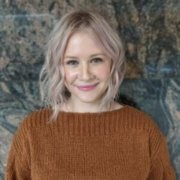
Effie Parks
Effie Parks was born in the magical land of Montana, where she was raised with her 12 loving siblings. After moving to Washington and marrying her husband, they were blessed with the birth of their son, Ford Canon Parks. When she learned that Ford had been born with an extremely rare genetic condition – CTNNB1 syndrome – she dove into the world of advocacy. Now, she is the host of her own podcast, Once Upon a Gene, where she speaks to others about their journey through life with rare disease.

